Winter Olympics 2026: skeleton, ski jumping, Norway win 10th gold, and more – as it happened
(date: 2026-02-14)
It was another day of high drama at the Milano Cortina Games as Lucas Pinheiro Braathen made history for Brazil and South America, among other plotlines
Women’s dual moguls: It’s all very civilised out on the snow, the athletes have a hug when they reach the bottom. I was thinking the snow looked a bit grubby but it turns out the authorities put out pine needles – I think to help skiers find their way.
Anyway, they’ve zipped through very quickly and have already sorted the quarter finals, with four Americans in the final eight.
Continue reading...
https://www.theguardian.com/sport/live/2026/feb/14/winter-olympics-2026-giant-slalom-freestyle-skiing-skeleton-ice-hockey-live
Six ejected after fight forces 20-minute delay in St John’s-Providence basketball game
(date: 2026-02-14)
Six players were ejected from Saturday’s college basketball game between No. 17 St John’s and Providence after a fracas resulting from a hard foul by Friars forward Duncan Powell on Bryce Hopkins sent the Red Storm star crashing to the ground.
St John’s coach Rick Pitino, who led Providence to the 1987 Final Four, was in the middle of it, trying to hold back his players. But several entered the fray as it drifted toward the Red Storm’s visitors’ bench.
The game was delayed by nearly 20 minutes while the referees sorted out the punishments: four St John’s players were booted and two from Providence, and by the time the Friars got the ball back they had watched a one-point lead turn into a four-point deficit.
“You’re not supposed to come off the bench, but you can’t let your players get beat up,” Pitino said after the 79-69 victory gave the Red Storm its 11th straight win. “You can’t fight. Back when I was the Kentucky coach we fought almost every SEC game, and it was not a big deal. But you can’t fight any more, so toughness has to come between the lines.”
Continue reading...
https://www.theguardian.com/sport/2026/feb/14/st-johns-providence-basketball-fight-ejections
Trump’s Losing His War in Minnesota. He’s Ready to Declare ‘Mission Accomplished’
(date: 2026-02-14)
Trump may trim back his terror campaign in Minneapolis, because it’s bleeding political support. It’s not over.
https://zeteo.com/p/trump-minnesota-war-mission-accomplished
Two races, two golds: Jordan Stolz smashes another Olympic record in 500m
(date: 2026-02-14)
-
US speed skating star’s four-gold pursuit continues
-
500m considered toughest of Stolz’s individual events
-
Entire podium finishes below previous Olympic record
The men’s 500m is speed skating distilled to its most unforgiving form: one and a quarter laps of the oval, no pacing, no recovery window, no margin for technical compromise. On Saturday afternoon in Milan’s western suburbs, Jordan Stolz mastered the sport’s fastest and most unpredictable race and pushed his Olympic campaign toward historic territory.
The 21-year-old American won the 500m in an Olympic-record 33.77 seconds, securing his second gold medal of the Milano Cortina Olympics and adding pace behind what is rapidly becoming one of the defining individual campaigns of these Winter Games.
Continue reading...
https://www.theguardian.com/sport/2026/feb/14/jordan-stolz-olympic-record-speed-skating-500m-gold
Venezuelan deportee can return to US but fears repeat of ordeal: ‘I’m not over that nightmare yet’
(date: 2026-02-14)
Luis Muñoz Pinto, 27, who was sent to notoriously brutal prison in El Salvador, would like to clear his name after US judge’s ruling
A US federal judge’s order that some of the Venezuelan men sent by the Trump administration to a notorious prison in El Salvador must be allowed to return to the United States to fight their cases has been greeted with hope and a sense of vindication – but also fear – by one of the deportees.
US district judge James Boasberg ruled on Thursday in Washington DC that the Trump administration should facilitate the return of deportees who are currently in countries outside Venezuela, saying they must be given the opportunity to seek the due process they were denied after being illegally expelled from the US last March.
Boasberg added that the US government should cover the travel costs of those who wish to come to the US to argue their immigration cases.
Continue reading...
https://www.theguardian.com/us-news/2026/feb/14/venezuelan-illegally-deported-return-fears
Barack Obama publicly states support for anti-ICE demonstrators in Minneapolis
(date: 2026-02-14)
Speaking with progressive YouTuber, former US president stressed ‘unprecedented nature’ of agency’s actions
Barack Obama publicly gave his support to demonstrators in Minneapolis for standing up to the “unprecedented nature” of the Immigrations and Customs Enforcement ( ICE) operation in Minnesota.
Speaking in an interview with progressive YouTuber Brian Tyler Cohen on Saturday, the former president discussed the power that US citizens hold when standing up for the values they believe in and his hopes for the next generation of American leaders.
Continue reading...
https://www.theguardian.com/us-news/2026/feb/14/barack-obama-minneapolis-support
California’s Helix water district gets state-of-the-art managed charging [Q&A]
(date: 2026-02-14)

Located at Helix water district’s operations center in El Cajon, California, the project supports the district’s full transition to zero-emission vehicles while maintaining the reliability required of a mission-critical public utility. To keep it all running smoothly, the district has deployed Better Fleet’s advanced managed charging software solution – and we’ve got the company’s CEO, Dan Hilson, to walk us through it.
more…
https://electrek.co/2026/02/14/californias-helix-water-district-gets-state-of-the-art-managed-charging-qa/
Democratic senators launch inquiry into EPA’s repeal of key air pollution enforcement measure
(date: 2026-02-14)
Senators said repeal was ‘particularly troubling’ and was counter to EPA’s mandate to protect human health
More than three dozen Democratic senators have begun an independent inquiry into the US Environmental Protection Agency (EPA) following a huge change in how the agency measures the health benefits of reducing air pollution that is widely seen as a major setback to US efforts to combat the climate crisis.
In a regulatory impact analysis, the EPA said it would stop assigning a monetary value to the health benefits associated with regulations on fine particulate matter and ozone. The agency argued that the estimates contain too much uncertainty.
Continue reading...
https://www.theguardian.com/environment/2026/feb/14/democratic-senators-inquiry-epa-air-pollution-enforcement
Anatomy of an upset: how Ilia Malinin lost Olympic figure skating gold
(date: 2026-02-14)
Ilia Malinin entered the Olympic free skate as the runaway favorite. Early mistakes triggered a meltdown that laid bare the brutal math of modern figure skating
What made Ilia Malinin’s Olympic defeat so shocking was not simply his years-long dominance entering Friday night. It was how completely the competition had tilted in his favor before he even stepped on the ice.
For nearly three years, Malinin had been men’s skating’s guiding light: unbeaten since late 2023, winner of back-to-back world titles, the skater who recalibrated the sport’s technical ceiling and then made winning look procedural. He arrived at the Milano Ice Skating Arena leading by more than five points after the short program and carrying the most difficult planned program in the field. Under almost any normal competitive logic, that combination should have been decisive.
Continue reading...
https://www.theguardian.com/sport/2026/feb/14/ilia-malinin-analyis-figure-skating-upset-scoring
US military used Anthropic’s AI model Claude in Venezuela raid, report says
(date: 2026-02-14)
Wall Street Journal says Claude used in operation via Anthropic’s partnership with Palantir Technologies
Claude, the AI model developed by Anthropic, was used by the US military during its operation to kidnap Nicolás Maduro from Venezuela, the Wall Street Journal revealed on Saturday, a high-profile example of how the US defence department is using artificial intelligence in its operations.
The US raid on Venezuela involved bombing across the capital, Caracas, and the killing of 83 people, according to Venezuela’s defence ministry. Anthropic’s terms of use prohibit the use of Claude for violent ends, for the development of weapons or for conducting surveillance.
Continue reading...
https://www.theguardian.com/technology/2026/feb/14/us-military-anthropic-ai-model-claude-venezuela-raid
Casey Wasserman to sell talent agency after links to Ghislaine Maxwell exposed in Epstein files
(date: 2026-02-14)
Clients including Chappell Roan and Abby Wambach cut ties to firm after communications came to light
Casey Wasserman, a leading Hollywood talent agent whose clients include Chappell Roan, Coldplay, Ed Sheeran and Kendrick Lamar, is selling his business after communications with Ghislaine Maxwell were exposed as part of the US justice department’s recent dump of investigative documents relating to Jeffrey Epstein.
Wasserman, grandson of the late famed Hollywood dealmaker Lew Wasserman, said late on Friday he was putting his eponymous talent and marketing agency on the block, citing the impact on the company from “past personal mistakes” and telling staff he felt that he had “become a distraction” to its work.
Continue reading...
https://www.theguardian.com/us-news/2026/feb/14/casey-wasserman-selling-talent-agency-ghislaine-maxwell-epstein-files
Toy loon becomes unofficial mascot for Canadian women's Olympic hockey team
(date: 2026-02-14)

A toy loon from a fan has become a mascot, or possibly a good luck charm, for Canada's women's hockey team at Milano Cortina 2026.
https://www.cbc.ca/sports/olympics/winter/olympic-womens-hockey-loon-9.7090625?cmp=rss
Breaking Down the REAL Conspiracies Behind Epstein and His Elite Circle
(date: 2026-02-14)
Naomi and Mehdi dive into the powerful men – Bannon, Thiel, Trump – who have tried to cover up their friendship with Jeffrey Epstein, and they also explore conspiratorial thinking and elite impunity.
https://zeteo.com/p/naomi-klein-epstein-files-bannon
The Minneapolis brass band bringing joy amid grief: ‘When people see us playing, it gives them hope’
(date: 2026-02-14)
Brass Solidarity was formed after George Floyd’s murder, and now also marks the deaths of Renee Good and Alex Pretti at its weekly meetup
A week after a federal officer shot Renee Nicole Good in Minneapolis, a troupe of brass players, percussionists and singers gathered at the site of the killing, to play a blaring, defiant rendition of the O’Jays’ Love Train.
Trumpeters, trombonists and sousaphonists had lined up along the ice-slicked sidewalk or were balancing on the snowbanks, blowing up clouds of condensation.
Continue reading...
https://www.theguardian.com/us-news/2026/feb/14/minneapolis-brass-solidarity-band-ice
Limited government shutdown likely to linger for at least 10 days as Congress takes break
(date: 2026-02-14)
13% of federal civilian workforce is affected, although DHS – which spurred budget standoff – remains funded
A limited US government shutdown came into effect on Saturday – the third of Donald Trump’s second term – after negotiations between the White House and Democrats in Congress failed to agree on new restrictions for federal immigration agents.
The shutdown affects about 13% of the federal civilian workforce and is confined to agencies under the umbrella of the Department of Homeland Security (DHS), including the Transportation Security Administration (TSA), which screens airline passengers.
Continue reading...
https://www.theguardian.com/us-news/2026/feb/14/limited-government-shutdown-congress
Don’t call it a concept: 670 hp AUDI E7X electric SUV caught testing
(date: 2026-02-14)

The new electric SUV from Audi’s Chinese AUDI brand is being billed as the most important launch in the young company’s history, and it’s set to make its official debut in production form this April – but thanks to the Chinese Ministry of Industry and Information Technology (MIIT), you can see it right now.
more…
https://electrek.co/2026/02/14/dont-call-it-a-concept-670-hp-audi-e7x-electric-suv-caught-testing/
Canada has officially joined the EU's loans-for-weapons program
(date: 2026-02-14)

Defence Minister David McGuinty says Canada has now officially joined the European Union’s Security Action for Europe (SAFE) program, which offers loans to member states to invest in defence capabilities.
https://www.cbc.ca/news/politics/canada-eu-safe-agreement-defence-loans-weapons-9.7090635?cmp=rss
Take the tunnel, Windsor city councillor says as Ambassador Bridge owners lobby against new bridge
(date: 2026-02-14)

https://www.cbc.ca/news/canada/windsor/marignani-urges-tunnel-use-among-windsorites-9.7089240?cmp=rss
Classic Covers: Paul Stahr
(date: 2026-02-14)
Paul Stahr painted five covers for the Post.
Classic Covers: Paul Stahr
The Saturday Evening Post
https://www.saturdayeveningpost.com/2026/02/classic-covers-paul-stahr/
Police seal off road near Arizona home of Today show host Savannah Guthrie’s missing mother
(date: 2026-02-14)
Sheriff’s, FBI and forensics vehicles passed through roadblocks 2 miles from missing 84-year-old woman’s home
Law enforcement investigating the disappearance of Today show host Savannah Guthrie’s mother, Nancy, sealed off a road near her home in Arizona late Friday night.
A parade of sheriff’s and FBI vehicles, including forensics vehicles, passed through the roadblock that was set up about 2 miles (3.2km) from the house.
Continue reading...
https://www.theguardian.com/us-news/2026/feb/14/police-vehicles-nancy-guthrie-home
GENIUS: adding solar panels to semi trailers is an idea so obvious it hurts
(date: 2026-02-14)

Refrigerated trailers are critical for hauling your fresh food and flowers from the farm to your local market – the problem is that they pollute like crazy, powered by red-dye diesel gensets that run around the clock, even when the truck pulling them is fully electric. To help solve that problem, one company come up with an idea so obvious you’ll hate yourself for not coming up with it on your own: rooftop solar.
more…
https://electrek.co/2026/02/14/genius-adding-solar-panels-to-semi-trailers-is-an-idea-so-obvious-it-hurts/
Zelenskyy says U.S. too often asks Ukraine, not Russia, for concessions, ahead of Geneva peace talks
(date: 2026-02-14)

Ukrainian President Volodymyr Zelenskyy voiced hope on Saturday that U.S.-brokered peace talks in Geneva next week would be substantive, but he said Ukraine was being asked "too often" to make concessions.
https://www.cbc.ca/news/world/ukrainian-president-zelenskyy-geneva-talks-9.7090537?cmp=rss
Russia is still waging war in Ukraine, but door opening for more of its athletes to compete
(date: 2026-02-14)

Twenty athletes from Russia and Belarus are competing at the Winter Olympics as neutral. Moscow has asked for its athletes to be fully reinstated in international competition, and sporting bodies are beginning to open the door to those once completely banned from participating.
https://www.cbc.ca/news/world/olympics-russia-ukraine-sport-9.7090407?cmp=rss
US fixation on the hard-hat economy and making manufacturing great again makes little sense
(date: 2026-02-14)
The dream of greasy overalls is driven by nostalgia and doesn’t justify policies that harm US consumers
The exhortations to protect America’s industrial muscle have resonated in the US at least since maverick presidential candidate Ross Perot brought up the supposed “giant sucking sound” of jobs pulled to Mexico by the Nafta trade agreement back in 1993.
They flourished under Donald Trump’s first presidency and his promise to restore jobs lost to trade agreements. Joe Biden, too, put “rebuilding the backbone of America: manufacturing, unions and the middle class” at the center of his agenda. And in 2024, Trump reheated his old promise that “jobs and factories will come roaring back into our country”.
Continue reading...
https://www.theguardian.com/business/2026/feb/14/trump-manufacturing-jobs-economy
What is it about Minnesota that made it a target for Trump’s ICE crackdown?
(date: 2026-02-14)
The Democratic-leaning midwestern state where federal agents killed two citizens is in many ways anathema to the administration
Since the federal immigration surge began late last year, Minnesotans have offered varying theories for why their state was targeted by the Trump administration.
It’s a midwestern state that hasn’t voted for a Republican presidential candidate since 1972, including the three times it voted against Donald Trump.
Continue reading...
https://www.theguardian.com/us-news/2026/feb/14/why-minnesota-ice-crackdown-trump
Plantation weddings and pre-civil war fashion: the film that critiques the historical fantasy of Natchez
(date: 2026-02-14)
A documentary about Mississippi examines competing forces: the nostalgic celebration of the old south and the refusal to sanitize the brutal history of enslavement
“Natchez swallowed a master narrative about the old south.”
In Suzannah Herbert’s documentary Natchez, the opening remark from National Park Service ranger Barney Schoby functions as both diagnosis and thesis. The film that follows does not evade the Mississippi town’s contradictions. Instead, it actively adjudicates them, staging white people’s curated nostalgia against Black people’s historical knowledge, lived experience and institutional fact.
Continue reading...
https://www.theguardian.com/us-news/2026/feb/14/documentary-natchez-mississippi-plantation-tours
Danish state could face legal action over deal that gives US powers on its soil
(date: 2026-02-14)
Claims that agreement is unconstitutional could pose problems in talks with Washington over Greenland
Denmark could face legal action over an agreement that gives the US sweeping powers on Danish soil, over claims it is “unconstitutional” and could pose problems in talks with Washington over Greenland.
The agreement, which was signed under the Biden administration in 2023 and was passed by the Danish parliament last year, gives the US “unhindered access” to its airbases and powers over its civilians.
Continue reading...
https://www.theguardian.com/world/2026/feb/14/denmark-us-powers-legal-action-greenland-washington-donald-trump-europe
Charging Demand Is Growing, But Charging Infrastructure Isn't Keeping Up
(date: 2026-02-14)
ChargePoint says it added 190,000 EV chargers last year. That still isn't keeping up with demand from drivers.
https://insideevs.com/news/787253/chargepoint-data-growth-2025-demand/
An estimated 350,000 people march in Toronto in support of Iran protests, police say
(date: 2026-02-14)

A rally in North York Saturday that drew an estimated 350,000 people called on the Canadian government to recognize Iran's exiled crown prince Reza Pahlavi as the leader of Iran’s democratic transition after anti-government protests erupted in Iran at the end of last year.
https://www.cbc.ca/news/canada/toronto/iran-support-rally-toronto-february-14-2026-9.7090479?cmp=rss
US man who fled jail and pleaded to Trump and Kim Kardashian gets 60-year term
(date: 2026-02-14)
Antoine Massey was convicted on charges of rape and kidnapping before New Orleans jailbreak
A man who joined nine others in fleeing a New Orleans jail – then publicly pleaded for help from Donald Trump, a rapper whom the president pardoned and reality TV star Kim Kardashian while on the run – recently got a 60-year prison sentence for kidnapping and raping his ex-girlfriend.
Antoine Massey, 32, received his punishment on Thursday at a suburban New Orleans state courthouse, months after his jailbreak-related capture and subsequent conviction at trial of prior charges.
Guardian reporting partner WWL Louisiana contributed
Continue reading...
https://www.theguardian.com/us-news/2026/feb/14/new-orleans-jailbreak-prison-sentence
A missing woman, bloodstains and a masked intruder: tantalising clues but few leads in hunt for Nancy Guthrie
(date: 2026-02-14)
The disappearance in Arizona of the Today show host Savannah Guthrie’s mother has captivated the nation
Nancy Guthrie disappeared from her Tucson, Arizona, home two weeks ago, setting off a potent chain reaction of federal and local criminal investigation, amateur sleuthing and public obsession that – so far – has resulted in neither the 84-year-old grandmother being located or anyone named as a suspect or, indeed, arrested.
It is a case that is both enthralling and baffling the American public, casting doubts on the ability of investigators to get to the bottom of the mystery that each day generates a fresh 24-hour news cycle – but seemingly little in the way of solid fresh leads likely to solve the case.
Continue reading...
https://www.theguardian.com/us-news/2026/feb/14/nancy-guthrie-disappearance-arizona
Peter Attia appears to be staying at CBS News despite Epstein communications
(date: 2026-02-14)
Staffers believe network has decided to retain Attia, who issued apology after inappropriate Epstein emails, as on-air analyst
Two weeks after a trove of files revealed extensive – and inappropriate – communications between Jeffrey Epstein and a recently named CBS News contributor, the longevity expert Peter Attia, the network appears to have settled on keeping him.
“Everyone internally unofficially concluded he was staying as of about a week ago,” one CBS News staffer told the Guardian.
Continue reading...
https://www.theguardian.com/media/2026/feb/14/cbs-peter-attia-jeffrey-epstein
2 Toronto teachers on leave after racist social media messages discovered: School board
(date: 2026-02-14)

Two teachers have been put on leave from a North York high school, as the Toronto Catholic District School Board investigates an exchange of racist messages on a shared school program's social media account.
https://www.cbc.ca/news/canada/toronto/teachers-leave-racist-message-toronto-catholic-school-board-9.7090380?cmp=rss
Rubio tells Europe US wants renewed alliance – but on Trump’s terms
(date: 2026-02-14)
Secretary of state calls the US ‘a child of Europe’ and urges continent to back a new world order
The US secretary of state, Marco Rubio, has described America as “a child of Europe” and made an emotional but highly conditional offer of a new partnership, insisting the two continents belong together.
In a much-anticipated speech at the annual Munich Security Conference, he said the US was intent on building a new world order, adding “while we are prepared, if necessary, to do this alone, it is our preference and it is our hope to do this together with you, our friends here in Europe”. The US and Europe, he said “belong together”.
Continue reading...
https://www.theguardian.com/us-news/2026/feb/14/marco-rubio-us-child-of-europe-trump-munich
Fall of the Quad God: Ilia Malinin finds he is all too human under the Olympic spotlight
(date: 2026-02-14)
The brilliant American was expected to glide to a gold medal on Friday. It was tough to watch such a gifted athlete discover the ruthlessness of his sport
By the time Ilia Malinin reached the closing stretch of his Olympic free skate, the outcome was no longer really the story. The story was the expression on his face – not panic, not shock, but the dawning realization that a destiny he had controlled for nearly three years had slipped beyond his reach in the blinding span of four and a half catastrophic minutes.
For the rising generation of men’s skaters, the 21-year-old Malinin has existed less as a rival than as a moving technical horizon. The Quad God. The skater who built programs around jumps others still treated as theory, who pushed the sport into something closer to applied physics. Much like Simone Biles, who took in Friday’s contest from the arena’s VIP seats, his only competition was himself.
Continue reading...
https://www.theguardian.com/sport/2026/feb/14/ilia-malinin-winter-olympics-figure-skating-2026
Reality TV pushed USA’s Erin Jackson out of comfort zone and into Olympic title defense
(date: 2026-02-14)
The US flag bearer and first Black woman to win Winter Olympic individual gold carries the lessons of Special Forces into Sunday’s 500m speed skating final
On the ice, Erin Jackson is the picture of control – metronomic in her balance, rhythmic in her stride, a woman whose margins for error are blade thin. But all that control melted away when the speed skater glided on to Fox’s Special Forces: World’s Toughest Test reality TV series in fall 2023 for a taste of the grueling training that elite US troops endure.
She was part of a motley cast that included former Dallas Cowboys star Dez Bryant, NBA clutch shooter Robert Horry and skier Bode Miller, a fellow Winter Olympic champion. But Jackson was less concerned with outshining her athletic peers than with confronting her own fears. To test her anxiety around swimming, Jackson was strapped into a mock helicopter, submerged in icy water and told to hold her breath for at least 15 seconds before freeing herself, grabbing a lifejacket, and paddling to safety.
Continue reading...
https://www.theguardian.com/sport/2026/feb/14/erin-jackson-usa-speed-skating-special-forces
Why Tumbler Ridge is resilient
(date: 2026-02-14)

The town at the centre of a national tragedy has faced collapse and hardship but continues to persevere.
https://www.cbc.ca/news/canada/british-columbia/tumbler-ridge-resilient-9.7087865?cmp=rss
Alexei Navalny was poisoned by Kremlin with dart frog toxin, European nations say
(date: 2026-02-14)

Russian opposition leader Alexei Navalny was poisoned by the Kremlin with a lethal toxin derived from the skin of poison dart frogs, five European countries said Saturday.
https://www.cbc.ca/news/world/russia-navalny-european-nations-poisoned-kremlin-9.7090292?cmp=rss
The Philosopher Teaching AI to Be Good
(date: 2026-02-14)
Anthropic has a new, values-oriented “constitution” that they’re feeding their AI chatbot, Claude. Amanda Askell, the company’s in-house philosopher, joins Offline to talk about it.
https://crookedmedia.substack.com/p/can-truth-survive-the-trump-era
Happy Valentine's Bidet
(date: 2026-02-14)
Lovett is in the air for this this Valentine’s Day special episode! Sarah Lazarus and Halle Kiefer join in the studio to review a few stories we missed, plus some revealing queries from the Discord.
https://crookedmedia.substack.com/p/happy-valentines-bidet
Terminally Online: Cancel Culture is Back
(date: 2026-02-14)
Erin Ryan and producers Kendra James, Caroline Reston, and Claire Fogarty have been way too online this week.
https://crookedmedia.substack.com/p/terminally-online-cancel-culture
Andrew aide advised Epstein to omit conviction on China visa form, files suggest
(date: 2026-02-14)
Epstein files release shows David Stern advised against mentioning ‘being denied previously or criminal charges’
An aide to Andrew Mountbatten-Windsor advised Jeffrey Epstein to illegally hide his child sexual abuse conviction to obtain a visa to China, according to the latest Epstein files release.
David Stern, who was a close associate of both Epstein and the then prince, was asked for his help after the disgraced financier’s initial application for a visa was rejected.
Continue reading...
https://www.theguardian.com/us-news/2026/feb/14/david-stern-jeffrey-epstein-hide-conviction-china-visa
US homeland security department partially shut down after lawmakers fail to agree funding
(date: 2026-02-14)
Lawmakers left Washington for a long weekend without resolving an impasse over much-criticized agency’s funding
The Department of Homeland Security has begun a partial shutdown, after funding for the much-criticized agency expired, with a range of services, including domestic flights and the US Coastguard, now vulnerable to disruption.
The shutdown was all but confirmed on Thursday, after the Senate failed to clear the 60-vote threshold needed to pass the DHS appropriations bill and lawmakers left Washington for a long weekend without resolving the impasse.
Continue reading...
https://www.theguardian.com/us-news/2026/feb/13/us-homeland-security-department-shutdown
Youth hockey ref escorted out of N.S. rink by police after 'hate-motivated' harassment, say RCMP
(date: 2026-02-14)

A hockey game in Musquodoboit Harbour, N.S., had to be stopped and a young referee was escorted out of the arena by police after the official was targeted by hate-motivated verbal assaults from a person in the crowd, say RCMP.
https://www.cbc.ca/news/canada/nova-scotia/referee-hate-motivated-incident-musquodobit-harbour-rcmp-9.7089237?cmp=rss
Amid 'Buy Canadian' fervour, Canada's top pension funds still heavily invested in U.S.
(date: 2026-02-14)

Despite the U.S. trade war and President Donald Trump's threats to Canadian sovereignty, this country's biggest pension funds remain heavily invested in the U.S. The Canada Pension Plan announced this week that it has grown to a record $780.7 billion in assets, with 47 per cent invested in the U.S., compared to only 13 per cent in Canada.
https://www.cbc.ca/news/investigates/cpp-us-investments-record-assests-9.7088667?cmp=rss
Are you an early bird or a night owl? Why scientists are moving beyond these groupings
(date: 2026-02-14)

Categorizing people into just two groups — late and early risers — may be oversimplified when it comes to health and behaviour.
https://www.cbc.ca/news/health/sleep-chronotypes-so-9.7088764?cmp=rss
Cheating, a proposal, cute couples — but are the Olympics really the place for love?
(date: 2026-02-14)

Love often seems to be in the air during the Olympics. And there's a storied history of Olympic declarations of love, Olympic couples, and the sometimes controversial Olympic proposal.
https://www.cbc.ca/news/world/olympics-proposal-breezy-johnson-norway-cheater-9.7088607?cmp=rss
‘We’re so vulnerable’: How Canadians can cope with anxiety in the face of existential threats from the U.S.
(date: 2026-02-14)

U.S. President Donald Trump’s second term has threatened Canada with annexation and economic ruin, leaving some Canadians feeling anxious and concerned. A Winnipeg therapist offers strategies for coping with those emotions.
https://www.cbc.ca/news/canada/united-states-threats-canada-anxiety-coping-9.7083301?cmp=rss
Does your local school lock its doors? Why school entrance protocols vary across Canada
(date: 2026-02-14)

This week's tragedy in Tumbler Ridge, B.C., and other intruder incidents in schools are reviving conversations across Canada about school safety — including controlled access and entry procedures.
https://www.cbc.ca/news/canada/schools-entry-access-9.7087257?cmp=rss
From umbrella to uncertainty: Europe and Canada's nuclear deterrence anxiety
(date: 2026-02-14)

European allies are quietly exploring closer nuclear deterrence ties with France amid growing anxiety about the long-term reliability of U.S. security guarantees. Germany and Poland have acknowledged early-stage talks with Paris, while French President Emmanuel Macron has opened the door to a strategic dialogue — without offering a formal nuclear umbrella.
https://www.cbc.ca/news/politics/canada-france-europe-nuclear-weapons-9.7089805?cmp=rss
Inuit leaders urge Ottawa to follow Greenland's infrastructure lead
(date: 2026-02-14)

Inuit leaders back from a recent trip to Greenland say there's a stark contrast between the infrastructure in that Nordic country compared to Canada's North, and they're calling on the federal government to urgently fill the gap as part of its enhanced focus on Arctic security.
https://www.cbc.ca/news/politics/inuit-leaders-urge-ottawa-follow-greenland-infrastructure-9.7088538?cmp=rss
Being Jamaican in Canada meant we didn’t talk about mental health — until depression forced me to
(date: 2026-02-14)

When Bria Barrows was diagnosed with depression as a high school student, her family struggled to talk about mental health issues. Since then, she has learned that talking leads to healing.
https://www.cbc.ca/news/canada/first-person-mental-health-jamaican-in-canada-9.7089147?cmp=rss
Head of military's space division warns Russia is considering putting nuclear weapons in orbit
(date: 2026-02-14)

The head of Canada's military space division says the country "should absolutely be" concerned about Russia's potential capabilities amid global fears the Kremlin is considering putting nuclear weapons in place to target satellites.
https://www.cbc.ca/news/politics/russia-space-nuclear-weapon-canada-military-division-chief-9.7088665?cmp=rss
Bart Layton didn't like Chris Hemsworth for Crime 101. Then he proved him wrong
(date: 2026-02-14)

Coming after his critically acclaimed documentary The Imposter, and genre-defying American Animals, director Bart Layton just released his deceptively deep heist film Crime 101. While he didn't initially believe Chris Hemsworth could pull off the role, he told CBC the Australian actor proved him wrong.
https://www.cbc.ca/news/entertainment/bart-layton-crime-101-9.7089457?cmp=rss
Dems Freeze ICE
(date: 2026-02-14)
Live from Melbourne, Jon, Lovett, Tommy, and Dan react to Democrats’ decision to stand firm on ICE funding and force a shutdown of the Department of Homeland Security
https://crookedmedia.substack.com/p/dems-freeze-ice
This Week in Democracy – Week 56: Prosecuting Democrats, Deporting Migrants, and... Taking Bribes?
(date: 2026-02-14)
Zeteo's weekly round-up, documenting the growth of authoritarianism in Trump's second term.
https://zeteo.com/p/this-week-in-democracy-week-56-prosecuting
US officials investigate whether ICE agents lied about Minneapolis shooting
(date: 2026-02-14)
Charges dropped against two Venezuelan men over January shooting as investigation opened into agents’ conduct
Federal authorities have opened a criminal investigation into whether two immigration officers lied under oath about a shooting in Minneapolis last month, as all charges were dropped against two Venezuelan men.
ICE director Todd Lyons said on Friday that his agency opened a joint investigation with the justice department after video evidence revealed “sworn testimony provided by two separate officers appears to have made untruthful statements” about the shooting of one of the Venezuelan men during the Trump administration’s immigration crackdown across the Minneapolis area.
Continue reading...
https://www.theguardian.com/us-news/2026/feb/13/ice-officers-minneapolis
Inside the "biggest deregulatory action in U.S. history"
(date: 2026-02-13)
On Thursday, Feb. 12, the Environmental Protection Agency announced the revocation of the “endangerment finding,” a federal determination that planet-warming emissions harm human health. The Trump administration said the decision will save Americans $1.3 trillion in energy and transportation, but experts are pushing back on that claim. Plus: The rise of concierge medicine and a look into how AI modeling could play a role in your weather forecast.
Every story has an economic angle. Want some in your inbox? Subscribe to our daily or weekly newsletter.
Marketplace is more than a radio show. Check out our original reporting and financial literacy content at marketplace.org — and consider making an investment in our future.
https://www.marketplace.org/episode/2026/02/13/inside-the-biggest-deregulatory-action-in-us-history
This London borough is installing 500 curbside EV chargers
(date: 2026-02-13)

The London Borough of Harrow is installing 500 new curbside EV chargers across the borough, targeting residents who don’t have access to off-street parking. The chargers are being deployed in partnership with UK charging provider char.gy and will primarily be mounted on existing lamp posts along residential streets.
more…
https://electrek.co/2026/02/13/london-borough-is-installing-500-curbside-ev-chargers/
Healthcare group urges RFK Jr to resign after remarks on cocaine and toilet seats
(date: 2026-02-13)
President of Protect Our Care issues one-word statement to US health and human services secretary: ‘Resign’
A prominent healthcare advocacy group is calling for the US health secretary, Robert F Kennedy Jr, to step down from his post after he downplayed Covid risks by saying: “I’m not scared of a germ. I used to snort cocaine off of toilet seats.”
Kennedy, who was appointed secretary of the federal health and human services (HHS) department despite his avowed anti-vaccine activism, made that remark on the 12 February episode of Theo Von’s podcast This Past Weekend.
Continue reading...
https://www.theguardian.com/us-news/2026/feb/13/healthcare-groups-rfk-jr-resign-cocaine-toilet-seats
Showdown in the American west as Colorado River faces crucial deadline: ‘Mother nature isn’t going to bail us out’
(date: 2026-02-13)
Seven states must make deal for sharing basin that supplies 40 million people, before US government steps in. With negotiations at an impasse, what’s at stake?
The future of the American west hung in the balance after seven states remained at a stalemate over who should bear the brunt of the enormous water cuts needed to pull the imperiled Colorado River back from the brink.
Negotiators, who have spent years trying to iron out thorny disagreements, ended their talks on Friday without a deal – one day before a critical deadline to form a plan that had been set for Saturday.
Continue reading...
https://www.theguardian.com/us-news/2026/feb/13/colorado-river-crucial-deadline
Unconditional US military aid to Israel ‘enabled a genocide in Gaza’, Alexandria Ocasio-Cortez says – live
(date: 2026-02-13)
Democratic congresswoman says thousands of Palestinian deaths were ‘completely avoidable’ during panel at Munich security conference
The annual rate of US inflation eased in January, according to the latest data consumer price index report from the Bureau of Labor Statistics (BLS). Over the last 12 months, the cost of goods has increased by 2.4% – down from 2.7% in last month’s report.
Lawmakers in the House and Senate left Washington on Thursday as the Department of Homeland Security (DHS) heads for another shutdown, when stopgap funding lapses tonight. Nearly all Democrats blocked a second attempt to pass the annual DHS appropriations bill as negotiations for guardrails on federal immigration enforcement have stalled. Senator John Fetterman was the only lawmaker to break ranks with the party.
Continue reading...
https://www.theguardian.com/us-news/live/2026/feb/13/trump-climate-epa-repeal-pollution-john-kerry-us-politics-latest-news-updates
Who are the six men named in the unredacted Epstein files?
(date: 2026-02-13)
In a floor speech, Ro Khanna, a Democratic representative, revealed identities of six men after seeing unredacted files
Ro Khanna, the US congressman, publicly revealed the names of six men whose identities were redacted from the Jeffrey Epstein files, including Leslie Wexner, a billionaire retail magnate, whom the FBI appeared to have labeled as a co-conspirator.
Four of the six men had no connection to Epstein whatsoever and were simply part of a photo lineup assembled by law enforcement, according to reporting from the Guardian. Two of the men who spoke to the Guardian strongly denied knowing Epstein and said they had been arrested by NYPD for unrelated crimes in the past, which likely explains how their photos ended up in the array.
Continue reading...
https://www.theguardian.com/us-news/2026/feb/10/six-men-epstein-files-unredacted
Winter Olympics 2026: Weston ends GB drought, Heraskevych’s appeal rejected by Cas – as it happened
(date: 2026-02-13)
Matt Weston wins gold for Great Britain in the men’s skeleton and Ilia Malinin finishes in a shock eighth place in the men’s figure skating final
Italian biathlete Rebecca Passler will be able to participate in the Winter Olympics despite failing a doping test, the Italian skiing federation (Fisi) said on Friday. Italy’s anti-doping body (Nado) upheld her appeal against a provisional suspension that followed a positive test for the banned substance Letrozole on 26 January.
Nado’s Court of Appeal acknowledged the possibility of unintentional ingestion or unknowing contamination of the substance. “Passler will rejoin her teammates starting Monday, February 16, when she will be available to the coaching staff for the subsequent competitions on the Olympic programme,” Fisi said in a statement.
Continue reading...
https://www.theguardian.com/sport/live/2026/feb/13/winter-olympics-2026-seven-gold-medals-up-for-grabs-gb-look-to-end-medal-drought-and-more-live
Ilia Malinin falls twice as Kazakhstan’s Shaidorov stuns field for Olympic gold
(date: 2026-02-13)
For nearly two years, Ilia Malinin has made men’s figure skating feel predictable in the most spectacular of ways. On Friday night on the southern outskirts of Milan, the Olympic Games reminded the sport, and perhaps Malinin himself, that predictability is never guaranteed on its biggest stage.
The overwhelming favorite entering the free skate, the 21-year-old American instead saw the Olympic title slip away to Kazakhstan’s Mikhail Shaidorov after an error-strewn performance that will go down among the biggest upsets in modern figure skating history.
Continue reading...
https://www.theguardian.com/sport/2026/feb/13/ilia-malinin-olympics-figure-skating-mikhail-shaidorov
Winter Olympics: Ilia Malinin misses podium in figure skating shock; Shaidorov takes gold – as it happened
(date: 2026-02-13)
Slovakia’s Adam Hagara attempts a quad toeloop, but it’s obvious as he takes off that he won’t be able to land it. He rebounds with a triple axel-double toeloop, but he falls on a triple axel.
Can he land a planned triple-double axel-double axel? Indeed he can. It doesn’t seem too fluid but gets a positive grade of execution, as does a triple flip. But he drops a triple loop to a double loop.
Continue reading...
https://www.theguardian.com/sport/live/2026/feb/13/winter-olympics-ilia-malinin-figure-skating-free-skate
OPM directs agencies to move forward with ending collective bargaining
(date: 2026-02-13)
Amid ongoing legal action, a new OPM memo tells agencies to proceed with ending collective bargaining agreements with federal unions under orders from Trump.
https://federalnewsnetwork.com/unions/2026/02/opm-directs-agencies-to-move-forward-with-ending-collective-bargaining/
How a DHS shutdown affects different components and employees
(date: 2026-02-13)
Roughly 90% of DHS employees continue working through a shutdown. Many have to show up without getting paid. Here's how each component is impacted.
https://federalnewsnetwork.com/government-shutdown/2026/02/how-a-dhs-shutdown-affects-different-components-and-employees/
Canadian hockey player Larocque wants to see ‘Indigenous athletes excel’ beyond her success
(date: 2026-02-13)

Canadian defenceman Jocelyne Larocque has made history her entire Olympic career, from the first Indigenous player to play for Canada in women’s hockey at the Olympics to the most winning Indigenous Olympian in Canada. Now at her fourth Winter Games, Larocque is on a quest for a fourth medal with hopes of inspiring future generations to break records.
https://www.cbc.ca/sports/olympics/winter/hockey/canadian-hockey-player-larocque-to-wants-see-indigenous-athletes-excel-9.7086376?cmp=rss
Google secures 1 GW solar deal as Texas data‑center load surges
(date: 2026-02-13)
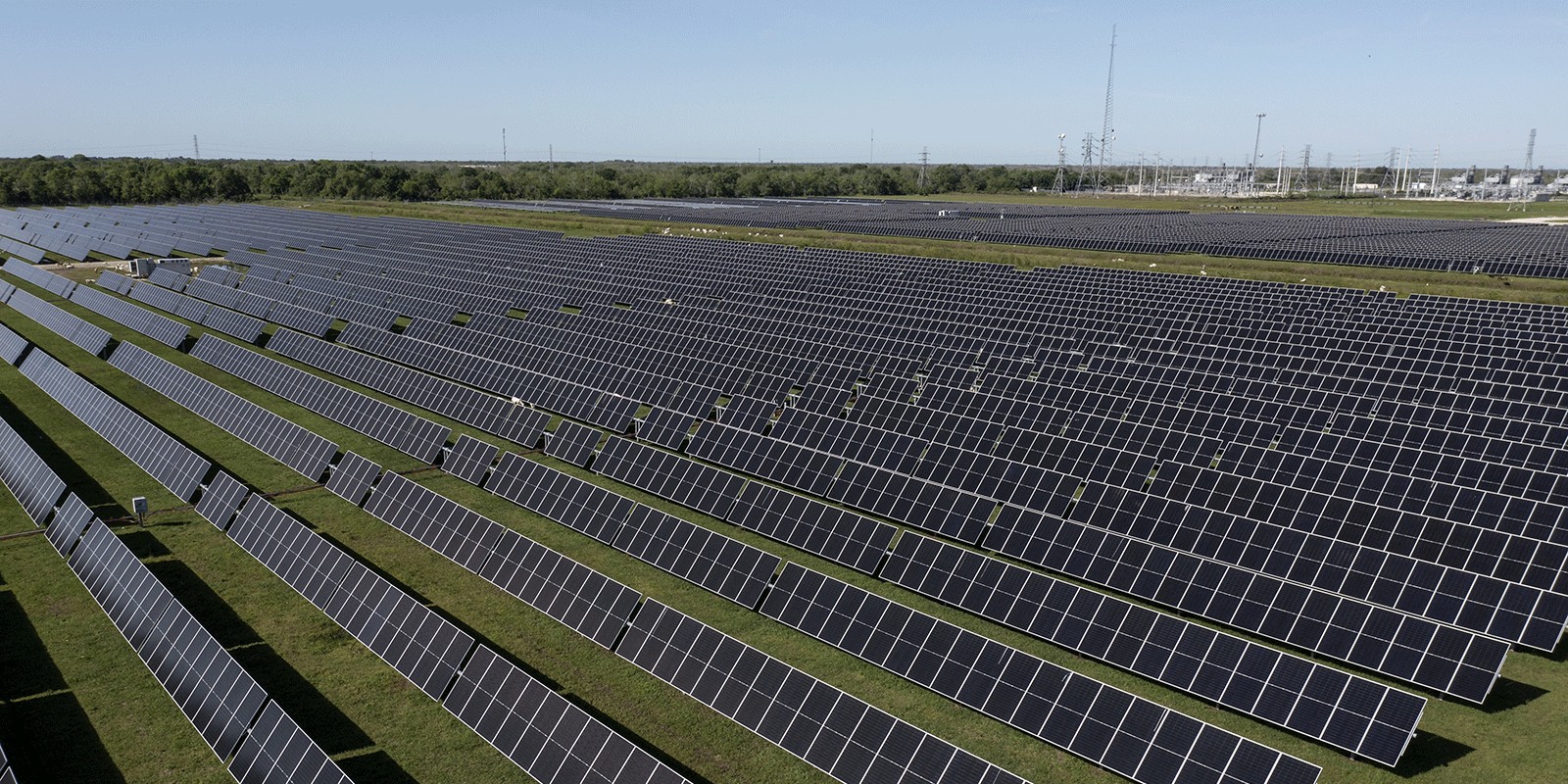
TotalEnergies just landed a massive solar deal to power Google’s expanding Texas data centers. The company signed two long‑term power purchase agreements (PPA) totaling 1 gigawatt (GW) of capacity, or about 28 terawatt‑hours of electricity over 15 years.
more…
https://electrek.co/2026/02/13/google-secures-1-gw-solar-deal-as-texas-data-center-load-surges/
Toyota suddenly has four new electric SUVs that it is betting will win over EV buyers
(date: 2026-02-13)

With the new Highlander EV arriving later this year, Toyota will have a full lineup of electric SUVs. Toyota believes the new EVs fill a key gap in its lineup and will help it gain a bigger share of the market.
more…
https://electrek.co/2026/02/13/toyota-four-new-electric-suvs-win-over-ev-buyers/
Trump says regime change 'seems' to be 'best thing that could happen' for Iran
(date: 2026-02-13)

U.S. President Donald Trump on Friday embraced potential regime change in Iran and declared that "tremendous power" will soon be in the Middle East, as the Pentagon sent a second aircraft carrier to the region.
https://www.cbc.ca/news/world/iran-us-trump-regime-change-carrier-9.7089944?cmp=rss
Four men in unredacted files named by Ro Khanna have no ties to Epstein
(date: 2026-02-13)
Men appeared in photo lineup assembled in New York and had no apparent connection to late sex offender
Ro Khanna, a California Democratic representative, read a list of six names on the House floor earlier this week and said they were “wealthy, powerful men that the DoJ hid” in the recently released files related to Jeffrey Epstein. After questions from the Guardian, the Department of Justice said that four of the men Khanna named have no apparent connection to Epstein whatsoever, but rather appeared in a photo lineup assembled by the southern district of New York (SDNY).
Khanna, along with Thomas Massie, a Kentucky Republican representative, pushed the justice department to unredact names in the files, arguing that some names were being unlawfully redacted. Massie claimed credit on X earlier this week for forcing the justice department to remove redactions on a file that listed 20 names, birthdays and photos, including those of Epstein and Ghislaine Maxwell. Khanna then read some of those names on the House floor.
Continue reading...
https://www.theguardian.com/us-news/2026/feb/13/four-men-unredacted-epstein-files-no-ties-ro-khanna
What A Day: AOC's Based Order
(date: 2026-02-13)
Is Rep. Ocasio-Cortez testing the presidential waters?
https://crookedmedia.substack.com/p/what-a-day-aocs-based-order
Army set to debut new ‘campus-style’ dining model, beginning with Fort Hood
(date: 2026-02-13)
In order to open the revamped dining facility, the Army had to obtain numerous waivers from current law and DoD policy.
https://federalnewsnetwork.com/army/2026/02/army-set-to-debut-new-campus-style-dining-model-beginning-with-fort-hood/
How communities across B.C. and Canada are showing love and support for Tumbler Ridge
(date: 2026-02-13)

Canadian communities, small and large, have been expressing condolences and gestures of support this week, in the wake of a mass shooting in Tumbler Ridge, B.C., that killed eight victims, including six children.
https://www.cbc.ca/news/canada/british-columbia/bc-canada-communities-showing-love-support-for-tumbler-ridge-9.7089876?cmp=rss
For agency CIOs, it’s all about the money
(date: 2026-02-13)
Ann Dunkin, the former Energy Department and EPA CIO, says agency technology leaders need direct control over agency IT budgets to be most effective.
https://federalnewsnetwork.com/commentary/2026/02/for-agency-cios-its-all-about-the-money/
Law enforcement hiring is a risk‑management challenge hiding inside a staffing challenge
(date: 2026-02-13)
"We haven't updated this space, we haven't made it more efficient, so it's very outdated and they're using a lot of paperwork..." Justin Biedinger said.
https://federalnewsnetwork.com/hiring-retention/2026/02/law%e2%80%91enforcement-hiring-is-a-risk%e2%80%91management-challenge-hiding-inside-a-staffing-challenge/
‘Long, long way to go’: Vonn says she’ll have fourth surgery on broken leg
(date: 2026-02-13)
Lindsey Vonn will have another surgery on her broken left leg Saturday at the Italian hospital where she is being treated “and then I can potentially leave and go back home.”
Vonn posted a video message on Instagram on Friday after her horrific crash in the Olympic downhill race at the Milan Cortina Games.
Continue reading...
https://www.theguardian.com/sport/2026/feb/13/lindsey-vonn-injury-update-fourth-surgery
Podcast: Tesla Semi price, Toyota Highlander EV, Rivian R2, Ferrari Luce, and more
(date: 2026-02-13)

In the Electrek Podcast, we discuss the most popular news in the world of sustainable transport and energy. In this week’s episode, we discuss the Tesla Semi, Toyota Highlander EV, Rivian R2, Ferrari Luce, and more.
more…
https://electrek.co/2026/02/13/podcast-tesla-semi-price-toyota-highlander-ev-rivian-r2-ferrari-luce-and-more/
Don Lemon pleads not guilty to civil rights charges after Minnesota anti-ICE protest
(date: 2026-02-13)
Former CNN anchor said he was working as a journalist when he was arrested at protest during church service
Former CNN host turned independent journalist Don Lemon pleaded not guilty on Fridayto federal civil rights charges connected to his coverage of a protest at a Minnesota church where an Immigration and Customs Enforcement (ICE) official is a pastor. Four others also pleaded not guilty in the case.
Lemon did not comment to reporters as he entered the courthouse accompanied by his attorney Joe Thompson, but he later issued a statement stating his refusal to be intimidated by the Trump administration and vowing to “fight these baseless charges”.
Continue reading...
https://www.theguardian.com/us-news/2026/feb/13/don-lemon-pleads-not-guilty-anti-ice-protest-minnesota
Uneasy Hollywood suddenly realizes it hasn't rebooted Charlie's Angels in a minute
(date: 2026-02-13)
Seven years after the last Charlie's Angels movie bombed in theaters, Sony is reportedly trying again.
https://www.pastemagazine.com/movies/charlies-angels-film-reboot-early-development-sony
ICE to spend $38bn turning warehouses into detention centers, documents show
(date: 2026-02-13)
US homeland security eyeing 24 buildings, some as ‘primary locations’ for deportations, in escalation of Trump agenda
US Citizenship and Immigration Services (USCIS) expects to spend an estimated $38.3bn on a plan to acquire warehouses across the country and retrofit them into new immigration detention centers with capacity for tens of thousands of detainees, according to documents the agency sent to the governor of New Hampshire.
The documents, published on the state’s website on Thursday, disclose that the Department of Homeland Security (DHS) estimates it will spend \(158m retrofitting a new detention facility in Merrimack, New Hampshire, and an additional estimated \)146m to operate the facility in the first three years.
Continue reading...
https://www.theguardian.com/us-news/2026/feb/13/ice-warehouses-detention-centers-dhs
From "This Is Uncomfortable": In America, cultural education doesn't come cheap
(date: 2026-02-13)
Hey Smarties! There won’t be a livestream for “Economics on Tap” today. But don’t worry! “Economics on Tap” will return soon on Feb. 20. For now, we’re sharing a new episode from our friends over at “This Is Uncomfortable.” Enjoy!
Author and journalist Aymann Ismail wants his kids to grow up with a real connection to their Egyptian roots, including speaking Arabic. For his family, that means committing to a private Islamic school — and figuring out how to afford tuition.
“This Is Uncomfortable” host Reema Khrais sits down with Aymann as he walks through his family budget and the financial trade-offs that decision requires. They talk about what’s at stake for him, financially and culturally, and why holding onto Arabic feels especially urgent right now.
If you liked this episode, share it with a friend. And if you want to tell us what you thought about the episode or about a tricky financial decision you’ve made, email us at uncomfortable@marketplace.org or call 347-RING-TIU. And follow our new social accounts on Instagram and Tiktok @ThisIsUncomfortablePod
https://www.marketplace.org/episode/2026/02/05/from-this-is-uncomfortable-what-it-costs-to-pass-down-a-language
A renovation job at Fort Meade turned into a dispute
(date: 2026-02-13)
"[Y]ou've just got to think big picture about whether things are worth the resource investment," Zach Prince said.
https://federalnewsnetwork.com/contracting/2026/02/a-renovation-job-at-fort-meade-turned-into-a-dispute/
VE Motion electric trailer axles cut truckers’ diesel fuel bills in HALF
(date: 2026-02-13)

Australian company VE Motion has taken the wraps off its first commercially available battery powered trailer system for heavy trucks, offering fleets a low-cost path to electrification that can cut drivers’ fuel use by up to 50%.
more…
https://electrek.co/2026/02/13/ve-motion-electric-trailer-axles-cut-truckers-diesel-fuel-bills-in-half/
AOC accuses Trump of trying to usher in ‘age of authoritarianism’ at Munich conference
(date: 2026-02-13)
Congressperson says US president and Marco Rubio are tearing apart transatlantic alliance
Alexandria Ocasio-Cortez has accused Donald Trump of tearing apart the transatlantic alliance with Europe and of seeking to introduce an “age of authoritarianism”, as she condemned his administration’s foreign policy in front of its allies’ top policymakers at the Munich Security Conference.
Speaking at a panel on populism on Friday, Ocasio-Cortez outlined what she called an “alternative vision” for a leftwing US foreign policy, challenging the Trump administration’s shift to the right in front an audience of US allies who have grown increasingly wary of the US’s increasingly nationalist – and militaristic – global posture.
Continue reading...
https://www.theguardian.com/us-news/2026/feb/13/aoc-trump-authoritarianism-munich-conference
Sounds like Doug Liman and Pete Davidson's Bitcoin biopic is being filmed in a hellish AI void
(date: 2026-02-13)
Pete Davidson and Casey Affleck are set to star in Killing Satoshi, while the role of "backgrounds and scenery" will be played by AI slop.
https://www.pastemagazine.com/movies/killing-satoshi/doug-liman-killing-satoshi-pete-davidson-bitcoin-biopic-ai
The week around the world in 20 pictures
(date: 2026-02-13)
Protests in Buenos Aires, Lindsey Vonn crashes at the Winter Olympics and Bad Bunny performs at Super Bowl LX – the past seven days as captured by the world’s leading photojournalists
Continue reading...
https://www.theguardian.com/artanddesign/gallery/2026/feb/13/the-week-around-the-world-in-20-pictures
Indian man accused of plot to assassinate US activist pleads guilty
(date: 2026-02-13)
Nikhil Gupta faces up to 40 years over alleged India-backed attempt to kill Gurpatwant Singh Pannun
The Indian man who US prosecutors accused of plotting to kill a prominent US-based activist after being recruited by an agent of the Indian government has pleaded guilty to three criminal charges, according to a spokesperson for the US attorney’s office in Manhattan.
Nikhil Gupta faces a maximum 40 years in prison after he pleaded guilty to murder-for-hire, conspiracy to commit murder-for-hire, and money-laundering charges in connection to the failed attempt to assassinate Gurpatwant Singh Pannun, a US resident who is an advocate for a sovereign Sikh state in
northern India.
Continue reading...
https://www.theguardian.com/us-news/2026/feb/13/nikhil-gupta-assassination-plot-pleads-guilty
January CDP Index: High-dollar gifts, new donors fuel standout year for membership revenue
(date: 2026-02-13)
As organizations look toward 2026, retaining new and higher-level donors will be key to revenue stability.
The post January CDP Index: High-dollar gifts, new donors fuel standout year for membership revenue appeared first on Current.
https://current.org/2026/02/january-cdp-index-high-dollar-gifts-new-donors-fuel-standout-year-for-membership-revenue/?utm_source=rss&utm_medium=rss&utm_campaign=january-cdp-index-high-dollar-gifts-new-donors-fuel-standout-year-for-membership-revenue
Lectric Presidents Day sale offers up to $893 e-bike savings – deals from $999, Segway Navimow X4 + i2 robot mower launch deals, more
(date: 2026-02-13)

We’ve got some big deals leading our end-of-the week Green Deals, with Lectric launching its official Presidents Day Sale that has increased e-bike savings up to \(893 – all [starting from \)999](https://9to5toys.com/2026/02/13/lectric-presidents-day-sale-e-bike-savings-starting-from-999/). Right behind that, we have Segway Navimow officially launching its newest i2 series and X4 series robot lawn mowers with up to \(300 savings and FREE gear [starting from \)899](https://9to5toys.com/2026/02/13/segway-navimow-x4-and-i2-series-robot-lawn-mowers-from-899/). There’s also EcoFlow’s 72-hour Valentine’s Day flash sale closing out the overall event with the weekend, offering the [DELTA 2 Portable Power Station at \(399](https://9to5toys.com/2026/02/13/ecoflow-flash-sale-delta-2-power-station-399-more/), among others, as well as sales on Velotric e-bikes (including a 100-mile range extending bundle), Hiboy EVs, NIU e-bikes, and more waiting for you below. And don’t forget the hangover deals at the bottom of the page, like yesterday’s massive \)1,500 exclusive savings on the Gendome Home3000 Portable power Station to a new $799 low, and more.
Head below for other New Green Deals we’ve found today and, of course, Electrek’s best EV buying and leasing deals. Also, check out the new Electrek Tesla Shop for the best deals on Tesla accessories.
more…
https://electrek.co/2026/02/13/lectric-presidents-day-sale-893-e-bike-savings-from-999-segway-navimow-more/
San Francisco teachers strike ends as tentative deal reached with district
(date: 2026-02-13)
School district says students will return next week after teachers demanded higher wages and more health benefits
San Francisco teachers who staged their first strike in decades over wages and family health benefits have reached a tentative agreement with the school district.
The San Francisco unified school district (SFUSD) announced on Friday schools would reopen to staff immediately, and to students on Wednesday , after two holidays.
Continue reading...
https://www.theguardian.com/us-news/2026/feb/13/san-francisco-teacher-strike-ends
The Rivian R2 Squeezed Out Six Extra Miles Of Range With This Innovative Design
(date: 2026-02-13)
The R2's wiper is secretly tucked into the tailgate, and engineers did it for a smart reason you might not have considered.
https://insideevs.com/news/787049/rivian-r2-wiper-hidden-explainer/
Kia’s EVs come to life at its new flagship store
(date: 2026-02-13)

Kia opened the doors to its futuristic flagship store, where you can test drive, build, and personalize its newest EVs virtually before you decide to buy.
more…
https://electrek.co/2026/02/13/kias-evs-come-to-life-new-flagship-store/
B.C. man sentenced to life in prison for stabbing death of young mother
(date: 2026-02-13)

A B.C. Supreme Court Justice has delivered the sentence for Zain Wood who was convicted of of first-degree murder in the stabbing of 22-year-old, Prince George, B.C., mother Isabelle Thomas in front of her two children in 2023.
https://www.cbc.ca/news/canada/british-columbia/zain-wood-sentence-stabbing-prince-george-9.7087349?cmp=rss
Lawmakers seek to penalize DoD if it fails to pass a clean audit
(date: 2026-02-13)
“For years, the Pentagon has failed audit after audit while Congress continues to write blank checks. That’s unacceptable,” Rep. Andy Biggs (R-Ariz.) said.
https://federalnewsnetwork.com/congress/2026/02/lawmakers-seek-to-penalize-dod-if-it-fails-to-pass-a-clean-audit/
Lies and Dirty Tricks: How the Starmer-Mandelson-McSweeney Project Was Always Doomed to Fail
(date: 2026-02-13)
Labour is hemorrhaging support, ex-chief of staff McSweeney is out, and in the most recent blow, the UK's High Court ruled Starmer's proscription of Palestine Action as a terror group was unlawful.
https://zeteo.com/p/lies-and-dirty-tricks-how-the-starmer
Netflix decides we might all be in the mood for a little nice, relaxing Lord Of The Flies
(date: 2026-02-13)
The streamer has snatched up the U.S. rights to the BBC's recent adaptation, from Adolescence writer Jack Thorne.
https://www.pastemagazine.com/tv/netflix-lord-of-the-flies-tv-adaptation-jack-thorne
Glydways looks to ‘redefine mass transit’ with autonomous electric vehicles on dedicated guideways [Video]
(date: 2026-02-13)

A company called Glydways is marking two significant milestones in bringing its Automated Transit Network (ATN) of autonomous vehicles to the masses. Glydways has announced new public transit projects in the US and the United Arab Emirates, where it plans to introduce its unique form of guided autonomy.
more…
https://electrek.co/2026/02/13/glydways-mass-transit-autonomous-electric-vehicles-video/
Labelling Palestine Action a terrorist group was unlawful, Britain’s High Court rules
(date: 2026-02-13)

Britain's High Court says the U.K. government acted unlawfully when it designated the protest group Palestine Action as a terrorist organization. But the fate of protesters arrested under the Terrorism Act still hangs in the balance.
https://www.cbc.ca/radio/asithappens/palestine-action-ruling-9.7089382?cmp=rss
Space Force surpasses its fiscal 2026 recruiting goal
(date: 2026-02-13)
Bentivegna also told lawmakers that the service needs to increase its infrastructure and double its size to “effectively fulfill our national mandate.”
https://federalnewsnetwork.com/federal-newscast/2026/02/space-force-surpasses-its-fiscal-2026-recruiting-goal/
'A different set of rules': Thermal drone footage shows Musk's AI power plant flouting clean air regulations
(date: 2026-02-13)
Images confirm xAI is continuing to defy EPA regulations in Mississippi to power its flagship data centers.
https://floodlightnews.org/thermal-drone-footage-musk-ai-plant-epa-rules/
Seasonique, Seasonale birth control pills recalled over possible missing blister card
(date: 2026-02-13)

Teva Canada is recalling two lots of Seasonique and one lot of Seasonale prescription birth control pills as a precaution after the company received a complaint about a package missing an entire blister card of pills, Health Canada says.
https://www.cbc.ca/news/health/seasonique-seasonale-birth-control-recall-9.7089461?cmp=rss
The ‘Arc de Trump’ | About That
(date: 2026-02-13)

Andrew Chang explains why U.S. President Donald Trump wants to build a 250-foot-high 'Independence Arch' in Washington, D.C., and why it’s under heavy scrutiny.
Images provided by The Canadian Press, Reuters and Getty Images
https://www.cbc.ca/player/play/9.7089576?cmp=rss
North Korea's Kim Ju Ae: The ‘world’s most dangerous 13-year-old’
(date: 2026-02-13)

Andrew Chang explains why Kim Ju Ae, North Korean leader Kim Jong Un's teen daughter, is now believed to be heir to the Kim dynasty.
Images provided by The Canadian Press, Reuters and Getty Images
https://www.cbc.ca/player/play/9.7089525?cmp=rss
Manitoba issues blanket measles warning for 5 southern RMs, says fans were exposed at Jets game
(date: 2026-02-13)

Manitoba saw 44 confirmed cases of measles during the first week of February, as well as an exposure at the Feb. 4 Winnipeg Jets game, the province's latest measles reports say.
https://www.cbc.ca/news/canada/manitoba/measles-cases-february-9.7089341?cmp=rss
Trump administration ends temporary protected status for Yemeni nationals
(date: 2026-02-13)
Kristi Noem announced end of TPS for Yemenis, saying protections were against US ‘national interest’
US homeland security secretary, Kristi Noem, announced the end of temporary protected status (TPS) for Yemen on Friday, the latest move by Donald Trump’s administration targeting immigrants.
The decision to end humanitarian protections that grant deportation relief and work permits to more than a thousand Yemenis in the US was taken after determining that it was against the US “national interest”, Noem claimed.
Continue reading...
https://www.theguardian.com/us-news/2026/feb/13/trump-administration-ends-temporary-protected-status-yemeni-nationals
Canada, Denmark deepen defence ties after Greenland annexation threat
(date: 2026-02-13)

Canada and Denmark have signed a new defence co-operation agreement aimed at strengthening Arctic security amid lingering tensions over U.S. annexation threats toward Greenland. The pact enhances collaboration on surveillance and joint operations but does not go beyond existing NATO Article 5 commitments.
https://www.cbc.ca/news/politics/canada-denmark-greenland-arctic-defence-trump-9.7089217?cmp=rss
NAVWAR cyber directorate’s mission to secure, survive, comply
(date: 2026-02-13)
The Naval Information Warfare Systems Command is moving faster toward full automation of cyber defenses so it can focus on system resiliency.
https://federalnewsnetwork.com/navy/2026/02/navwar-cyber-directorates-mission-to-secure-survive-comply/
Take a dip with a first-look at Jane Schoenbrun's Teenage Sex And Death At Camp Miasma
(date: 2026-02-13)
Hannah Einbinder and Gillian Anderson star in Schoenbrun's follow-up to I Saw The TV Glow, coming out this August.
https://www.pastemagazine.com/movies/jane-schoenbrun/first-look-photos-jane-schoenburn-camp-miasma
Tesla announces Powerwall 3P with native three-phase inverter
(date: 2026-02-13)

Tesla has announced the Powerwall 3P, a new variant of its home battery with a native three-phase inverter built into a single unit. The product, announced for the German market first, eliminates the clunky workaround that previously required European homeowners to install up to three separate Powerwalls to achieve whole-home backup on the continent’s standard three-phase residential grids. Sign-ups are now live on Tesla’s website.
more…
https://electrek.co/2026/02/13/tesla-announces-powerwall-3p-with-native-three-phase-inverter/
Audi is putting the finishing touches on its most affordable EV, a sibling to the VW ID.3
(date: 2026-02-13)

The A2 e-tron is set to debut soon as a sibling to the Volkswagen ID.3 and Audi’s most affordable EV yet. Unlike the Q4 e-tron, the new entry-level EV has its own unique look.
more…
https://electrek.co/2026/02/13/audi-most-affordable-ev/
Family members search for missing 34-year-old Quwut’sun mother
(date: 2026-02-13)

Family members of a 34-year-old Quwut’sun Nation woman say they are scared for their missing loved one and frustrated with the police response to her disappearance.
https://www.cbc.ca/news/indigenous/rosemarie-harry-missing-duncan-9.7083373?cmp=rss
Mexico probing whether B.C. mining company was responsible in kidnapping of its workers
(date: 2026-02-13)

Mexico’s Attorney General’s Office is investigating whether a Canadian mining company holds any responsibility in the suspected cartel kidnapping of 10 of its workers, President Claudia Sheinbaum said Friday.
https://www.cbc.ca/news/world/vizsla-kidnapped-mining-workers-mexico-canada-9.7089088?cmp=rss
FCC approves reassignment of UEN-TV license within Utah university system
(date: 2026-02-13)
PBS Utah plans to program the station with the 24/7 PBS Kids channel.
The post FCC approves reassignment of UEN-TV license within Utah university system appeared first on Current.
https://current.org/2026/02/fcc-approves-reassignment-of-uen-tv-license-within-utah-university-system/?utm_source=rss&utm_medium=rss&utm_campaign=fcc-approves-reassignment-of-uen-tv-license-within-utah-university-system
After falling on hard times, Frieren gets sent to the mines in a decent outing
(date: 2026-02-13)
The latest episode of Frieren: Beyond's Journey End involved an existentialist detour over booze and a trip to the mines.
https://www.pastemagazine.com/tv/frieren-beyond-journeys-end/frieren-beyond-journeys-end-recap-season-2-episode-5
The Lemonheads’ Evan Dando accused of sending unsolicited sexually explicit videos
(date: 2026-02-13)
Dando has been hospitalized for “comprehensive help from experienced doctors and mental health professionals” this week, according to one of his representatives.
https://www.pastemagazine.com/music/the-lemonheads/the-lemonheads-evan-dando-accused-of-sending-unsolicited-sexually-explicit-videos
A look at who's footing the bill for all those tariffs
(date: 2026-02-13)
President Donald Trump has long insisted that foreign companies paid for the tariffs he’s levied on imports. But new research from the Federal Reserve Bank of New York contradicts that, finding that U.S. firms and consumers are left holding the bag. We'll dig in. Plus, fresh data shows inflation slowed in January. And later in the show, from Marketplace's "This Is Uncomfortable," is it ever OK to keep secrets in a relationship?
https://www.marketplace.org/episode/2026/02/13/a-look-at-whos-footing-the-bill-for-all-those-tariffs
Lorne Michaels is getting the documentary treatment from Roadrunner's Morgan Neville
(date: 2026-02-13)
The film, out in April, purports to offer "unprecedented access to the quiet force who shaped American comedy."
https://www.pastemagazine.com/movies/lorne-michaels-documentary-morgan-neville
China’s Next Safety Target May Be Yoke Steering Wheels
(date: 2026-02-13)
A new safety standard draft requires rim impact test points yokes don’t have.
https://insideevs.com/news/787246/china-says-no-to-yokes/
Former minister Freeland violated election rules during 2024 byelection, watchdog finds
(date: 2026-02-13)

Former deputy prime minister and cabinet minister Chrystia Freeland violated election rules during a 2024 byelection, the Commissioner of Canada Elections said on Friday.
https://www.cbc.ca/news/politics/chrystia-freeland-election-rules-violation-9.7089204?cmp=rss
What we know — and don't — about the guns used in the Tumbler Ridge, B.C., shooting
(date: 2026-02-13)

Three days after one of the deadliest mass shootings in Canada's history, it's still unclear how the shooter, who had a history of mental illness, got hold of the guns recovered at the two crime scenes.
https://www.cbc.ca/news/politics/tumbler-ridge-firearms-9.7088680?cmp=rss
Hyundai is spicing up its new EVs with design: Here’s a sneak peek
(date: 2026-02-13)

Hyundai’s upcoming electric vehicles will look nothing like what’s on the market today. Like the IONIQ 5 and IONIQ 9, Hyundai says its new EVs will stand out with a distinct design.
more…
https://electrek.co/2026/02/13/hyundai-spicing-up-new-evs-design-sneak-peek/
Indian man pleads guilty in New York over alleged plot against Sikh separatist
(date: 2026-02-13)

An Indian man pleaded guilty on Friday to U.S. criminal charges that he orchestrated a failed Indian government-backed plot to kill a Sikh separatist in New York City, in connection with what U.S. and Canadian authorities have called a broader effort to target Indian dissidents.
https://www.cbc.ca/news/world/indian-man-charged-plot-to-kill-sikh-separatist-9.7089055?cmp=rss
How ‘neglectful or absentee’ investors fuel Toledo, Ohio’s post-pandemic housing crisis
(date: 2026-02-13)
Out-of-state investors buy cheap homes in the city, leaving working residents struggling with substandard housing
Berkshire Place in north-west Toledo is an unremarkable street of potholes and unembellished single-family homes in a working-class Ohio neighborhood like thousands of others across the US’s industrial heartland.
Last July, a three-bedroom, two bath house on the street with children’s toys and bikes strewn around its snow-covered yard was sold for the princely sum of \(20,000 to an entity called J Kushner & Associates with an address in Bet Shemesh, Israel. It had recently been put up for rent for \)1,600. That means the Israel-based owner or owners would, at that price, make a return on their initial investment in just a little over a year.
Continue reading...
https://www.theguardian.com/us-news/2026/feb/13/investors-toledo-ohio-housing-crisis
13 new albums to stream this week
(date: 2026-02-13)
The new albums from Jill Scott, Nashpaints, and August Ponthier should be at the top of your queue today. Tap in and find a new obsession.
https://www.pastemagazine.com/music/best-new-albums/best-new-albums-february-13-2026
Trump’s immigration agenda worsening childcare crisis, lawmakers warn
(date: 2026-02-13)
Democrats questioned White House about immigration policies exacerbating childcare shortages and costs
Democratic lawmakers, led by the senators Elizabeth Warren and Tammy Duckworth and the representative Mike Quigley, are demanding answers about how Donald Trump’s immigration policies are exacerbating childcare shortages and costs in the US.
About 20% of the childcare workforce in the US are immigrants – and as high as 70% in some regions of the US – and the president’s immigration policies could reduce the childcare workforce by an estimated 15%, according to a letter sent today by 48 lawmakers to the Department of Health and Human Services’ Administration for Children and Families (ACF).
Continue reading...
https://www.theguardian.com/us-news/2026/feb/13/childcare-trump-immigration-enforcement
Sturgill Simpson is releasing a new Johnny Blue Skies album in March, but you won’t be able to stream it
(date: 2026-02-13)
Simpson and his band the Dark Clouds plan to share their “pure, unfiltered, unapologetic, relentless disco-hedonism” on Mutiny After Midnight, which arrives March 13 on vinyl, CD, and cassette only.
https://www.pastemagazine.com/music/sturgill-simpson/sturgill-simpson-is-releasing-a-new-johnny-blue-skies-album-in-march
Tesla (TSLA) US sales estimated to have dropped 17% in January
(date: 2026-02-13)

Tesla’s US sales fell an estimated 17% year-over-year in January 2026, according to registration data from Motor Intelligence.
The automaker moved an estimated 40,100 vehicles during the month, down from 48,500 in January 2025. Tesla doesn’t report monthly US sales figures, so third-party registration estimates are the best available proxy — and they point to a fourth consecutive month of declining domestic demand.
more…
https://electrek.co/2026/02/13/tesla-tsla-us-sales-estimated-to-have-dropped-17-january/
Curling’s uncle: 54-year-old lawyer who called out ICE becomes oldest US Winter Olympian
(date: 2026-02-13)
-
Alternate Rich Ruohonen subs in during US match
-
Minnesota native is a six-time attorney of the year
-
On events in home state: ‘There’s no shades of gray’
The stakes were low – and the time ripe – for a 54-year-old personal injury lawyer and six-time winner of “Minnesota Attorney of the Year” to make Olympic history.
It was the end of the US men’s curling match against Switzerland on Thursday and they were down 8-2.
Continue reading...
https://www.theguardian.com/sport/2026/feb/13/rich-ruohonen-curling-oldest-usa-olympian-ice-minnesota
Arizona sheriff denies withholding key evidence on Nancy Guthrie from FBI
(date: 2026-02-13)
Chris Nanos was accused of bypassing federal analysts as search for Today show host’s mother nears two weeks
The Arizona sheriff investigating the abduction of NBC Today show host Savannah Guthrie’s mother pushed back Friday on an accusation he had withheld crucial forensic evidence from the FBI, as the search for the missing 84-year-old reached close to two weeks.
Chris Nanos, the Pima county sheriff leading the investigation in Tucson, has been accused of bypassing federal analysts, according to an unnamed source at the FBI who spoke to Reuters.
Continue reading...
https://www.theguardian.com/us-news/2026/feb/13/nancy-guthrie-arizona-sheriff-fbi
Overly apologetic teaser for Duffer-produced horror series, Something Very Bad Is Going To Happen, says it's sorry
(date: 2026-02-13)
The new horror series from the Duffer brothers and the director of Baby Reindeerbrings horror to the happiest day of a woman's life.
https://www.pastemagazine.com/tv/something-very-bad-is-going-to-happen/something-very-bad-is-going-to-happen-teaser-trailer
Milano Cortina Winter Olympics 2026 day seven – in pictures
(date: 2026-02-13)
We take a look at striking images from day seven of the Games, including in bobsleigh, snowboard cross and cross-country skiing
Continue reading...
https://www.theguardian.com/sport/gallery/2026/feb/13/milano-cortina-winter-olympics-2026-day-seven-in-pictures
Spurs agree deal to make Igor Tudor interim manager until end of season
(date: 2026-02-13)
Tottenham have reached an agreement for Igor Tudor to become their interim manager until the end of the season, leaving the door open for Mauricio Pochettino to return this summer.
The club turned to Tudor after making checks on the former Borussia Dortmund manager Edin Terzic and the former RB Leizpig manager Marco Rose. The former Croatia international has been out of work since he left Juventus in October after the Serie A club went eight games without a win.
Continue reading...
https://www.theguardian.com/football/2026/feb/13/spurs-igor-tudor-interim-manager-mauricio-pochettino
Democrats launching probe into Trump, Lutnick links with Moroun after Gordie Howe bridge threat
(date: 2026-02-13)

Democrats in Washington say they’re launching an investigation into the Trump administration and its links to the wealthy owner of the Ambassador Bridge after the U.S. president threatened to block the opening of the competing Gordie Howe Bridge earlier this week.
https://www.cbc.ca/news/canada/windsor/trump-bridge-moroun-lutnick-gordie-howe-ambassador-investigation-9.7088779?cmp=rss
Supreme Court nullifies Liberal MP's election win by a single vote in Montreal-area riding
(date: 2026-02-13)

https://www.cbc.ca/news/politics/terrebonne-tatiana-auguste-supreme-court-result-9.7088850?cmp=rss
First Nation buys $8M generator system after wildfire evacuations, says province ignoring pleas for help
(date: 2026-02-13)

Mathias Colomb Cree Nation in northern Manitoba says it's been forced to arrange private financing and buy an $8-million emergency backup generator system after being ignored by the federal and provincial governments for six months.
https://www.cbc.ca/news/canada/manitoba/first-nation-buys-8m-generator-system-after-wildfire-evacuations-says-province-ignoring-pleas-for-help-9.7088394?cmp=rss
First Nation buys $8M generator system after wildfire evacuations, says province ignoring pleas for help
(date: 2026-02-13)

Mathias Colomb Cree Nation in northern Manitoba says it's been forced to arrange private financing and buy an $8-million emergency backup generator system after being ignored by the federal and provincial governments for six months.
https://www.cbc.ca/news/canada/manitoba/mathias-colomb-northern-first-nation-generator-wildfires-9.7088394?cmp=rss
‘My bill keeps escalating’: how Toledo, Ohio, became the epicenter of the US housing crisis
(date: 2026-02-13)
As LLCs snap up thousands of homes, tenants face rising rents, fees and deteriorating living conditions
Executive Towers boasts a gym, a swimming pool and heated underground parking. Built in 1963 by the country’s top contructor of luxury apartments, its excellent access to Ohio’s downtown Toledo and the neighborhoods beyond made it an attractive place to live.
It was for all of these reasons and more that Kwiona Sprott moved into Executive Towers with her teenage son last July, paying $851 a month.
Continue reading...
https://www.theguardian.com/us-news/2026/feb/13/toledo-ohio-housing-crisis
By the numbers: the latest ICE and CBP data on arrests, detentions and deportations in the US
(date: 2026-02-13)
The Guardian has reviewed figures from Immigration and Customs Enforcement and Customs and Border Protection since Trump’s inauguration
Donald Trump campaigned on a platform of mass deportation. Since he took office, his administration has reshaped immigration enforcement across the country. The Guardian, using data published every two weeks by US Immigration and Customs Enforcement (ICE), is tracking the number of people the administration has arrested, detained and deported.
Continue reading...
https://www.theguardian.com/us-news/ng-interactive/2025/aug/29/trump-immigration-ice-cbp-data
Ex-Israeli PM Ehud Barak apologizes for maintaining Epstein relationship after 2008 conviction
(date: 2026-02-13)

Former Israeli prime minister Ehud Barak has apologized for his yearslong friendship with convicted sex offender Jeffrey Epstein that included regular correspondence and multiple visits to the disgraced financier's Manhattan apartment, as well as visit to his private island.
https://www.cbc.ca/news/world/epstein-files-barak-ruemmler-salayem-9.7088603?cmp=rss
US inflation falls to 2.4% in January after Trump’s tariffs led to price fluctuations
(date: 2026-02-13)
Economists predicted a slight easing of inflation, although it’s unclear whether Fed will again cut interest rates
US inflation moderated in January to 2.4%, an easingafter Donald Trump’s tariffs triggered price fluctuations last year.
Prices rose 0.2% from December to January, according to data released by the US Bureau of Labor Statistics on Friday measuring the consumer price index (CPI), which measures the price of a basket of goods and services. Core CPI, which strips out the volatile food and energy industries, went up 0.3% over the month.
Continue reading...
https://www.theguardian.com/business/2026/feb/13/january-inflation-tariffs-trump
The facts about Iran protest flags
(date: 2026-02-13)

Different versions of the Iranian flag have appeared at protests around the world. Here are the facts about what each of them represent.
https://www.cbc.ca/player/play/9.7088796?cmp=rss
Wheel-E Podcast: New Trek, e-bikes help your brain, Boston ban, more
(date: 2026-02-13)

This week on Electrek’s Wheel-E podcast, we discuss the most popular news stories from the world of electric bikes and other nontraditional electric vehicles. This time, that includes a fun new automatic shifting e-bike from Trek, a whole host of potential new e-bike laws from around the US, a study that shows the impacts of e-bike use on the brain, Fly mopeds get in more trouble, Honda has a new low-cost electric motorcycle design, and more.
more…
https://electrek.co/2026/02/13/wheel-e-podcast-new-trek-e-bikes-help-your-brain-boston-ban-more/
News of the Week: Movie Phones, Thoreau’s Cabin, and a Little Big Apple (That’s Still Pretty Big)
(date: 2026-02-13)
In the news of the week ending February 13, 2026, are phones in a movie theater, living deliberately, and don’t forget Valentine’s Day.
News of the Week: Movie Phones, Thoreau’s Cabin, and a Little Big Apple (That’s Still Pretty Big)
The Saturday Evening Post
https://www.saturdayeveningpost.com/2026/02/news-of-the-week-movie-phones-thoreaus-cabin-and-a-little-big-apple-thats-still-pretty-big/
Niagara Falls contest offers up to $5,000 for best frozen falls photos
(date: 2026-02-13)

Social media is full of pictures and videos submitted by members of the public showcasing the icy scene at Niagara Falls. Now, a fantastic frozen falls photo or video could net you $5,000, thanks to a contest by Niagara Parks, Niagara Falls Tourism and the City of Niagara Falls.
https://www.cbc.ca/news/canada/hamilton/niagara-falls-frozen-photo-contest-9.7088758?cmp=rss
Deadpool & Wolverine writer thinks Hollywood's "over" after seeing another crappy AI video
(date: 2026-02-13)
If AI can reskin plagiarized action scenes with Tom Cruise and Brad Pitt avatars, who knows what will become of Hollywood's least creative filmmakers?
https://www.pastemagazine.com/movies/ai-video-tom-cruise-brad-pitt-freaks-out-deadpool-writer
Winter’s Debt
(date: 2026-02-13)
Harvesting ice can be a dangerous profession.
Winter’s Debt
The Saturday Evening Post
https://www.saturdayeveningpost.com/2026/02/winters-debt/
Waymo’s Wild-Looking Chinese Van Is Ready For Prime Time
(date: 2026-02-13)
The Zeekr-made Ojai minivan fitted with Waymo’s sixth-generation Driver suite will start offering trips to employees soon.
https://insideevs.com/news/787252/waymo-most-advanced-robotaxi-begins-operations/
XCMG unveils world’s biggest all-electric wheel loader for Fortescue
(date: 2026-02-13)

XCMG celebrated the launch of its new, massive XC9260BEWL and XC9260BEWD lines by delivering one of each to Australian mining giant, Fortescue – part of a record-setting $400 million electric equipment order meant to help slash the company’s carbon emissions.
more…
https://electrek.co/2026/02/13/xcmg-unveils-worlds-biggest-all-electric-wheel-loader-for-fortescue/
Boss of P&O Ferries owner DP World leaves over Jeffrey Epstein links
(date: 2026-02-13)
Sultan Ahmed bin Sulayem’s exit as group chair and CEO follows pressure after publication of emails
The boss of the P&O Ferries owner, DP World, has left the company after revelations over his ties with the sex offender Jeffrey Epstein forced the ports and logistics company to take action.
Dubai-based DP World, which is ultimately owned by the emirate’s royal family, announced the immediate resignation of Sultan Ahmed bin Sulayem as the group’s chair and chief executive on Friday.
Continue reading...
https://www.theguardian.com/us-news/2026/feb/13/p-and-o-ferries-owner-dp-world-boss-leaves-jeffrey-epstein-links
Remember to grab that Valentine's Day card?
(date: 2026-02-13)
The clock's ticking! If you're in the greeting card business, Valentine's Day is more than just a holiday — it’s a big sales opportunity. This morning, as part of our What's That Like? series, we hear from someone who changed careers from graphic designer to full-time greeting card maker during the pandemic. But first, a new report calculated just how big a difference primary care access can make in lowering overall health care spending.
https://www.marketplace.org/episode/2026/02/13/remember-to-grab-that-valentines-day-card
Let's find out how weird techbros can be in this exclusive teaser for AMC's The Audacity
(date: 2026-02-13)
Billy Magnussen stars in the new techbro drama, from Better Call Saul and Succession producer Jonathan Glatzer.
https://www.pastemagazine.com/tv/the-audacity/the-audacity-exclusive-teaser-amc
US paid $32m to five countries to accept about 300 deportees, report shows
(date: 2026-02-13)
Some of the world’s most corrupt countries have received huge payments in controversial third-country deportation scheme
The Trump administration has spent more than $1m per person to deport some migrants to countries they have no connection to, only to see many sent back to their home nations at further taxpayer expense, according to a new congressional investigation.
A 30-page report from Senate foreign relations committee Democrats, released on Thursday and shared with the Guardian, details how the US government paid more than $32m to five foreign governments – including some of the world’s most corrupt regimes – to accept approximately 300 third-country nationals deported from the US.
Continue reading...
https://www.theguardian.com/us-news/2026/feb/13/us-paid-32m-to-five-countries-to-accept-about-300-deportees-report-shows
Cuban residents suffer daily power outages
(date: 2026-02-13)
From the BBC World Service: As the energy crisis in Cuba continues, the port of Havana has received two ships carrying humanitarian aid sent by Mexico. Cuba is struggling after the Trump administration put a virtual oil blockade on the island. Then, the center-right Bangladesh Nationalist Party has secured a landslide election victory, so what will it mean for the nation's economy? And, after more than four decades, the designer behind Japan's Hello Kitty character is stepping down.
https://www.marketplace.org/episode/2026/02/13/cuban-residents-suffer-daily-power-outages
Deal between Ontario and Diageo panned by mayor, union in Amherstburg as plant prepares to close
(date: 2026-02-13)

Ontario will keep Crown Royal on the shelves in the province's liquor stores, it says, after parent company Diageo agreed to almost $23 million in spending in the alcohol and agriculture sectors.
https://www.cbc.ca/news/canada/windsor/amherstburg-diegeo-crown-royal-plant-closure-9.7088676?cmp=rss
Inmate on the run after escaping N.B. jail, public warned
(date: 2026-02-13)

A 35-year-old inmate who climbed a fence and escaped from the provincial jail in Shediac is still on the loose, New Brunswick RCMP said Friday.
https://www.cbc.ca/news/canada/new-brunswick/inmate-on-the-run-after-escaping-shediac-jail-public-warned-9.7088555?cmp=rss
First Draft: Jared Kushner... Redacted?
(date: 2026-02-13)
The president's son-in-law is at the center of a huge new scandal. Plus: the Trump administration's war on the climate and the Pakistani government's war on Imran Khan's health.
https://zeteo.com/p/jared-kushner-redacted
Oscar-nominated director Jafar Panahi says he will return to Iran despite looming arrest
(date: 2026-02-13)

Iranian filmmaker Jafar Panahi says he plans to return to Iran after Oscar season is over, despite the looming threat of his arrest amid a government crackdown on protests that has killed thousands and detained many more.
https://www.cbc.ca/news/world/jafar-panahi-iran-journalists-imprisoned-protests-9.7088135?cmp=rss
Daydreams and memories shine through My Father's Shadow
(date: 2026-02-13)
In the sweet and arresting debut My Father's Shadow, Nigerian brothers spend a day in the city with their estranged father.
https://www.pastemagazine.com/movies/akinola-davies-jr/my-fathers-shadow-review
The crumbling facade of The Life of Pablo, 10 years later
(date: 2026-02-13)
A decade ago, Kanye West released his fascinatingly messy seventh album, marking an important inflection point in his gradual status shift from beloved artist to persona non grata.
https://www.pastemagazine.com/music/kanye-west/kanye-west-the-life-of-pablo-turns-10-years-old
FDA refuses to consider Moderna flu shot in move experts claim is part of ‘anti-vaccine agenda’
(date: 2026-02-13)
Agency says application rejected due to lack of ‘adequate and well controlled’ trial, but experts say ‘they’re just coming up with reasons’
A senior US Food and Drug Administration (FDA) official says Moderna’s clinical trial on a new, potentially more effective flu vaccine was a “brazen failure” and that the FDA is now calling it into question.
The FDA unexpectedly refused to consider Moderna’s application for a flu shot based on messenger RNA (mRNA) technology in a decision that experts say is already having a chilling effect on vaccine development.
Continue reading...
https://www.theguardian.com/us-news/2026/feb/13/fda-moderna-flu-vaccine
Bytes: Week in Review — Alphabet takes on debt to pay for AI projects, the social network where humans aren't allowed, and Spotify reports record user growth
(date: 2026-02-13)
This week, we look at Spotify's stellar quarter. Plus, there's a new AI-only social network called Moltbook. But first, Alphabet, parent of Google, went to the debt markets this week, raising tens of billions of dollars to fund its AI spending.
One of the bonds Alphabet is offering, issued in British pounds, has a maturity date of 100 years from now. This is very unusual in the corporate world. Marketplace’s Stephanie Hughes spoke with Jewel Burks Solomon, managing partner at Collab Capital, about what she makes of Alphabet doing this kind of borrowing.
https://www.marketplace.org/episode/2026/02/13/alphabet-takes-on-debt-to-pay-for-ai-projects-the-social-network-where
Canada's top court rules N.L. pandemic travel restrictions were constitutional
(date: 2026-02-13)

The Supreme Court of Canada has ruled that Covid-19 travel restrictions imposed by the Government of Newfoundland and Labrador were "reasonably justified" as infection numbers soared, lives were lost and little was known about the virus.
https://www.cbc.ca/news/canada/newfoundland-labrador/covid-border-court-9.7088149?cmp=rss
Oshawa Generals apologize after asking fans to shower before games
(date: 2026-02-13)

The OHL's Oshawa Generals have apologized after asking fans to shower before attending games. The junior ice hockey team's director of ticket sales and service sent out on email this week asking fans to shower if they went to the gym "or did something that produced body odour."
https://www.cbc.ca/news/canada/toronto/oshawa-generals-apologize-asking-fans-to-shower-9.7088355?cmp=rss
Family of Portapique victims send message of hope, healing to Tumbler Ridge
(date: 2026-02-13)

It was almost six years ago that Tammy Oliver-McCurdie lost her younger sister, brother-in-law and 17-year-old niece in Nova Scotia, all of them victims of the deadliest mass shooting in modern Canadian history.
https://www.cbc.ca/news/canada/edmonton/tumbler-ridge-portapique-9.7088250?cmp=rss
hemlocke springs takes too big a bite out of the apple tree under the sea
(date: 2026-02-13)
After breaking out in 2022 with two excellent singles, the Dartmouth graduate-turned-DIY musician finally releases her long-awaited debut, an adventurous and polished pop record whose maximalism exhausts more than invigorates.
https://www.pastemagazine.com/music/hemlocke-springs/hemlocke-springs-the-apple-tree-under-the-sea-album-review
Stronach lawyer continues cross examination of 1 of 7 complainants in sex assault trial
(date: 2026-02-13)

The defence lawyer of Frank Stronach is continuing her cross examination of one of the seven female complainants in the sex assault trial of the Canadian billionaire.
https://www.cbc.ca/news/canada/toronto/frank-stronach-sex-assault-trial-9.7088134?cmp=rss
Will the Epstein files tarnish the reputation of Jamie Dimon, America’s banker?
(date: 2026-02-13)
The final stretch of the JP Morgan Chase chief’s career is a bumpy one, as Trump himself demands prosecutors investigate Epstein’s ties to Dimon’s bank
Continue reading...
https://www.theguardian.com/business/ng-interactive/2026/feb/13/epstein-files-jamie-dimon
Mewgenics is, at long last, a worthy successor to The Binding Of Isaac
(date: 2026-02-13)
Edmund McMillen’s cat breeding/combat game is unafraid to give players a middle finger—or the power to break it in half.
https://www.pastemagazine.com/games/game-theory-mewgenics
Shares in trucking and logistics firms plunge after AI freight tool launch
(date: 2026-02-13)
SemiCab platform by Algorhythm, previously considered a ‘penny stock’, sparks ‘category 5 paranoia’ across sector
Shares in trucking and logistics companies have plunged as the sector became the latest to be targeted by investors fearful that new artificial intelligence tools could slash demand.
A new tool launched by Algorhythm Holdings, a former maker of in-car karaoke systems turned AI company with a market capitalisation of just $6m (£4.4m), sparked a sell-off on Thursday that made the logistics industry the latest victim of AI jitters that have already rocked listed companies operating in the software and real estate sectors.
Continue reading...
https://www.theguardian.com/business/2026/feb/13/trucking-logistics-shares-ai-freight-tool-launch-semicab-algorhythm
Canadian snowboarder Mark McMorris cleared for slopestyle after crash
(date: 2026-02-13)

Snowboarder Mark McMorris of Canada, a three-time Olympic bronze medallist, said on Friday he had recovered from a recent concussion and received clearance from doctors to compete in the men's slopestyle event at the Milano-Cortina Games.
https://www.cbc.ca/sports/olympics/winter/snowboard/mark-mcmorris-cleared-for-slopestyle-olympics-9.7088136?cmp=rss
James Van Der Beek subverted and surpassed the legacy of Dawson Leery
(date: 2026-02-13)
The late actor's post- Creek career proved he was in on the joke.
https://www.pastemagazine.com/tv/james-van-der-beek-subverted-and-surpassed-the-legacy-of-dawson-leery
Canada Just Unveiled Its Boldest EVs Yet
(date: 2026-02-13)
The Vector and Borealis are Canada’s way of saying: “We have EVs at home.”
https://insideevs.com/news/787202/canada-project-arrow-vector-borealis-2026/
Justice department moves to drop charges against men accused of hitting ICE officer in Minnesota
(date: 2026-02-13)
Prosecutor says ‘newly discovered evidence’ in case against Alfredo Alejandro Aljorna and Julio Cesar Sosa-Celis ‘materially inconsistent with the allegations against them’
Federal prosecutors in Minneapolis have moved to drop felony assault charges against two Venezuelan men, including one shot in the leg by an immigration officer, after new evidence emerged undercutting the government’s version of events.
In a filing on Thursday, the US attorney’s office for the district of Minnesota said “newly discovered evidence” in the criminal case against Alfredo Alejandro Aljorna and Julio Cesar Sosa-Celis “is materially inconsistent with the allegations against them” made in a criminal complaint and a court hearing last month.
Continue reading...
https://www.theguardian.com/us-news/2026/feb/13/justice-department-moves-to-drop-charges-alfredo-alejandro-aljorna-julio-cesar-sosa-celis-ice-minnesota
FBI releases suspect description, new details in Nancy Guthrie disappearance
(date: 2026-02-13)

Investigators in Arizona want residents near Nancy Guthrie's home to share surveillance footage of suspicious cars or people they may have noticed in the month before she disappeared.
https://www.cbc.ca/news/world/us-ariz-guthrie-investigation-9.7088060?cmp=rss
Democrats at Munich security summit to urge Europe to stand up to Trump
(date: 2026-02-13)
European leaders divided over how far to accommodate Trump’s ‘wrecking ball’ politics and foreign policy
US Democrats will use a security summit this weekend to urge European leaders to stand up to Donald Trump, with the continent divided over how to keep the unpredictable US president on side.
Democrats at the annual Munich Security Conference will include some of Trump’s most outspoken critics, such as the governor of California, Gavin Newsom, the New York congresswoman Alexandria Ocasio-Cortez, the Arizona senator Ruben Gallego and the Michigan governor, Gretchen Whitmer.
Continue reading...
https://www.theguardian.com/us-news/2026/feb/13/democrats-munich-security-conference-urge-europe-stand-up-to-trump
Cuba is pushed to the brink
(date: 2026-02-13)

The New Yorker’s Jon Lee Anderson talks about the energy crisis in Cuba, which has crippled the country and left them at the mercy of the Trump administration.
https://www.cbc.ca/radio/frontburner/cuba-is-pushed-to-the-brink-9.7087406?cmp=rss
Bangladesh Nationalist Party wins country's first election since 2024 uprising
(date: 2026-02-13)

The Election Commission said Friday the voter turnout in Thursday's election stood at 59.44%. More than 127 million voters were eligible, with almost half of them women and 5 million first-timers.
https://www.cbc.ca/news/world/bangladesh-nationalist-party-wins-election-9.7088004?cmp=rss
The Pitt's cast talks real-life "frequent flyers" and last night's touching hour
(date: 2026-02-13)
Katherine LaNasa, Patrick Ball, and Gerran Howell unpack "12:00 P.M."
https://www.pastemagazine.com/tv/the-pitt/the-pitt-cast-interview-season-2-episode-6
Nova Scotians’ paper health records being trucked to Ontario to be digitized
(date: 2026-02-13)

The union representing health-care administrative professionals has filed a grievance over the contracting out of union work.
https://www.cbc.ca/news/canada/nova-scotia/nova-scotians-paper-health-records-being-trucked-to-private-company-in-ontario-to-be-digitized-9.7083180?cmp=rss
What are minor hockey leagues in Nova Scotia doing to prevent hazing?
(date: 2026-02-13)

Four youth players on a Truro-area team are facing sexual assault charges as part of an ongoing investigation by RCMP. The lead investigator has said more victims are expected to come forward.
https://www.cbc.ca/news/canada/nova-scotia/nova-scotia-minor-hockey-hazing-prevention-players-9.7087108?cmp=rss
This X account looked like it belonged to the Tumbler Ridge shooter. It was a hoax
(date: 2026-02-13)

A social media account that some initially believed belonged to the Tumbler Ridge shooter turned out to be a fraud — and even briefly fooled a prominent non-profit organization. Disinformation researchers say spreading false claims can be extremely harmful, especially in the wake of tragedies like mass shootings.
https://www.cbc.ca/news/investigates/tumbler-ridge-shooter-x-hoax-9.7087930?cmp=rss
A Ukrainian athlete was banned for his helmet. How does the IOC enforce its rules on political statements?
(date: 2026-02-13)

The Olympics have long been a platform for political posturing, with countries boycotting or being banned from sending athletes to Games over geopolitical conflicts. But the International Olympic Committee bars political demonstrations from podiums and competitions. What constitutes an inappropriate political demonstration, however, can be complicated.
https://www.cbc.ca/sports/olympics/winter/skeleton/olympic-no-politics-rule-9.7087693?cmp=rss
Emerald Fennell's 'Wuthering Heights' is objectively not Wuthering Heights
(date: 2026-02-13)

Emerald Fennell liberally reinterprets Emily Brontë's 1847 novel in her new film but seems uninterested — to the point of negligence — in what the beloved British author was trying to say.
https://www.cbc.ca/news/entertainment/wuthering-heights-movie-review-9.7087742?cmp=rss
She won a landmark discrimination case in Canada. An exhibit and play honour her legacy
(date: 2026-02-13)

Gloria Baylis, a Black nurse from Barbados, took a Montreal hotel giant to court in the 60s and won. It was the first Canadian case where an institution was found guilty of job discrimination based on race.
https://www.cbc.ca/news/canada/montreal/gloria-baylis-discrimination-case-exhibit-and-play-9.7086856?cmp=rss
30 Everyday Money Leaks Quietly Draining Your Household Budget
(date: 2026-02-13)
Most households don’t blow their budgets on one dramatic purchase. They bleed out slowly.
https://greencoast.org/expenses-draining-your-household-budget/
Europe surges, US stumbles, China cools: EV sales dip in 2026
(date: 2026-02-13)

1.2 million EVs were sold globally in January – but the market shrank. Global EV sales fell 3% year-over-year and 44% in January 2026 from December to 1.2 million units, according to Benchmark Mineral Intelligence. The slowdown was largely driven by China, where sales dropped after new taxes and weaker incentives kicked in.
more…
https://electrek.co/2026/02/12/europe-surges-us-stumbles-china-cools-ev-sales-dip-in-2026/
Immortal rocker The Vampire Lestat drops first single, "Long Face"
(date: 2026-02-13)
Lestat de Lioncourt has teamed up with film composer Daniel Hart to deliver a Bowie-inspired rocker that will have fans screaming, "Yes, you may come in and bite me on the neck."
https://www.pastemagazine.com/tv/interview-with-the-vampire/the-vampire-lestat-single-long-face
Rivian R2 Production Starts With 20,000 To 25,000 Deliveries In 2026
(date: 2026-02-12)
Rivian plans to start R2 production in the second quarter, then ramp up toward the end of the year, its CFO said Thursday.
https://insideevs.com/news/787190/rivian-r2-deliveries-2026-volume/
Congress gave feds a 3-month break from layoffs. A court may signal what happens next
(date: 2026-02-12)
With a continuing resolution set to expire, agencies will likely be free to proceed with mass layoffs. But next steps will be decided by a federal judge.
https://federalnewsnetwork.com/workforce/2026/02/congress-gave-feds-a-3-month-break-from-layoffs-a-court-decides-what-happens-next/
More K-shaped spending
(date: 2026-02-12)
When high earners ramp up their spending while low earners pull back, that’s a symptom of a "k-shaped" economy. But what about middle-income households? New evidence shows the middle class is also struggling in comparison to the wealthiest Americans. It’s sort of like a K shape within a K shape. After that: Newer firms are more likely to offer work-from-home options, Washington National Opera has financial reasons for splitting from the Kennedy Center, and we check in with a few small businesses ahead of an upcoming inflation report.
Every story has an economic angle. Want some in your inbox? Subscribe to our daily or weekly newsletter.
Marketplace is more than a radio show. Check out our original reporting and financial literacy content at marketplace.org — and consider making an investment in our future.
https://www.marketplace.org/episode/2026/02/12/more-kshaped-spending
‘Reckless decision’: experts, officials and lawmakers decry Trump administration’s rollback on landmark climate filing – live
(date: 2026-02-12)
Obama, who was president when this finding was made public, says Americans will be ‘less safe, less healthy and less able to fight climate change’ after Trump’s repeal of greenhouse gas regulation
Trump’s “border czar” Tom Homan kicked off his press conference today announcing that the administration’s immigration crackdown in Minnesota has “yielded the successful results” they were looking to achieve.
Homan also noted that Immigation and Customs Enforcement (ICE) has not made any arrests at hospitals, elementary schools or churches. However, many people in the Twin Cities have told the Guardian that they’re fearful of federal immigration officers who patrol near these spots, and appear to make indiscriminate arrests throughout the region. The anxiety has resulted in parents keeping their children at home, and patients missing hospital appointments.
Continue reading...
https://www.theguardian.com/us-news/live/2026/feb/12/trump-tariffs-canada-republicans-democrats-ice-bovino-pam-bondi-jeffrey-epstein-latest-news-updates
Premier Danielle Smith says she hasn't signed Alberta separatist petition, or any other
(date: 2026-02-12)

Alberta Premier Danielle Smith says she has not signed a petition currently gathering signatures to push for a referendum to pull the province out of Confederation.
https://www.cbc.ca/news/canada/calgary/danielle-smith-alberta-premier-petitions-9.7087921?cmp=rss
In Washington, DC, curbside parking just became EV charging
(date: 2026-02-12)

Washington, DC, just launched a curbside charging pilot to install public EV chargers on residential streets across all eight wards. The goal is to make charging easier for people who don’t have a driveway or garage and figure out how to scale curbside charging citywide.
more…
https://electrek.co/2026/02/12/washington-dc-curbside-parking-ev-charging/
US antitrust chief Gail Slater ousted from Trump justice department
(date: 2026-02-12)
Exclusive: Decision comes after Slater lost the support of JD Vance and Pam Bondi, the attorney general
Gail Slater, the head of the US justice department’s antitrust division, was forced out of the Trump administration on Thursday after a turbulent tenure and months of simmering tensions with senior cabinet officials, according to two people directly familiar with the matter.
“It is with great sadness and abiding hope that I leave my role as AAG [assistant attorney general] for Antitrust today,” Slater said in a post announcing her departure.
Continue reading...
https://www.theguardian.com/us-news/2026/feb/12/us-antitrust-gail-slater-ousted-trump-administration
Senate Democrats block DHS funding over immigration tactics
(date: 2026-02-12)
Though Department of Homeland Security almost certain to shutter at midnight Friday, ICE to be largely unaffected
Democrats in the US Senate have blocked a funding package for the Department of Homeland Security (DHS) amid ongoing fury over the Trump administration’s crackdown and the deaths of two people in Minneapolis.
Thursday’s vote means that the department is almost certain to shut down at midnight on Friday evening, affecting a range of services yet largely leaving the Immigration and Customs Enforcement agency ( ICE) – the target of Democrats’ ire – unaffected because it is already the recipient of lavish federal funding.
Continue reading...
https://www.theguardian.com/us-news/2026/feb/12/dhs-funding-blocked-senate-democrats
Canadian physics professor steps back from job over Epstein questions
(date: 2026-02-12)

A highly regarded theoretical physicist has "agreed to pause his working relationship" with the Perimeter Institute in Waterloo, Ont., where he was one of the founding faculty members, over questions about his presence in the Jeffrey Epstein files released by the U.S. government last month. He's one of several Canadian scholars and businesspeople named in the files.
https://www.cbc.ca/news/investigates/lee-smolin-perimeter-institute-epstein-files-9.7087789?cmp=rss
‘It’s happening here’: ICE turns quiet Minnesota suburbs into conflict zones
(date: 2026-02-12)
Activity of immigration agents has left no part of the state unscathed even as border czar says surge would be ending
In one suburb of Minneapolis, the superintendent spends each school day driving to her district’s schools to track federal agents. Across the metro, in another suburb, a Latino church organizes food donations to deliver to thousands of families staying at home out of fear of immigration agents.
In town after town around Minnesota, federal agents have picked up immigrants and taken them away from their communities.
Continue reading...
https://www.theguardian.com/us-news/2026/feb/12/ice-crackdown-minnesota-suburbs
Homeland Security shutdown seems certain as funding talks between White House and Democrats stall
(date: 2026-02-12)
Democrats have said they want curbs on President Donald Trump’s broad campaign of immigration enforcement.
https://federalnewsnetwork.com/government-shutdown/2026/02/homeland-security-shutdown-seems-certain-as-funding-talks-between-white-house-and-democrats-stall/
What A Day: Chuck the System
(date: 2026-02-12)
Chuck Schumer thinks Trump has an ICE problem.
https://crookedmedia.substack.com/p/what-a-day-chuck-the-system
Federal employees have new rules, new documents, and new timelines to keep an eye on this year
(date: 2026-02-12)
"What I'm hearing is you can throw the old processing schedule out the window right now, because everything is kind of bogged down," Tammy Flanagan said.
https://federalnewsnetwork.com/pay-benefits/2026/02/federal-employees-have-new-rules-new-documents-and-new-timelines-to-keep-an-eye-on-this-year/
Winter Olympics 2026: Ukrainian athlete kicked out over helmet tribute, Lollobrigida claims dramatic speed skating gold – as it happened
(date: 2026-02-12)
Women’s Super G 11.30am GMT
Men’s moguls 12.15pm GMT
Continue reading...
https://www.theguardian.com/sport/live/2026/feb/12/winter-olympics-2026-day-six-live-action
In the season's most moving hour yet, The Pitt finally puts its nurses front and center
(date: 2026-02-12)
Here’s to Dana, Perlah, Princess, Donnie, Jesse, Kim, and Emma.
https://www.pastemagazine.com/tv/the-pitt/the-pitt-recap-season-2-episode-6
Tara and Johnny are on thin ice in this week's The Traitors
(date: 2026-02-12)
The Faithfuls have their eyes set on the Olympians.
https://www.pastemagazine.com/tv/the-traitors-recap-season-4-episode-9
A new Hyundai electric SUV is out testing that looks just like the Crater EV Concept [Images]
(date: 2026-02-12)
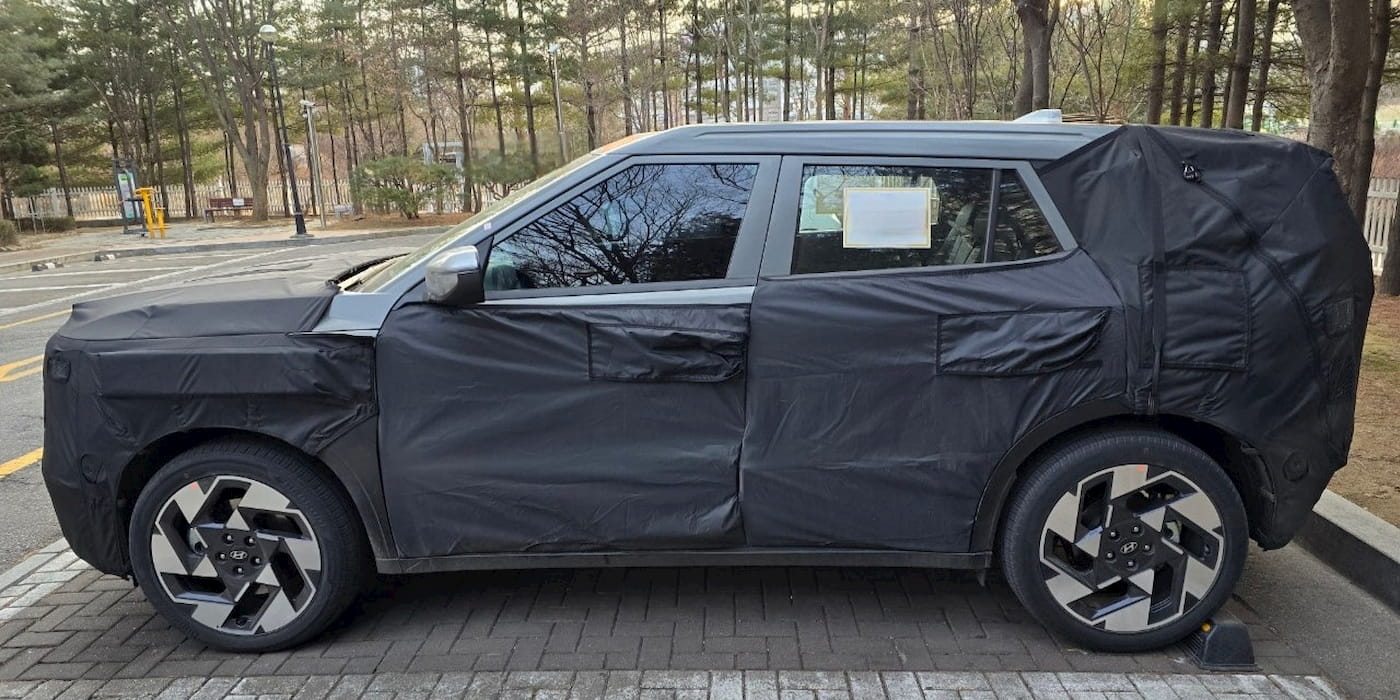
Is Hyundai bringing the Crater Concept to life? A covered electric SUV was spotted in the wild, which could give us our first clue.
more…
https://electrek.co/2026/02/12/new-hyundai-ev-spotted-looks-like-crater-suv-concept/
Surprise, there's a new God Of War game out—alongside the biggest trailers from today's State Of Play
(date: 2026-02-12)
Sony's big trailer event showed off new games or collections from several classic, semi-defunct franchises—including Castlevania, Metal Gear, and Dead Or Alive.
https://www.pastemagazine.com/games/god-of-war/state-of-play-trailers-god-of-war-sons-of-sparta
Hockey agitator: Why American Abbey Murphy continues to frustrate Canada
(date: 2026-02-12)

In a 5-0 thrashing of Canada, American forward Abbey Murphy drew not one, not two, but four penalties. She also had three assists. That's the recipe for how 23-year-old Murphy, who hasn't yet turned professional, has been able to frustrate her opponents.
https://www.cbc.ca/sports/olympics/winter/hockey/abbey-murphy-us-olympics-profile-2026-9.7085316?cmp=rss
California to launch investigation over delayed response to wildfire in Altadena
(date: 2026-02-12)
Civil rights inquiry will assess whether LA county fire department discriminated while responding to 2025 fires
The California department of justice has launched a civil rights investigation into whether Los Angeles county discriminated against the predominantly Black community of west Altadena when responding to last year’s Eaton fire.
The investigation will assess whether the fire response resulted in a “disparate impact” on west Altadena based on race, age or disability.
Continue reading...
https://www.theguardian.com/us-news/2026/feb/12/california-investigation-wildfire-response-altadena
Company in Alberta to turn cattle manure into natural gas, bury CO2
(date: 2026-02-12)

Manure from thousands of southern Alberta cattle will be used to supply renewable natural gas, while at the same time harmful carbon dioxide emissions will be buried, in a first-of-its-kind project.
https://www.cbc.ca/news/canada/calgary/taurus-canada-renewable-natural-gas-corp-alberta-facility-9.7087750?cmp=rss
Rivian (RIVN) Q4 and full 2025 earnings report: Tremendous YoY growth led by software
(date: 2026-02-12)

Rivian has just posted its letter to shareholders and earnings report, detailing its financial results and other accomplishments for Q4 2025 and the previous fiscal year.
more…
https://electrek.co/2026/02/12/rivian-rivn-q4-2025-earnings-report-yoy-growth/
Irishman held by ICE was issued warrant over 2009 drug offense in Ireland
(date: 2026-02-12)
Seamus Culleton has been held for five months despite having valid work permit and being married to US national
An Irish court apparently issued a warrant for the arrest of the Irish man currently embroiled in controversy with US Immigration and Customs Enforcement ( ICE), which has been ramping up detentions and activity around the United States since last year.
Seamus Culleton has spent five months in US custody and faces deportation despite having a valid work permit in a case that has attracted widespread publicity. His lawyer called him a “model immigrant” with no criminal record.
Continue reading...
https://www.theguardian.com/us-news/2026/feb/12/seamus-culleton-ice-detention-ireland-drug-charges
Ford is taking a page from BYD after the Chinese EV maker outsold it for the first time
(date: 2026-02-12)

After it was outsold by China’s BYD globally for the first time last year, CEO Jim Farley said Ford “isn’t backing away from EVs.” It’s betting on more affordable models that will start at around $30,000.
more…
https://electrek.co/2026/02/12/ford-takes-page-from-byd-after-chinese-ev-maker-outsold-it/
Will Trump Succeed in Jailing Don Lemon? A Legal Explainer
(date: 2026-02-12)
Constitutional law professor Kim Wehle examines the outrageous prosecution of the former CNN anchor while unpacking the Face Act, the First Amendment, and Trump's ongoing war on free speech.
https://zeteo.com/p/will-trump-succeed-in-jailing-don
Trump’s EPA repeals landmark climate finding in gift to ‘billionaire polluters’
(date: 2026-02-12)
Rollback of government’s ability to limit climate-heating pollution will make families ‘sicker and less safe’, environmental advocate says
The Trump administration has revoked the bedrock scientific determination that gives the government the ability to regulate climate-heating pollution. The move was described as a gift to “billionaire polluters” at the expense of Americans’ health.
The endangerment finding, which states that the buildup of greenhouse gases in the atmosphere endangers public health and welfare, has since 2009 allowed the Environmental Protection Agency (EPA) to limit heat-trapping pollution from vehicles, power plants and other industrial sources.
Continue reading...
https://www.theguardian.com/us-news/2026/feb/12/trump-epa-rollback-pollution-regulation-endangerment-finding
House members seek inquiry into DoJ’s tracking of their Epstein files research
(date: 2026-02-12)
US attorney general displayed records of Congress members’ searches into Epstein files during House hearing
Members of Congress are calling for investigations after discovering the Department of Justice created records of their research activities while they dug into files connected to Jeffrey Epstein.
Photographs taken by Reuters during a congressional hearing on Wednesday showed the US attorney general, Pam Bondi, holding a document titled “Jayapal Pramila Search History”, listing files that the Democratic US representative Pramila Jayapal had accessed during her review of the Epstein materials.
Continue reading...
https://www.theguardian.com/us-news/2026/feb/12/congress-doj-pam-bondi-epstein-files-searches
Genesis Mission won’t eliminate data boundaries — it will redefine them
(date: 2026-02-12)
Organizations best positioned to benefit from the Genesis Mission treat accountability as a design requirement built into their AI systems.
https://federalnewsnetwork.com/commentary/2026/02/genesis-mission-wont-eliminate-data-boundaries-it-will-redefine-them/
Winter Olympics: Chloe Kim settles for silver in snowboard halfpipe – as it happened
(date: 2026-02-12)
Japan’s Sena Tomita is the defending bronze medalist. She also runs into difficulty and will not be counting this run.
23.50
Continue reading...
https://www.theguardian.com/sport/live/2026/feb/12/winter-olympics-chloe-kim-goes-for-gold-in-womens-snowboard-halfpipe-live
Savannah Guthrie vows to ‘never give up’ as calls pour in over missing mother
(date: 2026-02-12)
Video of a masked suspect in Arizona spurs a surge of calls as the desert search near Tucson yields little evidence
The Today show host Savannah Guthrie promised to “never give up” on her missing mother, as authorities in Arizona made a public appeal for video footage recorded near her home in the weeks before her disappearance.
The developments came as investigators revealed they had received more than 18,000 calls about the case, and a search of desert terrain near Nancy Guthrie’s home on Wednesday came up mostly empty.
Continue reading...
https://www.theguardian.com/us-news/2026/feb/12/savannah-guthrie-mother-nancy-search
Chloe Kim thwarted in bid for Olympic halfpipe three-peat by South Korea’s Choi Gaon
(date: 2026-02-12)
The snowfall coming down on Livigno Snow Park on Thursday night helped produce one of the bigger Olympic upsets in snowboard history, as Chloe Kim’s bid to become the first rider to win three consecutive Olympic halfpipe gold medals fell just short.
Kim finished with a best score of 88.00 from her opening run, settling for silver behind surprise winner Choi Gaon of South Korea, whose heroic third run after an early fall earned 90.25 and rewrote the Olympic record books. Japan’s Mitsuki Ono took bronze with 85.00.
Continue reading...
https://www.theguardian.com/sport/2026/feb/12/chloe-kim-third-straight-olympic-halfpipe-gold-livigno
Can AI bots help us find love?
(date: 2026-02-12)
With Valentine’s Day around the corner, in this episode we’re taking a look at what it’s like to be looking for love right now — and the technology that’s meant to help us do it. Lots of dating apps are integrating AI features these days, but are they making it easier to find real-life connections? We talk to Jason Parham, senior writer at Wired magazine, to try to find out.
https://www.marketplace.org/episode/2026/02/12/can-ai-bots-help-us-find-love
New IG audit raising questions about oversight on the Pentagon’s costliest program
(date: 2026-02-12)
"Our overall finding was that the department did not adequately oversee Lockheed Martin's performance on the sustainment contract," Chris DePerro said.
https://federalnewsnetwork.com/contracting/2026/02/new-ig-audit-raising-questions-about-oversight-on-the-pentagons-costliest-program/
The 2027 Toyota Highlander Gets An EV Feature Most Teslas Don't Have
(date: 2026-02-12)
Toyota is getting far more serious about EVs, and the Highlander's bidirectional charging proves it.
https://insideevs.com/news/787176/toyota-highlander-ev-bidirectional-charging-2026/
Wagons are suddenly hot as EVs, and Volvo wants a piece
(date: 2026-02-12)

Wagons are making a comeback in electric form. Although Volvo is set to produce its last wagon this April, it could return as an EV.
more…
https://electrek.co/2026/02/12/wagons-suddenly-hot-as-evs-volvo-wants-a-piece/
US judge blocks Hegseth’s bid to punish Mark Kelly over ‘illegal orders’ video
(date: 2026-02-12)
Judge reprimands defense secretary over attempt to reduce Arizona senator’s military rank and pension
A US judge on Thursday blocked the Pentagon from reducing Senator Mark Kelly’s retired military rank and pension pay because he urged troops to reject unlawful orders.
The preliminary ruling by Richard Leon, a George W Bush appointee, is the latest setback for Donald Trump in his campaign of vengeance against perceived political enemies, which has drawn opposition from judges across the ideological spectrum.
Continue reading...
https://www.theguardian.com/us-news/2026/feb/12/judge-hegseth-mark-kelly-military-rank
Exclusive $1,500 off Gendome Home3000 power station at new $799 low, NIU KQi 300X all-terrain e-scooter $727 low, EcoFlow, more
(date: 2026-02-12)

Leading today’s Green Deals is the exclusive \(1,500 discount on the Gendome Home3000 Portable Power Station](https://9to5toys.com/2026/02/12/exclusive-gendome-home3000-power-station-new-879-low/) that features a 50-minute AC fast-charge, wind charging functionality, smart home integration, and more – all at a [new \)799 low. Right behind it we have NIU’s Valentine’s Day e-scooter sale that dropped the KQi 300X All-Terrain Suspension Electric Scooter to a new \(727 low](https://9to5toys.com/2026/02/12/nius-v-day-sale-kqi-300x-e-scooter-new-727-low-more/), as well as [EcoFlow’s latest 24-hour flash sale](https://9to5toys.com/2026/02/12/ecoflow-delta-3-classic-delta-3-max-solar-bundle-399-and-1199-today-only-more/) on the DELTA 3 Classic power station, a 400W DELTA 3 Max solar bundle, and add-on accessories [starting from \)399. We also spotted a 40V Greenworks string trimmer at its second-best price in a year and a half, and more waiting for you below – including a special LEGO reveal of the more eco-conscious Maesk Dual Fuel Container Vessel set. And don’t forget the hangover deals at the bottom of the page, like yesterday’s $907 savings on the premium Tenways AGO X All-Terrain Mid-Drive e-bike at its lowest price, the Autel 50A Smart AI-optimized EV Charger at its lowest price, and more.
Head below for other New Green Deals we’ve found today and, of course, Electrek’s best EV buying and leasing deals. Also, check out the new Electrek Tesla Shop for the best deals on Tesla accessories.
more…
https://electrek.co/2026/02/12/exclusive-gendome-home3000-power-station-799-low-niu-kqi-300x-all-terrain-e-scooter-ecoflow-more/
The "Video Game Company Layoff Roulette" ball lands on Ubisoft… again
(date: 2026-02-12)
The Assassin's Creed creator has announced that it'll be inviting 200 employees to participate in a "voluntary departure plan."
https://www.pastemagazine.com/games/ubisoft/ubisoft-video-game-industry-layoffs
The scandals clouding ‘sinister’ French ice dancers who beat Chock and Bates for gold
(date: 2026-02-12)
Fournier Beaudry and Cizeron’s Olympic competition is set against backdrop of assault and abuse allegations involving their former partners
The American duo of Madison Chock and Evan Bates, the reigning three-time world champions contentiously missed out on Olympic ice dance gold on Wednesday despite a flawless skate. But the controversy surrounding the event is not merely a debate over artistic and technical merits.
Gold went by a narrow margin to the French duo of Laurence Fournier Beaudry and Guillaume Cizeron. It was a stunning achievement for a partnership that is less than a year old. But the union was forged after the fallout from sexual assault allegations levelled at Fournier Beaudry’s boyfriend and former ice dance partner, while Cizeron is the subject of allegations of abusive conduct from his erstwhile skating partner.
Continue reading...
https://www.theguardian.com/sport/2026/feb/12/french-ice-dancing-controversy
VA rolled out new AI tools quickly, but without a system to catch mistakes, patient safety is on the line
(date: 2026-02-12)
"It's a flashing yellow, it's a caution. AI can be a great tool and should be used as a tool and that is what we're advising the department," Cheryl Mason said.
https://federalnewsnetwork.com/veterans-affairs/2026/02/va-rolled-out-new-ai-tools-quickly-but-without-a-system-to-catch-mistakes-patient-safety-is-on-the-line/
Comings and goings: Public Media Infrastructure announces board, VPM hires CFO …
(date: 2026-02-12)
LaFontaine Oliver will be the inaugural board chair for Public Media Infrastructure.
The post Comings and goings: Public Media Infrastructure announces board, VPM hires CFO … appeared first on Current.
https://current.org/2026/02/comings-and-goings-public-media-infrastructure-announces-board-vpm-hires-cfo/?utm_source=rss&utm_medium=rss&utm_campaign=comings-and-goings-public-media-infrastructure-announces-board-vpm-hires-cfo
US officials announce end of immigration crackdown in Minnesota – video
(date: 2026-02-12)
The White House's border czar, Tom Homan, announced on Thursday that a significant drawdown of immigration enforcement agents in Minnesota was under way and he had proposed that the surge there should conclude. Tim Walz, the state's Democratic governor, told reporters he was 'cautiously optimistic'
Continue reading...
https://www.theguardian.com/us-news/video/2026/feb/12/officials-announce-end-of-immigration-crackdown-in-minnesota-video
Air Transat aims to repatriate all its customers in Cuba within days
(date: 2026-02-12)

Air Transat says it plans to bring home thousands of Canadians from Cuba in the coming days, at a time when Ottawa is telling people to avoid delaying their exit from the island country.
https://www.cbc.ca/news/world/air-transat-cuba-repatriation-flights-9.7087187?cmp=rss
EPA finalizes illegal dirty air plan to hike fuel costs 76c/gal, despite public outcry
(date: 2026-02-12)

In July, the US Environmental Protection Agency proposed a plan to delete its scientific finding recognizing that greenhouse gases are harmful to human health, with the goal of making cars less efficient, deadlier and more costly. Public comments widely opposed the plan, but now before the agency has barely even started reading those comments, it announced todaythat it’s going through with its illegal plan anyway.
( Update: This article has been updated to reflect that the finalization was announced in a press conference today)
more…
https://electrek.co/2026/02/12/epa-set-to-finalize-illegal-dirty-air-plan-to-hike-fuel-costs-76c-gal-despite-outcry/
Art exhibit celebrates the work of painter killed in Lapu-Lapu Day attack
(date: 2026-02-12)

When Nadine Kelln and Jenifer Darbellay first learned they were going to get to do an art show together, they were beyond elated. But before it could ever come to fruition, Darbellay was killed in last year's attack on the Lapu-Lapu Day street festival in Vancouver. Now, the show will go on in her honour.
https://www.cbc.ca/radio/asithappens/jenifer-darbellay-exhibit-9.7087472?cmp=rss
David Boreanaz to star in The Rockford Files reboot pilot
(date: 2026-02-12)
Boreanaz will take on the role of low-rent L.A. private eye Jim Rockford, played by James Garner in the original series.
https://www.pastemagazine.com/tv/david-boreanaz-star-rockford-files-reboot-pilot
The leader of a major federal employee union is stepping down
(date: 2026-02-12)
Saunders will step down in August after the union elects a new president.
https://federalnewsnetwork.com/federal-newscast/2026/02/the-leader-of-a-major-federal-employee-union-is-stepping-down/
First Nations in northern B.C. offer condolences, support to Tumbler Ridge after mass shooting
(date: 2026-02-12)

First Nations in northern B.C. are sending condolences and offers of support to Tumbler Ridge where eight people were killed and more than two dozen others injured in a mass shooting Tuesday.
https://www.cbc.ca/news/indigenous/tumbler-ridge-first-nations-condolences-9.7084895?cmp=rss
Can the Courts Rein Trump In? Former White House Special Counsel Weighs In
(date: 2026-02-12)
John Harwood asks Norm Eisen whether the Supreme Court has enabled Trump’s lawlessness.
https://zeteo.com/p/norm-eisen-trump-midterms
More Perfect Union Goes Deep on the Pepsi and Walmart Conspiracy
(date: 2026-02-12)
A More Perfect Union documentary explains a Pepsi/Walmart price discrimination scheme — exposed by an FTC lawsuit unsealed by ILSR.
https://ilsr.org/article/independent-business/more-perfect-union-pepsi-walmart
Anthropic to donate $20m to US political group backing AI regulation
(date: 2026-02-12)
Move puts AI firm in opposition to ChatGPT maker OpenAI, which has advocated for less stringent AI regulations
Anthropic will spend $20m to back US political candidates who support regulating the AI industry, according to a company statement released on Thursday. Anthropic’s donation puts it in opposition to the ChatGPT maker OpenAI, which has advocated for less stringent regulation of AI.
The company is donating to Public First Action, a political group that opposes federal efforts to quash state AI regulations like a December executive order issued by Donald Trump. One of the candidates that the group is backing is Republican Marsha Blackburn, who is running for governor in Tennessee and who opposed an effort in Congress to bar states from passing AI laws.
Continue reading...
https://www.theguardian.com/technology/2026/feb/12/anthropic-donation-ai-regulation-politics
Waymo begins fully autonomous ops with 6th-gen Driver, targets 1M weekly rides
(date: 2026-02-12)

Waymo is now running its 6th-generation Driver without safety drivers on public roads, marking the beginning of fully autonomous operations with the company’s latest and most cost-effective hardware stack.
The announcement, authored by Waymo VP of Engineering Satish Jeyachandran, confirms that the 6th-generation system, first unveiled in August 2024, is now validated for driverless operations across multiple cities. Waymo describes it as the product of seven years of service and nearly 200 million fully autonomous miles logged across 10+ major U.S. cities.
more…
https://electrek.co/2026/02/12/waymo-begins-fully-autonomous-ops-with-6th-gen-driver-targets-1m-weekly-rides/
Subaru is next in line to launch a three-row electric SUV: Here’s what to expect
(date: 2026-02-12)

Toyota isn’t the only one releasing a three-row electric SUV in 2026. Subaru confirmed the new EV will arrive in showrooms later this year, and we already have a good idea of what to expect.
more…
https://electrek.co/2026/02/12/subaru-about-to-launch-3-row-ev-suv-what-to-expect/
Baby Reindeer's Jessica Gunning to make her own kind of music in Cass Elliot biopic
(date: 2026-02-12)
Emmy-winner Jessica Gunning will be doing some California Dreamin' as the star of the upcoming biopic My Mama Cass.
https://www.pastemagazine.com/movies/cass-elliot/jessica-gunning-star-in-my-mama-cass-elliot-biopic
Trump named ‘undisputed champion of beautiful clean coal’ by industry group
(date: 2026-02-12)
Award was presented as president directed Pentagon to buy billions of dollars’ worth of energy from coal plants
Donald Trump was crowned the “undisputed champion of beautiful clean coal” during a White House ceremony on Wednesday, during which the president received a trophy after ordering the US defense department to purchase billions of dollars’ worth of power from coal plants.
The award was reportedly granted by the Washington Coal Club, an advocacy group with financial ties to the coal industry.
Continue reading...
https://www.theguardian.com/us-news/2026/feb/12/trump-clean-coal-award
BYD, Geely bid for 230,000-unit Nissan-Mercedes Mexico plant in North American push
(date: 2026-02-12)

BYD and Geely are among three finalists competing to purchase a Nissan-Mercedes-Benz joint venture plant in Aguascalientes, Mexico, according to a Reuters exclusive report. The plant, which has a production capacity of 230,000 vehicles per year, would give either Chinese automaker an instant manufacturing foothold in North America, bypassing years of regulatory delays that have stalled their greenfield factory plans in the country.
The third finalist is Vietnamese EV maker VinFast. The three were selected from a pool of nine companies that expressed interest, including Chinese automakers Chery and Great Wall Motor.
more…
https://electrek.co/2026/02/12/byd-geely-bid-unit-nissan-mercedes-mexico-plant-north-american-push/
Turns out, customers like when things are cheaper
(date: 2026-02-12)
Who would’ve thought? Last month, PepsiCo cut snack prices. McDonald's has been cutting prices, too, and said it's paying off. Yesterday, the company released better-than-expected results for the tail end of 2025. Also, big revisions to datasets like yesterday's jobs report are becoming more common in an economy undergoing big shifts, and Germany is looking to recruit foreign-born skilled workers as harsher immigration policy and rhetoric make the U.S. less appealing.
https://www.marketplace.org/episode/2026/02/12/turns-out-customers-like-when-things-are-cheaper
Review: My Father’s Shadow — Movies for the Rest of Us with Bill Newcott
(date: 2026-02-12)
My Father’s Shadow immerses its audience in a world of perils and personalities that ring with authenticity.
Review: My Father’s Shadow — Movies for the Rest of Us with Bill Newcott
The Saturday Evening Post
https://www.saturdayeveningpost.com/2026/02/review-my-fathers-shadow-movies-for-the-rest-of-us-with-bill-newcott/
Tesla gets 30-day extension to oppose ‘Cybercab’ trademark held by squatter
(date: 2026-02-12)

Tesla has been granted a 30-day extension by the U.S. Patent and Trademark Office (USPTO) to decide whether to formally oppose UNIBEV’s “Cybercab” trademark application, pushing Tesla’s deadline to March 14, 2026. The extension comes as Tesla prepares to begin mass production of the vehicle — whatever it ends up being called, in April.
According to USPTO Trademark Trial and Appeal Board (TTAB) records, Tesla filed the extension request on February 11, 2026, and it was granted the same day. The move signals that Tesla is not ready to walk away from the “Cybercab” name, but it’s also not ready to launch a full legal fight over it.
more…
https://electrek.co/2026/02/12/tesla-gets-30-day-extension-to-oppose-cybercab-trademark-held-by-squatter/
Kia’s electric van gets its first camping kit that turns the PV5 into a campsite in minutes
(date: 2026-02-12)

Kia’s electric van really can do it all. VanLab delivered the first PV5 camping kit that transforms it into a campsite, remote workspace, and more in minutes. All you need is a screwdriver.
more…
https://electrek.co/2026/02/12/kia-pv5-first-camping-kit-full-on-campsite-in-minutes/
Trump’s multibillion lawsuit against BBC over Panorama edit set for Florida trial in 2027
(date: 2026-02-12)
Corporation denies defamation but must hand over revealing documents after judge dismisses jurisdiction argument
President Trump’s multibillion dollar lawsuit against the BBC over the editing of one of his speeches has been set for a year’s time.
In a blow to the corporation, the Florida judge has also rejected the BBC’s attempt to put off disclosing internal documents relating to the episode of Panorama that contained the spliced version of Trump’s 2021 address.
Continue reading...
https://www.theguardian.com/media/2026/feb/12/trumps-lawsuit-bbc-panorama-edit-florida-trial-in-2027
Bondi attacks Dems during Epstein testimony
(date: 2026-02-12)

U.S. Attorney General Pam Bondi attacked Democrats during her fiery House Judiciary Committee testimony as she faced criticism from lawmakers over the Justice Department's handling of the Epstein files.
https://www.cbc.ca/player/play/9.7087182?cmp=rss
Trump’s pick for top diplomatic role faces scrutiny over ‘white supremacist’ views
(date: 2026-02-12)
Jeremy Carl, assistant secretary of state nominee, has espoused ‘racist, antisemitic’ views, says non-profit leader
Donald Trump’s pick for a top diplomatic post has championed “white supremacist, racist, antisemitic and homophobic views”, a former US state department official has warned.
Jeremy Carl is set to go before the Senate foreign relations committee on Thursday as the president’s nominee for assistant secretary of state for international organisations, a role that involves managing relationships with and policies toward the United Nations and its agencies.
Continue reading...
https://www.theguardian.com/us-news/2026/feb/12/trump-nominee-jeremy-carl-racist-views
Why is the U.S. cutting Cuba off from the rest of the world? | About That
(date: 2026-02-12)

U.S. President Donald Trump is applying severe economic pressure to an already-strained Cuba mired in a food and power crisis. Andrew Chang explains why the U.S. is choosing now to cut off the country's oil supply, and why, for Trump and U.S. Secretary of State Marco Rubio, it's also personal.
https://www.cbc.ca/player/play/9.7087026?cmp=rss
Climate leaders condemn Trump EPA’s biggest rollback yet: ‘This is corruption’
(date: 2026-02-12)
Leaders promise to fight back with court challenges as Trump rescinds finding foundational to US climate rules
Climate leaders gathered outside the Environmental Protection Agency (EPA) headquarters on Wednesday to condemn the Trump administration’s plans to repeal the legal finding underpinning all federal climate regulations, and promised to fight against the rollback.
“This is corruption, plain and simple. Old fashioned, dirty political corruption,” said Sheldon Whitehouse, senator for Rhode Island, at the rally. “This is an agency that has been so infiltrated by the corrupt fossil fuel industry that it has turned an agency of government into the weapon of the fossil fuel polluters.”
Continue reading...
https://www.theguardian.com/us-news/2026/feb/12/climate-trump-epa-biggest-rollback
Survivor of 1975 Ottawa school shooting reflects on trauma and the need for compassion
(date: 2026-02-12)

As the country tries to come to grips with the shooting in Tumbler Ridge, B.C., this week, a prominent New Democrat stepped forward to share the horror of the school shooting she survived and to impart her hopes for those impacted by this latest tragedy.
https://www.cbc.ca/news/politics/mcgrath-st-pius-school-shooting-9.7087001?cmp=rss
Why Is the World Silent When the Gaza Genocide Is Not Over?
(date: 2026-02-12)
Diana Buttu on how Israel continues to kill, starve, and imprison Palestinians as the world remains distracted by the words ‘peace’ and ‘process’ and ‘boards’ and ‘plans.’
https://zeteo.com/p/why-is-the-world-silent-when-the
Here's to the film romances that capture the indecision of the human heart
(date: 2026-02-12)
Understanding the power of indecisive rom-coms, the "love 'em and leave 'em (and then maybe come back to 'em)" love stories.
https://www.pastemagazine.com/movies/love-week/indecisive-romances-rom-coms-marty-supreme
Ontario police officer cleared in shooting death of First Nation man in makeshift courtroom
(date: 2026-02-12)

Ontario’s police watchdog has cleared an officer of any wrongdoing in connection with the shooting death of a 23-year-old man in Wapekeka First Nation. Here's what we know about the case in the remote Oji-Cree community, which took place in a makeshift courtroom inside a youth centre.
https://www.cbc.ca/news/canada/thunder-bay/tyresse-roundsky-siu-report-9.7086936?cmp=rss
US border czar says immigration crackdown in Minnesota will ‘conclude’
(date: 2026-02-12)
Tom Homan says that Trump has backed ‘significant drawdown’ in the state, where two US citizens have died
The Trump administration has claimed it is drawing down its immigration crackdown in Minnesota that led to the death of two US citizens, mass detentions and widespread protests.
The move was announced by Tom Homan, the US border czar, at a press briefing on Thursday.
Continue reading...
https://www.theguardian.com/us-news/2026/feb/12/minnesota-ice-operation-retreat
New Jersey governor bans immigration agents from some state property
(date: 2026-02-12)
Mikie Sherrill, a Democrat, also launches online portal for residents to share footage of ICE enforcement activity
New Jersey governor Mikie Sherrill has banned immigration agents from some state property and launched an online portal for residents to share videos and photos of enforcement activity.
Sherrill, a Democrat, signed an executive order on Wednesday which prohibits immigration officers from access to non-public portions of state-owned property if they don’t have a judicial warrant, according to NJ.com. The prohibition also bars immigration agents from using state property as bases for enforcement operations.
Continue reading...
https://www.theguardian.com/us-news/2026/feb/12/new-jersey-immigration-ice-ban
Hometown Olympian’s success inspires youngsters with Saskatoon Freestyle Ski Club
(date: 2026-02-12)

Maïa Schwinghammer, born and raised in Saskatoon, has quite a following at home after her Olympic debut in mogul skiing.
taking for Canada
https://www.cbc.ca/news/canada/saskatchewan/olympian-maia-schwinghammer-inspires-saskatoon-freestyle-ski-club-9.7087037?cmp=rss
Canadian restaurants struggling to turn a profit, new report says
(date: 2026-02-12)

A survey of Restaurants Canada members found that 44 per cent of respondents were either operating at a loss or just breaking even — up from 2019 when only 12 per cent of respondents were in that same financial position. Restaurateurs and experts say less traffic at restaurants and rising costs are making it hard to do business.
https://www.cbc.ca/news/business/restaurants-struggling-financially-9.7086668?cmp=rss
Trump-nominated antitrust chief exits after attempting to enforce antitrust laws
(date: 2026-02-12)
Gail Slater, once an advisor to Vice President Vance, announced her departure following months of clashes with the Trump administration.
https://www.pastemagazine.com/media/live-nation/gail-slater-trump-antitrust-chief-resigns
Olympic champion Breezy Johnson crashes out of super-G then gets engaged at end of course
(date: 2026-02-12)
Olympic downhill champion Breezy Johnson didn’t add to her medal haul during the women’s super-G on Thursday, but she left Tofane with something precious anyway: an engagement ring.
Johnson, who won gold on Sunday in the downhill, crashed out of the super-G after she clipped a gate with one of her poles, sending her tumbling into the safety fence. However, there was some consolation: her boyfriend, Connor Watkins, proposed to her near the finish line. Surrounded by members of the US Ski Team, Johnson said “Yes!” and the two embraced.
Continue reading...
https://www.theguardian.com/sport/2026/feb/12/breezy-johnson-engagement-winter-olympics-super-g
5 songs you need to hear this week (February 12, 2026)
(date: 2026-02-12)
This week's best new songs roundup features MUNA’s wall-banging pop perfection, Kevin Morby’s cosmic Bible Belt adventure, and E L U C I D’s anti-empire wisdom.
https://www.pastemagazine.com/music/best-new-songs/best-new-songs-february-12-2026
Mahmoud Khalil is still fighting for others as he fights his own deportation: ‘It’s about raising the alarm’
(date: 2026-02-12)
The case of the Palestinian activist, the face of 2024’s US campus protests, could have repercussions for thousands
Despite his grim circumstances, Mahmoud Khalil can’t help but laugh.
Walking through Congress’s hallowed halls, the Palestinian student activist, who may be inching toward deportation, has a lightness to him. He is quick with a smile – and not yet ready to waver. He admits he’s in “the scary part” of his ordeal, but he has a new reason to like his odds.
Continue reading...
https://www.theguardian.com/us-news/2026/feb/12/mahmoud-khalil-deportation-fight
Wild at Home
(date: 2026-02-12)
Cultivating native plant species can create a yard that heals.
Wild at Home
The Saturday Evening Post
https://www.saturdayeveningpost.com/2026/02/wild-at-home/
When some people drive EVs, entire communities can benefit
(date: 2026-02-12)

In this issue of our environmental newsletter, we look at the benefits for entire communities when some people drive EVs; find out about a winter drought in Western Canada; and learn why a northern community wants an oil company to remove artificial islands in the Mackenzie River.
https://www.cbc.ca/news/climate/what-on-earth-evs-benefits-9.7086135?cmp=rss
Tesla (TSLA) sales in China crash 45% to lowest level in over three years
(date: 2026-02-12)

Tesla’s domestic sales in China collapsed 45% year-over-year in January, falling to just 18,485 units — the automaker’s lowest monthly retail figure in the country since November 2022. The data, released today by the China Passenger Car Association (CPCA), paints a grim picture of Tesla’s demand in the world’s largest EV market.
The figure represents an 80% plunge from December’s record-high 93,843 domestic deliveries. While seasonal declines between December and January are normal in China, a 45% year-over-year drop is not.
more…
https://electrek.co/2026/02/12/tesla-tsla-sales-in-china-crash-45-to-lowest-level-in-over-three-years/
Girl injured in chairlift mishap clinging to life in hospital, police say
(date: 2026-02-12)

A 13-year-old girl who was seriously injured in a chairlift mishap during a school trip to a western Quebec ski hill is clinging to life in hospital, according to local police.
https://www.cbc.ca/news/canada/ottawa/police-investigation-ski-lift-centre-vorlage-9.7086743?cmp=rss
Teacher part of traditional games instructor training ‘honoured’ to share her knowledge
(date: 2026-02-12)

A handful of teachers are running a week-long clinic from Indigenous Sports Circle Northwest Territories, sharing their knowledge with participants on how to coach Dene Games and Northern Games.
https://www.cbc.ca/news/canada/north/dene-games-northern-games-instructor-training-9.7085622?cmp=rss
SBA proposes to terminate 154 companies from 8(a) program
(date: 2026-02-12)
SBA sent firms three letters yesterday: a suspension letter; a letter of intent to terminate; and a voluntary withdrawal agreement as part of its ongoing audit.
https://federalnewsnetwork.com/acquisition-policy/2026/02/sba-proposes-to-terminate-154-companies-from-8a-program/
Who needs a financial advisor when you have AI?
(date: 2026-02-12)
Jittery investors continue to punish stocks of companies that may (or may not) face major disruption from artificial intelligence. Last week, it was software firms, then insurance brokers. Now, it’s financial brokerages that offer people planning advice — the likes of Charles Schwab, Raymond James, and Ameriprise. But what's lost when we lose human capabilities in financial services? Plus, U.S. allies like Canada and the U.K. are increasingly turning to China for trade deals.
https://www.marketplace.org/episode/2026/02/12/who-needs-a-financial-advisor-when-you-have-ai
Fundraiser for James Van Der Beek’s family surpasses $1m in under 24 hours
(date: 2026-02-12)
Dawson’s Creek star, who died on Tuesday, had been open about struggling to meet high expenses of cancer treatment
A GoFundMe set up to support the widow and children of actor James Van Der Beek has raised more than $1m as thousands of people donated within hours of its launch.
Van Der Beek, best known for his role as sensitive teen Dawson Leery on the TV series Dawson’s Creek, died on Tuesday aged 48. He had bowel cancer.
Continue reading...
https://www.theguardian.com/us-news/2026/feb/12/james-van-der-beek-fundraiser-wife-kimberly-children
How To Get To Heaven From Belfast takes you on an entertaining, albeit bumpy, ride
(date: 2026-02-12)
This buddy dramedy from Derry Girls' Lisa McGee has a few too many detours.
https://www.pastemagazine.com/tv/how-to-get-to-heaven-from-belfast/how-to-get-to-heaven-from-belfast-review-netflix
Ex-Barclays boss Jes Staley was trustee of Jeffrey Epstein’s estate until 2015, files say
(date: 2026-02-12)
Information appears to contradict court testimony by banker in 2025 over nature of ties to convicted sex offender
The former Barclays boss Jes Staley was named as a trustee of Jeffrey Epstein’s estate until at least May 2015, according to documents that appear to contradict court testimony given by the banker.
This month the Guardian revealed that US prosecutors had reviewed allegations of rape and bodily harm against Staley, who denies any wrongdoing. He has never been charged with a crime related to the allegations.
Continue reading...
https://www.theguardian.com/business/2026/feb/12/ex-barclays-boss-jes-staley-was-trustee-of-jeffrey-epstein-estate-until-2015-files-say
Republicans, Democrats want to hear from government about anti-drone laser that closed El Paso airport
(date: 2026-02-12)

The brief shutdown of El Paso airport by the Federal Aviation Administration because of safety concerns posed by the use of a military laser-based anti-drone system was unacceptable, the top Democrat on the Senate's commerce committee said on Thursday.
https://www.cbc.ca/news/world/el-paso-airport-closure-9.7086710?cmp=rss
Stranded In -35°F: Here’s How Long A Tesla Model 3 Can Keep You Warm
(date: 2026-02-12)
A 2024 Tesla Model 3 was left outside in one of the world’s coldest places. It still kept the interior temperature comfortable.
https://insideevs.com/news/787132/tesla-model-3-stranded-freezing-cold-night/
Safety board provides update on Delta airlines crash at Pearson airport
(date: 2026-02-12)

It's still "too early" to draw conclusions about the cause of the Delta Air Lines plane crash at Toronto's Pearson Airport, the Transportation Safety Board of Canada said Thursday in an update on its investigation as the one-year anniversary of the incident approaches.
https://www.cbc.ca/news/canada/toronto/delta-airlines-crash-update-9.7086807?cmp=rss
Conservative MP refusing pay bump was heckled, admonished by his colleagues
(date: 2026-02-12)

The Conservative MP who went public with his intent to refuse a pending parliamentary pay increase was called out by the party whip in front of his colleagues and heckled as he tried to defend his decision, CBC News has learned.
https://www.cbc.ca/news/politics/conservative-mp-pay-bump-heckled-chastised-9.7086772?cmp=rss
Tuition set to rise, OSAP grants lower with new Ontario post-secondary funding changes: minister
(date: 2026-02-12)

The province announced billions in new funding for Ontario's colleges and universities Thursday, along with the end of a years-long tuition freeze and changes to the Ontario Student Assistance Program grant structure.
https://www.cbc.ca/news/canada/toronto/ontario-college-university-funding-osap-9.7086776?cmp=rss
Military police 'rushed to judgment' before officer's suicide, watchdog finds
(date: 2026-02-12)

Canada's military police watchdog is sharply criticizing the handling of a sexual assault investigation involving Maj. Cristian Hiestand, an air force officer who took his own life in January 2022.
https://www.cbc.ca/news/politics/military-police-sexual-assault-investigation-misconduct-9.7086691?cmp=rss
Russia bans WhatsApp
(date: 2026-02-12)
From the BBC World Service: Russia has ordered a block on WhatsApp, the Kremlin confirmed. The app has more than 100 million users in Russia, who have now been cut off from the platform, and the Russian government is pushing users to download Max, Russia's state-owned messaging platform. Then, China’s carbon dioxide emissions fell by 0.3% in 2025, the first full year to show a decline. And, as summers get hotter, Europeans are looking to "coolcation" in colder climes.
https://www.marketplace.org/episode/2026/02/12/russia-bans-whatsapp
📉 It’s The Economy, (You) Stupid (Fascist)
(date: 2026-02-12)
One of Trump’s favorite pollsters warns he’d lose to Biden in an election held today. Plus, the DOJ is spying on lawmakers who search the Epstein files, and a balloon gets mistaken for... a drone.
https://zeteo.com/p/first-draft-trump-economy-epstein-bondi
Over 30 measles cases and counting from Brandon's Ag Days, chief doctor says
(date: 2026-02-12)

Manitoba's health system is inundated with surging flu rates and an ongoing measles outbreak, the province's chief public health officer says.
https://www.cbc.ca/news/canada/manitoba/manitoba-respiratory-virus-measles-rates-roussin-9.7086440?cmp=rss
‘Another way to gamble money’: booming prediction markets prompt confusion and concern
(date: 2026-02-12)
Polymarket and Kalshi are less regulated than betting sites, but users can win or lose large sums on the platforms
Yadin Eldar, 21, has been betting on prediction markets since 2019. His friends think he’s “crazy”, he said. But the craze surrounding these platforms is rapidly gathering steam.
Users can bet on virtually anything, from the outcome of Sunday’s Super Bowl to whether the US will invade Greenland, every second of every day.
Continue reading...
https://www.theguardian.com/us-news/2026/feb/12/prediction-markets-polymarket-kalshi-online-gambling
6 GOP reps defy Trump to block Canadian tariffs. And, student loan defaults rise
(date: 2026-02-12)
Six House Republicans joined Democrats to successfully block Trump's Canadian tariffs. And, roughly a million borrowers defaulted on their federal student loans last year.
https://www.npr.org/2026/02/12/g-s1-109764/up-first-newsletter-canadian-tariffs-job-market-immigration-testimony-clean-air-act
Crypto’s big growth on the books and in the shadows
(date: 2026-02-12)
Cryptocurrency is being used more frequently in illegal transactions — about $158 billion was used in illicit crypto activity last year. That’s an all-time high, according to a new report from the startup TRM Labs. This comes as the overall crypto ecosystem is growing and, it should be said, legitimate uses of crypto are growing at a faster rate than illegitimate ones. Marketplace’s Stephanie Hughes spoke with Ari Redbord, global head of policy at TRM Labs and one of the authors of the new report, to learn more.
https://www.marketplace.org/episode/2026/02/12/cryptos-big-growth-on-the-books-and-in-the-shadows
Nicolas Cage ditches the responsibility and the power in a mumbly first Spider-Noir trailer
(date: 2026-02-12)
The first trailer for Spider-Noir doesn't back away from the weirdness of its "Nicolas Cage, private eye superhero" concept.
https://www.pastemagazine.com/tv/spider-noir/spider-noir-trailer-nic-cage
A Pochettino-Spurs reunion would need patience from an impatient club
(date: 2026-02-12)
Thomas Frank’s dismissal leaves a desperate Spurs looking to its recent past, among other places, for answers
Tottenham Hotspur have tried everything. After sacking Mauricio Pochettino in November 2019 – five months after the club’s first Champions League final, with Spurs sitting 14th in the league and sleepwalking to second place in a weak UCL group – There came a pair of chronic (if cantankerous) title winners: José Mourinho and Antonio Conte. They gave a pragmatist (Nuno Espírito Santo) a Big Six test and moved on when performances instantly stagnated. Then arrived Ange Postecoglou; a staunch tactical ideologue whose principles excited at first before becoming a liability.
Thomas Frank, though, seemed like the appointment most reminiscent of Pochettino’s 2014 arrival. Both raised relatively unfancied clubs to prominence and established firm operational bedrocks. Both spoke about the importance of culture as much as on-field Xs and Os. Neither had been tested at a club of this caliber.
Continue reading...
https://www.theguardian.com/football/2026/feb/12/mauricio-pochettino-tottenham-hotspur-thomas-frank
Love Story is more tragedy porn than American fairytale
(date: 2026-02-12)
John F. Kennedy Jr. and Carolyn Bessette's famed relationship hits FX.
https://www.pastemagazine.com/tv/love-story-john-f-kennedy-jr-carolyn-bessette/love-story-john-f-kennedy-jr-and-carolyn-bessette-review-fx
Syria's leader targeted for assassination often, UN report says, as U.S. hands over military base
(date: 2026-02-12)

Syrian government forces have taken control of a base in the east of the country that was run for years by U.S. troops as part of the war against the Islamic State group, the defence ministry said in a statement on Thursday.
https://www.cbc.ca/news/world/syria-sharaa-report-tanf-base-developments-9.7086217?cmp=rss
Didn't tell CAO to disclose $200K cheque from contractor, former mayor testifies at Winnipeg police HQ inquiry
(date: 2026-02-12)

https://www.cbc.ca/news/canada/manitoba/livestory/winnipeg-police-hq-inquiry-sam-katz-testifies-9.7085842?cmp=rss
COVER STORY | hemlocke springs is boredom’s remedy
(date: 2026-02-12)
After two viral singles put her on stages with superstars, Naomi Udu is ready to unveil her debut album. The LA producer and performer sat down with Paste to talk online celebrity, working with BURNS, keeping in touch with her past selves, and getting personal on the apple tree under the sea.
https://www.pastemagazine.com/music/hemlocke-springs/cover-story-hemlocke-springs-is-boredoms-remedy
'I realized I’m being raped': Witness outlines alleged attack by Frank Stronach at condo as trial begins
(date: 2026-02-12)

One of seven complainants in the first sex assault trial for Frank Stronach told court on Thursday that she recalls waking up in a downtown Toronto condo with the billionaire businessman on top of her.
https://www.cbc.ca/news/canada/toronto/frank-stronach-trial-sexual-assault-9.7086207?cmp=rss
Trump border czar says controversial Minneapolis immigration operation to end
(date: 2026-02-12)

The immigration crackdown in Minnesota that led to mass detentions, protests and the deaths of two U.S. citizens is nearing an end, U.S. President Donald Trump's border czar said Thursday.
https://www.cbc.ca/news/world/us-minnesota-homan-walz-ice-9.7086098?cmp=rss
Revised Labor Department figures show hiring in 2025 was lower than reported
(date: 2026-02-12)
The U.S. job market perked up a bit to start the new year, but revised figures from the Labor Department show hiring was much weaker in 2025 than initially reported.
https://www.npr.org/2026/02/12/nx-s1-5711455/revised-labor-department-figures-show-hiring-in-2025-was-lower-than-reported
Schroders agrees £9.9bn takeover by US investor, ending 200 years of family ownership
(date: 2026-02-12)
British asset management group’s deal with Nuveen will create one of world’s biggest fund managers
Schroders has agreed a £9.9bn takeover by a US investor, ending two centuries of family ownership of the historic British asset management group.
Chicago-based Nuveen will buy the City firm, it said on Thursday, in a deal that will create one of the world’s biggest fund managers, controlling about $2.5tn (£1.8tn) of assets.
Continue reading...
https://www.theguardian.com/business/2026/feb/12/schroders-takeover-us-investor-end-200-years-family-ownership-asset-management
Porter Airlines plane slides off tarmac after landing in heavy snow at Halifax airport
(date: 2026-02-12)

A passenger aboard the flight said the pilot tried to turn a corner to get the plane off the runway but was unsuccessful.
https://www.cbc.ca/news/canada/nova-scotia/porter-airlines-plane-slides-off-tarmac-after-landing-in-heavy-snow-at-halifax-airport-9.7086214?cmp=rss
Canadian mining company employees worked amid gunfire, Mexican cartel checkpoints, says family member
(date: 2026-02-12)

Vizsla Silver Corp.'s workers laboured in an environment punctured by gunfire, cartel checkpoints and drones, says the brother of a geologist with the Canadian mining company in Mexico, who was among five people found dead after they were kidnapped by a suspected faction of the Sinaloa cartel.
https://www.cbc.ca/news/world/mexico-canada-mining-9.7085976?cmp=rss
Aurora’s Driverless Trucks Can Now Run Longer Than Humans Drivers Are Legally Allowed
(date: 2026-02-12)
The startup’s latest update will enable its driverless trucks to cover 1,000 miles without stopping for mandatory rest breaks.
https://insideevs.com/news/787100/aurora-driverless-trucks-1000-miles-update/
Canada regains scoring touch, defence in 5-0 win over Finns in Olympic women's hockey
(date: 2026-02-12)

Emily Clark scored twice for Canada in a 5-0 win over Finland in Olympic women's hockey Thursday. Kristin O'Neill had a goal and an assist, and Jenn Gardiner and Darryl Watts added singles for Canada.
https://www.cbc.ca/sports/olympics/winter/hockey/olympics-womens-hockey-canada-finland-february-12-9.7085261?cmp=rss
Pod Save America: OnlyFriends (Nancy Guthrie, Federal Surveillance, SAVE Act)
(date: 2026-02-12)
Alex Wagner and Erin Ryan discuss the latest developments in the investigation into the disappearance of Nancy Guthrie and the insidious ways our communities are turning into a surveillance state.
https://crookedmedia.substack.com/p/pod-save-america-onlyfriends-nancy
Why Boston wants to ban some residents from using e-bikes
(date: 2026-02-12)

Boston City Councilor Ed Flynn has filed a new ordinance that would ban delivery app drivers in the city from using e-bikes, mopeds, or other motorized scooters to make deliveries, citing growing safety concerns.
more…
https://electrek.co/2026/02/12/why-boston-wants-to-ban-some-residents-from-using-e-bikes/
Alberta grocery prices have nearly doubled since 2002. About half that increase happened in 2020s
(date: 2026-02-12)

Prices of food bought in stores in Alberta have nearly doubled from 2002 levels, the base year of Statistics Canada's consumer price index. But data shows almost half of that inflation happened in the 2020s.
https://www.cbc.ca/news/canada/edmonton/alberta-grocery-prices-inflation-9.7078720?cmp=rss
Open Tabs: A Note From the Road
(date: 2026-02-12)
Covering the Pam Bondi meltdown and the messes in Congress from our swing through New Zealand and Australia
https://crookedmedia.substack.com/p/open-tabs-a-note-from-the-road
COVID fears (and mind-controlling fungus) wake up in the silly splatter-fest Cold Storage
(date: 2026-02-12)
A mind-controlling fungus wakes from Cold Storage in Jonny Campbell's charmingly silly gross-out horror-comedy.
https://www.pastemagazine.com/movies/joe-keery/cold-storage-review
Security response questioned after video shows physical altercation at Sask. Walmart
(date: 2026-02-12)

Police in Prince Albert, Sask., say they're reviewing a video shared online that shows a security guard slapping a woman during a confrontation at the McDonald’s restaurant inside the Walmart on 15th Street East.
https://www.cbc.ca/news/canada/saskatchewan/prince-albert-security-physical-altercation-video-9.7083156?cmp=rss
Why a 'wild card' Maud Lewis painting could fetch $50K — or much more — at auction
(date: 2026-02-12)

While Maud Lewis paintings routinely sell for tens of thousands of dollars at auction, sometimes they can sell for a lot more due to details such as how a previous owner acquired the painting or who owned it. A Lewis painting up for auction Thursday fits that description.
https://www.cbc.ca/news/canada/nova-scotia/maud-lewis-painting-auction-folk-art-marian-porter-9.7084396?cmp=rss
Feeling the pressure to spend big this Valentine’s Day? You’re not alone
(date: 2026-02-12)

The pressure to spend big on Valentine's Day is common and made easy by companies trying to sell their products, according to experts and data. Some people say they're trading in traditional flowers and chocolates for more cost-effective and personal experiences instead.
https://www.cbc.ca/news/canada/london/valentines-day-spending-habits-9.7085418?cmp=rss
Zelenskyy condemns move to bar Heraskevych from racing in Winter Olympics over banned helmet
(date: 2026-02-12)

Heraskevych came to the Olympics with a customized helmet showing the faces of more than 20 Ukrainian athletes and coaches who were killed during the war with Russia, a conflict that started shortly after the 2022 Beijing Games ended.
https://www.cbc.ca/sports/olympics/winter/vladyslav-heraskevych-out-of-winter-olympics-9.7086013?cmp=rss
Neighbours raise safety concerns after squatters take up shelter in vacant downtown St. John's home
(date: 2026-02-12)

Squatters recently took up shelter in a vacant house in downtown St. John's, raising concerns amongst neighbours who worry about fire risks and public safety.
https://www.cbc.ca/news/canada/newfoundland-labrador/neighbours-raise-safety-concerns-after-squatters-take-up-shelter-in-vacant-downtown-st-john-s-home-9.7082468?cmp=rss
Joey Porter Sr says former Steelers teammate Ben Roethlisberger is not ‘a good person’
(date: 2026-02-12)
Joey Porter Sr says Ben Roethlisberger, the quarterback he won a Super Bowl with at the Pittsburgh Steelers, is not “a good person”.
Porter was speaking on a podcast during Super Bowl week when he made the comments. He and Roethlisberger won Super Bowl XL with Pittsburgh at the end of the 2005 season.
Continue reading...
https://www.theguardian.com/sport/2026/feb/11/joey-porter-sr-says-former-steelers-teammate-ben-roethlisberger-is-not-a-good-person
City of Toronto staff stealing packages, working other jobs on sick leave: auditor general report
(date: 2026-02-12)

Thousands of dollars in missing packages from mailrooms, a city employee taking weeks of paid sick leave to work another job and a retiree's credentials being used to attempt multi-million-dollar fraud are just some of the highlights in an annual report from Toronto’s auditor general being presented Thursday.
https://www.cbc.ca/news/canada/toronto/toronto-staff-fraud-stealing-9.7085194?cmp=rss
Owner of St. Catharines, Ont., café fought Enbridge over $56K gas bill error — and won
(date: 2026-02-12)

Ritesh Kumar was ready to open his coffee shop, Christopher's Cafe, and rent out the apartment units upstairs. But then he got a bill from Enbridge Gas Inc. for $56,589.
https://www.cbc.ca/news/canada/hamilton/small-cafe-enbridge-gas-bill-9.7065039?cmp=rss
Ambassador Bridge owners ramped up lobbying before Trump’s Gordie Howe threats
(date: 2026-02-12)

An analysis of U.S. federal lobbying and campaign finance data sheds fresh light on how the Moroun family has sought to influence the political landscape around the busiest land border crossing between the U.S. and Canada.
https://www.cbc.ca/news/canada/windsor/trump-gordie-howe-moroun-bridge-lobby-ambassador-ballard-9.7085529?cmp=rss
As schools process Tumbler Ridge shooting, officials say safety protocols need ongoing attention
(date: 2026-02-12)

School safety protocols, threat assessments and how schools prepare for active-shooter or similar emergency situations are under a renewed spotlight following Tuesday’s devastating mass shooting in the northeastern B.C. community of Tumbler Ridge.
https://www.cbc.ca/news/canada/schools-safety-protocols-procedures-9.7085353?cmp=rss
As tensions simmer between U.S. and Iran, Iraq is feeling the heat
(date: 2026-02-12)

Of the many proxy battlegrounds between Iran and the U.S., Iraq is one of the most overlooked, at least outside the Middle East. But U.S. reaction to the reappearance on the political scene of former Iraqi prime minister Nouri al-Maliki — a candidate for the job once more — is a sharp reminder of the tightrope Iraq walks between the two.
https://www.cbc.ca/news/world/us-iran-iraq-al-maliki-9.7085206?cmp=rss
Trump administration scraps legal basis for climate regulation in U.S.
(date: 2026-02-12)

The Trump administration has rescinded a legal opinion that has guided emissions controls in the U.S. since the Obama era, withdrawing the so-called endangerment finding of the Environmental Protection Agency.
https://www.cbc.ca/news/science/endangerment-finding-trump-us-climate-emissions-9.7083649?cmp=rss
Ottawa commits to keeping Mounties on front lines, says fixing federal policing is priority
(date: 2026-02-12)

After months of uncertainty hanging over the RCMP, Public Safety Minister Gary Anandasangaree says the government is committed to keeping Mounties in the business of day-to-day policing across the country — while signalling that improving the federal crimes wing is his priority.
https://www.cbc.ca/news/politics/rcmp-policing-reforms-9.7084928?cmp=rss
Iranian students in Canada seeking support amid unrest back home
(date: 2026-02-12)

Thousands of international students from Iran are struggling with the emotional and financial toll of the turmoil in their home country, and some say Canadian universities are doing little to help.
https://www.cbc.ca/news/canada/ottawa/iranian-students-in-canada-seeking-support-amid-unrest-back-home-9.7084966?cmp=rss
Monks bring balm for America’s wounds as Washington cheers peace odyssey
(date: 2026-02-12)
Buddhist monks had walked 2,300 miles from Texas, braving snow and often barefoot – their arrival in the capital was greeted by thousands
Bhante Saranapala gazed down at more than a hundred Buddhist monks wearing burnt-orange, saffron and maroon robes, most sporting woolly hats, a few clutching flowers.
“These monks are awesome!” roared Saranapala, who is known as the “Urban Buddhist Monk”, prompting a cheer from the big crowd. “Their determination should be greatly appreciated. Walking from Texas to Washington DC, 2,300 miles; it requires strong determination!”
Continue reading...
https://www.theguardian.com/us-news/2026/feb/11/buddhist-monks-peace-walk-washington-dc
Sci-fi or medical breakthrough? ARPA-H targets on-demand, universal organ bioprinting
(date: 2026-02-12)
"Normal mechanisms don't support this type of thing; that's why ARPA-H can bring in some horsepower here to really revolutionize the field," Ryan Spitler said.
https://federalnewsnetwork.com/technology-main/2026/02/sci-fi-or-medical-breakthrough-arpa-h-targets-on-demand-universal-organ-bioprinting/
US House backs bid to block Canada tariffs in rebuke of Trump
(date: 2026-02-12)
Republicans join Democrats in objecting to national emergency US president declared to impose tariffs
The US House on Wednesday voted to rescind tariffs that Donald Trump imposed on Canada last year, a rare bipartisan rebuke of the White House’s trade policy as the president threatened electoral retaliation against any Republican who defied him.
The largely symbolic resolution to disapprove of the national emergency Trump declared to impose tariffs on Canada passed 219 to 211, with six Republicans – Don Bacon of Nebraska, Thomas Massie of Kentucky, Brian Fitzpatrick of Pennsylvania, Kevin Kiley of California, Dan Newhouse of Washington and Jeff Hurd of Colorado – voting with all Democrats except Jared Golden of Maine, who voted against it.
Continue reading...
https://www.theguardian.com/us-news/2026/feb/11/us-house-vote-trump-canada-tariffs
Border patrol chief praised federal agent who shot US citizen in Chicago
(date: 2026-02-12)
New evidence shows Gregory Bovino hailed agent who fired at Marimar Martinez five times in her car
Newly released evidence has shown that Gregory Bovino, a border patrol chief who was the face of the Trump administration’s mass deportation efforts until last month, praised a federal agent who shot a Chicago woman during an immigration crackdown last year.
Marimar Martinez, a US citizen, was shot five times by a border patrol agent in October while in her vehicle. She was charged with a felony after officials at the Department of Homeland Security (DHS) accused her of trying to ram agents with her vehicle. But the case was abruptly dismissed after video evidence emerged showing that an agent had steered his vehicle into Martinez’s car.
Lawyers for Martinez have pushed to make evidence in the dismissed criminal case public, saying they were especially motivated to do so after a federal agent fatally shot Renee Nicole Good in Minneapolis under similar circumstances.
Continue reading...
https://www.theguardian.com/us-news/2026/feb/11/gregory-bovino-praised-agent-shot-us-citizen-chicago
Texas bets on Tesla bets on WeChat, and a bet on Toyota to crack solid-state
(date: 2026-02-12)

On today’s Texas-sized episode of Quick Charge, Tesla Cybertruck owners in the Lone Star state get V2G access, Tesla Model 3 and Y models get WeChat via OTA, and Toyota has an all-new electric Toyota Highlander with up to 320 miles of range!
more…
https://electrek.co/2026/02/11/texas-bets-on-tesla-bets-on-wechat-and-a-bet-on-toyota-to-crack-solid-state/
The AI power crunch sparks a 1.5 GWh sodium-ion battery deal
(date: 2026-02-12)
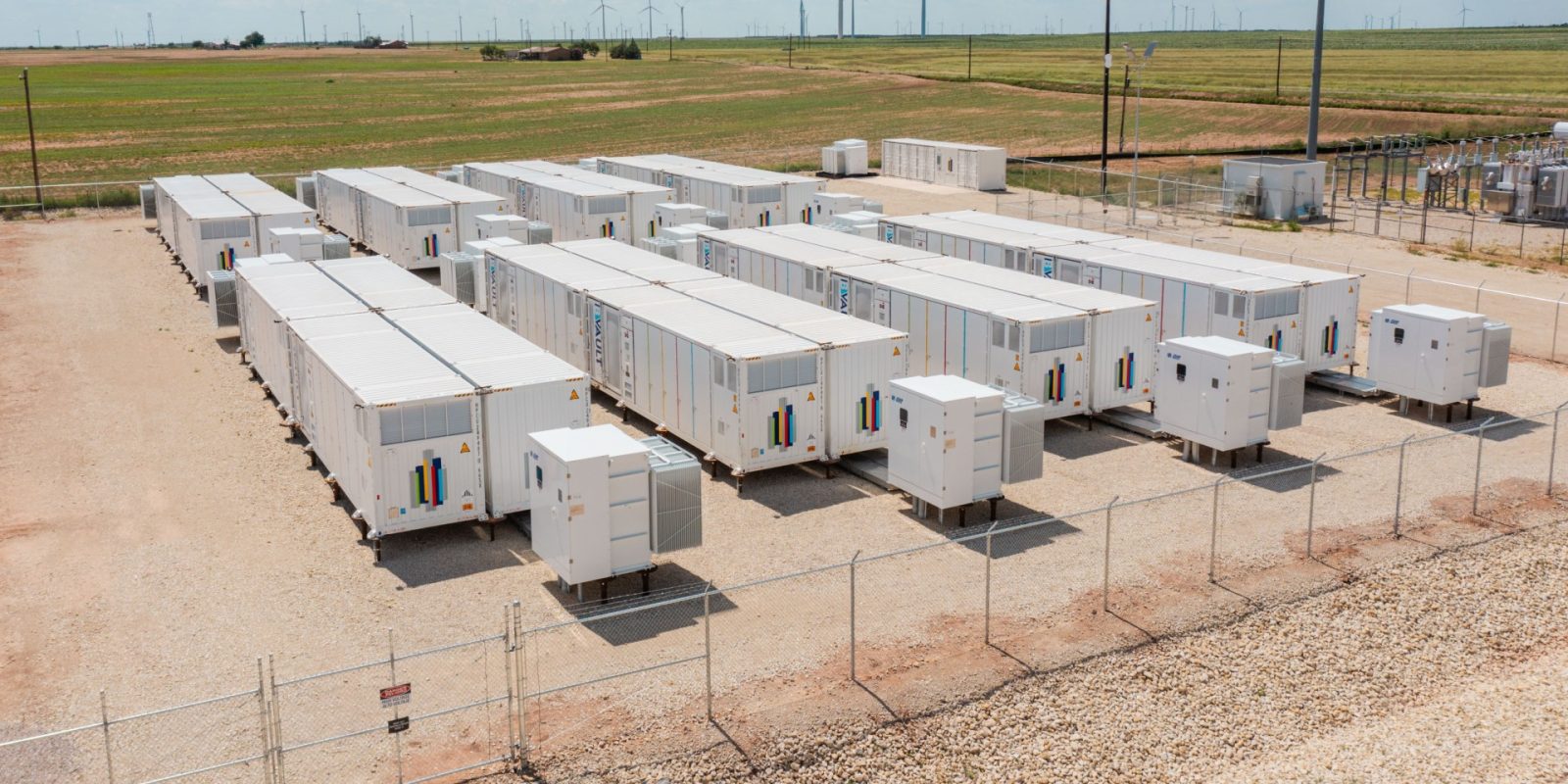
Utility-scale energy storage developer Energy Vault just signed a strategic agreement with Peak Energy, which manufactures sodium-ion energy battery storage systems, to build a battery platform specifically designed for “AI-first” data center operators.
more…
https://electrek.co/2026/02/11/the-ai-power-crunch-sparks-a-1-5-gwh-sodium-ion-battery-deal/
Democrats call for 4.1% federal pay raise in 2027
(date: 2026-02-11)
House and Senate lawmakers reintroduced the FAIR Act, aiming to bring federal employees' pay rates closer in line with private sector salaries.
https://federalnewsnetwork.com/congress/2026/02/democrats-call-for-4-1-federal-pay-raise-in-2027/
Chaos and confusion in El Paso after airspace closed and quickly reopened
(date: 2026-02-11)
Officials in US border city say FAA decisions caused major disruption – and residents are still scrambling for answers
Officials in Texas were left scrambling for answers on Wednesday after the Federal Aviation Administration (FAA) issued a surprise order to shut down the airspace over El Paso for 10 days and then, as turmoil ensued in the city on the US-Mexico border, abruptly lifted it within hours.
Local leaders in the west Texas city said that they received no prior warning or explanation and the stunning announcement had put lives at risk.
Continue reading...
https://www.theguardian.com/us-news/2026/feb/11/el-paso-airspace-texas
DHS officials warn about shutdown impacts
(date: 2026-02-11)
DHS officials say another shutdown could lead to more attrition at TSA and delay a cyber incident reporting rule at CISA, among other impacts.
https://federalnewsnetwork.com/government-shutdown/2026/02/dhs-officials-warn-about-shutdown-impacts/
Gallup to stop tracking presidential approval ratings after 88 years
(date: 2026-02-11)
Public opinion polling agency says decision ‘solely based on Gallup’s research goals and priorities’
Gallup, the public opinion polling agency, will stop tracking presidential approval ratings after almost nine decades, a spokesperson confirmed.
As Donald Trump continues to closely scrutinize polling of his popularity, and publicly lambast media companies that report on unfavorable numbers, Gallup insisted its decision was “solely based on Gallup’s research goals and priorities”.
Continue reading...
https://www.theguardian.com/us-news/2026/feb/11/gallup-stop-tracking-presidential-approval-ratings
Democrats deride veterans affairs secretary for repeating false claims about Alex Pretti’s killing
(date: 2026-02-11)
Pretti, a VA nurse, was shot by federal agents in Minneapolis and was labeled a ‘terrorist’ by the administration
Democratic lawmakers assailed Doug Collins, the Veterans Affairs (VA) secretary for repeating Trump administration’s claims on the killing of Alex Pretti, a VA nurse shot 10 times by federal immigration officials in Minneapolis, during a congressional hearing Wednesday.
Are you going to “correct your cabinet colleagues when they called him a terrorist?” Mark Takano, a Democratic representative of California and the House Committee on Veterans Affairs’ ranking member, asked Collins. The secretary declined to answer.
Continue reading...
https://www.theguardian.com/us-news/2026/feb/11/democrats-veterans-affairs-secretary-alex-pretti-killing
Here's what we learned from the January jobs report
(date: 2026-02-11)
The January jobs report came out Wednesday, and on the surface, it was better than expected. The economy added more jobs than it has in months and the unemployment rate remained stable. But topline numbers don’t tell the whole story. After that: Trump’s immigration policies weigh on the labor market, Iran tensions cause choppy oil prices, and a new law brings whole milk back to school lunch programs.
Every story has an economic angle. Want some in your inbox? Subscribe to our daily or weekly newsletter.
Marketplace is more than a radio show. Check out our original reporting and financial literacy content at marketplace.org — and consider making an investment in our future.
https://www.marketplace.org/episode/2026/02/11/heres-what-we-learned-from-the-january-jobs-report
After Tumbler Ridge shooting, false claims about trans people have proliferated online
(date: 2026-02-11)

Anger and false claims are being directed at transgender people after Tuesday's mass shooting in Tumbler Ridge, B.C., that left nine people dead, including the suspected shooter, who RCMP identified as an 18-year-old transgender woman.
https://www.cbc.ca/news/canada/tumbler-ridge-shooting-trans-community-false-claims-9.7085078?cmp=rss
Trump’s attempt to indict Democrats for video to troops an ‘alarm for democracy’
(date: 2026-02-11)
Mark Kelly speaks out after grand jury declines to indict six lawmakers over video urging troops to resist illegal orders
Arizona senator Mark Kelly warned that the Trump administration’s failed attempt to secure an indictment against him and five other Democratic lawmakers for a video urging service members to resist unlawful orders was a “master alarm flashing for our democracy”.
On Tuesday, a grand jury in Washington DC declined to indict the six members of Congress who posted a video last year reminding members of the military and intelligence community that they “can refuse illegal orders” – a message that Donald Trump said amounted to “SEDITIOUS BEHAVIOR, punishable by DEATH!”
Dani Anguiano contributed to this story
Continue reading...
https://www.theguardian.com/us-news/2026/feb/11/trump-democrats-illegal-orders-indictment
HGTV nukes Rehab Addict after video of host Nicole Curtis using slur circulates online
(date: 2026-02-11)
Warner Bros. Discovery has not only canceled the show and fired Curtis, but wiped the series from its streaming platforms.
https://www.pastemagazine.com/tv/hgtv-nukes-rehab-addict-nicole-curtis-slur
BYD's Plan To Make The Atto 3 More Popular: Double The Horsepower And Better Charging
(date: 2026-02-11)
The BYD Atto 3 Evo shifts to rear-wheel drive, gains a frunk and charges way faster for 2026.
https://insideevs.com/news/787078/byd-atto-3-evo-update/
VA data shows it cut health care hiring times in half, but it’s using different metrics
(date: 2026-02-11)
The Veterans Health Administration took 108 days to hire employees in May 2025. But in the following months, time-to-hire fell by more than 50%.
https://federalnewsnetwork.com/veterans-affairs/2026/02/va-cut-health-care-hiring-times-in-half-a-house-democrat-says-its-using-different-metrics/
Trump’s former border chief congratulated agent who shot US citizen five times during immigration crackdown – live
(date: 2026-02-11)
Evidence reveals that Gregory Bovino told a federal agent who shot a Chicago woman, ‘you have much yet left to do!’
Transportation secretary Sean Duffy said the El Paso airport closure was to “address a cartel drone incursion”.
“The threat has been neutralized, and there is no danger to commercial travel in the region,” Duffy said on social media. “The restrictions have been lifted and normal flights are resuming.”
Continue reading...
https://www.theguardian.com/us-news/live/2026/feb/11/donald-trump-benjamin-netanyahu-israel-iran-jeffrey-epstein-jobs-economy-us-politics-live-news-updates
What A Day: RFK Jr. Is Just ‘Vibing’
(date: 2026-02-11)
What’s so bad about being an “expert”?
https://crookedmedia.substack.com/p/what-a-day-rfk-jr-is-just-vibing
US officials lift 10-day closure of El Paso airspace after balloon mistaken for drone
(date: 2026-02-11)
FAA initially cited ‘security reasons’ for shutting off skies around Texas airport in area along border with Mexico
The top US aviation agency has lifted a surprise 10-day closure of airspace above the US-Mexico border town of El Paso, Texas, just hours after it abruptly announced that it would close off the skies for “special security reasons”.
While some officials claimed that Mexican cartel drones invaded US airspace, in recent days a balloon was reportedly mistaken for a drone.
Continue reading...
https://www.theguardian.com/us-news/2026/feb/11/faa-close-airspace-el-paso-texas-airport
The Big Lies at the Heart of Trump’s Mass-Deportation Campaign
(date: 2026-02-11)
Trump conceals how immigrants help the economy and commit relatively few crimes.
https://zeteo.com/p/trump-big-lies-immigrants-mass-deportation
US midfielders Bethune and Hutton move in pair of blockbuster $1m NWSL trades
(date: 2026-02-11)
-
Bethune traded from Spirit to Kansas City for $1m
-
Hutton departs Current for Bay FC in $1.1m move
-
Moves shake up landscape a month before season
Two of the best young midfielders in US women’s soccer were on the move Wednesday in a pair of seven-figure trades, shuffling up the NWSL landscape a month before the season begins.
Croix Bethune, the 2024 rookie and midfielder of the year, was traded from the Washington Spirit to the Kansas City Current for \(1m. In a separate move, Kansas City traded Claire Hutton, a 2025 midfielder of the year finalist, to Bay FC in a \)1.1m transaction.
Continue reading...
https://www.theguardian.com/football/2026/feb/11/us-midfielders-bethune-hutton-move-in-pair-of-blockbuster-nwsl-trades
Dawson’s Creek star James Van Der Beek dies aged 48 – video obituary
(date: 2026-02-11)
James Van Der Beek, who starred in coming-of-age dramas at the dawn of the new millennium, shooting to fame playing the titular character in Dawson’s Creek and in later years mocking his own persona, has died at the age of 48. The actor revealed in 2024 that he was being treated for colorectal cancer.
Continue reading...
https://www.theguardian.com/tv-and-radio/video/2026/feb/11/dawsons-creek-star-james-van-der-beek-dies-aged-48-video-obituary
Winter Olympics 2026: France beat USA to figure skating gold as GB’s wait for medal goes on – as it happened
(date: 2026-02-11)
• Medal table | Live scores and schedule | Results | Briefing
• Follow us over on Bluesky | Get in touch! Mail Geoff
The riders are having to squint into the sun to see their scores come up. There’s lots of USA support on the slopes, first for 19-year old Bea Kim, who looks happy to settle into fifth, then for the queen of half pipe, Chloe Kim, who is aiming for her third consecutive gold medal in this discipline. Oh and she’s also just finished a degree at Stamford. It’s a cracking start – a big backside 720, frontside 900, and something floaty and turny which the commentators describe as “the penny black” of halfpipe. She immediately settles into first.
Women’s halfpipe qualifying: Thinking about my attempts to stand on a skateboard as young women in baggy snow trousers zig-zag and float across the halfpipe.
Continue reading...
https://www.theguardian.com/sport/live/2026/feb/11/winter-olympics-2026-gold-medals-up-for-grabs-in-skiing-figure-skating-and-more-live
System meant to reduce prison recidivism marred by management struggles
(date: 2026-02-11)
"Once you go through the risk and needs assessments, any classes or programming you take can affect how much time you spend in prison," Gretta Goodwin said.
https://federalnewsnetwork.com/agency-oversight/2026/02/system-meant-to-reduce-prison-recidivism-marred-by-management-struggles/
Former Super Bowl champion Darron Lee held without bond after death of girlfriend
(date: 2026-02-11)
Former New York Jets first-round draft pick Darron Lee has been kept in jail without bond as he faces a first-degree murder charge over the death of his girlfriend in Tennessee.
The ruling by Judge Tori Smith came after Lee was arrested and charged late last week. He also faces a charge of tampering with or fabricating evidence. Lee is due back in court for a preliminary hearing on 9 March.
Authorities identified the victim in the case as Gabriella Perpétuo. The couple had been living in a home they rented where the incident occurred for about 10 days, Brian Lockhart a detective in Hamilton County Sheriff’s Office testified on Wednesday.
Continue reading...
https://www.theguardian.com/sport/2026/feb/11/former-super-bowl-champion-darron-lee-held-without-bond-after-death-of-girlfriend
Rachel Weisz descends into "sexy madness" in Netflix's Vladimir trailer
(date: 2026-02-11)
With lots of fourth wall-breaking asides to camera, Weisz's character's obsessions are front and center in the Vladimir trailer.
https://www.pastemagazine.com/tv/vladimir-trailer-rachel-weisz
Why Trump’s plan to reclassify federal workers should worry everyone
(date: 2026-02-11)
In practice, this change would make it easier to remove employees whose work or advice conflicts with leadership priorities.
https://federalnewsnetwork.com/commentary/2026/02/why-trumps-plan-to-reclassify-federal-workers-should-worry-everyone/
The Genesis GV90 is a $200,000+ ultra-luxe electric SUV with coach doors
(date: 2026-02-11)

The Genesis GV90 will become the luxury brand’s largest, most prestigious SUV to date. With its world premiere just around the corner, the flagship electric SUV was spotted in Korea, ready to roll out, coach doors and all.
more…
https://electrek.co/2026/02/11/genesis-gv90-200000-ultra-luxe-suv-with-coach-doors/
ChargePoint data shows a new EV bottleneck forming
(date: 2026-02-11)

ChargePoint enabled more than 100 million EV charging sessions over the past year, and it says demand is now growing faster than new chargers are being installed. Using its network data and 2025 EV sales figures, the company argues infrastructure isn’t keeping pace with the expanding fleet of EVs already on the road.
more…
https://electrek.co/2026/02/11/chargepoint-data-shows-a-new-ev-bottleneck-forming/
Washoe Tribe buys 10,000 acres in one of California’s largest ever land returns
(date: 2026-02-11)
Tribe, which was forcibly removed from its lands near Lake Tahoe, used $5.5m grant and private donations for purchase
The Washoe Tribe has purchased more than 10,000 acres of land near Lake Tahoe for conservation in one of the largest tribal land returns in California history.
The sprawling property, located 20 miles north of Reno, Nevada, stretches from the Great Basin through the Sierra Nevada and encompasses sagebrush scrublands and juniper and pine forests.
Continue reading...
https://www.theguardian.com/us-news/2026/feb/11/washoe-tribal-land-return-california
Man pardoned by Trump for attacking US Capitol found guilty of child abuse
(date: 2026-02-11)
Andrew Paul Johnson was found guilty of five counts including molesting a child under 12 and another under 16
A man who took part in the 6 January 2021 attack on the US Capitol and later pardoned by Donald Trump was found guilty on Tuesday of multiple child sexual abuse charges in Florida, officials said.
Andrew Paul Johnson was arrested in Tennessee this August and extradited to Florida. He pleaded not guilty.
Continue reading...
https://www.theguardian.com/us-news/2026/feb/11/man-trump-pardoned-us-capitol-child-sexual-abuse
Two wrinkles in 2026 tax and investment planning
(date: 2026-02-11)
All feds who earn a salary or receive their retirement annuity need to do some thinking about taxes and investments as the 2026 filing season opens.
https://federalnewsnetwork.com/federal-insights/2026/02/two-wrinkles-in-2026-tax-and-investment-planning/
Ireland launches a permanent basic income project for artists
(date: 2026-02-11)
The program will provide 2,000 Irish artists almost $400 a week to live on while they make art for the next three years.
https://www.pastemagazine.com/movies/ireland-launches-universal-basic-income-program-for-artists
Looking at USPS only through a profit lens misses rural economic opportunities
(date: 2026-02-11)
"We need to rethink the Postal Service as a public good and fund it appropriately so that it can support rural economies," Elena Patel said.
https://federalnewsnetwork.com/management/2026/02/looking-at-usps-only-through-a-profit-lens-misses-rural-economic-opportunities/
Pam Bondi defends DOJ handling of Epstein files in heated House hearing – video
(date: 2026-02-11)
The US attorney general, Pam Bondi, appeared before a House judiciary committee hearing on Wednesday to defend the justice department's handling of files involving the late financier and convicted sex offender Jeffrey Epstein. During the hearing, there were several heated exchanges between Bondi and Democrat lawmakers who questioned her about the DOJ's handling of the release of the Epstein files.
Continue reading...
https://www.theguardian.com/us-news/video/2026/feb/11/pam-bondi-defends-doj-handling-of-epstein-files-in-heated-house-hearing-video
Toyota is already offering a $5,000 discount and 0% financing on its new EVs
(date: 2026-02-11)

The 2026 C-HR and bZ Woodland electric SUVs are just arriving at dealerships, and Toyota is already discounting them.
more…
https://electrek.co/2026/02/11/toyota-offering-5000-discount-0-financing-on-new-evs/
Trump says he is still seeking Iran anti-nuclear deal after Netanyahu meeting
(date: 2026-02-11)
Israeli leader was expected to advocate for more forceful US intervention during sixth visit to current White House
Donald Trump has said that he is still seeking a deal with Iran to prevent it from seeking a nuclear weapon following a three-hour meeting with Benjamin Netanyahu in which the Israeli leader was expected to advocate for a more forceful intervention by the US military.
Netanyahu’s sixth visit to the White House since Trump returned to office ended without any public remarks between the two leaders. The results of the hastily arranged meeting were announced by Trump in an online post.
Continue reading...
https://www.theguardian.com/us-news/2026/feb/11/trump-netanyahu-iran-nuclear-deal
Volvo Can Finally Build A Proper Electric Wagon. Here’s Why
(date: 2026-02-11)
SUVs are big sellers these days, but a proper battery-powered Volvo longroof could be a hit, too.
https://insideevs.com/news/787019/volvo-electric-wagon-possible-spa3/
Tesla calls police on IG Metall rep at Giga Berlin works council meeting before critical vote
(date: 2026-02-11)

Tesla filed a criminal complaint and called police to its Gigafactory Berlin after accusing an IG Metall union representative of secretly recording a closed works council meeting on Tuesday. Police seized the representative’s laptop. The incident comes just three weeks before roughly 11,000 employees vote in a works council election that could reshape the future of the plant.
The confrontation marks the latest, and most dramatic, escalation in the increasingly bitter fight between Tesla and Germany’s most powerful industrial union at the automaker’s only European factory.
more…
https://electrek.co/2026/02/11/tesla-calls-police-ig-metall-rep-at-giga-berlin-works-council-meeting-before-critical-vote/
Olympic viewing guide Day 6: Get ready for a big Thursday
(date: 2026-02-11)

CBC Sports' daily Olympics newsletter previews a stacked Day 6 for Canada, including some strong gold-medal chances and the men's hockey opener.
https://www.cbc.ca/sports/olympics/winter/the-buzzer-newsletter-day6-lookahead-feb11-9.7085424?cmp=rss
Gabbard ends intelligence reform task force after less than a year of work
(date: 2026-02-11)
Director of National Intelligence Tulsi Gabbard is ending the work of a task force she created to look at big changes to the U.S. intelligence community.
https://federalnewsnetwork.com/intelligence-community/2026/02/gabbard-ends-intelligence-reform-task-force-after-less-than-a-year-of-work/
‘You’re a washed-up loser lawyer’: Pam Bondi taunts Democrats over Epstein
(date: 2026-02-11)
US attorney general goes on attack during questioning by House judiciary committee over handling of files
The US attorney general Pam Bondi attacked and insulted Democrats during a House judiciary committee hearing on Wednesday as she defended the justice department’s handling of files related to Jeffrey Epstein.
Democrats pounded Bondi with questions about the way the department has complied with a law last year mandating the complete release of the files with specific and limited room for redactions. Since releasing the documents after the statutory deadline, the justice department has come under intense scrutiny both for releasing the names of survivors and redacting, without explanation, the names of people who may have committed crimes.
Continue reading...
https://www.theguardian.com/us-news/2026/feb/11/pam-bondi-democrats-epstein-hearing
Canadian skaters Gilles and Poirier find peace with an Olympic medal moment a lifetime in the making
(date: 2026-02-11)

It’s impossible to pinpoint where the Olympic journey started for Piper Gilles and Paul Poirier, Canada’s ice dance champions. It had a thousand starting points.
https://www.cbc.ca/sports/olympics/winter/figure-skating/milano-cortina-canada-ice-dance-figure-skating-chris-jones-feb11-9.7085071?cmp=rss
We Finally Know How Fast The Tesla Semi Will Charge: Very, Very Fast
(date: 2026-02-11)
The trucks can add enough energy to charge six Standard Range Model 3s in 30 minutes. That's what 1.2 Megawatts of power can do.
https://insideevs.com/news/786802/tesla-semi-production-details-revealed/
Jordan Stolz crushes Olympic 1000m record to begin four-gold pursuit after reskate
(date: 2026-02-11)
Jordan Stolz had to wait a little longer than expected on Wednesday night. But when confirmation finally came, the 21-year-old American could celebrate his first Olympic gold medal – and the opening chapter of what could become one of the defining campaigns of the Milano Cortina Winter Olympics.
Skating in the second-to-last group, Stolz powered to an Olympic record time of 1min 6.28sec in the men’s 1000 metres, using a devastating final lap to deliver in his signature event and launch his pursuit of a potential four-gold haul across these Games.
Continue reading...
https://www.theguardian.com/sport/2026/feb/11/jordan-stolz-olympics-1000m-speed-skating-gold-reskate
R.I.P. Bud Cort, Harold And Maude star
(date: 2026-02-11)
Just 22 when cast in the Hal Ashby cult classic, Cort had a long career that stretched well into the 2010s.
https://www.pastemagazine.com/movies/bud-cort/bud-cort-obit-harold-and-maude
Boy, 13, who stabbed little brother handed 3-year sentence designed for youth with mental health issues
(date: 2026-02-11)

A 13-year-old Lethbridge, Alta., boy who tried to kill his seven-year-old brother by stabbing him was handed a three-year sentence on Wednesday, the maximum term allowed under the Youth Criminal Justice Act.
https://www.cbc.ca/news/canada/calgary/lethbridge-youth-stabbed-brother-attempted-murder-sentence-9.7085625?cmp=rss
Mayor of Portapique tells Tumbler Ridge 'we understand' mass shooting devastation
(date: 2026-02-11)

Colchester County Mayor Christine Blair relates what her community experienced after the 2020 mass shooting that killed 22 people in Nova Scotia to Tuesday's mass shooting in Tumbler Ridge, B.C., advising that 'it will be surreal.' Blair says her community has experienced multiple suicides, and that instead of just an initial surge of support, trauma therapists should be made available in B.C. 'on a regular basis for years to come.'
https://www.cbc.ca/player/play/9.7085561?cmp=rss
Wisconsin News Collaborative launches with environmental focus
(date: 2026-02-11)
In response to the loss of federal funding, three public radio stations are partnering to better meet audience needs.
The post Wisconsin News Collaborative launches with environmental focus appeared first on Current.
https://current.org/2026/02/wisconsin-news-collaborative-launches-with-environmental-focus/?utm_source=rss&utm_medium=rss&utm_campaign=wisconsin-news-collaborative-launches-with-environmental-focus
Tenways AGO X all-terrain mid-drive e-bike with $907 savings to $1,899 low, Autel 50A smart AI EV charger at $450 low, Jackery, more
(date: 2026-02-11)

Our mid-week Green Deals is seeing some returning low prices alongside a few notable one-day-only deals, starting with Tenways’ premium AGO X All-Terrain Mid-Drive e-bike and \(307 in FREE gear at its \)1,899 low, among other deals from the brand. We also spotted Autel’s MaxiCharger AC Elite Home 50A Smart Level 2 EV Charger with an in-body holster, AI optimization, and voice controls dropping to its $450 low for the second time ever, as well as Jackery’s compact Explorer 240D Portable Power Station at its second-best price, Bluetti’s Handsfree BackPack Power Stations (and the larger AC240 station) starting from their lows for the rest of the day, a Worx Aerocart 8-in-1 yard cart daily deal, and more waiting for you below. And don’t forget the hangover deals at the bottom of the page, like yesterday’s EcoFlow Valentine’s Day power station sale launch, the solar-charging Anker eufy S340 multi-cam security kits, and more.
Head below for other New Green Deals we’ve found today and, of course, Electrek’s best EV buying and leasing deals. Also, check out the new Electrek Tesla Shop for the best deals on Tesla accessories.
more…
https://electrek.co/2026/02/11/tenways-ago-x-all-terrain-mid-drive-e-bike-autel-50a-smart-ai-ev-charger-jackery-more/
Veterans Affairs explores potential uses for artificial intelligence
(date: 2026-02-11)
The department said more than 130 use cases are currently being deployed across its operations and many more are still in development.
https://federalnewsnetwork.com/federal-newscast/2026/02/democrats-reintroduce-bill-to-give-federal-employees-a-4-1-pay-raise-next-year/
A solid-state EV battery standard will be introduced in China as real-world tests begin
(date: 2026-02-11)

China will release a standard for solid-state EV batteries later this year as several automakers begin testing the new battery tech in vehicles.
more…
https://electrek.co/2026/02/11/solid-state-ev-battery-standard-china-2026/
Sask. mine that could make Canada world's biggest uranium exporter faces last hurdle
(date: 2026-02-11)

Hearings now underway in Saskatoon could decide the future of Canada’s biggest uranium mining project to date. Indigenous communities are now on board, but the proponent, NexGen, is still waiting on final say from the Canadian Nuclear Safety Commission.
https://www.cbc.ca/news/canada/saskatchewan/sask-uranium-mine-nexgen-hearing-9.7085415?cmp=rss
Text exchange that brought down Quebec Liberal leader was doctored, report finds
(date: 2026-02-11)

In a report commissioned by the party, a retired judge says the vote-buying scandal that ended Pablo Rodriguez’s stint as PLQ leader in late 2025 may have been sparked by manipulated evidence.
The story that launched the scandal was published by the Journal de Montréal, which says the report commissioned by the PLQ is incomplete, that its author does not know the identity of their sources and that they stand by their reporting.
https://www.cbc.ca/player/play/9.7085557?cmp=rss
AIPAC Has a New Opponent: PAL PAC
(date: 2026-02-11)
A new organization seeks to upend the calculus of Israel-Palestine inside Washington, and end the Israel lobby’s decades-long hold over US politics.
https://zeteo.com/p/pal-pac-aipac-israel-palestine
A 2nd State Puts Utility Performance Over Profits — Episode 264 of Local Energy Rules
(date: 2026-02-11)
Oregon tries to tie utility profits to climate, cost, and reliability targets through performance-based regulation.
https://ilsr.org/article/energy-democracy/oregon-performance-based-regulation-ler264
Tesla launches Cybertruck V2G program in Texas, earning money with your truck’s battery pack
(date: 2026-02-11)

Tesla has launched its first vehicle-to-grid (V2G) program in the United States, starting in select Texas markets. The “Powershare Grid Support” program allows Cybertruck owners to discharge their truck’s massive 123 kWh battery, equivalent to roughly nine Powerwalls, back to the grid during high-demand events and earn bill credits in return.
The announcement, made by Tesla Energy on social media, marks a significant milestone for a company that has been promising bidirectional charging capabilities for years but has consistently delayed delivering them across its vehicle lineup.
more…
https://electrek.co/2026/02/11/tesla-launches-cybertruck-v2g-program-texas-earning-money-truck-battery-pack/
Volkswagen’s electric hot hatch drops its camo, revealing a new design
(date: 2026-02-11)

Volkswagen is gearing up to launch its first electric GTI hot hatch later this year. Ahead of its big debut, the EV hot hatch was spotted testing in icy conditions with barely any camo.
more…
https://electrek.co/2026/02/11/volkswagens-ev-hot-hatch-drops-camo-revealing-new-design/
Trump meets with Netanyahu as Iran marks 47 years of Islamic rule
(date: 2026-02-11)

U.S. President Donald Trump met with Israeli Prime Minister Benjamin Netanyahu in Washington to discuss U.S. nuclear talks with Iran, but nothing definitive was decided. Meanwhile, thousands in Tehran marked the 47th anniversary of the Islamic Revolution.
https://www.cbc.ca/player/play/9.7085335?cmp=rss
Suspect's mother identified as 1 of 8 Tumbler Ridge, B.C., mass shooting victims
(date: 2026-02-11)

RCMP say nine people are dead in total, including the suspect, correcting their previous report of 10.
https://www.cbc.ca/news/canada/british-columbia/suspect-s-mother-victim-tumbler-ridge-mass-shooting-9.7085200?cmp=rss
DoD enters decadeslong barracks lease as lawmaker warns privatization push lacks accountability tools
(date: 2026-02-11)
“The department needs to learn from its past mistakes and stop handcuffing itself with 50-year leases,” Sen. Elizabeth Warren (D-Mass.) said.
https://federalnewsnetwork.com/defense-main/2026/02/dod-enters-decadeslong-barracks-lease-as-lawmaker-warns-privatization-push-lacks-accountability-tools/
The Fall And Rise Of Reggie Dinkins is a clever, silly hangout comedy
(date: 2026-02-11)
Tracy Morgan stars as a former football pro in NBC's new sitcom.
https://www.pastemagazine.com/tv/the-fall-and-rise-of-reggie-dinkins/the-fall-and-rise-of-reggie-dinkins-review-nbc
How Does This Chinese EV Offer 620 Miles Of Range? The Secret Is A New Battery Chemistry
(date: 2026-02-11)
China’s FAW Group has a novel battery chemistry that promises to deliver extraordinary energy density.
https://insideevs.com/news/786950/china-faw-group-lithium-manganese-battery/
Anishinabek Nation concerned about changes to Ontario’s Permits to Take Water program
(date: 2026-02-11)

The Anishinabek Nation is raising concerns about changes to Ontario’s Permit to Take Water program, saying it undermines First Nations rights, environmental protection and public accountability.
https://www.cbc.ca/news/indigenous/ontario-permits-to-take-water-anishinabek-nation-9.7084595?cmp=rss
Texas' energy grid, 5 years after Winter Storm Uri
(date: 2026-02-11)
Five years ago, Winter Storm Uri took out the lights across the Lone Star State. Hundreds of people died, millions of Texans were left without heat, and it cost the state billions. What’s changed since then? Plus, new payroll numbers are higher than expected, and unemployment is slightly down, but revisions to last year’s totals complicate the story. And later, we check out what one of the country’s most environmentally friendly homes looks like 18 years later.
https://www.marketplace.org/episode/2026/02/11/texas-energy-grid-5-years-after-winter-storm-uri
Yes, Canada has a 'fungus bank' — and it just got saved by a massive donation
(date: 2026-02-11)

A unique collection of microscopic fungi used for Canadian medical and biodiversity research has been saved from being shipped overseas.
https://www.cbc.ca/news/science/fungal-biobank-9.7083309?cmp=rss
John C. Reilly wants you to dream a little dream of Mister Romantic before Valentine’s Day
(date: 2026-02-11)
Before his sold-out holiday show at Glendale Presbyterian Church, Reilly is getting into the sentimental spirit with two new singles.
https://www.pastemagazine.com/music/john-c-reilly/john-c-reilly-wants-you-to-dream-a-little-dream-of-mister-romantic-before-valentines-day
Ukrainian Vladyslav Heraskevych is the most important athlete at the Olympics right now
(date: 2026-02-11)

The International Olympic Committee is not an organization that generally begs, but they are begging Ukrainian skeleton athlete Vladyslav Heraskevych not to compete in a customized helmet showing the faces of more than 20 Ukrainian athletes and coaches killed since Russian invaded Ukraine in 2022.
https://www.cbc.ca/sports/olympics/winter/milano-cortina-olympics-richard-deitsch-notebook-feb11-9.7084958?cmp=rss
Tesla partners with Tencent to bring WeChat inside over 1 million cars in China
(date: 2026-02-11)

Tencent Cloud announced today that it has partnered with Tesla to integrate WeChat-linked features directly into Tesla vehicles in China. The over-the-air update will roll out to over 1 million Model 3 and Model Y vehicles built at Giga Shanghai, delivering one-tap location sharing from WeChat and AI-powered service suggestions — a significant concession by Tesla to China’s dominant digital ecosystem.
more…
https://electrek.co/2026/02/11/tesla-partners-with-tencent-to-bring-wechat-inside-over-1-million-cars-in-china/
US added 130,000 jobs in January, surpassing expectations as 2025 growth is slashed
(date: 2026-02-11)
Unemployment rate was 4.3% in January with gains 13,000 less than the 143,000 jobs added a year ago, report shows
The US jobs market added 130,000 jobs in January, according to a highly anticipated labor market report released on Wednesday, a surge of job growth after months of fatigue in the labor market.
The unemployment rate was 4.3% in January, a slight cooling since the fall. Economists predicted 70,000 in job gains and an unchanged unemployment rate for January.
Continue reading...
https://www.theguardian.com/business/2026/feb/11/delayed-us-january-jobs-report
R.I.P. James Van Der Beek, star of Dawson's Creek
(date: 2026-02-11)
The actor had previously shared his colorectal cancer diagnosis in 2024.
https://www.pastemagazine.com/media/james-van-der-beek-dies
Considering History: Bad Bunny, José Martí, and a Hemispheric America
(date: 2026-02-11)
Inspired by that Super Bowl performance from one of our moment’s most famous Caribbean young men, American Studies Professor Ben Railton share the story of another of history’s most prominent such figures: José Martí.
Considering History: Bad Bunny, José Martí, and a Hemispheric America
The Saturday Evening Post
https://www.saturdayeveningpost.com/2026/02/considering-history-bad-bunny-jose-marti-and-a-hemispheric-america/
Detroit PBS receives $2M for initiative focused on faith in community
(date: 2026-02-11)
The station will produce special programming representing the Detroit community’s diverse array of religions as part of the four-year initiative.
The post Detroit PBS receives $2M for initiative focused on faith in community appeared first on Current.
https://current.org/2026/02/detroit-pbs-receives-2m-for-initiative-focused-on-faith-in-community/?utm_source=rss&utm_medium=rss&utm_campaign=detroit-pbs-receives-2m-for-initiative-focused-on-faith-in-community
Conservative lawmakers plan to investigate Bad Bunny’s Super Bowl halftime show
(date: 2026-02-11)
Cranky representatives Andy Ogles and Mark Alford are leading a charge against the NFL and NBC, citing Bunny’s performance for “explicit displays” and “glorifying unspeakable depravities.”
https://www.pastemagazine.com/music/bad-bunny/conservative-lawmakers-plan-to-investigate-bad-bunnys-super-bowl-halftime-show
P.E.I. school officials didn’t mishandle complaints about substitute teacher, 3rd-party review finds
(date: 2026-02-11)

A review of sexual misconduct at P.E.I. schools sheds new light on what school officials knew about a substitute teacher who inappropriately touched students in the classroom — and when they knew it.
https://www.cbc.ca/news/canada/prince-edward-island/pei-school-officials-matthew-craswell-complaints-jenkins-review-9.7085047?cmp=rss
US jobs report beats forecasts with 130,000 increase in January – as it happened
(date: 2026-02-11)
Wall Street futures extend gains after the data; unemployment rate dips to 4.3%
The oil cartel Opec has stuck to its forecast that world oil demand for crude from the wider Opec-plus producer group, including Russia, will drop by 400,000 barrels per day (bpd) in the second quarter, from the first three months of the year.
Global demand for OPEC+ crude will average 42.2m bpd in the second quarter, OPEC said in its monthly report report, down from 42.60 million bpd in the first quarter. Both forecasts were unchanged from last month’s report.
Continue reading...
https://www.theguardian.com/business/live/2026/feb/11/markets-us-jobs-report-non-farm-payrolls-bank-of-england-business-live-news-latest
Vonn says she had 'successful' 3rd surgery on broken leg following alpine crash at Olympics
(date: 2026-02-11)

American skier Lindsey Vonn said Wednesday that she had a "successful" third surgery on her broken left leg following her downhill crash at the Olympics.
https://www.cbc.ca/sports/olympics/winter/alpine-skiing/lindsey-vonn-successful-3rd-surgery-9.7085108?cmp=rss
Toyota reveals the Highlander EV as first 3-row electric SUV with 320 miles range [Images]
(date: 2026-02-11)

Toyota’s first three-row electric SUV is finally here. The 2027 Highlander EV can drive up to 320 miles on a single charge, has a built-in NACS port, and a sharp new look. The Highlander is Toyota’s most impressive electric SUV so far. Here’s our first look.
more…
https://electrek.co/2026/02/11/toyota-reveals-highlander-ev-as-first-3-row-electric-suv-images/
Slasher anti-franchise The Strangers remains unknowable five films later
(date: 2026-02-11)
Renny Harlin's remake trilogy complicates the dour simplicity of The Strangers with additional genre anonymity.
https://www.pastemagazine.com/movies/run-the-series/the-strangers-run-the-series
This Israeli-Palestinian Couple is Breaking a Huge Taboo
(date: 2026-02-11)
An Israeli human rights lawyer unpacks her marriage to a Palestinian in the occupied West Bank and condemns the 'apartheid' system they have to endure.
https://zeteo.com/p/israel-palestine-occupation-apartheid-upside-down-love-west-bank
Dawson's Creek star James Van Der Beek dead at 48
(date: 2026-02-11)

James Van Der Beek, the actor best known for his role on 1990's TV show Dawson's Creek, has died. He was 48.
https://www.cbc.ca/news/entertainment/james-van-der-beek-obit-dawsons-creek-9.7085053?cmp=rss
White House deletes JD Vance’s social media post referring to Armenian genocide
(date: 2026-02-11)
US vice-president’s post marks first time Trump administration used the word to describe the massacres
The White House has deleted a social media post in which the vice-president, JD Vance, referred to the Armenian genocide, prompting anger from members of the Armenian diaspora as well as opposition politicians across the US.
The post was made during Vance’s two-day trip to Armenia to mark a visit by Vance and his wife, Usha Vance, to a memorial for the up to 1.5 million Armenians killed by Ottoman troops more than a century ago. The now-deleted post on Vance’s official X account said he was visiting the memorial to honour “the victims of the Armenian genocide”.
Continue reading...
https://www.theguardian.com/us-news/2026/feb/11/jd-vance-armenian-genocide
Hyundai is reportedly looking to supply Waymo with 50,000 IONIQ 5 for robotaxis
(date: 2026-02-11)

Hyundai Motor is reportedly looking to supply Waymo with 50,000 IONIQ 5 autonomous vehicles by 2028 in what would amount to a roughly $2.5 billion deal, and if it goes through, it would be a massive signal that the robotaxi industry is entering a new phase of real, industrial-scale deployment.
more…
https://electrek.co/2026/02/11/hyundai-supply-waymo-50000-ioniq-5-robotaxis/
Pope Leo accepts resignation of embattled New Orleans archbishop Gregory Aymond
(date: 2026-02-11)
The archdiocese agreed to pay 600 abuse survivors a $305m settlement before the Vatican confirmed Aymond’s exit
Pope Leo XIV accepted the resignation of the Roman Catholic archbishop of New Orleans, Gregory Aymond, on Wednesday – one day after the archbishop concluded a series of meetings with survivors of a clergy molestation scandal that has embroiled the city’s church leadership for years.
Aymond had submitted his resignation to global Catholic church leaders at the Vatican, as he was required when he turned 75 in November 2024. But the Vatican didn’t immediately accept it, plotting for Aymond to remain in position until the New Orleans archdiocese settled a federal bankruptcy protection case that it filed in the spring of 2020 amid the continuing fallout of the decades-old worldwide clerical abuse crisis.
Continue reading...
https://www.theguardian.com/us-news/2026/feb/11/new-orleans-archbishop-resignation-pope-leo
What it takes to build a home that lasts
(date: 2026-02-11)
The U.S. is facing a housing affordability crisis — one that's been exacerbated by natural disasters like Hurricane Helene in 2024 and last year in California, when fires destroyed 12,000 homes. This morning, "Marketplace Morning Report" host David Brancaccio checks in with two people who are rebuilding differently to ensure the safety and comfort of their new abodes. Also on the show: a look at January's job market and votes to repeal President Donald Trump's import taxes.
https://www.marketplace.org/episode/2026/02/11/what-it-takes-to-build-a-home-that-lasts
Don Lemon hires federal attorney who quit over handling of inquiry into Renee Good’s killing
(date: 2026-02-11)
Ex-CNN anchor brings on Joseph H Thompson to defend him from charges related to coverage of a church protest
Former CNN anchor Don Lemon has hired a federal prosecutor, who quit amid the White House’s immigration blitz on Minneapolis, to defend him from charges related to his coverage of a church protest.
Lemon officially brought Joseph H Thompson on to his legal team, according to a Tuesday court filing. Thompson, who Donald Trump had appointed acting US attorney for Minnesota in June, reportedly resigned in January over the justice department’s treatment of immigration enforcement.
Continue reading...
https://www.theguardian.com/us-news/2026/feb/11/don-lemon-hires-federal-prosecutor-quit-ice-surge
The one company that sells nearly three-quarters of all electric motorcycles
(date: 2026-02-11)

There’s one company that now sells nearly three-quarters of all full-size electric motorcycles in the US. And no, it’s not some scrappy startup out of Silicon Valley (though there are some very cool California-based electric motorcycle startups).
It’s actually LiveWire – the Harley-Davidson-born electric motorcycle spinoff that just claimed a 70% market share in the 50+ horsepower on-road electric motorcycle segment in 2025.
more…
https://electrek.co/2026/02/11/the-one-company-that-sells-nearly-three-quarters-of-all-electric-motorcycles/
Cartoons: Be My Valentine
(date: 2026-02-11)
Have a heart!
Cartoons: Be My Valentine
The Saturday Evening Post
https://www.saturdayeveningpost.com/2026/02/cartoons-be-my-valentine-3/
U.S. unexpectedly adds 130,000 jobs in January after a weak 2025
(date: 2026-02-11)
U.S. employers added 130,000 jobs in January as the unemployment rate dipped to 4.3% from 4.4% in December. Annual revisions show that job growth last year was far weaker than initially reported.
https://www.npr.org/2026/02/11/nx-s1-5708807/jobs-labor-unemployment-economy
Man detained for questioning in Nancy Guthrie disappearance reportedly released
(date: 2026-02-11)
Carlos Palazuelos told reporters he was held at a traffic stop Tuesday and claimed to not have heard about the case
A man detained by authorities in Arizona investigating the disappearance of Today show host Savannah Guthrie’s mother was released early on Wednesday after several hours of questioning, according to reports.
An individual who identified himself to reporters as Carlos Palazuelos said he was the person held after a traffic stop on Tuesday in Rio Rico, about an hour’s drive from the Tucson area home from where Nancy Guthrie, 84, was reported missing on 1 February.
Continue reading...
https://www.theguardian.com/us-news/2026/feb/11/man-detained-nancy-guthrie-disappearance-released
Super Bowl and Bad Bunny miss US TV audience record but new mark set for social media
(date: 2026-02-11)
-
Broadcast averages 124.9 million viewers in US
-
Half-time show draws 128.2 million viewers
-
Bad Bunny social media views top 4bn
Sunday night’s Super Bowl and Bad Bunny fell short of setting records for the most watched US broadcast and half-time show.
Seattle’s 29-13 victory over New England averaged 124.9 million viewers on NBC, Peacock, Telemundo, NBC Sports Digital, and NFL+, according to Nielsen. That fell short of the 127.7 million US viewers who tuned in for Philadelphia’s victory over Kansas City last year on Fox.
However, this year’s Super Bowl became the most-watched program in NBC history as the network celebrates its 100th anniversary.
Continue reading...
https://www.theguardian.com/sport/2026/feb/11/super-bowl-lx-audience-figures-bad-bunny-halftime-show
The Scrubs staff welcomes a new generation in revival trailer
(date: 2026-02-11)
The doctors are back on ABC later this month.
https://www.pastemagazine.com/tv/scrubs-revival-trailer-abc
Community of Tumbler Ridge mourning victims of mass shooting
(date: 2026-02-11)

Residents of the small B.C. community of Tumbler Ridge are in shock after a mass shooting left 10 people dead Tuesday, including the suspect. The CBC's Nicole Oud is on scene in Tumbler Ridge, where she has been hearing from community members impacted by the violence. (UPDATE FEB. 11, 2026 | RCMP on Wednesday provided an updated death toll for the mass shooting on Tuesday in Tumbler Ridge, B.C., saying that there were a total of nine dead, including the suspected shooter, not 10 as initially reported.)
https://www.cbc.ca/player/play/9.7084807?cmp=rss
US union elections declined in 2025 after Trump hobbled labor board
(date: 2026-02-11)
Both the number of workers participating in union elections and the success of elections dropped off
The number of union elections overseen by the National Labor Relations Board (NLRB) dropped 30% in 2025 after the Trump administration left the federal labor watchdog powerless, according to an analysis released on Wednesday.
The number of workers participating in union elections dropped by 59,000, a 42% decline compared with the year prior, according to the report from the Center for American Progress. The total number of union elections fell from a 10-year high of 2,124 in 2024 to 1,498 in 2025.
Continue reading...
https://www.theguardian.com/us-news/2026/feb/11/labor-relations-board-nlrb-unions-trump
Some Greenlandic Inuit say work on independence from Denmark will come amidst fight against U.S. threats
(date: 2026-02-11)

Over the decades, Greenland has gained more autonomy from the Kingdom of Denmark. But recent threats from U.S. President Donald Trump about taking over Greenland has brought the autonomous territory closer to the country that colonized it.
https://www.cbc.ca/news/canada/north/greenlandic-inuit-independence-denmark-us-9.7083474?cmp=rss
DNA breakthrough leads to charges in violent 1992 sexual assault in Alberta town
(date: 2026-02-11)

More than three decades after a woman was sexually assaulted at knifepoint inside her home in Two Hills, Alta., DNA evidence gathered from the scene has resulted in an arrest. Investigators say an accused was identified through a member of his family tree.
https://www.cbc.ca/news/canada/edmonton/alta-sex-assault-9.7084649?cmp=rss
Flights suspended as Cuba faces fuel crisis
(date: 2026-02-11)
From the BBC World Service: Cuba's tourism industry suffered a major blow after dozens of flights were cancelled because of a lack of aviation fuel; Air Canada, which flies many tourists to the Caribbean island, suspended flights because of the shortages. Plus, British department store Harrods said more than 180 survivors of abuse by the store's former owner, Mohamed Al-Fayed, are currently engaged in its compensation scheme. And later, could 2026 be the year high-powered electric motorcycles go mainstream?
https://www.marketplace.org/episode/2026/02/11/flights-suspended-as-cuba-faces-fuel-crisis
First Draft: Reforming Trump's Gestapo?
(date: 2026-02-11)
As Congress weighs guardrails for Trump’s fascist military police, lawmakers vote to allow themselves to overturn the president’s tariffs.
https://zeteo.com/p/reforming-the-gestapo-trump-dhs-ice-congress
On Clearly Cursed, PONY’s crunch-pop is full of messy coming-of-age charm
(date: 2026-02-11)
The Toronto duo bring their fuzzed-out guitars and dreamy vocals to grapple with toxic friendships, dead pets, and self-blame on their third album.
https://www.pastemagazine.com/music/pony/pony-clearly-cursed-album-review
Trump official allies with Europe’s far right in attacks on migration and hate speech policies
(date: 2026-02-11)
US state department’s Sarah B Rogers has become face of White House’s hostility to European liberal democracies
As Donald Trump redoubled his war of words on the European Union and Nato in recent weeks, a senior state department official, Sarah B Rogers, was publicly attacking policies on hate speech and immigration by ostensible US allies, and promoting far-right parties abroad.
Rogers has arguably become the public face of the Trump administration’s growing hostility to European liberal democracies. Since assuming office in October, she has met with far-right European politicians, criticized prosecutions under longstanding hate speech laws, and boasted online of sanctions against critics of hate speech and disinformation on US big tech platforms.
Continue reading...
https://www.theguardian.com/us-news/2026/feb/11/sarah-b-rogers-trump-europe-far-right
Rivian Updated The R2’s Manual Door Release, And People Are Mad
(date: 2026-02-11)
The driver and front passenger can easily open their doors in an emergency. Rear passengers, not so much–and people are angry.
https://insideevs.com/news/787005/rivian-r2-manual-door-release/
Deadly B.C. shooting is one of Canada's worst school shootings
(date: 2026-02-11)

Tuesday's mass shooting at Tumbler Ridge Secondary School in B.C.'s Peace region marked one of the worst school shootings in Canadian history, with nine people dead in total inside a school and a home, including a suspect.
https://www.cbc.ca/news/canada/deadly-shootings-schools-canada-9.7084264?cmp=rss
Congressmen name six wealthy men ‘likely incriminated’ in Epstein files | First Thing
(date: 2026-02-11)
Democrat Ro Khanna and Republican Thomas Massie reveal names they say DoJ redacted ‘for no apparent reason’. Plus, at least 10 dead, including suspect, after school shooting in Canada
Good morning.
The Democratic congressman Ro Khanna said on Tuesday that he and his Republican colleague Thomas Massie had forced the justice department to disclose the “hidden” names of six wealthy men they say are “likely incriminated” by their inclusion in the Jeffrey Epstein files.
Who are the six ? Congressman Ro Khanna named: Leslie Wexner, the Victoria’s Secret founder; Sultan Ahmed bin Sulayem, CEO of DP World and an Emirati billionaire businessman; and four others identified as Nicola Caputo, Salvatore Nuara, Zurab Mikeladze and Leonic Leonov.
What did Khanna say? “Why did it take Thomas Massie and me going to the justice department to get these six men’s identities to become public? If we found six men they were hiding in two hours, imagine how many men they are covering up for in those 3m files,” he said.
What has the prime minister, Mark Carney, said? Carney said he was “devastated” by the shootings. “I join Canadians in grieving with those whose lives have been changed irreversibly today, and in gratitude for the courage and selflessness of the first responders who risked their lives to protect their fellow citizens,” he said.
Continue reading...
https://www.theguardian.com/us-news/2026/feb/11/first-thing-congressmen-name-six-wealthy-men-likely-incriminated-in-epstein-files
Refreshingly mature genre exercise Crime 101 is more than a cops-and-robbers intro course
(date: 2026-02-11)
Bart Layton's evocative take on the prestige and star-studded crime saga, Crime 101 has an unexpected polite streak.
https://www.pastemagazine.com/movies/crime-101-review
Activist investor Elliott builds up stake in London Stock Exchange Group
(date: 2026-02-11)
US firm held talks with LSEG to push performance at time of reduced listings and AI concerns
The activist investor Elliott Management has built up a “significant” stake in the London Stock Exchange Group (LSEG) and is engaging with the company to drive its performance at a time of reduced listings and concerns about disruption from artificial intelligence.
Elliott’s exact shareholding in LSEG was unclear; the Financial Times, which first reported the stake, added that the fund had been in talks with LSEG to help it work on improvement, encourage the group to consider a fresh share buy-back and to try to narrow the gap with its rivals.
Continue reading...
https://www.theguardian.com/business/2026/feb/11/activist-investor-elliott-builds-up-stake-in-london-stock-exchange-group
The lost art of the mashup
(date: 2026-02-11)
Cultural Reset: YouTube megamixes were the last, gaudy flourish of a long mashup tradition, and their asphyxiation by copyright bots, slow‑core streaming, and social atomization doubles as an obituary for monoculture.
https://www.pastemagazine.com/music/cultural-reset/the-lost-art-of-the-mashup-cultural-reset
Is the moon (and its resources) up for grabs?
(date: 2026-02-11)
NASA’s Artemis II mission, which will send humans around the moon for the first time in over five decades, could launch as early as March. This is part of a larger campaign to establish a long-term presence on the moon and eventually prepare for human space flight to Mars.
Meanwhile, China also has a goal of landing humans on the moon by 2030, setting up a kind of modern space race. One reason for the rush: It's like a game of finders keepers, said Saadia Pekkanen, a professor focused on space law and policy at the University of Washington.
https://www.marketplace.org/episode/2026/02/11/is-the-moon-and-its-resources-up-for-grabs
Tribunal sets aside $10K fine issued to B.C.'s Universal Ostrich for failing to quarantine birds
(date: 2026-02-11)

The Canada Agricultural Review Tribunal found the CFIA hadn't delivered a quarantine notice in person to Universal Ostrich when it should have, rendering the $10,000 fine it had issued against the farm null and void.
https://www.cbc.ca/news/canada/british-columbia/universal-ostrich-bc-fine-tribunal-avian-flu-9.7084076?cmp=rss
FDA refuses Moderna's application for new mRNA flu vaccine, company says
(date: 2026-02-11)

Moderna received what’s called a “refusal-to-file” letter from the FDA that objected to how the company conducted a 40,000-person clinical trial comparing its new vaccine to one of the standard flu shots used today. Its a rare move by the FDA, which is under the control of Health Secretary Robert F. Kennedy Jr.
https://www.cbc.ca/news/health/fda-refuses-moderna-vaccine-9.7084375?cmp=rss
UK wealth manager and price comparison site shares fall amid AI fears
(date: 2026-02-11)
Drop comes as AI firm Altruist launches service that helps advisers create personalised tax strategies
Wealth managers and price comparison sites have become the latest companies to be hit by fears that their businesses will be disrupted by new artificial intelligence innovations.
Shares in UK wealth management firms tumbled on Wednesday morning, after the AI company Altruist Corp launched a service that it said helps advisers create personalised tax strategies by reading clients’ pay stubs, account statements and other documents.
Continue reading...
https://www.theguardian.com/business/2026/feb/11/uk-wealth-manager-and-price-comparison-site-shares-fall-amid-ai-fears
Russia plays prideful, but there’s no doubt the Olympics ban is hurting | Bruce Berglund
(date: 2026-02-11)
Some Russians have dismissed the Games over the continued exclusion of their athletes. But the truth is international sport is still important to Moscow
Duma member Vitaly Milonov didn’t mince words when asked four years ago about the international ban against Russian athletes.
“There’s no point in humiliating ourselves and begging to be let in,” said the St Petersburg deputy, a member of Vladimir Putin’s United Russia party. “We have our pride.” International events had been corrupted by the United States, he claimed in a 2022 interview, just weeks after the International Olympic Committee and other governing bodies imposed the ban. “Only Russia can say no. Other countries will accept whatever nonsense the Americans force on them – teams of vegans, queers and lesbians.”
Continue reading...
https://www.theguardian.com/sport/2026/feb/11/russia-olympics-ban
IN PHOTOS | On the ground in Tumbler Ridge
(date: 2026-02-11)

Ten people are dead, including the lone suspect, after a mass shooting in two locations including a high school in the small community of Tumbler Ridge in northeastern British Columbia, RCMP say.
https://www.cbc.ca/news/canada/british-columbia/in-photos-on-the-ground-in-tumbler-ridge-9.7084255?cmp=rss
IN PHOTOS | On the ground in Tumbler Ridge, B.C.
(date: 2026-02-11)

RCMP on Wednesday provided an updated death toll for the mass shooting in Tumbler Ridge, B.C., saying that there are a total of nine dead, including the suspected shooter, not 10 as initially reported on Tuesday.
https://www.cbc.ca/news/canada/british-columbia/in-photos-on-the-ground-in-tumbler-ridge-b-c-9.7084255?cmp=rss
Royal Family among world leaders sending condolences after Tumbler Ridge mass shooting
(date: 2026-02-11)

The Royal Family are among the world leaders who have expressed condolences with Canadians in the wake of the mass shooting in Tumbler Ridge, B.C.
https://www.cbc.ca/news/world/tumbler-ridge-world-reaction-9.7084346?cmp=rss
Where are the Quebec hockey stars?
(date: 2026-02-11)

For the first time in more than 70 years, no Quebec players were called up to play on Canada’s men’s Olympic hockey team. With no representation at the 2026 Milano-Cortina Games, what does this mean for the future of hockey in la belle province?
https://www.cbc.ca/player/play/9.7083411?cmp=rss
U.S. House votes against Trump's tariffs on Canada
(date: 2026-02-11)

The U.S. House of Representatives passed a resolution against President Donald Trump's tariffs on Canadian goods, delivering a stinging rebuke to the administration for launching a trade war on its northern neighbour.
https://www.cbc.ca/news/world/trump-tariffs-canada-house-representatives-vote-congress-9.7084213?cmp=rss
Where are the Quebec hockey stars?
(date: 2026-02-11)

For the first time in more than 70 years, no Quebec players were called up to play on Canada’s men’s Olympic hockey team. With no representation at the 2026 Milano-Cortina Games, what does this mean for the future of hockey in la belle province?
https://www.cbc.ca/player/play/9.7083409?cmp=rss
Honda’s EV Sales Plunged–And GM Could Be The Surprise Winner
(date: 2026-02-11)
Honda’s deal with General Motors is backfiring, but the American auto giant still stands to gain from it.
https://insideevs.com/news/786978/honda-ev-sales-drop-profit-gm-compensation/
Popular electric mopeds in US found not street legal, forcing recall
(date: 2026-02-11)

Federal regulators have ordered a recall of Fly E-Bike’s popular model known as the Fly 10 moped, marking the latest and perhaps most serious blow to the embattled micromobility company that has long been a major supplier of low-cost electric mopeds and e-bikes in the US.
more…
https://electrek.co/2026/02/11/popular-electric-mopeds-in-us-found-not-street-legal-forcing-recall/
Two Blocks from the White House: Hard times for Brand America
(date: 2026-02-11)

Olympic jeers, bridge blocking threats, and inflammatory foreign policies. Are Donald Trump’s actions hurting America’s global reputation?
https://www.cbc.ca/news/politics/two-blocks-from-the-white-house-9.7042430?cmp=rss
Norwegian biathlete expresses regret over public apology to ex-girlfriend after cheating confession
(date: 2026-02-11)

A day after a stunning confession on live television that he had cheated on his ex-girlfriend, Norwegian biathlete Sturla Holm Laegreid on Wednesday said he regrets going public with his private life at the Milan Cortina Winter Olympics.
https://www.cbc.ca/sports/olympics/winter/biathlon/norwegian-biathlon-bronze-medallist-confesses-cheating-9.7084250?cmp=rss
Will Epstein Files Take Down the British Government?
(date: 2026-02-11)
Watch now | Tommy and Ben discuss the growing calls for British Prime Minister Keir Starmer to resign over Labour’s ties to Jeffrey Epstein...
https://crookedmedia.substack.com/p/will-epstein-files-take-down-the
Father, 2 children dead after murder-suicide in First Nation near Maniwaki, Que.
(date: 2026-02-11)

A man shot and killed his two children before taking his own life in Kitigan Zibi Anishinābeg early Wednesday, Quebec provincial police have confirmed.
https://www.cbc.ca/news/canada/ottawa/kitigan-zibi-quebec-shooting-deaths-9.7084209?cmp=rss
Qatar’s beIN Sports wins LA 2028 media rights in buildup to 2036 Olympics bid
(date: 2026-02-11)
-
Qatar still has infrastructure from 2022 World Cup
-
Ahmedabad, India likely to be other host candidate
Qatar’s bid to host the 2036 Olympic Games has received a boost with the state-owned broadcaster beIN Sports concluding a media rights deal for the 2028 Games in Los Angeles.
It is understood that beIN has won the rights to broadcast LA 2028 in the Middle East and north Africa (Mena) region, with the contract signed by the International Olympic Committee president, Kirsty Coventry, and the beIN chair, Nasser al-Khelaifi, over the last few days at the Winter Games in Milan Cortina.
Continue reading...
https://www.theguardian.com/sport/2026/feb/11/qatars-bein-sports-wins-la-2028-media-rights-in-buildup-to-2036-olympics-bid
Northern Alberta residents face barriers to blood donation despite urgent need
(date: 2026-02-11)

There is a need for blood after last month's winter storms cancelled drives across Canada, but donating blood isn't an option for residents in much of Fort McMurray and Grande Prairie, Alta.
https://www.cbc.ca/news/canada/edmonton/northern-alberta-blood-drives-shortages-9.7076095?cmp=rss
Pam Bondi angrily defends Justice Department handling of Epstein files
(date: 2026-02-11)

U.S. Attorney General Pam Bondi on Wednesday attacked Democrats and praised President Donald Trump as she faced criticism from lawmakers over the Justice Department's handling of files involving the late financier and convicted sex offender Jeffrey Epstein in a charged hearing before a House of Representatives panel.
https://www.cbc.ca/news/world/us-congress-bondi-khanna-epstein-files-9.7084160?cmp=rss
Jordan Stolz: the American speed skater who could define the Olympics
(date: 2026-02-11)
The 21-year-old has dominated speed skating for three years running. In the next 11 days, he could become not just an Olympic champion but the face of the Winter Games
Each Winter Olympics produces one or two figures who come to define it. The stars whose performances transcend result sheets and medal tables and settle into memory as shorthand for the event itself. For decades, America has waited for their next one: someone capable of cutting through the noise of the crowded sports landscape and centering themselves in the national conversation.
Jordan Stolz may be him.
Continue reading...
https://www.theguardian.com/sport/2026/feb/11/jordan-stolz-speed-skating-winter-olympics-schedule
Cult Of Criterion: The Man Who Wasn't There
(date: 2026-02-11)
With The Man Who Wasn't There, the Coen brothers tell one of their bleakest cosmic jokes in the language of film noir.
https://www.pastemagazine.com/movies/criterion/cult-of-criterion-the-man-who-wasnt-there
Some First Nations cautious about getting back legal fees from the Robinson Huron Treaty annuities case
(date: 2026-02-11)

The Robinson Huron Litigation Fund has begun the return of legal fees to 21 First Nations as ordered by a judge last October.
https://www.cbc.ca/news/canada/sudbury/robinson-huron-treaty-legal-fees-appeal-unreasonable-legal-implications-9.7083375?cmp=rss
FAA lifts closure of airspace over El Paso that had been enacted for 'special security reasons'
(date: 2026-02-11)

The U.S. Federal Aviation Administration has called down a notice to halt all flights to and from El Paso International Airport in Texas for "special security reasons" just hours after it was issued.
https://www.cbc.ca/news/world/us-faa-el-paso-airspace-9.7084125?cmp=rss
'I used to trust them': Family shattered after 6-month-old baby dies at Winnipeg Children's Hospital
(date: 2026-02-11)

A grieving father says he feels numb after taking his six-month-old son to a Winnipeg emergency department, believing he was in the right place to help his child. Ten hours later, his baby was taken into surgery and died.
https://www.cbc.ca/news/canada/manitoba/six-month-old-baby-died-waiting-care-winnipeg-children-hospital-9.7078430?cmp=rss
Veterans Affairs employees pushing back against Ottawa's return-to-office order
(date: 2026-02-11)

The union representing Veterans Affairs Canada employees is fighting back against a return-to-office order issued by the federal Liberal government last week.
https://www.cbc.ca/news/canada/prince-edward-island/pei-veterans-affairs-employees-union-return-to-office-order-9.7083218?cmp=rss
For the first time in years, you can get a condo in Toronto for less than $400K. So what's the downside?
(date: 2026-02-11)

Recent data from the Toronto Regional Real Estate Board shows some Toronto condos are now selling for under $400,000, but experts warn if the current inventory goes fast the city could face another housing shortage.
https://www.cbc.ca/news/canada/toronto/low-condo-prices-toronto-9.7083727?cmp=rss
Ontario doctor en route to Gaza says he was denied entry to Israel because he was carrying medical items
(date: 2026-02-11)

Dr. Hassan Kapasi of Guelph, Ont., says an Israeli border guard denied him entry while he was trying to get to Gaza after general medical equipment, including a stethoscope and Band-Aids, were found during a search of his bag.
https://www.cbc.ca/news/canada/kitchener-waterloo/guelph-doctor-denied-gaza-entry-9.7080727?cmp=rss
This woman took a photo of a police drone. Then she got ticketed for distracted driving
(date: 2026-02-11)

On May 7, 2025, Kingston Police used a drone to catch distracted drivers in the act. Now, at least two of the 20 tickets issued that day have been withdrawn.
https://www.cbc.ca/news/canada/ottawa/kingston-police-drones-distracted-drivers-caught-charges-withdrawn-9.7082828?cmp=rss
Why some Canadian companies are turning their workers into owners instead of selling to the U.S.
(date: 2026-02-11)

A new type of employee ownership comes at a time when the country is facing a wave of baby boomer entrepreneurs nearing retirement and an increased focus on strengthening the national economy in the face of a trade war with the U.S.
https://www.cbc.ca/news/canada/calgary/bakx-eot-employee-ownership-trust-capital-gains-exemption-9.7083436?cmp=rss
Indigenous literature professor at University of Windsor accused of false ancestry claims
(date: 2026-02-11)

Sandra Muse Isaacs, who self-identifies as Eastern Cherokee, has been teaching Indigenous literature at the University of Windsor since 2018. But Tribal Alliance Against Frauds says it has found no evidence she has any Indigenous ancestry.
https://www.cbc.ca/news/canada/windsor/indigenous-ancestry-questioned-sandra-muse-isaacs-9.7080670?cmp=rss
Is browser preference a personality flaw? AI job interview evaluation raises questions
(date: 2026-02-11)

A business consultant is raising alarms about AI-conducted job interviews after he says a tech company’s evaluation of him drew some concerning conclusions. After not hearing back about a job he applied for with tech company Anteriad in December, Daniel Alvarez decided to find out exactly how the AI judged his screening interview.
https://www.cbc.ca/news/world/ai-job-interview-evaluation-9.7074486?cmp=rss
Gen Z toppled Bangladesh's autocratic regime. Will it decide the next government?
(date: 2026-02-11)

It's been 18 months since violent, student-led protests brought down Sheikh Hasina, Bangladesh's former autocratic leader. This week, the country heads to the polls, and members of Gen Z are feeling both excited and worried.
https://www.cbc.ca/news/world/bangladesh-election-gen-z-9.7083308?cmp=rss
Northern Ontario town called out by First Nations over staff comment about 'colour'
(date: 2026-02-11)

A comment made by a municipal staff member in Marathon, Ont., has prompted calls for accountability from two nearby First Nations. While local First Nation leaders interpreted the remark as referring to skin colour, the town's mayor and senior administration say it was about political colours.
https://www.cbc.ca/news/canada/thunder-bay/marathon-staff-comment-9.7083622?cmp=rss
Stellantis keeping 650 staff hired for EV research in Canada, despite broader pullback
(date: 2026-02-11)

The global car behemoth might be offloading its stake in a massive electric vehicle battery plant in Canada — but it’s not giving up on electrification altogether.
https://www.cbc.ca/news/canada/windsor/stellantis-electric-vehicle-windsor-research-battery-nextstar-9.7083566?cmp=rss
Arviat, Nunavut, chosen as main campus site for Canada's 1st Inuit university
(date: 2026-02-11)

Arviat, a small Nunavut community located along the western shore of Hudson Bay, will be the home of the first Inuit-led university in Canada's Arctic.
https://www.cbc.ca/news/politics/inuit-nunangat-university-location-9.7083111?cmp=rss
Hijack could use a villain
(date: 2026-02-11)
No one is really in control in "Outage."
https://www.pastemagazine.com/tv/hijack/hijack-recap-season-2-episode-5-outage
Grand jury declines to indict Democrats asking troops to refuse illegal orders
(date: 2026-02-11)
Trump, outraged by clip of six lawmakers, called them ‘traitors’ and said behavior was ‘punishable by death’
A Washington DC grand jury declined to indict six Democratic lawmakers who were denounced by Donald Trump after they made a video urging troops to refuse illegal orders.
Federal prosecutors had sought an indictment against the Democrats who participated in the video, including Elissa Slotkin, Mark Kelly, Jason Crow, Chris Deluzio, Maggie Goodlander and Chrissy Houlahan, who all have military and intelligence backgrounds.
Continue reading...
https://www.theguardian.com/us-news/2026/feb/10/grand-jury-declines-to-indict-democrats-video
2027 Toyota Highlander: An American-Made, 320-Mile Electric Three-Row SUV
(date: 2026-02-11)
Built in the U.S. with American-made batteries, the 2027 Toyota Highlander will go toe to toe with the Hyundai Ioniq 9 and Kia EV9.
https://insideevs.com/news/786882/2027-toyota-highlander-ev-suv-specs-charging/
Why Has This Columbia University Protester Been in ICE Detention for Nearly a Year?
(date: 2026-02-11)
Leqaa Kordia's family worries about her health after she was briefly hospitalized last week. DHS refused to give them information about her condition and she is still 'very sick.'
https://zeteo.com/p/why-has-this-columbia-university
Federal employees put into revived ‘Schedule F’ category may lose loan aid, pay incentives
(date: 2026-02-11)
Additional Schedule Policy/Career guidance follows the Trump administration's final rule to strip job protections from certain career federal employees.
https://federalnewsnetwork.com/workforce/2026/02/federal-employees-put-into-revived-schedule-f-category-may-lose-loan-aid-pay-incentives/
FDA declines to review Moderna application for new flu vaccine
(date: 2026-02-10)
Moderna requests meeting to discuss refusal as decision could have implications for all new and updated vaccines
US regulators will not review Moderna’s request to license a new, potentially more effective flu shot – even though the US Food and Drug Administration (FDA) previously gave the green light to the project – in a decision that could have implications for all new and updated vaccines in the US.
It’s the latest move by the Trump administration against vaccines. Officials in January decided to stop fully recommending one-third of routine childhood vaccines, including flu vaccines.
Continue reading...
https://www.theguardian.com/us-news/2026/feb/10/fda-moderna-flu-vaccine
Holiday spending slowdown
(date: 2026-02-10)
New data show retail sales were flat in December, despite high expectations for the holiday season. So did shoppers spend less? Or did they just frontload that gift spending in November? Also in this episode: AI tools propel widespread online shopping scams, a Colorado utility company shuts off power to prevent wildfires, and what’s next for crypto after last week’s freefall.
Every story has an economic angle. Want some in your inbox? Subscribe to our daily or weekly newsletter.
Marketplace is more than a radio show. Check out our original reporting and financial literacy content at marketplace.org — and consider making an investment in our future.
https://www.marketplace.org/episode/2026/02/10/holiday-spending-slowdown
AFGE seeks emergency order to block further FEMA cuts
(date: 2026-02-10)
AFGE and other plaintiffs want to stop FEMA from resuming layoffs that began in early 2026, but were temporarily paused due to last month's major winter storm.
https://federalnewsnetwork.com/litigation/2026/02/afge-seeks-emergency-order-to-block-further-fema-cuts/
Trump can’t freeze NEVI funds, so he’s trying to stall them – again
(date: 2026-02-10)
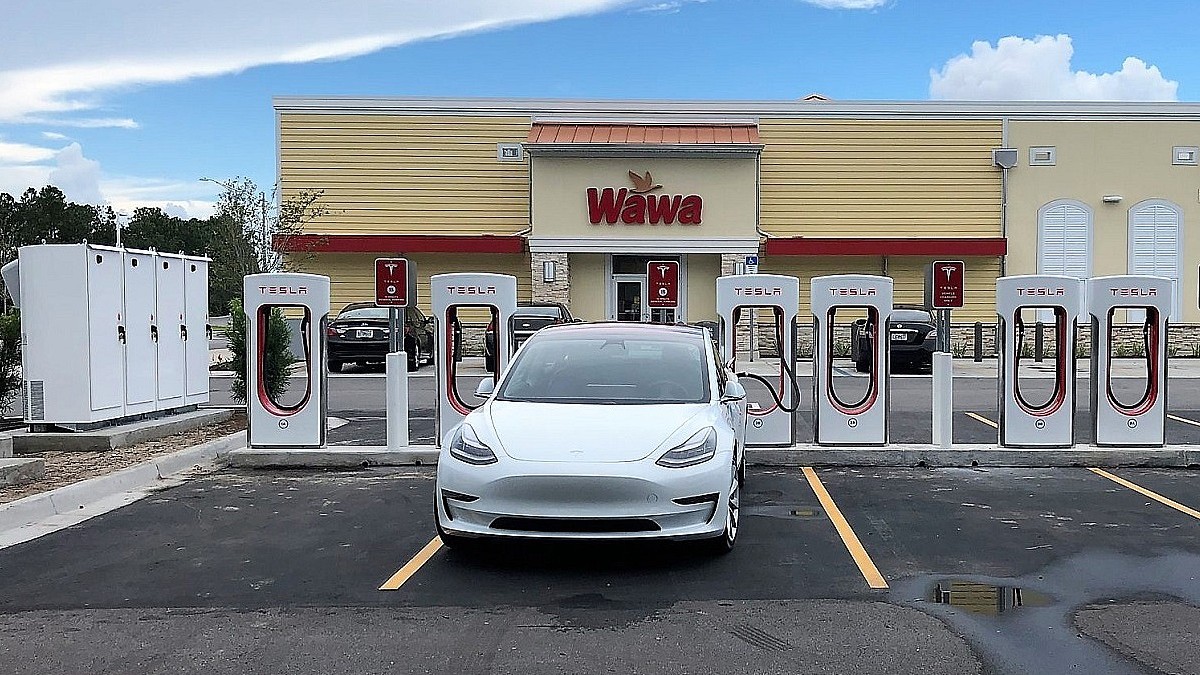
The Federal Highway Administration (FHWA) just issued a new notice today that aims to make it harder for states to actually spend the money in one of Donald Trump’s favorite punching bags: the $5 billion National Electric Vehicle Infrastructure ( NEVI) Formula Program.
more…
https://electrek.co/2026/02/10/trump-cant-freeze-nevi-funds-so-hes-trying-to-stall-them-again/
Interior Dept directs IT shop to ‘scrub’ non-English content from its websites
(date: 2026-02-10)
A new disclaimer on Interior Department websites states “English is the official language and authoritative version of all federal information.”
https://federalnewsnetwork.com/technology-main/2026/02/interior-dept-directs-it-shop-to-scrub-non-english-content-from-its-websites/
What A Day: A Song of ICE and Liars
(date: 2026-02-10)
Lawmakers grilled ICE’s top official on agents’ deadly actions.
https://crookedmedia.substack.com/p/what-a-day-a-song-of-ice-and-liars
Tesla Semi specs and pricing, L4 haul trucks, and Windrose’ mobile AI concept
(date: 2026-02-10)

On today’s long overdue episode of Quick Charge, we’ve finally got production specs and pricing on the Tesla Semi first revealed by Elon Musk nine (9) years ago. Will it be a revolution, or a case of too little, too late to make a real impact?
more…
https://electrek.co/2026/02/10/tesla-semi-specs-and-pricing-l4-haul-trucks-and-windrose-mobile-ai-concept/
USA dominates short-handed Canada to close out women’s hockey group play
(date: 2026-02-10)
-
Hannah Bilka scores twice in 5-0 shutout win
-
Canada captain Marie-Philip Poulin out with injury
-
US will face Italy in quarter-final on Friday
Hannah Bilka scored twice, and the United States’ youth and speed overwhelmed a Canadian women’s hockey team missing its captain in a 5-0 win at the Milan Cortina Games on Tuesday.
The lopsided victory in Milan clinched first place for the US in Group A entering the quarter-finals, and continued confirming why the Americans entered the tournament as favorites. Team USA swept all four preliminary-round games by a combined score of 20-1 and brought back memories of how a Canadian team in their prime rolled to winning gold at the 2022 Beijing Games.
Continue reading...
https://www.theguardian.com/sport/2026/feb/10/us-canada-olympic-womens-hockey
Trump to repeal Obama-era finding foundational to US climate rules
(date: 2026-02-10)
Climate groups vow to fight rollback of 2009 finding determining CO2 and other greenhouse gases harm health
In what is set to be its most audacious anti-environment move yet, the Trump administration on Thursday will roll back the mechanism allowing the government to regulate planet-heating pollution, the White House press secretary has told reporters.
“President Trump will be joined by EPA Administrator Lee Zeldin to formalize the recession of the 2009 Obama-era endangerment finding,” Karoline Leavitt said at a press conference on Tuesday. “This will be the largest deregulatory action in American history.”
Continue reading...
https://www.theguardian.com/us-news/2026/feb/10/trump-repeal-regulation-greenhouse-gases
Democratic congressman Ro Khanna names six men appearing in unredacted Epstein files – live
(date: 2026-02-10)
Khanna, who co-sponsored the Epstein transparency act, named six people including Victoria’s Secret tycoon Leslie Wexner on the House floor
Jamie Raskin, a top House Democrat, accused the justice department of making “puzzling, inexplicable redactions” to documents related to Jeffrey Epstein that obscured the names of abusers, while allowing the identities of the disgraced financier’s victims to become public.
Raskin told reporters that he wanted to view the complete files to better understand how the justice department handled the redaction process.
Continue reading...
https://www.theguardian.com/us-news/live/2026/feb/10/donald-trump-ice-democrats-shutdown-jeffrey-epstein-canada-live-news-updates
VA EHR reboot aims for faster deployments after years of delays and outages
(date: 2026-02-10)
VA Deputy Secretary Paul Lawrence says the department is staffing up at sites preparing to use the new Electronic Health Record later this year.
https://federalnewsnetwork.com/it-modernization/2026/02/va-ehr-reboot-aims-for-faster-deployments-after-years-of-delays-and-outages/
Want To Save $92,000 On An Audi E-Tron GT? The Used Deals Are Wild
(date: 2026-02-10)
One of the sickest EVs ever is a ridiculous used-car bargain. Get them while you can.
https://insideevs.com/news/786900/e-tron-gt-used-deals/
Real-time rewrite of federal buying rules is roiling acquisition
(date: 2026-02-10)
"It signals that there's some openness to looking at creative ways to leverage this tool and deliver better value," Emily Murphy said.
https://federalnewsnetwork.com/contracting/2026/02/real-time-rewrite-of-federal-buying-rules-is-roiling-acquisition/
Epstein engineered intimate relationship for Tesla’s Kimbal Musk, emails show
(date: 2026-02-10)
Elon Musk’s younger brother and the woman were involved for about six months between 2012 and 2013
Jeffrey Epstein engineered an intimate relationship between a woman in his network and Kimbal Musk, who is the brother of Elon Musk and on the board of directors at Tesla, according to emails from the Department of Justice’s recent release of documents involving the convicted sex offender. The younger Musk and the woman were involved for around six months between 2012 and 2013, with Kimbal Musk describing them as “dating”.
In the lead-up to Musk and the woman’s first meeting, Epstein and his longtime associate Boris Nikoliclabored to set them up and bring her to a birthday party Musk was throwing – with Nikolic telling Epstein: “please prepare [the woman] —;)”
Continue reading...
https://www.theguardian.com/us-news/2026/feb/10/jeffrey-epstein-tesla-kimbal-musk
Ford’s EV shakeup leads to its worst quarterly loss since 2008
(date: 2026-02-10)
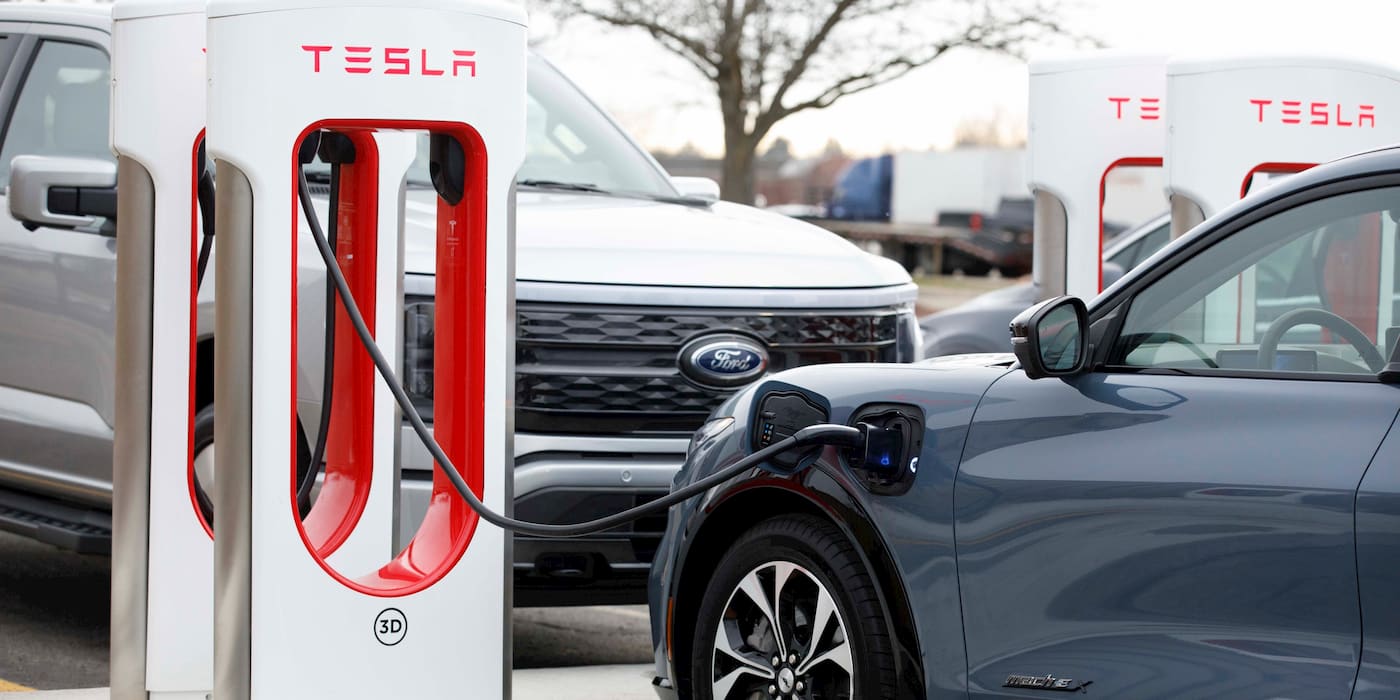
Ford reported fourth-quarter and full-year 2025 earnings after the market closed. Despite beating top-line estimates, Ford’s updated EV plans took a bigger toll than expected on profits.
more…
https://electrek.co/2026/02/10/fords-ev-shakeup-leads-to-worst-quarterly-loss-since-2008/
Debunked claims from election deniers influenced FBI raid in Georgia, affidavit reveals
(date: 2026-02-10)
The 28 January raid of the Fulton county election office also came after a referral from a White House lawyer
The FBI’s rationale behind raiding the Fulton county election office in Georgia last month was based on debunked claims from election deniers and came after a referral from a White House lawyer who tried to overturn the 2020 election, a search warrant affidavit unsealed on Tuesday reveals.
The warrant offers the first insight for the basis for the FBI’s 28 January raid on the Fulton county election office. FBI officials seized nearly 700 boxes of election materials in the raid.
Continue reading...
https://www.theguardian.com/us-news/2026/feb/10/fbi-raid-fulton-county-voting-office-search-affidavit
Trump administration removes LGBTQ+ Pride flag from Stonewall national monument
(date: 2026-02-10)
‘They cannot erase our history. Our Pride flag will be raised again,’ says Manhattan borough president
The Trump administration has removed a large pride flag from the Stonewall national monument in New York City, marking the latest move by the federal government to end diversity initiatives and sanitize the history shared in national parks.
The monument commemorates the June 1969 riots that followed a police raid on the Stonewall Inn, a popular gay bar in Manhattan’s Greenwich Village. The six days of protests against the police action were a key moment in sparking the modern LGBTQ+ rights movement, and the site has since become a national symbol of LGBTQ+ Pride.
Continue reading...
https://www.theguardian.com/us-news/2026/feb/10/lgbtq-pride-flag-stonewall-trump-removal
Democrat Ro Khanna reveals six men's names in Epstein files – video
(date: 2026-02-10)
The Democratic congressman Ro Khanna read out the names of six wealthy men included in the Jeffrey Epstein files.
In a post on X at lunchtime, Khanna, of California, named the six as Salvatore Nuara, Zurab Mikeladze, Leonic Leonov, Nicola Caputo, Sultan Ahmed Bin Sulayem and Leslie Wexner. He said he and his Republican colleague Thomas Massie had forced the Department of Justice to disclose the 'hidden' names.
Reading the names in the House of Representatives, Khanna availed himself of protection from any defamation lawsuit by the speech and debate clause of the US constitution.
Continue reading...
https://www.theguardian.com/us-news/video/2026/feb/10/democrat-ro-khanna-reveals-six-mens-names-in-epstein-files-video
ICE director refuses to commit to pausing operations for 2026 World Cup
(date: 2026-02-10)
The acting director of US Immigration and Customs Enforcement (ICE) told a congressional committee on Tuesday that his agency is a “key part of the overall security apparatus for the World Cup” and refused to commit to pausing operations near games at this summer’s tournament.
The 2026 World Cup will be hosted this summer by the United States, Mexico, and Canada, with 78 of the 104 games taking place in the US. Various entities have estimated that up to 10 million people could visit the 11 US host cities for the quadrennial tournament. However, ICE’s role in Donald Trump’s immigration crackdown – including an extended and widespread operation in the Minneapolis/Saint Paul metropolitan area in which two people were killed by federal agents – has raised serious concerns among fans.
Continue reading...
https://www.theguardian.com/football/2026/feb/10/ice-director-testimony-world-cup-2026-operations
Flowers, hugs and free cups of comfort: How Tumbler Ridge, B.C., is coming together to grieve a tragedy
(date: 2026-02-10)

https://www.cbc.ca/news/canada/british-columbia/tumbler-ridge-bc-grieving-in-wake-of-mass-fatal-shooting-9.7087200?cmp=rss
Tumbler Ridge shooter was 'hunting,' not targeting specific people at school: B.C. RCMP
(date: 2026-02-10)

https://www.cbc.ca/news/canada/british-columbia/livestory/tumbler-ridge-bc-mass-shooting-updates-february-13-9.7089249?cmp=rss
'Canadians are with you. We will always be with you': PM addresses vigil for Tumbler Ridge shooting victims
(date: 2026-02-10)

https://www.cbc.ca/news/canada/british-columbia/tumbler-ridge-mass-shooting-vigil-9.7089792?cmp=rss
Man pleads not guilty in 2nd-degree murder trial for 2023 Vancouver Starbucks stabbing
(date: 2026-02-10)

A five-week trial has started for a man accused of second-degree murder in the stabbing death of Paul Schmidt outside a Downtown Vancouver Starbucks in March 2023.
https://www.cbc.ca/news/canada/british-columbia/inderdeep-singh-gosal-murder-trial-vancouver-9.7083717?cmp=rss
Tesla pushed EV prices lower in January, but sales kept sliding
(date: 2026-02-10)

EV prices fell again in January, with Tesla doing most of the cutting. But cheaper EVs didn’t translate into stronger sales, according to new estimates from Kelley Blue Book.
more…
https://electrek.co/2026/02/10/tesla-ev-prices-january-sales-kept-sliding/
Winter Olympics 2026 day four: Slovenia win ski jumping gold as Sweden’s Wranå siblings star – as it happened
(date: 2026-02-10)
Ooooh, Ariane Raedler of Austria, eighth in the individual event, nails 1:35.65, a time that would’ve been good enough for bronze; she takes the lead, giving Katharina Huber, her partner, a chance in the second portion.
Miradoli of France lays down a quicker time than she did coming 16th in the individual downhill, 1:37.37; I guess she’s used to the course now. Our big names, though, don’t come out for a while: Goggia, who took bronze in the individual event is ninth, Aicher who claimed silver, is doing the slalom portion, and Johnson is 14th with Srobova, Vlhova’s partner, going 28th and last.
Continue reading...
https://www.theguardian.com/sport/live/2026/feb/10/winter-olympics-2026-live-day-four
FBI releases door-camera images of ‘armed individual’ in Nancy Guthrie case
(date: 2026-02-10)
Today show’s Savannah Guthrie says: ‘We believe she is still alive’ as agency hunts for person pictured on Nest camera
The FBI on Tuesday released new photos and video footageof someone the agency’s director described as “an armed individual appearing to have tampered with the camera at Nancy Guthrie’s front door the morning of her disappearance”.
Broadcast journalist Savannah Guthrie, host of NBC’s Today and Nancy’s daughter, wrote on social media: “We believe she is still alive. Bring her home.”
Continue reading...
https://www.theguardian.com/us-news/2026/feb/10/savannah-guthrie-missing-mom-nancy
Netanyahu again flies through Canadian airspace en route to Washington
(date: 2026-02-10)

Online flight trackers show that Israeli Prime Minister Benjamin Netanyahu flew hundreds of kilometres through Canadian airspace on his way to meet U.S. President Donald Trump this week — despite Prime Minister Mark Carney previously saying he would honour an arrest warrant issued by the International Criminal Court.
https://www.cbc.ca/news/politics/netanyahu-canadian-airspace-9.7083737?cmp=rss
Israel ‘Evaporated’ Over 2,800 Palestinians With US-Made Bombs: Report
(date: 2026-02-10)
The Trump and Biden administrations armed Israel with thousands of 2,000-pound bombs that have vaporized flesh and decimated Gaza.
https://zeteo.com/p/israel-evaporated-over-2800-palestinians-gaza
The power of reading and writing as self-care
(date: 2026-02-10)
Cliche or not, engaging with art is certainly one of the best ways to take a step back when the news cycle gets extra heavy. On the show today, Kimberly is joined by Maggie Smith, poet and host of “The Slowdown” podcast. They talk about why reading and writing are so good for the soul, and about the importance of practicing creativity when funding for the arts is under attack. Maggie also reads a poem she selected specially for us! Plus, we’ll hear from two listeners about their self-care rituals.
https://www.marketplace.org/episode/2026/02/10/the-power-of-reading-and-writing-as-selfcare
The 2026 Nissan Rogue Plug-in Hybrid starts at under $46,000 with 38 miles electric range
(date: 2026-02-10)

Nissan announced prices for its first plug-in hybrid (PHEV), the 2026 Rogue, will start at under $46,000.
more…
https://electrek.co/2026/02/10/nissan-rogue-phev-starts-under-46k-with-38-miles-ev-range/
US commerce secretary Howard Lutnick says he had lunch with Epstein on his private island
(date: 2026-02-10)
As he faces calls from lawmakers to resign, Lutnick testifies that he and his family visited disgraced financier in 2012
The US commerce secretary, Howard Lutnick, had lunch with the convicted sex offender Jeffrey Epstein on the disgraced financier’s private island, he said on Tuesday, as he faces mounting calls to resign from lawmakers on both sides of the aisle.
“I did have lunch with him, as I was on a boat going across on a family vacation” in 2012, Lutnick said in testimony on Tuesday before the Senate appropriations committee.
Continue reading...
https://www.theguardian.com/us-news/2026/feb/10/howard-lutnick-epstein-private-island
New Orleans archbishop meets with survivors of clergy sexual abuse
(date: 2026-02-10)
Series of meetings is mandated by $305m settlement agreement for 600 survivors of decades-long abuse scandal
A small number of victims of New Orleans’ Catholic clergy abuse scandal filed into a local church office recently for the first of 10 group meetings with Archbishop Gregory Aymond.
The New Orleans archdiocese agreed to the meetings as part of settling its six-year-old federal bankruptcy protection case in December. Such group and one-on-one meetings are some of the non-monetary terms of a settlement that is expected to otherwise pay about 600 abuse survivors $305m.
Continue reading...
https://www.theguardian.com/us-news/2026/feb/10/new-orleans-archbishop-aymond-clergy-sexual-abuse-survivors
Olympic viewing guide Day 5: Canadians eye figure skating medal
(date: 2026-02-10)

CBC Sports' daily Olympics newsletter recaps the highlights (and lowlights) of Day 4 before looking ahead to Wednesday's key events, including the start of men's hockey and a Canadian medal chance in figure skating.
https://www.cbc.ca/sports/olympics/winter/the-buzzer-newsletter-day5-lookahead-feb10-9.7083832?cmp=rss
Blue Jays' Anthony Santander will miss months due to surgery
(date: 2026-02-10)

Toronto Blue Jays outfielder Anthony Santander will miss much of the 2026 Major League Baseball season as a result of surgery, team officials said Tuesday.
https://www.cbc.ca/sports/baseball/mlb/blue-jays-injuries-santander-9.7083751?cmp=rss
Facing harsh federal workforce realities, how can leaders motivate teams?
(date: 2026-02-10)
"The leadership part is understanding what you're able to do and what you're not able to do, and engage the workforce in that conversation," Dave Lebryk said.
https://federalnewsnetwork.com/workforce/2026/02/facing-harsh-federal-workforce-realities-how-can-leaders-motivate-teams/
'I did have lunch with him': Lutnick admits meeting Epstein on private island – video
(date: 2026-02-10)
The US commerce secretary, Howard Lutnick, said he met the sex offender Jeffrey Epstein twice after his 2008 conviction, backtracking on his previous claims that he had cut ties after 2005.
Lutnick admitted he had lunch with Epstein on his private island in 2012 in testimony on Tuesday before the Senate appropriations committee.
Democrats, including House members Ro Khanna, Ted Lieu, Melanie Stansbury, as well as Senator Adam Schiff, have called for Lutnick to step down
Continue reading...
https://www.theguardian.com/us-news/video/2026/feb/10/i-did-have-lunch-with-him-lutnick-admits-meeting-epstein-on-private-island-video
Montreal man arrested in connection to Ryan Wedding case
(date: 2026-02-10)

A Montreal man wanted by the FBI in connection to the Ryan Wedding case was arrested Monday in New Jersey. Tommy Demorizi was wanted for multiple offences, including helping to locate a witness who was later murdered.
https://www.cbc.ca/news/canada/tommy-demorizi-ryan-wedding-arrest-9.7083596?cmp=rss
How to turn a lifetime of savings into a steady retirement paycheck
(date: 2026-02-10)
"One of the biggest things that we like to remind people is that when you hit retirement you have to start managing your money in reverse," Thiago Glieger said.
https://federalnewsnetwork.com/retirement/2026/02/how-to-turn-a-lifetime-of-savings-into-a-steady-retirement-paycheck/
The Trump Admin Arrested an Antifascist for Shit-Talking a Fascist
(date: 2026-02-10)
A supposed ‘antifa domestic terrorist’ was arrested for ‘cyberstalking’ a controversial right-wing agitator who showed up at a reporter’s home to threaten him.
https://zeteo.com/p/trump-admin-dhs-arrest-antifascist-kyle-wagner
Republicans were already losing Latino support. Then Trump went after Bad Bunny
(date: 2026-02-10)

Donald Trump's success in attracting a broad range of Americans to vote Republican, including among the Latino community, was key to his presidential election victory in 2024. Now in 2026, Trump's distaste for the all-Spanish-language Super Bowl halftime performance by Bad Bunny suggests scoring points with Latino voters is no longer a high priority for the president.
https://www.cbc.ca/news/world/trump-bad-bunny-super-bowl-halftime-show-latino-voters-9.7081577?cmp=rss
EcoFlow Valentine’s Day Sale offers up to 64% savings on power stations, Anker SoloCam S340 kits from $350 low, Velotric, more
(date: 2026-02-10)

Our Tuesday Green Deals this week are headlined by the late-start EcoFlow Valentine’s Day Sale with up to 64% discounts and bonus savings, with notable price cuts like the DELTA 3 Plus Portable Power Station getting a FREE protective bag at a new \(599 low](https://9to5toys.com/2026/02/10/ecoflow-valentines-day-sale-delta-3-plus-power-station-bundle-low-more/), among others. We also have the solar-charging [Anker eufy Security SoloCam S340 2-Cam and 4-Cam kits starting from a \)350 low, as well as Velotric’s T1 ST Plus Lightweight Urban e-bike with Apple Find My getting \(512 savings to [\)1,299](https://9to5toys.com/2026/02/09/velotric-t1-st-plus-e-bike-apple-find-my-512-savings-1299-more/) (the best price of the last year), a highly upgraded EGO Power+ cordless electric string trimmer, and much more waiting for you below. And don’t forget the hangover deals at the bottom of the page, like yesterday’s compact 192Wh and 288Wh Anker power station discounts, the new low prices on the eufy E15/E18 robot lawn mowers, and more.
Head below for other New Green Deals we’ve found today and, of course, Electrek’s best EV buying and leasing deals. Also, check out the new Electrek Tesla Shop for the best deals on Tesla accessories.
more…
https://electrek.co/2026/02/10/ecoflow-valentines-day-sale-power-stations-anker-solocam-s340-velotric-more/
Tesla promotes EMEA exec Joe Ward to lead global sales amid European collapse
(date: 2026-02-10)

Tesla has named Joe Ward, its Vice President for Europe, the Middle East, and Africa (EMEA), to oversee global sales operations, according to a report from Bloomberg.
The move comes as Tesla’s automotive business continues to struggle, particularly in Europe where sales have collapsed over the past two years.
more…
https://electrek.co/2026/02/10/tesla-promotes-emea-exec-joe-ward-to-lead-global-sales-amid-european-collapse/
FAW installs ‘industry first’ semi-solid-state battery in an EV, promising 1,000+ km range
(date: 2026-02-10)

Automakers, battery manufacturers, and companies from around the globe are racing to bring solid-state EV batteries to market, promising significant improvements in energy density, charging, and driving range.
more…
https://electrek.co/2026/02/10/faw-installs-first-semi-solid-state-ev-battery-with-1000-km-range/
Freezing Temps Crush Range. But Kia's Newest EV Dominated This Test
(date: 2026-02-10)
A Kia EV2 prototype took part in a brutal sub-zero range test in Norway and lost less than 25% of its claimed range.
https://insideevs.com/news/786909/ev2-prototype-winter-range-tests/
Canada women's hockey team vows to learn from 7th consecutive loss to U.S., but time is running out
(date: 2026-02-10)

The Canadians generated few high-danger shots against the Americans, who they're likely to see again in the final.
https://www.cbc.ca/sports/olympics/winter/hockey/canada-us-preliminary-round-analysis-2026-9.7083729?cmp=rss
The Mummy (no, not Lee Cronin's The Mummy) will return in May 2028
(date: 2026-02-10)
Many mummies are making money moves at the movies. But only one Mummy movie has Brendan Fraser and Rachel Weisz.
https://www.pastemagazine.com/movies/the-mummy-4-brendan-fraser-rachel-weisz-release-date-announcement
In Cuba, people go without food and power as U.S. chokes oil supply and tourists flee
(date: 2026-02-10)

Some Cubans say everyday life on the Caribbean island has reached a breaking point amid a fuel shortage brought about by the U.S. squeezing the country’s oil supply. Meanwhile, Canadian airlines suspended service to the island and are ferrying tourists back home.
https://www.cbc.ca/news/world/cuba-fuel-crisis-9.7083047?cmp=rss
All 8 victims killed in Tumbler Ridge, B.C., shooting now identified
(date: 2026-02-10)

https://www.cbc.ca/news/canada/british-columbia/livestory/active-shooter-alert-tumbler-ridge-secondary-school-bc-live-updates-9.7083740?cmp=rss
Prediction market Kalshi reached $1bn in trading volume during Super Bowl
(date: 2026-02-10)
Kalshi says ‘incredible weekend’ after $145m in bets on Bad Bunny’s opening song and guests during half-time show
Online prediction market Kalshi hit a daily record on Super Bowl Sunday, surpassing $1bn in trading volume, the company announced on Tuesday.
Kalshi’s CEO, Tarek Mansour, called it an “incredible weekend”, telling CNBC that “Kalshi was the biggest brand of the Super Bowl this year, without running a Super Bowl ad”.
Continue reading...
https://www.theguardian.com/business/2026/feb/10/kalshi-super-bowl
Analilia Mejia scores progressive upset in New Jersey primary as rival concedes
(date: 2026-02-10)
Ex-congressman Tom Malinowski congratulates activist on ‘hard-won victory’ in special primary for US House seat
In what would be an upset victory that may carry implications for Democrats nationwide, the progressive activist Analilia Mejia on Tuesday was on the verge of winning a special primary for a US House seat in New Jersey after her main challenger conceded defeat.
Former congressman Tom Malinowski issued a statement congratulating Mejia, a former adviser to Bernie Sanders’ 2020 presidential campaign and leader of New Jersey’s Working Families Alliance who has narrowly been in the lead since last Thursday’s election.
Continue reading...
https://www.theguardian.com/us-news/2026/feb/10/analilia-mejia-new-jersey-election-democrats
Japan's ‘Iron Lady’ rolled the dice and won | About That
(date: 2026-02-10)

Andrew Chang explains Japanese Prime Minister Sanae Takaichi's landslide victory in a snap election — and what this means for the country's military amid rising tensions with China.
Images provided by The Canadian Press, Reuters and Getty Images
https://www.cbc.ca/player/play/9.7083708?cmp=rss
Wyden pledges to keep hold on nominee to lead CISA
(date: 2026-02-10)
Wyden said he will continue to object to Sean Plankey’s nomination until CISA releases a 2022 report on security flaws in the U.S. telecommunications system.
https://federalnewsnetwork.com/federal-newscast/2026/02/wyden-pledges-to-keep-hold-on-nominee-to-lead-cisa/
Olympic bronze medal winner wants everyone to know he cheated on his girlfriend
(date: 2026-02-10)
Norway’s Sturla Holm Laegreid made the "biggest mistake" of his life by cheating on his girlfriend and used his moment in the Olympic sun to admit his infidelity.
https://www.pastemagazine.com/tv/2026-winter-olympics/winter-olympics-norway-sturla-holm-laegreid-bronze-medal-cheated-girlfriend
What it was like being a bushel of grass in Bad Bunny’s Super Bowl ‘field of dreams’
(date: 2026-02-10)

Andrew Athias was one of hundreds of human bushels of grass who helped make up the sugarcane field setting of Bad Bunny's Super Bowl halftime show performance on Sunday.
https://www.cbc.ca/radio/asithappens/badbunny-superbowl-grassman-9.7083451?cmp=rss
Common misconceptions about federal retirement benefits
(date: 2026-02-10)
With so many currently heading for the exit, it’s a good time for federal employees to improve their understanding of the retirement process.
https://federalnewsnetwork.com/federal-insights/2026/02/common-misconceptions-about-federal-retirement-benefits/
Kia EV2 crushes cold weather test with impressive driving range and charging speeds
(date: 2026-02-10)

Who said electric vehicles don’t belong in the frigid cold? Kia’s smallest, most affordable EV, the EV2, achieved impressive range and charging performance in cold-weather testing, even though it’s still a prototype.
more…
https://electrek.co/2026/02/10/kia-ev2-crushes-cold-weather-driving-range-charging-test/
Anger builds over Trump's threats to block opening of Gordie Howe bridge linking Ontario-Michigan
(date: 2026-02-10)

A tradesperson who worked on construction of the Gordie Howe International Bridge says she was disheartened and frustrated by U.S. President Donald Trump’s threat to block the opening of the border crossing connecting Ontario and Michigan. And she's not the only one expressing upset over his remarks.
https://www.cbc.ca/news/canada/windsor/windsor-trump-gordie-howe-threat-worker-reaction-9.7083360?cmp=rss
Spider-Man turns on the dark in new look at Spider-Noir
(date: 2026-02-10)
Nicolas Cage will play private dick Ben Reilly, "The Spider," on the live-action Spider-Noir series from Prime Video.
https://www.pastemagazine.com/tv/spider-noir/spider-noir-color-bw-pictures-nicolas-cage-spider-man-marvel
Melania's budget could've paid the salaries of every fired Washington Post employee, three times over
(date: 2026-02-10)
An incomplete breakdown of Jeff Bezos' financial priorities, weighing one piece of propaganda (Melania) against 300 journalists.
https://www.pastemagazine.com/movies/melania-budget-paid-every-fired-washington-post-journalist-salary-three-times
Veteran Vancouver Canucks announcer Jim Robson dead at 91
(date: 2026-02-10)

Robson called more than 2,000 NHL games over his 47-year career in broadcasting, but is best remembered for announcing Canucks games for more than 30 years — starting with their very first major league game, as an expansion team, on Oct. 9, 1970.
https://www.cbc.ca/news/canada/british-columbia/vancouver-canucks-jim-robson-obituary-9.7083412?cmp=rss
Oral HIV self-test approved for sale in Canada
(date: 2026-02-10)

People in Canada have a new, less invasive way to test for HIV at home, following Health Canada's approval of an oral self-test.
https://www.cbc.ca/news/health/oral-hiv-test-approved-oraquick-9.7082612?cmp=rss
Reflections on GSA’s value-added reseller RFI
(date: 2026-02-10)
While the RFI is a positive step in GSA’s efforts to gain insights into the commercial IT market, it also raises procurement policy and program considerations.
https://federalnewsnetwork.com/commentary/2026/02/reflections-on-gsas-value-added-reseller-rfi/
Feds with Benefits: Healthcare affordability part 1 — Can feds save money on prescription drug costs with TrumpRX?
(date: 2026-02-10)
Can the newly launched TrumpRX program help federal employees save money on their out-of-pocket prescription drug costs?
https://federalnewsnetwork.com/feds-with-benefits/2026/02/feds-with-benefits-healthcare-affordability-part-1-can-feds-save-money-on-prescription-drug-costs-with-trumprx/
Rivian R2 prototypes hit the media and revealed new performance specs as a Tesla Model Y competitor
(date: 2026-02-10)

Rivian R2 prototypes have now been driven by a select few in digital media, and we have learned quite a bit more about this price-friendly SUV, including potential performance specs.
more…
https://electrek.co/2026/02/10/rivian-r2-prototypes-new-performance-specs/
Maine Republican senator Susan Collins launches re-election bid for pivotal seat
(date: 2026-02-10)
Collins is expected to face tough re-election battle as Democrats seek to flip seat in this year’s midterm elections
Susan Collins, the Maine Republican senator who is a top target of Democrats in this year’s midterm elections, on Tuesday launched her campaign for a sixth term in office.
She is expected to face one of the toughest re-election battles of the year, as victory in Maine is seen as essential to Democrats’ hopes of winning back control of the Senate, and putting a halt to Donald Trump’s legislative agenda. First elected in 1996, Collins is among the few Republican senators who occasionally defy the president, and is the only one representing a state that the president did not carry in his successful re-election bid two years ago.
Continue reading...
https://www.theguardian.com/us-news/2026/feb/10/maine-republican-susan-collins-senate-reelection-bid
Tesla is quoting $290,000 for its 500-miles electric semi truck
(date: 2026-02-10)

Tesla is quoting customers $290,000 for the 500-mile Long Range version of the Tesla Semi, Electrek has learned. The pricing is consistent with data from California’s HVIP voucher program, finally giving us clarity on what the production electric truck will cost after years of speculation.
more…
https://electrek.co/2026/02/10/tesla-quoting-price-500-miles-electric-semi-truck/
Enforce and Strengthen Price Discrimination Laws
(date: 2026-02-10)
Enforcing and strengthening price discrimination bans would help lower prices, create new markets for farmers and food manufacturers, and ensure small grocers can compete fairly.
https://ilsr.org/article/independent-business/enforce-and-strengthen-price-discrimination-laws
EPA set to finalize illegal dirty air plan to hike fuel costs 76c/gal, despite outcry
(date: 2026-02-10)

In July, the US Environmental Protection Agency proposed a plan to delete its scientific finding recognizing that greenhouse gases are harmful to human health, with the goal of making cars less efficient, deadlier and more costly. Public comments widely opposed the plan, but now before the agency has barely even started reading those comments, it looks like it’s going through with its illegal plan anyway.
more…
https://electrek.co/2026/02/10/epa-set-to-finalize-illegal-dirty-air-plan-to-hike-fuel-costs-76c-gal-despite-outcry/
Is Charley Crockett the only cowboy willing to resist country music's MAGA machine?
(date: 2026-02-10)
While Turning Point’s “All-American Halftime Show” parades country stars for the alt-right, Crockett is busy calling out the “cosplay president” and telling Nashville to take notes from Bad Bunny.
https://www.pastemagazine.com/music/charley-crockett/charley-crockett-commends-bad-bunny-denounces-trump
A closer eye on employment costs
(date: 2026-02-10)
The cost of employing people didn't go up as much as predicted. At one level, that's too bad since who doesn't want a bigger raise? But if you're worried about interest rates or want inflation to come down, you may see this differently, which may be a bigger story than news of disappointing retail sales. Plus, South African farmers are turning to China for sales, and job market expectations improved in January.
https://www.marketplace.org/episode/2026/02/10/an-eye-on-employment-costs
Pillion's Harry Lighton on his coming-of-kink film's "high-school transformation"
(date: 2026-02-10)
The A.V. Club spoke to Pillion filmmaker Harry Lighton about the locks, masks, and leather of his kinky romance.
https://www.pastemagazine.com/movies/interview/pillion-harry-lighton-interview-gear-kink-fetish-wear
While rivals scale back EV plans, Hyundai bets on battery tech and improved charging
(date: 2026-02-10)

After notching its fifth straight record-breaking sales year in the US, Hyundai has no plans of slowing down. The company is ramping up local production while advancing new battery tech to boost EV sales.
more…
https://electrek.co/2026/02/10/hyundai-ev-battery-tech-better-charging-boost-sales/
'A Better Product': What Rivian Learned From The R1 To Make The R2
(date: 2026-02-10)
Rivian engineers and designers say they took customer feedback seriously from the R1S and R1T to make the R2. Among them: two glove boxes.
https://insideevs.com/news/786885/rivian-r1s-r2-lessons-design/
What makes 'Quad God' Ilia Malinin so good at landing the hardest jump in figure skating?
(date: 2026-02-10)

U.S. figure skater Ilia Malinin is no stranger to making history. He became the first person to successfully land a quadruple axel in competition and is widely known for his quad-jumping prowess. Kurt Browning, the legendary Canadian figure skater who was the first person to ever land a ratified quad jump in competition, tells us what makes Malinin so good at it.
https://www.cbc.ca/sports/olympics/how-is-ilia-malinin-so-good-at-quads-9.7083108?cmp=rss
Fact check: Fake CBC video on Ukrainian athletes at Olympics
(date: 2026-02-10)

A fake video featuring CBC News chief correspondent Adrienne Arsenault is spreading misinformation about Ukrainians at the Milano-Cortina Winter Games. The CBC’s fact-check team breaks down how a real video was altered to create the fake.
https://www.cbc.ca/player/play/9.7083292?cmp=rss
Sask. group home worker testifies at trial, denies abusing people in her care
(date: 2026-02-10)

Jaclyn Elias is charged with assault, sexual assault and uttering threats to vulnerable residents of the care home, who need help with all of their daily needs.
https://www.cbc.ca/news/canada/saskatchewan/group-home-jaclyn-elias-denies-abusing-disabled-residents-wilkie-prairie-branches-9.7083306?cmp=rss
Conservative MP says he's refusing annual pay raise set for April
(date: 2026-02-10)

A Conservative MP says he is asking the House of Commons to freeze his salary before parliamentarians get their annual pay bump in April.
https://www.cbc.ca/news/politics/conservative-mp-rejects-annual-pay-raise-9.7083330?cmp=rss
Republican congressman says Epstein files ‘likely incriminated’ six more men
(date: 2026-02-10)
Thomas Massie told reporters he may reveal the names under congressional privilege if the DoJ does not
Thomas Massie, a US congressman, has said he knows the identity of six more men who are “likely incriminated” by their inclusion in the so-called Jeffrey Epstein files after he viewed an unredacted version of the documents relating to the disgraced late financier and sexual abuser.
The Kentucky Republican suggested he might reveal their names under congressional privilege if the justice department (DoJ) continued to conceal their identities in publicly available copies of the documents that are still redacted.
Continue reading...
https://www.theguardian.com/us-news/2026/feb/10/thomas-massie-epstein-files-redacted-names
The Media Is Biased… Against the Left
(date: 2026-02-10)
Mehdi brings receipts on the glaring absence of progressive voices not just on Bari Weiss’s CBS News but across so-called “liberal” media, and makes the case for independent media.
https://zeteo.com/p/the-media-is-biased-against-the-left
‘So shameful’: backlash as US national monuments conform to Trump’s rewrite of history
(date: 2026-02-10)
From Pennsylvania to Montana, the White House’s war on ‘woke’ has targeted US monuments that address topics like racism and Indigenous history
Blank spaces now exist where a series of panels about enslavement once appeared on the walls of the President’s House in Philadelphia, Pennsylvania. The site, which honors the home of George Washington and John Adams, is a major landmark that bore artwork and informational signs for more than a decade. But on 22 January, National Park Service (NPS) workers used hand tools to pry off 34 panels to comply with a presidential executive order designed to reframe the national narrative. The panels that highlighted the lives of people enslaved by George Washington when Philadelphia was the US capital in the 1790s are now in storage.
The removal is one of several across the nation, as NPS staff aim to conform with Trump’s executive order “Restoring Truth and Sanity to American History” issued on 27 March 2025. Public markers, monuments and statues that the Trump administration considers disparaging to past or current Americans have been flagged at more than a dozen parks. Two exhibits at Montana’s Little Bighorn battlefield national monument that discuss Indigenous history and the Battle of the Little Bighorn have been targeted and deemed noncompliant. Additionally, signage about climate change at Muir Woods national monument in California and visitor brochures at Medgar and Myrlie Evers Home national monument in Mississippi that referred to Medgar Evers’s killer as racist were also removed.
Continue reading...
https://www.theguardian.com/us-news/2026/feb/10/national-monuments-trump-rewrite-history-racism-indigenous-people
At the Super Bowl, Bad Bunny challenged the meaning of ‘America’
(date: 2026-02-10)
The Puerto Rican star’s vision of American identity moved beyond colonial tropes to span an entire hemisphere
By now, many of us have a favorite part of Bad Bunny’s Super Bowl half-time performance. It’s a dense, rich set that invites rewatching to take in every thoughtful, exuberant detail – even though it’s barely 14 minutes long.
My most beloved part occurs a little more than nine minutes into the homage, when the cuatro puertorriqueño appears. The stringed instrument has its own moment in the spotlight, shown in the talented hands of the cuatrista José Eduardo Santana just before Ricky Martin performs.
Continue reading...
https://www.theguardian.com/music/2026/feb/10/super-bowl-bad-bunny-meaning-america-puerto-rico
Person detained for police questioning in Nancy Guthrie disappearance
(date: 2026-02-10)

A person was detained for questioning on Tuesday in the kidnapping of Nancy Guthrie, hours after the FBI released surveillance videos of a masked person wearing a handgun holster outside Guthrie's front door the night she vanished from her Arizona home.
https://www.cbc.ca/news/world/nancy-guthrie-savannah-missing-masked-man-images-9.7083188?cmp=rss
Four players ejected after brawl breaks out during Hornets-Pistons game
(date: 2026-02-10)
-
Police briefly enter court as tempers flare, benches clear
-
Hornets coach Charles Lee later tossed for arguing call
A fight between the Detroit Pistons and Charlotte Hornets in the third quarter of Monday night’s game resulted in four player ejections.
Charlotte’s Moussa Diabate and Miles Bridges were tossed, along with Detroit’s Jalen Duren and Isaiah Stewart. Hornets coach Charles Lee was ejected in the fourth quarter after he had to be restrained from going after an official while arguing a call.
Continue reading...
https://www.theguardian.com/sport/2026/feb/10/hornets-pistons-nba-brawl-suspensions
Keion White becomes second 49ers player shot in San Francisco in 18 months
(date: 2026-02-10)
Keion White, a defensive lineman for the San Francisco 49ers, has undergone surgery after he was shot in the ankle early on Monday morning.
The shooting happened in San Francisco hours after the end of the Super Bowl, which was played at Levi’s Stadium in nearby Santa Clara.
Continue reading...
https://www.theguardian.com/sport/2026/feb/10/keion-white-becomes-second-49ers-player-shot-in-san-francisco-in-18-months
Montreal parish fights to demolish derelict church that's become a TikTok destination
(date: 2026-02-10)

After years of neglect, a fire, hundreds of thousands of dollars in fines from the city and repeated break-ins from urban explorers and teens seeking TikTok fame, the church has taken the unusual step of taking the City of Montreal to court to have the building demolished.
https://www.cbc.ca/news/canada/montreal/montreal-parish-tiktok-destination-9.7083160?cmp=rss
Canada's Chinese EV Deal Doesn't End With Imports
(date: 2026-02-10)
Canada doesn't just want to let in Chinese imports. It wants to work with Chinese car companies to export EVs all over the world.
https://insideevs.com/news/786817/canada-china-joint-venture-export/
Sick of Being Well
(date: 2026-02-10)
A hypochondriac makes the most of Medicare.
Sick of Being Well
The Saturday Evening Post
https://www.saturdayeveningpost.com/2026/02/sick-of-being-well/
More pollution and higher energy costs: critics condemn Trump’s anti-environment agenda
(date: 2026-02-10)
US courts, scholars and Democrats are pushing back against the president’s aggressive drive to boost fossil fuels
Donald Trump’s aggressive drive to boost fossil fuels, including dirty coal, coupled with his administration’s moves to roll back wind and solar power, face mounting fire from courts, scholars and Democrats for raising the cost of electricity and worsening the climate crisis.
Four judges, including a Trump appointee, in recent weeks have issued temporary injunctions against interior department moves to halt work on five offshore wind projects in Virginia, New York and New England, which have cost billions of dollars and are far along in development.
Continue reading...
https://www.theguardian.com/us-news/2026/feb/10/trump-anti-environment-agenda-pushback
Good Luck, Have Fun, Don't Die is sci-fi as annoyingly quirky as its title
(date: 2026-02-10)
Gore Verbinski's AI-centric return to filmmaking, Good Luck, Have Fun, Don't Die is overly trendy, quirky, and predictable.
https://www.pastemagazine.com/movies/good-luck-have-fun-dont-die-review
Judge blocks Fairweather-owned brand from moving into Toronto mall
(date: 2026-02-10)

Mall landlord Oxford Properties has won a fight to prevent an unwanted tenant from moving into the former Hudson's Bay store at Toronto's Yorkdale Shopping Centre. The mall owners had argued the chain felt too "temporary and downmarket" for the luxury shopping centre.
https://www.cbc.ca/news/canada/toronto/yorkdale-fairweather-oxford-mall-9.7083163?cmp=rss
8-year-old Cree/Anishinaabe powwow dancer appears on talk show
(date: 2026-02-10)

A First Nations family recently appeared on a popular U.S. daytime talk show to showcase their own styles of powwow dance.
https://www.cbc.ca/news/indigenous/powwow-dancer-jennifer-hudson-9.7081998?cmp=rss
Small plane lands on Georgia road ‘in the middle of hundreds of vehicles’
(date: 2026-02-10)
Single-engine plane made an emergency landing on a busy road, striking three vehicles and injuring two people
A single-engine plane made an emergency landing on a busy road in Georgia, striking three vehicles and leaving two people with minor injuries, authorities said.
The Hawker Beechcraft BE-36 landed Monday on Browns Bridge Road in Gainesville, about 50 miles (80km) north-east of Atlanta, due to reported engine issues, according to the Federal Aviation Administration and Gainesville police.
Continue reading...
https://www.theguardian.com/us-news/2026/feb/10/small-plane-lands-georgia-road
US figure skater Amber Glenn resolves Winter Olympics music dispute with Canadian artist
(date: 2026-02-10)
The US figure skater Amber Glenn said Tuesday that she has resolved copyright concerns with the Canadian recording artist Seb McKinnon after the musician expressed surprise that one of his songs appeared in her Olympic free skate program, closing a brief dispute that underscored the growing complexity of music rights in figure skating.
McKinnon, who releases music under the name CLANN, posted on social media after Glenn performed to his track The Return during the Olympic team event, questioning whether the music had been cleared. He later congratulated Glenn on her team gold medal, and both sides have since described the episode as a misunderstanding rather than a conflict.
Continue reading...
https://www.theguardian.com/sport/2026/feb/10/us-figure-skater-amber-glenn-resolves-winter-olympics-music-dispute-with-canadian-artist
Cuba struggles as U.S. intensifies oil blockade: former ambassador
(date: 2026-02-10)

After U.S. President Donald Trump signed an executive order to place new sanctions on countries selling oil to Cuba, Mark Entwistle, a former Canadian ambassador to Cuba, says the Trump administration is trying to inflict pain and throttle the country's economy.
https://www.cbc.ca/player/play/9.7083142?cmp=rss
Baby Opie hits Jennifer Hudson’s stage
(date: 2026-02-10)

Opichee Day Bedeau aka Baby Opie and his sister and brother were on the Jennifer Hudson Show to perform their powwow dance style and be interviewed on their culture.
https://www.cbc.ca/player/play/9.7083048?cmp=rss
Trump Rx prescription drug site ‘not a solution’ for many patients, experts say
(date: 2026-02-10)
New website lists only limited number of medications – and many of them cost less in generic form elsewhere
The Trump administration has launched TrumpRx, but there are other sites offering discounts on more medications, and the new government site will appeal to a very limited group of patients, experts say.
Trump has promised reforms on the unusually high drug prices in the US, and he called the announcement “the largest reduction in prescription drug prices in history” at a press conference on Thursday. Yet the site only lists 43 medications, more than half of which are available in generic form at significantly cheaper prices elsewhere.
Continue reading...
https://www.theguardian.com/us-news/2026/feb/10/trump-rx-prescription-drug-website
Companies trumpet rural Newfoundland LNG plans, but mayor says nobody's talked to him
(date: 2026-02-10)

Executives from a South Korean shipbuilding company signed a pact in St. John's recently to pursue a liquefied natural gas operation, but the mayor of the town at the heart of the project says nobody has bothered to call him.
https://www.cbc.ca/news/canada/newfoundland-labrador/fermeuse-lng-proposed-project-9.7082941?cmp=rss
N.B. sends personal info to wrong addresses in medicare mailing mistake
(date: 2026-02-10)

The provincial government sent personal information of some New Brunswickers, such as dates of birth and even social insurance numbers, to the wrong addresses in a medicare mailing mix-up.
https://www.cbc.ca/news/canada/new-brunswick/medicare-mailing-error-personal-information-new-brunswick-9.7081125?cmp=rss
Savage giving specific IT power back to the state agencies
(date: 2026-02-10)
Katie Savage, the Maryland CIO, said she has been setting up centralized enterprise services, but also building up agency technology expertise.
https://federalnewsnetwork.com/ask-the-cio/2026/02/savage-giving-specific-it-power-back-to-the-state-agencies/
Norwegian biathlon bronze medallist confesses to cheating on girlfriend in post-race interview
(date: 2026-02-10)

A post-race interview with the bronze medal winner in the men's Olympic biathlon competition on Tuesday took an unexpected turn when he revealed in a live broadcast that he had been unfaithful to his girlfriend.
https://www.cbc.ca/sports/olympics/winter/biathlon/norwegian-biathlon-bronze-medallist-confesses-cheating-9.7083119?cmp=rss
‘They always gave us the heaviest work’: how Maga billionaires relied on Mexican labor
(date: 2026-02-10)
Trump administration seeks to remove ‘illegal aliens’ but Uline’s past employment practices reveal a different reality
When JD Vance delivered a speech about the US economy late last year at a Uline facility in Allentown, Pennsylvania, he talked up the Trump administration’s key goals: removing “illegal aliens” from the country, rewarding companies that keep jobs in the US, and paying Americans good wages.
“We’re going to reward companies that build here in America and give good wages to do it,” Vance said.
Continue reading...
https://www.theguardian.com/us-news/2026/feb/10/uline-maga-billionaires-mexican-labor
I drove hours to see the monks walking for peace. Five minutes with them was the gift of a lifetime
(date: 2026-02-10)
I glimpsed the monks on their 2,300-mile pilgrimage across America – their message of loving-kindness had me in tears
“I’m obsessed with the monks,” my friend Sam told me. “It’s the only thing getting me through the violence of this second Trump administration. The monks, and my meds.”
I nodded. I’d first heard about the monks walking for peace after my brother and sister-in-law traveled to hear them in Alabama, returning with stories of stillness and a grounded sense of hope.
Continue reading...
https://www.theguardian.com/us-news/2026/feb/10/monks-peace-walk-america
The EPA's major climate policy rollback
(date: 2026-02-10)
Reuters reports that the Environmental Protection Agency will roll back its "endangerment finding" determination, which had been at the core of its regulation of gases linked to climate change and recognized greenhouse gases as a public health threat. Opponents of the rollback say it could encourage states to write new rules on emissions and allow for more pollution. Then, we'll learn how some states are choosing to conform to federal tax changes (or not) made in last summer's huge spending and tax law.
https://www.marketplace.org/episode/2026/02/10/a-major-climate-policy-rollback
Why these monks are walking 3,700 km across the U.S.
(date: 2026-02-10)

A group of 19 Buddhist monks have achieved superstar status in the United States with their 3,700-kilometre walk from Texas to Washington. Their trek is a mission to deliver a message of peace.
https://www.cbc.ca/player/play/9.7082945?cmp=rss
'Puzzling, inexplicable redactions': Jamie Raskin questions DoJ after viewing Epstein files – video
(date: 2026-02-10)
Jamie Raskin, a top House Democrat, accused the justice department of making 'puzzling, inexplicable redactions' to documents related to Jeffrey Epstein that obscured the names of abusers, while allowing the identities of the disgraced financier’s victims to become public. Raskin told reporters that he wanted to view the complete files to better understand how the justice department handled the redaction process
Continue reading...
https://www.theguardian.com/us-news/video/2026/feb/10/jamie-raskin-questions-doj-redactions-epstein-files-video
A bridge at the center of trade tensions
(date: 2026-02-10)
From the BBC World Service: President Trump says he'll prevent a multibillion-dollar bridge linking Canada and the United States from opening unless Canada compensates the U.S. In a lengthy social media post complaining about Canadian trade practices, Trump suggested the U.S. should own half of the Gordie Howe International Bridge, which connects Ontario and Michigan. We'll hear the latest. Plus, how have farmers been dealing with disruption to export markets resulting from Trump's tariffs?
https://www.marketplace.org/episode/2026/02/10/trump-canada-and-heightened-trade-tensions
Alberta reconsiders cutting health coverage for some temporary foreign workers after concerns raised
(date: 2026-02-10)

Alberta is reviewing a health coverage change that left some temporary foreign workers without provincial care earlier this year. Meanwhile, the government confirms Type 58 visa holders can apply once again for health care.
https://www.cbc.ca/news/canada/calgary/alberta-iec-health-coverage-9.7082918?cmp=rss
The lack of music in The moment only reveals the emptiness of its satire
(date: 2026-02-10)
CineMusic: Even with its many attempts at being tongue-in-cheek, Charli XCX’s new film doesn’t have much to say about pop stardom that hasn’t already been said before and dramatized more persuasively. It just prolongs brat past its cultural expiration date.
https://www.pastemagazine.com/music/charli-xcx/cinemusic-the-moment-charli-xcx
First Draft: Inside the Epstein ‘Torture’ Email
(date: 2026-02-10)
Trump’s administration may be playing games about a seriously disturbing Epstein file, a UK minister admits Israel is a rogue state, and Springfield, Ohio, stares down fascism.
https://zeteo.com/p/trump-doj-epstein-redaction-torture-video-file
Barclays CEO ‘shocked’ by Epstein revelations as bank deals with Staley fallout
(date: 2026-02-10)
CS Venkatakrishnan dismayed by ‘depravity and corruption’ revealed in Epstein files as he announces profits
The chief executive of Barclays has said he is “deeply dismayed and shocked” at the “depravity and the corruption” revealed in the Epstein files, as the bank deals with the fallout of its ex-boss Jes Staley’s ties to the convicted child sex offender.
In his first public comments on the matter since the US Department of Justice began publishing documents related to Jeffrey Epstein in December, CS Venkatakrishnan said his thoughts went out to the victims of Epstein, who died in jail in 2019 while awaiting child sex trafficking charges.
Continue reading...
https://www.theguardian.com/business/2026/feb/10/barclays-epstein-files-bank-jes-staley-profits
Canadian oilpatch expected to continue bulking up through mergers and acquisitions
(date: 2026-02-10)

Last year saw a string of blockbuster Canadian deals, but it remains unclear whether foreign buyers are ready to enter the fray.
https://www.cbc.ca/news/canada/calgary/grant-zawalsky-oilpatch-mergers-acquisitions-9.7082793?cmp=rss
Service resumes after network-wide shutdown on Montreal Metro
(date: 2026-02-10)

Montreal's Metro is back up and running after a one-hour network-wide shutdown on Tuesday caused by a communications equipment failure.
https://www.cbc.ca/news/canada/montreal/montreal-metro-shutdown-9.7082947?cmp=rss
MAGA: Defenders of the Epstein Class
(date: 2026-02-10)
Watch now | Epstein revelations continue. New files reveal that the notorious sex offender had closer relationships than previously known with Trump’s inner circle, including Commerce Secretary Howard Lutnick...
https://crookedmedia.substack.com/p/maga-defenders-of-the-epstein-class
Canadian pairs team Stellato-Dudek, Deschamps will compete at Olympics
(date: 2026-02-10)

Canadian pairs team Deanna Stellato-Dudek and Maxime Deschamps will get their chance at Olympic glory after all. The pair will leave Montreal on Wednesday and arrive in Milan on Thursday after Stellato-Dudek was cleared to compete, Skate Canada announced Tuesday.
https://www.cbc.ca/sports/olympics/winter/figure-skating/canadian-pairs-team-stellato-dudek-deschamps-will-compete-at-olympics-9.7082768?cmp=rss
How much power does the Fed chair really have?
(date: 2026-02-10)
On paper, the Fed chair is just one vote among many. In practice, the job carries far more influence. We analyze what gives the Fed chair power.
https://www.npr.org/sections/planet-money/2026/02/10/g-s1-109375/how-much-power-does-the-fed-chair-really-have
The Epstein files: Trump wants to move on – video
(date: 2026-02-10)
Donald Trump has done a number of U-turns on the Epstein files since his campaign in 2024. The president wants the latest batch of files to be the last, but Democrats are pushing for 3m more to be released. The Guardian US reporter Richard Luscombe gives an overview of the latest findings after the Department of Justice released the files
Continue reading...
https://www.theguardian.com/us-news/video/2026/feb/10/the-epstein-files-trump-wants-to-move-on-video
Louisiana bets big on ‘blue ammonia.’ Communities along Cancer Alley brace for the cost.
(date: 2026-02-10)
Carbon capture hasn’t delivered major climate benefits — and the plants would still emit thousands of tons of pollution.
https://floodlightnews.org/louisiana-blue-ammonia-cancer-alley/
TPU? GPU? What's the difference between these two chips used for AI?
(date: 2026-02-10)
Graphics processing units (GPUs) have become the most important commodity in the AI boom — and have made Nvidia a multi-trillion dollar company. But the tensor processing unit (TPU) could present itself as competition for the GPU.
TPUs are developed by Google specifically for AI workloads. And so far, Anthropic, OpenAI and Meta have reportedly made deals for Google’s TPUs.
Christopher Miller, historian at Tufts University and author of "Chip War: The Fight for the World's Most Critical Technology," explains what this could mean.
https://www.marketplace.org/episode/2026/02/10/whats-the-difference-between-tpu-and-gpu-chips
Primal and the art of bringing a character back from the dead
(date: 2026-02-10)
The Adult Swim series avoids merely appeasing its audience with season three's novel approach to reanimation.
https://www.pastemagazine.com/tv/primal-adult-swim-art-of-bringing-character-back-from-the-dead
Canada captain Marie-Philip Poulin ruled out against United States
(date: 2026-02-10)

Captain Marie-Philip Poulin has been ruled out of Canada's women's hockey preliminary-round game against the United States at the Milano-Cortina Olympics with a lower-body injury.
https://www.cbc.ca/sports/olympics/winter/hockey/canada-captain-marie-philip-poulin-ruled-out-against-united-states-9.7082604?cmp=rss
Canada blanked by U.S. in Olympic women's hockey seeding game
(date: 2026-02-10)

A disjointed Canadian women's hockey team fell 5-0 to the United States in Olympic women's hockey Tuesday. Canada was minus captain Marie-Philip Poulin, who sustained a lower-body injury in the previous night's 5-1 win over the Czechs. Brianne Jenner wore the captain's 'C' in Poulin's absence.
https://www.cbc.ca/sports/olympics/winter/hockey/canada-united-states-womens-hockey-recap-milano-cortina-2026-9.7082604?cmp=rss
Parents urge province to create standard of care for Ontario students with diabetes
(date: 2026-02-10)

Parents whose children have Type 1 diabetes are urging the Ministry of Education to create a provincewide standard of care for diabetes in schools, so it doesn't vary from classroom to classroom, school to school, or board to board.
https://www.cbc.ca/news/canada/toronto/parents-seek-standard-for-diabetic-students-9.7082537?cmp=rss
Carney heading to Munich for world's top security conference
(date: 2026-02-10)

Prime Minister Mark Carney is heading to Germany later this week for the world's top security conference, as Canada works to update its own defence policy.
https://www.cbc.ca/news/politics/carney-munich-security-conference-9.7082529?cmp=rss
U.S. Commerce Secretary Lutnick claims no relationship with Epstein amid calls to resign
(date: 2026-02-10)

U.S. Commerce Secretary Howard Lutnick sought to distance himself on Tuesday from Jeffrey Epstein, alleging he "barely had anything to do with" the convicted sex offender amid calls for his resignation over new revelations about ties between the two.
https://www.cbc.ca/news/world/trump-mass-deportation-agenda-congress-9.7082497?cmp=rss
Europeans shunning US as Emirates and Asia travel prove popular, says Tui
(date: 2026-02-10)
Travel company reports lower demand for US amid signs Trump immigration crackdown is deterring travellers
Europeans are booking fewer trips to the US, Europe’s biggest travel operator has said, as appetite for long-haul travel wanes and concerns linger around Donald Trump’s immigration policies.
Tui, which receives most of its bookings from customers in Europe, has seen “significantly lower demand” for travel into the US, according to its chief executive, Sebastian Ebel.
Continue reading...
https://www.theguardian.com/business/2026/feb/10/europeans-us-emirates-asia-travel-tui-trump-immigration-crackdown
Lip Critic rode the Demonator straight to Theft World
(date: 2026-02-10)
Exclusive: When the Brooklyn band dropped Hex Dealer in 2024, they already had a follow-up record in the works—until Bret Kaser’s identity was stolen. Read our feature with the band and listen to “Legs In A Snare” below.
https://www.pastemagazine.com/music/lip-critic/lip-critic-theft-world-interview-exclusive
Come sail away with the One Piece season 2 trailer
(date: 2026-02-10)
The Straw Hat Pirates set sail for 13 global fan screenings ahead of One Piece season two's official March 10th launch.
https://www.pastemagazine.com/tv/one-piece/one-piece-season-two-trailer
Older Rivian R1T And R1S EVs Are Getting Digital Key Support–Sort Of
(date: 2026-02-10)
The latest Rivian EVs have proper digital key support, and now the company has found a workaround for Gen 1 models.
https://insideevs.com/news/786834/rivian-r1t-r1s-gen-1-digital-key/
Canadian lugers Allan, Podulsky to make history in Olympic debut of women's doubles
(date: 2026-02-10)

Calgarians Kailey Allan saw Beattie Podulsky will be the first women representing Canada in women's doubles luge, making its Olympic debut at the Cortina Sliding Centre in Italy.
https://www.cbc.ca/sports/olympics/winter/luge/canadian-lugers-allan-podulsky-to-make-history-in-olympic-debut-of-women-s-doubles-9.7082435?cmp=rss
Epstein associate Ghislaine Maxwell declines to answer questions before Congress – video
(date: 2026-02-10)
Maxwell invoked the fifth amendment of the US constitution, granting her right to remain silent, as she appeared at a US congressional hearing on Monday. After the hearing, the House representative for New Mexico Melanie Stansbury said the Epstein associate was 'campaigning for clemency' after her attorney, David Markus, said Maxwell was 'prepared to speak fully and honestly if granted clemency'. The US Department of Justice released millions of internal documents related to Epstein last month
Continue reading...
https://www.theguardian.com/us-news/video/2026/feb/10/epstein-associate-ghislaine-maxwell-declines-to-answer-questions-before-congress-video
Have you seen this missing shield? U.S. tribe believes stolen sacred art could be in Canada
(date: 2026-02-10)

A task force put together by the Pueblo of Santa Ana has been looking for stolen sacred objects for years. They tracked a particularly valuable war shield to a Canadian art dealer, but from there, the trail has run cold.
https://www.cbc.ca/news/canada/british-columbia/u-s-tribe-believes-stolen-sacred-art-could-be-in-canada-9.7069181?cmp=rss
By Design imagines how lovely it would be to simply be a chair
(date: 2026-02-10)
Amanda Kramer's comic body-swapping fantasy By Design is precise, mannered, and warmly kooky. Also, a lady becomes a chair.
https://www.pastemagazine.com/movies/amanda-kramer/by-design-review
Sask. man fights off starving moose with fists, shovel and bullets to save his mother
(date: 2026-02-10)

A starving and cold moose was huddled against the house, tucked next to the warmth of a dryer vent. It didn’t take long before it attacked Angie Tuffnell.
https://www.cbc.ca/news/canada/saskatchewan/moose-attack-bienfait-sask-man-saves-mother-9.7082085?cmp=rss
Canada’s military ombudsman flags decade-long failure to fix reservist compensation system
(date: 2026-02-10)

Canada's military ombudsman has released a new report that provides a reality check on the Defence Department's plans to increase the size of the reserve force. Mario Baril's report takes the federal government to task for ignoring major problems with the primary reserve, where soldiers lack adequate health care and are often left out of pocket.
https://www.cbc.ca/news/politics/military-reserves-health-ombudsman-inequities-9.7081485?cmp=rss
City lowered bond amount for Winnipeg police HQ project despite warning of risk, inquiry hears
(date: 2026-02-10)

A longtime city procurement official says she was instructed to lower the bond amount for bidders on a contract to develop the Winnipeg Police Service’s new headquarters more than a decade ago, despite providing an opinion at the time that doing so would increase the risk the project posed to the city.
https://www.cbc.ca/news/canada/manitoba/winnipeg-police-service-headquarters-public-inquiry-witness-testimony-davignon-ruby-9.7081450?cmp=rss
Residents in Norman Wells, N.W.T., making sense of what it means to lose ‘anchor’ Imperial Oil
(date: 2026-02-10)

People in Norman Wells, N.W.T., are still making sense of what Imperial Oil's closure this summer will mean to them and their community. Local contractor and businessman David Hodgson says he plans to make the most of the coming years and is waiting to see what the cleanup might involve, but he's also planning an exit strategy.
https://www.cbc.ca/news/canada/north/residents-in-norman-wells-n-w-t-making-sense-of-what-it-means-to-lose-anchor-imperial-oil-9.7081838?cmp=rss
Ukrainian skeleton competitor Heraskevych says he'll continue wearing banned helmet at Olympics
(date: 2026-02-10)

Ukrainian skeleton racer Vladyslav Heraskevych, speaking to reporters in Italy, confirmed he will wear his banned helmet on race day. His coach Mykhailo Geraskevych suggested to CBC earlier that it would be the case, saying, with a wink, "We'll see."
https://www.cbc.ca/sports/olympics/winter/skeleton/olympics-skeleton-ukrain-heraskevych-helmet-banned-ioc-9.7082352?cmp=rss
Atikmeksheng Anishnabek opens its daycare to raise children in their language and culture
(date: 2026-02-10)

A First Nation near Sudbury has realized a decades-long dream to open its own daycare centre in the community to surround children with their Anishinaabe culture and language from early childhood.
https://www.cbc.ca/news/canada/sudbury/daycare-children-language-anishnaabemowin-culture-9.7081599?cmp=rss
Chappell Roan leaves Casey Wasserman talent agency over Epstein emails
(date: 2026-02-10)

New files related to late financier and sex offender Jeffrey Epstein published by the U.S. Justice Department last month, included flirtatious email exchanges between Wasserman and Ghislaine Maxwell dating from 2003.
https://www.cbc.ca/news/world/chappell-roan-drops-casey-wasserman-agency-9.7082308?cmp=rss
Canada discreetly puts money down on 14 additional F-35s
(date: 2026-02-10)

Ottawa has started to make payments for key components for 14 additional U.S.-built F-35s, even as the Carney government has been reviewing future fighter-jet purchases in the context of trade tensions with Washington, sources have told CBC News.
https://www.cbc.ca/news/politics/canada-f35-purchase-components-9.7081240?cmp=rss
Why some Canadians are betting big on 3D printed housing in Canada
(date: 2026-02-10)

Linda Reisman invested almost $700,000 in a robotic arm that can 3D print concrete walls. Her plan is to print her own home, but she also believes the technology can help solve Canada's housing crisis. While a few developers have embraced 3D printing to produce a handful of housing projects across the country, some experts say only time will tell if the technique will catch on.
https://www.cbc.ca/news/canada/3d-printing-houses-canada-9.7081720?cmp=rss
The buzz of Milano-Cortina? Olympic drones offer dizzying perspectives
(date: 2026-02-10)

Drones that allow for high speeds following athletes' every twist and turn offer a new perspective on Olympic play at the Milano-Cortina Winter Games.
https://www.cbc.ca/sports/olympics/olympics-drones-9.7081613?cmp=rss
Ottawa commits $84M to install more than 8,000 EV chargers
(date: 2026-02-10)

In an effort to address range anxiety and get more drivers into electric vehicles, the federal government is committing to fund and further expand the country's EV charging infrastructure.
https://www.cbc.ca/news/politics/national-charging-infrastructure-strategy-9.7081772?cmp=rss
First Nation chief pushes for more firefighting support as man awaits sentence in death of woman, 4 children
(date: 2026-02-10)

Nearly seven years after a woman and four children died in a house fire in northwestern Ontario, sentencing looms for a man found guilty of second-degree murder, while the chief of Kitchenuhmaykoosib Inninuwug (KI) calls for adequate firefighting services to prevent future tragedies.
https://www.cbc.ca/news/canada/thunder-bay/ki-fatal-house-fire-follow-9.7081162?cmp=rss
Video game Relooted tasks you with reclaiming African artifacts in museums
(date: 2026-02-10)

Relooted, a new video game from African-based studio Nyamakop, tasks players with stealing real-life African artifacts from museums and private mansions to return them to their rightful historical owners.
https://www.cbc.ca/news/entertainment/relooted-african-artifacts-game-9.7080541?cmp=rss
Ontario declines Hamilton residents' request to investigate ArcelorMittal Dofasco emissions
(date: 2026-02-10)

Some residents say Canada’s largest steelmaker is “emitting dangerous pollutants” at levels far above Ontario’s local air-quality regulation and violating sections of the Environmental Protection Act.
https://www.cbc.ca/news/canada/hamilton/greenhouse-gas-emissions-dofasco-9.7081431?cmp=rss
Toronto city council to debate budget that Chow says prioritizes affordability
(date: 2026-02-10)

The proposed budget features a 2.2 per cent property tax increase and more than $1 billion funding increases for the TTC and Toronto police.
https://www.cbc.ca/news/canada/toronto/council-debate-budget-2026-9.7081563?cmp=rss
Democrats and White House trade offers as shutdown of Homeland Security looms
(date: 2026-02-10)
The Democrats' statement comes as time is running short, with another partial government shutdown threatening to begin Saturday.
https://federalnewsnetwork.com/congress/2026/02/democrats-and-white-house-trade-offers-as-shutdown-of-homeland-security-looms/
Tesla goes through another head of North American sales
(date: 2026-02-10)

Tesla VP Raj Jegannathan, who was tapped to lead North American sales after the previous head was dismissed, has announced his departure after 13 years at the automaker. It’s the latest in a string of high-profile exits as Tesla’s sales continue to struggle.
more…
https://electrek.co/2026/02/09/tesla-goes-through-another-head-of-north-american-sales/
Navy leader wants to move faster and leaner instead of turning to aircraft carriers in crisis
(date: 2026-02-10)
Caudle says the Navy's presence in regions like the Caribbean can be leaner and better tailored to actual threats, using smaller combat ships.
https://federalnewsnetwork.com/navy/2026/02/navy-leader-wants-to-move-faster-and-leaner-instead-of-turning-to-aircraft-carriers-in-crisis/
WATCH: Ro Khanna Reacts After Seeing the ‘Unredacted’ Epstein Files
(date: 2026-02-10)
‘We saw six men whose names were protected that shouldn't have been redacted – only in two hours.’
https://zeteo.com/p/ro-khanna-reacts-epstein-files-new-redaction
Federal judge blocks California from enforcing ICE mask ban
(date: 2026-02-10)
Judge rules that law discriminates against federal government because it does not apply to state authorities
A federal judge on Monday blocked a California law from going into effect that would ban federal immigration agents from covering their faces, but they will still be required to wear clear identification showing their agency and badge number.
California became the first state to ban most law enforcement officers from wearing facial coverings under a bill that was signed by Gavin Newsom, the governor, in September, following last summer’s high-profile raids by ICE officers in Los Angeles.
Continue reading...
https://www.theguardian.com/us-news/2026/feb/09/judge-california-ice-masks
AI in a box: Windrose wants to containerize the data center
(date: 2026-02-10)

Windrose is making big, fast moves in the heavy-duty EV space with its electric semi truck business already expanding into four continents — but CEO Wen Han doesn’t want to stop there. He’s got an idea for a mobile data center and BESS solution packed into one, and he really wants us to know about it.
more…
https://electrek.co/2026/02/09/ai-in-a-box-windrose-wants-to-containerize-the-data-center/
Judge rejects Trump administration effort to deport pro-Palestinian Tufts student
(date: 2026-02-10)
Rümeysa Öztürk was arrested as part of the government’s targeting of students protesting against Israel’s war on Gaza
An immigration judge has rejected the Trump administration’s efforts to deport Rümeysa Öztürk, a Tufts University PhD student, who was arrested last year as part of its targeting of pro-Palestinian campus activists, her lawyers said on Monday.
Lawyers for the Turkish student detailed the immigration judge’s decision in a filing with the New York-based second US circuit court of appeals, which had been reviewing a ruling that led to her release from immigration custody in May.
Continue reading...
https://www.theguardian.com/us-news/2026/feb/09/rumeysa-ozturk-tufts-student-deport
Jon Stewart tackles MAGA's Halftime insecurity on a new Daily Show
(date: 2026-02-10)
In one of the funniest Daily Shows in weeks, Jon Stewart basks in the fake outrage and very real racism of alt-America.
https://www.pastemagazine.com/tv/the-daily-show/jon-stewart-tackles-magas-halftime-insecurity-daily-show
Federal employees’ options for appealing adverse actions headed for an overhaul
(date: 2026-02-09)
Opponents of OPM's new proposed regulations raised concerns of the erosion of due process for federal employees, and the creation of conflicts of interest.
https://federalnewsnetwork.com/federal-report/2026/02/federal-employees-options-for-appealing-adverse-actions-headed-for-an-overhaul/
$35B in US EV, clean energy projects vanished in 2025 – here’s what broke
(date: 2026-02-09)

Businesses walked away from \(5.1 billion in large-scale factories and clean energy projects in December alone – a stark finish to a year in which cancellations finally overtook new investment in the US clean energy sector. By the end of 2025, nearly \)35 billion in clean energy investments had been canceled or downsized nationwide, taking more than 38,000 current and future jobs with them, according to new tracking from E2.
more…
https://electrek.co/2026/02/09/35b-us-ev-clean-energy-projects-vanished-in-2025/
IRS officially puts back-office employees on ‘involuntary’ details to handle filing season work
(date: 2026-02-09)
Most details will last through late June, but in some cases, they “may be extended” for a longer period.
https://federalnewsnetwork.com/workforce/2026/02/irs-officially-puts-back-office-employees-on-involuntary-details-to-handle-filing-season-work/
Less-than-great expectations for upcoming jobs data
(date: 2026-02-09)
The January jobs report and consumer price index come out this week, and experts expect both employment and inflation to hold relatively steady. But that jobs report will also include revisions to 2025 data. Will that show a net loss of jobs over the last year? Also in this episode: Foreign investment in U.S. Treasurys stays strong, Hollywood prepares to renegotiate key labor agreement with SAG-AFTRA, and Michigan wants to sue Big Oil for antitrust violations.
Every story has an economic angle. Want some in your inbox? Subscribe to our daily or weekly newsletter.
Marketplace is more than a radio show. Check out our original reporting and financial literacy content at marketplace.org — and consider making an investment in our future.
https://www.marketplace.org/episode/2026/02/09/lessthangreat-expectations-for-upcoming-jobs-data
Ghislaine Maxwell prepared to speak ‘unfiltered truth’ about Epstein if Trump grants clemency, lawyer says – live
(date: 2026-02-09)
Lawyer for Epstein associate says Trump and Clinton are ‘innocent of any wrongdoing’ and Maxwell ‘alone’ can explain why, in exchange for freedom
Ghislaine Maxwell, the convicted sex trafficker and longtime accomplice of Jeffrey Epstein, is set to attend a virtual deposition for the House oversight committee at 10am ET today.
This is part of the committee’s ongoing investigation into the handling of Epstein’s case,
Continue reading...
https://www.theguardian.com/us-news/live/2026/feb/09/donald-trump-bad-bunny-super-bowl-politics-latest-updates
Jamie Raskin accuses DoJ of cover-up after viewing unredacted Epstein files
(date: 2026-02-09)
Ranking member of House judiciary panel said ‘mysterious redactions’ in files obscured names of abusers
A top House Democrat on Monday accused the justice department of making “mysterious redactions” to documents related to Jeffrey Epstein that obscured the names of abusers, while also allowing the identities of the disgraced financier’s victims to become public.
Jamie Raskin, House judiciary ranking member, criticized the department after reviewing the unredacted Epstein files at a government facility in Washington DC on the first day they were made available to lawmakers.
Continue reading...
https://www.theguardian.com/us-news/2026/feb/09/jamie-raskin-doj-cover-up-epstein-files
Rivian launching Apple Watch app with remote controls and Gen 1 digital key feature
(date: 2026-02-09)

Back in December, Rivian released support for using an Apple Watch as a digital key. Next, the EV maker is launching a dedicated Apple Watch app with remote access and control capabilities.
more…
https://9to5mac.com/2026/02/09/rivian-launching-apple-watch-app-with-remote-controls-and-gen-1-digital-key-feature/
Big oil is betting big on Toyota to win the solid-state battery race
(date: 2026-02-09)

Toyota has been working on a solid-state pilot program with Japanese refining oil giant Idemitsu Kosan since 2023 — but we’re way past that now. The companies have decided to move ahead with a new factory to produce solid electrolyte for all-solid-state EV batteries.
more…
https://electrek.co/2026/02/09/big-oil-is-betting-big-on-toyota-to-win-the-solid-state-battery-race/
CIA emphasizes speed under new acquisition framework
(date: 2026-02-09)
The CIA says it’s also using “centralized vendor vetting” and a “streamlined IT authorization process” to speed up acquisitions.
https://federalnewsnetwork.com/intelligence-community/2026/02/cia-emphasizes-speed-under-new-acquisition-framework/
Ghislaine Maxwell’s refusal to answer questions before Congress draws criticism: ‘Who is she protecting?’
(date: 2026-02-09)
Democratic representative says Epstein associate’s decision to invoke fifth amendment points to ‘White House cover-up’
Ghislaine Maxwell refused to answer questions during a closed-door congressional deposition on Monday, prompting criticism from a House representative backing efforts to release Jeffrey Epstein investigative files.
Robert Garcia, ranking member of the committee on oversight and government reform, said in a statement that Maxwell invoked the fifth amendment and refused to testify during her scheduled deposition. Maxwell’s attorney, David Oscar Markus, also said that she invoked her fifth amendment right.
Continue reading...
https://www.theguardian.com/us-news/2026/feb/09/ghislaine-maxwell-congress-deposition
What A Day: Quid Pro Hell No
(date: 2026-02-09)
Ghislaine Maxwell will help Trump clear his name… for a price.
https://crookedmedia.substack.com/p/what-a-day-quid-pro-hell-no
Kia’s electric hot hatch caught in action for the first time [Images]
(date: 2026-02-09)

Days after opening orders for the EV4 GT, we are getting our first look at Kia’s electric hot hatch driving in public.
more…
https://electrek.co/2026/02/09/kias-electric-hot-hatch-spotted-in-action-first-time-images/
Trump justice department moves to dismiss Steve Bannon criminal case
(date: 2026-02-09)
Former Trump adviser convicted of contempt of Congress for refusing to testify before House January 6 committee
Donald Trump’s Department of Justice moved to dismiss a criminal case against his former aide Steve Bannon, connected to his refusal to testify before Congress relating to the investigation into the January 6 insurrection.
The controversial hard-right strategist, an ally of Trump, was convicted in 2022 on two counts of contempt of Congress after refusing to appear for a deposition before the House committee that investigated the 2021 attack on the Capitol and declining to produce documents requested by the committee.
Continue reading...
https://www.theguardian.com/us-news/2026/feb/09/trump-doj-dismiss-steve-bannon-case-january-6
Chappell Roan publicly fires talent agency after CEO's Epstein ties emerge
(date: 2026-02-09)
Singer Chappell Roan publicly quit the Wasserman talent agency as the backlash to Casey Wasserman's Epstein ties grows.
https://www.pastemagazine.com/music/chappell-roan/chappell-roan-wasserman-talent-agency-jeffrey-epstein-ghislaine-maxwell
Savannah Guthrie asks for public’s help in finding her missing mother – video
(date: 2026-02-09)
Today show host Savannah Guthrie posted a new video message on social media on Monday, saying she believes her missing mother Nancy Guthrie is 'still out there', and asked the public to report anything 'strange' to law enforcement. The 84-year-old has been missing for more than a week
Continue reading...
https://www.theguardian.com/us-news/video/2026/feb/09/savannah-guthrie-asks-for-publics-help-in-finding-her-missing-mother-video
Replaying 2020, Trump Is Threatening an Election He’s on Pace to Lose
(date: 2026-02-09)
Republicans could lose a wave election thanks to Trump, so he’s laying the groundwork to seize voting machines, intimidate voters, and limit participation.
https://zeteo.com/p/trump-threatens-election-2020-replay
Savannah Guthrie pleads for public’s help as search for her missing mother continues
(date: 2026-02-09)
Investigation in apparent abduction enters second week as deadline for purported ransom note demanding $6m looms
Television host Savannah Guthrie issued a desperate plea for anyone who might know anything about her missing mother to contact law enforcement on Monday, as the search for Nancy Guthrie entered its second full week .
“We need your help,” said Savannah Guthrie, eight days after her mother was first reported missing. Investigators returned tosearch Nancy Guthrie’s Arizona home this weekend. They appear no closer to finding her, or identifying an alleged abductor.
Continue reading...
https://www.theguardian.com/us-news/2026/feb/09/savannah-guthrie-mother-nancy-update-search
Winter Olympics 2026: Jutta Leerdam takes speed skating gold but GB medal wait goes on – as it happened
(date: 2026-02-09)
There were gold medals for the Netherlands, Germany, Switzerland and Japan but Team GB were denied again
Which of these events is most terrifying? This a question that reminds me of when a teacher asked five-year-old me which hand I wanted to be caned on, and I kept saying neither – yes, a real man would’ve said either or both – except the other way around, the answer being all of them. But for the less lily-livered, there must be an answer.
The slalom section of this competition is tomorrow, which is to say the downhillers go today, then the times of the two team members are added together, with the quickest taking gold. Germany now lead, having gone faster than Switzerland.
Continue reading...
https://www.theguardian.com/sport/live/2026/feb/09/winter-olympics-2026-live-day-three
Next chapter in bitter Canada-U.S. women's hockey rivalry begins Tuesday
(date: 2026-02-09)

The preliminary round game between the cross-border rivals begins at 2:10 p.m. ET on CBC and CBC Gem. Both teams will advance to the quarterfinals no matter the result.
https://www.cbc.ca/sports/olympics/winter/hockey/canada-us-womens-hockey-rivalry-preliminary-2026-9.7080079?cmp=rss
Winter Olympics: Eileen Gu expresses sympathy for Hess after Trump’s ‘loser’ attack
(date: 2026-02-09)
Chloe Kim and Eileen Gu have weighed in on Donald Trump’s attack on Hunter Hess after the freeskier said he was ambivalent about representing the US during the president’s immigration crackdown.
“I think in moments like these, it is really important for us to unite and kind of stand up for one another for all that’s going on,” said Kim, the two-time Olympic gold medalist whose parents are South Korean immigrants and who has faced racism throughout her career.
Continue reading...
https://www.theguardian.com/sport/2026/feb/09/winter-olympics-eileen-gu-expresses-sympathy-for-hess-after-trumps-loser-comments
Blood pressure drug recalled after mix-up: Health Canada
(date: 2026-02-09)

A blood pressure medication has been recalled after a mix-up that may have led to some bottles containing the wrong drug. According to Health Canada, Marcan Pharmaceuticals Inc. has recalled two lots of MAR-Amlodipine 5 milligram tablets, which are used to treat high blood pressure and chest pain.
https://www.cbc.ca/news/canada/mar-amlodipine-recall-health-canada-9.7082183?cmp=rss
Washington talks a lot about regulations, but rarely about how the regulators themselves operate
(date: 2026-02-09)
"[T]he president, by removing some of the officials, has caused them to just be unable to function," Todd Phillips said.
https://federalnewsnetwork.com/management/2026/02/washington-talks-a-lot-about-regulations-but-rarely-about-how-the-regulators-themselves-operate/
Beloved LA taco shop makes surprise cameo in Bad Bunny’s half-time show
(date: 2026-02-09)
Owner of Villa’s Tacos said the rapper loved their restaurant and asked the business to join his Super Bowl performance
A beloved Los Angeles taqueria made its primetime debut during Bad Bunny’s Super Bowl LX half-time show, delighting and surprising its legion of faithful patrons.
Bad Bunny’s 13-minute performance was a love letter to the culture, history and legacy of Puerto Rico, with sets depicting sugarcane fields, a house party and even a wedding ceremony, complete with Lady Gaga performing a salsa rendition of her hit Die With a Smile.
Continue reading...
https://www.theguardian.com/us-news/2026/feb/09/bad-bunny-super-bowl-villas-tacos
'I'm Not So Upset': Why Volvo's CEO Isn't Too Worried About Tariffs
(date: 2026-02-09)
Europe charged duties on American cars for decades. So Håkan Samuelsson isn't too surprised to find the roles reversed.
https://insideevs.com/news/786800/volvo-ceo-tariff-comments/
The benefits of going off script at work
(date: 2026-02-09)
Nikki Frias, creator of CorpDev Strategies, explains how you can use improv techniques to communicate more effectively in meetings and during presentations.
https://federalnewsnetwork.com/commentary/2026/02/the-benefits-of-going-off-script-at-work/
BYD hits a milestone with solid-state EV batteries due out as soon as 2027
(date: 2026-02-09)

The world’s leading EV maker is preparing to introduce new battery chemistries to stay a step ahead of the competition. After a series of breakthroughs, BYD is expected to begin producing solid-state EV batteries as soon as next year.
more…
https://electrek.co/2026/02/09/byd-hits-solid-state-ev-battery-milestone-due-out-as-soon-as-2027/
Rivian R2 enters final validation testing, spotted uncamouflaged on streets
(date: 2026-02-09)

Rivian’s upcoming R2 SUV is undergoing final validation testing, ahead of its planned release in the first half of this year – with at least one vehicle spotted without camouflage (but with a wrap) on public roads in recent days.
more…
https://electrek.co/2026/02/09/rivian-r2-enters-final-validation-testing-spotted-uncamouflaged-on-streets/
Keir Starmer and the Purge That Devoured Its Architects
(date: 2026-02-09)
The same shameless tactics that Starmer used to purge the UK's left are now destroying his project from within.
https://zeteo.com/p/keir-starmer-uk-left-labour-mandelson-mcsweeney
ILSR’s Brenda Platt Honored with Lifetime Achievement Award by US Composting Council
(date: 2026-02-09)
Brenda Platt was awarded the prestigious Jerome Goldstein Lifetime Achievement Award by the US Composting Council.
https://ilsr.org/article/composting-for-community/brenda-platt-lifetime-achievement-award
Pentagon‑funded study testing whether autonomous oxygen therapy can take lifesaving care out of medics’ hands
(date: 2026-02-09)
"I think it has both implications for the civilian setting, particularly in longer transport or resource-limited areas," Dr. Adit Ginde said.
https://federalnewsnetwork.com/technology-main/2026/02/pentagon%e2%80%91funded-study-testing-whether-autonomous-oxygen-therapy-can-take-lifesaving-care-out-of-a-medics-hands/
Falcons’ Pearce allegedly hit officer and crashed into WNBA star Jackson’s car prior to arrest
(date: 2026-02-09)
Atlanta Falcons linebacker James Pearce Jr, who was detained on five felony charges on Saturday, allegedly struck a police officer while evading arrest and crashed into a vehicle driven by WNBA player Rickea Jackson, ESPN reported on Monday.
According to the criminal complaint obtained by ESPN from the Miami-Dade County state attorney’s office, the charges against Pearce include aggravated battery with a deadly weapon, aggravated stalking and aggravated battery of a law enforcement officer.
Continue reading...
https://www.theguardian.com/sport/2026/feb/09/falcons-pearce-allegedly-hit-officer-and-crashed-into-wnba-star-jacksons-car-prior-to-arrest
Defense Department says it’s cutting ties with Harvard University
(date: 2026-02-09)
Hegseth said the department will be reviewing its relationships with other schools in the coming weeks.
https://federalnewsnetwork.com/federal-newscast/2026/02/defense-department-says-its-cutting-ties-with-harvard-university/
Trump threats on Gordie Howe bridge opening 'just insane,' Windsor mayor says
(date: 2026-02-09)

U.S. President Donald Trump's threat to stall the opening of the new Canada- U.S. border crossing is "just insane," Windsor Mayor Drew Dilkens said Monday night.
https://www.cbc.ca/news/canada/windsor/windsor-gordie-howe-trump-bridge-opening-truth-social-post-9.7081929?cmp=rss
Opaskwayak Cree Nation takes Ottawa to court over 'massive impact' to ways of life after hydro dam in 1960s
(date: 2026-02-09)

A trial between Opaskwayak Cree Nation and the federal government got underway on Monday in Winnipeg with testimony from elders about how a hydro dam installed on the Saskatchewan River in Grand Rapids in the 1960s changed their way of life.
https://www.cbc.ca/news/canada/manitoba/opaskwayak-cree-nation-court-hydro-dam-9.7081017?cmp=rss
Anker 192Wh and 288Wh compact power stations from $100, eufy E15/E18 robot mowers at new lows from $1,000, EcoFlow, more
(date: 2026-02-09)

For this week’s Green Deals, we’re kicking off with Anker’s PowerCore Reserve 192Wh Portable Power Station at \(100](https://9to5toys.com/2026/02/09/anker-powercore-reserve-power-station-100-more-from-129/), as well as the newer [C200 192Wh and C300 288Wh models that start from \)129. We also spotted Anker offering up to \(800 savings on its [eufy E15 and E18 Robot Lawn Mowers at new low prices starting from \)1,000](https://9to5toys.com/2026/02/09/anker-eufy-e15-e18-robot-lawn-mowers-new-lows-from-1000/), as well as EcoFlow’s latest 24-hour flash sale with some notable second-lowest pricing on 1,024Wh to 4,096Wh power stations, Segway’s Find My and proximity locking-equipped F3 e-scooter, EGO’s 16-inch cordless electric chainsaw, and much more waiting for you below. And don’t forget the hangover deals from last week at the bottom of the page, collected together within our latest Electrified Weekly edition.
Head below for other New Green Deals we’ve found today and, of course, Electrek’s best EV buying and leasing deals. Also, check out the new Electrek Tesla Shop for the best deals on Tesla accessories.
more…
https://electrek.co/2026/02/09/anker-compact-portable-power-stations-eufy-e15-e18-robot-mowers-ecoflow-more/
Fairweather fans abandon Iron Lung and Melania at weekend box office
(date: 2026-02-09)
Last week's hit makers, Markiplier and Melania Trump, stumbled this week as fans weren't interested in seconds.
https://www.pastemagazine.com/movies/box-office-iron-lung-melania-february-9
Bad Bunny Takes On Power
(date: 2026-02-09)
Read stories from community leaders about clean energy resilience in Puerto Rico, in the aftermath of Bad Bunny's symbolic Super Bowl performance.
https://ilsr.org/article/energy-democracy/bad-bunny-super-bowl-electric-grid
A new Hyundai electric SUV is out testing that looks just like the Crater EV Concept [Images]
(date: 2026-02-09)

Is Hyundai bringing the Crater Concept to life? A covered electric SUV was spotted in the wild, which could give us our first clue.
more…
https://electrek.co/2026/02/09/new-hyundai-ev-spotted-looks-like-crater-suv-concept/
Carney tells Trump Canadians paid for Gordie Howe bridge after president's social media eruption
(date: 2026-02-09)

https://www.cbc.ca/news/politics/trump-carney-gordie-howe-bridge-9.7082658?cmp=rss
Trump threatens to block opening of new bridge between Windsor and Detroit
(date: 2026-02-09)

U.S. President Donald Trump is threatening to block the opening of the Gordie Howe Bridge, poised to become the newest border crossing between Windsor, Ont., and Detroit.
https://www.cbc.ca/news/canada/trump-gordie-howe-bridge-9.7081924?cmp=rss
People Were Already Mad About The Ferrari EV. Then We Saw The Interior
(date: 2026-02-09)
It looks like it was plucked straight out of the 1960s, then redesigned by Apple. That's not a coincidence.
https://insideevs.com/news/786792/ferrari-luce-ev-interior-apple/
‘If you’re reading this I’m dead, and I really liked you,’ professor writes in posthumous postcards
(date: 2026-02-09)

Don Glickman didn't want a funeral, or even an obituary. Instead, the retired U.S. design professor opted for something more straightforward — postcards, delivered posthumously to his friends and favourite students, with the simple message: “If you’re reading this I’m dead, and I really liked you."
https://www.cbc.ca/radio/asithappens/posthumous-postcards-9.7081752?cmp=rss
Liberal MP Bruce Fanjoy criticizes government's latest return-to-office order
(date: 2026-02-09)

Bruce Fanjoy, the Liberal MP for Carleton, has broken ranks with his party to criticize the federal government's latest return-to-office (RTO) mandate.
https://www.cbc.ca/news/canada/ottawa/bruce-fanjoy-criticizes-return-to-office-plans-9.7081707?cmp=rss
The clock runs down on DHS funding as lawmakers look for a path out of another shutdown fight
(date: 2026-02-09)
"They just can't seem to get to a middle ground on these reforms related to ICE and the border patrol," WTOP's Mitchell Miller said.
https://federalnewsnetwork.com/congress/2026/02/the-clock-runs-down-on-dhs-funding-as-lawmakers-look-for-a-path-out-of-another-shutdown-fight/
The least powerful people in Casey Wasserman’s world are paying the ultimate price
(date: 2026-02-09)
Mid‑tier acts like Wednesday and Sleigh Bells are scrambling to hold onto health insurance and rent while the man whose name is in the Epstein files gets to remain their boss.
https://www.pastemagazine.com/music/wasserman/the-least-powerful-people-in-casey-wassermans-world-are-paying-the-ultimate-price
RFK Jr misled Senate during confirmation, Congress members and Hawaii governor say
(date: 2026-02-09)
Newly revealed emails undermine Kennedy’s testimony about 2019 Samoa trip ahead of deadly measles outbreak
Three members of Congress say the US health secretary, Robert F Kennedy Jr, lied during his Senate confirmation hearings in response to newly revealed emails that undermine his testimony that a trip he took to Samoa ahead of a deadly measles outbreak had “nothing to do with vaccines”.
The governor of Hawaii, a medical doctor who responded to the crisis, also spoke out – saying that the disclosure of the emails by the Guardian and the Associated Press show Kennedy misled the Senate and that he should step down.
Continue reading...
https://www.theguardian.com/us-news/2026/feb/09/rfk-jr-samoa-trip-senate-confirmation
At least 18 people now dead as historic New York cold stretch nears end
(date: 2026-02-09)
City faced one of longest periods of subzero cold since 1961, forcing ‘code blue’ and extreme weather warnings
The death toll related to New York City’s dangerous and enduring cold has risen to 18, officials said on Sunday.
The climbing number of fatalities came as a stark reminder of the danger of the subzero temperatures gripping the area, which has been subjected to one of the longest stretches of subzero cold since 1961.
Continue reading...
https://www.theguardian.com/us-news/2026/feb/09/new-york-city-cold-weather-deaths
Guthrie family at 'hour of desperation' in search for their missing mother
(date: 2026-02-09)

Savannah Guthrie's family is "at an hour of desperation" in the search for her missing mother, the Today show co-host said in a video released Monday ahead of a looming ransom deadline apparently set by Nancy Guthrie's abductors.
https://www.cbc.ca/news/world/nancy-guthrie-savannah-missing-mother-9.7081737?cmp=rss
B.C. premier says 2,000 public service jobs cut and counting as province faces $11.2B deficit
(date: 2026-02-09)

Premier David Eby says public service jobs that don’t support the front-line delivery of services to British Columbians will continue to be targeted as his government prepares to unveil its 2026 budget a week from now.
https://www.cbc.ca/news/canada/british-columbia/public-sector-job-cuts-b-c-provincial-deficit-9.7081699?cmp=rss
Irish man with valid US work permit held in ICE detention for five months
(date: 2026-02-09)
Seamus Culleton has lived in US for two decades, married a citizen and runs a plastering business but faces deportation
An Irish man has spent five months in US Immigration and Customs Enforcement detention and faces deportation despite having a valid work permit and no criminal record.
Seamus Culleton was a “model immigrant” who had become the victim of a capricious and inept system, said his lawyer, Ogor Winnie Okoye.
Continue reading...
https://www.theguardian.com/us-news/2026/feb/09/irish-man-seamus-culleton-ice-detention
Goat review – noisy, lightning-speed basketball animation does it for the kids
(date: 2026-02-09)
A diminutive young buck aspires to compete with rhinos and horses in ‘roarball’, but this by-numbers tale is not the greatest of any time
Greatest of all time? No. Possibly not even the greatest of half-term. This loud, chaotic and unlovable animated kids’ comedy feels as though it is bordering on AI slop, algorithmically generated and instantly familiar from Zootropolis, Sing and other movies with talking animals. It is a shame, because it has a real-life inspiration: basketball star Stephen Curry, who was repeatedly told at the start of his career that he was too skinny and too small to make it as a pro. Curry is a producer here, and has a performing role. But in spite of this connection, Goat lacks heart and soul, and a sense of genuine emotions.
What it does have is some pretty decent voice acing, bringing a degree of charm to the movie. Will Harris (voiced by Caleb McLaughlin) is a goat who has grown up dreaming of playing professional “roarball”, a fiercer and faster version of basketball. But Will is a “small” and roar players are all “bigs” – powerful beasts such as rhinos and horses. Will’s hero and the star of his favourite team, the Thorns, is a panther called Jet (Gabrielle Union), a champ close to retirement but determined to win the league. When Will gets a shot at joining the Thorns, he is laughed at, underrated but undeterred.
Continue reading...
https://www.theguardian.com/film/2026/feb/09/goat-review-animation
Canada beats Czechia, but captain Poulin exits game with apparent injury
(date: 2026-02-09)

Canadian captain Marie-Philip Poulin left the first period of an Olympic women's hockey game against Czechia with an apparent knee injury and did not return for the second.
https://www.cbc.ca/sports/olympics/winter/hockey/canada-czechia-womens-hockey-recap-round-robin-february-9-9.7080453?cmp=rss
Volvo cuts 2026 EX90 prices despite major upgrades
(date: 2026-02-09)

The 2026 Volvo EX90 is smarter, more powerful, and can charge faster than ever. Despite considerable upgrades, Volvo is making it more affordable with a new base model.
more…
https://electrek.co/2026/02/09/volvo-cuts-2026-ex90-prices-despite-major-upgrades/
Fact check: Are Russia and Belarus in the Olympics?
(date: 2026-02-09)

Twenty athletes with Russian and Belarusian passports are competing in the Winter Olympics, but they’re not representing a country. Here are the facts about 'Individual Neutral Athletes.'
https://www.cbc.ca/player/play/9.7081704?cmp=rss
Republican calls on Trump ally Howard Lutnick to quit cabinet over Epstein files
(date: 2026-02-09)
Congressman Thomas Massie says commerce secretary ‘has a lot to answer for’ over ties to late convicted sex offender
US House member Thomas Massie has called for the commerce secretary, Howard Lutnick – a fellow Republican – to resign over his ties to late convicted sex offender Jeffrey Epstein.
Massie, who co-authored a law mandating the release of the so-called Epstein files, appeared Sunday on CNN’s Inside Politics and said Lutnick, a staunch Donald Trump ally, “has a lot to answer for”.
Continue reading...
https://www.theguardian.com/us-news/2026/feb/09/howard-lutnick-thomas-massie-resign-epstein-files
10 Wild Stories from Comic Book History
(date: 2026-02-09)
Here are ten wild-but-true stories from the good old days when comic books ruled the newsstands.
10 Wild Stories from Comic Book History
The Saturday Evening Post
https://www.saturdayeveningpost.com/2026/02/10-wild-stories-from-comic-book-history/
Common Threads: Rosa Parks, Fashion, and Protest
(date: 2026-02-09)
What Rosa Parks and other Black women wore was an important component not only of protest, but also of personal identity.
Common Threads: Rosa Parks, Fashion, and Protest
The Saturday Evening Post
https://www.saturdayeveningpost.com/2026/02/common-threads-rosa-parks-fashion-and-protest/
Conservatives, Liberals in behind-the-scenes negotiations as PM downplays election talk
(date: 2026-02-09)

Liberals and Conservatives are working out a path that could keep the government in power, sources tell CBC News, while Prime Minister Mark Carney continues to downplay the likelihood of a spring election.
https://www.cbc.ca/news/politics/carney-poilievre-bills-9.7081480?cmp=rss
'Operational pressure' sparks Via Rail cancellations in Toronto, Ottawa, Montreal
(date: 2026-02-09)

Via Rail says recent train cancellations within its Toronto-Ottawa-Montreal corridor are being made in response to "heightened operational pressure."
https://www.cbc.ca/news/canada/ottawa/via-rail-9.7081446?cmp=rss
Buffalo Toronto Public Media applies to make classical station commercial
(date: 2026-02-09)
The move is part of the station’s efforts to address its loss of CPB funding.
The post Buffalo Toronto Public Media applies to make classical station commercial appeared first on Current.
https://current.org/2026/02/buffalo-toronto-public-media-applies-to-make-classical-station-commercial/?utm_source=rss&utm_medium=rss&utm_campaign=buffalo-toronto-public-media-applies-to-make-classical-station-commercial
2026: the year of partial government shutdowns
(date: 2026-02-09)
We just had a partial government shutdown, and now we're edging closer to another. It would involve just one federal agency — the Department of Homeland Security. DHS will run out of money this Saturday if Congress doesn’t reach a compromise over ICE and pass a funding bill, but other agencies would be affected. Also on the show: the jobs report, buyers of U.S. debt, and Russian strikes on Ukrainian heating systems.
https://www.marketplace.org/episode/2026/02/09/2026-the-year-of-partial-government-shutdowns
Nio's EV Drivers Really Love This One Signature Feature
(date: 2026-02-09)
Chinese automaker Nio just performed its 100 millionth EV battery swap.
https://insideevs.com/news/786652/battery-swap-100-million-milestone/
Trump’s border czar warned deportations should be targeted to ‘keep faith of American people’
(date: 2026-02-09)
Tom Homan suggested that a widespread approach to immigration operations would lose public support
Tom Homan – the Trump administration’s “border czar” sent to Minnesota in January after federal agents fatally shot two US citizen protesters – warned last year that the government’s aggressive, widespread approach to immigration enforcement would cost it public support.
Homan made the observation in an interview with NBC in June for the forthcoming book Undue Process, by the network’s homeland security correspondent, analyzing the immigration policy of mass deportation that Donald Trump has pursued during his second presidency.
Continue reading...
https://www.theguardian.com/us-news/2026/feb/09/tom-homan-immigration-deportation
Ferrari reveals name of first electric car, ‘Luce,’ shows off Jony Ive-designed interior
(date: 2026-02-09)

Ferrari has officially named its first all-electric vehicle: the Ferrari Luce. The Italian automaker unveiled parts of the interior design today in San Francisco, showcasing a cabin co-designed with Jony Ive’s creative collective LoveFrom that prioritizes physical controls over touchscreens.
more…
https://electrek.co/2026/02/09/ferrari-reveals-name-first-electric-car-luce-shows-off-jony-ive-designed-interior/
B.C. Greens pull out of cooperation agreement with B.C. NDP
(date: 2026-02-09)

The Greens, which have two seats in B.C.’s legislature, will not sign a new co-operation agreement with the NDP government, saying the party has stalled or sidelined too many of the measures it agreed to.
https://www.cbc.ca/news/canada/british-columbia/b-c-greens-pull-out-of-governing-accord-with-b-c-ndp-9.7081452?cmp=rss
Ancient people had nautical tech, know-how to cross hazardous Arctic channel
(date: 2026-02-09)

Archeologists have found the remains of a cluster of tents with hearths on a remote High Arctic island that date back more than 4,000 years. They offer surprising new insights about the first people who lived near what is now the Canada-Greenland border.
https://www.cbc.ca/news/science/paleo-inuit-polynya-9.7081238?cmp=rss
Comings and goings: RMPM hires chief experience officer, longtime Kansas Public Radio PD to retire …
(date: 2026-02-09)
Amber Payne, a former editorial leader at BET.com, Teen Vogue and NBCBLK, will join Rocky Mountain Public Media in Denver.
The post Comings and goings: RMPM hires chief experience officer, longtime Kansas Public Radio PD to retire … appeared first on Current.
https://current.org/2026/02/comings-and-goings-rmpm-hires-chief-experience-officer-longtime-kansas-public-radio-pd-to-retire/?utm_source=rss&utm_medium=rss&utm_campaign=comings-and-goings-rmpm-hires-chief-experience-officer-longtime-kansas-public-radio-pd-to-retire
The flawed Patriots face a harsh truth: only the very best teams get a Super Bowl sequel
(date: 2026-02-09)
Successful reruns are rare in the NFL. And New England showed enough holes on Sunday to suggest making it back to the big dance soon will be tough
The greatest lie a fanbase tells itself is that there is always next year.
It is the softest landing spot in sport, a comfort blanket after a crushing defeat. Next year, we’ll be healthier. Next year, we’ll fix our offensive line. Next year, we’ll add that superstar receiver and retain all our guys. Next year.
Continue reading...
https://www.theguardian.com/sport/2026/feb/09/new-england-patriots-super-bowl-lx-nfl
Manitoba announces school funding hike, but divisions say they're still facing significant financial pressure
(date: 2026-02-09)

Manitoba schools are getting an overall 3.5 per cent raise in funding from the province in the coming school year, the education minister announced Monday.
https://www.cbc.ca/news/canada/manitoba/manitoba-schools-funding-2026-27-year-9.7081530?cmp=rss
San Francisco teachers begin first strike in nearly 50 years
(date: 2026-02-09)
Thousands walk out after talks with district failed to reach agreement on wages, healthcare and resources for special needs students
Thousands of public schoolteachers in San Francisco went on strike on Monday, the first public schoolteachers strike in the city in nearly 50 years.
The strike comes after teachers and the district failed to reach an agreement over higher wages, health benefits and more resources for special needs students. The San Francisco Unified School District closed all its 120 schools and said it would offer independent study to some of the district’s 50,000 students.
Continue reading...
https://www.theguardian.com/us-news/2026/feb/09/san-francisco-teachers-strike
NBA star Shai Gilgeous-Alexander now partly owns Hamilton's TD Coliseum
(date: 2026-02-09)

There are also plans for community programming and events at the venue, in collaboration with Gilgeous- Alexander's charitable organization, says the Oak View Group.
https://www.cbc.ca/news/canada/hamilton/sga-td-coliseum-9.7081494?cmp=rss
Yes, an EV really CAN power your home – if it’s one of these [update]
(date: 2026-02-09)

Can an EV really help power your home when the power goes out? It’s one of the biggest FAQs people have about electric cars — but the answer can be a bit confusing. It’s either a yes, with a but – or a no, with an unless. To find out which EVs can offer vehicle-to-home (V2H) tech to keep the lights on or even lower your energy bills, keep on reading.
UPDATE 09FEB2026: Nissan’s new LEAF added, with a BIG caveat.
more…
https://electrek.co/2026/02/09/yes-an-ev-really-can-power-your-home-if-its-one-of-these/
Trial begins for Sask. group home worker charged with assaulting residents
(date: 2026-02-09)

Jaclyn Elias, 38, was fired from the Prairie Branches group home after the allegations arose two years ago in the small community of Wilkie, Sask.
https://www.cbc.ca/news/canada/saskatchewan/trial-begins-for-sask-group-home-worker-charged-with-assaulting-residents-9.7081500?cmp=rss
Trump is Trying to Tear Down the EU and NATO. This Expert Explains What Happens Next
(date: 2026-02-09)
The Financial Times’ US editor, Edward Luce, also warns Mehdi that democracy in the West is under attack and, in the US, it is already “more than halfway” to collapsing.
https://zeteo.com/p/geopolitics-under-trump
Wuthering Heights trades transgression for tradition, finding the worst of both worlds
(date: 2026-02-09)
Overlong and undersexed, Emerald Fennell's Wuthering Heights betrays her audience of edgelords and perverts.
https://www.pastemagazine.com/movies/emerald-fennell/wuthering-heights-review
These are the high schoolers taking a stand against ICE: ‘You can’t let despair take over’
(date: 2026-02-09)
Thousands of students across the US have been walking out of their schools to protest ICE in their communities
Over the past six months, thousands of students have been walking out of their schools in protest of Immigration and Customs Enforcement’s ( ICE) presence in their communities. Some of their schools supported the protests; some didn’t, threatening disciplinary action. Other schools stayed neutral out of fear of inviting unwanted attention to vulnerable immigrant students.
The Guardian spoke to seven teenagers who led or participated in school walkouts. Many said their organizing went beyond leaving class, extending to checking social media for suspected ICE sightings, distributing “know your rights” materials and making political posters. All were resolute about the need to protest against ICE regardless of any risk – and whether or not they got support from the grownups around them.
Continue reading...
https://www.theguardian.com/us-news/2026/feb/09/us-high-schoolers-protest-ice
Toyota reveals the Highlander EV as its first three-row electric SUV
(date: 2026-02-09)

It’s finally official. Toyota confirmed the 2027 Highlander will be its first three-row electric SUV after revealing new details about the upcoming EV on Monday.
more…
https://electrek.co/2026/02/09/toyota-reveals-highlander-ev-first-three-row-electric-suv/
Lindsey Vonn says she'll need multiple surgeries to repair broken leg after Olympic crash
(date: 2026-02-09)

Lindsey Vonn says she "sustained a complex tibia fracture that is currently stable but will require multiple surgeries to fix properly" after her devastating crash in the Olympic downhill.
https://www.cbc.ca/sports/olympics/winter/alpine-skiing/lindsey-vonn-crash-father-9.7081467?cmp=rss
I wasted 30 minutes of my life watching the Turning Point USA halftime show so you don’t have to
(date: 2026-02-09)
It’s hard to mount a culture war when your big counteroffensive looks like a youth-group lock-in made up of kids who found God in a megachurch but lost their personality somewhere in suburban Atlanta.
https://www.pastemagazine.com/music/super-bowl-halftime-show/turning-point-usa-halftime-show-recap
Bad Bunny and jingoism lite: was this the Super Bowl where woke roared back?
(date: 2026-02-09)
The NFL appeared keen to welcome the sport’s non-Maga contingent back into the tent. But the theater and violence of capitalism was still there
Roger Federer smiling wolfishly to the crowd: a return to woke? Adam Sandler hangdog in the Levi’s Stadium stands, Jon Bon Jovi mooching on the sideline like a retired dentist on a cruise, Billie Joe Armstrong belting out American Idiot during the pre-game show under his motionless meringue of fogey-blond hair: were they a sign? A New England Patriots team who were neither favored to win nor widely reviled, then promptly repaid a grateful public by losing: was this the Super Bowl which proved that history really can move on, that America is not fated to remain hostage to the tremors and hatreds of the past? Well, yes and no.
A year after Donald Trump made American football’s showpiece all about him, Sunday’s game in Santa Clara always promised a sort of correction – a cooling of the mood, perhaps even an end to the manipulation of sport for political ends. As always the best way to gauge the success of this mission was as the gods intended: through a TV screen. Trump – saddled with historically low approval ratings, facing a massacre in this year’s midterms, and no doubt wary of risking a public appearance in the deep blue sea of the Bay Area – was absent on this occasion, and he kept the F-22 fighter jets that were scheduled to be part of the pre-game flyover away from Levi’s Stadium too. (Unspecified “operational assignments” were the reason offered for the jets’ withdrawal, which means there’s probably a low-ranking member of the Trump administration putting big money on a US military strike somewhere in Latin America as we speak.) And yet, the absent autocrat still weighed on proceedings, his curdling influence turning every moment and gesture on Sunday into a referendum on the prospects for a post-Trumpian sporting future. Could football be normal again?
Continue reading...
https://www.theguardian.com/sport/2026/feb/09/bad-bunny-and-jingoism-lite-was-this-the-super-bowl-where-woke-roared-back
BYD outsells Tesla 10-to-1 in Australia as Chinese EVs dominate January sales
(date: 2026-02-09)
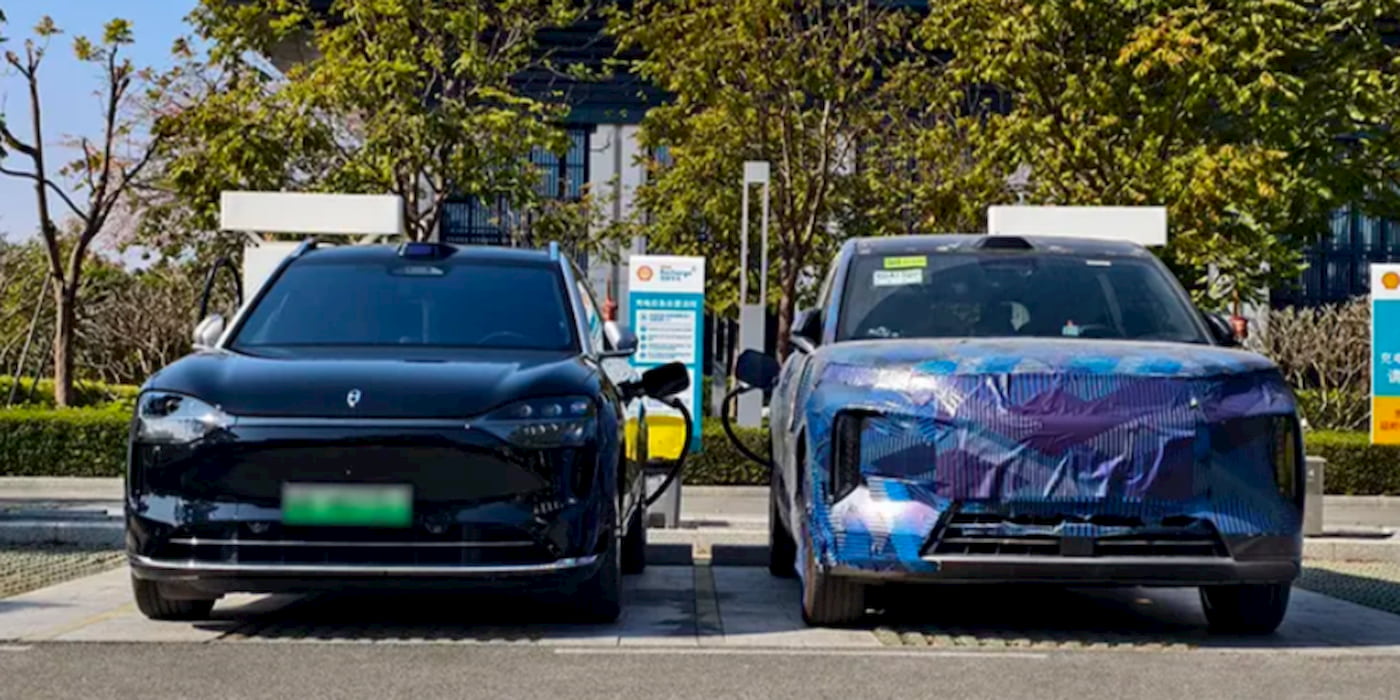
BYD sold 5,001 vehicles in Australia in January, a staggering 641% increase year-over-year, while Tesla managed just 501, leaving the American automaker in 24th place as Chinese brands continue their takeover of the Australian EV market.
more…
https://electrek.co/2026/02/09/byd-outsells-tesla-10-to-1-in-australia-as-chinese-evs-dominate-january-sales/
Industry Exchange Cyber 2026: Tanium’s Melissa Bischoping on why cyber operations are the next big target for autonomy
(date: 2026-02-09)
AI-enabled tools will help consolidate, dedupe and analyze data faster to speed machine and human decision-making, Tanium’s security product design chief says.
https://federalnewsnetwork.com/cybersecurity/2026/02/industry-exchange-cyber-2026-taniums-melissa-bischoping-on-why-cyber-operations-are-the-next-big-target-for-autonomy/
Whistle becomes key tool in protests against Trump’s ICE crackdown
(date: 2026-02-09)
Protesters have been blowing whistles to alert people to agents’ presence – and that has upset figures on the right
When Justin Vernon of Bon Iver appeared on the red carpet at the Grammy awards he was wearing an accessory that has become a must-carry for activists in neighborhoods targeted by ICE: a whistle.
The whistle has become a key part in the defense against Donald Trump’s aggressive immigration crackdown, used to alert people to the presence of agents. But it has also become a target for the right, who have branded whistles “hearing-loss-causing machines” and said the act of blowing a whistle may constitute “assault”.
Continue reading...
https://www.theguardian.com/us-news/2026/feb/09/whistle-protest-trump-ice
Industry Exchange Cyber 2026: Veeam’s Mark Bentkower on why cyber resilience demands much more than response automation
(date: 2026-02-09)
Want resilience? Then, have a backup and recovery plan — and test it, advises the Veeam technologist.
https://federalnewsnetwork.com/cybersecurity/2026/02/industry-exchange-cyber-2026-veeams-mark-bentkower-on-why-cyber-resilience-demands-much-more-than-response-automation/
Industry Exchange Cyber 2026: OPSWAT’s Michael Arcamone on why there’s no such thing as ‘too much’ network visibility
(date: 2026-02-09)
By integrating tracking tools and adding deep analysis, it’s possible to achieve zero trust and cybersecurity in the AI age, OPSWAT chief strategy officer says.
https://federalnewsnetwork.com/cybersecurity/2026/02/industry-exchange-cyber-2026-opswats-michael-arcamone-on-why-theres-no-such-thing-as-too-much-network-visibility/
The Toyota Highlander Just Went Electric
(date: 2026-02-09)
Toyota confirmed the Highlander name for its upcoming three-row electric SUV.
https://insideevs.com/news/786751/toyota-highlander-ev-name-confirmed/
Ghislaine Maxwell takes the Fifth in U.S. House committee appearance from prison
(date: 2026-02-09)

Lawmakers tried on Monday to interview Ghislaine Maxwell but the former girlfriend and confidante of Jeffrey Epstein invoked her Fifth Amendment rights to avoid answering questions that would be self-incriminating.
https://www.cbc.ca/news/world/us-congress-maxwell-appearance-9.7081068?cmp=rss
Sask. man makes public plea for help finding long-lost guitar strap signed by Joan Baez
(date: 2026-02-09)

Seeking to recover an item with deep sentimental value, a man recently posted on Reddit about a long-lost guitar strap. He had borrowed the strap from his father over 15 years ago, and lost it. Now, he's hoping it will make its way back home.
https://www.cbc.ca/news/canada/saskatoon/sask-man-makes-public-plea-for-help-finding-long-lost-guitar-strap-signed-by-joan-baez-9.7081234?cmp=rss
Michael Shannon and Jason Narducy are becoming a part of R.E.M.’s legacy, one album at a time
(date: 2026-02-09)
Q&A: The Oscar-nominated actor and prolific guitarist sat down with Paste to talk about playing R.E.M. albums in full before taking Lifes Rich Pageant on the road this week.
https://www.pastemagazine.com/music/r-e-m/michael-shannon-jason-narducy-rem-interview
With a roster speckled red and white, Italy's victory in women's hockey is Canada's too
(date: 2026-02-09)

As the final anxious seconds ticked away in Italy's 3-2 win over Japan on Monday, Daniele Sauvageau, the team’s Canadian general manager, looked at 35-year-old Laura Fortino, a gold-medal winner with Canada in 2014 who now wears Italian blue, both with tears in their eyes.
https://www.cbc.ca/sports/olympics/winter/hockey/milano-cortina-italy-women-hockey-chris-jones-feb9-9.7081214?cmp=rss
Animal welfare group overseeing medical research in London, Ont. defends dog testing
(date: 2026-02-09)

Western University's Animal Care Committee cleared researcher Frank Prato's controversial use of dogs in medical research but a philosophy professor who specializes in ethics of animal treatment says he still has questions about how the tests were carried out.
https://www.cbc.ca/news/canada/london/dog-testing-arthur-brown-9.7077487?cmp=rss
Tesla reveals final Semi specs with two trims ahead of customer deliveries
(date: 2026-02-09)

Tesla has quietly updated its official Semi website with final specifications for the production version of its all-electric Class 8 truck, confirming two trim levels — Standard Range and Long Range — as customer deliveries approach.
more…
https://electrek.co/2026/02/09/tesla-reveals-final-semi-specs-with-two-trims-ahead-of-customer-deliveries/
America Built 1 Million EVs Last Year. This One European Country Blew Past It
(date: 2026-02-09)
Germany is now the world's second-largest producer of electric vehicles, behind China.
https://insideevs.com/news/786748/us-ev-production-2025-rest-of-world/
Nakota communities reclaim audio recordings housed at Indiana University
(date: 2026-02-09)

Indiana University is working with Nakota communities to digitize old audio recordings and put them online to use for language learning.
https://www.cbc.ca/news/indigenous/nakota-language-learning-indiana-university-9.7078103?cmp=rss
Wonder Man nods to the MCU without feeling like homework
(date: 2026-02-09)
More Marvel shows should narrow their focus like this.
https://www.pastemagazine.com/tv/wonder-man-nods-mcu-without-feeling-like-homework
The Minnesotans trapped at home, too terrified of ICE to go outside: ‘Our house is like a jail’
(date: 2026-02-09)
The surge of federal immigration agents has forced many families to remain inside for weeks, living in fear of roving ICE patrols snatching people off the street
José hasn’t left his house in Saint Paul for 29 days – not to shovel the snow at his driveway, not to fix up the car.
When the car needed an oil change, he video-called his wife, Sara, from inside so he could walk her through it. “I’ve only been from the bedroom to the living room,” he said. He’s afraid to even get near the front door.
Continue reading...
https://www.theguardian.com/us-news/ng-interactive/2026/feb/09/minnesota-ice-immigration-deportation-raids
Canadian speed skater Béatrice Lamarche 5th in women's 1,000 metres of her Olympic debut
(date: 2026-02-09)

A trio of Canadian women made their Olympic speed skating debuts on Monday in the 1,000 metres, with Béatrice Lamarche leading the way in fifth.
https://www.cbc.ca/sports/olympics/winter/speed-skating/olympics-long-track-speed-skating-women-1000-final-9.7080411?cmp=rss
Thank you for (permission for) the music
(date: 2026-02-09)
Twice now, figure skaters at the Winter Olympics were told the music they wanted to skate to — and had been practicing to — could not be used. Spain's Tomàs-Llorenç Guarino Sabaté, who wanted to skate to songs and sounds from "Minions," has since secured the rights. Today, we look into the complicated world of sports, music, and copyright. Also on the program: stocks soar in Japan and what warming waters mean for Maine's fishing industry.
https://www.marketplace.org/episode/2026/02/09/thank-you-for-permission-for-the-music
Tokyo's stocks soar after a landslide at the polls
(date: 2026-02-09)
From the BBC World Service: Japanese stocks jumped to record levels after Prime Minister Sanae Takaichi’s landslide win in a snap general election as investors bet on her vision of a “strong and prosperous” nation. The Nikkei 225 benchmark rose as much as 5.7% on Monday, hitting a record high. We also have a report from Ukraine, where Russian drone attacks on energy infrastructure have left much of the city's population in the freezing cold throughout the country's long winter.
https://www.marketplace.org/episode/2026/02/09/tokyos-stocks-soar-after-a-landslide-at-the-polls
First Draft: 🏈 Bad Trump, Good Bunny
(date: 2026-02-09)
It’s not just the Super Bowl. MAGA’s culture war is epically backfiring. And as a blue wave builds, Trump is only escalating his crackdowns.
https://zeteo.com/p/first-draft-trump-loses-super-bowl
'They were brothers': Players, families remember 3 who died in Alberta highway crash
(date: 2026-02-09)

Family, teammates and friends spoke about JJ Wright and Cameron Casorso, both from Kamloops, B.C., and Caden Fine from Alabama ahead of a memorial benefit game in their honour Sunday.
https://www.cbc.ca/news/canada/calgary/stavely-alta-crash-memorial-game-9.7080860?cmp=rss
Sony's sports cartoon Goat knows just enough ball
(date: 2026-02-09)
Goat isn't as inventive as recent Sony-produced cartoons like Spider-Man: Across the Spider-Verse or KPop Demon Hunters, but it's a sweet-natured and fun-enough kids' movie.
https://www.pastemagazine.com/movies/sony-animation/goat-review
Hundreds protested this Venezuelan’s detention by ICE. Now he’s free after seven months
(date: 2026-02-09)
Case continues against those who protested Joswar Torres’ arrest, with prosecutors seeking six years’ imprisonment
A Venezuelan migrant whose detention by Immigration and Customs Enforcement (ICE) sparked a protest that involved nearly 2,000 people and led to 30 arrests is free after spending seven months in custody in Washington state, after a ruling from a federal judge who said his constitutional rights had been violated.
Joswar Torres, 29, was granted humanitarian parole in the United States and had an asylum application pending, but was nevertheless detained in June 2025 after a routine check-in at the Department of Homeland Security (DHS) office in Spokane, Washington.
Continue reading...
https://www.theguardian.com/us-news/2026/feb/09/venezuelan-freed-after-seven-months-ice-detention-washington-state
Winter Olympian Gus Kenworthy reveals he has received threats over anti-ICE post – video
(date: 2026-02-09)
British freestyle skier Gus Kenworthy says he has received threats in the wake of a social media post that targeted ICE, the United States immigration and customs enforcement agency, last week.
Kenworthy, who was born in Chelmsford but has lived in the US for most of his life, posted an image on his Instagram account that showed the words 'fuck ICE', apparently urinated into the snow.
The 34-year-old posted a video late on Sunday in which he said: 'The other day I posted a photo with my thoughts on ICE and that photo has since gone everywhere – and I’ve gotten a ton of messages and most of them honestly have been supportive and encouraging.
'But a lot of the messages have been awful, people telling me to kill myself, threatening me, wishing they’ll get to see me blow my knee or break my neck during my event, calling me slurs … it’s insane.'
Continue reading...
https://www.theguardian.com/sport/video/2026/feb/09/winter-olympian-gus-kenworthy-received-threats-ice-post-video
Relentless Seahawks pummel Patriots to claim their second Super Bowl title | First Thing
(date: 2026-02-09)
Bad Bunny offered a celebration of Latino culture and heritage with his half-time show at the game, which ended 29-13. Plus, the California community that beat back a datacenter
Good morning.
The Seattle Seahawks beat the New England Patriots 29-13 in Super Bowl LX on Sunday, exacting their revenge against the team that defeated them in the title game 11 years ago.
What about Bad Bunny’s half-time show? The Grammy-winning Puerto Rican megastar delivered an ode to Latino culture and heritage, performed largely in Spanish. Donald Trump has lashed out against it, calling it “an affront to the Greatness of America”.
Did federal authorities previously investigate Epstein’s activities at the ranch? Briefly – in February 2007, as part of an investigation of child sexual abuse in Florida, records show that the FBI interviewed Epstein’s ranch manager. Otherwise, it drew little scrutiny before Epstein’s death.
Continue reading...
https://www.theguardian.com/us-news/2026/feb/09/first-thing-relentless-seahawks-pummel-patriots-to-claim-their-second-super-bowl-title
Ukrainian skeleton racer at Olympics says his helmet tribute to fallen athletes won't be allowed by IOC
(date: 2026-02-09)

Vladyslav Heraskevych showed up for the Milan Cortina Olympics with a new helmet, one featuring the images of some fellow Ukrainian athletes killed in Russian attacks. And Heraskevych wanted to offer a tribute. The International Olympic Committee, he said, won't let it happen.
https://www.cbc.ca/sports/olympics/winter/skeleton/skeleton-racer-displays-images-of-athletes-killed-in-ukraine-war-on-his-helmet-9.7080901?cmp=rss
Dark Winds sets up a very dark fourth season in this exclusive behind-the-scenes clip
(date: 2026-02-09)
In this exclusive clip from AMC, Zahn McClarnon, Kiowa Gordon, and Jessica Matten set up the heavy vibes behind Dark Winds' trip to L.A.
https://www.pastemagazine.com/tv/dark-winds-season-4-exclusive-clip-behind-the-scenes
Canada's major airlines wind down flights to Cuba as Havana airport warns it will run out of jet fuel
(date: 2026-02-09)

Canada's major airlines have all suspended service to Cuba, with Air Transat announcing Monday evening it was joining Air Canada and WestJet in cancelling all flights, as the Caribbean island's major airport warns it will run out of jet fuel.
https://www.cbc.ca/news/canada/travel-to-cuba-fuel-shortage-9.7080648?cmp=rss
Maine shaken by ICE raids as backlash threatens Republican Senate control
(date: 2026-02-09)
Workers and unions condemn ICE operation as ‘horrific’ as pressure builds on Susan Collins, facing re-election this year
Maine, the US’s whitest state, has been shaken by the Trump administration’s immigration crackdown, a crackdown that could threaten Republican control of the Senate in November’s crucial midterm elections.
Immigration Customs and Enforcement (ICE) agents launched “Operation Catch of the Day” in the state on 21 January, targeting “the worst of the worst criminal illegal aliens who have terrorized communities”, according to the administration.
Continue reading...
https://www.theguardian.com/us-news/2026/feb/09/maine-ice-raids
New study reveals a "smartphone penalty" that distorts survey results
(date: 2026-02-09)
According to surveys by the FINRA Foundation, our knowledge of personal finance here in the U.S. went down by 15% between 2009 and 2021. But what if it actually didn't? What if the technology we use to answer the questions is now getting in the way? In 2021, over half of all respondents used a smartphone to fill out the survey. In 2009, none of them used one, according to data from FINRA’s National Financial Capability Study. A new working paper finds that when people use smartphones for surveys they're more likely to respond with the wrong answer or say they don't know. Marketplace’s Stephanie Hughes spoke with Montana State University economics professor Carly Urban, one of the authors of the paper, to learn more.
https://www.marketplace.org/episode/2026/02/09/new-study-reveals-a-smartphone-penalty-that-distorts-survey-results
Decoding the nods to Latino culture in Bad Bunny’s Super Bowl performance
(date: 2026-02-09)

https://www.cbc.ca/news/entertainment/bad-bunny-super-bowl-9.7080714?cmp=rss
Paul Thomas Anderson and Jonny Greenwood want Phantom Thread track removed from Melania
(date: 2026-02-09)
The Radiohead guitarist says he wasn't asked for permission to have his composition featured in the doc.
https://www.pastemagazine.com/movies/melania/paul-thomas-anderson-jonny-greenwood-melania-phantom-thread
A shadowy industry is helping small businesses pay tariffs — at a high cost
(date: 2026-02-09)
How about $350,000 within hours? The pitches flood small businesses: "No hidden fees, No BS." These financial lifelines are barely regulated and can turn into trip wires.
https://www.npr.org/2026/02/09/nx-s1-5628425/shark-tank-tariffs-loans-cash-advance
Lucid's $50,000 EV Is Coming. It Doesn't Plan To Go Much Cheaper Than That
(date: 2026-02-09)
Lucid wants to become a big player, and its mid-size platform will help it do that. Just don’t expect budget models.
https://insideevs.com/news/786715/lucid-mid-size-price-luxury/
First bowling alley in Somalia welcomes middle class and diaspora returnees
(date: 2026-02-09)

The Feynuus Bowling Center in Mogadishu is the latest sign of revival in the once-thriving Indian Ocean port shaped by 35 years of civil war and militant bombings.
https://www.cbc.ca/news/world/somalia-bowling-alley-9.7080393?cmp=rss
Buckingham Palace prepared to 'support' any police investigation into Andrew Mountbatten-Windsor
(date: 2026-02-09)

Buckingham Palace said on Monday it is ready to support any police investigation into King Charles's younger brother after emails suggested Andrew Mountbatten-Windsor might have shared confidential British trade documents with Jeffrey Epstein.
https://www.cbc.ca/news/world/prince-william-kate-epstein-former-prince-andrew-9.7080555?cmp=rss
At least 53 killed after migrant boat sinks off Libyan coast
(date: 2026-02-09)

Two babies are among at least 53 people dead or missing after an inflatable migrant boat sank off Libya, the UN migration agency said on Monday, the latest tragedy on a dangerous route for those seeking a better life in Europe.
https://www.cbc.ca/news/world/mediterranean-deadly-incident-zuwara-libya-9.7080530?cmp=rss
Grief grows as bodies of kidnapped workers of Canadian mining company identified in Mexico
(date: 2026-02-09)

Jaime Castañeda was in the coastal Mexican city of Mazatlán on Sunday to identify the body of his 43-year-old brother. José Manuel Castañeda Hernández was working for Vancouver-based mining company Vizsla Silver Corp. when he was kidnapped last month, along with nine other employees.
https://www.cbc.ca/news/world/workers-identified-mexico-9.7080397?cmp=rss
U of A staff, students speak out against move to axe EDI from hiring policy
(date: 2026-02-09)

The University of Alberta is proposing to eliminate Equity, Diversity and Inclusion (EDI) from its hiring policy, a year after the school initially said it was moving away from the term.
https://www.cbc.ca/news/canada/edmonton/university-of-alberta-removes-edi-from-hiring-policy-9.7076210?cmp=rss
To attract more doctors, B.C. city commits to covering medical clinic costs
(date: 2026-02-09)

The City of Grand Forks in the B.C. Interior has teamed up with a local doctor to help cover the costs of running a medical clinic. It's being done in an effort to attract more local physicians, an effort the city says is already working.
https://www.cbc.ca/news/canada/british-columbia/grand-forks-primary-care-clinic-9.7078380?cmp=rss
Pillion is the sweetest S&M movie since Secretary
(date: 2026-02-09)
In contrast to the kink-shaming history of mainstream cinema, Pillion normalizes the non-vanilla with its sweet BDSM romance.
https://www.pastemagazine.com/movies/romance/pillion-sweetest-bdsm-romance-ever
Toronto's newest transit line faces first rush-hour test
(date: 2026-02-09)

https://www.cbc.ca/news/canada/toronto/livestory/line-5-lrt-eglinton-crosstown-opening-9.7077945?cmp=rss
It's time to lower the curtain: The Muppet shows that weren't
(date: 2026-02-09)
Now that Kermit & co. have a new special on Disney+, let's look back on their long, strange trip on the small screen.
https://www.pastemagazine.com/tv/the-muppets/the-muppet-shows-that-werent
From blowing up icebergs, to simply towing them. Tactics changed to keep ships safe
(date: 2026-02-09)

Every year, thousands of people flock to Newfoundland’s shores to gaze at icebergs as they glide past. A McGill scientist made a similar journey a century ago, but instead of watching the bergs, he was hunting them
https://www.cbc.ca/news/canada/newfoundland-labrador/iceberg-barnes-thermite-9.7056788?cmp=rss
A year after a major comic book distributor went bankrupt, N.L. shops are still reeling
(date: 2026-02-09)

Comic book shops and a publisher in St. John's are still grappling with the repercussions more than a year after a major distributor declared bankruptcy.
https://www.cbc.ca/news/canada/newfoundland-labrador/diamond-distribution-nl-9.7072616?cmp=rss
Taxpayers complain of long waits for the CRA to fix its errors, deliver refunds
(date: 2026-02-09)

The Canada Revenue Agency is warning about processing delays for several key services involving Canadians’ tax returns. Some people stuck in the backlog say they're stressed and desperate for a resolution.
https://www.cbc.ca/news/gopublic/cra-tax-delays-9.7076075?cmp=rss
More than 600 RCMP officers faced gender-based violence disciplinary charges since 2014, CBC analysis finds
(date: 2026-02-09)

A CBC investigation of RCMP disciplinary records reveals hundreds of cases of alleged gender-based violence by members. Through a series of access requests, CBC received more than 10 years of disciplinary allegations and outcomes. Experts fear the revelations are just the “tip of the iceberg.”
https://www.cbc.ca/news/investigates/rcmp-gender-based-violence-analysis-9.7077762?cmp=rss
Cubans wonder if they could be next after Venezuela as rumours swirl about U.S. talks
(date: 2026-02-09)

There are unconfirmed reports that secret talks have begun between the CIA and Alejandro Castro Espín, the son of Raúl Castro. U.S. President Trump has said talks are on, and Cuban President Miguel Díaz-Canel has said the Communist Party is open to talking about "substantive" matters, but it's still not clear if that includes an end to one-party rule.
https://www.cbc.ca/news/politics/cuban-cia-castro-energy-collapse-9.7078628?cmp=rss
ICE, and lessons from Minnesota
(date: 2026-02-09)

Last week, Donald Trump’s border Czar Tom Homan announced a drawdown of ICE personnel in Minnesota, following weeks of chaos and two deadly incidents in the state. Homan insisted that ICE was not surrendering, and this departure was instead evidence of ICE’s success in Minnesota.
Beginning in December 2025, ICE announced ‘Operation Metro Surge’ — an aggressive immigration enforcement operation in Minnesota described as “the largest immigration enforcement operation ever carried out.” The operation incited weeks of protest, direct action and civil disobedience across the Twin Cities.
Today, we take a step back to assess how this operation unfolded, why Minneapolis became the stage for it, and what the unified response across so much of Minnesota says about the state of immigration enforcement in the U.S. today. We’re joined by Robert Worth, a contributing writer with The Atlantic who spent time in Minneapolis last month to report on the protests.
For transcripts of Front Burner, please visit: https://www.cbc.ca/radio/frontburner/transcripts [https://www.cbc.ca/radio/frontburner/transcripts]
https://www.cbc.ca/player/play/9.7080348?cmp=rss
New faces and great expectations for 2026 Toronto Blue Jays
(date: 2026-02-09)

The Toronto Blue Jays came agonizingly close to winning a World Series last fall, and the organization spent the winter tweaking its roster in hopes of another shot at post-season glory. Here's a look at the new and returning faces, as well as a summary of who won't be back.
https://www.cbc.ca/news/canada/blue-jays-2026-new-faces-9.7073283?cmp=rss
What's changing in Quebec’s immigration system — and why it's sparking backlash
(date: 2026-02-09)

The Quebec government continues to face growing opposition to its decision to nix its immigration program known as the PEQ, replacing it instead with the new and more restrictive Skilled Worker Selection program. But what does the end of the PEQ actually change? We break it down for you.
https://www.cbc.ca/news/canada/montreal/quebec-peq-pstq-explained-9.7079970?cmp=rss
Nakota communities rebuild relationships with Indiana University over language recordings
(date: 2026-02-09)

Indiana University has digitized old audio recordings from the Nakota people, and is returning songs and stories needed to help revitalize the language in their communities.
https://www.cbc.ca/player/play/9.7078524?cmp=rss
Trump news at a glance: ‘This is going to be a free and fair election,’ says Hakeem Jeffries after Trump’s comments
(date: 2026-02-09)
Jeffries says Democrats will stop Donald Trump from trying to steal this year’s midterm elections – key US politics stories from Sunday 8 February at a glance
Democrats will stop Donald Trump from trying to steal this year’s midterm elections, Hakeem Jeffries, the Democratic leader in the US House of Representatives said on Sunday.
Jeffries’ comments come amid widespread concern after Trump said Republicans should “take over the voting”. The US constitution gives states the power to set election rules and says Congress can pass laws to set requirements for federal elections. The constitution gives the president no authority over how elections are run.
Continue reading...
https://www.theguardian.com/us-news/2026/feb/08/trump-news-at-a-glance-latest-today
‘Take the vaccine, please,’ Dr Oz urges amid rising measles cases in US
(date: 2026-02-08)
Health official’s endorsement comes as South Carolina faces hundreds of cases and US risks losing elimination status
A senior US public health official called on Americans to get vaccinated against measles as outbreaks continue in multiple states and concerns grow that the country could lose its measles elimination designation. Dr Mehmet Oz, a cardiothoracic surgeon, spoke in support on Sunday of the measles vaccine.
“Take the vaccine, please,” said Oz, the administrator of the Centers for Medicare & Medicaid Services. “We have a solution for our problem.
Continue reading...
https://www.theguardian.com/us-news/2026/feb/08/dr-mehmet-oz-measles-vaccine
Super Bowl 2026: Seattle Seahawks v New England Patriots – live
(date: 2026-02-08)
I wanted to be with you alone…
…and talk about the weather.
Continue reading...
https://www.theguardian.com/sport/live/2026/feb/08/super-bowl-2026-seattle-seahawks-new-england-patriots-live-score
Whether or not you speak Spanish, there's no misunderstanding what Bad Bunny meant
(date: 2026-02-08)
In his Super Bowl LX halftime performance, Bad Bunny defined what "All-American" actually means.
https://www.pastemagazine.com/games/bad-bunny-super-bowl-lx-halftime-show
Winter Olympics 2026: USA take gold in figure skating team event – as it happened
(date: 2026-02-08)
The lowest free skate score this season for Italy’s Sara Conti and Niccolo Macii is 130.92, but that was early on. In Grand Prix competition, their low was 134.89.
So they’ll need to be on point to knock the USA off the top spot. Will skating at home be a boost, or will it bring extra pressure?
Continue reading...
https://www.theguardian.com/sport/live/2026/feb/08/winter-olympics-2026-figure-skating-team-event-updates
Breezy Johnson embraces the beauty and madness of downhill to win Olympic gold
(date: 2026-02-08)
The 30-year-old from Wyoming has labored in the shadow of household names like Lindsey Vonn and Mikaela Shiffrin. On Sunday, she made history of her own
For years, Breezy Johnson was the other American alpine skier. The one with the near-misses, the injuries, the suspension and the unfortunate timing to exist in the same stable at the same time as Lindsey Vonn and Mikaela Shiffrin. On Sunday, three weeks after her 30th birthday in the shadow of the Dolomites above Cortina d’Ampezzo, she became an Olympic champion.
Johnson crossed first in the women’s downhill at the Milano Cortina Games by four-hundredths of a second – the slightest winning margin in the event’s Olympic history outside the dead heat in 2014 – to become just the second American woman to win the sport’s most prestigious title. The only other was Vonn, who took gold in Vancouver 16 years ago.
Continue reading...
https://www.theguardian.com/sport/2026/feb/08/breezy-johnson-winter-olympics-downhill-gold
Bad Bunny's Super Bowl halftime performance showcases love and Latino pride — and sparks Trump's scorn
(date: 2026-02-08)

The 31-year-old Puerto Rican superstar took to an elaborate set depicting his home island’s landscape on Sunday night, delivering a high-energy performance filled with hit tracks.
https://www.cbc.ca/news/entertainment/bad-bunny-half-time-show-9.7078043?cmp=rss
Jimmy Lai sentenced to 20 years in prison over Hong Kong national security case
(date: 2026-02-08)

Jimmy Lai, the pro-democracy former Hong Kong media tycoon and a fierce critic of Beijing, was sentenced to 20 years in prison in one of the most prominent cases prosecuted under a China-imposed national security law that has virtually silenced the city's dissent.
https://www.cbc.ca/news/world/jimmy-lai-sentenced-hong-kong-national-security-case-9.7080352?cmp=rss
Zeteo Packs DC’s Howard Theatre for Its First Live Event of 2026
(date: 2026-02-08)
We marked one year of Trump, the only way we know how: live, on stage, with you! Here are pictures and details of what it was like, and who else was involved. Thanks for your support!
https://zeteo.com/p/zeteo-ro-khanna-joy-reed-miles-taylor-jim-acosta-event-howard-dc-politics
Democrats will stop Trump from trying to nationalize midterms, Jeffries says
(date: 2026-02-08)
Top House Democrat says president’s suggestion for Republicans to ‘take over’ elections really means ‘steal it’
Democrats will stop Donald Trump from trying to steal this year’s midterm elections, Hakeem Jeffries, the Democratic leader in the US House of Representatives said on Sunday.
Jeffries’ comments come amid widespread concern after Trump said Republicans should “take over the voting”. The US constitution gives states the power to set election rules and says Congress can pass laws to set requirements for federal elections. The constitution gives the president no authority over how elections are run.
Continue reading...
https://www.theguardian.com/us-news/2026/feb/08/democrats-trump-nationalizing-midterms-hakeem-jeffries
Trump calls Hunter Hess ‘a real loser’ for skier’s ambivalence about representing US
(date: 2026-02-08)
Donald Trump responded to Hunter Hess on Truth Social on Sunday, calling the Olympian a “real loser” and criticizing comments the US freestyle skier made in a press conference days earlier.
Hess was asked in a press conference on Wednesday what it was like to represent the US in the Olympics given the current situation in the country, which has included ICE raids in Minnesota and a number of geopolitical crises. Hess said representing the US at the 2026 Winter Olympics brought up “mixed emotions” and that it was “a little hard.”
Continue reading...
https://www.theguardian.com/sport/2026/feb/08/donald-trump-hunter-hess-olympics
Czechia women's hockey team blanks Finland 2-0 to earn first win at Milano Cortina 2026
(date: 2026-02-08)

The Czech Republic earned their first Group A win by defeating Finland 2-0 in the Olympic women's ice hockey tournament on Sunday, while Sweden secured a quarter-final place with a 4-0 win over France in Group B at Milano Rho Ice Hockey Arena.
https://www.cbc.ca/sports/olympics/winter/hockey/womens-hockey-roundup-9.7080274?cmp=rss
150 vehicles abandoned on Ontario's Highway 402 in weekend blizzard, police say
(date: 2026-02-08)

As parts of Lambton and Middlesex counties dig themselves out of another winter storm, stories of people going above and beyond to help each other are emerging.
https://www.cbc.ca/news/canada/london/150-vehicles-abandoned-in-weekend-blizzard-that-saw-snowmobilers-and-farmers-helping-9.7080104?cmp=rss
Olympic viewing guide: Canadian medal chances on Monday
(date: 2026-02-08)

CBC Sports' daily Olympics newsletter recaps a not-so-super Sunday for Canada at the Milano-Cortina Games and looks ahead to the Canadian medal contenders and other interesting stuff on Day 3.
https://www.cbc.ca/sports/the-buzzer-newsletter-day3-lookahead-feb8-9.7080140?cmp=rss
After 6 decades, Steve's Music to close most locations in Ontario, Quebec
(date: 2026-02-08)

It's been an institution in Ottawa, Toronto and Montreal for decades, but soon Steve's Music will be mostly falling silent — save for one store.
https://www.cbc.ca/news/canada/ottawa/after-6-decades-steve-s-music-to-close-most-locations-in-ontario-quebec-9.7080134?cmp=rss
Ryan Gosling befriends an extraterrestrial in new Project Hail Mary trailer
(date: 2026-02-08)
The new movie from the author of The Martian arrives in March.
https://www.pastemagazine.com/movies/project-hail-mary/project-hail-mary-trailer-rocky-ryan-gosling
Doctor, virologist caution against attending large public gatherings if unvaccinated against measles
(date: 2026-02-08)

With the number of measles cases in Manitoba swelling, experts caution those who aren't vaccinated for the disease to stay away from large public gatherings until the outbreak settles down.
https://www.cbc.ca/news/canada/manitoba/measles-unvaccinated-public-health-advice-9.7080188?cmp=rss
US TV host's family say they are willing to pay in plea to potential kidnappers of mother – video
(date: 2026-02-08)
The US broadcaster Savannah Guthrie said her family had received a message from the potential kidnappers of her mother, Nancy Guthrie, on Saturday and pleaded for her safe return. News of the message came three days after a purported ransom note was sent to media outlets and a day after the 84-year-old's relatives renewed their appeal to whoever may be holding her captive to contact the family directly 'so we can move forward'. The video released on Saturday was the third this week that pleaded with potential kidnappers
Continue reading...
https://www.theguardian.com/us-news/video/2026/feb/08/guthrie-family-willing-to-pay-video-plea-potential-kidnappers
The Tesla Model 3 Can Far Exceed Its Rated Range. But There’s A Catch
(date: 2026-02-08)
This long-range rear-wheel-drive Model 3 drove over 565 miles. But it wasn't a fast drive.
https://insideevs.com/news/786693/tesla-model-3-thailand-range/
A California Company Just Kicked Off Solid-State Battery Pilot Production. Now Comes The Hard Part
(date: 2026-02-08)
California-based solid-state battery company QuantumScape aims to hit the market by the end of the decade. Can it change the game?
https://insideevs.com/news/786661/quantumscape-solid-state-battery-production-eagle-cto-interview-2026/
Elly Alboim, former CBC parliamentary bureau chief and political consultant, dead at 78
(date: 2026-02-08)

Elly Alboim, a former CBC parliamentary bureau chief, longtime political consultant and professor at Carleton University in Ottawa, has died at 78, his family tells CBC News.
https://www.cbc.ca/news/politics/elly-alboim-former-cbc-parliamentary-bureau-chief-dead-9.7080110?cmp=rss
Trump’s EPA reapproves contentious weedkiller dicamba for some GM crops
(date: 2026-02-08)
Environmental groups said dicamba drift has damaged vegetable farms, trees and other critical plants
The Environmental Protection Agency on Friday reapproved the weedkiller dicamba for use on genetically modified soybeans and cotton. It is a pesticide that has raised widespread concern over its tendency to drift and destroy nearby crops.
The agency said dicamba was critical for farmers who would otherwise have their crops threatened by fast-growing weeds. To ensure the pesticide is used safely, the agency said it imposed strong protections and limits on its use.
Continue reading...
https://www.theguardian.com/us-news/2026/feb/08/epa-reapproves-contentious-weedkiller-dicamba
Despite disastrous crash, Lindsey Vonn’s return was neither selfish or unwarranted
(date: 2026-02-08)

All the emotions swirling around Lindsey Vonn’s crash, and questions about why she decided to compete in the first place, are blowing up the internet. But for elite athletes, it’s not the glory but the challenge and knowing your body to believe in what’s possible.
https://www.cbc.ca/sports/olympics/winter/alpine-skiing/lindsey-vonn-crash-neither-selfish-nor-unwarranted-9.7080109?cmp=rss
U.S. Olympians speaking up about politics at home face online backlash — including from Trump
(date: 2026-02-08)

U.S. President Donald Trump on Sunday said that it is hard to cheer for American Olympians who are speaking out against administration policies, calling one such critic "a real Loser" who perhaps should have stayed home.
https://www.cbc.ca/sports/olympics/trump-us-athletes-9.7080127?cmp=rss
Noam Chomsky’s wife apologizes for their ‘grave mistake’ in Epstein ties
(date: 2026-02-08)
Valeria Chomsky says Epstein had deceived them and they were ‘careless’ not to thoroughly research his background
Noam Chomsky and his wife, Valeria, made a “grave mistake” and were “careless” not to thoroughly research the background of Jeffrey Epstein, Valeria Chomsky said in a lengthy statement on Saturday, adding also that Epstein had deceived them.
The relationship between Noam Chomsky, the 97-year-old linguist and philosopher, and Epstein has been under scrutiny after documents released by the justice department shed light on their friendship. As Epstein came under scrutiny for sex trafficking allegations in 2019, he asked Chomsky for advice on how to respond. “I’ve watched the horrible way you are being treated in the press and public. It’s painful to say, but I think the best way to proceed is to ignore it,” Chomsky wrote in a message signed “Noam” that Epstein shared in email with an associate.
Continue reading...
https://www.theguardian.com/us-news/2026/feb/08/noam-chomsky-epstein-ties-wife-apology
US companies accused of ‘AI washing’ in citing artificial intelligence for job losses
(date: 2026-02-08)
While AI is having an impact on the workplace, experts suggest tariffs, overhiring during the pandemic and simply maximising profits may be bigger factors
Over the last year, US corporate leaders have often explained layoffs by saying the positions were no longer needed because artificial intelligence had made their companies more efficient, replacing humans with computers.
But some economists and technology analysts have expressed skepticism about such justifications and instead think that such workforce cuts are driven by factors like the impact of tariffs, overhiring during the Covid-19 pandemic and perhaps simple maximising of profits.
Continue reading...
https://www.theguardian.com/us-news/2026/feb/08/ai-washing-job-losses-artificial-intelligence
Duke coach says staff ‘got punched in the face’ during UNC court-storming
(date: 2026-02-08)
Duke coach Jon Scheyer said he had staff members “that got punched in the face” as North Carolina fans stormed the court to celebrate a late winning shot in the famed rivalry Saturday night, prompting UNC athletic director Bubba Cunningham to publicly apologize.
The 14th-ranked Tar Heels stunned the fourth-ranked Blue Devils 71-68 on Seth Trimble’s 3-pointer with 0.4 seconds left, a shot that originally appeared to come as time expired and had jubilant fans rush the court in a chaotic celebration. Officials reviewed the play and determined time was left, so fans had to be cleared for Duke to get one final play before storming the court again when the clock officially hit zero.
Continue reading...
https://www.theguardian.com/sport/2026/feb/08/duke-unc-court-storming-jon-scheyer-buzzer-beater
Falcons’ James Pearce Jr arrested on battery charges after dispute with WNBA star
(date: 2026-02-08)
-
Atlanta rookie allegedly fled police, crashed car
-
Police say incident involved LA Sparks’ Rickea Jackson
Atlanta Falcons rookie star James Pearce Jr was arrested near Miami on Saturday night after fleeing officers and then crashing his car after what police said was a domestic dispute with WNBA player Rickea Jackson.
Pearce, the first-round pick who led the Falcons in sacks and was third in NFL defensive rookie of the year voting, was booked into the Turner Guilford Knight Correctional Center after Doral police were summoned to investigate a reported domestic dispute between a man and a woman.
Continue reading...
https://www.theguardian.com/sport/2026/feb/08/falcons-james-pearce-jr-arrest-rickea-jackson
Japan's ruling party secures landslide supermajority in lower house election
(date: 2026-02-08)

The governing party of Prime Minister Sanae Takaichi secured a two-thirds supermajority in a key parliamentary election Sunday, Japanese media reported citing preliminary results, earning a landslide victory thanks to her popularity.
https://www.cbc.ca/news/world/japan-election-lower-house-9.7080041?cmp=rss
Is Tulsi Gabbard the Most Shameless, Desperate Member of the Trump Cabinet?
(date: 2026-02-08)
The former Democratic congresswoman turned director of national intelligence is willing to U-turn on the 2020 election and war with Venezuela and Iran just to appease her boss and keep her job.
https://zeteo.com/p/is-tulsi-gabbard-the-most-shameless
Thinking of trashing a small business on social media? Please, think again | Gene Marks
(date: 2026-02-08)
Online pile-ons can destroy small businesses. Save the derision for big companies that can weather social media storms
A viral Reddit post mocks a $22 grilled cheese sandwich and helps to sink a Bay Area shop. A restaurant owner is forced to push back on a viral complaint. A small business owner in Maine faces a viral backlash after posting a “No ICE” sign. The owner of a furniture store mistakenly receives backlash after being confused with another store. An influencer calls out a South Carolina boutique in a TikTok video after a negative shopping experience.
I have had countless bad experiences at small businesses. I have eaten cold pasta and seen mice scurry behind a table. I don’t go back. Sometimes, when the experience is particularly great, I’ll give a quick good review on Google. But when I have had a bad experience? Never. Ever.
Continue reading...
https://www.theguardian.com/business/2026/feb/08/social-media-criticism-small-businesses
From New York to New Mexico: new Epstein files shed light on his sprawling ranch outside Santa Fe
(date: 2026-02-08)
Several men appear in photos on the nearly 10,000-acre Zorro ranch, which included a 26,700 sq ft mansion
For years, Jeffrey Epstein took respite at a sprawling ranch in the desert scrub outside Santa Fe, New Mexico. Epstein’s nearly 10,000-acre (4,000-hectare) property – known as Zorro ranch – was dotted with cholla cactus and Angus cattle, and came to include a 26,700 sq ft mansion, as well as a private runway and hangar.
For years, Epstein abused teenage girls and young women on this ranch with impunity, according to testimony from several women. In court proceedings, survivors detailed horror after horror they say unfolded on this isolated expanse of land.
Continue reading...
https://www.theguardian.com/us-news/2026/feb/08/epstein-files-new-mexico-ranch
Iran adds 7 more years to sentence of jailed Nobel Peace laureate, supporters say
(date: 2026-02-08)

Iran sentenced Nobel Peace Prize laureate Narges Mohammadi to over seven more years in prison after she began a hunger strike, supporters said Sunday, as Tehran cracks down on all dissent following nationwide protests and the deaths of thousands at the hands of security forces.
https://www.cbc.ca/news/world/nobel-peace-laureate-narges-mohammadi-sentence-hunger-strike-9.7080002?cmp=rss
These US states want polluters to pay for the rising insurance costs of climate disasters
(date: 2026-02-08)
Proposals by California, Hawaii and New York lawmakers aim to hold fossil fuel industry accountable for soaring rates
As climate disasters drive up the price of home insurance, three US states are considering empowering their state prosecutors to sue major polluters for their role in those rising costs.
Lawmakers in California, Hawaii and New York have introduced measures which would authorize their attorneys general to sue fossil fuel companies on behalf of residents whose insurance premiums have soared amid climate disasters.
Continue reading...
https://www.theguardian.com/us-news/2026/feb/08/proposal-fossil-fuel-companies-insurance-costs
Seized, subverted, shuttered: a year in Trump’s assault on the Kennedy Center
(date: 2026-02-08)
Since a presidential post on Truth Social the Washington DC arts hub has lost its leadership, had its name changed and will now be closed for years
The Brentano String Quartet had finished their performance when a special guest dropped in backstage: the US supreme court justice Ruth Bader Ginsburg. “We thanked her for everything she had done for our country,” recalls violinist Mark Steinberg. “It was a nice moment.”
The year was 2016 and the place was the John F Kennedy Center for the Performing Arts in Washington. Fast forward a decade and old certainties have been shaken: Ginsburg is dead, Donald Trump is president and the Kennedy Center has become a case study in how a seemingly solid American institution can quickly unravel.
Continue reading...
https://www.theguardian.com/us-news/2026/feb/08/trump-kennedy-center-washington-dc
Lindsey Vonn’s crash is violent but honest ending to an unprecedented Olympic bid
(date: 2026-02-08)
The gruesome finish to the US star’s comeback, at age 41 and with a ruptured ACL, is a reminder of skiing’s unforgiving nature
There was always a version of this story that ended in a single, violent instant. Lindsey Vonn was 13th to push out of the start gate on Sunday in Cortina d’Ampezzo knowing exactly what she was racing with: a fully ruptured ACL in her left knee, a heavy brace wrapped around the joint, and the accumulated wear of a career spent flirting with speed and consequence.
She barely made it out of the opening phase of the run.
Continue reading...
https://www.theguardian.com/sport/2026/feb/08/lindsey-vonn-crash-olympics-skiing
What to expect from Bad Bunny’s Super Bowl halftime show? Dancing, culture and a side of politics
(date: 2026-02-08)

https://www.cbc.ca/news/entertainment/super-bowl-halftime-show-bad-bunny-politics-9.7075612?cmp=rss
Seahawks swarm Patriots in Super Bowl LX to secure 2nd title in franchise history
(date: 2026-02-08)

https://www.cbc.ca/sports/football/nfl/super-bowl-lx-recap-9.7080327?cmp=rss
Rightwing critics blame Mamdani as New York snow fails to melt
(date: 2026-02-08)
Murdoch tabloid leads charge as big freeze persists – could the mayor please do something about the weather?
It snowed two weeks ago in New York. Since then, the temperature has barely risen above freezing – a temperature science naturally dictates is necessary to melt snow and ice.
But science isn’t enough for some US political critics, however, who have instead blamed Zohran Mamdani, New York’s new socialist mayor, for the snow not having melted and still clogging up some of the city’s streets.
Continue reading...
https://www.theguardian.com/us-news/2026/feb/08/mamdani-snow-ice-freeze-storm
‘We all on Kalshi now’: Giannis Antetokounmpo and the quiet collapse of sporting trust
(date: 2026-02-08)
The Bucks star has become a shareholder in one of the world’s largest prediction markets. It only ushers the NBA further into the fetid swamp of sports betting
Couldn’t he have just started a podcast? “The Internet is full of opinions. I decided it was time to make some of my own,” Giannis Antetokounmpo, one of the four best basketball players in the world, posted in a statement announcing that he was joining the prediction market Kalshi as a shareholder. “We all on Kalshi now.”
We are not, but doesn’t the tone sum it up? The universe’s ineffable forces have clearly decided that the ubiquity of sports betting companies is insufficient. There must be new companies, with which you can bet on any outcome – Kalshi competitor Polymarket has hosted markets tied to geopolitical outcomes, including scenarios related to Israel and Gaza, for instance – that incentivize people to treat life’s most important avenues as trivially as a sports game. Kalshi and Polymarket are prediction platforms rather than traditional betting companies. Users effectively bet (or “trade”) against others on the platform about the outcome of events, from familiar wagers such as the result of a sporting event, to the obscure, such as the color of a politician’s suit at an election appearance. Kalshi has enjoyed plenty of freedom under the second Donald Trump administration, and Donald Trump Jr is a “strategic advisor” for them and Polymarket. A Kalshi outcome taking bets until recently was “Giannis Antetokounmpo’s next team?” as rumors swirled that the two-time NBA MVP was about to leave the Milwaukee Bucks. Antetokounmpo will be involved in marketing and publicity for Kalshi, and is forbidden from trading on markets related to the NBA. The move is also in step with the NBA’s rules – players are allowed to endorse betting companies as long as they don’t gamble on the league itself. But that hasn’t prevented scores of fans across Instagram and Reddit, and media members on Twitter, from expressing their displeasure at the move and insisting there is a conflict of interest.
Continue reading...
https://www.theguardian.com/sport/2026/feb/08/giannis-antetokounmpo-kalshi-prediction-markets-nba
Canadian figure skater Madeline Schizas gets university assignment extension at Olympics
(date: 2026-02-08)

Canadian figure skater and McMaster University student Madeline Schizas was granted an extension on her sociology assignment one day after going viral with her request on Instagram.
https://www.cbc.ca/sports/olympics/winter/figure-skating/canada-s-madeline-schizas-gets-university-assignment-extension-at-olympics-9.7079906?cmp=rss
Lindsey Vonn airlifted to hospital after crashing out of Olympic downhill race
(date: 2026-02-08)
Lindsey Vonn’s fifth and final Olympics ended in the one way she dreaded most of all. Moments into her run in the women’s downhill, Vonn’s legs failed her as she came over a roll after passing the third gate.
She twisted and crashed sideways to the ground, and after a first stunned burst of shouts and screams, the atmosphere around the Olimpia delle Tofane course fell deadly quiet while the medical team gathered around her. Fifteen minutes later, Vonn was airlifted from the mountain to hospital for treatment.
Continue reading...
https://www.theguardian.com/sport/2026/feb/08/lindsey-vonn-airlifted-hospital-crash-olympic-downhill-skiing-milan-cortina
Bad Bunny to meet political moment as Maga fumes over Super Bowl show
(date: 2026-02-08)
Puerto Rican superstar promises ‘the world will dance’ in all-Spanish half-time gig that comes as Trump agents wage deadly crackdown
For 13 minutes on Sunday night, Levi’s Stadium in Santa Clara will pulse with reggaeton, Latin trap and Caribbean rhythms as Bad Bunny headlines a historic Super Bowl halftime performance, primarily – or perhaps entirely – in Spanish. The Puerto Rican megastar, whose songs fuse the raw energy of música urbana, Boricua pride and resistance politics, has promised a “huge party”.
At a moment when masked federal agents are sweeping through American cities, rounding up long-settled immigrants, legal residents and even US citizens, Bad Bunny’s presence on the grandest stage in US sports offers a striking contrast – a joyful celebration of pride and solidarity for millions of Latinos.
Continue reading...
https://www.theguardian.com/us-news/2026/feb/08/bad-bunny-super-bowl-trump-maga
Sidney Crosby named captain of Canada's men's hockey team
(date: 2026-02-08)

Two-time Olympic gold medallist Sidney Crosby was been named captain of Canada's men's hockey team at the Milan Cortina Games.
https://www.cbc.ca/sports/olympics/winter/hockey/sidney-crosby-captain-team-canada-milano-cortina-team-canada-feb8-9.7079794?cmp=rss
Suspect in shooting of senior Russian officer detained, Russia says
(date: 2026-02-08)

Russia’s Federal Security Service said Sunday that the man suspected of shooting a deputy chief of Russia’s military intelligence agency in Moscow was detained in Dubai and handed over to Russia.
https://www.cbc.ca/news/world/suspect-shooting-senior-russian-officer-detained-9.7079646?cmp=rss
Is Trump Afraid of Bad Bunny? (feat. Pablo Torre)
(date: 2026-02-08)
Watch now (55 mins) | Does Trump know ball? Is he afraid of Bad Bunny—or did MAGA just fumble the halftime show?
https://crookedmedia.substack.com/p/is-trump-afraid-of-bad-bunny-feat
What's on TV this week—The 'Burbs, Love Story: John F. Kennedy Jr. & Carolyn Bessette
(date: 2026-02-08)
Plus, Bad Bunny hits the Super Bowl.
https://www.pastemagazine.com/tv/what-to-watch/what-to-watch-on-tv-this-week-february-8-to-14-2026
Central Alberta clinic pioneers ‘first-of-its-kind’ sexual assault care
(date: 2026-02-08)

This ‘first-of-its-kind’ centre in Red Deer, Alta., is diverting over a third of sexual assault cases away from busy hospital emergency rooms, providing patients with a calmer and more private health experience.
https://www.cbc.ca/news/canada/edmonton/red-deer-sexual-assault-care-emergency-room-hospital-9.7074546?cmp=rss
Apartment residents say fatal carbon monoxide poisoning of 11-year-old was preventable
(date: 2026-02-08)

A man who lives in a Regina apartment building says the carbon monoxide detector in his unit sounded just hours before another resident, an 11-year-old boy, died.
https://www.cbc.ca/news/canada/saskatchewan/apartment-residents-say-fatal-carbon-monoxide-poisoning-of-child-prevantable-9.7073826?cmp=rss
Characters in Oscar-nominated short brought to life by award-winning actor Colm Feore at Kitchener studio
(date: 2026-02-08)

An animated Canadian film produced by the National Film Board of Canada which has been nominated for an Oscar has local connections. The Girls Who Cried Pearls is a stop-motion film that tells the story of a poor boy in early 20th century Montreal who falls in love with a girl whose tears turn into pearls. It features the voice of actor Colm Feore who recorded the 17-minute short at Fred Smith Studios in Kitchener.
https://www.cbc.ca/news/canada/kitchener-waterloo/the-girl-who-cried-pearls-oscar-nominated-kitchener-studio-colm-feore-9.7073750?cmp=rss
Provincial officials still trying to find way to raise abandoned tidal turbine
(date: 2026-02-08)

Ten months after the Nova Scotia government’s Energy Department took the lead on finding a way to recover an abandoned tidal turbine from the depths of the Bay of Fundy, officials still cannot say when — or if — the device might be removed.
https://www.cbc.ca/news/canada/nova-scotia/tidal-power-force-energy-9.7076250?cmp=rss
NSA detected foreign intelligence phone call about a person close to Trump
(date: 2026-02-08)
Whistleblower says that Tulsi Gabbard blocked agency from sharing report and delivered it to White House chief of staff
Last spring, the National Security Agency (NSA) flagged an unusual phone call between two members of foreign intelligence, who discussed a person close to Donald Trump, according to a whistleblower’s attorney who was briefed on details of the call.
The highly sensitive communique, which has roiled Washington over the past week, was brought to the attention of the director of national intelligence (DNI), Tulsi Gabbard.
Continue reading...
https://www.theguardian.com/us-news/2026/feb/07/nsa-foreign-intelligence-trump-whistleblower
Man behind the Clarity Act has choice words for Alberta separatists and Danielle Smith
(date: 2026-02-08)

Former federal Liberal leader and cabinet minister Stéphane Dion is lambasting the brewing separatist movement in Alberta and demanding Premier Danielle Smith clarify her position and lay out the next steps depending on the outcome of a possible independence referendum.
https://www.cbc.ca/news/politics/stephane-dion-alberta-separation-clarity-act-9.7079149?cmp=rss
Beautiful, wonderful, or Toronto transit's black eye? Whatever it is, the Eglinton Crosstown is finally open
(date: 2026-02-08)

It might be a chilly day, but the cold air didn't stop excited Torontonians from piling onto the newly launched trains along Line 5 Sunday. "Line 5, Line 5, Line 5," chants erupted as the first Crosstown riders waited to get onboard at Kennedy Station.
https://www.cbc.ca/news/canada/toronto/eglinton-crosstown-feb-8-opening-9.7077697?cmp=rss
No desks, no strategy: Experts say government's latest return-to-office order ignores reality
(date: 2026-02-08)

With federal public servants mandated to return to the office four days a week this summer, experts and unions are sounding the alarm over a lack of clear strategy or infrastructure to support such a move.
https://www.cbc.ca/news/canada/ottawa/no-desks-no-strategy-experts-say-government-s-latest-return-to-office-order-ignores-reality-9.7077299?cmp=rss
Most of the world doesn’t require a prescription for birth control. Why do Canadians still need one?
(date: 2026-02-08)

Some Canadian doctors say patients on birth control need monitoring. But medical authorities in other countries increasingly disagree.
https://www.cbc.ca/news/health/canada-prescription-birth-control-9.7074160?cmp=rss
No place for politics in F-35 cockpits as Canadian fighter jet pilots get ready to train at U.S. base
(date: 2026-02-08)

While procurement for Canada’s complete fighter jet fleet remains up in the air, advocates say politics need to be set aside as members of the Royal Canadian Air Force head to Luke Air Force Base in Arizona later this year to train on the F-35 when Canada eventually takes possession of the 16 jets it’s committed to buying.
https://www.cbc.ca/news/politics/f35-fighterjet-training-arizona-9.7055602?cmp=rss
Why Spain is aiming to regularize half a million undocumented migrants
(date: 2026-02-08)

While the United States has intensified its immigration crackdown and deportation efforts and European countries are closing their borders one after the other, Spain's left-wing government last month approved a royal decree to regularize several hundred thousand undocumented people who already live and work in the country.
https://www.cbc.ca/news/world/spain-regularize-undocumented-migrants-immigration-9.7074037?cmp=rss
With Maduro gone, Venezuelans test freedom to criticize leaders
(date: 2026-02-08)

Just over one month after the United States captured then-President Nicolas Maduro, some Venezuelans opposed to the government have become increasingly bold in challenging the new authorities.
https://www.cbc.ca/news/world/venezuela-freedom-of-speech-criticize-leaders-9.7079330?cmp=rss
Civil rights pioneer says after almost 70 years, story of the Little Rock Nine still 'resonates'
(date: 2026-02-08)

Long before her work as an anti-racist educator and environmental campaigner in Canada, Minnijean Brown-Trickey showed enormous courage as one of the Little Rock Nine — a group of Black teenagers who integrated Little Rock Central High School in Little Rock, Ark., in 1957.
https://www.cbc.ca/news/canada/beingblackincanada/minnijean-brown-trickey-desegregation-9.7070264?cmp=rss
Academics pan decision to cut CEGEP education in Quebec's federal prisons
(date: 2026-02-08)

Inmates in Quebec's federal prisons will soon be deprived of post-secondary studies that had been offered for 52 years after Correctional Service Canada decided to slash funding.
https://www.cbc.ca/news/canada/montreal/cegep-studies-quebec-federal-prisons-9.7077831?cmp=rss
How Scholastic became a cultural rite of passage for Canadian kids
(date: 2026-02-08)

For decades, Scholastic has been a fixture in Canadian elementary schools, introducing children to reading while helping fund under-resourced libraries. Despite growing criticism over cost and commercialization, the book fair remains a nostalgic — and enduring — rite of passage.
https://www.cbc.ca/radio/costofliving/scholastic-books-fair-children-elementary-school-9.7074990?cmp=rss
Watch these ice climbers scale Hamilton’s Tiffany Falls
(date: 2026-02-08)

Climbing company Muskoka Mountainworks took a group to Tiffany Falls in Hamilton for the first time last month. Two of the climbers tell CBC Hamilton they've long wanted to scale the frozen waterfall. They say ice climbing has been a great way for them to embrace winter.
https://www.cbc.ca/news/canada/hamilton/tiffany-falls-ice-climbing-9.7074074?cmp=rss
I wanted to complete a triathlon. My first step? Learning to swim
(date: 2026-02-08)

At the age of 37, Alberto Ortiz's swimming had been casual dips in lakes or resort pools. But when a cousin made a joke about training for a triathlon, the idea stuck. When the training started, it didn't take long before he'd signed up for a full-distance Olympic triathlon.
https://www.cbc.ca/news/canada/saskatchewan/first-person-learning-to-swim-olympic-distance-triathlon-9.7056153?cmp=rss
The world heard JD Vance being booed at the Olympics. Except for viewers in the US | Bryan Armen Graham
(date: 2026-02-08)
The real risk for American broadcasters is not that dissent will be visible. It is that audiences will start assuming anything they do not show is being hidden
The modern Olympics sell themselves on a simple premise: the whole world, watching the same moment, at the same time. On Friday night in Milan, that illusion fractured in real time.
When Team USA entered San Siro during the parade of nations, the speed skater Erin Jackson led the delegation into a wall of cheers. Moments later, when cameras cut to US vice-president JD Vance and second lady Usha Vance, large sections of the crowd responded with boos. Not subtle ones, but audible and sustained ones. Canadian viewers heard them. Journalists seated in the press tribunes in the upper deck, myself included, clearly heard them. But as I quickly realized from a groupchat with friends back home, American viewers watching NBC did not.
Continue reading...
https://www.theguardian.com/sport/2026/feb/07/jd-vance-boos-winter-olympics
Trump news at a glance: Tulsi Gabbard faces mounting questions over handling of intelligence intercept
(date: 2026-02-08)
Highly sensitive communique has roiled Washington over the past week – key US politics stories from Saturday 7 February at a glance
National intelligence director Tulsi Gabbard is facing growing questions about her handling of a report about an intercepted phone call between two members of foreign intelligence, who discussed a person close to Donald Trump.
A whistleblower said that Gabbard blocked the National Security Agency from sharing the report, instead delivering it to the White House chief of staff.
Continue reading...
https://www.theguardian.com/us-news/2026/feb/08/trump-news-at-a-glance-tulsi-gabbard-faces-mounting-questions-over-handling-of-intelligence-intercept
'We will pay,' Savannah Guthrie says in desperate video plea to potential kidnappers of her mother
(date: 2026-02-08)
Today show host tells potential kidnappers of mother Nancy that family is prepared to pay for safe return
Savannah Guthrie told the potential kidnappers of her mother, Nancy Guthrie, on Saturday that the family is prepared to pay for her safe return, as the frantic search for the 84-year-old entered a seventh day.
“We received your message, and we understand. We beg you now to return our mother to us so that we can celebrate with her,” she said in a video posted on social media, flanked by her siblings. “This is the only way we will have peace. This is very valuable to us, and we will pay.”
Continue reading...
https://www.theguardian.com/us-news/2026/feb/07/savannah-guthrie-video-kidnapping-mother
Minneapolis protesters arrested during one-month anniversary of Renee Good’s death
(date: 2026-02-07)
Several demonstrators taken into custody Saturday after marking killing of Minnesota woman by immigration officer
Police arrested several demonstrators on Saturday outside a federal building just south of Minneapolis, breaking up a protest marking the one-month anniversary of a Minnesota woman’s death at the hands of an immigration officer.
Renee Good was killed on 7 January as she was driving away from immigration officers in a Minneapolis neighborhood. Her death and the killing of another Minneapolis resident, Alex Pretti, just weeks later have stoked outrage nationwide over Donald Trump’s immigration crackdown.
Continue reading...
https://www.theguardian.com/us-news/2026/feb/07/minneapolis-protesters-arrested-renee-good
Brad Arnold of Grammy-nominated rock band 3 Doors Down dies aged 47
(date: 2026-02-07)
Lead singer died on Saturday, months after he announced that he had been diagnosed with stage 4 kidney cancer
Brad Arnold, the lead singer of the Grammy-nominated rock band 3 Doors Down, has died, months after he announced that he had been diagnosed with stage 4 kidney cancer. He was 47.
The band said in a statement on Saturday that Arnold “passed away peacefully, surrounded by loved ones, in his sleep after his courageous battle with cancer”.
Continue reading...
https://www.theguardian.com/us-news/2026/feb/07/brad-arnold-3-doors-down-dead
Winter Olympics 2026: speed skating gold for Italy, Cas upholds ban on GB skeleton helmets and more – as it happened
(date: 2026-02-07)
Italy’s Francesca Lollobrigida won Italy’s first gold medal to get the party started at their home Games on day one
Gallery: Roll up, roll up for the very best of the Milano Cortina Winter Olympics opening ceremony in pictures …
Curling mixed doubles: We’re in the sixth end and Team GB have extended their lead over Canada to 7-2. Jen Dodds and Bruce Mouat are quite literally sweeping all before them in the round robin stages of this comepetition and heading for their sixth consecutive victory.
Continue reading...
https://www.theguardian.com/sport/live/2026/feb/07/winter-olympics-2026-first-gold-medals-mens-downhill-figure-skating-live
Los Angeles city council member Nithya Raman enters mayoral race
(date: 2026-02-07)
Raman, backed by the Democratic Socialists of America, enters a crowded field that includes incumbent Karen Bass
Los Angeles city council member Nithya Raman formally entered the race for mayor on Saturday, unveiling her campaign during a press conference.
Representing areas that stretch from the San Fernando valley to Silver Lake, Raman declared her candidacy just hours before the filing deadline. She now joins a field that includes former reality television personality Spencer Pratt, Housing Now California deputy director Rae Huang, veteran city engineer Asaad Alnajjar and the incumbent mayor, Karen Bass.
Continue reading...
https://www.theguardian.com/us-news/2026/feb/07/los-angeles-city-council-member-nithya-raman-mayor-race
What if they held a Kid Rock country music festival and no one came?
(date: 2026-02-07)
One leg of Rock's Rock The Country festival has been canceled amidst news that he's lost the critical Shinedown vote.
https://www.pastemagazine.com/music/kid-rock-rock-the-country-shinedown-south-caroline-canceled
Trump lawyers aim to deport five-year-old boy after judge ordered his release
(date: 2026-02-07)
Liam Conejo Ramos and his father were seized by ICE in Minneapolis last month before a judge ordered their release
Attorneys for the Trump administration are aiming to deport Liam Conejo Ramos, the five-year-old boy whose photograph in a bunny hat in snowy Minneapolis circulated globally after his detention last month by federal officials during the aggressive anti-immigration crackdown there.
The child, Liam, returned home to Minnesota earlier this week after being taken into custody alongside his father last month and transferred to a notorious family detention facility in Texas.
Continue reading...
https://www.theguardian.com/us-news/2026/feb/07/liam-conejo-ramos-deportation-trump-administration
Brad Arnold, lead singer of Grammy-nominated rock band 3 Doors Down, dead at 47
(date: 2026-02-07)

The band said in a statement that Brad Arnold "passed away peacefully, surrounded by loved ones, in his sleep after his courageous battle with cancer."
https://www.cbc.ca/news/entertainment/brad-arnold-3-doors-down-obituary-9.7079483?cmp=rss
Savannah Guthrie says family ready to pay potential kidnappers ransom for mom's return
(date: 2026-02-07)

Savannah Guthrie told the potential kidnappers of her mother Nancy Guthrie on Saturday that the family is prepared to pay for her safe return.
https://www.cbc.ca/news/world/savannah-guthrie-9.7079482?cmp=rss
Nexstar gets a big, all-caps Trump thumbs-up for plan to own TV stations in 80 percent of the U.S.
(date: 2026-02-07)
Trump declared that bending the FCC's rules about station ownership was necessary to defeat "THE ENEMY"—i.e., network news.
https://www.pastemagazine.com/tv/nexstar-media-group/nexstar-tv-networks-trump-endorsements
Trump and Vance’s Radical ICE Disaster Will Hurt Republicans in the Midterms
(date: 2026-02-07)
What if we rightly covered Republicans how centrist and conservative media lazily covers the Left?
https://zeteo.com/p/trump-and-vances-radical-ice-disaster
Suryakumar’s brilliant blitz denies USA seismic shock in India’s T20 World Cup opener
(date: 2026-02-07)
-
India, 161-9, bt USA, 132-8, by 29 runs
-
Suryakumar’s 84 from 49 balls proves the difference
There was, in the end, no shock – but there was not a lot of awe either. India’s form over the last two years has made them the most feared side in world cricket but for a while as they got their World Cup campaign under way the only dread was being experienced by their own fans as the USA threatened a humiliating upset. But for some missed chances, a hugely unfortunate injury and the brilliance of Suryakumar Yadav it might well have happened.
As it was, Suryakumar’s late acceleration took him to 84 off 49 balls and his team to 161 for nine, while the USA reply started with three early wickets – the absence of Jasprit Bumrah, ruled out by illness, doing little to dull India’s cutting edge – and the margin in the end was 29.
Continue reading...
https://www.theguardian.com/sport/2026/feb/07/india-usa-t20-world-cup-cricket-suryakumar-yadav
Autonomous, battery-swap mining truck gets big-buck boost from BYD [video]
(date: 2026-02-07)

Chinese equipment brand Boonray has developed an autonomous, battery-swapping electric mining truck that it hopes will revolutionize the global mining industry – and global EV leader BYD just gave it a multimillion dollar vote of confidence.
more…
https://electrek.co/2026/02/07/autonomous-battery-swap-mining-truck-gets-big-buck-boost-from-byd/
Unstoppable Lindsey Vonn can achieve sports immortality on Sunday
(date: 2026-02-07)

A week after rupturing the ACL in her left knee, 41-year-old Lindsey Vonn goes for Olympic gold Sunday at 5:30 a.m. ET at the Olympia delle Tofane downhill course.
https://www.cbc.ca/sports/olympics/winter/milano-cortina-olympics-richard-deitsch-notebook-feb7-9.7079300?cmp=rss
American fugitive who spent decades in Toronto extradited back to U.S.
(date: 2026-02-07)

A U.S. fugitive who spent more than 20 years in Toronto while fleeing manslaughter charges has been extradited to Florida.
https://www.cbc.ca/news/world/patrick-lutts-jr-extradition-us-canada-toronto-manslaughter-9.7079296?cmp=rss
Tom Brady reverses course after backlash and now wants Patriots to win Super Bowl
(date: 2026-02-07)
As the New England Patriots prepare for Sunday’s Super Bowl, Tom Brady has decided he is backing his former team after all.
Brady, who won six Super Bowls with the Patriots, came under heavy criticism this week after saying he won’t have a “dog in the fight … may the best team win” when New England take on the Seattle Seahawks in Santa Clara, California, on Sunday.
Continue reading...
https://www.theguardian.com/sport/2026/feb/07/tom-brady-reverses-course-after-backlash-and-now-wants-patriots-to-win-super-bowl
Can Trump Steal the Midterms? This Top Democrat Has a Plan to Stop Him
(date: 2026-02-07)
Congressman Jamie Raskin, a former law professor, explains to John Harwood how Democrats can stop Trump from escalating ICE brutality, undermining the midterms, and getting away with corruption.
https://zeteo.com/p/can-trump-steal-the-midterm-elections
Rage against the machine: a California community rallied against a datacenter – and won
(date: 2026-02-07)
Organizers in Monterey Park took inspiration from other US cities to fight against the construction of a giant datacenter
When a southern California city council proposed building a giant datacenter the size of four football fields last December, five residents vowed to stop it.
Through a frenetic word-of-mouth campaign, the small group raised awareness about the proposed facility in Monterey Park, a small city east of Los Angeles known affectionately as the country’s first suburban Chinatown.
Continue reading...
https://www.theguardian.com/us-news/2026/feb/07/california-monterey-park-stop-datacenter-construction
Xpeng is getting serious about selling you an aircraft carrier
(date: 2026-02-07)

Xpeng’s flying car unit Aridge is ramping up its marketing efforts for the new Land Aircraft Carrier designed carry its AeroHT eVTOL “flying car” as it inches closer to production reality.
more…
https://electrek.co/2026/02/07/xpeng-is-getting-serious-about-selling-you-an-aircraft-carrier/
R.I.P. Brad Arnold, lead singer of 3 Doors Down
(date: 2026-02-07)
Arnold spent more than 20 years as the band's frontman—notably writing its breakout hit "Kryptonite" in math class while still a teen.
https://www.pastemagazine.com/music/3-doors-down/brad-arnold-3-doors-down-obit
Federal judge reverses Trump’s freeze on $16bn for NY-NJ tunnel project
(date: 2026-02-07)
President reportedly wanted Dulles airport and Penn Station to be renamed after him in exchange for funding
A federal judge has reversed a freeze put on funds by Donald Trump for $16bn in enhanced rail links connecting New York and New Jersey amid reports that the US president wants major travel landmarks named after him in return for continued investment.
The Gateway Project will build a new commuter rail tunnel between Manhattan and New Jersey under the Hudson River on the western side of New York City and repair a century-old tunnel used by more than 200,000 travelers and 425 trains daily.
Continue reading...
https://www.theguardian.com/us-news/2026/feb/07/federal-judge-reverses-trump-freeze-ny-nj-tunnel
Milan Cortina Winter Olympics 2026: day one – in pictures
(date: 2026-02-07)
We take a look at the best images from the opening day of the Games, including curling, downhill skiing, and ice hockey
Continue reading...
https://www.theguardian.com/sport/gallery/2026/feb/07/milan-cortina-winter-olympics-2026-day-one-in-pictures
How aggressive free agency moves led the Patriots and Seahawks to the Super Bowl
(date: 2026-02-07)

Winning the headlines during free agency in March doesn't typically lead to success in January and February in the NFL. But this season, two of the most aggressive teams during the free agency period last offseason will play in the Super Bowl.
https://www.cbc.ca/sports/football/nfl/how-aggressive-free-agency-moves-led-the-patriots-and-seahawks-to-the-super-bowl-9.7079239?cmp=rss
Early crash disrupts US favorite Jessie Diggins in race for skiathlon gold
(date: 2026-02-07)
-
World No 1 claws back for eighth in difficult conditions
-
Sweden storms to one-two finish over 20km distance
-
Diggins has five more events at farewell Olympics
Jessie Diggins’s farewell Olympics began with a crash and a scramble on Saturday, the trailblazing star of American cross-country skiing fighting back to finish eighth in the women’s skiathlon as Sweden delivered a commanding one-two in the first cross-country skiing race of the Milano Cortina Games.
Frida Karlsson powered to gold ahead of teammate Ebba Andersson, with Norway’s Heidi Weng taking bronze, as the first Olympic women’s skiathlon contested over the new 20km distance quickly turned into a test of endurance, conditions and survival.
Continue reading...
https://www.theguardian.com/sport/2026/feb/07/early-crash-sets-back-us-favorite-jessie-diggins-in-race-for-skiathlon-gold
‘A profound sense of being hunted’: with all eyes on Minneapolis, ICE arrests continue quietly across the US
(date: 2026-02-07)
Immigration operations are still stoking fear and disrupting the ability to go to work, school or doctor’s appointments
With the public’s outrage and attention focused on the deadly surge of federal agents in Minneapolis, immigration operations have quietly continued across the US – albeit in less noticeable but still troubling ways, advocates say.
In recent weeks there have been day laborers swept up at a Home Depot in San Diego. A taco truck vendor chased down outside a church in Los Angeles. Immigrants arrested at check-ins in North Carolina, and during traffic stops in the nation’s capital.
Continue reading...
https://www.theguardian.com/us-news/2026/feb/07/ice-arrests-continue
Nebula Next enters the luxury EV race with its bold 01 Concept that debuted at CES
(date: 2026-02-07)

Nebula Next made its CES debut on January 6, pulling the wraps off the Nebula Next 01 Concept, the company’s first public look at where it wants to take high-performance electric vehicles.
more…
https://electrek.co/2026/02/07/nebula-next-enters-the-luxury-ev-race-with-its-bold-01-concept-that-debuted-at-ces/
Trump shifts blame to aide as he refuses to apologize for racist video of Obamas
(date: 2026-02-07)
After first dismissing uproar over depiction of Obamas as apes, White House then said it was erroneously posted by staffer
Donald Trump said on Friday he made the call to post a now-deleted video depicting Barack and Michelle Obama as apes but deflected blame for the move, causing new speculation in his orbit about whether the blame lay with the president or his aide Natalie Harp.
The brief clip, shared late Thursday night on Trump’s Truth Social account, appeared in a video pushing conspiracies about the 2020 election. Invoking racist tropes, the video depicted the Obamas’ faces superimposed on the bodies of cartoon apes dancing to The Lion Sleeps Tonight.
Continue reading...
https://www.theguardian.com/us-news/2026/feb/07/white-house-blame-trump-racist-video
Zelenskyy says US has set June deadline for Ukraine-Russia peace deal
(date: 2026-02-07)
Ukrainian president says Trump administration has proposed to host next round of trilateral talks in US
Volodymyr Zelenskyy has said the US has given Ukraine and Russia yet another deadline to reach a peace settlement, and is now proposing the war should end by June. The Ukrainian president also told reporters that both sides had been invited to further talks next week.
Zelenskyy said the Trump administration “will probably put pressure” on Ukraine and Russia to end the war by the beginning of the summer. “They say they want to get everything done by June,” he said. “ They will do everything to end the war and they want a clear schedule of all events.”
Continue reading...
https://www.theguardian.com/world/2026/feb/07/volodymyr-zelenskyy-us-june-deadline-ukraine-russia-peace-deal
‘My ACL is 100% gone’: Lindsey Vonn’s improbable comeback at 41 is just another risk
(date: 2026-02-07)
Time has never seemed to stop the US skiing star. Entering Sunday’s Olympic downhill medal race, injuries haven’t either
It was all going a little too easy for Lindsey Vonn. All the nervous apprehension, the paternalistic concern, the arch skepticism and hushed snickers that had rippled through the sports world when she announced her comeback from a six-year retirement had long since gone silent. A once-unthinkable fairytale ending at the age of 41 on the slopes of Cortina d’Ampezzo was practically within touching distance.
Back in November 2024, having been chased from the sport in 2019 by a battered right knee worn down by a string of gruesome crashes and multiple surgeries, Vonn proposed a return to a high-risk sport where no woman had ever won a race past the age of 34. There’s a history of comebacks like these going brutally wrong, and even Vonn’s most dedicated fans were bracing themselves for the worst. Think a shopworn Joe Louis getting battered through the ropes and on to the ring apron by Rocky Marciano. Or Björn Borg returning to the tour in the early 90s with a wooden racket, defiantly flailing through a sport that had moved on without him.
Continue reading...
https://www.theguardian.com/sport/2026/feb/07/lindsey-vonn-acl-olympics-downhill-medal
Billie Joe Armstrong offers ICE agents career advice at pre-Super Bowl party: "Quit that shitty job"
(date: 2026-02-07)
Green Day is scheduled to play at the Super Bowl opening ceremony this year, ahead of Bad Bunny's halftime show performance.
https://www.pastemagazine.com/music/green-day/billie-joe-armstrong-ice-agents-pre-super-bowl-party-quit-your-job
Jon Favreau on How Confusion Powers the Regime
(date: 2026-02-07)
Is this real? Yes, in the sense that it all happened. But it’s becoming increasingly difficult – and disorienting – to figure out what’s true and what’s not anymore.
https://crookedmedia.substack.com/p/jon-favreau-on-how-confusion-powers
R.I.P. Fred Smith: Television bassist dead at 77
(date: 2026-02-07)
According to Television's social media pages, bassist Fred Smith “fought his illness long and hard these last few years.”
https://www.pastemagazine.com/music/television/r-i-p-fred-smith-television-bassist-dead-at-77
The women who saw Melania in theaters: ‘If you’re Republican, this is girls’ night’
(date: 2026-02-07)
The Amazon documentary brought in $7m its opening weekend – thanks to admirers eager for a glimpse of the first lady’s secretive life
The dress code for Lisa Copeland’s big night out: what would Melania wear?
The 60-year-old real estate entrepreneur and nine other friends were headed to Amazon’s new documentary Melania, which debuted in theaters nationwide last week. “We all brought our best power suit,” Copeland said, nodding to Melania Trump’s penchant for neat, tailored menswear-inspired looks. But since she lives in Austin, Texas, Copeland put her own country-glam spin on it: black leather pants and a pearl jacket with diamond and pearl beading.
Continue reading...
https://www.theguardian.com/us-news/2026/feb/07/melania-trump-documentary-republicans
Deadly cold tests New York’s ability to protect its homeless communities
(date: 2026-02-07)
Outreach teams battle mistrust, mental illness and thin resources as subzero weather pushes the city to its limits
On the corner of 23rd Street and 5th Avenue in Manhattan beneath the landmark Flatiron building, two workers from the Bridge, an outreach non-profit, were hoping to help a number of homeless men seek shelter from the dangerous, freezing temperatures gripping the city.
It is a matter of life and death as New York endures one of its longest stretches of subzero cold since 1960. Seventeen people have died, with at least 13 deaths linked to hypothermia. The city estimates that 800 homeless people have been moved inside, with Zohran Mamdani, the mayor, saying recently “we have been taking every possible measure to get New Yorkers inside. This has been a full all-hands-on-deck approach.”
Continue reading...
https://www.theguardian.com/us-news/2026/feb/07/homelessness-new-york-cold-winter
Outrage after US Congress votes to slash $125m in funding to replace toxic lead pipes
(date: 2026-02-07)
Move will hit Michigan, Illinois, New York and other states with highest levels of lead drinking water pipes the hardest
There is outrage among some politicians and activists after the US Congress voted to slash $125m for replacing toxic lead drinking water pipes that are particularly a threat to children.
The move will hit Michigan, Illinois, Texas, New York and other states with the highest levels of lead pipes the hardest. The cut was part of a broader government funding bill and particularly controversial in the context of the fight over Immigration and Customs Enforcement (ICE) funding.
Continue reading...
https://www.theguardian.com/us-news/2026/feb/07/congress-lead-pipe-funding
Why another US state is preparing a 10 mph e-bike speed limit
(date: 2026-02-07)

Florida is the latest US state to wade into the increasingly crowded waters of e-bike regulation, with lawmakers advancing a bill that would impose a situational 10 mph (16 km/h) speed limit for e-bikes on shared-use paths. It’s a move that fits squarely into a broader national trend, as states and cities across the country reconsider how electric bikes fit into public spaces that were never designed with fast, motor-assisted travel in mind.
more…
https://electrek.co/2026/02/07/why-another-us-state-is-preparing-a-10-mph-e-bike-speed-limit/
Rob Lantz to return as P.E.I.'s premier after winning PC leadership
(date: 2026-02-07)

https://www.cbc.ca/news/canada/prince-edward-island/livestory/pei-pc-leadership-vote-result-rob-lantz-mark-ledwell-live-updates-9.7072973?cmp=rss
The Epstein files reveal that a vast global conspiracy actually exists – sort of
(date: 2026-02-07)
The documents confirm what many have long assumed: elites live by their own special rules and codes of immunity
The millions of Jeffrey Epstein files dumped last Friday by the US Department of Justice will provide journalists, conspiracy theorists and interested members of the public with months of reading. And what they will read is enraging.
What makes these files so infuriating, however, is not just Epstein’s horrific predatory behavior, which is well-known, but the more mundane examples of elite conduct that the documents continue to expose. They vividly illustrate a world whose existence many everyday people, whether fevered with visions of the Illuminati or just jaundiced by banal anti-establishment cynicism, already suspected exists: an informal global club of powerful, ultra-rich people who all seemingly know each other, help one another out, and protect each other from the consequences of their depravity.
Continue reading...
https://www.theguardian.com/us-news/2026/feb/07/epstein-files-global-conspiracy
‘An unqualified insurrectionist’: outcry over Trump nominee in Wyoming
(date: 2026-02-07)
Darin Smith, who was outside Capitol on January 6, decried as Senate mulls nomination as state’s top federal prosecutor
A Republican former state lawmaker with no experience trying cases, a record of opposing LGBTQ+ rights, and who was outside the Capitol during the January 6 insurrection, is awaiting Senate confirmation to become the top federal prosecutor in Wyoming.
Donald Trump first nominated Darin Smith as Wyoming’s US attorney last year, and the judiciary committee advanced him in a party-line vote in January. Democrats have condemned Smith, saying he lacks the experience necessary for the job and threatens to impose a discriminatory approach to federal law enforcement in the state where gay college student Matthew Shepard’s 1998 murder galvanized the LGBTQ+ rights movement.
Continue reading...
https://www.theguardian.com/us-news/2026/feb/07/trump-darin-smith-wyoming-january-6
Trump housing policy is a mess and it won’t fix the US housing crisis
(date: 2026-02-07)
Deregulation alone can’t make homes affordable when rising inequality, not zoning, is what is driving prices up
Donald Trump has an interesting view of how housing plays in US politics. “I don’t want to drive housing prices down. I want to drive housing prices up for people that own their homes,” he said at a recent cabinet meeting. Unaffordable housing may be front and center of the “affordability crisis” pissing off voters. Still, he insists: “We’re not going to destroy the value of their homes so that somebody that didn’t work very hard can buy a home.”
It can be hard to square some things Trump says with other things Trump says, let alone with reality. One can’t help but remember his campaign “goal of cutting the cost of a new home in half” by eliminating pesky regulations that raise the cost of construction. Forget that cheap new entry-level homes will weigh on the price of the existing housing stock.
Continue reading...
https://www.theguardian.com/business/2026/feb/07/trump-rising-home-prices-affordability-crisis
The Black Panthers vs. ICE in America
(date: 2026-02-07)

For Radio-Canada/Rad, journalist Julia Pagé and director Frédéric Lacelle traveled to Philadelphia to meet with members of a group that called itself the Black Panther Party for Self-Defense. Armed with AK-47s, party members patrol their neighbourhood to defend citizens against police violence.
https://www.cbc.ca/player/play/9.7078208?cmp=rss
Suspected saboteurs hit Italian rail network near Bologna, police say
(date: 2026-02-07)

Saboteurs damaged rail infrastructure near the northern Italian city of Bologna on Saturday morning, disrupting train journeys on the first full day of the Winter Olympic Games, the Transport Ministry said.
https://www.cbc.ca/news/world/italy-rail-network-sabotage-9.7079070?cmp=rss
The fictions around Donuts reaffirm J Dilla’s legend
(date: 2026-02-07)
Time Capsule: Listening to Dilla’s masterpiece 20 years later confirms its timelessness: in his experiments with tempo, in its decade-spanning samples, in its aural hall of mirrors, in its enduring impact on music writ large.
https://www.pastemagazine.com/music/j-dilla/j-dilla-donuts-20-years-later
Anger, grief at sentencing of impaired N.S. man who drove 172 km/h before fatal crash
(date: 2026-02-07)

Drake Robert Brown faced sentencing in provincial court in Kentville, N.S., Friday on two counts of impaired driving causing death and one count of impaired driving causing bodily harm for the 2023 crash that killed two passengers, Brayden Lemmon and Victoria Cousins, and injured a third.
https://www.cbc.ca/news/canada/nova-scotia/impaired-driving-fatal-crash-sentencing-windsor-forks-9.7078890?cmp=rss
The History Of Concrete is the best episode of How To With John Wilson that never was
(date: 2026-02-07)
Those looking for more of the same from HBO's bone-dry documentarian will find exactly that in The History Of Concrete.
https://www.pastemagazine.com/movies/the-history-of-concrete-how-to-with-john-wilson-episode-that-never-was
Lindsey Vonn completes another training run, ready to race Olympic downhill on injured knee
(date: 2026-02-07)

Lindsey Vonn wrapped up her second straight successful downhill training run Saturday and appears ready to go for gold at the Milano-Cortina Olympics at the age of 41 on Sunday, little more than a week after rupturing the ACL of her left knee.
https://www.cbc.ca/sports/olympics/winter/alpine-skiing/lindsey-vonn-ready-to-race-olympic-downhill-on-injured-knee-9.7078933?cmp=rss
Terminally Online: You Can't Fire Me, I Quit.
(date: 2026-02-07)
Tommy Vietor and Crooked Media producers catch up on Tradlife influencer drama, weigh in on DoorDash discourse, peek into the AI life-coach industry, and learn about the gloving community's civil war.
https://crookedmedia.substack.com/p/terminally-online-you-cant-fire-me
How Black health-care pioneers influenced modern medicine in Canada
(date: 2026-02-07)

From early public health advocacy to modern research, Black Canadian physicians and health professionals have shaped medicine, patient care and policy across the country. Yet many of their contributions remain largely absent from public memory, even as conversations about equity, access and representation continue to evolve.
https://www.cbc.ca/news/canada/calgary/black-pioneers-who-shaped-canadian-health-care-9.7065564?cmp=rss
Building an Arctic highway is hard. Doing it on thawing permafrost is even harder
(date: 2026-02-07)

Researchers and builders are of the consensus that warming ground temperatures are shortening winters and increasing infrastrcuture costs – concerns that loom large as the federal government eyes up the Arctic economic and security corridor for potential fast-tracking.
https://www.cbc.ca/news/canada/north/arctic-highway-melting-permafrost-9.7078353?cmp=rss
Clintons call for their Epstein testimony to be held publicly
(date: 2026-02-07)
Bill Clinton says closed-door depositions would be akin to ‘kangaroo court’ as Hillary Clinton says they have already told House committee what they know
Former US president Bill Clinton and his wife Hillary are calling for their congressional testimony on ties to convicted sex trafficker Jeffrey Epstein to be held publicly, to prevent Republicans from politicising the issue.
Both Clintons had been ordered to give closed-door depositions before the House of Representatives’ oversight committee, which is investigating the deceased financier’s connections to powerful figures and how information about his crimes was handled.
Continue reading...
https://www.theguardian.com/us-news/2026/feb/07/clintons-call-for-their-epstein-testimony-to-be-held-publicly
Should you stay or should you go? Canadians reconsider Cuba travel plans after advisory
(date: 2026-02-07)

Since the federal government's new travel warning for Cuba, CBC News has heard from dozens of travellers who say they've either cancelled their trips, are trying to without success, or are still going with the understanding that this year's trip could be challenging.
https://www.cbc.ca/news/world/cuba-travel-advisory-9.7075379?cmp=rss
I was an international student chasing stability, but Canada made me question who I was
(date: 2026-02-07)

Pari Mokradi arrived in Canada full of hopes and dreams. When he was unable to land a job after graduating, he started to feel invisible.
https://www.cbc.ca/news/canada/first-person-international-student-9.7076884?cmp=rss
TikTok creators flock to UpScrolled app after U.S. takeover. Here's why
(date: 2026-02-07)

Thousands of creators are deleting TikTok and flocking elsewhere just days after a change in ownership and mounting claims of widespread censorship and shadowbanning, or reduced reach, on the app.
https://www.cbc.ca/news/world/upscrolled-app-tiktok-users-downloading-censorship-9.7073441?cmp=rss
A campus trespassing call in Ontario turned into an explosives investigation. Here's what to know
(date: 2026-02-07)

Over the last two weeks, a beige home on the corner of a snowy street in London, Ont.'s quiet Medway neighbourhood has been the epicentre of a bizarre police investigation that has spread from the local university campus to Ottawa, Quebec and the RCMP's national security unit. Here's what to know about the case.
https://www.cbc.ca/news/canada/london-ontario-bomb-making-scheme-what-to-know-suspects-9.7076655?cmp=rss
Daily life will be impacted if pre-clearance at remote border crossings ends, residents say
(date: 2026-02-07)

Residents of remote communities along the Canada-U.S. border are asking Ottawa not to scrap a trusted traveller border entry program that pre-clears them, making it easier to travel into Ontario and Manitoba without reporting to a customs checkpoint. The program ends Sept. 14.
https://www.cbc.ca/news/canada/manitoba/canada-remote-border-crossing-program-9.7076440?cmp=rss
Winter snow is declining in key watersheds across Canada, raising concerns about future water supply
(date: 2026-02-07)

Declining snowpack can affect everything from municipal water systems and agriculture to lake levels, shipping and wildfire risk in Canada’s forests.
https://www.cbc.ca/news/science/winter-snow-climate-water-9.7078119?cmp=rss
Why a 20-year-old study claiming a baby died from opioid poisoning through breast milk is still under fire
(date: 2026-02-07)

A controversial Canadian medical paper, which pinned a baby’s death on codeine passed through breastmilk, is under renewed scrutiny a full two decades after it was published. The paper sparked a sweeping shift in global approaches to pain management and breastfeeding guidance for new mothers.
https://www.cbc.ca/news/health/breast-milk-study-controversy-9.7078097?cmp=rss
Satellite images may reveal Iran trying to recover material from bombed nuclear sites
(date: 2026-02-07)

Satellite images that have shown some recent activity around two Iranian nuclear sites bombed last year by Israel and the U.S. suggest Iran may be trying to recover materials from the area.
https://www.cbc.ca/news/world/iran-nuclear-sites-satellite-images-9.7078130?cmp=rss
Beyond the gondola: Meet the women preserving Venice's rowing heritage
(date: 2026-02-07)

Row Venice is a non-profit association of female rowers dedicated to preserving the Venetian style of rowing. Founded almost two decades ago, it now counts about two dozen members among its ranks, offering lessons to tourists and local women wanting to race, while also fighting for gender equality in the sport.
https://www.cbc.ca/news/world/venice-women-rowers-batela-9.7077494?cmp=rss
Doctors ‘wrongly and excessively’ prescribed boy drugs before he died in Ont. couple's care, lawsuit claims
(date: 2026-02-07)

The lawsuit, which alleges negligence and seeks over $4 million in damages, is separate from the Milton, Ont., criminal trial for Brandy Cooney and Becky Hamber, who have pleaded not guilty to murder of the 12-year-old and other charges.
https://www.cbc.ca/news/canada/hamilton/cooney-hamber-trial-milton-9.7077516?cmp=rss
Climate change could allow rats to have more babies. Enter rodent birth control
(date: 2026-02-07)

Warming temperatures mean more rats, and the possible spread of more disease between the rodents and people. That has some scientists and municipal governments asking: is birth control part of the solution to curbing the rodent population boom?
https://www.cbc.ca/radio/whatonearth/climate-change-rats-population-birth-control-9.7067372?cmp=rss
Family by design: Program connects kids with volunteer 'grandmothers'
(date: 2026-02-07)

A new program that links kids with volunteer grandmothers is helping bridge generations in Ottawa.
https://www.cbc.ca/news/canada/ottawa/chosen-grandma-grandmother-program-ottawa-9.7075175?cmp=rss
US and Iran say ‘good’ start made in talks over nuclear programme
(date: 2026-02-07)
Donald Trump says another meeting set for next week while warning of ‘very steep’ consequences if Tehran doesn’t make a deal
Indirect talks between Iran and the US on the future of Iran’s nuclear programme ended on Friday with a broad agreement to maintain a diplomatic path, possibly with further talks in the coming days, according to statements from Iran and the Omani hosts.
The relieved Iranian foreign minister, Abbas Araghchi, described the eight hours of meetings as a “good start” conducted in a good atmosphere. He added that the continuance of talks depended on consultations in Washington and Tehran, but said Iran had underlined that any dialogue required refraining from threats.
Continue reading...
https://www.theguardian.com/world/2026/feb/06/us-iran-talks-oman-nuclear-programme
Pentagon to cut ties with Harvard over ‘wokesters’, ending training, programs and fellowships
(date: 2026-02-07)
Move by Pete Hegseth marks latest escalation by Trump administration against the Ivy League school
The US defense secretary, Pete Hegseth, has said the Pentagon is ending all military training, fellowships and certificate programs with Harvard University, marking the Trump administration’s latest escalation against the Ivy League school.
“The @DeptWar is formally ending ALL Professional Military Education, fellowships, and certificate programs with Harvard University,” Hegseth said in a statement posted on X, labeling Harvard as “woke”.
Continue reading...
https://www.theguardian.com/us-news/2026/feb/06/harvard-military-pete-hegseth
This Week in Democracy – Week 55: Trump's Racism Isn't Distraction. It's Policy
(date: 2026-02-07)
Zeteo's weekly round-up, documenting the growth of authoritarianism in Trump's second term.
https://zeteo.com/p/this-week-in-democracy-week-55-trump
Tesla exec tells Congress ‘no one has ever’ taken control of its vehicles — but that’s not true
(date: 2026-02-07)

Tesla Vice President of Vehicle Engineering Lars Moravy told a Senate committee this week that no one has ever remotely taken control of Tesla vehicles. That claim doesn’t hold up to the facts of history.
In fact, a single hacker once gained control of Tesla’s entire fleet.
more…
https://electrek.co/2026/02/06/tesla-exec-tells-congress-no-one-has-ever-taken-control-vehicles-but-thats-not-true/
4 years after injury heartbreak at Beijing, B.C. skier Elena Gaskell looks for redemption at Milano-Cortina
(date: 2026-02-07)

Four years after a devastating injury rendered her unable to compete at the Beijing Winter Olympics, Vernon, B.C., skier Elena Gaskell is looking to redeem herself at the Milano-Cortina Games.
https://www.cbc.ca/news/canada/british-columbia/elena-gaskell-skier-vernon-injury-olympics-milano-cortina-9.7078804?cmp=rss
Rapper Lil Jon confirms son is dead after police find body in pond near Atlanta
(date: 2026-02-06)
Nathan Smith, 27, known professionally as DJ Young Slade, was music producer, artist, engineer and NYU graduate
American rapper Lil Jon said on Friday that his son, Nathan Smith, has died, the record producer confirmed in a joint statement with Smith’s mother after police found a body in a pond north of Atlanta, Georgia.
“I am extremely heartbroken for the tragic loss of our son, Nathan Smith. His mother [Nicole Smith] and I are devastated,” the statement said.
Continue reading...
https://www.theguardian.com/us-news/2026/feb/06/rapper-lil-jon-confirms-son-dead
White House takes down Trump’s racist video about Obamas after outrage over ‘vile, unhinged’ post – live
(date: 2026-02-06)
Multiple outlets cite a senior Trump official as saying, ‘a White House staffer erroneously made the post’
Top Democrats in Congress have condemned Donald Trump for sharing a racist video of Barack and Michelle Obama that depicts them as apes.
Hakeem Jeffries, the House minority leader, called the president a “vile, unhinged and malignant bottom feeder”. He noted that the Obamas were “brilliant, compassionate and patriotic Americans” who “represent the best of this country”.
Continue reading...
https://www.theguardian.com/us-news/live/2026/feb/06/trump-barack-obama-michelle-truth-social-epstein-latest-news-updates
Officials investigating new messages on Savannah Guthrie’s missing mother
(date: 2026-02-06)
Disappearance of 84-year-old Nancy Guthrie from her home in Arizona is being investigated as kidnapping
The search for Nancy Guthrie, the 84-year-old mother of NBC’s Today show anchor Savannah Guthrie entered its sixth day on Friday in Arizona, as authorities said they were aware of a new message related to the case.
The FBI and Arizona’s Pima county sheriff’s department issued a joint statement on Friday afternoon stating that investigators were actively inspecting information provided in the message for its authenticity. Earlier in the day, authorities said they believe that Guthrie is still alive.
Continue reading...
https://www.theguardian.com/us-news/2026/feb/06/police-say-nancy-guthrie-still-alive
2026 just be like that: the Chicago Auto Show edition
(date: 2026-02-06)

January was a hell of a year — but we’ve put it behind us, which means it’s time for 2026 Chicago Auto Show! Here’s what you’ll want to see, what you’ll want to skip, and why I genuinely think EVs are the only thing holding this show together.
more…
https://electrek.co/2026/02/06/2026-just-be-like-that-the-chicago-auto-show-edition/
Trump signs proclamation to increase US imports of beef from Argentina
(date: 2026-02-06)
Initial announcement sparked fury from US cattle ranchers as economists say change will have little impact on prices
Donald Trump on Friday signed a proclamation to hike the US’s low-tariff imports of Argentine beef, though economists have said the attempt to lower costs for US consumers will likely have little impact on prices.
A White House official said in October that Trump would make such a move, evoking fury from the nation’s cattle ranchers.
Continue reading...
https://www.theguardian.com/us-news/2026/feb/06/trump-proclamation-us-imports-argentine-beef
Consumer mood sours
(date: 2026-02-06)
On the whole, consumers are feeling 20% worse about the economy than they were a year ago, according to the University of Michigan Surveys of Consumers. High prices were cited as one concern, but that’s been a pain point for years. So what’s new? Also in this episode: Uncertainty in the tech sector drums up investor interest in consumer staples, the federal government yanked over 3,000 data sets from public sites under President Trump, and a dancer-educator discusses the business of ballet.
Every story has an economic angle. Want some in your inbox? Subscribe to our daily or weekly newsletter.
Marketplace is more than a radio show. Check out our original reporting and financial literacy content at marketplace.org — and consider making an investment in our future.
https://www.marketplace.org/episode/2026/02/06/consumer-mood-sours
DHS IG auditing ICE hiring, use of biometric data
(date: 2026-02-06)
DHS Inspector General Joseph Cuffari says his office is conducting several audits related to the Trump administration's immigration enforcement blitz.
https://federalnewsnetwork.com/agency-oversight/2026/02/dhs-ig-auditing-ice-hiring-use-of-biometric-data/
‘Cracks are emerging:’ IRS moves back-office staff to filing season jobs, amid short-staffing concerns
(date: 2026-02-06)
IRS employees said the agency is looking to detail up to 1,400 IRS non-bargaining unit employees to volunteer for frontline filing season work.
https://federalnewsnetwork.com/workforce/2026/02/cracks-are-emerging-irs-moves-back-office-staff-to-filing-season-jobs-amid-short-staffing-concerns/
Newsom debunks DHS claim about California releasing undocumented criminals from prison
(date: 2026-02-06)
California governor accused the administration of trying to ‘distract’ from Trump posting a racist video of the Obamas
California governor Gavin Newsom debunked a claim by senior Trump officials that his state plans to release more than 33,000 undocumented criminals from its jails.
On Friday, Stephen Miller, the deputy White House chief of staff, posted on X that “California is getting ready to free up to 33 thousand criminal illegal aliens.”
Continue reading...
https://www.theguardian.com/us-news/2026/feb/06/gavin-newsom-debunks-stephen-miller-claim-x
Winter Olympics 2026: opening ceremony at Milan’s San Siro and beyond – as it happened
(date: 2026-02-06)
The Olympic Flame is lit as Mariah Carey, Andrea Bocelli and Lang Lang star in beautiful opening ceremony at the San Siro stadium
Lindsey Vonn inspected the Olympic downhill course with other racers early this morning as she prepared to take part in the opening training session despite tearing the ACL in her left knee a week ago.
The 41-year-old Vonn is planning to compete at the Milan Cortina Games with a large brace covering her injured knee.
Continue reading...
https://www.theguardian.com/sport/live/2026/feb/06/winter-olympics-2026-milano-cortina-opening-ceremony-action
Bob Woodward says he is ‘crushed’ by Washington Post layoffs
(date: 2026-02-06)
Watergate reporter says colleagues and readers ‘deserve more’ after newspaper lays off hundreds of workers
The veteran Washington Post journalist Bob Woodward has said he is “crushed” by the mass layoffs of hundreds of colleagues at the paper and said the impact would be felt by readers – noting both “deserve more”.
“I am crushed that so many of my beloved colleagues have lost their jobs and our readers have been given less news and sound analysis,” Woodward said in his first public remarks on the cuts, which were shared on X. “They deserve more.”
Continue reading...
https://www.theguardian.com/media/2026/feb/06/bob-woodward-washington-post-layoffs
New York officer who hit suspect with cooler found guilty of manslaughter
(date: 2026-02-06)
Sgt Erik Duran convicted by judge for causing Eric Duprey to fatally crash his motorized scooter in 2023
A New York City police officer was convicted on Friday of second-degree manslaughter after he tossed a picnic cooler filled with drinks at a fleeing suspect, causing the man to fatally crash his motorized scooter in 2023.
Judge Guy Mitchell handed down the guilty verdict in Bronx criminal court in the case against Sgt Erik Duran in the death of Eric Duprey. The 38-year-old Duran was the first New York police department (NYPD) officer in years to be tried for killing someone while on duty.
Continue reading...
https://www.theguardian.com/us-news/2026/feb/06/new-york-police-guilty-cooler-scooter
David Mamet's finally making his film version of film satire Speed-The-Plow
(date: 2026-02-06)
Anthony Mackie, Ben Mendelsohn, Sharon Stone, and Emily Alyn Lind will star in the film version of Mamet's Tony-winning Hollywood satire.
https://www.pastemagazine.com/movies/david-mamet-speed-the-plow-movie-anthony-mackie-sharon-stone
Hyundai is offering a $10,000 discount on all 2026 IONIQ 5 EV models
(date: 2026-02-06)

The 2026 Hyundai IONIQ 5 remains one of the most affordable EVs on the market, starting at \(35,000. It’s even more attractive with a \)10,000 discount.
more…
https://electrek.co/2026/02/06/hyundai-10000-discount-all-2026-ioniq-5-evs/
What A Day: ICE-y Super Bowl
(date: 2026-02-06)
ICE’s barbarity may hurt its own attempts to counter human trafficking.
https://crookedmedia.substack.com/p/what-a-day-ice-y-super-bowl
Far-right influencer and US Senate candidate arrested for damaging anti-ICE sculpture
(date: 2026-02-06)
Jake Lang, a pardoned January 6 rioter, posted a video of himself kicking down the sculpture at Minnesota’s capitol
The far-right influencer and US Senate candidate Jake Lang has been arrested after recording himself damaging an anti- ICE sculpture at Minnesota’s capitol amid the Immigration and Customs Enforcement agency’s crackdown there.
On 5 February, Lang, who received a presidential pardon from Donald Trump over his role in the 6 January 2021 attack on the US Capitol, posted a video on X of himself kicking down the sculpture, which was made from ice – as in, frozen water. His efforts changed it from reading “Prosecute ICE” to “Pro ICE”, referring to the federal agency.
Continue reading...
https://www.theguardian.com/us-news/2026/feb/06/jake-lang-arrested-jan-6-rioter-far-right
Decision to cancel CIO-SP4 had nothing to do with protests
(date: 2026-02-06)
NITAAC will begin the process of moving its CIO-SP3 governmentwide acquisition contract to GSA in the coming months.
https://federalnewsnetwork.com/contractsawards/2026/02/decision-to-cancel-cio-sp4-had-nothing-to-do-with-protests/
Dow Jones hits 50,000 milestone amid tech gains and hopes of lower interest rates
(date: 2026-02-06)
Although tech stocks and cryptocurrencies suffered recent falls, investors largely shrugged off geopolitical tensions
The Dow Jones industrial average crossed 50,000 for the first time, as ballooning tech valuations, robust corporate earnings and hopes of lower interest rates drive it to new highs.
Leading stock markets on Wall Street came under pressure earlier this week as technology stocks fell amid scrutiny of extraordinary levels of investment into artificial intelligence.
Continue reading...
https://www.theguardian.com/business/2026/feb/06/dow-stock-market-record-high
Genesis GV90 caught with coach doors again as the ultra-luxe EV approaches its debut
(date: 2026-02-06)

After reports claimed the Genesis GV90 may launch without its most hyped feature, the coach doors, a new sighting suggests it’s still on track.
more…
https://electrek.co/2026/02/06/genesis-gv90-caught-with-coach-doors-again-ahead-debut/
Why Identity Attack Paths are a major issue for government agencies
(date: 2026-02-06)
Simply put, all agencies are vulnerable to attack paths and virtually guaranteed to face them.
https://federalnewsnetwork.com/commentary/2026/02/why-identity-attack-paths-are-a-major-issue-for-government-agencies/
Masters Of The Universe director declares Jared Leto's Skeletor "the embodiment of toxic masculinity”
(date: 2026-02-06)
"Jared approached us, because he loves Skeletor and has his own history with the character."
https://www.pastemagazine.com/movies/jared-leto/jared-leto-skeletor-masters-of-the-universe-toxic-masculinity
Trump’s toxic, racist video surpasses previous levels of debasement
(date: 2026-02-06)
Video deleted by White House breaks through numbness barrier and raises further questions about fitness for office
It is a singular if highly dubious distinction of Donald Trump’s pungent contribution to the political discourse to have essentially bankrupted the English language’s capacity for outrage.
So unremitting and extreme have been the avalanche of affronts since Trump descended the golden escalator in Trump Tower in 2015 to declare his presidential candidacy that even his most ardent critics have become desensitized, leading to a level of shock fatigue.
Continue reading...
https://www.theguardian.com/us-news/2026/feb/06/trump-obama-video-racist
Mexico living through 'terror,' says relative of kidnapped employee of Canadian mining company
(date: 2026-02-06)

https://www.cbc.ca/news/world/vizsla-mexico-kidnap-9.7079065?cmp=rss
Texas doctor indicted on charges he falsified records to block patients’ liver transplants
(date: 2026-02-06)
Indictment alleges Dr John Stevenson Bynon Jr changed the records of five patients, three of whom died
A Houston doctor has been indicted on charges of falsifying medical records for five patients, making them ineligible to receive a liver transplant – including some who died later, federal prosecutors announced on Thursday.
Dr John Stevenson Bynon Jr was indicted by a grand jury in Houston in January on five counts of false statements relating to healthcare matters.
Continue reading...
https://www.theguardian.com/us-news/2026/feb/06/texas-doctor-indicted-falsified-records-liver-transplants
Body found in Mexico appears to be 1 of 10 kidnapped employees of Canadian mining company, authorities say
(date: 2026-02-06)

Mexican authorities said Friday that federal forces had found a body that appeared to belong to one of 10 employees of a Canadian mining company who were kidnapped three weeks ago from a city in the Mexican state of Sinaloa.
https://www.cbc.ca/news/world/mexico-canada-mining-9.7078695?cmp=rss
Podcast: Tesla hit by Epstein files, Roadster still lives, new Chinese EVs, and more
(date: 2026-02-06)

In the Electrek Podcast, we discuss the most popular news in the world of sustainable transport and energy. In this week’s episode, we discuss Tesla getting hit hard by the Epstein files, Roadster is still alive, new Chinese EVs, and more.
more…
https://electrek.co/2026/02/06/podcast-tesla-hit-by-epstein-files-roadster-still-lives-new-chinese-evs-and-more/
Pardoned January 6 rioter pleads guilty to threatening Hakeem Jeffries
(date: 2026-02-06)
Christopher Moynihan pleads guilty to misdemeanor charge over threats last October to kill congressman
A rioter who was pardoned by Donald Trump for the felony he was convicted of in the storming of the US Capitol on 6 January 2021 has pleaded guilty to a harassment charge over threats to kill the House minority leader, Hakeem Jeffries.
Christopher Moynihan, 35, pleaded guilty to a misdemeanor harassment charge in a hearing in Clinton, New York, prosecutors said, and will be sentenced in April. His representative could not immediately be reached.
Continue reading...
https://www.theguardian.com/us-news/2026/feb/06/january-6-rioter-hakeem-jeffries
Austin Butler to play Lance Armstrong in big-screen biopic
(date: 2026-02-06)
Project, following disgraced cyclist, reportedly sparked bidding war, with Conclave’s Edward Berger set to direct
The Oscar-nominated actor Austin Butler is scheduled to take on the role of the disgraced cyclist Lance Armstrong in a buzzy new biopic.
According to Deadline, the package has caused a “frenzied” bidding war in Hollywood with the Conclave director Edward Berger at the helm and King Richard’s Zach Baylin set to write the script.
Continue reading...
https://www.theguardian.com/culture/2026/feb/06/austin-butler-lance-armstrong-movie
Technical debt puts federal cybersecurity at risk. The question now is how to break out of the cycle.
(date: 2026-02-06)
"Having some transparency about the technology that's being relied upon is important because you can't manage what you don't see," Eric Wenger said.
https://federalnewsnetwork.com/it-modernization/2026/02/technical-debt-puts-federal-cybersecurity-at-risk-the-question-now-is-how-to-break-out-of-the-cycle/
17 veterans died by suicide per day in 2023, new report finds
(date: 2026-02-06)
More than half of veterans who died by suicide did not receive VA health care in the last year of their life.
https://federalnewsnetwork.com/federal-newscast/2026/02/17-veterans-died-by-suicide-per-day-in-2023-new-report-finds/
17 of the Craziest Emails in the Epstein Files
(date: 2026-02-06)
A week on from their release, we dove into the DOJ trove of sometimes disgusting and often insane documents so you don’t have to.
https://zeteo.com/p/17-craziest-emails-epstein-files-woody-allen-elon-musk-donald-trump-steve-bannon-noam-chompsky-island-
We'll have to wait a little longer to see if DC's Clayface will live up to that "body horror" label
(date: 2026-02-06)
James Watkin's Clayface movie has now been bumped back on the Warner Bros. schedule, to October 23, 2026.
https://www.pastemagazine.com/movies/clayface/dcs-clayface-bumped-back-on-the-schedule-to-october-2026
USA’s downhill threat Breezy Johnson has learned to live with doubt and fear
(date: 2026-02-06)
While much of the attention has been placed on Lindsey Vonn in the run-up to the Winter Olympics, her teammate has an extraordinary story of her own
In December 2024, Breezy Johnson glided into the starting gate on the Stifel Birds of Prey downhill course atop Colorado’s Beaver Creek, a sight for sore eyes and a bundle of nerves. “The anxiety will always be there until I’m in the downhill gate,” the 30-year-old said at Team USA’s pre-Olympics media summit in October. “Like, at no point can [I tell myself], I’ve got this thing.”
Out of World Cup action for 14 months after whereabouts failures, she dropped on to Birds of Prey as bib No 32 in the 45-racer field – all women for the first time in the history of the legendary venue. With a few bends of her reconstructed knees, she snapped through the timing wand, charged through the Abyss (one of Birds of Prey’s steepest pitches) and kept carving her way through the 1.7-mile (2.7km) drop’s icy chop. Altogether, it was a solid run for Johnson, a 13th-place finish on home snow to restart her World Cup scoring streak. And just like that, America’s would-be standard bearer of the slopes was at it again.
Continue reading...
https://www.theguardian.com/sport/2026/feb/06/usas-downhill-threat-breezy-johnson-has-learned-to-live-with-doubt-and-fear
From "This Is Uncomfortabe": Help! My coworker wants a copy of my house key!
(date: 2026-02-06)
Hey Smarties! There won’t be a livestream for “Economics on Tap” today. But don’t worry! “Economics on Tap” will return soon on Feb. 20. For now, we’re sharing a new episode from our friends over at “This Is Uncomfortable.” Enjoy!
“Work Drama” is the “This Is Uncomfortable” advice column, answering your questions about sticky work situations. This week, Reema tackles your questions about workplace tension, co-worker cliques, bosses behaving badly, and some bizarre office policies. And she’s joined by one of our favorite culture writers and podcasters, Sarah Hagi, who hosts “ Scamfluencers.”
If you have any work drama going on, we want to hear about it! You can send it to us at uncomfortable@marketplace.org, leave a message at 347-RING-TIU, or fill out the form at the bottom of the page.
https://www.marketplace.org/episode/2026/02/06/from-this-is-uncomfortabe-help-my-coworker-wants-a-copy-of-my-house-key
Ode to the Chicken Wing: Saucy, Savory, and Social
(date: 2026-02-06)
Sticky and delicious, chicken wings carry a certain enchantment. How did they become so popular?
Ode to the Chicken Wing: Saucy, Savory, and Social
The Saturday Evening Post
https://www.saturdayeveningpost.com/2026/02/ode-to-the-chicken-wing-saucy-savory-and-social/
Ousted B.C. Conservative leader John Rustad may want his old job back
(date: 2026-02-06)

John Rustad resigned as B.C. Conservative party leader after month of internal party chaos. But he may be trying to get his old job back. Sources tell CBC News he's requested a leadership nomination package. Rustad, for now, isn't confirming that.
https://www.cbc.ca/news/canada/british-columbia/john-rustad-eyeing-run-for-b-c-conservatives-leader-9.7078459?cmp=rss
Tesla dead last in Germany in Nordic reputation study – behind Temu & Nestlé
(date: 2026-02-06)
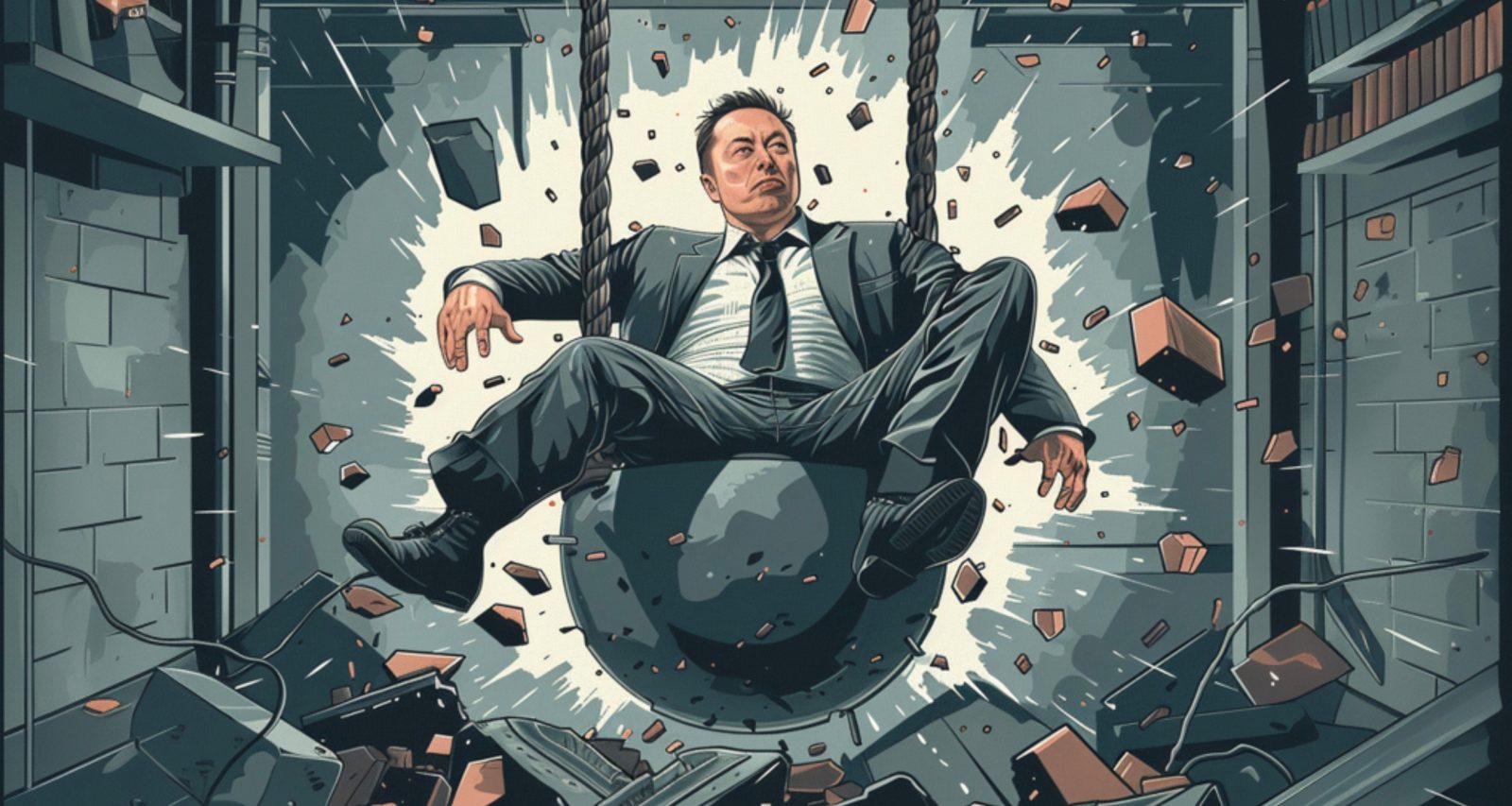
Tesla has ranked last place in a survey of brand reputation in Europe’s largest car market Germany, with a massive year-over-year collapse leaving it behind several other companies with already-poor reputations. It ranked poorly in Nordic countries as well.
more…
https://electrek.co/2026/02/06/tesla-dead-last-in-germany-in-nordic-reputation-study-behind-temu-nestle/
How far can DoD contract enforcement go without undercutting small‑business programs?
(date: 2026-02-06)
"[B]eing prepared to make the case that their contract serves the department's mission and the war fighter and delivers good value for the price," Ramish said.
https://federalnewsnetwork.com/contracting/2026/02/how-far-can-dod-contract-enforcement-go-without-undercutting-small%e2%80%91business-programs/
Thousands may have been exposed to measles at Brandon Ag Days event, Manitoba warns
(date: 2026-02-06)

Thousands of people who attended what's touted as Canada's largest indoor farm show this year may have been exposed to measles, Manitoba public health officials warn.
https://www.cbc.ca/news/canada/manitoba/ag-days-brandon-measles-exposure-9.7078546?cmp=rss
The week around the world in 20 pictures
(date: 2026-02-06)
Israeli airstrikes in Gaza, ICE protests in Los Angeles, Snoop Dogg at the Winter Olympics and Storm Leonardo – the past seven days as captured by the world’s leading photojournalists
Continue reading...
https://www.theguardian.com/artanddesign/gallery/2026/feb/06/the-week-around-the-world-in-20-pictures
Leaders in B.C. release joint statement condemning anti-Indigenous racism
(date: 2026-02-06)

Leaders in the Cowichan Valley region of Vancouver Island have released a statement against anti-Indigenous racism, saying they've seen a spike in the region.
https://www.cbc.ca/news/indigenous/anti-indigenous-racism-cowichan-valley-9.7076528?cmp=rss
New Jersey Democratic primary contest for House seat on knife-edge as votes trickle in
(date: 2026-02-06)
Progressive Analilia Mejia maintains slim lead after votes seemed to be swinging for Tom Malinowski
The outcome of a special Democratic primary to fill a US House of Representatives seat representing northern New Jersey was on a knife-edge on Friday, after a progressive challenger took a surprise lead over a former Democratic congressman who initially appeared to have won the nomination.
The election held on Thursday in New Jersey’s 11th congressional district was prompted by Democrat Mikie Sherrill’s resignation last year after she was elected governor. Eleven Democrats vied to replace her, and on Thursday evening, Tom Malinowski, who represented a neighboring district in the House from 2019 through 2022, took an early lead.
Continue reading...
https://www.theguardian.com/us-news/2026/feb/06/new-jersey-democratic-house-primary-analilia-mejia-tom-malinowski
Rotten Tomatoes swears all its Melania audience reviews are real
(date: 2026-02-06)
The review aggregator issued a statement on Friday, asserting that its 1,000-plus "Verified" audience reviews for Melania were backed up with actual ticket purchases.
https://www.pastemagazine.com/movies/rotten-tomatoes-melania-audience-score-verified
Score 2x Heybike ALPHA mid-drive e-bikes at $999 each, Bluetti Elite 400 power station exclusive $1,221 low, Segway, Anker SOLIX, more
(date: 2026-02-06)

We’re ending February’s first week of Green Deals with plenty to love, starting with Heybike’s Valentine’s Day e-bike bundle offers, which is giving folks the chance at two ALPHA All-Terrain Mid-Drive e-bikes for \(999 each](https://9to5toys.com/2026/02/05/heybike-valentines-day-two-alpha-e-bikes-999-each-more/), among others. We also have a few of [our top Bluetti power station picks](https://9to5toys.com/2026/02/05/bluetti-elite-400-portable-power-station-exclusive-1221-low-more/) from its current sale, like the [Elite 400 Portable Power Station](https://9to5toys.com/2026/02/05/bluetti-elite-400-portable-power-station-exclusive-1221-low-more/) back at an [exclusive \)1,221 low for the second time. You can also find [Segway’s Max G2 Electric Scooter down at \(700](https://9to5toys.com/2026/02/06/segway-max-g2-electric-scooter-700-more/) (alongside a cheaper alternative), as well as Anker’s Super Bowl weekend flash sale with up to \)3,300 savings, A Greenworks cordless electric string trimmer roundup alongside a new low on the brand’s 40V 5.0Ah high-power battery, and more waiting for you below. And don’t forget the hangover deals at the bottom of the page, like yesterday’s Segway GT3 SuperScooter low price, the increased exclusive savings to new low prices on EcoFlow’s DELTA Pro Ultra home integration bundle, the newer DELTA Pro Ultra X station, and more.
Head below for other New Green Deals we’ve found today and, of course, Electrek’s best EV buying and leasing deals. Also, check out the new Electrek Tesla Shop for the best deals on Tesla accessories.
more…
https://electrek.co/2026/02/06/2x-heybike-alpha-mid-drive-e-bikes-bluetti-power-station-segway-anker-solix-more/
Nearly $300M in federal contracts went to companies later removed from Indigenous Business Directory
(date: 2026-02-06)

Between 2020 and 2025, nearly $300 million in federal contracts were awarded to businesses that have since been removed from the Indigenous Business Directory. Those funds were counted as going to Indigenous-owned or operated companies, although one First Nations group now questions that.
https://www.cbc.ca/news/indigenous/indigenous-business-directory-removals-9.7077700?cmp=rss
China overturns death sentence for Canadian Robert Schellenberg
(date: 2026-02-06)

https://www.cbc.ca/news/politics/china-overturns-robert-schellenberg-death-sentence-9.7078324?cmp=rss
Hyundai is about to unveil its electric hot hatch and a few other new EVs
(date: 2026-02-06)

Hyundai will unveil the IONIQ 3 in just a few weeks, the first of a family of smaller, more affordable electric vehicles.
more…
https://electrek.co/2026/02/06/hyundais-electric-hot-hatch-first-several-new-evs/
Tesla files new Roadster trademark with new silhouette
(date: 2026-02-06)

Tesla has filed two new trademark applications for the Roadster, including one that reveals what appears to be the first official updated silhouette of the long-delayed electric sports car.
The filings, submitted to the United States Patent and Trademark Office on February 3, offer a glimpse at the branding Tesla plans to use for the vehicle that has been “coming next year” for nearly a decade.
more…
https://electrek.co/2026/02/06/tesla-files-new-roadster-trademark-with-new-silhouette/
Yet another fatal door handle lawsuit hits Tesla – but China has a fix
(date: 2026-02-06)

A new lawsuit has been filed against Tesla over the death of a young man in one of its Model Y vehicles, blaming Tesla’s electronic door handle design for trapping the driver inside the car after a crash.
It’s one of many similar lawsuits cropping up against Tesla lately – but a recent change in Chinese regulations should soon end this problem once and for all.
more…
https://electrek.co/2026/02/06/yet-another-fatal-door-handle-lawsuit-hits-tesla-but-china-has-a-fix/
OpenAI expands its work with the Department of Energy
(date: 2026-02-06)
"There's been a long running partnership where we are really invested in how our tools can contribute to scientific discovery," James Hairston said.
https://federalnewsnetwork.com/artificial-intelligence/2026/02/openai-expands-its-work-with-the-department-of-energy/
Clancey the swan rescued after being trapped for days on a frozen Connecticut river
(date: 2026-02-06)

When firefighter John Maggio first saw the swan trapped on the frozen Connecticut river, completely still with its head buried in its wings, he figured they were too late to save it. Still, he said, they had to try.
https://www.cbc.ca/radio/asithappens/swan-ice-rescue-9.7078122?cmp=rss
OMB seeks to once again empower agency CIOs
(date: 2026-02-06)
Federal CIO Greg Barbaccia outlined his focus areas around three big buckets people and culture, compliance and policy and technical projects and modernization.
https://federalnewsnetwork.com/cio-news/2026/02/omb-seeks-to-once-again-empower-agency-cios/
Ford has 5 more affordable vehicles coming for under $40,000, including a new EV
(date: 2026-02-06)

Ford is promising to introduce more affordable vehicles over the next few years, including five priced under $40,000.
more…
https://electrek.co/2026/02/06/ford-5-vehicles-under-40000-new-ev/
Europe Won't Ban Gas Cars By 2035 After All. Now Mercedes Is Worried
(date: 2026-02-06)
Until recently, European manufacturers were preparing for the 2035 ban on combustion engines and now must adapt to eased regulations.
https://insideevs.com/news/786491/mercedes-worried-eu-gas-ban-2035/
Parents can now see medical records of Alberta teens, sparking worry among doctors
(date: 2026-02-06)

Some Alberta doctors are warning a move by the provincial government to increase the access parents have to the medical records of teenagers could put some patients at risk.
https://www.cbc.ca/news/canada/calgary/medical-records-alberta-teens-9.7077600?cmp=rss
Austin Butler to live strong as Lance Armstrong's personally approved Lance Armstrong
(date: 2026-02-06)
Butler is set to star in a new authorized biopic of Armstrong, directed by Conclave's Edward Berger.
https://www.pastemagazine.com/movies/austin-butler-lance-armstrong-biopic
Tesla now has AI training capability in China, a critical step for Full Self-Driving
(date: 2026-02-06)

Tesla has launched an artificial intelligence training center in China, a critical development for the automaker’s Full Self-Driving (FSD) ambitions in the world’s largest electric vehicle market.
more…
https://electrek.co/2026/02/06/tesla-ai-training-capability-china-critical-step-full-self-driving/
How This Atheist Podcast Star Learned to Love Palestine, Oppose AIPAC, and Defend Muslims
(date: 2026-02-06)
Jennifer Welch, ‘shit-talker extraordinaire’ and host of ‘I’ve Had It’, talks to Mehdi about ‘prostitute’ JD Vance, AIPAC’s money, Epstein’s emails, corporate Democrats, and 'fucking moron' Trump.
https://zeteo.com/p/jennifer-welch-israel-trump-epstein
Supreme Court ruling sets out exception to lawyer-client confidentiality
(date: 2026-02-06)

The Supreme Court of Canada says there can be an exception to a lawyer's duty to keep conversations with a client confidential when the lawyer needs the information to defend themselves against a criminal charge.
https://www.cbc.ca/news/politics/supreme-court-ruling-lawyer-client-confidentiality-9.7077745?cmp=rss
Is Trump's 10% credit card interest cap an 'economic disaster'? | About That
(date: 2026-02-06)

Andrew Chang explains why U.S. President Donald Trump's proposed 10 per cent interest rate cap on credit cards may cause more harm than good, and why the major banks are pushing back.
Images provided by The Canadian Press, Reuters, Getty Images and Adobe Stock
https://www.cbc.ca/player/play/9.7078162?cmp=rss
Students in Coquitlam, B.C., face 3rd day of 'hold and secure' procedures as police respond to threats
(date: 2026-02-06)

Students in Coquitlam, B.C., were placed under "hold and secure" protocols Friday over what administrators described as a "called-in threat.”
https://www.cbc.ca/news/canada/british-columbia/coquitlam-schools-hold-and-secure-9.7078142?cmp=rss
What you need to know about TrumpRx
(date: 2026-02-06)
The Trump administration has launched the new TrumpRx website, where people can shop for prescription drugs at discounted rates. The site, a hub that points cash-paying customers to five participating manufacturers' websites, went live yesterday. We dig in. Then, it's been a bumpy week for markets. What should we make of it? Plus, we speak with a Minneapolis restaurant owner who says sales are down 50% due to ICE's crackdown in the city.
https://www.marketplace.org/episode/2026/02/06/what-you-need-to-know-about-trumprx
The latest Frieren asks: What's scarier, life-or-death battles or first dates?
(date: 2026-02-06)
In the latest episode of Frieren: Beyond Journey's End, “Other People’s Homes,” a first date and a deadly battle find emotional overlap.
https://www.pastemagazine.com/tv/frieren-beyond-journeys-end/frieren-beyond-journeys-end-recap-season-2-episode-4
Chock and Bates power US team to open Olympic figure skating
(date: 2026-02-06)
-
Ice dance duo give US early lead in the team event
-
Alysa Liu places second in women’s short program
-
Vance and Rubio in attendance for opening session
The United States seized early control of the Olympic figure skating team event after Friday’s opening day on the southern outskirts of Milan, powered by a world’s best score this season from Madison Chock and Evan Bates.
The three-time world champions, together on skates since 2011 and married since 2024, set the marker with 91.06 points for their program to music by The Guess Who and Lenny Kravitz, earning the maximum 10 points for an American team entering the Winter Games on a tailwind of hype.
Chock and Bates, nearly unbeatable since finishing fourth in the individual ice dance event at the Beijing Games four years ago, skated with the precision and polish that have defined their rise to the top of the sport.
Continue reading...
https://www.theguardian.com/sport/2026/feb/06/chock-and-bates-post-world-best-score-as-olympic-figure-skating-gets-underway
Toronto man found adrift in Atlantic Ocean pleads guilty to stealing boat
(date: 2026-02-06)

Mohammad Saleh, who was arrested on board a boat drifting east of Sable Island in the Atlantic Ocean last fall, has pleaded guilty to charges of theft and possession of stolen property after a small fishing boat was taken from the small coastal community of D'Escousse, N.S.
https://www.cbc.ca/news/canada/nova-scotia/toronto-man-adrift-in-atlantic-pleads-guilty-to-boat-theft-9.7077914?cmp=rss
The G-Fund’s silent erosion: Why the “safest” fund in the TSP may be costing you money
(date: 2026-02-06)
Learn more about why the G-Fund has successfully protected principal, but failed to protect purchasing power.
https://federalnewsnetwork.com/federal-insights/2026/02/the-g-funds-silent-erosion-why-the-safest-fund-in-the-tsp-may-be-costing-you-money/
Madman President Promotes Racist Video of the Obamas as Apes
(date: 2026-02-06)
Trump’s policies and actions are fueled by explicit racism and election denial. The Obama-ape video encompasses both.
https://zeteo.com/p/trump-obama-racist-video-apes
Genesis is launching a new EV platform in 2027 that will offer a unique luxury experience
(date: 2026-02-06)

Genesis is growing faster than practically any luxury marque in history. With plans to introduce a unique new EV platform next year, Genesis aims to solidify its status in the premium segment.
more…
https://electrek.co/2026/02/06/genesis-launching-unique-new-luxury-ev-platform-2027/
Enzo the emu makes a break for it, local stardom ensues
(date: 2026-02-06)

A female emu named Enzo briefly escaped from an eastern Ontario animal rescue sanctuary earlier this week, and has now turned into something of a local celebrity.
https://www.cbc.ca/news/canada/ottawa/enzo-the-emu-makes-a-break-for-it-local-stardom-ensues-9.7077384?cmp=rss
Opinion: It’s time for public radio to reclaim its educational identity
(date: 2026-02-06)
In a post-CPB world, embracing our original purpose as a “school of the sky” is not nostalgia — it is strategy.
The post Opinion: It’s time for public radio to reclaim its educational identity appeared first on Current.
https://current.org/2026/02/its-time-for-public-radio-to-reclaim-its-educational-identity/?utm_source=rss&utm_medium=rss&utm_campaign=its-time-for-public-radio-to-reclaim-its-educational-identity
Prosecutors drop aggravated assault charge against Yukon hockey prospect McKenna
(date: 2026-02-06)

Prosecutors have withdrawn a felony aggravated assault charge against Yukon-born hockey prospect Gavin McKenna.
https://www.cbc.ca/news/canada/north/prosecutors-drop-aggravated-assault-charge-against-yukon-hockey-prospect-mckenna-9.7077867?cmp=rss
How anti-ICE pin badges became the essential red carpet accessory
(date: 2026-02-06)
Billie Eilish and Biebers wore ‘ICE out’ pins at the Grammys, as more and more celebrities find their political voices
The red carpet is being used increasingly as a platform for protest – and one accessory in particular has become key: the pin badge.
At Sunday night’s Grammy awards, stars including Hailey and Justin Bieber and Billie Eilish wore black and white pins that read “ICE out”, a condemnation of the recent actions of the US Immigration and Customs Enforcement.
Continue reading...
https://www.theguardian.com/us-news/2026/feb/06/rise-stars-red-carpet-wearing-ice-protest-badges
Elton John testifies he was 'incensed' over Daily Mail hacking allegations
(date: 2026-02-06)

Singer Elton John told London's High Court on Friday he was incensed to learn of allegations his landline phones had been bugged on behalf of the Daily Mail, saying the papers' actions were "outside even the most basic standards of human decency."
https://www.cbc.ca/news/entertainment/elton-john-testifies-daily-mail-9.7077850?cmp=rss
NBA trade deadline: the Knicks get stronger and everyone loses in the Giannis sweepstakes
(date: 2026-02-06)
After weeks of breakup talk, the Bucks and their superstar stayed together. The Knicks and Timberwolves, meanwhile, made smart additions
It’s hard to match the absolute insanity that was the 2024-25 NBA trade deadline, and to the majority of the league’s credit, teams didn’t really try. But there was still some notable movement ahead of Thursday’s 3pm EST deadline – to varying degrees of success. Let’s do the early assessment of who came out on top, and who left us scratching our heads.
Continue reading...
https://www.theguardian.com/sport/2026/feb/06/nba-trade-deadline-winners-losers
Trump shares video with racist imagery of Barack and Michelle Obama in late-night posting spree
(date: 2026-02-06)
In clip amplifying false claim that Trump won 2020 election, the Obamas’ faces are superimposed on bodies of apes
Fury erupted early on Friday after Donald Trump posted a racist video that depicts Barack and Michelle Obama as apes.
The clip appeared during one of the 79-year-old US president’s increasingly frequent late-night posting sprees to his Truth Social account, and shows the laughing faces of the former president and first lady superimposed on the bodies of primates in a jungle setting, bobbing to the song The Lion Sleeps Tonight.
Continue reading...
https://www.theguardian.com/us-news/2026/feb/06/trump-racist-video-barack-michelle-obama
Xiaomi reveals 990-horsepower YU7 GT performance SUV with 186 mph top speed
(date: 2026-02-06)

Xiaomi has officially filed for the YU7 GT, a nearly 1,000-horsepower performance version of its popular YU7 electric SUV that will hit a top speed of 300 km/h (186 mph), making it one of the fastest electric SUVs ever built.
more…
https://electrek.co/2026/02/06/xiaomi-reveals-990-horsepower-yu7-gt-performance-suv-with-186-mph-top-speed/
Paul W.S. Anderson's House Of The Dead alive enough to cast Isabela Merced
(date: 2026-02-06)
Paul W.S. Anderson is still making a House Of The Dead movie and cast The Last Of Us star Isabela Merced
https://www.pastemagazine.com/movies/paul-w-s-anderson/paul-w-s-anderson-casts-isabela-merced-in-house-of-the-dead
4th youth hockey player arrested in alleged hazing sex assault investigation
(date: 2026-02-06)

Three other youths were arrested on related sexual assault charges earlier this week, after a youth reported being assaulted during a private hockey team gathering in Colchester County in October 2025.
https://www.cbc.ca/news/canada/nova-scotia/fourth-youth-arrested-hockey-hazing-investigation-truro-area-9.7077827?cmp=rss
West Wing, Thirtysomething actor Timothy Busfield indicted on 4 counts of sexual contact with a child
(date: 2026-02-06)

A New Mexico grand jury has indicted actor Timothy Busfield on four counts of criminal sexual contact with a child.
https://www.cbc.ca/news/entertainment/timothy-busfield-indicted-9.7077713?cmp=rss
BYD Led China’s EV Boom. Now It Has Some Bad News
(date: 2026-02-06)
We also discuss Tesla and Waymo's U.S. Senate hearing on self-driving cars and Canada's revised EV policy.
https://insideevs.com/news/786553/byd-sales-plunged-in-january/
The 'Burbs has a charming ensemble but a dragged-out plot
(date: 2026-02-06)
Peacock's spin on the 1980s dark comedy stars Keke Palmer and Jack Whitehall.
https://www.pastemagazine.com/tv/the-burbs-review-peacock-tv
This week's best new albums to stream
(date: 2026-02-06)
The new albums from Ratboys, Joshua Chuquimia Crampton, and Mandy, Indiana should be at the top of your queue today. Tap in and find a new obsession.
https://www.pastemagazine.com/music/best-new-albums/best-new-albums-february-6-2026
Wingspan
(date: 2026-02-06)
Fifth runner-up in the 2026 Great American Fiction Contest
Wingspan
The Saturday Evening Post
https://www.saturdayeveningpost.com/2026/02/wingspan/
AI comes for software companies
(date: 2026-02-06)
Software companies are in trouble. Or at least their stocks are. Salesforce is down 25%, and Intuit is down 31%, after startup Anthropic released a new tool sparking fear among investors that software companies are in danger of becoming obsolete. We'll learn more. Then, all kinds of cryptocurrencies are cratering in value, and we'll hear what it's like to be a small business in an anemic job market.
https://www.marketplace.org/episode/2026/02/06/ai-comes-for-software-companies
Man wanted in violent kidnapping in northern Manitoba arrested, woman found safe
(date: 2026-02-06)

A man who prompted a dangerous person alert after police say he kidnapped a woman in northern Manitoba has been found, the chief of Pimicikamak Cree Nation says.
https://www.cbc.ca/news/canada/manitoba/pimicikamak-cree-nation-abduction-arrest-9.7077693?cmp=rss
Scientific study shows e-bikes benefit a surprising part of the body
(date: 2026-02-06)

From a fitness perspective, electric bikes are often framed as a way to make cycling easier on the legs or more accessible for people who might otherwise avoid riding. But new research suggests the biggest benefits of e-bikes for older riders may be happening somewhere else entirely: the brain.
more…
https://electrek.co/2026/02/06/scientific-study-shows-e-bikes-benefit-a-surprising-part-of-the-body/
HBO Max makes streaming Schitt's Creek its bailiwick
(date: 2026-02-06)
All six seasons of Schitt's Creek, starring the late, great Catherine O'Hara, begin streaming on HBO Max tomorrow.
https://www.pastemagazine.com/tv/schitts-creek-hbo-max-streaming-release-catherine-ohara
News of the Week: Saved Almanacs, Vanishing OJ, and the Great SpaghettiOs Debate
(date: 2026-02-06)
In the news of the week ending February 6, 2026, are good news for almanac fans, bad news for frozen orange juice fans, and recipes for New England and Seattle fans.
News of the Week: Saved Almanacs, Vanishing OJ, and the Great SpaghettiOs Debate
The Saturday Evening Post
https://www.saturdayeveningpost.com/2026/02/news-of-the-week-saved-almanacs-vanishing-oj-and-the-great-spaghettios-debate/
‘We stole the Super Bowl audience’: how In Living Color pulled off the greatest heist in US TV history
(date: 2026-02-06)
Turning Point USA is plotting its own half-time show in defiance of Bad Bunny – but one of TV’s Blackest programs already perfected the alt-cast in 1992
When the NFL announced Puerto Rican superstar Bad Bunny as this year’s Super Bowl half-time show headliner, it walked right into a culture war. Right-wing critics raged over the musician’s gender-nonconforming style, Spanish-language music and anti-Maga politics. Donald Trump, after saying he had never heard of Bad Bunny, called the headlining choice “absolutely ridiculous”.
In response, Erika Kirk and her Turning Point USA conservative advocacy group turned the controversy into its own counter-programming event: the All-American Halftime Show. After its Nashville-heavy lineup, led by Kid Rock, was announced on Monday, vice-president JD Vance was first among conservatives to enthusiastically spread the word.
Continue reading...
https://www.theguardian.com/tv-and-radio/2026/feb/06/super-bowl-alternative-halftime-show-in-living-color
Quebec teen who allegedly promoted neo-Nazi ideology pleads not guilty to terrorism charge
(date: 2026-02-06)

A 16-year-old from the Quebec City area who was charged with a terrorism-related offence pleaded not guilty on Friday morning.
https://www.cbc.ca/news/canada/montreal/terrorism-charge-quebec-neo-nazi-group-9.7077480?cmp=rss
If it’s good enough for Tesla: Faraday Future pivots to humanoid robots
(date: 2026-02-06)

After failing to deliver its long-promised “Tesla killer” EV and missing the Bitcoin- and Doge-fueled profit wave that helped propel \(TSLA, Faraday Future (\)FFIE) is hoping it’s got what it takes to finally pull ahead of Elon Musk: a full line of consumer robots.
more…
https://electrek.co/2026/02/06/if-its-good-enough-for-tesla-faraday-future-pivots-to-humanoid-robots/
Japan prepares to go to the polls
(date: 2026-02-06)
From the BBC World Service: Japanese voters will give their verdict on the government of Sanae Takaichi this weekend after Japan's first female prime minister called a snap election just months into her first term. How is the economy there shaping the election? Plus, Cuban President Miguel Díaz-Canel says his government is trying to solve an energy crisis exacerbated by U.S. sanctions. And we check in with a company on a tiny Scottish island that produces an essential piece of Winter Olympics equipment.
https://www.marketplace.org/episode/2026/02/06/japan-prepares-to-go-to-the-polls
First Draft: 🧹 Clean House, Then Senate, Then Country
(date: 2026-02-06)
Democrats face a moral imperative to purge all Epstein associates from their ranks, Donald Trump has destroyed the job market, and Twitter is not real life?
https://zeteo.com/p/democrats-epstein-first-draft
Parks Canada looks at new tactics to curb Lake Louise overcrowding
(date: 2026-02-06)

From a summertime ban of vehicles, a reservation system, parking time limits or maintaining the status quo of paid parking, the federal agency is looking at ways to lessen the impact of visitation at the popular tourist attraction.
https://www.cbc.ca/news/canada/calgary/lake-louise-moraine-lake-parks-canada-9.7073302?cmp=rss
Newly revealed emails undermine RFK Jr testimony about 2019 Samoa trip ahead of measles outbreak
(date: 2026-02-06)
Kennedy later said the purpose of his trip had nothing to do with vaccines. US embassy and UN staff at the time said otherwise, emails show
Over two days of questioning during his Senate confirmation hearings last year, Robert F Kennedy Jr repeated the same answer.
He said the closely scrutinized trip he took to Samoa in 2019, which came ahead of a devastating measles outbreak, had “ nothing to do with vaccines”.
Continue reading...
https://www.theguardian.com/us-news/2026/feb/06/rfk-jr-samoa-trip
Twisted Sister cancels upcoming performances as Dee Snider resigns from band
(date: 2026-02-06)
A statement says that "Dee Snider now knows his" limitations.
https://www.pastemagazine.com/music/twisted-sister-cancels-tour-dee-snider-resigns
The 2027 Audi Q6 And A6 E-Tron Have A ‘Power Nap’ Mode To Doze In Your $80,000 EV
(date: 2026-02-06)
It “creates a calm and restful atmosphere during charging sessions,” according to Audi.
https://insideevs.com/news/786598/2027-audi-a6-q6-e-tron-specs-price/
Private jet owned by Trump friend used by ICE to deport Palestinians to West Bank | First Thing
(date: 2026-02-06)
Luxury plane owned by Florida property tycoon has twice flown Palestinian men from Arizona to Tel Aviv, Guardian investigation shows. Plus, Democratic senator calls for national strike if Trump interferes with midterms
Good morning.
Palestinians arrested by Immigration and Customs Enforcement (ICE) were deported to the West Bank on a private jet owned by an ally of Donald Trump, a Guardian investigation revealed on Thursday.
Has Dezer’s jet been used for deportations before? Yes. According to Human Rights First, it made four “removal flights”, to Kenya, Liberia, Guinea and Eswatini, starting last October.
How has he responded? In an email, Dezer told the Guardian he was “never privy to the names” of those who travelled on his jet when it was privately chartered by Journey, or the purpose of the flight. “The only thing I’m notified about is the dates of use,” he said.
What does each side want? Washington wants to expand the negotiations to cover Iran’s ballistic missiles, support for the region’s armed groups and “treatment of their own people”, the US secretary of state, Marco Rubio, has said. Tehran is seeking assurances that the US is not using the talks as a smokescreen to impose regime change.
Continue reading...
https://www.theguardian.com/us-news/2026/feb/06/first-thing-private-jet-ice-deport-palestinians-west-bank-trump
Masks in schools mandated as measles outbreak prompts health alert in World Cup host Jalisco, Mexico
(date: 2026-02-06)

Jalisco state in west-central Mexico is issuing a health alert and mandating the use of face masks in schools amid a measles outbreak in the state capital ahead of serving as a host city for upcoming 2026 FIFA World Cup.
https://www.cbc.ca/news/health/mexico-measles-world-cup-9.7077259?cmp=rss
World skiing body FIS aims to quash penis-enlargement sideshow
(date: 2026-02-06)

World skiing's governing body has moved swiftly to quash talk of ski jumpers injecting their penises with paraffin or hyaluronic acid to gain a competitive edge, but scientists and ski jumpers at the Winter Olympics say if true, it would make perfect sense.
https://www.cbc.ca/sports/olympics/winter/ski-jumping/ski-jump-enhancement-rumours-9.7077233?cmp=rss
Commentator, former Blue Jays catcher Buck Martinez announces retirement
(date: 2026-02-06)

Toronto Blue Jays announcer Buck Martinez has announced his retirement, ending a career that saw the former big-league catcher call over 4,000 Blue Jays games over four-plus decades in the booth.
https://www.cbc.ca/news/canada/toronto/buck-martinez-retirement-9.7077355?cmp=rss
Dragon Quest VII Reimagined feels kind of like dying—except not as fun
(date: 2026-02-06)
Dragon Quest VII Reimagined tries to streamline the original, but loses sight of why we play games, turning this one into a chore.
https://www.pastemagazine.com/games/dragon-quest-vii-reimagined-essay
Bytes: Week in Review - SpaceX and xAI merge, Nvidia and OpenAI's funding relationship and U.S. TikTok's rough start
(date: 2026-02-06)
On this week’s “Marketplace Tech Bytes: Week in Review,” we take a look at Nvidia's changing investment relationship with OpenAI. Plus, a stormy start for the new U.S. version of TikTok. But first, SpaceX, one of the world’s largest rocket companies, announced this week that it’s buying xAI, a two-and-half-year-old artificial intelligence startup. Both companies are controlled by Elon Musk. The new company is reportedly valued at $1.25 trillion. It means the chatbot Grok, the satellite internet company Starlink, and the social media firm X are all going to co-exist under the same rocket hangar. Marketplace’s Stephanie Hughes spoke with Paresh Dave, senior writer at Wired, about what adding these companies together equals.
https://www.marketplace.org/episode/2026/02/06/spacex-xai-merge-nvidia-openais-funding-us-tiktoks-rough-start
Mark Ruffalo criticizes Kevin O'Leary's criticism of Billie Eilish
(date: 2026-02-06)
After Eilish denounced ICE on the Grammys stage, Ruffalo defended her comments.
https://www.pastemagazine.com/music/mark-ruffalo-billie-eilish-kevin-oleary-grammys
Casey Wasserman is in the Epstein files, and his roster is pushing back
(date: 2026-02-06)
As the Wasserman CEO downplays his sexts with convicted sex trafficker Ghislaine Maxwell as ancient history, Best Coast’s frontwoman Bethany Cosentino is demanding resignations, a rebrand, and an end to endless grace for powerful men.
https://www.pastemagazine.com/music/wasserman/casey-wasserman-is-in-the-epstein-files-and-his-roster-is-pushing-back
Atikamekw leader denied access to Quebec constitution consultations over eagle staff
(date: 2026-02-06)

Sipi Flamand, Chief of the Atikamekw Council of Manawan, was denied access to public consultations into Quebec's proposed constitution at the National Assembly on Thursday, because he was carrying an Eagle Staff.
https://www.cbc.ca/news/canada/montreal/afnql-quebec-constitution-9.7076983?cmp=rss
In Singin’ to an Empty Chair, Ratboys find more revelation than reinvention
(date: 2026-02-06)
Paste Pick: The Chicago band turns therapy’s in‑between spaces into songs that resist neat resolutions, letting emotional maturity bite down instead of smoothing everything over.
https://www.pastemagazine.com/music/ratboys/ratboys-singin-to-an-empty-chair-album-review
‘It’s been brutal’: Cubans caught in crosshairs of Trump’s deportation push
(date: 2026-02-06)
Cubans, once fast-tracked to US residency, now find themselves targets of Trump’s immigration crackdown
When Rosaly Estévez “self-deported” from Miami to Havana last November, US immigration officers bid farewell by removing her ankle monitor. The 32-year-old had been told she was about to be detained, so she left with her three-year-old son, Dylan, a US citizen.
Heidy Sánchez, 43, wasn’t given a choice. She was forcibly removed from Florida last April but, worrying about Cuba’s failing healthcare system, she left her two-year-old daughter, Kaylin, behind with her American husband, Carlos.
Continue reading...
https://www.theguardian.com/us-news/2026/feb/06/cuban-immigrants-ice-deportations
Taylor Swift relegates "Opalite" music video to Spotify and Apple Music
(date: 2026-02-06)
YouTube views stopped counting toward Billboard charts last month.
https://www.pastemagazine.com/music/opalite-musiv-video-taylor-swift
No apology from Trump for sharing election conspiracy social media video with racist depiction of Obamas
(date: 2026-02-06)

A post from U.S. President Donald Trump's Truth Social account in which Barack and Michelle Obama are superimposed atop the bodies of apes was taken down after an outcry on Friday.
https://www.cbc.ca/news/world/trump-truth-social-obamas-9.7077001?cmp=rss
20 years ago, rock and roll overstayed its welcome at the Super Bowl Halftime Show
(date: 2026-02-06)
Classic rock Halftime Shows might be dead, but what they initially represented—the NFL changing gears—is still alive and kicking.
https://www.pastemagazine.com/music/super-bowl-halftime-show/20-years-ago-rock-and-roll-overstayed-its-welcome-at-the-super-bowl-halftime-show
Toyota Has A New CEO, Again. Here's What It Means For EVs, China And Beyond
(date: 2026-02-06)
Koji Sato, who has extensive engineering experience, is out after just three years. His replacement is a numbers guy.
https://insideevs.com/news/786580/toyota-new-ceo-2026/
Trump Threatens to Steal the Midterms
(date: 2026-02-06)
Donald Trump, Steve Bannon, and Mike Johnson hint at plans to steal the midterm elections...
https://crookedmedia.substack.com/p/trump-threatens-to-steal-the-midterms
House Party helped kick off New Jack Cinema in style
(date: 2026-02-06)
Kid 'n Play are now in The Criterion Collection as their movie, House Party, solidifies its place in Black film history.
https://www.pastemagazine.com/movies/new-jack-cinema/house-party-birth-of-new-jack-cinema
At least 31 killed, more than 160 injured in mosque bombing in Pakistan's capital
(date: 2026-02-06)

A massive bombing ripped through a Shia mosque on the outskirts of Pakistan's capital during Friday prayers, killing 31 people and wounding at least 169 others, police said.
https://www.cbc.ca/news/world/pakistan-islamabad-area-mosque-bombing-9.7076968?cmp=rss
‘I am always on your team!!’: how Andrew’s aide kept close ties with Epstein right to the end
(date: 2026-02-06)
Files suggest David Stern was Jeffrey Epstein’s ‘man in the palace’, passing messages to the former prince until 2019
Jeffrey Epstein wanted his 26-year-old Belarusian girlfriend, Karyna Shuliak, and her friend, Jen, to have a good time in London – and he knew just who to ask.
“Karyna – my girlfriend, and Jen, the tall girl who you’ve met will be London Tues and Wed,” the 63-year-old disgraced financier apparently wrote in April 2016 to an aide to the then Prince Andrew. “They have never been there before. If you are around, I’d appreciate any help you can give them.”
Continue reading...
https://www.theguardian.com/us-news/2026/feb/06/david-stern-prince-andrew-aide-epstein
Former Calgary judge pushes back on Alberta premier’s call for more input in federal judicial appointments
(date: 2026-02-06)

A former Calgary judge is joining Canadian legal experts in criticizing Alberta Premier Danielle Smith’s threats to withhold funding if the province is not given more input in federal judicial appointments as a risk to judicial independence.
https://www.cbc.ca/news/canada/calgary/alta-judges-legal-experts-francophone-groups-9.7075285?cmp=rss
He fled B.C. in 2015. Now, he's been connected to 2 suspected biolabs in the United States
(date: 2026-02-06)

A man who fled B.C. in 2015 with the threat of multimillion-dollar court judgments and a sentence for civil contempt hanging over his head, has been linked to the discovery of two suspected biolabs in California and Las Vegas, Nev.
https://www.cbc.ca/news/canada/british-columbia/illegal-biolab-jesse-zhu-bull-semen-9.7076069?cmp=rss
IEA: Electricity demand is rising fast, and grids can’t keep up
(date: 2026-02-06)
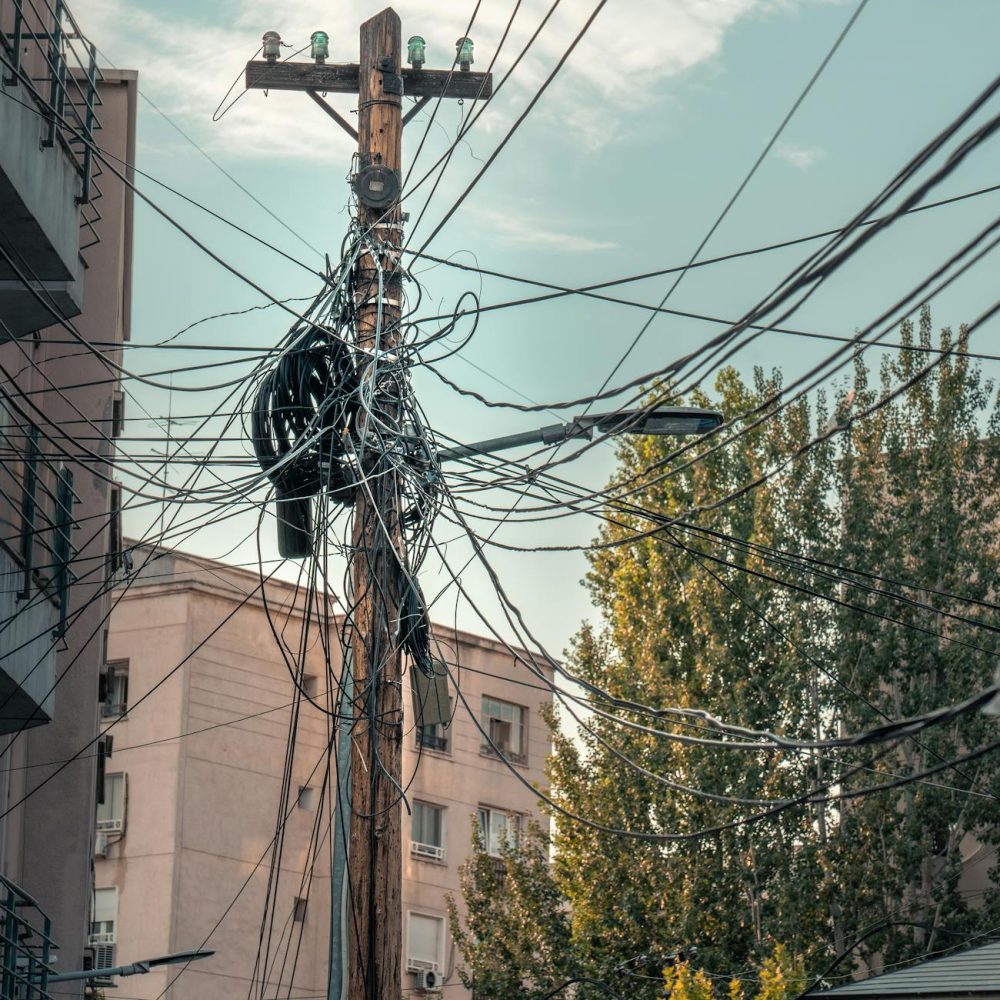
Global electricity demand is surging, and the grid is struggling to keep up, according to a new report from the International Energy Agency (IEA).
more…
https://electrek.co/2026/02/05/iea-electricity-demand-is-rising-fast-and-grids-cant-keep-up/
Americans hand Canada's Peterman, Gallant 1st loss in Olympic mixed doubles curling
(date: 2026-02-06)

The Canadian mixed doubles curling team of Brett Gallant and Jocelyn Peterman dropped a 7-5 decision to the American duo of Korey Dropkin and Cory Thiesse on Friday morning at the Milano-Cortina Olympic Games.
https://www.cbc.ca/sports/olympics/winter/curling/gallant-peterman-canada-usa-olympic-mixed-doubles-curling-recap-cortina-9.7076892?cmp=rss
Senior Russian officer in hospital after being shot in Moscow
(date: 2026-02-06)

A deputy chief of Russian military intelligence was shot and wounded in Moscow on Friday in an attack that follows a series of assassinations of senior military officers that Russia blamed on Ukraine.
https://www.cbc.ca/news/world/russian-military-intelligence-official-shot-moscow-9.7076906?cmp=rss
‘Grind the country to a halt’: Democrat urges national strike if Trump meddles in midterms
(date: 2026-02-06)
In wake of Donald Trump’s call for Republicans to ‘take over’ voting, senator Ruben Gallego urges citizens to take a stand and give the ‘ultimate response’
The Democratic senator Ruben Gallego has proposed that, should Donald Trump try to sabotage the midterm elections, Americans should respond with a general strike that would “grind the country to a halt”.
Earlier this week the US president called for Republicans to “take over” and “nationalise” voting in at least 15 unspecified locations, repeating his false claims that elections are plagued by widespread fraud.
Continue reading...
https://www.theguardian.com/us-news/2026/feb/06/donald-trump-voting-midterms-democrat-national-strike
St. John’s doctor lied about ex's father to have driver’s licence suspended, police allege
(date: 2026-02-06)

A family physician in St. John’s is facing a dozen charges, including allegations he harassed his ex-partner and falsified a medical report to have his ex-father-in-law suspended from driving.
https://www.cbc.ca/news/canada/newfoundland-labrador/marcus-hancock-charges-9.7075552?cmp=rss
Charli XCX's Brat-inspired The Moment is not a train wreck. That alone is impressive
(date: 2026-02-06)

The Moment enlists British musician Charli XCX to play herself and explores the chaotic success of her album Brat. At times impressive, at others disjointed, there's as much to critique as there is to admire.
https://www.cbc.ca/news/entertainment/charli-xcx-the-moment-review-9.7075650?cmp=rss
Chatbot TAs, coding on the fly: Here's how these educators weave AI into their classrooms
(date: 2026-02-06)

More educators are bringing AI into their university classrooms, setting clear parameters for and encouraging students to practice using the technology responsibly and with a critical eye — a decision that also requires professors to adapt their teaching and assessments.
https://www.cbc.ca/news/canada/profs-highered-usingai-9.7071321?cmp=rss
Inuit delegation in Greenland for opening of Canadian consulate has a message for Trump: 'Back off'
(date: 2026-02-06)

A new Canadian Consulate in Greenland's capital of Nuuk officially opened on Friday in front of an Inuit delegation from Canada, who brought a stern message for U.S. President Donald Trump: "Back off."
https://www.cbc.ca/news/politics/inuit-delegation-canadian-consulate-greenland-9.7074387?cmp=rss
20 years after his first election win, Stephen Harper steps back into the spotlight
(date: 2026-02-06)

After a decade at the top of the Canadian political pyramid, former prime minister Stephen Harper largely retreated from public life after his election loss in 2015. Now, the country's 22nd prime minister is speaking out and Canadians are giving his legacy a second look.
https://www.cbc.ca/news/politics/stephen-harper-legacy-20-years-since-election-9.7074275?cmp=rss
U.S.-Russia nuclear weapons treaty has expired. What happens now?
(date: 2026-02-06)

The treaty between the U.S. and Russia limiting their deployment of strategic nuclear weapons has expired, leaving plenty of questions about what U.S. President Donald Trump and Russian President Vladimir Putin intend to do next.
https://www.cbc.ca/news/world/nuclear-weapons-treaty-us-russia-start-expired-analysis-9.7076033?cmp=rss
A tale of two winters: Blooms in Vancouver, blankets of snow in Toronto
(date: 2026-02-06)

One city in bloom, and another freezing under a blanket of snow. Canada's extreme winters bring all kinds of surprises along the country's vast and varied landscape, and this year those contrasts are especially sharp between two of its biggest cities, Vancouver and Toronto.
https://www.cbc.ca/news/canada/vancouver-toronto-winter-weather-9.7076649?cmp=rss
Thanks to Bad Bunny, Puerto Rican Spanish has gone global. But what makes the dialect different?
(date: 2026-02-06)

The explosive success of Bad Bunny has brought Puerto Rican Spanish, a Caribbean dialect known for its musical rhythm, to the globe. Though the Spanish variant has been looked down on in the past, some experts say the popularity of his music may be changing that.
https://www.cbc.ca/news/entertainment/bad-bunny-puerto-rican-spanish-9.7076651?cmp=rss
Industry shifts into corporate-thriller mode in "Eyes Without A Face"
(date: 2026-02-06)
All roads lead to Accra.
https://www.pastemagazine.com/tv/industry-recap-season-4-episode-5-eyes-without-a-face
3 heading home from funeral killed, the latest in a string of fatal northern Ontario highway collisions
(date: 2026-02-06)

After Darius Ferris was sent a photo on Facebook of a crushed SUV, he had a gut feeling it was his vehicle. His worst fears were realized when he learned three loved ones had died as a result of the Highway 11 collision Jan. 31 that occurred after they'd left a funeral. It's the latest in a string of collisions on northern Ontario highways, prompting calls for better safety efforts.
https://www.cbc.ca/news/canada/thunder-bay/fatal-highway-11-collision-northern-ontario-9.7076197?cmp=rss
Justice gathers the worthy in a rousing A Knight Of The Seven Kingdoms
(date: 2026-02-06)
"It's just a bit of bad luck we found each other, isn't it?"
https://www.pastemagazine.com/tv/a-knight-of-the-seven-kingdoms/a-knight-of-the-seven-kingdoms-recap-season-1-episode-4
NBC’s Softball Trump Interview Normalized an Abnormal President
(date: 2026-02-06)
I fact-checked Tom Llamas’s deferential interview with the president, in which the NBC Nightly News anchor did not ask him even a single question about the Epstein files.
https://zeteo.com/p/nbc-softball-trump-interview-tom-llamas-fact-check
Trump administration could pour trillions into Golden Dome that is unlikely to work
(date: 2026-02-05)
“People in the national security community are deeply concerned about the cost ... the insurmountable viability issues facing it," Gabe Murphy said.
https://federalnewsnetwork.com/defense-news/2026/02/trump-administration-could-pour-trillions-into-golden-dome-that-is-unlikely-to-work/
Trump administration could pour trillions into Golden Dome that is unlikely to work
(date: 2026-02-05)
“People in the national security community are deeply concerned about the cost ... the insurmountable viability issues facing it," Gabe Murphy said.
https://federalnewsnetwork.com/defense-main/2026/02/trump-administration-could-pour-trillions-into-golden-dome-that-is-unlikely-to-work/
Three dead and six hurt after driver hits cyclist and crashes car into LA grocery store
(date: 2026-02-05)
Authorities respond to reports of crash at 99 Ranch Market after victims, some trapped under vehicle, die at scene
Three people were killed and six others were hurt after a car driver collided with a bicyclist and then slammed into a grocery store on Thursday afternoon in Los Angeles, authorities said.
The crash was reported shortly after noon at a 99 Ranch Market in the city’s Westwood neighborhood, according Los Angeles fire department spokesperson Lyndsey Lantz.
Continue reading...
https://www.theguardian.com/us-news/2026/feb/05/los-angeles-car-crash-grocery-store
What A Day: FBI Just Wants to Chat About the Midterms
(date: 2026-02-05)
The FBI just reached out to all 50 states about the midterms… without saying why.
https://crookedmedia.substack.com/p/what-a-day-fbi-just-wants-to-chat
Why Do the Epstein Files Matter? An Expert on the Elites Explains Why
(date: 2026-02-05)
Watch now (15 mins) | The Financial Times’ US editor, Edward Luce, explains to Mehdi what the latest revelations mean for our democracy, and talks Trump, Musk, Bannon, Blair, Mandelson and more.
https://zeteo.com/p/epstein-files-revelations
Interior Dept blazes ahead on unified wildland firefighting agency, without Congress endorsing plans
(date: 2026-02-05)
The Wildland Fire Service also stops short of folding in wildland fire personnel or programs from the USDA’s Forest Service.
https://federalnewsnetwork.com/reorganization/2026/02/interior-dept-blazes-ahead-on-unified-wildland-firefighting-agency-without-congress-endorsing-plans/
Homeland Security shutdown grows more likely as Republicans rebuff Democrats’ ICE demands
(date: 2026-02-05)
Congress is trying to renegotiate a DHS spending bill after Trump last week agreed to a Democratic request that it be separated from a larger spending measure.
https://federalnewsnetwork.com/congress/2026/02/a-homeland-security-shutdown-grows-more-likely-as-republicans-rebuff-democratic-demands-for-ice/
White House doubles down on Tulsi Gabbard’s presence at FBI raid of election center – live
(date: 2026-02-05)
Karoline Leavitt says director of national intelligence was there ‘to make sure that American elections are free of foreign interference’ while offering few details on her role
Amid the various winding comments throughout Trump’s speech today, he said that the Department of Education will officially issue its new guidance to protect the right to prayer in public schools today.
“Now the Democrats will sue us, but we’ll win it,” Trump said, eliciting some laughs from the audience at the National Prayer Breakfast. “They’ll sue us. They sue us for everything. I’m the most sued human being in history.”
Continue reading...
https://www.theguardian.com/us-news/live/2026/feb/05/donald-trump-immigration-ice-minneapolis-jeffrey-epstein-save-act-politics-latest-news-updates
Oregon must dismiss more than 1,400 criminal cases due to attorney shortage, court rules
(date: 2026-02-05)
Severe lack of public defenders has meant people charged with crimes have been routinely unable to fight their cases
The Oregon supreme court has ruled that a large number of criminal cases across the state must be dismissed due to a severe shortage of public defenders, a major decision that attorneys say will impact more than 1,400 pending cases.
The problem has been years in the making and has become a significant constitutional crisis, as people charged with crimes are routinely unable to fight their cases as they wait weeks, months or sometimes years for the state to appoint them lawyers. The attorney shortage – due in part to the increasing difficulty of recruiting attorneys for the low-salary, high-caseload jobs – has meant that people have had cases hanging over them for extended periods of time, impacting their housing, employment and families, advocates say.
Continue reading...
https://www.theguardian.com/us-news/2026/feb/05/oregon-supreme-court-ruling-attorney-shortage
There are more unemployed people than job openings right now
(date: 2026-02-05)
The latest JOLTS report is bleaker than expected. There were 6.5 million job openings across the U.S. economy in December, down nearly 400,000 from the previous month. This misaligned labor market is especially prominent in the services sector. In this episode, what's next for employment and which groups in particular are struggling to find work. Plus: The U.S. lags behind China in electrical capacity expansion, bankers show reluctance to lend to AI-impacted industries, and a photographer installs free-to-use phones across his city.
Every story has an economic angle. Want some in your inbox? Subscribe to our daily or weekly newsletter.
Marketplace is more than a radio show. Check out our original reporting and financial literacy content at marketplace.org — and consider making an investment in our future.
https://www.marketplace.org/episode/2026/02/05/there-are-more-unemployed-people-than-job-openings-right-now
Trump administration advances plan to strip job protections from career federal employees
(date: 2026-02-05)
A Schedule Policy/Career final rule aims to make it easier to fire some career employees. About 94% of comments on OPM's initial proposal opposed the change.
https://federalnewsnetwork.com/workforce/2026/02/trump-administration-advances-plan-to-strip-job-protections-from-career-federal-employees/
New VW Sportline is the 7-passenger electric GTi the ID.Buzz SHOULD have been
(date: 2026-02-05)

VW have finally built the van enthusiasts have been asking — and it’s not the ID.Buzz. Meet the new e-Transporter Sportline, the retro-tastic people-mover with GTI-inspired styling, a proper performance attitude, and room for seven that VW should have been building all along.
more…
https://electrek.co/2026/02/05/new-vw-sportline-is-the-7-passenger-electric-gti-the-id-buzz-should-have-been/
Michael Shannon and his terrifying eyes are remaking horror classic The Cabinet Of Dr. Caligari
(date: 2026-02-05)
Shannon will team back up with his old Waco showrunners Drew and John Erick Dowdle on Doctor Caligari's Cabinet Of Wonders.
https://www.pastemagazine.com/movies/michael-shannon-cabinet-of-dr-caligari-remake-dowdle-brothers
The world’s first sodium-ion battery EV is here and it could be a game changer
(date: 2026-02-05)

Leading global battery maker CATL and Changan Automobile unveiled the world’s first passenger EV powered by a sodium-ion battery on Thursday.
more…
https://electrek.co/2026/02/05/first-sodium-ion-battery-ev-debuts-game-changer/
Bald eagles and Lynyrd Skynyrd: is Budweiser’s all-American Super Bowl ad serious?
(date: 2026-02-05)
Featuring an unlikely animal friendship, the commercial boasts enough patriotic iconography to verge on self-parody
Three years after its sister brand, Bud Light, faced a rightwing boycott over a transgender spokesperson, Budweiser’s new Super Bowl ad, American Icons, contains absolutely nothing that could be mistaken for social progress. Instead, it features an unlikely friendship between two animals whose blood runs red, white and blue: a bald eagle and a Clydesdale horse, the Budweiser icon. An adorable foal trots out of a barn, and the viewer is injected with a single minute of American iconography so pure that it would make Lee Greenwood nauseous.
The horse meets a struggling baby bird who gets caught in the rain, prompting the horse to stand over the bird as a roof. The pair become pals and grow up together, the bird riding on the horse’s back as it grows larger. It falls off a few times, but, like George Washington at Valley Forge, it never gives up. Finally, the horse jumps over a log while the bird spreads its wings above, and we get a slow-motion image of something like Pegasus. We realize the bird, now fully grown, is a majestic bald eagle, taking to the sky as Lynyrd Skynyrd’s Free Bird reaches its climax. Two farmers look on while drinking Budweiser, as the words “Made of America” appear on the screen. “You crying?” one asks. “The sun’s in my eyes,” says the other.
Continue reading...
https://www.theguardian.com/business/2026/feb/05/budweiser-super-bowl-ad
What a recent executive order from Trump means for housing costs
(date: 2026-02-05)
President Trump recently signed an executive order targeting large institutional investors that buy up homes. But in some circumstances, those large investors have led to more housing affordability.
https://www.npr.org/2026/02/05/nx-s1-5701310/what-a-recent-executive-order-from-trump-means-for-housing-costs
Dr. Robby begins to crack on The Pitt
(date: 2026-02-05)
This episode has everything: death doulas, brutally beaten prisoners, and explosive diarrhea.
https://www.pastemagazine.com/tv/the-pitt/the-pitt-recap-season-2-episode-5-1100-a-m
The heated rivalry between Candiace and Rob comes to a head on The Traitors
(date: 2026-02-05)
"I just want to be left alone. This is what happens when you're nice!"
https://www.pastemagazine.com/tv/the-traitors-recap-season-4-episode-8
Republicans dismiss whistleblower complaint against Tulsi Gabbard
(date: 2026-02-05)
Anonymous insider alleges director of national intelligence withheld classified information for political reasons
The Republican leaders of the House and Senate intelligence committees have rejected a top-secret complaint from an anonymous government insider alleging that Tulsi Gabbard, the director of national intelligence, withheld classified information for political reasons.
The responses this week from Senator Tom Cotton and Congressman Rick Crawford mean the complaint is unlikely to proceed further, though Democratic lawmakers who also have seen the document said they continue to question why it took Gabbard’s office eight months to refer the complaint to Congress as required by law.
Continue reading...
https://www.theguardian.com/us-news/2026/feb/05/republicans-tulsi-gabbard-whistleblower-complaint
Ex-priest indicted for allegedly raping disabled child while ministering in New Orleans
(date: 2026-02-05)
Mark Francis Ford has been held without bail for five months after authorities arrested him in Indiana
A man accused of molesting a disabled boy whom he met while working as a Roman Catholic priest in New Orleans has been indicted on child rape charges, according to authorities.
Grand jurors seated in New Orleans’ state criminal courthouse on Thursday handed up a nine-count indictment against Mark Francis Ford, nearly five months after authorities arrested him and jailed him without bail. The document charges Ford, 64, with aggravated rape of a child; raping a person suffering from a physical disability preventing resistance; two counts of molesting a juvenile; another three of indecent behavior with a minor; and kidnapping.
Continue reading...
https://www.theguardian.com/us-news/2026/feb/05/mark-francis-ford-child-rape-new-orleans
Two convicted, fined $3K each after grizzly bear killed on B.C.'s Texada Island
(date: 2026-02-05)

Two Texada Island residents have been convicted after failing to report the killing of a grizzly bear on B.C.'s Texada Island in July 2025, according to conservation officers.
https://www.cbc.ca/news/canada/british-columbia/conviction-death-grizzly-bear-texada-island-bc-9.7076786?cmp=rss
New bill would remove college degree requirements for federal cybersecurity jobs
(date: 2026-02-05)
Lawmakers in support of the bill say it would help agencies recruit much-needed cyber expertise into government.
https://federalnewsnetwork.com/federal-newscast/2026/02/golden-dome-defense-initiative-could-cost-3-6-trillion-over-the-next-20-years/
Why Slate's CEO Isn't Too Worried About Cheap Chinese EVs
(date: 2026-02-05)
We asked the head of America's buzziest EV startup about where the company stands, the Slate truck's price and competition with BYD.
https://insideevs.com/news/786194/slate-ceo-interview-q-a-price-china-battery-2026/
CISA tells agencies to identify, upgrade unsupported edge devices
(date: 2026-02-05)
CISA's new binding operational directive comes amid persistent concerns about nation-state adversaries targeting end-of-service edge devices, like routers.
https://federalnewsnetwork.com/cybersecurity/2026/02/cisa-tells-agencies-to-identify-upgrade-unsupported-edge-devices/
The Emmys to explore photosynthesis by giving Bill Nye his flowers
(date: 2026-02-05)
Nye, science guy, will receive a lifetime achievement awards at next month's Children’s & Family Emmy Awards.
https://www.pastemagazine.com/tv/bill-nye/bill-nye-lifetime-achievement-award-children-emmys
Arizona officials confirm blood found at Nancy Guthrie’s home was hers
(date: 2026-02-05)
Pima county sheriff says police do not yet have a suspect in apparent kidnapping of Savannah Guthrie’s mother
Law enforcement chiefs in Arizona on Thursday confirmed that they found blood belonging to Nancy Guthrie, the mother of the TV anchor Savannah Guthrie, on the 84-year-old’s porch after she was reported missing from home at the weekend.
The sheriff of Pima county, Chris Nanos, said during a press conference authorities did not yet have a suspect in the apparent kidnapping.
Continue reading...
https://www.theguardian.com/us-news/2026/feb/05/savannah-nancy-guthrie-mom-blood-home
JD Vance’s first Olympic appearance unfolds with more photo-ops than protests
(date: 2026-02-05)
Amid officials’ concern about vocal crowd reactions against the US, the vice-president’s visit to a hockey game felt closer to theater than geopolitics
Several thousand spectators who turned up for a Thursday afternoon hockey game in Milan’s western suburbs may have gotten a sneak preview of the 2028 Republican ticket when US vice-president JD Vance and secretary of state Marco Rubio attended the United States women’s Olympic opener. With one hockey game already postponed because of norovirus, Olympic organizers could have been forgiven for hoping to avoid any other sudden waves of nausea inside the secondary rink across town.
Vance is in Italy to lead the official US delegation at Friday’s opening ceremony, joined by second lady Usha Vance, Rubio and billionaire Tilman Fertitta, the US ambassador to Italy and owner of the NBA’s Houston Rockets. The group watched Thursday’s game from the second and third rows at center ice behind the scorer’s table alongside Olympic gold medal-winning hockey sisters Jocelyne Lamoureux-Davidson and Monique Lamoureux-Morando.
Continue reading...
https://www.theguardian.com/sport/2026/feb/05/jd-vance-olympics-hockey-game
Famine Conditions Spread in Sudan Amid World’s Worst Hunger Crisis
(date: 2026-02-05)
'Preventable deaths are already occurring and will continue to rise without urgent action,' the UN-backed global food monitor warns, as fighting rages between the Sudanese army and the RSF.
https://zeteo.com/p/famine-sudan-dafur-ipc-hunger
Why primary source collection is the future of threat intelligence
(date: 2026-02-05)
The value of intelligence doesn’t come from how much data you have. It comes from how quickly and clearly you can turn that data into action.
https://federalnewsnetwork.com/commentary/2026/02/why-primary-source-collection-is-the-future-of-threat-intelligence/
HBO taps The Last Of Us' Craig Mazin to make a Baldur's Gate 3 sequel show
(date: 2026-02-05)
Picking up where 2023 GOTY winner Baldur's Gate 3 left off, the HBO series will be helmed by The Last Of Us' Craig Mazin.
https://www.pastemagazine.com/tv/hbo-baldurs-gate-3-tv-show-craig-mazin
Trump offers contradictory account of Tulsi Gabbard presence at FBI raid in Georgia
(date: 2026-02-05)
Shifting explanations of Gabbard’s presence at election center intensifies scrutiny of role she played in operation
Donald Trump on Thursday offered a new and shifting account of why Tulsi Gabbard, the director of national intelligence, was present last week at an FBI raid of an election center in Georgia, saying she went at the urging of the attorney general Pam Bondi.
“She took a lot of heat two days ago because she went in at Pam’s insistence,” the US president said at the National Prayer Breakfast, a high-profile event of political and religious leaders. “She went in and she looked at votes that wanted to be checked out from Georgia.”
Continue reading...
https://www.theguardian.com/us-news/2026/feb/05/trump-tulsi-gabbard-fbi-raid
Why Is the Media Not Touching Jeffrey Epstein’s Clear Connection to Israel?
(date: 2026-02-05)
They’re instead focusing on the possibility that Epstein was a Russian asset.
https://zeteo.com/p/why-is-the-media-not-touching-jeffrey
What the executive order on marijuana reclassification means for security clearance holders
(date: 2026-02-05)
If reclassification of marijuana were to occur, security clearance holders would still need to consider a multitude of factors.
https://federalnewsnetwork.com/commentary/2026/02/what-the-executive-order-on-marijuana-reclassification-means-for-security-clearance-holders/
What do American families really care about right now?
(date: 2026-02-05)
As the 2026 midterm elections approach, pollsters and strategists from all over the world of politics are trying to get a pulse on American families. Kimberly recently sat down with a panel of experts at the Aspen Forum on Children and Families to discuss what their research is revealing and what it means for the future of policies that affect children and families across the United States. So, we’re sharing some of that conversation today. Spoiler: the economy comes up a lot.
Here’s everything we talked about today:
We love hearing from you. Leave us a voicemail at 508-U-B-SMART or email makemesmart@marketplace.org.
https://www.marketplace.org/episode/2026/02/05/what-do-american-families-really-care-about-right-now
With patent reform back on the table, Tillis says the stakes for American innovation couldn’t be higher
(date: 2026-02-05)
"There's a smart, sustainable, respectful way to implement deportation policy, and there's the dumpster fire that's occurring in Minnesota," said Sen. Tillis.
https://federalnewsnetwork.com/congress/2026/02/with-patent-reform-back-on-the-table-tillis-says-the-stakes-for-american-innovation-couldnt-be-higher/
Ford’s $30,000 EV Pickup Takes A Page From Tesla To Transform How Cars Are Built
(date: 2026-02-05)
Ford CEO Jim Farley shared a bit more about the mysterious pickup on social media on Thursday.
https://insideevs.com/news/786534/ford-midsize-ev-pickup-gigacasting/
Barclays reportedly cuts ties with lobbying firm co-founded by Peter Mandelson
(date: 2026-02-05)
Vodafone also reviewing its contract with Global Counsel after revelations of former minister’s links to Jeffrey Epstein
Barclays has reportedly cut ties with the lobbying firm co-founded by Peter Mandelson, after intense scrutiny of the founders’ dealings with the late child sex offender Jeffrey Epstein.
Vodafone has also said it is reviewing its contract for public affairs services with Global Counsel, which Mandelson co-founded in 2010 after Labour lost the general election.
Continue reading...
https://www.theguardian.com/business/2026/feb/05/barclays-vodafone-lobbying-firm-global-counsel-peter-mandelson
Democrats’ 10 demands to ‘rein in’ ICE – the full list of proposed reforms
(date: 2026-02-05)
Party says it will not back funding bill without reforms on – among other things – masks, ID and judicial warrants
Following the fatal shootings of American citizens Renee Good and Alex Pretti by federal agents in Minneapolis last month, Democrats have refused to support long-term funding for the Department of Homeland Security (DHS) unless Republicans agree to reforms on the tactics of federal agents carrying out Donald Trump’s immigration crackdown.
“The American people rightfully expect their elected representatives to take action to rein in ICE and ensure no more lives are lost,” the Senate minority leader, Chuck Schumer, and his House counterpart, Hakeem Jeffries, wrote on Wednesday night in a letter issuing 10 formal demands to GOP leadership in order to avert a 13 February lapse in funding for the department, which oversees Immigration and Customs Enforcement (ICE) and the US Border Patrol.
Continue reading...
https://www.theguardian.com/us-news/2026/feb/05/democrats-ice-reforms-funding-bill
Truck driver who caused Humboldt Broncos crash one step away from deportation, lawyer says
(date: 2026-02-05)

The Immigration and Refugee Board is still considering a previous application to restore Sidhu's permanent resident status on humanitarian grounds.
https://www.cbc.ca/news/canada/saskatchewan/truck-driver-jaskirat-singh-sidhu-humboldt-broncos-crash-deportation-refugee-decision-9.7076665?cmp=rss
Xpeng reveals first images of GX flagship SUV with Range Rover styling and steer-by-wire
(date: 2026-02-05)

Xpeng has unveiled the first official images of the GX, its new flagship six-seat SUV that takes clear design inspiration from the Range Rover while packing the company’s most advanced technology yet.
The Chinese EV maker shared three images of the GX on Weibo today, revealing a sleek full-size SUV that will compete directly with premium rivals like the Li Auto L9, Huawei’s Aito M9, Zeekr 9X, and the upcoming Nio ES9.
more…
https://electrek.co/2026/02/05/xpeng-reveals-first-images-of-gx-flagship-suv-with-range-rover-styling-and-steer-by-wire/
Developing anti-drone weapons at home? Experts weigh in on bizarre Ontario explosives investigation
(date: 2026-02-05)

As four people remain in custody after being accused of storing materials that could be made into explosives at an Ontario house, some engineers say it’s ‘not unusual’ for scientists to have at-home labs, but cite a slew of safety concerns.
https://www.cbc.ca/news/canada/london/why-london-accused-made-counter-drone-weapons-in-garage-9.7076637?cmp=rss
The way, the Trump and the lies: prayer breakfast displays US right’s devil’s pact
(date: 2026-02-05)
Trump might not embody Christian values yet is the religious right’s chosen instrument to turn the tide against liberal, godless America
They had come to say a prayer for the father, the son and the holy ghost.
The father was Donald Trump, who, despite sending federal militias to roam Minneapolis, threatening to invade Greenland and telling lies by the dozen, remains the lord and saviour of the religious right.
Continue reading...
https://www.theguardian.com/us-news/2026/feb/05/trump-religious-right-republicans
In a Word: Hope and Desperation
(date: 2026-02-05)
None without hope e’er lov’d the brightest fair,
But love can hope where reason would despair. —Lord Lyttleton
In a Word: Hope and Desperation
The Saturday Evening Post
https://www.saturdayeveningpost.com/2026/02/in-a-word-hope-and-desperation/
Segway GT3 SuperScooter at $1,500 low, EcoFlow DELTA 2 Max new $829 low + increased exclusive DELTA Pro Ultra savings, more
(date: 2026-02-05)

We’ve got an exciting edition of Green Deals filled with new and returning low prices alike, starting with Segway’s highly advanced GT3 SuperScooter back at its \(1,500 low](https://9to5toys.com/2026/02/05/segway-gt3-superscooter-back-at-1500-low/) and featuring Apple Find My, proximity locking, navigation, and so much more. From there, we have been surprised by a wide array of EcoFlow device lows, starting with the latest flash sale that has dropped the [DELTA 2 Max Portable Power Station to a new \)829 low. We also have increased exclusive savings on the [DELTA Pro Ultra X Portable Power Station at a new \(6,899 low](https://9to5toys.com/2026/02/05/ecoflow-delta-pro-ultra-x-power-station-exclusive-new-6999-low/) (\)1,400 off), as well as the bundled [DELTA Pro Ultra Portable Power Station, Smart Home Panel 2, and FREE trolley at a new \(4,319 low](https://9to5toys.com/2026/02/05/ecoflow-delta-pro-ultra-station-smart-home-panel-2-free-trolley-exclusive-4409/) (\)3,479 off). There’s also EcoFlow’s solar-charging Power Hat at a steal of a price, Worx’s Nitro 24-inch cordless electric hedge trimmer, and more waiting for you below. And don’t forget the hangover deals at the bottom of the page, like yesterday’s Anker SOLIX E10 Smart Hybrid Whole-Home Backup System officially launching with $2,846+ savings, the early-bird perks on Velotric’s upcoming Discover 3 and Discover M e-bikes, and more.
Head below for other New Green Deals we’ve found today and, of course, Electrek’s best EV buying and leasing deals. Also, check out the new Electrek Tesla Shop for the best deals on Tesla accessories.
more…
https://electrek.co/2026/02/05/segway-gt3-superscooter-ecoflow-delta-2-max-delta-pro-ultra-more/
Apple was once ‘carpet bombing’ Tesla with recruiting calls, per Elon Musk
(date: 2026-02-05)

Apple once had ambitions of building an electric car, and during that period, per a new interview with Elon Musk, the company was “relentlessly” trying to poach Tesla employees.
more…
https://9to5mac.com/2026/02/05/apple-was-once-carpet-bombing-tesla-with-recruiting-calls-per-elon-musk/
Victim of former Regina police officer who preyed on women speaks out
(date: 2026-02-05)

Former Regina police officer Robert Semenchuck snooped internal records to con 33 women into romantic relationships. CBC's Katie Swyers sits down with the woman who untangled his web of lies.
https://www.cbc.ca/player/play/9.7076614?cmp=rss
Author of fake ransom note arrested in connection with Savannah Guthrie's missing mother
(date: 2026-02-05)
Today host Savannah Guthrie's 84-year-old mother, Nancy, has been missing since January 31. The FBI arrested someone who made a fake ransom
https://www.pastemagazine.com/tv/savannah-guthrie/savannah-guthrie-mother-nancy-missing-impostor-arrested
Trump administration issues rule that makes it easier to fire federal workers
(date: 2026-02-05)
New rule would strip job safeguards for 50,000 federal employees and change how whistleblowers are protected
The Trump administration is seeking to finalize its overhaul of the federal government’s civil service system through a rule issued this week by the office of personnel management (OPM) to strip job protections from 50,000 civil service employees.
Under the rule, the president would have the authority to fire and hire an estimated 50,000 career federal employees.
Continue reading...
https://www.theguardian.com/us-news/2026/feb/05/trump-administration-federal-workers
Subaru is now building EVs in-house, starting with a new electric SUV
(date: 2026-02-05)

The new electric SUV is now rolling off the production line at Subaru’s Gunma Yajima Plant, the first time an EV has been made at the facility.
more…
https://electrek.co/2026/02/05/subaru-builds-first-in-house-ev-new-electric-suv/
Some U.S. alcohol will return to SAQ shelves amid import ban
(date: 2026-02-05)

Starting on Feb. 12, the Quebec government will authorize the province's liquor board to restock some U.S. products whose quality might start declining as of March 2027.
https://www.cbc.ca/news/canada/montreal/quebec-saq-alcohol-9.7076504?cmp=rss
Hell is a repeating subway tunnel in the Exit 8 trailer
(date: 2026-02-05)
Based on the hit indie horror game, Neon's latest plays like the world's scariest version of a Highlights magazine puzzle.
https://www.pastemagazine.com/movies/exit-8/exit-8-trailer
Mother believed to be 'willing participant' in suspected murder-suicide, B.C. coroner's inquest hears
(date: 2026-02-05)

RCMP say the parents found dead along with their two children in Prince Rupert had recorded a video will in the days leading to their deaths.
https://www.cbc.ca/news/canada/british-columbia/duong-nguyen-inquest-murder-suicide-9.7076224?cmp=rss
Calgary man facing extradition in Ryan Wedding drug case a 'loyal soldier,' Crown says at bail hearing
(date: 2026-02-05)

Calgarian Allistair Chapman, accused of working for an alleged Canadian drug lord and helping to set up the murder of an FBI informant, was described by the prosecution as a “loyal soldier” who should not be granted bail.
https://www.cbc.ca/news/canada/calgary/allistair-chapman-ryan-wedding-charges-extradition-bail-9.7076348?cmp=rss
Celebrating America’s 250th birthday with the artifacts that created it
(date: 2026-02-05)
"Our real goal with this is recognizing that this is not just about ... D.C. this year in this celebration, it's about the entire country," said McCaffrey.
https://federalnewsnetwork.com/people/2026/02/celebrating-americas-250th-birthday-with-the-artifacts-that-created-it/
The World’s First Sodium-Ion Battery EV Is A Winter Range Monster
(date: 2026-02-05)
It’s the beginning of a “dual chemistry era” as sodium-ion batteries have overcome all hurdles to enter mass production.
https://insideevs.com/news/786509/catl-changan-worlds-first-sodium-ion-battery-ev/
Federal public servants called back to office 4 days a week starting this summer
(date: 2026-02-05)

https://www.cbc.ca/news/politics/federal-government-return-to-office-9.7076314?cmp=rss
Newly released Epstein email appears to confirm photo of Virginia Giuffre, former prince Andrew
(date: 2026-02-05)

Ten months after Virginia Giuffre's death by suicide, a newly released email appears to support her claims that she met and posed for a photograph with Andrew Mountbatten-Windsor.
https://www.cbc.ca/news/world/andrew-virginia-giuffre-photo-confirmed-9.7075876?cmp=rss
Xiaomi SU7 owner puts 165,000 miles on his EV in 18 months, battery health at 94.5%
(date: 2026-02-05)

A Xiaomi SU7 owner in China has achieved what might be the most impressive real-world battery longevity test we’ve seen yet: 265,000 kilometers (165,000 miles) in just 18 months of ownership, with battery health still at 94.5%.
more…
https://electrek.co/2026/02/05/xiaomi-su7-owner-puts-165000-miles-on-his-ev-in-18-months-battery-health-at-94-5/
US job openings dropped to a five-year low in December 2025, report shows
(date: 2026-02-05)
Data from November 2025 was also revised lower amid a softening in labor market conditions at the end of the year
US job openings dropped to the lowest level in more than five years in December and data for the prior month was revised lower amid a softening in labor market conditions at the end of 2025.
Job openings, a measure of labor demand, decreased by 386,000 to 6.542m by the last day of December, the lowest level since September 2020, the labor department’s Bureau of Labor Statistics said in its Job Openings and Labor Turnover Survey, or Jolts report, on Thursday.
Continue reading...
https://www.theguardian.com/business/2026/feb/05/us-job-openings-five-year-low-december-report
Kia’s electric hatch drove almost 250 miles and recharged in 33 minutes in the frigid cold
(date: 2026-02-05)

The EV4, Kia’s electric hatchback, proved its prowess in the El Prix Winter Test, driving almost 250 miles (390 km) in temperatures as low as –31°C (-23.8 °F). It also recharged from 10% to 80% in just over 30 minutes.
more…
https://electrek.co/2026/02/05/kias-ev-hatch-drove-250-miles-recharged-in-33-mins-frigid-cold/
QuantumScape inaugurates Eagle Line pilot for solid-state battery production [Video]
(date: 2026-02-05)

Solid-state battery developer QuantumScape is off and running in 2026, inaugurating its shiny new Eagle Line for pilot production. Eagle Line lays the groundwork for scaled solid-state battery production and will produce cells to support OEM customer sampling.
more…
https://electrek.co/2026/02/05/quantumscape-inaugurates-eagle-line-pilot-solid-state-battery-production/
Raised voices at a hearing starring the treasury secretary
(date: 2026-02-05)
Treasury Secretary Scott Bessent will be on Capitol Hill again today for another grilling. He’s scheduled to appear before the Senate Banking Committee. Yesterday, Bessent appeared before the House Financial Services Committee to talk about oversight of the U.S. financial system, where he sparred with Democrats. And later in the program, wages are making up a shrinking share of overall income. Also: discussions of Fed independence, inflation, and more.
https://www.marketplace.org/episode/2026/02/05/raised-voices-at-a-hearing-starring-the-treasury-secretary
This Democrat Wants to Help MAGA Voters More Than Trump Does
(date: 2026-02-05)
Gene Sperling served in senior roles in the Clinton, Obama, and Biden White Houses. He’s now on a quest for ‘economic dignity.’
https://zeteo.com/p/gene-sperling-economic-dignity-georgetown
Review: The President’s Cake — Movies for the Rest of Us with Bill Newcott
(date: 2026-02-05)
Iraqi writer/director Hasan Hadi sends from the Middle East a quiet contemplation of life under emotional and economic siege; and a reminder that in the end, human dignity will always assert itself, no matter what.
Review: The President’s Cake — Movies for the Rest of Us with Bill Newcott
The Saturday Evening Post
https://www.saturdayeveningpost.com/2026/02/review-the-presidents-cake-movies-for-the-rest-of-us-with-bill-newcott/
San Bernadino hub can now charge 200 electric semi trucks per day
(date: 2026-02-05)
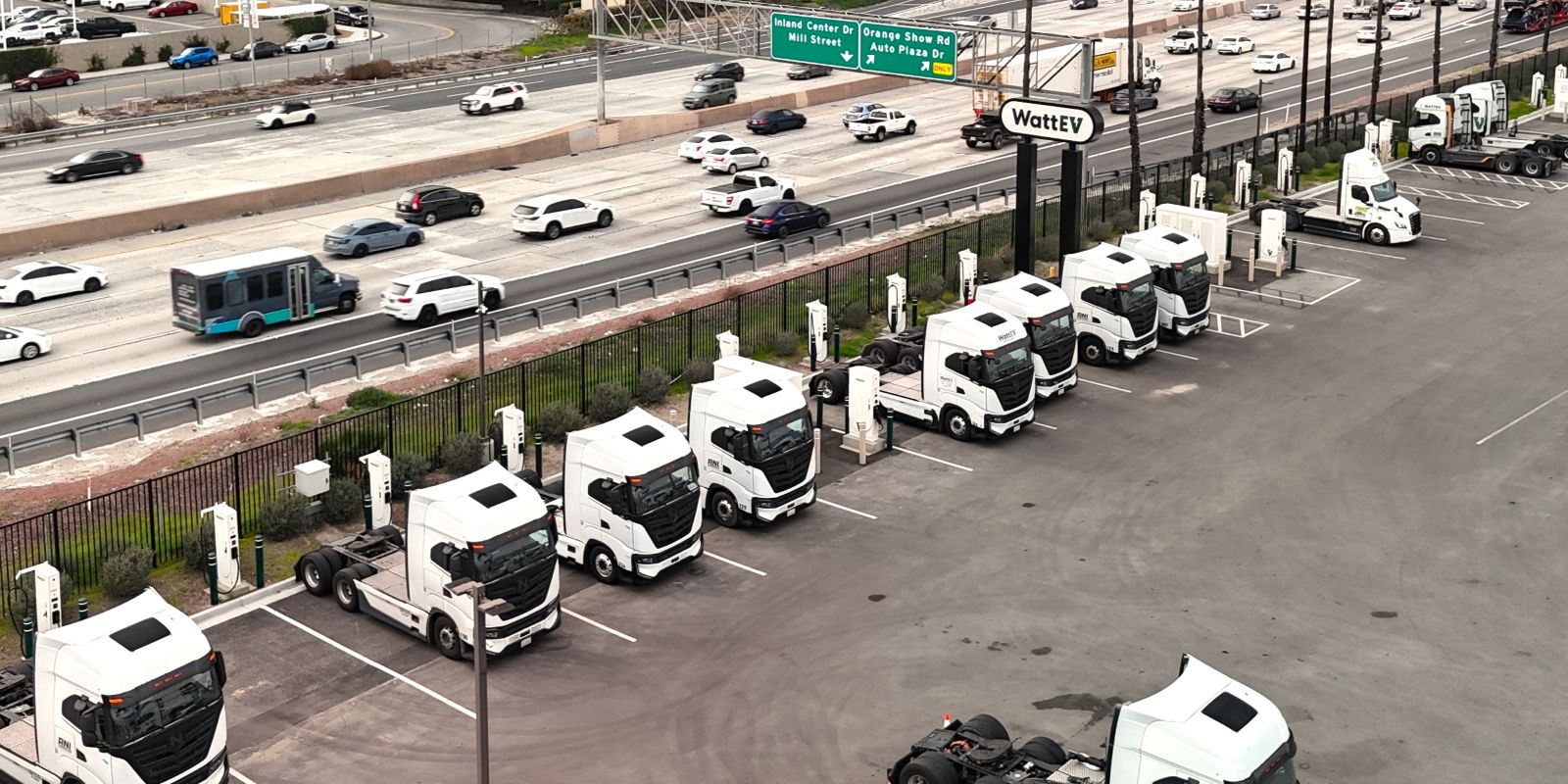
One of the busiest HDEV charging depots in the country got a major upgrade last week, enabling it to charge up to 200 electric semi trucks per day and offer megawatt charging to trucks that can handle the power!
more…
https://electrek.co/2026/02/05/san-bernadino-hub-can-now-charge-200-electric-semi-trucks-per-day/
Open Tabs: Savannah Guthrie's Message
(date: 2026-02-05)
The "TODAY Show" anchor makes a devastating appeal to get her mother back, and Trump moves to seize control of American elections.
https://crookedmedia.substack.com/p/open-tabs-savannah-guthries-message
Trek shifts itself with a new 28 MPH car-replacing e-bike
(date: 2026-02-05)

Trek just pulled the covers off a new top-tier city e-bike aimed squarely at riders who want comfort, power, and polish without turning daily riding into a hobby that requires constant tinkering. The new Trek Charter+ arrives as Trek’s most premium everyday e-bike yet, blending high-end drivetrain tech, deep integration, and a strong focus on car-replacement practicality.
more…
https://electrek.co/2026/02/05/trek-shifts-itself-with-a-new-28-mph-car-replacing-e-bike/
Tate McRae responds to backlash over U.S. Olympics ad: 'Y'all know I'm Canada down'
(date: 2026-02-05)

https://www.cbc.ca/news/entertainment/tate-mcrae-olympics-ad-response-9.7076070?cmp=rss
'We are ready to talk': Savannah Guthrie appeals for return of missing mother – video
(date: 2026-02-05)
Today show host Savannah Guthrie and her siblings have published a video statement calling for the safe return of their mother, Nancy Guthrie, 84, reported missing on Sunday. Guthrie said her mother's health was fragile and she needed her medicine to survive. She said she had heard of the reports of a ransom letter and continued: 'We are ready to talk, however we live in a world where voices and images are easily manipulated. We need to know without a doubt that she is alive'
Continue reading...
https://www.theguardian.com/us-news/video/2026/feb/05/savannah-guthrie-appeals-for-return-of-missing-mother-video
ICE agents in Oregon cannot arrest people without warrants, judge rules
(date: 2026-02-05)
US federal judge issued a preliminary injunction barring warrantless arrests unless there is a likelihood of escape
US immigration agents in Oregon must stop arresting people without warrants unless there is a likelihood of escape, a federal judge ruled Wednesday.
US district judge Mustafa Kasubhai issued a preliminary injunction in a proposed class-action lawsuit targeting the Department of Homeland Security’s practice of arresting immigrants they happen to come across while conducting ramped-up enforcement operations – which critics have described as “arrest first, justify later”.
Continue reading...
https://www.theguardian.com/us-news/2026/feb/05/ice-immigration-raids-oregon
Reporter Austin Fuller to leave Current
(date: 2026-02-05)
Fuller covered the CPB rescission and wind-down.
The post Reporter Austin Fuller to leave Current appeared first on Current.
https://current.org/2026/02/reporter-austin-fuller-to-leave-current/?utm_source=rss&utm_medium=rss&utm_campaign=reporter-austin-fuller-to-leave-current
Court releases police video of Ottawa city councillor on trial for drunk driving
(date: 2026-02-05)

A cellblock video depicting Ottawa city Coun. Matthew Luloff twice testing double the legal blood-alcohol limit after his arrest for suspected impaired driving has now been released to the media, two weeks after it was shown during his trial.
https://www.cbc.ca/news/canada/ottawa/ill-never-forget-it-court-releases-police-video-of-city-councillor-on-trial-for-drunk-driving-9.7073603?cmp=rss
Why This Muslim Animated Film Is Making History
(date: 2026-02-05)
‘Time Hoppers: The Silk Road’ is fun, for kids, highlights the contributions of Muslim cultural and scientific figures during the Golden Age of Islam, and is out this week in theaters across the US.
https://zeteo.com/p/why-this-muslim-animated-film-is
David Furnish, husband of Elton John, accuses Daily Mail of homophobia in U.K. privacy trial
(date: 2026-02-05)

Canadian producer David Furnish, British singer Elton John's husband, told London's High Court on Thursday that the publisher of the Daily Mail had unlawfully obtained information about them, including information stolen from their friend Prince Harry. He also accused the publisher's titles of being 'actively homophobic' about their relationship.
https://www.cbc.ca/news/world/furnish-uk-privacytrial-9.7076083?cmp=rss
Authorities investigating Nancy Guthrie's disappearance say they're taking ransom note seriously
(date: 2026-02-05)

Investigators believe the missing mother of Today show host Savannah Guthrie is "still out there," but they have not identified any suspects, officials in Arizona said Thursday.
https://www.cbc.ca/news/world/nancy-guthrie-missing-savannah-ransom-notes-9.7076045?cmp=rss
Heated rivalry cools after Montreal company gets shout-out for viral jacket
(date: 2026-02-05)

A Montreal-based streetwear company, after sounding the alarm, is now being credited for producing the original white fleece that was modified to create a viral jacket worn in the hit series Heated Rivalry.
https://www.cbc.ca/news/canada/montreal/heated-rivalry-jacket-fleece-9.7074763?cmp=rss
Start of Frank Stronach's sex assault trial in Toronto stalls as lawyer argues complainants possibly coached
(date: 2026-02-05)

The start of the sex assault trial for billionaire businessman Frank Stronach has stalled again as his lawyer argued in Toronto court Thursday that some of the complainants may have been coached during preparatory meetings with the Crown. The new date for proceedings to begin is Feb. 12.
https://www.cbc.ca/news/canada/toronto/frank-stronach-trial-toronto-lawyer-questions-9.7074783?cmp=rss
5 songs you need to hear this week (February 5, 2026)
(date: 2026-02-05)
Featuring Rolling Blackouts Coastal Fever’s bright, blurred-edge jangle-rock, Nashpaints’ seven-minute mass of swirling noise, and The Messthetics & James Brandon Lewis’ red-hot punk bebop.
https://www.pastemagazine.com/music/best-new-songs/best-new-songs-february-5-2026
Cheap Chinese EVs? Canadians Are More Interested Than You’d Think
(date: 2026-02-05)
Plus, Germany ranked second-highest in EV production last year, and automakers argue for the safety of robotaxis.
https://insideevs.com/news/786422/canada-chinese-ev-survey-positive/
Canadian Inuit head to Greenland to show solidarity, attend consulate opening
(date: 2026-02-05)

As Canada prepares to launch its new consulate in Greenland this week, dozens of Inuit from across the Canadian Arctic flew into the Danish territory's capital Nuuk on Thursday to show solidarity.
https://www.cbc.ca/news/canada/north/canadian-inuit-head-to-greenland-to-show-solidarity-attend-consulate-opening-9.7076032?cmp=rss
Audi announces 2027 A6/Q6 e-tron updates: scroll wheel return, new drift mode, improved regen
(date: 2026-02-05)

Audi is rolling out significant updates to its A6 e-tron and Q6 e-tron electric vehicles for the 2027 model year, bringing back physical controls, adding a new “dynamic plus” drift mode, and improving regenerative braking for better efficiency.
The changes come as part of a broader update across Audi’s PPE (Premium Platform Electric) lineup, addressing some of the early criticisms of these vehicles while adding genuinely useful new features.
more…
https://electrek.co/2026/02/05/audi-announces-2027-a6-q6-e-tron-updates-scroll-wheel-return-new-drift-mode-improved-regen/
Actor Nathan Chasing Horse faces 25 years in prison on Nevada sex charges
(date: 2026-02-05)

A Nevada jury on Friday convicted Dances With Wolves actor Nathan Chasing Horse of sexually assaulting Indigenous women and girls.
https://www.cbc.ca/news/indigenous/nathan-chasing-horse-nevada-conviction-9.7076017?cmp=rss
Federal government to raise $50 minimum fine for foreign interference
(date: 2026-02-05)

Those who contravene new rules against foreign interference in Canada could face a more expensive penalty, Public Safety Minister Gary Anandasangaree told a parliamentary committee on Thursday.
https://www.cbc.ca/news/politics/foreign-interference-elections-anandasangaree-9.7074429?cmp=rss
Supreme Court to hear long-standing case about Air Canada's advertised pricing
(date: 2026-02-05)

The Supreme Court of Canada has agreed to hear arguments on a class-action lawsuit that alleged Air Canada charged passengers more than the advertised ticket price.
https://www.cbc.ca/news/canada/montreal/supreme-court-air-canada-pricing-9.7076086?cmp=rss
Laurence Fishburne takes the split-pea pill and joins Exorcist reboot
(date: 2026-02-05)
Mike Flanagan's fast-tracked The Exorcist finally makes artistic sense with Laurence Fishburne aboard. The movie is expected in 2027.
https://www.pastemagazine.com/movies/laurence-fishburne-the-exorcist-mike-flanagan
Here’s our first look at Ford’s $30,000 mid-size electric pickup
(date: 2026-02-05)

Ford is betting on its new Universal EV platform to compete with BYD and other leading Chinese brands. The first UEV-based model will be a mid-size electric pickup that Fordsays will start at around $30,000. Here’s our first look at it.
more…
https://electrek.co/2026/02/05/ford-first-look-30000-mid-size-ev-pickup/
America's First Car With Solid-State Batteries Could Come From This Little-Known EV Maker
(date: 2026-02-05)
Karma Automotive has not made a fully electric model yet. Its first one could ditch lithium-ions altogether for a solid-state pack.
https://insideevs.com/news/786423/karma-automotive-factorial-energy-solid-state-evs/
Melania is a case study in how not to sell a fascist regime
(date: 2026-02-05)
Brett Ratner dresses up his propaganda film Melania like an action movie, which only makes it a more revealing failure.
https://www.pastemagazine.com/movies/melania-trump/melania-how-not-to-sell-a-fascist-regime
O. Henry, The Man Who Hid His Name
(date: 2026-02-05)
He was known as O. Henry, a name he adopted to hide his real one: William Sidney Porter.
O. Henry, The Man Who Hid His Name
The Saturday Evening Post
https://www.saturdayeveningpost.com/2026/02/o-henry-the-man-who-hid-his-name/
Solid-state EV batteries hit a milestone in the US
(date: 2026-02-05)

Solid-state EV batteries, deemed the “holy grail” of battery tech, are moving from the lab to reality, even in the US.
more…
https://electrek.co/2026/02/05/solid-state-ev-batteries-hit-milestone-in-the-us/
Many kids feel hopeless about climate change. Here's what helps
(date: 2026-02-05)

In this issue of our environmental newsletter, we check in with kids to see how they're feeling about climate change; learn about a green technology to extract lithium in Canada's Prairies; and find out why Alberta's 'Gas City' is investing in a huge solar project.
https://www.cbc.ca/news/climate/what-on-earth-kids-climate-9.7074061?cmp=rss
Fact check: Is Prime Minister Mark Carney in the Epstein files?
(date: 2026-02-05)

CBC’s fact-check team searched for Mark Carney’s name in the U.S. Justice Department’s Epstein Library. Here’s what we found.
https://www.cbc.ca/player/play/9.7075888?cmp=rss
The continuing struggles of the news biz
(date: 2026-02-05)
News Corp — the parent company of The Wall Street Journal, Barron's, MarketWatch, and Fox News — announces quarterly profits today. Meanwhile, The Washington Post laid off a third of its staff yesterday. Today, we'll delve into the state of the media industry and why it's such a struggle to find a business model that works. Then, Amazon Fresh and Amazon Go is closing up shop. What went wrong with Amazon’s foray into physical stores?
https://www.marketplace.org/episode/2026/02/05/the-continuing-struggles-of-the-news-biz
Trump administration moves to end job protections for about 50,000 federal workers
(date: 2026-02-05)

The Donald Trump administration on Thursday finalized its overhaul of the U.S. government's civil service system, according to a government statement, which would give the president the power to hire and fire an estimated 50,000 career federal employees.
https://www.cbc.ca/news/world/trump-opb-kupor-civil-service-changes-9.7075508?cmp=rss
Michigan accuses big oil of being ‘cartel’ that fuels climate crisis and high energy costs
(date: 2026-02-05)
In first-of-its-kind complaint, state accused four fossil fuel majors and US oil lobbying group of climate disinformation
Amid rising concern about global heating and soaring energy costs, Michigan has sued big oil for allegedly fueling both crises – a move experts have hailed as groundbreaking.
In a first-of-its-kind complaint, the state’s attorney general, Dana Nessel, accused four fossil fuel majors and the top US oil lobbying group last month of acting as a “cartel” to stifle the growth of renewable energy and electric vehicles (EVs), while suppressing information about the dangers of the climate crisis. The conduct, the lawsuit alleged, violates federal and state antitrust laws.
Continue reading...
https://www.theguardian.com/us-news/2026/feb/05/michigan-oil-climate-crisis-energy-cost
Hospital attack kills 22 in southern Sudan as famine threatens more of war-torn Darfur region
(date: 2026-02-05)

Famine is threatening more areas in war-torn Sudan's western Darfur region, a global hunger monitoring group said Thursday as an attack by paramilitary forces on a military hospital in the country's south killed 22 people, including the hospital's director and three members of its medical staff.
https://www.cbc.ca/news/world/sudan-western-darfur-famine-hospital-attack-9.7075753?cmp=rss
Ontario toy builder for sick kids finished 50th dollhouse days before dying of cancer
(date: 2026-02-05)

After being diagnosed with Stage 4 prostate cancer during the pandemic, the daughters of Vince Giannotti say building the miniature homes gave him peace right up until the end.
https://www.cbc.ca/news/canada/windsor/tecumseh-dollhouse-builder-cancer-sick-kids-9.7075509?cmp=rss
Tesla drops plans for robo-charging site for the SF robotaxis it doesn’t have
(date: 2026-02-05)

Tesla has abruptly decided to give up plans to build an autonomous charging station for future driverless taxis in downtown San Francisco, ahead of a public hearing on the matter. The plan had received pushback from the Teamsters union, though whether that influenced Tesla’s decision is not clear.
more…
https://electrek.co/2026/02/05/tesla-drops-plans-for-robo-charging-site-for-the-sf-robotaxis-it-doesnt-have/
Dangerous person alert issued by RCMP after woman abducted in Pimicikamak Cree Nation
(date: 2026-02-05)

Manitoba RCMP have issued a dangerous person alert for Joshua Paupanekis, 39, after the abduction of Raeanne Thomas, 20, in Pimicikamak Cree Nation.
https://www.cbc.ca/news/canada/manitoba/manitoba-rcmp-abduction-dangerous-person-alert-9.7075799?cmp=rss
Search underway for man, 39, after woman violently taken from Pimicikamak Cree Nation home: RCMP
(date: 2026-02-05)

A 20-year-old woman is believed to be in immediate danger after she was "violently removed" from her home in Pimicikamak Cree Nation by a 39-year-old man in a case of intimate partner violence, Manitoba RCMP say.
https://www.cbc.ca/news/canada/manitoba/rcmp-abduction-dangerous-person-alert-9.7075799?cmp=rss
Canadian hockey star Gavin McKenna allegedly struck man in the face during altercation, police say
(date: 2026-02-05)

In a news release issued late Wednesday, the State College Police Department said McKenna, 18, faces four charges including felony aggravated assault, simple assault, harassment and disorderly conduct after an altercation near Pennsylvania State University's main campus.
https://www.cbc.ca/news/canada/north/yukon-hockey-prospect-mckenna-allegedly-struck-man-in-the-face-during-altercation-local-police-say-9.7075618?cmp=rss
Care for a little treat?
(date: 2026-02-05)
From the BBC World Service: Little luxuries can become routine during tougher economic times. The newest iteration of the “lipstick effect,” the phenomenon is called "little treat culture" on TikTok, where videos using the hashtag have grown by 75% globally over the past year. This morning, we'll delve into the business model of treat-onomics. But first, TSMC confirms plans to make AI semiconductors in southern Japan, and gig workers in India are planning a nationwide strike.
https://www.marketplace.org/episode/2026/02/05/care-for-a-little-treat
First Draft: 🪖 Let Wag the Dogs of War
(date: 2026-02-05)
Trump signals he’ll send stormtroopers into US streets before the midterms, Democrats secure a big Supreme Court win, and Jeff Bezos sets the Washington Post ablaze.
https://zeteo.com/p/trump-war-talk-us-citizens-first-draft
Dosa Divas cooks up tasty turn-based battles with a side of corporate critique
(date: 2026-02-05)
Dosa Divas is an upcoming turn-based RPG that combines a magic culinary mech with thoughtful family drama.
https://www.pastemagazine.com/games/dosa-divas-preview-impressions-thirsty-suitors-devs
First Thing: Minnesota girl, 10, released from ICE custody after a month in detention
(date: 2026-02-05)
Elizabeth Caisaguano and her mother released from Texas facility hit by measles outbreak. Plus, the Epstein stories you may have missed
Good morning.
A 10-year-old Minnesota girl has been released from US Immigration and Customs Enforcement (ICE) custody after a month in detention in Dilley, Texas, school officials said, one of hundreds of children detained at the facility.
What are the conditions like at the detention center? Federal officials have confirmed that Dilley, which houses families, is now the site of a measles outbreak.
What did the judge say? On Monday, Fred Biery, a federal judge in Texas Western District, issued an order blocking the removal or transfer of Elizabeth and her mother and giving the federal government five days to respond to the family’s release petition. “This didn’t have to happen. … They did everything they were supposed to do and still found themselves detained and separated,” he said.
Brad Karp has resigned as chair of the powerful law firm Paul Weiss after revelations of extensive communications with Epstein.
The documents provide a high level of insight into Epstein’s close relationship with the former Trump adviser Steve Bannon, in which Bannon acted as a mentor for Epstein’s appearances in the media.
The UK prime minister is fighting for his political future amid fury over the appointment of Peter Mandelson as US ambassador despite his friendship with Epstein. Mandelson appeared to leak confidential information to Epstein while a minister.
Bill Gates has said he “regrets” ever knowing Epstein, as his former wife Melinda French Gates alluded to “muck” in their marriage, and said the Microsoft founder has questions to answer.
The release included Epstein’s full “household manual” detailing strict, cult-like requirements for his Florida mansion staff, who were expected to “see nothing, hear nothing, say nothing”.
Continue reading...
https://www.theguardian.com/us-news/2026/feb/05/first-thing-minnesota-girl-10-released-from-ice-custody-after-a-month-in-detention
Calls to shut down Texas ICE facility for children grow amid measles outbreak
(date: 2026-02-05)
At least two cases confirmed at detention center for children and their parents in Texas
At least two cases of measles have been confirmed at a major immigration detention center for children and their parents in Texas as cases of the dangerous virus in South Carolina, Arizona, Utah and other US states continue growing and alarming experts.
In January alone, the US saw 25% of the total confirmed in all of last year, and the outbreak shows no sign of slowing as federal officials stay silent on vaccination.
Continue reading...
https://www.theguardian.com/us-news/2026/feb/05/measles-outbreak-texas-ice-immigration-detention
Trump’s border-czar takeover does little to calm Minneapolis tensions: ‘The agenda is still the same’
(date: 2026-02-05)
Experts say Tom Homan’s charge, replacing Greg Bovino’s aggressive tactics, may change the tone, but not the mission
In his clearest attempt yet to “de‑escalate” tensions in Minneapolis, Tom Homan, Donald Trump’s “border czar”, announced on Wednesday that the administration will draw down 700 federal immigration officers as the statewide crackdown continues.
The Twin Cities remain on edge, waiting to see whether the fear will ease.
Continue reading...
https://www.theguardian.com/us-news/2026/feb/05/tom-homan-minnesota-gregory-bovino
All the world’s enraged: a new era of ‘resistance theater’ is rising as Trump attacks the arts
(date: 2026-02-05)
Writers and theatre groups across the country are creating works in response to crackdowns on their communities
On a cool winter night in Los Angeles, dozens gathered to protest the Trump administration’s attacks on the arts and the recent federal immigration raids in southern California. But these protestors didn’t carry signs or chant in front of a government building – they recited poems such as Antifa Tea Party and Love in Times of Fascism. They performed anti-fascist improv to a small but lively crowd at The Glendale Room, a library-themed theater, as part of the monthly show Unquiet: A Night of Creative Resistance.
“If you’ve got talent or skills as a communicator, you can move people,” Chris Kessler, a writer and poet, said after performing at Unquiet. “I really believe that we need to be moving people toward a stronger sense of collectivism in the face of fascism.”
Continue reading...
https://www.theguardian.com/us-news/2026/feb/05/resistance-theater-trump-attacks-arts
Ditch exploitative streamers by participating in Bandcamp Friday
(date: 2026-02-05)
While streamers like Spotify, Apple Music, and TIDAL continue to be implicated in ICE raids, genocide, or human rights violations, Bandcamp is set to resume its periodical waiving of revenue share in support of artists tomorrow, February 6.
https://www.pastemagazine.com/music/bandcamp/ditch-exploitative-streamers-by-participating-in-bandcamp-friday
NATO's new defence target could add $63B to federal deficit, PBO warns
(date: 2026-02-05)

The Parliamentary Budget Office estimates the federal Defence Department budget will have to increase by $33.5 billion annually in order for Canada to meet NATO's revised defence spending targets. The watchdog also estimates that the higher defence spending could lead to substantially higher federal deficits.
https://www.cbc.ca/news/politics/nato-defence-spending-canada-budget-deficit-9.7075474?cmp=rss
AMC celebrates Dark Winds season 4 by announcing Dark Winds season 5
(date: 2026-02-05)
AMC's acclaimed neo-noir Western comes back to TV for its fourth season on February 15, with a 2027 return set for season 5.
https://www.pastemagazine.com/tv/dark-winds-renewed-for-season-5-amc
From London to LX: the British mastermind behind the Seahawks’ standout Super Bowl defense
(date: 2026-02-05)
Seattle’s Aden Durde will be the first British coach to appear in the Super Bowl. He wants to ensure he’s not the last
Midway through the 2023 NFL season, Dallas Cowboys star edge rusher Micah Parsons was frustrated. Asked about the source – a feeling of being held by opponents all the time – Parsons credited his defensive line coach Aden Durde with keeping him in check.
“[Coach Durde] pulled me aside and said, ‘You gotta remember, you’re Micah fucking Parsons,” he recalled. “‘This shit is going to happen. You just gotta keep going. Fuck all the other stuff.’”
Continue reading...
https://www.theguardian.com/sport/2026/feb/05/from-london-to-lx-the-british-mastermind-behind-the-seahawks-standout-super-bowl-defense
‘Do you think you’re the devil himself?’: highlights from the bizarre, newly released Bannon-Epstein interview
(date: 2026-02-05)
The interview, revealed in the latest tranche of Epstein files, was reportedly intended for a sympathetic documentary
Steve Bannon, a one-time adviser to Donald Trump, has long styled himself as a populist nemesis of the global elites. Yet the latest release of Jeffrey Epstein files shows that he exchanged hundreds of friendly texts with the wealthy financier, discussing politics, travel and other topics.
One of the biggest surprises in the files was a bizarre video in which Epstein – who exploited and abused dozens of young girls – is interviewed by Bannon at what appears to be Epstein’s New York home.
Continue reading...
https://www.theguardian.com/us-news/2026/feb/05/steve-bannon-jeffrey-epstein-files-interview
Is social media addictive? And are social media companies liable?
(date: 2026-02-05)
A landmark lawsuit that accuses social media companies of intentionally designing their platforms to be addictive — and causing harm to children and teenagers' mental health — is in court this week in Los Angeles.
The defendants in this case are Meta and YouTube, both of which dispute the allegations. Snap and TikTok both settled in advance of the trial.
Some are calling this social media's "Big Tobacco" moment. Eric Goldman, co-director of the High Tech Law Institute at Santa Clara University, discusses this as well as a series of lawsuits against the social media giants.
https://www.marketplace.org/episode/2026/02/05/is-social-media-addictive-and-are-social-media-companies-liable
Quebec teen faces terrorism charge after allegedly promoting neo-Nazi group ideology
(date: 2026-02-05)

A teenager from the Quebec City area has been charged with a terrorism-related offence. The teen allegedly used social media to promote the violent ideology of a group known as Atomwaffen Division, according to the RCMP.
https://www.cbc.ca/news/canada/montreal/quebec-teen-facing-terrorism-charge-9.7075497?cmp=rss
3 youths face sex assault charges in alleged hockey hazing incidents
(date: 2026-02-05)

Nova Scotia RCMP have arrested three youths in connection to a sexual assault investigation related to hazing incidents that involved a hockey team in the Truro area.
https://www.cbc.ca/news/canada/nova-scotia/three-youths-charged-hazing-sexual-assault-9.7075323?cmp=rss
There's a tongue for every boot in the BDSM fairy tale Pillion
(date: 2026-02-05)
Pillion is an unconventional love story using BDSM to thoughtfully explore ideas about long-term commitment.
https://www.pastemagazine.com/movies/alexander-skarsgard/pillion-review
The Patriots’ Robert Kraft posed as an NFL voice of reason – then fell back in line for Trump | Howard Bryant
(date: 2026-02-05)
As his team returns to the Super Bowl, the New England owner who once stood up on social issues proves he is just another transactional billionaire
During the worst of it, when Philando Castile and Alton Sterling were killed by police a decade ago and Colin Kaepernick took a knee in protest, when a widespread reaction was to tell the highly accomplished, overwhelmingly Black professional athletes they were un-American, or well-paid farmhands who needed to get back to work, or both, and some of his peers in the ownership class were releasing players as punishment for joining the protest, it was New England Patriots owner Robert Kraft who positioned himself as the voice of reason.
Kraft attempted to broker peace between the ownership hawks who saw the high-paid kneelers as ungrateful mutineers and, after decades of docility, the radicalized players unwilling to collect their checks in exchange for political silence. Kraft encouraged two of his players – the twins Devin and Jason McCourty – into deeper citizenship, to engage with the legal and political systems and promote reforms. As a sign of compassion and a willingness to listen, Kraft visited the incarcerated rapper Meek Mill, and later the two partnered with another artist, Jay-Z, on various criminal justice initiatives.
Continue reading...
https://www.theguardian.com/sport/2026/feb/05/robert-kraft-nfl-trump
U.S., Russia agree to re-establish military-to-military dialogue after 4-year pause
(date: 2026-02-05)

The U.S. and Russia has agreed to re-establish high-level military dialogue for the first time in more than four years in another sign of warming relations between the two countries since U.S. President Donald Trump returned to office and sought to end the war in Ukraine.
https://www.cbc.ca/news/world/united-states-russia-abu-dhabi-talks-ukraine-9.7075221?cmp=rss
How Team Canada stacks up against its Winter Olympic rivals
(date: 2026-02-05)

After a 2022 Olympic performance that saw a high total medal count but a 30-year low in gold finishes, Team Canada is looking to put more athletes on the podium at the Milano-Cortina Winter Games. These charts show how Canada stacks up against its competition.
https://www.cbc.ca/news/canada/canada-olymics-medals-charts-9.7073688?cmp=rss
Toronto police officers accused of leaking information to 'key' organized crime figure after corruption probe
(date: 2026-02-05)

https://www.cbc.ca/news/canada/toronto/livestory/toronto-police-york-police-tow-truck-probe-9.7074854?cmp=rss
Who are the Toronto police officers accused of assisting organized crime?
(date: 2026-02-05)

https://www.cbc.ca/news/canada/toronto/toronto-police-arrested-what-we-know-9.7076322?cmp=rss
Toronto police officer called ‘genesis’ of corruption probe denied bail
(date: 2026-02-05)

https://www.cbc.ca/news/canada/toronto/toronto-police-corruption-timothy-barnhardt-9.7078414?cmp=rss
Ontario policing inspector announces provincewide look at how police, boards can protect against corruption
(date: 2026-02-05)

https://www.cbc.ca/news/canada/toronto/inspector-general-toronto-police-investigation-9.7080546?cmp=rss
Toronto cop arrested in corruption probe trafficked uniforms, mishandled police firearm: court documents
(date: 2026-02-05)

https://www.cbc.ca/news/canada/toronto/police-corruption-probe-uniform-trafficking-9.7083405?cmp=rss
The Kia Niro Plug-In Hybrid Is Dead
(date: 2026-02-05)
The Niro PHEV is not getting a 2026 model, and its future in the U.S. is a little blurry right now.
https://insideevs.com/news/786446/2026-kia-niro-phev-dead/
The lessons learned in Goo Goo Dolls songs
(date: 2026-02-05)
In the latest edition of Alt-Rock Dept., author Niko Stratis writes about bagging groceries and what “Slide” taught her about the painful weight of first crushes.
https://www.pastemagazine.com/music/alt-rock-dept/the-lessons-learned-in-goo-goo-dolls-songs
MYND READER's Self-Titled Debut Album
(date: 2026-02-05)
From collapse to clarity.
https://www.pastemagazine.com/media/mynd-reader/mynd-readers-self-titled-debut-album
The Hyundai Kona Electric Is Not Getting A 2026 Model. Here's Why
(date: 2026-02-05)
Hyundai’s smallest and most affordable EV is skipping the 2026 model year in the United States.
https://insideevs.com/news/786442/2026-hyundai-kona-ev-pause-us/
Pollercoaster: Trump's Strength Becomes A Weakness
(date: 2026-02-05)
Dan Pfeiffer digs into how the recent shootings in Minnesota have impacted voters' attitudes towards Trump, immigration and ICE, Democrats’ upset victory in Texas, what, if anything, Melania Trump’s documentary tells us about the midterms and answers discord questions.
https://crookedmedia.substack.com/p/pollercoaster-trumps-strength-becomes
Winter Olympics 2026: all your questions about the Milano Cortina Games, answered
(date: 2026-02-05)
Stars, new events, iconic Alpine venues and a return to full Olympic atmosphere after the pandemic era. Here’s everything you need to know about Milano Cortina 2026
The Winter Olympics are back – and this time they’re zigzagging across northern Italy. Milano Cortina 2026 will be the most spread-out Winter Games ever staged, jumping from Milan’s arenas to the Dolomites’ classic Alpine slopes. With returning superstars, brand-new events and Italy leaning hard into its Olympic heritage, these Games may feel like they’ve arrived quietly – but there is a lot going on. From how and when to watch, to who matters and why these Olympics could look very different, here are your most pressing questions answered.
• This article was amended on 5 February 2026. In an earlier version, a map misspelled the resort of Livigno as “Livingo”.
Continue reading...
https://www.theguardian.com/sport/2026/feb/05/winter-olympics-2026-milano-cortina-italy-schedule-events-opening-ceremony
Daycares slam Quebec’s new secularism bill, say it will have direct impact on services
(date: 2026-02-05)

Quebec’s enhanced secularism law would ban daycare staff from wearing religious symbols. Groups representing daycares and daycare workers say the proposed law creates headaches for them while trying to solve a problem that doesn’t really exist.
https://www.cbc.ca/news/canada/montreal/daycares-slam-quebecs-new-secularism-bill-9.7074390?cmp=rss
British PM Starmer apologizes for appointing Mandelson, but says diplomat lied about Epstein ties
(date: 2026-02-05)

British Prime Minister Keir Starmer apologized to the victims of Jeffrey Epstein on Thursday and said he was sorry for having appointed Peter Mandelson as U.S. ambassador, who was a close friend of the late sex offender.
https://www.cbc.ca/news/world/uk-starmer-apology-ambassador-mandelson-epstein-9.7075084?cmp=rss
Hilary Knight, Team USA’s north star, chases one more Olympic hockey gold
(date: 2026-02-05)
The five-time Olympian leads a young US team into Milan after nearly two decades at the vanguard of women’s hockey’s rise and transformation
For nearly two decades, Hilary Knight has been the heartbeat of USA women’s ice hockey – the constant through gold-medal ecstasy and silver-medal heartbreaks, coaching changes, domestic league collapses and the sport’s long, uneven push toward professional stability. Now, at 36, she’s arrived in Milan chasing one more Olympic gold before bringing down the curtain on one of the most influential careers the game has known.
The Olympic women’s hockey tournament opens on Thursday with the United States bringing one of their youngest and fastest teams in years – and their longest-tenured player in the captain’s sweater. Only 11 players return from the team that won silver in Beijing four years ago. Seven are still in college. Many developed inside a professional structure that did not exist for most of Knight’s career, shaped by the emergence of the Professional Women’s Hockey League and the broader surge in investment across women’s sports.
Continue reading...
https://www.theguardian.com/sport/2026/feb/05/hilary-knight-usa-womens-ice-hockey-olympics-preview
Bridgerton spotlights its older female characters for once
(date: 2026-02-05)
Violet Bridgerton's escapades are highlights of the show's new season.
https://www.pastemagazine.com/tv/bridgerton-spotlights-older-female-characters-season-4
Thursday briefing: Will the Epstein files threaten Peter Mandelson’s legacy?
(date: 2026-02-05)
In today’s newsletter: A police investigation, newly released documents and long‑standing questions about accountability have converged to place one of Labour’s most enduring figures under unprecedented scrutiny
Good morning. Older readers may remember Peter Mandelson as a man in a sharp suit drifting through New Labour’s 1990s heyday like a Bond villain with a Filofax. An architect of Labour’s modernisation and a lightning rod for right-wing press ire, he has been in the orbit of power for more than three decades.
That run has now come to a shuddering halt after the release of the so-called Epstein files by the US Department of Justice, which detail the extent of Mandelson’s contact with the late billionaire financier and convicted child sexual abuser Jeffrey Epstein. While the Met police investigate Mandelson on suspicion of misconduct in public office, the disclosures from the files have also raised urgent questions about judgment, access and accountability at the highest levels of public life.
UK politics | Labour MPs have warned that Keir Starmer’s days as prime minister are numbered after a day of fury over the appointment of Peter Mandelson as US ambassador despite his friendship with Jeffrey Epstein.
Gaza | Israeli forces have bulldozed part of a Gaza cemetery containing the war graves of dozens of British, Australian and other allied soldiers killed in the first and second world wars.
Crime | An 18-year-old man has been arrested on suspicion of murder after a student in his 20s was stabbed in Leicester city centre and later died in hospital, Leicestershire police have said.
Media | Washington Post editor in chief Matt Murray on Wednesday morning announced internally a “broad strategic reset” that will result in “significant” layoffs across the company.
Immigration | Donald Trump’s border tsar said about 700 federal agents would leave Minnesota, a large drop in agents on the ground but still leaving about 2,000 agents there, far above typical levels for the state.
Continue reading...
https://www.theguardian.com/world/2026/feb/05/thursday-briefing-will-the-epstein-files-threaten-peter-mandelsons-legacy
Despite hints and promises of economic gains to come, there's no quick fix for Manitoba
(date: 2026-02-05)

Premier Wab Kinew has given a series of recent hints and promises about major projects capable of transforming Manitoba's middling economy into something far more powerful, but the structural deficit has no quick fix.
https://www.cbc.ca/news/canada/manitoba/manitoba-finances-economy-churchill-analysis-9.7074776?cmp=rss
U.S. seeks to extradite Saskatoon man accused of hacking educational systems to mine crypto
(date: 2026-02-05)

The U.S. criminal justice system wants to extradite a Saskatoon man accused of hacking into American university systems to illegally use their supercomputers for cryptocurrency mining.
https://www.cbc.ca/news/canada/saskatchewan/crypto-mining-hacking-cyber-crime-us-extradition-james-roach-9.7074161?cmp=rss
Manitoba still faces challenge in curbing measles a year into outbreak: community health prof
(date: 2026-02-05)

It's been one year since the first measles cases in the latest outbreak were reported in Manitoba — and there's no sign the spread of the highly contagious disease is slowing.
https://www.cbc.ca/news/canada/manitoba/measles-confirmed-cases-1-year-outbreak-9.7074702?cmp=rss
5 more First Nations join legal challenge against Bill 5 and C-5
(date: 2026-02-05)

Five more First Nations have joined a court challenge against new federal and provincial laws aimed at fast-tracking development saying they threaten Indigenous rights.
https://www.cbc.ca/news/indigenous/ontario-challenge-bill-c5-9.7074134?cmp=rss
She was first to report police sergeant who targeted 33 women. Now she's sharing her story
(date: 2026-02-05)

Kerry Benjoe knew him as Jay Lewis, a kind and supportive man who said he was a contractor after initially connecting by way of a wrong-number text message. The two formed a deep friendship before she unmasked him as a Regina police officer. Her police complaint spurred a two-year investigation and his disgrace.
https://www.cbc.ca/news/canada/saskatchewan/kerry-benjoe-robert-semenchuck-9.7073493?cmp=rss
Berens River students tour northern school, plans for class continue back home after devastating fire
(date: 2026-02-05)

A group of students from Berens River First Nation is checking out a new facility where some may attend classes after a fire burned their school down last month. The Grade 9 students will tour Frontier Collegiate in Cranberry Portage, where some local students already attend high school, while plans continue to resume classes for younger kids back home.
https://www.cbc.ca/news/canada/manitoba/berens-river-frontier-collegiate-school-fire-portable-classroom-9.7074750?cmp=rss
Oh baby! Some vintage names are making a comeback as seen throughout N.L. in 2025
(date: 2026-02-05)

Your grandparents names are making a comeback in Newfoundland and Labrador, following the 100-year trend.
https://www.cbc.ca/news/canada/newfoundland-labrador/top-10-baby-names-nl-2025-9.7072612?cmp=rss
Grammy winner Alessia Cara lends her voice — and support — to Canada's Olympic dreams
(date: 2026-02-05)

After wrapping up a world tour for her fourth studio album, Alessia Cara has found herself on a new stage. The Brampton-born performer will kick off CBC’s coverage of the Olympic Games as the narrator of The Gold Within: Family & Fire.
https://www.cbc.ca/news/entertainment/alessia-cara-milano-cortino-9.7074173?cmp=rss
Milan. Cortina. Antholz-Anterselva? Athletes, fans wrap their heads around wide spread of 2026 Olympic venues
(date: 2026-02-05)

Travelling between venues at the 2026 Milano-Cortina Winter Games should be listed as its own sport. It would take a single journey of about 850 kilometres to visit the eight Olympic hubs hosting the ceremonies and 16 disciplines featured at this year's Winter Games.
https://www.cbc.ca/sports/2026-milano-cortina-winter-olympic-games-how-to-navigate-850km-venues-9.7074118?cmp=rss
Children’s Aid Society, couple in murder trial and doctors sued for $4M by family of 2 brothers
(date: 2026-02-05)

The Halton and Ottawa Children’s Aid Societies are being sued along with three doctors and the Burlington couple on trial for first-degree murder, Brandy Cooney and Becky Hamber.
https://www.cbc.ca/news/canada/hamilton/hamber-cooney-civil-lawsuit-9.7072773?cmp=rss
Mexican authorities seeking to speak with Canadian mining firm over kidnapped employees
(date: 2026-02-05)

The attorney general for the Mexican state of Sinaloa says she wants to speak with officials from a Canadian mining firm whose employees were kidnapped by a suspected faction of the Sinaloa cartel.
https://www.cbc.ca/news/world/sinaloa-vizsla-chapitos-9.7074596?cmp=rss
Experts urge Ontario to learn from Eglinton Crosstown communications missteps
(date: 2026-02-05)

Transit experts and opposition critics say the Ontario government has to learn from its communications mistakes on the Eglinton Crosstown LRT to ensure the rollout of the remaining pieces of its multi-billion dollar transit expansion have public buy-in.
https://www.cbc.ca/news/canada/toronto/eglinton-crosstown-communications-mistakes-9.7074251?cmp=rss
Why Greenland’s youngest parliamentarian says Canada matters more than ever
(date: 2026-02-05)

Nivi Rosing has made the leap from an Ottawa post-secondary student to playing a major role as a Greenland parliamentarian trying to fend off U.S. President Donald Trump's threats to take over her island. She says developing closer ties between Canada and Greenland is essential to help build resilience against possible future U.S. aggression.
https://www.cbc.ca/news/world/greenland-parliament-canada-9.7074417?cmp=rss
The Truth About Gaza's Death Toll – Part 3: What Do We Actually Know?
(date: 2026-02-05)
Dr. Feroze Sidhwa examines the robust investigations of Israel's killing, and challenges Americans to decide whether Israel should be allowed to use US weapons & money to extinguish an entire people.
https://zeteo.com/p/truth-about-gaza-death-toll-part-3
Nancy Pelosi warns press freedom is ‘under siege’ after arrest of journalist
(date: 2026-02-05)
Ex-House speaker says at dinner ‘facts are challenged, truth is distorted and press is treated as enemy’ by those in power
The Democratic former speaker of the House, Nancy Pelosi, said on Wednesday that press freedom is “under siege” in the United States after the Trump administration arrested a prominent journalist and searched the home of another.
The warning from Pelosi comes on the same day that the Washington Post, which is owned by Jeff Bezos, the Amazon billionaire who has recently sought to curry favor with Donald Trump, conducted mass layoffs of its reporters and editors worldwide.
Continue reading...
https://www.theguardian.com/us-news/2026/feb/04/nancy-pelosi-press-freedom-under-siege
Are federal programs doing enough to prevent fraud?
(date: 2026-02-05)
"We're really developing the risk tolerance. There is always going to be a certain amount of fraud or improper payments in any program," Hannah Padilla said.
https://federalnewsnetwork.com/agency-oversight/2026/02/are-federal-programs-doing-enough-to-prevent-fraud/
Tesla’s new FSD push looks like a gross money grab: they have questions to anwser
(date: 2026-02-05)

Tesla is sending emails urging owners to purchase Full Self-Driving (FSD) before February 14, when the automaker switches to a subscription-only model.
But in the email, Tesla appears to sneak in a policy change: FSD now only “stays with your Tesla as long as you own it.” It also has contradicting information on its support page.
more…
https://electrek.co/2026/02/04/teslas-new-fsd-push-looks-like-a-gross-money-grab-they-have-questions-to-anwser/
‘Entrenching Apartheid’: Amnesty, UN Experts Urge Israel to Withdraw Death Penalty Bill Targeting Palestinians
(date: 2026-02-04)
UN experts say the bill, which would impose a mandatory death penalty for Palestinians convicted of certain crimes, would be a clear violation of international law.
https://zeteo.com/p/entrenching-apartheid-amnesty-un
Lawmakers form new caucus to advocate for federal workforce reforms
(date: 2026-02-04)
The launch of the bicameral Federal Workforce Caucus comes after a year of major changes to the career civil service under the Trump administration.
https://federalnewsnetwork.com/congress/2026/02/lawmakers-form-new-caucus-to-advocate-for-federal-workforce-reforms/
Ford May Partner Up With A Chinese EV Company. It's Part Of A Growing Trend.
(date: 2026-02-04)
Talk about weird: This Chinese company wants to build its own EV at an American-owned car factory in Europe.
https://insideevs.com/news/786411/ford-geely-ev-partnership-talks/
Democrats say ‘dramatic changes’ needed for immigration enforcement as DHS funding negotiations continue – live
(date: 2026-02-04)
Trump’s stopgap bill funds the Department of Homeland Security until 13 February
Tom Homan, the president’s so-called “border czar” is set to speak to reporters in Minneapolis shortly.
A reminder that Homan took over the immigration enforcement operation in Minnesota from senior border official Gregory Bovino, just days after the fatal shooting of Alex Pretti and the mounting backlash in the Twin Cities.
Continue reading...
https://www.theguardian.com/us-news/live/2026/feb/04/donald-trump-epstein-files-us-politics-live-latest-news-updates
Quick Charge checks out the e-bikes at CABDA Chicago 2026
(date: 2026-02-04)

On today’s show-stopping episode of Quick Charge, we’re on location at the midwest’s largest independent bicycle dealer show checking out some of the highlights from Himiway, Radio Flyer, Rambo, and a whole lot more!
more…
https://electrek.co/2026/02/04/quick-charge-checks-out-the-e-bikes-cabda-chicago-2026/
Lawmakers cap NGC2 funding, Army warns industry not to ‘bring negativity’ to Congress
(date: 2026-02-04)
"We have seen vendors bring negativity and interactions on Capitol Hill. I'll be clear: for the Army, it's a non-starter,” Michael Obadal said.
https://federalnewsnetwork.com/army/2026/02/lawmakers-cap-ngc2-funding-army-warns-industry-not-to-bring-negativity-to-congress/
Cargo theft ramps up
(date: 2026-02-04)
“Retail theft” often conjures Hollywood-esque heist scenes or sleight of hand at self-checkout. But 2025 was likely the biggest year on record for another, less glamorous kind of shrinkage: cargo theft. In this episode, how goods stolen right out of a truck raise costs for producers, logistics firms, and yes, consumers. Plus: More data centers plan to build their own natural gas plants, private sector data shows labor market growth is slow but steadying, and Kai visits an award-winning chef in South Los Angeles.
Every story has an economic angle. Want some in your inbox? Subscribe to our daily or weekly newsletter.
Marketplace is more than a radio show. Check out our original reporting and financial literacy content at marketplace.org — and consider making an investment in our future.
https://www.marketplace.org/episode/2026/02/04/cargo-theft-ramps-up
Illinois joins WHO network after Trump pulls US out of global health body
(date: 2026-02-04)
Governor JB Pritzker pledges to put ‘science, preparedness and people’ first by participating in global response network
The Illinois governor, JB Pritzker, has announced that his state will join the World Health Organization’s Global Outbreak Alert and Response Network (GOARN), following Donald Trump’s decision to withdraw the US from the global body in 2025.
Pritzker, a Democrat, made the announcement on Tuesday, confirming that Illinois will become part of the coordinated international network dedicated to monitoring and responding to global disease outbreaks.
Continue reading...
https://www.theguardian.com/us-news/2026/feb/04/illinois-world-health-organization-global-outbreak-alert-and-response-network
Leaders face a common challenge in understanding emerging backbone of power
(date: 2026-02-04)
"Policymakers and implementers speak a different language than engineers," Michelle Giuda said. "We want to educate at scale in order to meet the moment."
https://federalnewsnetwork.com/technology-main/2026/02/leaders-face-a-common-challenge-in-understanding-emerging-backbone-of-power/
Okay, let's watch clips of every single comedian just cast in the British SNL
(date: 2026-02-04)
After a year of development, the British version of Saturday Night Live has finally revealed its cast of U.K. comics—so let's check them out.
https://www.pastemagazine.com/tv/saturday-night-live/british-snl-casts-comedians-watch-clips
Did Human Rights Watch Censor Its Top Researcher on Palestine?
(date: 2026-02-04)
Omar Shakir explains to Mehdi why he resigned from HRW after it blocked his report on the right of return for Palestinian refugees.
https://zeteo.com/p/hrw-omar-shakir-israel-palestine
What A Day: Democracy Dies in 2-Day Delivery
(date: 2026-02-04)
Jeff Bezos gutted the Washington Post to save 0.04% of his wealth.
https://crookedmedia.substack.com/p/what-a-day-democracy-dies-in-2-day
Five updates on the Trump admin’s cybersecurity agenda
(date: 2026-02-04)
From a new national cyber strategy to highly anticipated actions around AI security, here are five things worth watching on the cyber policy front.
https://federalnewsnetwork.com/cybersecurity/2026/02/five-updates-on-the-trump-admins-cybersecurity-agenda/
‘Phoebe & Jay’ teach literacy skills for everyday life
(date: 2026-02-04)
The new PBS Kids series aims to address a literacy learning gap that develops before children enter school.
The post ‘Phoebe & Jay’ teach literacy skills for everyday life appeared first on Current.
https://current.org/2026/02/phoebe-jay-teach-literacy-skills-for-everyday-life/?utm_source=rss&utm_medium=rss&utm_campaign=phoebe-jay-teach-literacy-skills-for-everyday-life
US agency investigates Nike for alleged discrimination against white workers
(date: 2026-02-04)
EEOC demands firm turn over ‘DEI-related objectives’ amid Trump administration’s crackdown on diversity initiatives
The US Equal Employment Opportunity Commission (EEOC) has launched an investigation into Nike over allegations that the sports giant discriminated against white employees and job applicants.
The federal agency is demanding that Nike turn over information related to the allegations, including the company’s “Diversity, Equity, and Inclusion-related 2025 Targets and other DEI-related objectives”, it announced on Wednesday.
Continue reading...
https://www.theguardian.com/business/2026/feb/04/nike-white-employee-discrimination-eeoc
California can use a new congressional map in November, supreme court rules
(date: 2026-02-04)
Approved by voters, the new map gives Democrats as many as five seats, neutralizing five GOP seats added by Texas
California can use a new congressional map that was approved by voters in November, the supreme court has ruled, handing Democrats a major victory in their effort to neutralize Donald Trump’s push to protect Republicans’ fragile House majority in this year’s midterm elections.
In December, the court said Texas could use its redrawn congressional map in 2026, designed to carve out as many as five Republican-friendly congressional districts, rejecting a lower-court ruling that found it had been racially gerrymandered.
Continue reading...
https://www.theguardian.com/us-news/2026/feb/04/california-new-voting-maps-supreme-court
Minnesota girl, 10, released from ICE custody after a month in detention
(date: 2026-02-04)
Elizabeth Zuna Caisaguano and her mother released from Texas facility to head back home to reunite with her father
A 10-year-old Minnesota girl has been released from US Immigration and Customs Enforcement (ICE) custody after a month in detention in Dilley, Texas, school officials said, one of hundreds of children detained at the facility.
Elizabeth Zuna Caisaguano, a fourth-grader, and her mother walked free from the immigration detention center in Dilley, Texas, on Tuesday night. Elizabeth is a student in the school district of Columbia Heights, a Minneapolis suburb, which is also home to five-year-old Liam Conejo Ramos, who was released from Dilley over the weekend amid widespread outrage about his detention.
Continue reading...
https://www.theguardian.com/us-news/2026/feb/04/minnesota-ice-immigration-elizabeth-caisaguano
Nearly 1,300 customers affected by Canada Computers data breach, company says
(date: 2026-02-04)

Canada Computers & Electronics continues to investigate a data breach affecting hundreds of people that has left customers frustrated over how the company handled the episode and communicated about it.
https://www.cbc.ca/news/business/canada-computers-data-breach-scope-9.7074605?cmp=rss
Marco Rubio out as acting head of National Archives
(date: 2026-02-04)
Before the end of his tenure, Rubio tapped James Byron, senior advisor to the archivist, to serve and perform the functions of archivist.
https://federalnewsnetwork.com/people/2026/02/marco-rubio-out-as-acting-head-of-national-archives/
19 C in February: Heat records fall across B.C., raising questions about winter's future
(date: 2026-02-04)

Environment Canada says repeated ridges of high pressure have driven warm weather northward, preventing winter from setting in in much of the province.
https://www.cbc.ca/news/canada/british-columbia/weather-records-heat-british-columbia-9.7074772?cmp=rss
Joshua Jackson reuniting with Dawson Creek's Greg Berlanti on new HBO Max show
(date: 2026-02-04)
Jackson will work with his old Creek showrunner Greg Berlanti on new familial cooking drama How To Survive Without Me.
https://www.pastemagazine.com/tv/joshua-jackson-greg-berlanti-hbo-max-show-how-to-survive-without-me
US congressional report explores option of not delivering any Aukus nuclear submarines to Australia
(date: 2026-02-04)
Report offers alternative of the US navy retaining boats and operating them out of Australian bases
A new United States congressional report openly contemplates not selling any nuclear submarines to Australia – as promised under the Aukus agreement – because America wants to retain control of the submarines for a potential conflict with China over Taiwan.
The report by the US Congressional Research Service, Congress’s policy research arm, posits an alternative “military division of labour” under which the submarines earmarked for sale to Australia are instead retained under US command to be sailed out of Australian bases.
Continue reading...
https://www.theguardian.com/world/2026/feb/05/not-delivering-any-aukus-nuclear-submarines-to-australia-explored-as-option-in-us-congressional-report
How the FAA built the first zero trust network — long before cybersecurity existed
(date: 2026-02-04)
Don Parente, a vice president at MetTel, explains why the air traffic control system is a great example of putting the “trust, but verify” adage into practice.
https://federalnewsnetwork.com/commentary/2026/02/how-the-faa-built-the-first-zero-trust-network-long-before-cybersecurity-existed/
Hyundai is pausing production of this electric SUV, but promises the EV will return
(date: 2026-02-04)

The Kona EV will not be available for the 2026 model year, but Hyundai says the electric SUV is not gone for good. Until then, it will still offer 2025 models.
more…
https://electrek.co/2026/02/04/hyundai-pausing-production-electric-suv/
Fraudulent research is costing taxpayers millions and undermining scientific integrity
(date: 2026-02-04)
By exploiting weaknesses in affiliations, citations and publication credibility, bad actors in research are securing federal grants.
https://federalnewsnetwork.com/commentary/2026/02/fraudulent-research-is-costing-taxpayers-millions-and-undermining-scientific-integrity/
VHA saw the highest uptick in law enforcement staffing from 2020-2024, GAO finds
(date: 2026-02-04)
GAO’s report doesn’t cover the last year when the Department of Homeland Security recruited a record number of immigration enforcement and Border Patrol agents.
https://federalnewsnetwork.com/federal-newscast/2026/02/vha-saw-the-highest-uptick-in-law-enforcement-staffing-from-2020-2024-gao-finds/
Imperial Oil should remove artificial islands at Norman Wells, chief says
(date: 2026-02-04)

A community downstream from Norman Wells, N.W.T., says it wants to see Imperial Oil destroy several artificial islands the company built decades ago for oil wells on the Mackenzie River.
https://www.cbc.ca/news/canada/north/imperial-oil-remove-artificial-islands-at-norman-wells-9.7074487?cmp=rss
Melania is a rubbish film. Of course the man who defunded the arts loves it
(date: 2026-02-04)
The documentary premiered at the Kennedy Center. Three days later, the president announced he was shutting it down
Has anyone seen Melania (the film) yet? I have. I went to watch it on Friday morning. The idea was to interview other people watching the movie: to get a sense of why they wanted to see it, how they felt about Melania, how weird they were, etc.
It didn’t really work that well in the end, because most of the crowd at the AMC in midtown Manhattan were journalists trying to do the exact same thing as me. As far as I could tell, three non-reporters attended our showing. Of the two who agreed to talk to me, one was there because he had a monthly movie theater pass, and the other was a man who, without wanting to be too unkind, had a very low bar for compelling drama. (“I think it’s interesting just to kind of see, you know, how her life really is, at least to some extent,” this person told me.)
Continue reading...
https://www.theguardian.com/us-news/2026/feb/04/melania-amazon-documentary-rubbish
Accused in fatal shooting of 2 Israeli Embassy staffers in Washington, D.C., faces new terrorism charges
(date: 2026-02-04)

A man accused of killing two Israeli Embassy staff members in Washington, D.C. last year was indicted on four additional counts of terrorism, according to a new indictment that was unsealed on Wednesday.
https://www.cbc.ca/news/world/israeli-embassy-shooting-two-dead-terrorism-charges-9.7074682?cmp=rss
Will this be Vancouver's first snow-free winter in 43 years?
(date: 2026-02-04)

Environment Canada meteorologist Ken Dosanjh says that while there is still some time left in winter, there's no likelihood of sea-level snow in the immediate forecast. He says if none falls by spring, it would be the first time Vancouver had gone snow-free since the winter of 1982-1983.
https://www.cbc.ca/news/canada/british-columbia/vancouver-snow-free-winter-43-years-9.7074748?cmp=rss
Anthony Davis reportedly heads to Wizards in eight-player megatrade
(date: 2026-02-04)
The Dallas Mavericks are sending 10-time All-Star forward Anthony Davis to the Washington Wizards in an eight-player trade, ESPN reported Wednesday.
The Mavericks will receive Khris Middleton, AJ Johnson, Malaki Branham and Marvin Bagley III plus two first-round draft picks and three second-round selections, per the report.
Continue reading...
https://www.theguardian.com/sport/2026/feb/04/report-dallas-mavericks-trade-anthony-davis-to-washington-wizards
Florida bill seeks to ban use of ‘West Bank’ in schools and state agencies
(date: 2026-02-04)
The bill would mandate use of the biblical term ‘Judea and Samaria’ after a similar effort passed in Arkansas
Florida legislators are pushing to pass legislation that would ban the use of the term “West Bank” in K-12 public schools and state agencies, including public colleges and universities, and mandate use of the term “Judea and Samaria”.
The West Bank is the internationally recognized term for the Israeli-occupied Palestinian territory west of the Jordan River that was seized from Jordan by Israel in 1967. The rightwing Israeli government refers to the area as “Judea and Samaria” in reference to the biblical kingdoms of ancient Israel as part of broader efforts to bolster historical and religious claims to the land. The international community, on the other hand, broadly recognizes the West Bank as occupied land that must be part of a future Palestinian state.
Continue reading...
https://www.theguardian.com/us-news/2026/feb/04/florida-ban-west-bank-schools-state-agencies-bill
The Toyota bZ is now among America’s top-selling EVs after a surprise sales surge
(date: 2026-02-04)

Toyota is finally selling electric vehicles in the US, thanks to the new and improved bZ. After sales shot up in January, the bZ was among the best-selling EVs in the US, outpacing the Hyundai IONIQ 5.
more…
https://electrek.co/2026/02/04/toyota-bz-among-americas-top-selling-evs/
Weston McKennie is in the form of his life for Juventus, in any position
(date: 2026-02-04)
The American has earned the trust of Luciano Spalletti in Italy, but his role with the USMNT remains an open question
Juventus have tried to get rid of Weston McKennie. They even succeeded once, sending him on loan to Leeds United only for the American to return six months later. When he got back to Turin, as US coach Gregg Berhalter told the story at the time, Juve had emptied his locker and given away his parking spot. Despite this, McKennie stuck around.
It’s just as well for the Old Lady that he did – McKennie is now in the form of his life. The 27-year-old has scored four times in just eight games since the start of 2026. He has become one of Juve’s most important players and arguably the biggest driving force behind their recent upturn in form. Luciano Spalletti – among the most big-name coaches currently working in Italian football – has used McKennie to mould the team in his own image.
Continue reading...
https://www.theguardian.com/football/2026/feb/04/weston-mckennie-juventus-usmnt-world-cup
LA officials call on 2028 Olympics chair to resign over Ghislaine Maxwell emails
(date: 2026-02-04)
Casey Wasserman has said he regrets 2003 emails with the convicted sex trafficker
Several Los Angeles officials have urged Casey Wasserman, the chair of the LA28 Olympics committee, to step down after emails between him and the convicted sex trafficker Ghislaine Maxwell surfaced.
The emails date back to 2003 and appear among more than 3m files related to Jeffrey Epstein released by the justice department last week.
Continue reading...
https://www.theguardian.com/us-news/2026/feb/04/casey-wasserman-olympics-ghislaine-maxwell
Oregon theater owner says Amazon yanked Melania over marquee joke
(date: 2026-02-04)
Jeff Bezos and buddies do not reportedly have much of a sense of humor when it comes to Melania.
https://www.pastemagazine.com/movies/melania/amazon-yanks-melania-oregon-theater-marquee-joke
Canadian hockey star Gavin McKenna charged with aggravated assault
(date: 2026-02-04)

Yukon-born hockey player Gavin McKenna, 18, has been charged in the U.S. with assault, according to court documents verified by CBC News.
https://www.cbc.ca/news/canada/north/gavin-mckenna-charged-felony-assault-pennsylvania-9.7074588?cmp=rss
Anker SOLIX E10 whole-home system launch with $2,846+ savings, Velotric Discover 3 + M e-bike early-bird perks, Segway E3 Pro, more
(date: 2026-02-04)

We’ve got two exciting launches headlining today’s Green Deals, starting with the Anker SOLIX E10 Smart Hybrid Whole-Home Backup System that is officially opening for purchase with \(2,846+ savings [starting from \)4,299](https://9to5toys.com/2026/02/04/anker-solix-e10-smart-hybrid-whole-home-backup-system-from-4299/), while folks who took advantage of the pre-order promotion can save even more. Right behind it, we have the early-bird \(348 perks offered by [Velotric on its upcoming Discover 3 and Discover M e-bikes](https://9to5toys.com/2026/02/03/early-perks-velotric-discover-3-and-discover-m-e-bike/) by simply registering your email. From there, we spotted [Segway’s E3 Pro Electric Scooter falling to \)550](https://9to5toys.com/2026/02/03/segway-e3-pro-electric-scooter-second-best-550-pricing/), a 2-tool Greenworks combo kit at its best price since July, a selection of Camplux tankless electric water heater discounts, and more waiting for you below. And don’t forget the hangover deals at the bottom of the page, like yesterday’s Jackery Super Bowl sale offers, like the Explorer 5000 Plus power station starting from $2,849, and more.
Head below for other New Green Deals we’ve found today and, of course, Electrek’s best EV buying and leasing deals. Also, check out the new Electrek Tesla Shop for the best deals on Tesla accessories.
more…
https://electrek.co/2026/02/04/anker-solix-e10-whole-home-system-velotric-discover-3-m-e-bike-segway-more/
Allistair Chapman, facing extradition in Ryan Wedding drug trafficking case, seeks bail
(date: 2026-02-04)

The lawyer for Calgarian Allistair Chapman, arrested in connection with alleged Canadian drug kingpin Ryan Wedding, says his client is not a flight risk or a public danger and should get bail.
https://www.cbc.ca/news/canada/calgary/allistair-chapman-seeks-bail-9.7074681?cmp=rss
Steve Bannon calls for immigration agents at polling sites during midterms
(date: 2026-02-04)
Ex-Trump adviser adds to elections officials’ concern about potential interference from Trump administration in voting
Steve Bannon, the former White House strategist and rightwing podcast host, said he wants to see immigration agents at the polls in November, a proposal that election officials have feared.
Bannon has no formal power, but is an influential figure on the far right and is closely tied with the Trump administration.
Continue reading...
https://www.theguardian.com/us-news/2026/feb/04/steve-bannon-ice-immigration-agents-polling-sites-midterm-elections
How the Epstein files unravelled a senior British politician's career — and now threaten PM Starmer's job
(date: 2026-02-04)

As the U.K.’s ambassador, Peter Mandelson lasted eight months until Prime Minister Keir Starmer sacked him over his resurfaced connections to Jeffrey Epstein. Now, the prime minister's judgment is under close scrutiny, after the U.S. Department of Justice released three million more files related to the convicted sex offender on Friday. The latest drop revealed more details about Mandelson's relationship with Epstein.
https://www.cbc.ca/news/world/epstein-files-mandelson-starmer-9.7074616?cmp=rss
Former RCMP officer Paul Dadwal to lead new extortion advisory group
(date: 2026-02-04)

Paul Dadwal, who grew up in Surrey and worked with the RCMP's gang investigations team, will lead the province's new extortion advisory committee.
https://www.cbc.ca/news/canada/british-columbia/extortion-advisory-group-rcmp-b-c-premier-eby-9.7074510?cmp=rss
Susan Collins Is Getting More Money From AIPAC Than Small Donors
(date: 2026-02-04)
As oysterman Graham Platner handily outraises Republican Susan Collins, the pro-Israel lobby collected nearly 20% of her donations for her.
https://zeteo.com/p/susan-collins-maine-senate-aipac-platner
Man who tried to assassinate Trump in Florida sentenced to life in prison
(date: 2026-02-04)
Ryan Routh, who tried to kill president in 2024, also receives a consecutive seven-year sentence for gun conviction
A man convicted of trying to assassinate Donald Trump on a Florida golf course in 2024 was sentenced on Wednesday to life in prison.
US district judge Aileen Cannon pronounced Ryan Routh’s fate in the same Fort Pierce courtroom that erupted into chaos in September when he tried to stab himself shortly after jurors found him guilty on all counts.
“It’s clear to me that you engaged in a premeditated, calculated plot to take a human life,” Cannon said.
Continue reading...
https://www.theguardian.com/us-news/2026/feb/04/trump-attempted-assassination-florida-life-sentence
7 Toronto police officers facing charges related to tow-truck violence: sources
(date: 2026-02-04)

Seven Toronto police officers and one retired member of the service are facing charges related to violent incidents involving tow trucks and operators across the Greater Toronto Area, York Regional Police announced Thursday.
https://www.cbc.ca/news/canada/toronto/toronto-police-officers-charged-tow-truck-related-offences-9.7074587?cmp=rss
Multi-hyphenate Kristen Stewart adds "classic theater restorer" to her hyphens
(date: 2026-02-04)
Stewart has bought Los Anglees' Highland Theater with an eye toward making it an independent film space that isn't "just for pretentious Hollywood cinephiles."
https://www.pastemagazine.com/movies/kristen-stewart/kristen-stewart-to-buy-and-restore-highland-theater-los-angeles
Civil rights lawyer says Trump officials couldn’t break her spirit, so they doctored her photo instead
(date: 2026-02-04)

Minnesota civil rights lawyer Nekima Levy Armstrong says she was shocked when she learned the White House had posted an altered photo of her appearing to sob during her arrest when, in fact, she was calm and poised.
https://www.cbc.ca/radio/asithappens/nekima-levy-armstrong-doctored-image-9.7074411?cmp=rss
Maryland’s new data tool illuminates local impact of federal decisions
(date: 2026-02-04)
"We wanted to give our partners a tool to understand: How will these cuts affect the state, but especially, how will they affect the county?" Ben Siegel said.
https://federalnewsnetwork.com/management/2026/02/marylands-new-data-tool-illuminates-local-impact-of-federal-decisions/
3 accused in Ontario explosives investigation were developing anti-drone weapons system
(date: 2026-02-04)

The three Ontario men accused of storing materials that could be made into explosives had been looking for money to back the production of a military system designed to prevent drone attacks.
https://www.cbc.ca/news/canada/london/3-accused-in-ontario-explosives-investigation-were-developing-anti-drone-weapons-system-9.7074515?cmp=rss
Federal bill wants to make it easier to share Canadians' electronic medical records
(date: 2026-02-04)

The federal government is reviving proposed legislation that would allow digital health information to be shared safely across electronic systems.
https://www.cbc.ca/news/health/health-system-modernization-9.7074477?cmp=rss
Taiwan's envoy to Canada says fear of China may be delaying trade deal
(date: 2026-02-04)

https://www.cbc.ca/news/politics/taiwan-trade-deal-china-carney-9.7074067?cmp=rss
White House border czar says 700 federal agents will leave Minnesota
(date: 2026-02-04)
Departure marks large drop in agents on the ground but still leaves about 2,000 there, far above typical levels for state
Tom Homan, the White House border czar, said about 700 federal agents would leave Minnesota, a large drop in agents on the ground but still leaving about 2,000 agents there, far above typical levels for the state.
Homan said the reduction came as county jails were negotiating over increased coordination with federal officials, though it’s not clear which counties have agreed to coordinate with immigration enforcement officials.
Continue reading...
https://www.theguardian.com/us-news/2026/feb/04/700-federal-agents-leave-minnesota
'Willing to slaughter': Calgary man gets 16-year terrorism sentence for joining ISIS
(date: 2026-02-04)

35-year-old Jamal Borhot, a Calgary man who joined an Islamic State group in the Middle East, was sentenced Wednesday to 16 years in prison.
https://www.cbc.ca/news/canada/calgary/jamal-borhot-isis-sentencing-9.7074507?cmp=rss
Winner of Westminster dog show is a Doberman from Toronto area
(date: 2026-02-04)

Penny the Doberman — born and bred in the GTA — bested over 2,500 dogs and 200 breeds at the 150th Westminster Kennel Club Dog Show, held in New York. She beat out six other finalists at New York's Madison Square Garden.
https://www.cbc.ca/news/canada/toronto/gta-dog-wins-intl-dog-show-9.7074086?cmp=rss
How to watch Milano-Cortina Olympics and opening ceremony on CBC digital platforms
(date: 2026-02-04)

https://www.cbc.ca/sports/olympics/winter/how-to-watch-olympics-on-cbc-digital-platforms-9.7058334?cmp=rss
Canadian snowboarder Mark McMorris unable to compete in Olympic big air event after training crash
(date: 2026-02-04)

https://www.cbc.ca/sports/olympics/winter/milano-cortina-olympics-mark-mcmorris-crash-update-9.7075017?cmp=rss
Missed the Olympics opening ceremony? Catch up on the Italian spectacle here
(date: 2026-02-04)

https://www.cbc.ca/sports/olympics/winter/livestory/olympics-2026-milano-cortina-winter-olympic-games-opening-ceremony-team-canada-live-updates-9.7073056?cmp=rss
Catch up on Team Canada's wins and losses on Day 1 of Milano-Cortina Olympics
(date: 2026-02-04)

https://www.cbc.ca/sports/olympics/winter/livestory/olympics-2026-milano-cortina-winter-olympic-games-day-1-team-canada-live-updates-9.7078646?cmp=rss
2026 Olympic Games: Hurt and heartbreak on Day 2 of the Milano-Cortina Olympics
(date: 2026-02-04)

https://www.cbc.ca/sports/olympics/winter/livestory/olympics-2026-milano-cortina-winter-olympic-games-day-2-team-canada-live-updates-9.7079451?cmp=rss
2026 Olympic Games: Canada adds slopestyle skiing medal, women's hockey win on Day 3
(date: 2026-02-04)

https://www.cbc.ca/sports/olympics/winter/livestory/olympics-2026-milano-cortina-winter-olympic-games-day-3-team-canada-live-updates-9.7080420?cmp=rss
2026 Olympic Games: Canada takes tough loss in women's hockey on Day 4, but wins silver in speed-skating relay
(date: 2026-02-04)

https://www.cbc.ca/sports/olympics/winter/livestory/olympics-2026-milano-cortina-winter-olympic-games-day-4-team-canada-live-updates-9.7082346?cmp=rss
Gilles and Poirier's ice dance win brings Canada's medal count up to 4
(date: 2026-02-04)

https://www.cbc.ca/sports/olympics/winter/livestory/olympics-2026-milano-cortina-winter-olympic-games-day-5-team-canada-live-updates-9.7083716?cmp=rss
2026 Olympic Games: Canada brings medal count up to 7 on Day 6
(date: 2026-02-04)

https://www.cbc.ca/sports/olympics/winter/livestory/olympics-2026-milano-cortina-winter-olympic-games-day-6-team-canada-live-updates-9.7085673?cmp=rss
Canada remains undefeated in men's hockey after 5-1 win over Switzerland; Crosby notches 1st goal of Olympics
(date: 2026-02-04)

https://www.cbc.ca/sports/olympics/winter/livestory/olympics-2026-milano-cortina-winter-olympic-games-day-7-team-canada-live-updates-9.7087726?cmp=rss
2026 Olympic Games: Canada gains another bronze on Day 8, but still no gold
(date: 2026-02-04)

https://www.cbc.ca/sports/olympics/winter/livestory/olympics-2026-milano-cortina-winter-olympic-games-day-8-team-canada-live-updates-9.7089988?cmp=rss
First Nations in B.C. issue travel advisory for Canada-U.S. border crossings
(date: 2026-02-04)

Okanagan Nation Alliance, Upper Nichola Band, and Huu-ay-aht First Nations have issued travel advisories for the U.S., citing fears of greater scrutiny by U.S. Immigration and Customs Enforcements on First Nations people.
https://www.cbc.ca/news/indigenous/bc-first-nations-border-travel-advisory-9.7074323?cmp=rss
The Pup Cup: thousands of dogs compete in the Westminster Dog Show – in pictures
(date: 2026-02-04)
Penny, a doberman pinscher, won best in show at the 150th Westminster Kennel Club Dog Show in New York
Continue reading...
https://www.theguardian.com/sport/gallery/2026/feb/04/westminster-dog-show-in-pictures
BMW just built the first i3 Neue Klasse EV, its most important electric sedan
(date: 2026-02-04)

The new i3 is a drastic improvement over the outgoing model as BMW’s first Neue Klasse electric sedan. After the first pre-series models rolled off the production line, BMW is preparing to begin mass production by the end of 2026.
more…
https://electrek.co/2026/02/04/bmw-built-first-neue-klasse-i3-most-important-electric-sedan/
B.C.'s northernmost winery celebrates 1 millionth bottle
(date: 2026-02-04)

Northern Lights Estate Winery focuses on wines made from fruits grown in Prince George, B.C.
https://www.cbc.ca/news/canada/british-columbia/northern-lights-1-millionth-bottle-9.7074232?cmp=rss
Two Tesla board members are all over the Epstein files: what happens next?
(date: 2026-02-04)

How far are you willing to go to make a buck? For Tesla shareholders, looking the other way when two board members had close relationships with the head of a sex trafficking organization, and lied about it, is evidently on the table.
The newly released Epstein files contain extensive correspondence involving not one, but two current Tesla board members, CEO Elon Musk and his brother Kimbal Musk. The documents directly contradict Elon’s public claims about his relationship with the convicted sex offender, reveal that Epstein was arranging women for Kimbal, and show the kind of conduct that would end careers at any company with functioning corporate governance.
But Tesla isn’t any company. And Tesla shareholders have made it abundantly clear that stock price is all that matters.
more…
https://electrek.co/2026/02/04/two-tesla-board-members-are-all-over-the-epstein-files-what-happens-next/
Democrats say Trump’s immigration crackdown has undermined efforts to combat human trafficking
(date: 2026-02-04)
House Democrats say US anti-trafficking efforts have been hamstrung by diversion of resources to immigration raids
A diversion of law enforcement personnel and resources to assist with Donald Trump’s mass deportation campaign and deployments to US cities has undermined the government’s efforts to combat child exploitation and human trafficking, Democratic lawmakers warned.
In the letter, sent on Wednesday and first shared with the Guardian, nearly two dozen House Democrats demand that the homeland security and justice departments “immediately” restore full staffing and resources to their anti-trafficking divisions. It also makes reference to the Jeffrey Epstein investigative files, arguing that the government’s failure to publicly release the full scope of the documents in its possession “damages trust in institutions meant to deliver justice”.
Continue reading...
https://www.theguardian.com/us-news/2026/feb/04/trump-immigration-hinders-human-trafficking-efforts
Canada's Mark McMorris stretchered off hill after fall in pre-Olympic snowboard training
(date: 2026-02-04)

Canada's three-time Olympic bronze-medal snowboarder Mark McMorris crashed Wednesday night during big air training for the Milan Cortina Games and had to be taken off the course on a stretcher.
https://www.cbc.ca/sports/olympics/winter/milano-cortina-olympics-mark-mcmorris-crash-9.7074495?cmp=rss
We put Lucid’s Air Pure, Air Sapphire, and Gravity SUV through brutal winter testing in Northern Minnesota [Video]
(date: 2026-02-04)

I recently put my cold-weather threshold to the test in Baudette, Minnesota, about as close to the US/Canada border as you can get with Lucid Motors, where we performed some awesome winter testing in a slew of EVs, including the Air Pure, Sapphire, and Gravity. Check out my full video review below to see us towing the Sapphire out of the snow bank with the Gravity.
more…
https://electrek.co/2026/02/04/lucid-air-pure-sapphire-gravity-winter-testing-minnesota-video/
ICE attorney who said ‘this job sucks’ removed from detail
(date: 2026-02-04)
Julie Le expressed frustration to judge, in response to questions about failure to comply with court orders
An ICE attorney who publicly expressed frustrations with her role and told a court “this job sucks” is no longer detailed to the US attorney’s office for the district of Minnesota, according to NBC News.
“The system sucks. This job sucks,” Julie Le, an attorney representing the US attorney’s office in Minnesota, said in response to a federal judge’s questions on why ICE has repeatedly failed to comply with court orders.
Continue reading...
https://www.theguardian.com/us-news/2026/feb/04/ice-attorney-minnesota-removed-after-court-statement
Comings and goings: Sarah McCammon to leave NPR, WVTF hires chief advancement officer …
(date: 2026-02-04)
McCammon, a correspondent for NPR’s Washington Desk, said she’ll “have much more to say about my next steps very soon.”
The post Comings and goings: Sarah McCammon to leave NPR, WVTF hires chief advancement officer … appeared first on Current.
https://current.org/2026/02/comings-and-goings-sarah-mccammon-to-leave-npr-wvtf-hires-chief-advancement-officer/?utm_source=rss&utm_medium=rss&utm_campaign=comings-and-goings-sarah-mccammon-to-leave-npr-wvtf-hires-chief-advancement-officer
Quebec tables new version of controversial bill to change doctors' pay
(date: 2026-02-04)

Quebec Health Minister Sonia Bélanger has tabled a new bill to change doctors' remuneration after reforms outlined in Bill 2 threatened clinic closures and the departure of GPs to other provinces.
https://www.cbc.ca/news/canada/montreal/quebec-belanger-tables-bill-family-doctors-pay-9.7074188?cmp=rss
Is The World's First Solid-State Battery EV Already Delayed? (Updated)
(date: 2026-02-04)
The company is now signaling that it may blow past its original target. Here's the new delivery timeline.
https://insideevs.com/news/786388/verge-motorcycles-donut-labs-solid-state-battery-ev/
New Cuba travel advisory urges 'high degree of caution.' Should Canadians worry?
(date: 2026-02-04)

https://www.cbc.ca/news/canada/cuba-travel-warning-9.7073480?cmp=rss
Canadian pole vaulter Alysha Newman issued provisional suspension for whereabouts failures
(date: 2026-02-04)

Canadian pole vaulter and Olympic bronze medallist Alysha Newman has been provisionally suspended by the Athletics Integrity Unit for Whereabouts Failures.
https://www.cbc.ca/sports/olympics/summer/athletics/alysha-newman-provisional-suspension-whereabouts-failures-9.7074392?cmp=rss
A change to small business loans for immigrants
(date: 2026-02-04)
The Small Business Administration will no longer allow green card holders to apply for SBA loans. The new policy was announced on Monday and takes effect next month. This program doesn’t lend money directly to businesses; it provides loan guarantees to lenders, and the loans are usually cheaper than traditional borrowing. We learn more. Then, for older people, financial strain may be a warning sign of dementia — before doctors or families start noticing symptoms.
https://www.marketplace.org/episode/2026/02/04/a-change-to-small-business-loans-for-immigrants
Liberal MP wants longer answers, fewer sound bites from question period
(date: 2026-02-04)

A Liberal MP says he wants to see question period in the House of Commons offer longer, more detailed answers and fewer social media-friendly clips.
https://www.cbc.ca/news/politics/question-period-reform-parliament-9.7074253?cmp=rss
Markiplier hits the big screen with his satisfying DIY submarine horror Iron Lung
(date: 2026-02-04)
Directed by, written, and starring YouTube personality Mark Fischbach, the horror game adaptation Iron Lung is a future cult classic.
https://www.pastemagazine.com/movies/markiplier/iron-lung-review
54 bodies, 66 boxes of remains released by Israel, Gaza Health Ministry says
(date: 2026-02-04)

In an unexpected move Wednesday, the Gaza Health Ministry said it received 54 unidentified bodies from Israel along with 66 boxes containing the remains of Palestinians believed to have been killed during the two-year war with Hamas. Health officials in Gaza say they are beginning the work of identifying the remains.
https://www.cbc.ca/news/world/gaza-bodies-handover-israel-9.7074193?cmp=rss
New York City’s real animal welfare crisis isn’t the Westminster Dog Show | Lauren Caulk
(date: 2026-02-04)
As Westminster week once again put dog breeding under the spotlight, Peta’s messaging remains as incisive as ever. But its moral clarity fades when the conversation shifts to cats
Every February, the Westminster Dog Show arrives in New York City trailing equal parts pageantry, nostalgia and protest. The dogs come to be judged. The owners and handlers come to uphold breed standards. And, almost as reliably as the movie references and the best-in-show ribbon, Peta arrives ready to dominate the conversation.
If there is one certainty about the Super Bowl of canines, it’s that the protest will share the stage with the pageantry. Westminster is an annual collision of tradition, spectacle and dissent, and Peta has become exceptionally good at owning that moment. This year was no different. Two enormous billboards screamed down from across the street of the Javits Center, where breed judging unfolded on Monday and Tuesday ahead of the prime-time sessions at Madison Square Garden. One read: Flat-faced dogs struggle to breathe. NEVER buy them. Another: You can get a nose job. They can’t. DON’T buy breathing-impaired breeds.
Continue reading...
https://www.theguardian.com/sport/2026/feb/04/peta-westminster-dog-breeding-cats-tnr-nyc
A24's Texas Chainsaw Massacre show is really happening
(date: 2026-02-04)
After officially clinching the rights to the classic horror property, the studio announced a new series from JT Mollner and Glen Powell.
https://www.pastemagazine.com/tv/a24-texas-chainsaw-massacre
Turnstile follow Grammy wins with statement on displacement and state violence
(date: 2026-02-04)
After winning Best Rock Album and Best Metal Performance, Turnstile is using its feed to talk belonging, genocide, and people being pushed out of their homes.
https://www.pastemagazine.com/music/turnstile/turnstile-follow-grammy-wins-with-statement-on-displacement-and-state-violence
6 months after N.L. fire destroyed nearly 200 homes, frustration builds over property crime
(date: 2026-02-04)

Residents of Conception Bay North are dealing with persistent property crime as the region attempts to build back following the devastating wildfires over the summer.
https://www.cbc.ca/news/canada/newfoundland-labrador/conception-bay-north-property-crime-9.7073604?cmp=rss
Ford has a new plan to compete with Chinese EVs: If you can’t beat ’em, join ’em
(date: 2026-02-04)

For months, Ford and Geely have been discussing a potential partnership that would allow the Chinese automaker to use underutilized plant capacity in Europe. The two appear to be closing in on a deal that would involve more than just sharing manufacturing space.
more…
https://electrek.co/2026/02/04/ford-new-plan-to-compete-with-chinese-evs/
Former P.E.I. substitute pleads guilty to sexually touching elementary school student
(date: 2026-02-04)

A former P.E.I. substitute teacher who has already pleaded guilty to charges related to child sex abuse images and sexually touching a primary school student has now pleaded guilty to sexually touching another student at a different elementary school.
https://www.cbc.ca/news/canada/prince-edward-island/pei-craswell-guilty-plea-west-kent-9.7073797?cmp=rss
Canada rides fast start to victory over Czechia in Olympic mixed doubles curling opener
(date: 2026-02-04)

The lights went out at the Olympic curling venue before Canada’s Brett Gallant and Jocelyn Peterman powered their way to a near-flawless 10-5 victory over Czechia on the opening day of mixed doubles competition Wednesday in Italy.
https://www.cbc.ca/sports/olympics/winter/curling/gallant-peterman-canada-czechia-olympic-mixed-doubles-curling-recap-cortina-9.7074033?cmp=rss
Pentagon threatens to cut ties with Scouting America over ‘core values’
(date: 2026-02-04)
Defense department says it may end support unless youth group abandons inclusivity and returns to ‘God and country’ values
The Pentagon is again threatening to sever ties with Scouting America unless the organization formerly known as the Boy Scouts of America reverts to “core values”, and realigns itself with service to “God and country”.
A warning to end the US military’s long-standing partnership with one of the nation’s largest and most popular youth organizations came in a Monday night post to social media by the Pentagon spokesperson, Sean Parnell, who insisted the scouting movement “lost its way” in a 2025 rebrand that promoted inclusivity and included admitted girls and LBGTQ+ members.
Continue reading...
https://www.theguardian.com/us-news/2026/feb/04/boy-scouting-america-pentagon-threat
U.S. Supreme Court green lights California pro-Democrat redistricting voting map
(date: 2026-02-04)

The U.S. Supreme Court allowed California on Wednesday to use a new electoral map designed to give Democrats five more congressional seats, improving the party's chances of regaining control of the U.S. House of Representatives from President Donald Trump's Republicans in the November midterm elections.
https://www.cbc.ca/news/world/supreme-court-california-redistricting-map-texas-9.7074121?cmp=rss
Tesla UK sales plunge 57% in January as BYD races ahead
(date: 2026-02-04)

Tesla’s struggles in Europe have reached the UK, with January 2026 registrations plunging more than 57% year-over-year to just 647 vehicles, according to new data.
The decline was the steepest among major automakers and far exceeded the 6.4% drop in overall UK battery-electric vehicle sales for the month.
more…
https://electrek.co/2026/02/04/tesla-uk-sales-plunge-57-in-january-as-byd-races-ahead/
BMW's Most Important Electric Car Is One Big Step Closer To Your Driveway
(date: 2026-02-04)
Production of the electric 3 Series ramps up in the second half of 2026.
https://insideevs.com/news/786373/bmw-i3-production-start-munich/
Make the orchestra great again: how a painting of Trump as conductor misunderstands the symphony | Tom Service
(date: 2026-02-04)
A new painting by the maestro of Trumpian kitsch offers a fever dream of musical unity – and fundamentally misunderstands orchestras and conductors. And where are the music stands?
Events in the United States of Trumpland continue to reveal staggering new dimensions to the possibilities of orchestral music. Trump’s announcement that his “Trump Kennedy Center” is to be shut for a refit is a brilliantly cynical way to stop the noise when artists try to cancel their appearances during the rest of his presidential tenure: it’s shut already! Bigly losers, all of you!
But that’s not the new dawn for the artform I’m talking about. I mean the inspirational painting unveiled by the maestro of Trumpian kitsch, Jon McNaughton (and stamped with the presidential seal of approval – ie a post on Truth Social).
Continue reading...
https://www.theguardian.com/music/2026/feb/04/tom-service-on-music-trump-conductor-maga-symphony-orchestra-jon-mcnaughton
B.C. politicians press Ottawa to recognize Sumas Prairie flooding as national issue
(date: 2026-02-04)

B.C.’s emergency minister, the mayor of Abbotsford and the chief of Sumas First Nation are in the nation’s capital this week, pushing for federal action to help solve the rising flood risk in the Sumas Prairie.
https://www.cbc.ca/news/canada/british-columbia/sumas-prairie-flooding-b-c-national-issue-9.7073961?cmp=rss
Mauricio Pochettino’s odd jab at Tim Weah misread the player and the moment | Leander Schaerlaeckens
(date: 2026-02-04)
The USMNT manager said players should stay out of conversations that don’t deal with soccer
Last week, Mauricio Pochettino began a World Cup year with an unforced error.
At the tail-end of a virtual press conference that covered a wide range of ongoing USMNT business, the 53-year-old Argentine – who has made himself commendably available to the American soccer press – was asked about recent comments by Tim Weah.
Leander Schaerlaeckens’ book on the United States men’s national soccer team, The Long Game, is out on 12 May . You can preorder it here. He teaches at Marist University.
Continue reading...
https://www.theguardian.com/football/2026/feb/04/mauricio-pochettino-tim-weah-world-cup-ticket-prices
Man convicted of trying to kill Donald Trump on his Florida golf course gets life in prison
(date: 2026-02-04)

The man convicted of trying to assassinate U.S. President Donald Trump on a Florida golf course in 2024 was sentenced on Wednesday to life in prison, after a federal prosecutor said his crime was unacceptable "in this country or anywhere."
https://www.cbc.ca/news/world/ryan-routh-trump-shooting-golf-course-life-in-prison-9.7074014?cmp=rss
Collect a universe of points in the board game Point Galaxy
(date: 2026-02-04)
Point Galaxy is an outer space riff on Point Salad, twisting that board game's score-focused play without overcomplicating it. Read our review.
https://www.pastemagazine.com/games/board-games/point-galaxy-board-game-review
Tesla Has A New, Cheaper Model Y. Will It Work?
(date: 2026-02-04)
Plus: Volvo says EVs will be cheaper than gas cars soon, and Rivian's robotics venture takes shape.
https://insideevs.com/news/786309/tesla-model-y-awd-cheaper-volvo-rivian-robotics-2026/
Cartoons: Caturday Evening Post
(date: 2026-02-04)
These are some comical cats!
Cartoons: Caturday Evening Post
The Saturday Evening Post
https://www.saturdayeveningpost.com/2026/02/cartoons-caturday-evening-post/
Feds to replace offices combatting Islamophobia, antisemitism with advisory council
(date: 2026-02-04)

The federal government plans to get rid of two key offices combatting religious discrimination, merging them into a single national Advisory Council on Rights, Equality and Inclusion.
https://www.cbc.ca/news/politics/new-equity-advisory-council-9.7073987?cmp=rss
Mickey Lolich, hero of the 1968 World Series for the Detroit Tigers, dies at 85
(date: 2026-02-04)

The Tigers said Lolich's wife told them that he died after a short stay in hospice care. An exact cause of death was not provided.
https://www.cbc.ca/news/canada/windsor/mickey-lolich-detroit-tigers-world-series-legend-9.7074039?cmp=rss
Renee Good's brothers call violent ICE operations 'beyond explanation' – video
(date: 2026-02-04)
Two brothers of Renee Good, the Minneapolis woman who was shot and killed in January by an Immigration and Customs Enforcement (ICE) agent, have described the impact on their family to a panel of Democratic lawmakers on Capitol Hill.
The forum, consisting of Democrats from the US House and Senate, listened to testimony from people who have been affected by the way agents of the Department of Homeland Security (DHS) have used force
Continue reading...
https://www.theguardian.com/global/video/2026/feb/04/renee-goods-brothers-call-violent-ice-operations-beyond-explanation-video
Carney’s government is cutting hundreds of environment and science jobs. Here’s what that means for Canadians
(date: 2026-02-04)

Scientists and labour leaders are warning that cuts to Environment and Climate Change Canada could significantly impact the health and safety of Canadians as well as Canada's wildlife and environment.
https://www.cbc.ca/radio/whatonearth/environment-canada-cuts-9.7073623?cmp=rss
Government expected to scrap EV mandate in favour of new fuel efficiency system: source
(date: 2026-02-04)

The federal government is expected to announce its national automotive strategy on Thursday that includes scrapping Canada's electric vehicle mandate and replacing it with a new system of fuel efficiency standards and credits, CBC News has learned.
https://www.cbc.ca/news/politics/ottawa-auto-strategy-announcement-evs-9.7073975?cmp=rss
Washington Post staff laid off while in Milan still hope to find beauty in the Olympics
(date: 2026-02-04)

In the last hours before these Olympics begin, and the flame is lit, and the cheering starts, a smaller, sad drama played out in a little white box of an office in the Main Media Centre in Milan. A sign on the door read: The Washington Post.
https://www.cbc.ca/sports/olympics/winter/milano-cortina-olympics-washington-post-chris-jones-feb4-9.7073743?cmp=rss
Quebec fisherman reels in 244-pound, record-breaking Atlantic halibut — for science
(date: 2026-02-04)

Alain Hamel caught the largest Atlantic halibut ever recorded in the Saguenay Fjord on Saturday. Working with the local Fjord Museum, the ice fishing was part of a scientific project aiming to gain more information about the species.
https://www.cbc.ca/news/canada/montreal/quebec-fisherman-111-kilogram-atlantic-halibut-9.7073782?cmp=rss
Even an econ degree does not insulate you from AI
(date: 2026-02-04)
Is a degree in economics, long considered a path to stable employment, even worth it in the age of AI? Recent research suggests entry-level economics and business jobs may be especially exposed to automation. That could leave college students wondering if their degree will be outdated by the time they hit the job market. Today, we'll hear how students and schools are adapting. Plus, work requirement changes to SNAP benefits could impact millions of recipients.
https://www.marketplace.org/episode/2026/02/04/even-an-econ-degree-does-not-insulate-you-from-ai
Pro-gun groups quickly rallied for Alex Pretti. Why didn’t they do the same for a Black gun owner?
(date: 2026-02-04)
Philando Castile, a lawful gun owner, was shot and killed by a police officer in 2016 – gun rights groups were largely silent
The killing of Alex Pretti by federal immigration agents in Minneapolis has sparked a thorny conversation among gun rights groups and Trump administration officials about the second amendment and the right to carry concealed firearms at protests and demonstrations. Among the questions is which cases the movement rallies behind – and which it doesn’t.
In the hours and days after Pretti’s killing, dozens of local national and local gun rights groups lambasted federal officials like Kristi Noem, the homeland security secretary, and Gregory Bovino, a senior border patrol official, who baselessly claimed that Pretti’s carrying of a handgun proved that he planned to harm and kill border patrol agents. Prominent gun rights organizations, including Gun Owners of America (GOA) and the National Rifle Association (NRA), called for an independent investigation into the shooting and defended Pretti’s right to carry a gun.
Continue reading...
https://www.theguardian.com/us-news/2026/feb/04/alex-pretti-philando-castile-pro-gun-groups
While some US states try to kill e-bikes, one is pushing more kids onto them
(date: 2026-02-04)

Across the US, the e-bike policy map is starting to look oddly contradictory. In some states, lawmakers are responding to the rise of high-powered, moped-like electric bikes by reaching for blunt instruments: licensing requirements, insurance mandates, registration schemes, and laws that effectively treat e-bikes like motorcycles. New Jersey’s recent move to scrap the widely adopted three-class system in favor of motor-vehicle-style regulation is a prime example of how quickly a state can go from “e-bikes are the future” to “please don’t ride one at all.”
more…
https://electrek.co/2026/02/04/while-some-us-states-try-to-kill-e-bikes-one-is-pushing-more-kids-onto-them/
South Frontenac landowners fear 'devastation' from proposed high-speed rail in Ontario
(date: 2026-02-04)

Property owners and elected officials in the Township of South Frontenac, Ont., say they were caught off guard by Alto's proposed southern route for high-speed rail, and fear what it will mean for their community.
https://www.cbc.ca/news/canada/ottawa/south-frontenac-alto-high-speed-train-opposition-9.7072604?cmp=rss
Trump’s environmental rollbacks contradict RFK Jr’s healthy America promise, report finds
(date: 2026-02-04)
Dismantling rules will make children vulnerable to chronic diseases ‘make America healthy again’ wants to eradicate
Donald Trump’s aggressive rollback of environmental protections directly contradicts the promises of his “make America healthy again” campaign, according to new research.
Helmed by Robert F Kennedy Jr, Trump’s health and human services department has touted pledges to “transform our nation’s food, fitness, air, water, soil and medicine” and “reverse the childhood chronic disease crisis”. But the president’s Environmental Protection Agency (EPA) is pushing the country in the opposite direction, says the new report from the liberal research and advocacy non-profit Center for American Progress (CAP).
Continue reading...
https://www.theguardian.com/us-news/2026/feb/04/trump-environmental-rollbacks-maha-promise
A Novo Nordisk stock tumble
(date: 2026-02-04)
From the BBC World Service: Shares in the Danish pharmaceutical giant Novo Nordisk tumbled 17% on Wednesday after the weight-loss drug pioneer warned of a decline in sales this year amid increasing competition and pressure on prices. Then, the United States renewed an agreement that gives 32 African countries duty-free access to the U.S. market. And later, the prime minister of Spain says he intends to ban social media for children under 16.
https://www.marketplace.org/episode/2026/02/04/a-novo-nordisk-stock-tumble
Tate McRae receives backlash for supporting Team USA in NBC Olympics ad
(date: 2026-02-04)

Canadians took to social media to share their disappointment about the Calgary-born-and-raised singer promoting the American Olympic team.
https://www.cbc.ca/music/tate-mcrae-team-usa-olympics-9.7073729?cmp=rss
Doberman named Penny takes Westminster’s best in show as Catherine O’Hara honored
(date: 2026-02-04)
-
Penny the Doberman pinscher named America’s top dog
-
Linton lands second best in show nearly four decades on
-
Westminster honors Catherine O’Hara with video tribute
A Doberman pinscher named Penny is America’s top canine after earning the title of best in show on Tuesday night at the 150th Westminster Kennel Club dog show in New York.
Judge David Fitzpatrick tapped the four-year-old female with the mirror-sheen black-and-rust coat from Reseda, California, over a field of six other group champions, among them a Chesapeake Bay retriever named Cota, who was awarded reserve best in show to roars of approval from the crowd. Also making the final lineup were an Afghan hound named Zaida, a Lhasa Apso named JJ, a Maltese named Cookie, a smooth fox terrier named Wager and a popular old English sheepdog named Graham.
Continue reading...
https://www.theguardian.com/sport/2026/feb/04/priceless-penny-wins-westminster-best-in-show-catherine-ohara
First Draft: 🤬 ‘Epstein Is a Democrat Problem’
(date: 2026-02-04)
Trump pins his former bestie’s sprawling pedophile ring on liberal lawmakers, the NFL tells bigots to pound sand, and MAGA declares war on… the Federalist Society?
https://zeteo.com/p/epstein-is-a-democrat-problem
Billionaire US investor Ken Griffin accuses Trump White House of ‘enriching’ itself
(date: 2026-02-04)
Citadel hedge fund boss, Republican donor and vocal Trump critic says administration has made ‘distasteful’ choices not in the public interest
The billionaire investor Ken Griffin has accused Donald Trump’s administration of “enriching” its families, and criticised its interference in American businesses as “distasteful”.
Griffin, who is the chief executive of the hedge fund Citadel and a large Republican donor, rebuked the Trump administration, saying it “has definitely made missteps in choosing decisions or courses that have been very, very enriching to the families of those in the administration”.
Continue reading...
https://www.theguardian.com/us-news/2026/feb/04/ken-griffin-citadel-republican-donor-donald-trump-critic-white-house
Kevin James takes a surprisingly sweet Roman holiday in Solo Mio
(date: 2026-02-04)
The comic actor breaks out of his comfort zone with the straightforward romance Solo Mio, and it's an impressive late-career pivot.
https://www.pastemagazine.com/movies/solo-mio-review
Jeffrey Epstein messaged with former CIA director Bill Burns, files show
(date: 2026-02-04)
Spokesperson says Burns ‘deeply regrets ever meeting’ with Epstein and cut ties after learning of his conviction
A new tranche of documents related to convicted sex offender Jeffrey Epstein revealed several communications with William J Burns, a career diplomat who would go on to become the central intelligence director under Joe Biden.
The documents describe the planning for meetings between Burns and Epstein, two of which occurred, and show Epstein texting with Burns and recommending that other people in his orbit meet with him. The meetings and correspondence occurred after Epstein had pleaded guilty to prostitution-related charges in Florida in 2008, including solicitation of prostitution with a minor under the age of 18.
Continue reading...
https://www.theguardian.com/us-news/2026/feb/04/jeffrey-epstein-bill-burns-cia-messages
Tennessee to test Stephen Miller’s plan of enlisting states for immigration enforcement
(date: 2026-02-04)
Bills mandate ICE cooperation, school status checks and criminalize information release, testing constitutional lines
The power to enforce immigration law rests with the federal government. But Trump adviser, Stephen Miller, has a vision for states working in coordination with federal immigration officials, and he’s attempting to test it out in Tennessee.
Earlier this month, the Knoxville News Sentinel reported that Miller had been meeting in Washington DC with Tennessee speaker of the house, Cameron Sexton, to craft model legislation for states around the country.
Continue reading...
https://www.theguardian.com/us-news/2026/feb/04/stephen-miller-trump-immigration-plan
Author who co-wrote two books with Noam Chomsky condemns scholar’s ties to Epstein
(date: 2026-02-04)
Vijay Prashad said he was ‘disgusted’ by linguist’s friendship with Epstein as new files shed light on their relationship
An author who collaborated on two books with Noam Chomsky has written a letter condemning the acclaimed scholar’s friendship with the late convicted sex offender Jeffrey Epstein, as newly released files shed light on the social relationship between the two men.
Vijay Prashad – a journalist, author and the director of the Tricontinental Institute for Social Research – wrote that he was “heartsick” over the new correspondence between Chomsky and Epstein.
Continue reading...
https://www.theguardian.com/us-news/2026/feb/04/jeffrey-epstein-files-noam-chomsky
URGH! Dials up the industrial intensity of Mandy, Indiana
(date: 2026-02-04)
On the Mancunian-Parisian band’s second album, the noise rockers escalate the grit that defined their debut.
https://www.pastemagazine.com/music/mandy-indiana/mandy-indiana-urgh-album-review
Trump prompts outcry by suggesting Republicans should ‘take over’ elections | First Thing
(date: 2026-02-04)
President claims idea to ‘nationalize’ elections in 15 states before midterms is to prevent noncitizen voting. Plus, how Muslim creatives are changing New York City’s cultural landscape
Good morning.
Donald Trump suggested on a conservative podcast released on Monday that Republican state officials “take over” and “nationalize” elections in 15 states to protect the party from being voted out of office.
What did the president say? That immigrants “were brought” to the US to vote. “They vote illegally … We should take over the voting in at least many – 15 places – the Republicans ought to nationalize the voting,” he said on the podcast of Dan Bongino, the short-lived FBI deputy director.
What have Democrats said in response? “That statement alone makes clear that this threat to our election security, the basic premise of our democracy, is forward looking, to 2026, to 2028,” Senator Mark Warner of Virginia said yesterday. “This is about whether these same tactics we’re seeing now, or worse, will be used to disrupt free and fair elections.”
What are Democrats demanding? They agreed to fund most of the federal government through September while providing DHS with two weeks of short-term funding. That will enable lawmakers to return for negotiations around long-term DHS funding after the killings by federal agents of Renee Good and Alex Pretti in Minneapolis. Among Democrats’ demands are that federal agents wear body cameras and cease wearing masks, follow a code of conduct, and obtain arrest warrants for people in the country illegally.
How did the White House press conference go? Trump again scolded a female reporter, this time CNN’s Kaitlan Collins, who was questioning him about the Epstein files. “I’ve known you for 10 years. I don’t think I’ve ever seen a smile on your face,” Trump said, adding that CNN should be “ashamed of you”.
Continue reading...
https://www.theguardian.com/us-news/2026/feb/04/first-thing-trump-prompts-outcry-suggesting-republicans-should-take-over-elections
Explaining Nardwuar: How a former guerrilla journalist became an unlikely icon
(date: 2026-02-04)
The Human Serviette owes his success to his meticulous research—not to mention his near-inhuman persistence.
https://www.pastemagazine.com/music/nardwuar/explaining-nardwuar-how-a-former-guerrilla-journalist-became-an-unlikely-icon
Washington Post to lay off a third of staff in newsroom and other departments
(date: 2026-02-04)

The Washington Post is laying off one-third of its staff in the newsroom and other departments, a brutal blow to one of journalism's legendary brands.
https://www.cbc.ca/news/business/washington-post-layoffs-one-third-staff-9.7073655?cmp=rss
Democrats launch aggressive campaign to win back infrequent voters
(date: 2026-02-04)
DNC’s Local Listeners initiative will target one million ‘infrequent’ voters in battleground districts
Democrats are launching an aggressive campaign to win back voters they lost, not to Donald Trump, but to the proverbial “ couch,” as they look to regain support ahead of the 2026 midterm elections.
On Wednesday, the Democratic National Committee (DNC) rolled out a new initiative called Local Listeners with the goal of targeting over one million “infrequent” voters in key battleground districts. Seeking to build on the party’s string of off-year election victories, which extended into 2026 with an upset in Texas last weekend, the DNC is betting that early, localized outreach will be crucial in winning back these voters’ trust – and their ballots – this time around.
Continue reading...
https://www.theguardian.com/us-news/2026/feb/04/democrats-local-listeners-initiative-elections
Ten athletes from Team USA to watch at the Milano Cortina Winter Olympics
(date: 2026-02-04)
With the Winter Olympics set to begin in proper on Friday, here’s a look at 10 Americans worth keeping an eye on
Mikaela Shiffrin has surpassed Vonn’s record haul of World Cup wins and staked her claim as the GOAT. But Vonn has a solid claim to be the best ever in the speed events (downhill, super-G), and she has been racing exclusively in those disciplines since returning from retirement, surging to the top of the World Cup downhill standings at age 41. She has a score to settle with the sport’s biggest stage – her lifetime total of three Olympic medals (one gold) would probably be higher if not for a horror crash in practice in 2006 and injuries that either limited or outright excluded her from other Games. After some selection drama in the team combined event in last year’s world championships, it seems inconceivable that Vonn and Shiffrin, both of whom have had some misfortune in the Olympics, would not be paired up to form Alpine skiing’s equivalent of the 1992 basketball Dream Team. Vonn was in a nasty crash last weekend but it seems that she will be fit to take part in Italy.
Continue reading...
https://www.theguardian.com/sport/2026/feb/04/ten-athletes-from-team-usa-to-watch-at-the-milano-cortina-winter-olympics
Striking Starbucks workers urge customers to delete coffee chain’s app
(date: 2026-02-04)
Unionized baristas continue to fight for a fair contract and ask public for solidarity as strike stretches into third month
Striking Starbucks baristas are calling on customers of the world’s largest coffee chain to delete its popular mobile app in solidarity with their demands for a first union contract.
Starbucks Workers United, which has been coordinating a strike for almost three months, is vowing to press ahead.
Continue reading...
https://www.theguardian.com/business/2026/feb/04/starbucks-strike-workers-urge-customers-delete-app
What AI fitness apps can and can't do — for now
(date: 2026-02-04)
You can get a pretty good workout plan from a chatbot, but the tech is also being incorporated into all kinds of existing fitness apps, from Apple's Workout Buddy, which motivates you through earbuds, to the Fitbit AI health coach, to Peloton's AI-enabled camera that tracks your form.
Nicole Nguyen, personal tech columnist at The Wall Street Journal, gave some of the most popular ones a spin. She spoke with “Marketplace Tech” host Meghan McCarty Carino about her experience.
https://www.marketplace.org/episode/2026/02/04/what-ai-fitness-apps-can-and-cant-do-for-now
Trump grants tariff breaks to 'politically connected' companies, Senate Dems say
(date: 2026-02-04)
TheWhite House's trade policy has "opened the door to corruption," according to a letter from Ron Wyden and Chris Van Hollen.
https://www.npr.org/2026/02/04/nx-s1-5698264/trump-wyden-van-hollen-tariffs-politically-connected-companies
Coach of Lindsey Vonn says 'no doubt' injured skier will race in Olympics
(date: 2026-02-04)

Lindsey Vonn, the 41-year-old American ski star, is optimistic she can compete in the Olympic women's downhill on Sunday in Italy despite a ruptured ligament in her left knee.
https://www.cbc.ca/sports/olympics/winter/alpine-skiing/lindsey-vonn-injury-update-ruptured-acl-olympics-cortina-9.7073619?cmp=rss
U.S. border czar says about 700 federal immigration officers to leave Minnesota
(date: 2026-02-04)

Donald Trump's administration is reducing the number of immigration enforcement officers in Minnesota, where two local residents were fatally shot last month by federal officers, border czar Tom Homan said Wednesday.
https://www.cbc.ca/news/world/minneapolis-homan-operation-drawdown-9.7073496?cmp=rss
The Todd Haynes film that Joaquin Phoenix nearly killed is officially back on
(date: 2026-02-04)
Pedro Pascal will now star in De Noche.
https://www.pastemagazine.com/movies/todd-haynes/todd-haynes-de-noche-joaquin-phoenix-pedro-pascal
Attacks on civilians in central and northern Nigeria kill nearly 200
(date: 2026-02-04)

Nearly 200 people have been killed by armed men in separate attacks in remote villages in central and northern Nigeria, a local lawmaker, residents and police said on Wednesday, as security forces searched for survivors and chased the attackers.
https://www.cbc.ca/news/world/nigeria-attack-9.7073574?cmp=rss
Salman Rushdie became a martyr, but Knife makes him human again
(date: 2026-02-04)
Alex Gibney's Sundance documentary Knife: The Attempted Murder Of Salman Rushdie separates its subject from the sensation.
https://www.pastemagazine.com/movies/salman-rushdie/knife-the-attempted-murder-of-salman-rushdie-humanizing-documentary
I knew Trump would target Minnesota. I didn’t expect this level of violence | Rachel Leingang
(date: 2026-02-04)
I’m reporting on a political retribution campaign, disguised as immigration enforcement, in the community where I live
I knew they would come here.
If you’re a president hell-bent on retreading 2020 and retaliating against your enemies, the midwestern state that started the George Floyd protests, with a generous social safety net and diverse population, governed by a vice-presidential candidate you vehemently hate, is a certain target.
Continue reading...
https://www.theguardian.com/us-news/2026/feb/04/trump-minnesota-ice-immigration
From Evil Empire to Super Bowl underdogs: is it OK to like the Patriots now?
(date: 2026-02-04)
Under Tom Brady and Bill Belichick New England were ruthless winners. But new head coach Mike Vrabel has transformed the narrative around the team
There used to be a simple rule: Anybody but the New England Patriots.
From 2001 through 2019, the Tom Brady-Bill Belichick dynasty totaled six Super Bowl titles, 13 conference championship appearances and 17 divisional crowns. They were the Evil Empire, constant contenders in a league designed for parity. It didn’t matter who you were; the Patriots were the final boss.
Continue reading...
https://www.theguardian.com/sport/2026/feb/04/new-england-patriots-super-bowl-mike-vrabel
A Tesla Model 3 Sat Overnight At -33°F. Charging And Efficiency Took A Huge Hit
(date: 2026-02-04)
The facelifted Model 3 was left outside in the freezing Canadian winter, and the owner didn’t precondition the interior or the battery.
https://insideevs.com/news/786332/tesla-model-3-deep-freeze-night-charge-efficiency/
Epstein Files Reveal Depraved Global Network
(date: 2026-02-04)
Tommy and Ben break down the expanding web of corruption around President Trump...
https://crookedmedia.substack.com/p/epstein-files-reveal-depraved-global
Industry's Sagar Radia on Rishi's fall
(date: 2026-02-04)
"It felt like peeling back a character who has been hiding in plain sight for so many years."
https://www.pastemagazine.com/tv/sagar-radia-interview-rishi-season-4
Calgary reflects on rejecting 2026 Olympic bid, as legacy of 1988 Games fades
(date: 2026-02-04)

A year-long debate over whether to host the 2026 Winter Olympics dominated headlines in Calgary in 2018. The idea was abandoned after the public voted the idea down in a plebiscite. Now, residents are about to watch the Games they could have hosted kick off on the other side of the world in Italy.
https://www.cbc.ca/news/canada/calgary/olympics-2026-calgary-reflection-9.7067075?cmp=rss
Israeli airstrikes kill at least 23 people in Gaza
(date: 2026-02-04)

Israeli tank shelling and airstrikes killed 23 Palestinians, including seven children, in Gaza on Wednesday, health officials said, the latest violence to undermine a truce in the enclave.
https://www.cbc.ca/news/world/gaza-khan-younis-strike-board-of-peace-9.7073380?cmp=rss
Few have returned to Pimicikamak Cree Nation in northern Manitoba 5 weeks after thousands forced out by power outage damage
(date: 2026-02-04)

A small number of the approximately 4,000 people forced from their homes in Pimicikamak Cree Nation have returned. A snapped power line triggered a days-long outage starting Dec. 28, which led to frozen and burst pipes and flooding in homes in the northern First Nation.
https://www.cbc.ca/news/canada/manitoba/pimicikamak-power-outage-damage-repairs-9.7073263?cmp=rss
Former student says Ont. music teacher betrayed her trust, Crown seeks 5 years in prison for sexual offence
(date: 2026-02-04)

The victim of a former music producer-director told his Kitchener, Ont., sentencing hearing she thought Steven Lehmann "could be the father I never had," but a sexual relationship that developed in her teens has shattered her life. The Crown is seeking a five-year prison term for Lehmann, who pleaded guilty to sexual exploitation.
https://www.cbc.ca/news/canada/kitchener-waterloo/steven-lehmann-sentencing-hearing-waterloo-region-9.7070430?cmp=rss
Mother of missing N.S. children ‘taking it day by day,’ say loved ones
(date: 2026-02-04)

https://www.cbc.ca/news/canada/nova-scotia/lilly-jack-sullivan-disappearance-malehya-brooks-murray-9.7071768?cmp=rss
As Ontario high school grades keep rising, graduating students worry about their university future
(date: 2026-02-04)

The numbers paint a stark picture of what it’s like to be a graduating student in the province right now, as university admissions ramp up and education experts call for an overhaul of both the high school grading system and the university admissions process.
https://www.cbc.ca/news/canada/toronto/ontario-high-school-grades-on-the-rise-9.7072730?cmp=rss
Some teachers 'wearing Kevlar sleeves' as physical violence on the rise in N.S. schools
(date: 2026-02-04)

The unions representing Nova Scotia teachers and support staff say school violence remains a top concern for its members, as the Education Department is reporting tens of thousands of violent incidents in recent years.
https://www.cbc.ca/news/canada/nova-scotia/school-violence-nova-scotia-9.7071262?cmp=rss
Scientist using dogs in controversial study explains for the first time what was going on
(date: 2026-02-04)

The lead scientist at the centre of a controversial cardiac study performed on dogs is defending the importance of his work for the first time since his London, Ont. lab was shut down and Ontario's premier threatened to ban canines in research.
https://www.cbc.ca/news/canada/london/scientist-using-dogs-in-controversial-study-explains-for-the-first-time-what-was-going-on-9.7071014?cmp=rss
Son of late dictator Gadhafi killed in Libya
(date: 2026-02-04)

Seif al-Islam Gadhafi, the son and one-time heir apparent of Libya's late dictator Moammar Gadhafi, was killed in the northern African country, Libyan officials said Tuesday.
https://www.cbc.ca/news/world/seif-al-islam-killed-son-of-moammar-gadhafi-9.7073368?cmp=rss
Conservative MP Jivani says Trump gave him a message for Canadians during Washington trip
(date: 2026-02-04)

Conservative MP Jamil Jivani says he met with Trump administration officials on Wednesday as he visits the United States capital on an independent trip billed as an effort to improve Canada-U.S. trade relations.
https://www.cbc.ca/news/politics/jivani-washington-trip-9.7072956?cmp=rss
Fears mount that Trump administration could meddle in U.S. elections
(date: 2026-02-04)

Concern is mounting among political observers and critics of U.S. President Donald Trump that his administration is laying the groundwork to meddle in crucial midterm elections that could determine which party controls Congress.
https://www.cbc.ca/news/world/trump-elections-take-over-states-constitution-analysis-9.7072603?cmp=rss
Thousands of Epstein files taken down after some survivors' names and nude photos found
(date: 2026-02-04)

Lawyers for dozens of alleged victims of Jeffrey Epstein immediately noted that, despite the U.S. Department of Justice's promises, some of its published records contained the names or other identifying information of many women who accused Epstein of sex trafficking, abuse and other crimes.
https://www.cbc.ca/news/investigates/epstein-files-redaction-mistakes-9.7073148?cmp=rss
RCMP working with London, Ont., police on bomb-making investigation
(date: 2026-02-04)

RCMP officers who specialize in matters of national security have joined the investigation into an alleged bomb-making scheme which police say involved four people with ties to Western University.
https://www.cbc.ca/news/canada/london/bomb-making-students-london-investigation-9.7073164?cmp=rss
Inside the Quebec YMCA offering transitional housing to homeless people after hospital stay
(date: 2026-02-04)

The YMCA and CIUSSS du Centre-Ouest-de-l’Île-de-Montréal launched "A Pathway to Recovery," a pilot offering 48 private rooms for homeless patients post-hospitalization. It provides clinical care and housing support to break the cycle of ER readmissions.
https://www.cbc.ca/news/canada/montreal/housing-montreal-ymca-homelessness-9.7073165?cmp=rss
Family of man who froze to death on St. Catharines, Ont., streets urges change to winter response plan
(date: 2026-02-04)

Friends and family of a man who died from hypothermia on the streets of downtown St. Catharines, Ont., gathered at a recent vigil, demanding Niagara Region council change the temperature threshold for the region's winter weather protocol.
https://www.cbc.ca/news/canada/hamilton/vigil-bob-allen-niagara-winter-weather-emergency-protocol-9.7072141?cmp=rss
Nenshi's 'blunt' message to federal NDP: Don't mess this up for Alberta
(date: 2026-02-04)

In a one-on-one interview with CBC News, Naheed Nenshi suggested that he asked candidates not to stand in the way of his attempt to win the next Alberta provincial election.
https://www.cbc.ca/news/politics/naheed-nenshi-ndp-leadership-race-9.7072751?cmp=rss
Hijack finally finds its rhythm
(date: 2026-02-04)
The world of the show widens in "Switch."
https://www.pastemagazine.com/tv/hijack/hijack-recap-season-2-episode-4-switch
Charlie Kirk killing: key Utah prosecutor denies conflict of interest
(date: 2026-02-04)
Lawyers for accused Tyler Robinson urge removal because prosecutor’s daughter attended rally where Kirk was killed
A Utah prosecutor involved in the case against Tyler Robinson, the alleged killer of the rightwing activist Charlie Kirk, denied allegations of a conflict of interest in the case during a hearing on Tuesday.
Robinson’s attorneys have argued that a judge should disqualify local prosecutors because the adult daughter of Chad Grunander, a deputy county attorney, was in attendance at the rally on a Utah college campus where Kirk was shot dead. The defense alleges that the office’s move to seek the death penalty just days after Kirk’s killing indicated a “strong emotional reaction” from Grunander, and suggested a conflict of interest.
Continue reading...
https://www.theguardian.com/us-news/2026/feb/03/charlie-kirk-killing-prosecutors-utah
‘Our family feels deep distress’: Renee Good’s brothers plead for Democrats’ help at hearing
(date: 2026-02-04)
No Republicans attended Capitol Hill forum of US citizens detailing their experiences being harmed by federal agents
Democrats on Capitol Hill offered apologies and promises of accountability on Tuesday amid often harrowing testimony from people who had experienced violent encounters with federal agents engaged in Donald Trump’s immigration crackdown.
With Republicans conspicuously absent, the forum of senators and representatives heard from Luke and Brent Ganger, the brothers of Renee Good, a 37-year-old mother of three, who was shot dead by an Immigration, Customs and Enforcement (ICE) officer in Minneapolis on 7 January as she tried to drive away from agents.
Continue reading...
https://www.theguardian.com/us-news/2026/feb/03/us-congress-democrats-immigration-hearing
Trump adviser Stephen Miran quits White House role to stay on at Fed
(date: 2026-02-04)
Miran, set to continue as Federal Reserve governor until Jerome Powell successor is confirmed, to leave CEA post
Federal Reserve governor Stephen Miran has resigned from his position as chair of the White House’s council of economic advisers, fulfilling a pledge he made to the Senate as his assignment at the central bank becomes longer-lasting.
Miran had been on unpaid leave from his CEA post since Donald Trump appointed him last year to fill an unexpected vacancy on the Fed’s board of governors to a term that expired on 31 January. The arrangement drew the ire of Democratic senators, who said it would make a presidential puppet of the Fed’s newest policymaker.
Continue reading...
https://www.theguardian.com/us-news/2026/feb/03/stephen-miran-trump-white-house-federal-reserve
The Truth About Gaza's Death Toll – Part 2: A Gross Undercount
(date: 2026-02-04)
Dr. Feroze Sidhwa dives deep into what scientific studies, plus his own experiences in Gaza's hospitals, tell us about how many people Israel has actually killed in the Strip since Oct. 7, 2023.
https://zeteo.com/p/real-gaza-death-toll-studies-undercount
Scout's EV Factory Will Cost At Least $3 Billion
(date: 2026-02-04)
We already knew it would cost at least $2 billion. But what's another bil' among friends?
https://insideevs.com/news/786286/scout-factory-budget-50-percent/
GSA squeezes consulting firms and value-added resellers, moves out on FAR overhaul
(date: 2026-02-04)
"This might be part of that push to scrub the consulting community and really 'defend the spend,'" PSC's Stephanie Kostro said.
https://federalnewsnetwork.com/contracting/2026/02/gsa-squeezes-consulting-firms-and-value-added-resellers-moves-out-on-far-overhaul/
27 Forgotten Kitchen Habits That Saved Families Money (And Reduced Waste Without Trying)
(date: 2026-02-04)
These weren’t clever tricks, they were the systems we relied on when wasting food meant wasting money.
https://greencoast.org/forgotten-kitchen-habits/
Trump signs bill to end partial government shutdown, setting stage for next fight
(date: 2026-02-04)
President Donald Trump has signed a government funding bill that ends the partial federal shutdown that began over the weekend and sets the stage for an intense debate in Congress over Homeland Security funding. The vote wraps up congressional work on 11 of the 12 annual appropriations bills, funding the vast majority of the government until Sept. 30. But there's one more funding fight to come. The last bill still to be worked out covers the Department of Homeland Security, where Democrats are demanding more restrictions on enforcement operations. Speaker Mike Johnson says he expects the two sides will be able to reach an agreement on Homeland Security by the deadline.
https://federalnewsnetwork.com/government-shutdown/2026/02/gop-leaders-labor-for-support-ahead-of-key-test-vote-on-ending-partial-government-shutdown/
Boston Public Schools is installing 105 DC fast chargers – here’s why that matters
(date: 2026-02-03)

Boston Public Schools is adding another major block of depot-scale DC fast chargers as it pushes toward a fully electric bus fleet – a reminder that some of the biggest EV charging builds are happening far from highway rest stops.
more…
https://electrek.co/2026/02/03/boston-public-schools-is-installing-105-dc-fast-chargers/
‘The smart, the rich, the powerful’: Epstein associated with Silicon Valley elite years after his release from prison
(date: 2026-02-03)
Billionaires and intellectuals attended events with the disgraced financier years after he served time for sex offense, files reveal
Newly released emails and travel itineraries appear to show that for years after Jeffrey Epstein served time for procuring underage girls for prostitution, he continued to attend exclusive dinners alongside Silicon Valley’s most famous billionaires.
The emails, part of a trove released by the Department of Justice on Friday, show that as late as 2018, Epstein was invited to or attended dinnersalongside the likes of Elon Musk, Jeff Bezos, Google founders Larry Page and Sergey Brin, Twitter co-founder Evan Williams, Microsoft founder Bill Gates, and Google vice-president and later Yahoo CEO Marissa Mayer.
Continue reading...
https://www.theguardian.com/us-news/2026/feb/03/epstein-silicon-valley
Heavy on celebrity, light on social commentary
(date: 2026-02-03)
It's a big week for major televised events: The Winter Olympics kick off Wednesday and Super Bowl Sunday is nigh. Brands used to save their biggest, splashiest ad for such a slot. But this year, firms are pulling out all the stops to avoid controversy, or so much as hinting at a current event. Plus: Disney shows CEO selection is tricky business, PepsiCo announces price cuts on key salty snacks, and retail construction booms in Texas.
Every story has an economic angle. Want some in your inbox? Subscribe to our daily or weekly newsletter.
Marketplace is more than a radio show. Check out our original reporting and financial literacy content at marketplace.org — and consider making an investment in our future.
https://www.marketplace.org/episode/2026/02/03/heavy-on-celebrity-light-on-social-commentary
Trump scolds CNN reporter Kaitlan Collins for not smiling as she asks about Epstein abuse survivors – live
(date: 2026-02-03)
President replied to Collins’ persistent questions about Epstein files by accusing her of not smiling ‘because you know you’re not telling the truth’
Donald Trump has continued to sow doubt in the election system. While appearing on former deputy FBI director Dan Bongino’s podcast on Monday, the president called on Republicans to “nationalize the voting,” in at least “15 places”, although he did not clarify which ones.
“The Republicans should say, ‘we want to take over’,” Trump said in the interview .
Continue reading...
https://www.theguardian.com/us-news/live/2026/feb/03/donald-trump-colombia-gustavo-petro-venezuela-jeffrey-epstein-files-bill-hillary-clinton-us-politics-live-news
Lack of centralized authority, service coordination sank DoD’s travel modernization effort
(date: 2026-02-03)
“The new system didn't actually meet a bunch of requirements that were needed,” Vijay D'Souza said. “One would argue that this shouldn't have been a surprise.”
https://federalnewsnetwork.com/defense-news/2026/02/lack-of-centralized-authority-service-coordination-sank-dods-travel-modernization-effort/
The Real Reason Trump Is Skipping the Super Bowl on Sunday
(date: 2026-02-03)
Trump claimed the big game is ‘too far away.’ Privately, his advisers warned he’d likely get booed if he went, sources tell Zeteo.
https://zeteo.com/p/trump-super-bowl-concern-boos
California officials move forward with plans to exterminate mule deer from island
(date: 2026-02-03)
Conservancy sees nonnative species as major threat to local biodiversity, while residents rally to preserve local identity
California wildlife officials moved forward last week with a plan to eradicate a mule deer herd from Santa Catalina Island: extermination.
The plan has long pitted locals from the island off the coast of Los Angeles against the Catalina Island Conservancy, an environmental non-profit that manages 88% of the island’s terrain. The conservancy sees mule deer, which are not native to the island, as a major threat to local biodiversity, water quality and fire resilience.
Continue reading...
https://www.theguardian.com/us-news/2026/feb/03/california-mule-deer-extermination-catalina-island
Shared services still hindered by long-standing barriers
(date: 2026-02-03)
A new GAO survey of eight agencies found that shared services providers are providing operational efficiencies, cost savings and better cybersecurity.
https://federalnewsnetwork.com/shared-services/2026/02/shared-services-still-hindered-by-long-standing-barriers/
‘It’s sick’: Trump administration uses mascot called ‘Coalie’ to push dirtiest fossil fuel
(date: 2026-02-03)
Cartoon lump of coal with giant eyes was spotlighted by US interior secretary in X post saying: ‘Mine, Baby, Mine!’
The Trump administration has turned to an unusual weapon in its attempt to resurrect coal mining – a cartoon lump of coal, complete with giant eyes and yellow mining garb, called “Coalie”.
The administration’s new mascot, kitted out with a helmet, boots and gloves, was introduced in a seemingly artificial intelligence-generated picture posted online by Doug Burgum, Donald Trump’s interior secretary. “Mine, Baby, Mine!” Burgum wrote on X, adding that Coalie will act as a “spokesperson” for Trump’s “American Energy Dominance Agenda”.
Continue reading...
https://www.theguardian.com/us-news/2026/feb/03/trump-administration-coalie-mascot-fossil-fuels
Without telework, GAO warns of further SSA staffing losses
(date: 2026-02-03)
A GAO report finds that the risk of losing of more SSA employees due to a lack of telework would deepen skills gaps and worsen service delays.
https://federalnewsnetwork.com/workforce/2026/02/without-telework-gao-warns-of-further-ssa-staffing-losses/
The ’26 NDAA reshaped acquisition. Here’s a peek at ’27 reforms.
(date: 2026-02-03)
"We can put all sorts of things into law and policy. It's really implementation that's going to matter," Stephanie Barna said.
https://federalnewsnetwork.com/defense-main/2026/02/the-26-ndaa-reshaped-acquisition-heres-a-peek-at-27-reforms/
Renee Good's brothers mourn loss of 'beautiful American'
(date: 2026-02-03)

The brothers of Renee Good, one of two U.S. citizens killed by federal immigration officers, called on Congress to do something about the violence on American streets as a result of widespread deportation efforts.
https://www.cbc.ca/news/world/renee-good-brothers-speak-ice-minneapolis-9.7073253?cmp=rss
Trump signs $1.2tn funding bill, ending partial government shutdown
(date: 2026-02-03)
Appropriations measure will let Democrats negotiate with White House and GOP leaders over mass deportation efforts
Donald Trump on Tuesday signed legislation to end a government shutdown hours after it was approved by the House of Representatives, as top Democrats warned they will block further funding to the Department of Homeland Security (DHS) if their demands for restrictions on Trump’s mass deportation campaign are not addressed.
The Republican-controlled House approved the $1.2tn appropriations measure by a narrow 217-214 vote, with all but 21 Republicans voting in favor and all but 21 Democrats against. The president signed it later in the afternoon at the White House, bringing to an end the shutdown that began after midnight last Friday, which had halted many operations at departments including defense, health and human services, labor, and transportation.
Continue reading...
https://www.theguardian.com/us-news/2026/feb/03/house-passes-funds-ending-government-shutdown
New York to create team of legal observers to document ICE raids
(date: 2026-02-03)
Attorney general Letitia James says observers will monitor if Trump enforcement ‘remains within bounds of the law’
New York is creating a team of legal observers that will don purple vests to monitor and record the Trump administration’s immigration enforcement officers as they seek to detain and deport migrants, the state’s attorney general said on Tuesday.
The announcement follows weeks of sometimes violent tumult in Minneapolis, where Donald Trump has deployed thousands of armed, masked agents as he tries to deport more migrants than any of his predecessors.
Continue reading...
https://www.theguardian.com/us-news/2026/feb/03/new-york-legal-observers-ice-raids
What A Day: The Art of the Steal
(date: 2026-02-03)
Is Trump already trying to rig the next elections?
https://crookedmedia.substack.com/p/what-a-day-the-art-of-the-steal
Doberman pinscher Penny wins the 150th Westminster Kennel Club Dog Show
(date: 2026-02-03)

A Doberman pinscher named Penny won best in show Tuesday night at the Westminster Kennel Club Dog Show, capturing the U.S. dog show's most coveted prize.
https://www.cbc.ca/news/world/westminster-dog-show-best-in-show-9.7073311?cmp=rss
Netflix co-CEO grilled by US senators over Warner Bros Discovery merger
(date: 2026-02-03)
While most focused on competition issues, Josh Hawley accused Netflix of promoting trans content to children
Netflix co-chief executive Ted Sarandos faced tough questioning over whether the streamer is “overwhelmingly woke” or killing competition on Tuesday afternoon during a congressional hearing focused on its pending acquisition of the film and streaming assets of Warner Bros Discovery.
The hearing was conducted by the Senate subcommittee on antitrust, competition policy, and consumer rights. Bruce Campbell, chief revenue and strategy officer for Warner Bros Discovery, also testified in the packed Senate hearing room.
Continue reading...
https://www.theguardian.com/media/2026/feb/03/senate-netflix-warner-bros-discovery-merger
Kia’s electric van shows up in the US again, but something is different
(date: 2026-02-03)

Kia’s futuristic electric van was recently caught driving in Michigan. Although we’ve seen the PV5 testing in the US before, this one was different.
more…
https://electrek.co/2026/02/03/kias-electric-van-shows-up-in-the-us-again-but-this-one-is-different/
Iranian doctor describes treating patients during protest crackdown
(date: 2026-02-03)

A doctor describes treating patients in Iran during the regime’s violent crackdown on nationwide protests, telling CBC’s Margaret Evans the scenes were ‘extremely horrifying’ — details that have largely been masked by a government-imposed internet blackout in the country.
https://www.cbc.ca/player/play/9.7073298?cmp=rss
Fallout's season-two finale wastes its shot
(date: 2026-02-03)
Despite heroic performances from Kyle MacLachlan and Ella Purnell, the show's latest run ends with a limp gesture toward the future.
https://www.pastemagazine.com/tv/fallout/fallout-season-2-finale-recap
Data-driven reforms speed up surplus equipment turnaround at DLA
(date: 2026-02-03)
DLA's Disposition Services is using digitization to increase the rate at which it's able to find new uses for the military's excess property.
https://federalnewsnetwork.com/defense-news/2026/02/data-driven-reforms-speed-up-surplus-equipment-turnaround-at-dla/
DHS’s account of two Venezuelans shot by border patrol falls apart in court: ‘a smear campaign’
(date: 2026-02-03)
Immigration officials said agent shot two ‘vicious gang members’ in Portland, but records obtained by the Guardian reveal US prosecutor contradicted claims
Immediately after a US border patrol agent shot two people in Oregon last month, the Department of Homeland Security (DHS) said the targets were “vicious” gang members connected to a prior shooting and alleged they had “attempted to run over” officers with their vehicle.
In the weeks since, key parts of the federal government’s narrative have fallen apart.
Continue reading...
https://www.theguardian.com/us-news/2026/feb/02/portland-venezuelans-shot-border-patrol-court
Outrage in Mexico at Trump praise for ‘legendary’ 19th-century US invasion
(date: 2026-02-03)
The US president’s celebration of the 1847 conquest draws fury from Mexican leaders over ‘imperialist tone’
A message from Donald Trump celebrating the 19th-century US invasion of its southern neighbour – and the subsequent loss of more than half its territory – has touched a historical nerve in Mexico, with some seeing it as a veiled threat for future incursions.
Reacting to the US president’s statement, which described the invasion as “a legendary victory”, Claudia Sheinbaum, Mexico’s president, said during her morning news conference on Tuesday: “We must always defend our sovereignty.”
Continue reading...
https://www.theguardian.com/us-news/2026/feb/03/mexico-leaders-react-trump-invasion
AI-powered mobile attacks have made device-centric security obsolete
(date: 2026-02-03)
AI-enabled attacks, such as highly targeted smishing campaigns and convincing deepfakes, are now among the most likely cyberattack vectors to succeed.
https://federalnewsnetwork.com/commentary/2026/02/ai-powered-mobile-attacks-have-made-device-centric-security-obsolete/
Faith-based rom-com Relationship Goals quickly becomes an infomercial
(date: 2026-02-03)
Kelly Rowland and Method Man find faith-based love in Relationship Goals, a rom-com where the "com" is short for "commercial."
https://www.pastemagazine.com/movies/relationship-goals-review
GAO report shows RTO backfired on federal talent
(date: 2026-02-03)
GAO’s SSA findings show the hidden trade: Forcing the same schedule on every job drains the very talent that the public relies on for timely benefits decisions.
https://federalnewsnetwork.com/commentary/2026/02/gao-report-shows-rto-backfired-on-federal-talent/
University closes in on new home for KCUR
(date: 2026-02-03)
KCUR and Classical KC staffers are currently working from home.
The post University closes in on new home for KCUR appeared first on Current.
https://current.org/2026/02/university-closes-in-on-new-home-for-kcur/?utm_source=rss&utm_medium=rss&utm_campaign=university-closes-in-on-new-home-for-kcur
With a $10,000 discount, the Chevy Equinox EV is hard to pass up
(date: 2026-02-03)

The 2026 Chevy Equinox EV was already one of the most affordable electric cars, but with a new $10,000 discount, it’s even more tempting.
more…
https://electrek.co/2026/02/03/10000-discount-chevy-equinox-ev-hard-to-pass-up/
Smithsonian National zoo welcomes baby Asian elephant – video
(date: 2026-02-03)
The Smithsonian National Zoo in Washington DC celebrated the birth of a baby Asian elephant on Monday, its first in nearly 25 years. The female calf was born to her 12-year-old mother Nhi Linh and 44-year-old father Spike
Continue reading...
https://www.theguardian.com/world/video/2026/feb/03/smithsonian-national-zoo-welcomes-baby-asian-elephant-video
Arizona officials say they ‘don’t know where’ Savannah Guthrie’s mother is, three days after disappearance
(date: 2026-02-03)
Nancy Guthrie was last seen on Saturday night and is believed to have been taken against her will
Officials in Arizona said on Tuesday afternoon they were no closer to finding the missing mother of Savannah Guthrie, the Today show host, three days after the octogenarian disappeared from her Tucson home – which detectives are treating as “a crime scene”.
Nancy Guthrie, 84, was last seen on Saturday night and is believed to have been taken against her will, Chris Nanos, the Pima county sheriff, said. Media reports on Tuesday said blood was found at the residence, and there were signs of forced entry.
Continue reading...
https://www.theguardian.com/us-news/2026/feb/03/savannah-guthrie-mother-abduction
The political cloud hanging over the Fed
(date: 2026-02-03)
Hey Smarties! We recorded today’s episode before the House passed a spending package that will end the partial government shutdown. We’re monitoring the situation as it develops.
President Trump has shown no signs of easing his pressure campaign on Federal Reserve Chair Jerome Powell. But this could spell trouble for Trump’s pick for Powell’s successor, Kevin Warsh. Marketplace’s Nancy Marshall-Genzer joins Kimberly to explain. Plus, we’ll get into what you should know about Warsh’s history at the Fed and more of the latest news from the central bank.
Here’s everything we talked about today:
We love hearing from you. Leave us a voicemail at 508-U-B-SMART or email makemesmart@marketplace.org.
https://www.marketplace.org/episode/2026/02/03/the-political-cloud-hanging-over-the-fed
French police raid X offices as they investigate Elon Musk's social media platform and AI chatbot Grok
(date: 2026-02-03)

French prosecutors raided the Paris offices of social media platform X on Tuesday as part of a preliminary investigation into allegations that include spreading child sexual abuse images and deepfakes. They have also summoned X's billionaire owner Elon Musk for questioning.
https://www.cbc.ca/news/world/french-police-raid-x-grok-elon-musk-9.7072861?cmp=rss
Kia EV Sales Are In An Absolute Freefall. There's More To It Than You Think
(date: 2026-02-03)
The January sales numbers are in, and they're not good. Meanwhile, at Hyundai, EV sales are still growing.
https://insideevs.com/news/786290/kia-ev-sales-january-2026/
U.S. innovation faces dire future under proposed Bayh-Dole gutting
(date: 2026-02-03)
"This program really works, and to shut it down over policy disputes when it's been successful for 43 years is a shame. It really is tragic," Jere Glover said.
https://federalnewsnetwork.com/congress/2026/02/u-s-innovation-faces-dire-future-under-proposed-bayh-dole-gutting/
Even after cutting EV incentives, Norway only sold 98 diesel cars in January
(date: 2026-02-03)

Norway, the world’s leading country in EV market share, still managed to maintain high EV market share right after retiring EV incentives, showing the world a path to resilient electrification of the auto industry.
more…
https://electrek.co/2026/02/03/even-after-cutting-ev-incentives-norway-only-sold-98-diesel-cars-in-january/
What to know about the partial government shutdown
(date: 2026-02-03)
The partial government shutdown is a lot different from the record-long shutdown in the fall. That’s mostly because the shutdown that began Saturday doesn't include the whole of government and because it may not last long, even as it drags into the new week. The House had hoped to pass legislation to end the shutdown when lawmakers return Monday evening. But House Speaker Mike Johnson now says it’ll be more like a Tuesday vote as he scrambles to find support. Funding is lapsing, at least temporarily, for the Pentagon, Department of Homeland Security and others. Essential functions will continue, but workers could go without pay.
https://federalnewsnetwork.com/government-shutdown/2026/02/what-to-know-about-the-partial-government-shutdown-and-its-impact/
Partial shutdown ended, as Trump signs package securing back pay for furloughed feds
(date: 2026-02-03)
OPM’s latest guidance states that “Congress will determine via legislation whether furloughed employees receive pay for furlough periods.”
https://federalnewsnetwork.com/government-shutdown/2026/02/house-passes-spending-deal-to-end-partial-shutdown-securing-back-pay-for-furloughed-feds/
Jackery Super Bowl sale drops Explorer 5000 Plus power station to $2,849, Lectric XPress e-bikes, EcoFlow RIVER 2 Pro bundle, more
(date: 2026-02-03)

We’re one day closer to the Super Bowl, and as such today’s Green Deals is headlined by Jackery’s Power Your Game Sale with up to 54% power station discounts. There are even some bonus savings to score, like we’re seeing on [Jackery’s Explorer 5000 Plus Portable Power Station (and bundles) starting from \(2,849](https://9to5toys.com/2026/02/02/jackery-super-bowl-sale-explorer-5000-plus-power-station-from-2849-more/). We’re also shining a spotlight on [Lectric’s XPress Commuter e-bikes](https://9to5toys.com/2026/02/02/lectrics-xpress-commuter-e-bikes-starting-from-999/) that are getting up to \)336 bundles starting from $999, as well as EcoFlow’s latest flash sale changeup that added a RIVER 2 Pro bundle at its best price, Segway’s ZT3 Pro e-scooter getting more savings than usual, two EGO Power+ string trimmer options at their best rates since October, and more waiting for you below. And don’t forget the hangover deals at the bottom of the page, like yesterday’s EcoFlow Super Bowl sale, the new low price on Velotric’s Breeze 1 cruiser e-bike bundle, and more.
Head below for other New Green Deals we’ve found today and, of course, Electrek’s best EV buying and leasing deals. Also, check out the new Electrek Tesla Shop for the best deals on Tesla accessories.
more…
https://electrek.co/2026/02/03/jackery-super-bowl-explorer-5000-plus-power-station-lectric-e-bikes-ecoflow-more/
US shoots down Iranian drone flying towards aircraft carrier, navy says
(date: 2026-02-03)
Shahed-139 said to have approached USS Abraham Lincoln ‘with unclear intent’ as US warships head towards Iran
The US military says it shot down an Iranian drone that “aggressively” approached the Abraham Lincoln aircraft carrier in the Arabian Sea.
The Iranian Shahed-139 drone was flying toward the carrier “with unclear intent” when an F-35 fighter jet shot it down, US Central Command said on Tuesday.
Continue reading...
https://www.theguardian.com/us-news/2026/feb/03/us-shoots-down-iranian-drone-arabian-sea-navy-says
Former B.C. lawyer found guilty of 1st-degree murder after killing his client in 2022
(date: 2026-02-03)

A former lawyer who admitted to killing his client in Kamloops in 2022 has been found guilty of first-degree murder by a B.C. Supreme Court judge.
https://www.cbc.ca/news/canada/british-columbia/butch-bagabuyo-verdict-9.7072700?cmp=rss
Ford drivers who go electric don’t miss gas cars ‘in the least bit,’ so where’s the EVs?
(date: 2026-02-03)

Ford says some drivers are “embracing an electric future,” with no plans to buy another ordinary gas car after experiencing the difference firsthand.
more…
https://electrek.co/2026/02/03/ford-drivers-who-go-ev-dont-miss-gas-cars-in-the-least-bit/
Free V2X chargers will let Massachusetts EVs power the grid
(date: 2026-02-03)

Massachusetts is turning EVs into grid assets, starting with free, bi-directional (V2X) chargers for schools, towns, and residents.
more…
https://electrek.co/2026/02/03/free-v2x-chargers-will-let-massachusetts-evs-power-the-grid/
Toys 'R' Us Canada files for creditor protection
(date: 2026-02-03)

Toys "R" Us Canada Ltd. says it has filed for creditor protection while it works to restructure the business.
https://www.cbc.ca/news/business/toys-r-us-canada-creditor-protection-9.7073015?cmp=rss
Stephen Harper calls for Liberals, Conservatives to come together in the face of Trump, separatist threats
(date: 2026-02-03)

Former prime minister Stephen Harper urged the Liberal and Conservative parties to take on the challenges of our time together as the country stares down potentially two existential threats to its sovereignty: an imperialist president to the south and separatist movements in Alberta and Quebec.
https://www.cbc.ca/news/politics/stephen-harper-trump-national-unity-9.7072944?cmp=rss
Margo's Got Money Troubles and a new teaser
(date: 2026-02-03)
The first teaser for Margo's Got Money Troubles Apple TV's star-studded comedy about a pregnant Elle Fanning turning to OnlyFans has arrived.
https://www.pastemagazine.com/tv/margos-got-money-troubles/margos-got-money-troubles-teaser-trailer-elle-fanning
Want perfect Olympic ice? Call the Canadians
(date: 2026-02-03)

Canadian ice masters are in charge of creating the perfect surfaces for hockey and long-track speed skating at the 2026 Milano-Cortina Olympics. Don Moffatt and Mark Messer tell CBC News chief correspondent Adrienne Arsenault about their techniques and why there won’t be a lucky loonie buried under centre ice.
https://www.cbc.ca/player/play/9.7072588?cmp=rss
TSP’s I fund continues to outpace other investment accounts
(date: 2026-02-03)
Outside of the I fund, four of the L funds, 2055, 2060, 2070 and 2075, were the next biggest earners, seeing a month over month increase of 3.11%.
https://federalnewsnetwork.com/federal-newscast/2026/02/tsps-i-fund-continues-to-outpace-other-investment-accounts/
Are the Whitecaps about to die? Vancouver sound alarm bells amid difficult sale process
(date: 2026-02-03)
Scheduling and financial impasses at Vancouver’s World Cup stadium are leading down a road the league hasn’t traveled in over a decade
On the surface, Vancouver Whitecaps CEO Axel Schuster’s press conference last week would have felt familiar to almost any North American sports fan. Once again, a team was agitating for more money or a better stadium. Once again, local governments were at least partially to blame.
Some of his comments, though, felt more alien, and raised a question that seemed unfathomable just a couple of months ago: are the Vancouver Whitecaps about to die?
Continue reading...
https://www.theguardian.com/football/2026/feb/03/vancouver-whitecaps-stadium-sale-contraction-mls
Canada's next election likely to face AI-assisted interference, watchdogs say
(date: 2026-02-03)

Bad actors will likely use artificial intelligence and deep fake technology to try to disrupt Canada’s next federal election warn two of the country’s top election watchdogs.
https://www.cbc.ca/news/politics/canada-election-artificial-intelligence-deepfakes-9.7072792?cmp=rss
The Telehealth Revolution That Can’t Reach Everyone
(date: 2026-02-03)
Writing for Generations Today, ILSR's Sean Gonsalves examines one powerful tool of modern medicine and technology that is not being talked about enough: telehealth.
https://ilsr.org/article/community-broadband-networks/the-telehealth-revolution-that-cant-reach-everyone
NYPR picks Christy Tanner as next CEO
(date: 2026-02-03)
“As a longtime fan of NYPR’s magnificent work, I’m honored to join this powerhouse organization with local heart and global impact,” Tanner said.
The post NYPR picks Christy Tanner as next CEO appeared first on Current.
https://current.org/2026/02/nypr-picks-christy-tanner-as-next-ceo/?utm_source=rss&utm_medium=rss&utm_campaign=nypr-picks-christy-tanner-as-next-ceo
CBC says it had 'no knowledge' of emails between Epstein and former employee
(date: 2026-02-03)

It appears that a former CBC Edmonton employee had multiple email exchanges with Jeffrey Epstein while he was in prison, the latest Epstein files drop reveals.
https://www.cbc.ca/news/canada/cbc-edmonton-epstein-files-9.7072033?cmp=rss
Heated Rivalry's Hudson Williams is writing a novel and loves Joan Didion
(date: 2026-02-03)

Canadian actor and star of Heated Rivalry, Hudson Williams, revealed in a recent interview with Wonderland that he is working on a "semi-autobiographical" novel and enjoys literary fiction writers.
https://www.cbc.ca/books/heated-rivalry-hudson-williams-writing-a-novel-9.7072290?cmp=rss
Fans attack ‘classless’ NHL for cutting cancer donation by $800,000 after missed shot
(date: 2026-02-03)
The NHL has received backlash after slashing a donation to cancer research by $800,000 after a missed shot during a charity promotion.
The incident came during Sunday’s game between the Tampa Bay Lightning and Boston Bruins. Rob Higgins, the athletics CEO of the University of South Florida, was brought on to the ice to attempt a shot through a very small opening in an empty goal. If Higgins, who is a cancer survivor, made the shot the NHL said it would donate \(500,000 to cancer charities; if he missed the donation would be \)100,000. The event was broadcast live on Sportsnet in Canada and ESPN in the US. Higgins missed what was a very tough shot. He was then given another chance, with a guaranteed donation of \(200,000 if he missed, which would increase to \)1m if he scored. Higgins missed again.
Continue reading...
https://www.theguardian.com/sport/2026/feb/03/classless-nhl-attacked-after-cutting-cancer-donation-by-800000-due-to-missed-shot
General Motors' Strategy For Building Cheaper EV Batteries: Go Hyper Local
(date: 2026-02-03)
The company already uses U.S.-made batteries. But now it's investing in sourcing American lithium and cathode active materials, too.
https://insideevs.com/news/786281/general-motors-ev-battery-localization-efforts/
Need help following the Olympics? Our newsletter has you covered
(date: 2026-02-03)

CBC Sports daily newsletter is in full Winter Games mode. Sign up now for daily updates including a viewing guide so you know exactly who, what and when to watch.
https://www.cbc.ca/sports/the-buzzer-newsletter-follow-2026-olympics-9.7072777?cmp=rss
Peter Mandelson’s Leaking of Secrets to Jeffrey Epstein Betrayed Gordon Brown, the Labour Party, and His Country
(date: 2026-02-03)
The former UK prime minister is on the warpath against ‘the prince of darkness,’ whom the current UK prime minister made a disastrous bet on. The police are now getting involved, too.
https://zeteo.com/p/peter-mandelson-epstein-secrets-leak-brown-uk
Premier says Alberta will withhold funding for judges without more input on selection
(date: 2026-02-03)

Premier Danielle Smith says her government will withhold funding to support new judicial appointments in Alberta if the federal government doesn't give the province more input on who is picked.
https://www.cbc.ca/news/canada/edmonton/alberta-withhold-funding-judges-9.7072804?cmp=rss
Hyundai and Kia kick off 2026 with a bang
(date: 2026-02-03)

Hyundai and Kia are showing no signs of slowing down after posting record-breaking January sales to start the new year.
more…
https://electrek.co/2026/02/03/hyundai-kia-kick-off-2026-with-a-bang/
Tulsi Gabbard running solo 2020 election inquiry separate from FBI investigation
(date: 2026-02-03)
Exclusive: Trump endorsed national intelligence director’s sweeping review by sending her on Georgia raid last week
Tulsi Gabbard, the director of national intelligence, is running her own review into the 2020 election with Donald Trump’s approval, working separately from a justice department investigation even as she joined an FBI raid of an election center in Georgia last week.
Her presence at the raid drew criticism from Democrats and former intelligence officials, who questioned why the country’s top intelligence officer with no domestic law enforcement powers would appear at the scene of an FBI raid.
Continue reading...
https://www.theguardian.com/us-news/2026/feb/03/tulsi-gabbard-2020-election-investigation-ed
Here are the facts about Alberta separatism
(date: 2026-02-03)

Could Alberta actually leave Canada? The province could be headed to a referendum vote on the topic this year if a petition launched by separatists is successful. Here are the facts.
https://www.cbc.ca/player/play/9.7072783?cmp=rss
WWKD?
(date: 2026-02-03)
Of course, we mean "What would Kevin do?" — Kevin Warsh, that is, President Donald Trump's nominee for Federal Reserve chair. And it's a question plenty of investors are asking as they try to feel out his views on inflation and Fed independence. We'll unpack. Plus, we'll head to Venezuela, where acting President Delcy Rodríguez signed a law last week opening the oil industry there to private ownership after two decades.
https://www.marketplace.org/episode/2026/02/02/wwkd
Our Better Nature: Shark Eyeballs Are Sharp Eyeballs
(date: 2026-02-03)
Scientists have recently discovered that these 2,000-pound beasts who swim in dark, icy depths and live for hundreds of years have another cool trick: perfect eyesight.
Our Better Nature: Shark Eyeballs Are Sharp Eyeballs
The Saturday Evening Post
https://www.saturdayeveningpost.com/2026/02/our-better-nature-shark-eyeballs-are-sharp-eyeballs/
U.S. shoots down Iranian drone it claims 'aggressively approached' aircraft carrier
(date: 2026-02-03)

A U.S. navy fighter jet shot down an Iranian drone that was approaching the aircraft carrier USS Abraham Lincoln in the Arabian Sea, U.S. Central Command said Tuesday, threatening to ramp up tensions as the Trump administration warns of possible military action to get Iran to the negotiating table.
https://www.cbc.ca/news/world/us-shoots-down-iran-drone-9.7072653?cmp=rss
Lindsey Vonn confident she can compete at Olympics despite ‘completely ruptured’ ACL
(date: 2026-02-03)
-
Vonn confident despite ACL rupture before Olympics
-
Will decide after testing knee at race speeds soon
-
Olympic downhill scheduled for Sunday at Cortina
Lindsey Vonn said she is “confident” she can compete at the Milano Cortina Winter Games despite revealing she has been managing a ruptured ACL, maintaining that her Olympic comeback remains on track after a crash last week raised fresh doubts over her participation.
Speaking on Tuesday, the 41-year-old American said she was approaching the final decision cautiously but remained focused on lining up for the downhill at the Tofane Alpine Skiing Centre in Cortina d’Ampezzo, where the Olympic women’s alpine programme opens Sunday.
Continue reading...
https://www.theguardian.com/sport/2026/feb/03/lindsey-vonn-injury-status-acl-downhill-milano-cortina-olympics
Anya Taylor-Joy cons her way through the Lucky teaser
(date: 2026-02-03)
Apple TV's Lucky arrives on the streamer this July.
https://www.pastemagazine.com/tv/lucky-trailer-anya-taylor-joy-apple-tv
This luxury carmaker is gearing up to launch a new entry-level EV, and we can’t wait
(date: 2026-02-03)

Audi is set to unveil the new entry-level luxury EV by the end of the year. The new model will likely carry on the A2 name, but the electric version will bring a unique new design and more.
more…
https://electrek.co/2026/02/03/luxury-carmaker-about-to-launch-its-most-affordable-ev-yet/
Information session to help people navigate Federal Indian Hospital settlement claims
(date: 2026-02-03)

Indian Hospital claims process opened up on January 27th, 2026 all across Canada. Some First Nations in Saskatchewan are being pro-active in helping their members with information sessions on this round of claims.
https://www.cbc.ca/news/indigenous/indian-hospital-settlement-claims-9.7072527?cmp=rss
PepsiCo will cut prices on Lay's, Cheetos by as much as 15%
(date: 2026-02-03)
The food giant is among many big brands worried as shoppers pull back on snack budgets after years of stubborn inflation.
https://www.npr.org/2026/02/03/nx-s1-5697941/pepsi-prices-cheetos-doritos-super-bowl-snacks
Disney parks chief Josh D'Amaro replaces Bob Iger as CEO
(date: 2026-02-03)

Disney has named its parks chief Josh D'Amaro to succeed Bob Iger as the entertainment giant's top executive. The move comes as legacy studios stumble through a precarious time for Hollywood.
https://www.cbc.ca/news/entertainment/disney-ceo-josh-damaro-9.7072551?cmp=rss
Trump Wants to Sue Trevor Noah for Defamation. Here's His Problem
(date: 2026-02-03)
The law is clear, says law professor and Zeteo contributor Kim Wehle. The president would need to prove “actual malice” on the part of the comedian... plus comedy is protected by the First Amendment.
https://zeteo.com/p/trump-wants-to-sue-trevor-noah-for
Inside Cortina's Olympic Village: A snowy haven for hundreds of athletes
(date: 2026-02-03)

Athletes at the Cortina Olympic and Paralympic Village on Tuesday chatted at an outdoor coffee stand, traded their unique national team pins and took in the atmosphere of the Dolomites as snow steadily fell.
https://www.cbc.ca/sports/olympics/winter/inside-cortina-s-olympic-village-a-snowy-haven-for-hundreds-of-athletes-9.7072583?cmp=rss
The criminalizing of protest and dissent has a long history in America
(date: 2026-02-03)
Trump administration is accusing protesters of ‘domestic terrorism’ but this brazen tactic is as old as the country itself
When federal immigration agents shot and killed ICU nurse Alex Pretti in Minneapolis on 23 January, the homeland security secretary, Kristi Noem, wasted no time claiming to the press, without credible evidence, that Pretti had been engaged in “domestic terrorism”. Though the administration seems to be trying to soften that initial response after fierce backlash, it’s an accusation that members of the Trump administration have been leveling at wide swaths of people beyond Pretti – including Renee Nicole Good, another Minnesotan killed by ICE agents two and a half weeks prior, and Marimar Martinez, who survived being shot by ICE agents in Chicago in October – as part of an ongoing strategy to criminalize dissent.
It’s a claim Immigration and Customs Enforcement (ICE) agents themselves have started to make directly in confrontations with citizens, seemingly to try and intimidate legal observers, sometimes known as ICE watchers. In one recent video from Portland, Maine, an ICE officer told an observer to stop recording him on her phone, and when she wouldn’t, he took her information down and said, “We have a nice little database … and now you’re considered a domestic terrorist.”
Continue reading...
https://www.theguardian.com/us-news/2026/feb/03/criminalizing-protest-dissent-history
Georgia Democrats call for inquiry into Gabbard’s presence at Fulton county search
(date: 2026-02-03)
Letter comes after FBI executed criminal search warrant to seize almost 700 boxes of 2020 election documentation
Georgia’s Democratic lawmakers sent a letter to the US attorney general, Pam Bondi, this morning, inquiring into the presence of Tulsi Gabbard, director of national intelligence, at the scene last week of an FBI seizure of Fulton county election records from 2020.
The letter from Senator Raphael Warnock and representatives Lucy McBath and Nikema Williams asks “whether the Trump administration is investigating a legitimate foreign intelligence nexus, which would legally require immediate congressional briefing”. The group requested a briefing from the Department of Justice “concerning this activity and its related investigation by February 13, 2026”.
Continue reading...
https://www.theguardian.com/us-news/2026/feb/03/tulsi-gabbard-georgia-fulton-county
How much $$$ will Milano-Cortina 2026 tickets cost you?
(date: 2026-02-03)

If you’re planning on attending a medal game for Olympic hockey at the Milano-Cortina Olympics there are still tickets available as of now. Just don't expect them to come cheap.
https://www.cbc.ca/player/play/9.7072488?cmp=rss
Canada rolls out whalesafe strategy to curb right whale entanglements
(date: 2026-02-03)

The federal government is rolling out its "whalesafe fishing gear strategy," a five-year plan to develop and support the use of new fishing gear to reduce the risk of entangling whales — specifically the endangered North Atlantic right whale.
https://www.cbc.ca/news/canada/newfoundland-labrador/dfo-whalesafe-strategy-9.7072313?cmp=rss
Maserati gets serious about EV price wars with $85,000 discounts
(date: 2026-02-03)

While the typical buyers cars like the Maserati GranCabrio or Grecale Folgore EVs may not have to ask what one costs, they do need to know what number to write on the check – and if they ask this month, that number could be a staggering $85,000 LOWER than before. (!)
more…
https://electrek.co/2026/02/03/maserati-gets-serious-about-ev-price-wars-with-85000-discounts/
Feisty Sam Bennett replaces injured Canada forward Anthony Cirelli on Olympic hockey roster
(date: 2026-02-03)

Florida Panthers forward Sam Bennett has been named to Canada's men's hockey team for the Milan-Cortina Olympics in place
of injured Tampa Bay Lightning centre Anthony Cirelli.
https://www.cbc.ca/sports/olympics/winter/hockey/bennett-injury-replacement-cirelli-canada-olympic-hockey-9.7072574?cmp=rss
Quebec man found dead with wife previously charged with assaults against her
(date: 2026-02-03)

The man found dead inside a Brossard, Que., home alongside his wife in an apparent murder-suicide had previously been accused of assaulting her with a knife and had agreed to wear an electronic tracking bracelet — but the charges were dropped.
https://www.cbc.ca/news/canada/montreal/brossard-homicide-domestic-9.7072484?cmp=rss
Tesla launches new Model Y AWD at $41,990 — just $2,000 more than base
(date: 2026-02-03)

Tesla has added a fifth Model Y variant to its US lineup: a new Standard All-Wheel Drive model priced at \(41,990. For just \)2,000 over the base rear-wheel drive version, buyers get dual motors and significantly better acceleration without having to pay for all the “premium” features.
more…
https://electrek.co/2026/02/03/tesla-launches-new-model-y-awd-41990/
Waymo's World Domination Plans Just Got A $16 Billion Boost
(date: 2026-02-03)
Plus, SpaceX acquires xAI and California's new EV incentive program proposal is actually really smart.
https://insideevs.com/news/786193/waymo-global-16-billion-expansion/
The best 4K and Blu-ray releases coming out in February 2026
(date: 2026-02-03)
4K and Blu-ray must-haves of February 2026 include funeral dirges to democracy and journalism, modernist comedy freakouts, and Gena Rowlands.
https://www.pastemagazine.com/movies/blu-ray/4k-blu-ray-february-2026
Floral Fantasy at the Philadelphia Flower Show
(date: 2026-02-03)
The Philadelphia Flower Show ranks as the nation's largest, and one of the world's most spectacular.
Floral Fantasy at the Philadelphia Flower Show
The Saturday Evening Post
https://www.saturdayeveningpost.com/2026/02/floral-fantasy-at-the-philadelphia-flower-show/
Report urges Canadians to focus on health basics as 80% of premature heart disease and stroke preventable
(date: 2026-02-03)

More than six million people across Canada are living with heart disease or stroke, according to a new report with tips on what individuals can do to cut their risk.
https://www.cbc.ca/news/health/heart-stroke-report-9.7072211?cmp=rss
Don Lemon says agents sent to arrest him despite offer to turn himself in
(date: 2026-02-03)
Former CNN anchor faces charges over coverage of an anti-ICE protest that disrupted a Minnesota church service.
Don Lemon says about a dozen federal agents came to his Los Angeles hotel to arrest him overnight on 30 January, even though the former CNN anchor’s attorney had told authorities he would turn himself in to face federal civil rights charges over his coverage of an anti-immigration enforcement protest that disrupted a Minnesota church service.
Lemon on Monday told the ABC late-night host Jimmy Kimmel that sending the agents was a waste of resources because law enforcement would not have had to dispatch agents to follow him if he had been allowed to surrender to authorities.
Continue reading...
https://www.theguardian.com/us-news/2026/feb/03/don-lemon-arrest
IN PHOTOS | Inside Milano-Cortina's Olympic Village
(date: 2026-02-03)

Media on Tuesday got to check out the Olympic Village — the temporary home for over 1,500 Olympic athletes, coaches and team members during the 2026 Milano-Cortina Winter Games.
https://www.cbc.ca/sports/olympics/winter/in-photos-inside-milano-cortina-s-olympic-village-9.7072216?cmp=rss
Hall of Fame reportedly snubs Patriots owner Kraft alongside former coach Belichick
(date: 2026-02-03)
New England Patriots owner Robert Kraft has reportedly joined his team’s former head coach Bill Belichick in missing out on this year’s Hall of Fame class.
ESPN cited several league sources, who said that Kraft did not receive the necessary number of votes to enter the Hall. The new members of the Hall of Fame will be revealed on Thursday night, in the run-up to this weekend’s Super Bowl.
Continue reading...
https://www.theguardian.com/sport/2026/feb/03/patriots-owner-kraft-reportedly-joins-former-head-coach-belichick-in-hall-of-fame-snub
Honda patent reveals new ultra-simple, low-cost electric motorcycle
(date: 2026-02-03)

There’s a growing consensus in the electric motorcycle world that the key to success when considering the constraints of today’s technology is to target smaller, simpler, more urban electric motorcycles. While much of today’s attention goes to high-tech, high-price electric motorcycles and e-bikes, the real opportunity for electrification may lie at the opposite end of the spectrum: ultra-simple, ultra-affordable machines designed for the masses.
more…
https://electrek.co/2026/02/03/honda-patent-reveals-new-ultra-simple-low-cost-electric-motorcycle/
What's behind all the layoffs?
(date: 2026-02-03)
Layoff announcements have been coming fast and furious: 16,000 at Amazon; up to 30,000 at UPS; more at Dow Chemical, Pinterest, T-Mobile, and more. These latest workforce reductions won’t show up in the January jobs report, but they do suggest a labor market under increasing stress. This morning, we'll dig in. But first, tech companies like Google are considering putting power-hungry data centers used to fuel AI into space. What would that look like?
https://www.marketplace.org/episode/2026/02/03/whats-behind-all-the-layoffs
King Kong stomps onto Godzilla's turf in Monarch: Legacy Of Monsters season 2 trailer
(date: 2026-02-03)
The three monstrous baddies of Monarch: Legacy Of Monsters will begin toppling buildings on Apple TV on February 27.
https://www.pastemagazine.com/tv/monarch-legacy-of-monsters/monarch-legacy-of-monsters-trailer
ITV heads to New York for World Cup coverage while BBC stays in Salford
(date: 2026-02-03)
ITV has gained an early advantage over the BBC before their ratings battle at this summer’s World Cup by securing a studio in Brooklyn with views of the Manhattan skyline and Brooklyn Bridge. ITV Sport will be basing all of its World Cup coverage, to be presented by Mark Pougatch and Laura Woods, from its New York studio, whereas the BBC team of Mark Chapman, Gabby Logan and Kelly Cates will be in Salford until at least the quarter-finals.
The BBC’s decision to stay in the United Kingdom was based on a combination of financial and environmental factors, with the corporation committed to limiting air travel in an attempt to reduce its carbon footprint.
Continue reading...
https://www.theguardian.com/football/2026/feb/03/itv-new-york-world-cup-coverage-bbc-salford
Premier Eby says inconsistent communications between police sending wrong message to extortion victims
(date: 2026-02-03)

B.C. Premier David Eby says communication over the response to a wave of extortion crime, where suspects threaten residents or businesses with violence in exchange for money, has left people in Surrey confused over whether police are properly responding to the crimes and able to protect them.
https://www.cbc.ca/news/canada/british-columbia/eby-extortion-9.7072404?cmp=rss
Federal NDP torches Ontario NDP's Doly Begum for joining Carney's Liberals
(date: 2026-02-03)

Interim federal NDP Leader Don Davies is accusing Ontario NDP deputy leader Doly Begum of undermining democracy after announcing she will run federally as a Liberal for the seat vacated by former MP Bill Blair.
https://www.cbc.ca/news/politics/doly-begum-scarborough-byelection-9.7072303?cmp=rss
Red hats sweeping the U.S. as resistance knitters embrace 'melt the ICE' pattern
(date: 2026-02-03)

If the marching resistance to U.S. President Donald Trump's first term had a colour, it was probably pussy-hat pink. But knitted protest headwear has a new look in 2026, thanks to the popularity of a red "melt the ICE" hat pattern shared online by a yarn shop in the suburbs of Minneapolis.
https://www.cbc.ca/news/world/red-hat-melt-the-ice-resistance-9.7072047?cmp=rss
The devil's in the details of the U.S.-India trade deal
(date: 2026-02-03)
From the BBC World Service: President Donald Trump announced tariff cuts on goods imported from India and said that, in return, India promised not to buy any more Russian oil. But when Prime Minister Narendra Modi announced the tariff reduction, he didn’t mention anything about Russia or its oil. What gives? Then, following the U.S. military action in January, a bill currently before Venezuela's National Assembly aims open its state-dominated oil industry to foreign investment.
https://www.marketplace.org/episode/2026/02/03/the-devils-in-the-details-of-the-usindia-trade-deal
First Draft – Trump: ‘Republicans Should Run Elections’
(date: 2026-02-03)
The US president all but calls to end American democracy, Kristi Noem caves while on thin ICE, and the Epstein files pit Bari Weiss against her newsroom?
https://zeteo.com/p/trump-republicans-should-run-elections
Going broad and selling out, The Moment imagines the end of an Eras Tour
(date: 2026-02-03)
Charli xcx's mockumentary The Moment satirizes what brat might have looked like if she had tried to reach the biggest possible audience.
https://www.pastemagazine.com/movies/the-moment-charli-xcx-sell-out-satire-eras-tour-taylor-swift
This is Muslim New York: artists, thinkers and politicos on defining a new era for the city
(date: 2026-02-03)
A burgeoning set of Muslim creatives and intellectuals are thriving amid the backdrop of Zohran Mamdani’s rise. We ask 18 of them about this historic moment in New York City life
Against the backdrop of Zohran Mamdani’s mayoral rise is a dynamic scene of Muslim creatives and intellectuals who are helping usher in a new era for New York City. Their prominence represents a rebuke of the ugly Islamophobia that defined the period following 9/11, and is in many ways an outcrop of the mass movement for Palestinian rights forged over the last two years. We ask 18 Muslim New Yorkers to discuss their work and what this moment means.
How Muslim New Yorkers are changing the city’s cultural landscape
Continue reading...
https://www.theguardian.com/us-news/ng-interactive/2026/feb/03/muslim-new-york-city
‘New York is constantly being renewed’: how Muslim creatives are changing the city’s cultural landscape
(date: 2026-02-03)
From the election of Zohran Mamdani to buzzy restaurants and nightlife, Muslim New Yorkers are creating a growing imprint on the city
Real power in America is often built at dinner tables. That adage is particularly relevant to the past few years in New York City, where Muslims and non-Muslims have come together at Iftar and Eid events, marking the moment and reimagining traditions. In Chinatown lofts and Bushwick studios, Muslim artists and writers have gathered to pass around plates of papri chaat and basboosa. Some of these dinners have made the pages of Vogue and glowing New Yorker write-ups. The New York Times even described Eid morning prayers in Washington Square Park as the “Muslim Met Gala”.
At one Eid al-Fitr event in Bushwick last April, the guest list featured hosts Ramy Youssef, Hasan Minhaj and Zara Rahim, and guests such as Kareem Rahma, Rashid Khalidi, Cynthia Nixon and David Byrne, among others. After dinner, Zohran Mamdani – who was still an outside bet and yet to secure the Democratic nomination for New York City mayor – took the mic. “New York City is at a historic crossroads. Does it want to look to the future,” he asked, “or look to the past?” Six months later, the question was answered resoundingly.
Continue reading...
https://www.theguardian.com/us-news/2026/feb/03/new-york-city-muslims-city-landscape
Canada relying on experience to repeat as Olympic women's hockey champions
(date: 2026-02-03)

https://www.cbc.ca/sports/olympics/winter/hockey/canada-womens-hockey-tournament-preview-2026-olympics-9.7072409?cmp=rss
Joshua Chuquimia Crampton’s Anata is a ceremony of noise
(date: 2026-02-03)
Paste Pick: Walking through open portals, the California-born Aymara musician rewires the compositional possibilities of guitar playing. His new album merits repeated listens.
https://www.pastemagazine.com/music/joshua-chuquimia-crampton/joshua-chuquimia-crampton-anata-album-review
Halifax police taking part in federal gun buyback program amid N.S. premier's opposition
(date: 2026-02-03)

Halifax’s municipal police chief says the force will participate in the federal government’s buyback program for banned guns, just a week after Nova Scotia’s premier said he believed the province would be “staying out” of the project.
https://www.cbc.ca/news/canada/nova-scotia/halifax-police-remain-in-federal-gun-buyback-program-amid-n-s-premier-s-opposition-9.7071992?cmp=rss
5 papers from the Super Bowl of Economics
(date: 2026-02-03)
Planet Money went to the annual meeting of the American Economics Association, and we saw some fascinating papers presented there.
https://www.npr.org/sections/planet-money/2026/02/03/g-s1-107994/5-papers-from-the-super-bowl-of-economics
Police confirm national security, terrorism aren't threats in London, Ont., explosives investigation
(date: 2026-02-03)

https://www.cbc.ca/news/canada/london/explosives-charges-police-update-9.7077166?cmp=rss
Paste Panel: Our writers’ favorite guitar solos ever
(date: 2026-02-03)
Staff and contributing writers choose their favorite guitar solos of all time, including licks from Television, WAR, Midnight Movers, and more.
https://www.pastemagazine.com/music/paste-panel/paste-panel-our-writers-favorite-guitar-solos-ever
New Epstein files fail to quell outrage as advocates claim documents are being withheld
(date: 2026-02-03)
Advocates call for further disclosures after Trump’s justice department released more than 3m files last week
The release of about 3m Jeffrey Epstein investigative files has failed to quell outrage over justice department officials’ handling of these disclosures, with advocates claiming potentially millions of documents are still being withheld.
Donald Trump’s Department of Justice was required to disclose all investigative files by 19 December under The Epstein Files Transparency Act (EFTA). While the justice department did release some documents on that date, last week’s disclosure came nearly six weeks after this deadline.
Continue reading...
https://www.theguardian.com/us-news/2026/feb/03/new-epstein-files-advocates-claim-documents-withheld
Making AI work — for work
(date: 2026-02-03)
In his new book, Wall Street Journal tech columnist Christopher Mims offers a guide for getting the most out of the technology. He's compiled two dozen "Laws of AI" to shed light on the best ways to use these generative tools.
Yesterday we talked about how individuals can improve their productivity with AI, and today we're digging into how organizations can use — or sometimes misuse — it.
https://www.marketplace.org/episode/2026/02/03/making-ai-work-for-work
She went missing in Canada in 1985. She may have been a Florida serial murder victim
(date: 2026-02-03)

Jeanette Marcotte was last seen in Saskatchewan in the early 1980s. Her remains were found in Florida in 1985, but officials didn't know her identity until a DNA firm, that helps solve cold cases, announced her identification last week.
https://www.cbc.ca/news/canada/saskatchewan/serial-killer-victim-found-cold-case-9.7072108?cmp=rss
U.S. ski star Lindsey Vonn confident she will compete in Olympics despite 'ruptured' ACL
(date: 2026-02-03)

Lindsey Vonn is "confident" she can compete at the Milan-Cortina Winter Olympics beginning this week despite the left knee injury she sustained in a crash four days ago.
https://www.cbc.ca/sports/olympics/winter/alpine-skiing/lindsey-vonn-injury-update-cortina-olympics-9.7072084?cmp=rss
Judge rules against U.S. plan to strip 350,000 Haitians of legal status, notes 'racial animus' of Noem, Trump
(date: 2026-02-03)

A federal judge late Monday blocked the end of protections that have allowed roughly 350,000 Haitians to live in the U.S., dealing President Donald Trump's immigration agenda another legal, though perhaps temporary, setback.
https://www.cbc.ca/news/world/us-judge-haiti-tps-9.7071886?cmp=rss
Trump-Petro meeting could end in detente or discord with Colombia leader
(date: 2026-02-03)
Outcome of meeting uncertain as ‘erratic, temperamental’ presidents could be either ‘confrontational’ or amicable
One month ago, a White House meeting between Donald Trump and his Colombian counterpart, Gustavo Petro, would have been unthinkable.
The US raid on Caracas to capture the Venezuelan leader, Nicolás Maduro, brought already heated relations between them to a boil, with Trump warning the leftist Colombian leader “could be next”, claiming Petro was a “sick man who likes making cocaine and selling it to the United States”.
Continue reading...
https://www.theguardian.com/us-news/2026/feb/03/trump-petro-white-house-meeting
Butler did it: 11 years on, was the NFL’s most criticized call actually the right decision?
(date: 2026-02-03)
The last time the Seahawks and Patriots met in a Super Bowl, a dramatic interception by an undrafted rookie changed the history of both franchises
When the New England Patriots faced off against the Denver Broncos in this season’s AFC championship, Malcolm Butler was at home in Houston. He had considered attending the game in Denver or watching on TV in a No 21 Patriots jersey, which he wore in Foxboro for four seasons through the mid-to-late 2010s, but feared he might jinx the outcome. In the end, it was just him and his nerves for company.
Just as Butler was feeling somewhat at peace with that setup, and the Patriots’ prospects, a bad omen intruded: His wifi glitched, delaying the broadcast as the Patriots clung on to a three-point lead in the fourth-quarter. “I was lagging bad,” Butler tells the Guardian. “But I did get the wifi back working. And as soon as I did my phone was ringing like crazy, so I knew something was going right. It’s crazy that we’re back.”
Continue reading...
https://www.theguardian.com/sport/2026/feb/03/malcolm-butler-interception-super-bowl-seahawks-patriots-nfl
Australian boy, 13, swims for 4 hours to save family swept out to sea
(date: 2026-02-03)

A 13-year-old boy is credited with saving the lives of his mother and two younger siblings with an hourslong swim after the family was swept out to sea off the Australian coast.
https://www.cbc.ca/news/world/australia-boy-rescues-family-9.7071962?cmp=rss
Zendaya's got a secret that could ruin a wedding in full The Drama trailer
(date: 2026-02-03)
The first of this year's three Zendaya-Robert Pattinson collaborations will arrive on April 3.
https://www.pastemagazine.com/movies/the-drama/the-drama-full-trailer-robert-pattinson-zendaya
BMO fined $4M by consumer watchdog for overcharging customers on discounted plans
(date: 2026-02-03)

The Financial Consumer Agency of Canada says it has applied a $4 million penalty on Bank of Montreal for overcharging customers after it failed to properly disclose fee details.
https://www.cbc.ca/news/business/bmo-fcac-fine-watchdog-9.7071951?cmp=rss
'2 tires, 2 flats': Montreal mayor shares her own pothole horror story
(date: 2026-02-03)

Montreal Mayor Soraya Martinez Ferrada got a firsthand taste of what it's like to drive on Montreal city streets Monday evening, when she hit two potholes on Notre-Dame Street and had to have her vehicle towed.
https://www.cbc.ca/news/canada/montreal/montreal-mayor-potholes-repair-9.7071916?cmp=rss
The Best Summer is Tamra Davis' personal scrapbook of rock music and friendship
(date: 2026-02-03)
Warmth and nostalgia power the filmmaker’s travelogue of a Beastie Boys, Sonic Youth, and Foo Fighters tour from 30 years ago. But, unless you were on those buses or attended one of those shows, the material can be difficult to connect with.
https://www.pastemagazine.com/movies/the-best-summer/the-best-summer-documentary-review
Tesla Adds A Cheaper Model Y AWD In The U.S., Skipping The 'Standard' Badge
(date: 2026-02-03)
Well, that didn’t last long: the most affordable Model Y and Model 3 are no longer called “Standard.”
https://insideevs.com/news/786221/tesla-model-y-awd-cheaper-version-standard/
Iran's president seeks 'fair and equitable negotiations' with the U.S.
(date: 2026-02-03)

Iran's president said Tuesday he instructed the country's foreign minister to "pursue fair and equitable negotiations" with the United States, the first clear sign from Tehran it wants to try to negotiate as tensions remain high with Washington after the Mideast country's bloody crackdown on nationwide protests last month.
https://www.cbc.ca/news/world/iran-president-united-states-9.7071880?cmp=rss
Epstein Files: Worse Than You Thought
(date: 2026-02-03)
The Justice Department releases more than three million more files related to Jeffrey Epstein, and the list of powerful people involved with the notorious pedophile is long. Jon, Tommy, and Lovett...
https://crookedmedia.substack.com/p/epstein-files-worse-than-you-thought
Clintons appear ready to testify in Congress about Jeffrey Epstein after contempt threat
(date: 2026-02-03)

Former U.S. president Bill Clinton and Hillary Clinton, the 2016 Democratic presidential nominee, will testify in a congressional investigation into the late sex offender Jeffrey Epstein, a staffer said on Monday.
https://www.cbc.ca/news/world/us-congress-house-clintons-epstein-testimony-9.7071863?cmp=rss
Explaining the timelines and Targaryens of that Knight Of The Seven Kingdoms twist
(date: 2026-02-03)
Without spoiling House Of The Dragon, of course.
https://www.pastemagazine.com/tv/a-knight-of-the-seven-kingdoms/explainer-timelines-targaryens-a-knight-of-the-seven-kingdoms-twist
Stream of sports betting ads from outside Manitoba trigger former gambling addict, he says
(date: 2026-02-03)

Teddy Wojtowicz says he feels triggered by the abundance of betting ads he sees while watching sports on TV.
https://www.cbc.ca/news/canada/manitoba/illegal-sports-betting-gambling-addiction-9.7071382?cmp=rss
Schools delayed opening as parts of Newfoundland dig out from storm
(date: 2026-02-03)

More than 40 cm of snow fell on the capital city, resulting in a mess that's causing delayed openings for schools, businesses and government services.
https://www.cbc.ca/news/canada/newfoundland-labrador/newfoundland-storm-feb-3-9.7071842?cmp=rss
Rape trial begins in Oslo for son of Norway's crown princess
(date: 2026-02-03)

The trial of the son of Norway's crown princess, on charges that include rape, started on Tuesday, opening weeks of proceedings in a case that has cast a shadow on the royal family's image.
https://www.cbc.ca/news/world/norway-royal-trial-rape-begins-9.7071826?cmp=rss
Partner of N.L. man who died waiting in hospital ER calling for inquiry
(date: 2026-02-03)

Robert Power, 69, died after a long wait for emergency care at the Carbonear General Hospital. His wife is calling for an inquiry into his death.
https://www.cbc.ca/news/canada/newfoundland-labrador/nl-carbonear-emergency-death-9.7070460?cmp=rss
What we know (so far) about the people accused in London, Ont., bomb-making scheme
(date: 2026-02-03)

Three men and one woman who are currently attending, or are alumni of, Western University face a slew of charges alleging — among other things — that they were storing chemicals that could be made into explosives at a house just west of campus in London, Ont. Here's what we know about them.
https://www.cbc.ca/news/canada/london/london-ontario-bomb-making-suspects-9.7071560?cmp=rss
Gaps in menopause care push some Canadians to pay out of pocket
(date: 2026-02-03)

Some Canadians are paying for menopause care from a host of private practitioners opening clinics outside the public health-care system.
https://www.cbc.ca/radio/whitecoat/private-menopause-clinics-in-canada-9.7067244?cmp=rss
Why was Jeffrey Epstein allowed into Canada in 2014?
(date: 2026-02-03)

Nearly six years after pleading guilty to a crime that should have made him inadmissible, Jeffrey Epstein visited Canada, and federal government officials are providing no answers about why he was allowed into the country.
https://www.cbc.ca/news/world/epstein-files-canada-immigration-visa-9.7071392?cmp=rss
How a new, more sustainable lithium mining process could kick off the industry in Western Canada
(date: 2026-02-03)

As demand — and competition — for critical minerals used in clean technologies heats up around the world, mining startups are flocking to the heart of Canada’s oil and gas industry to tap into a key battery metal: lithium.
https://www.cbc.ca/news/science/lithium-alberta-mining-brines-9.7068876?cmp=rss
Ontario's 'troubling' surge in unclaimed bodies is not letting up
(date: 2026-02-03)

The number of bodies that go unclaimed every year in Ontario continues to reach new record levels, according to the latest figures from the Office of the Chief Coroner.
https://www.cbc.ca/news/canada/ottawa/ontario-s-disturbing-surge-in-unclaimed-bodies-is-not-letting-up-9.7068294?cmp=rss
Costco's beloved rotisserie chicken gets roasted in lawsuit over preservatives
(date: 2026-02-03)

In a time of skyrocketing food prices and turbulent economic times, Costco's rotisserie chickens are, for many, a reliable meal mainstay. But a new lawsuit filed in a California court has a bone to pick with how the retailer advertises its beloved cooked birds.
https://www.cbc.ca/news/world/costco-chicken-lawsuit-9.7070891?cmp=rss
What happens in ICE detention?
(date: 2026-02-03)

“Cruel and inhuman”: The disturbing details of what it’s like behind bars inside Trump’s ever-expanding ICE detention system.
https://www.cbc.ca/radio/frontburner/what-happens-in-ice-detention-9.7071334?cmp=rss
Toronto's transit map got its biggest upgrade in decades. Here's the cartographer behind it
(date: 2026-02-03)

You've probably noticed the Eglinton Crosstown LRT already showing up on transit maps, even though it's not open. That's the work of the TTC's cartographer, tasked with the map's biggest upgrade in decades.
https://www.cbc.ca/news/canada/toronto/ttc-mapmaker-9.7070927?cmp=rss
The Truth About Gaza's Dead – Part 1: How We Got Here
(date: 2026-02-03)
In an in-depth three part-series, new Zeteo contributor Dr. Feroze Sidhwa, who has volunteered in Gaza, unpacks what we actually know about Gaza's real death toll.
https://zeteo.com/p/real-gaza-death-toll-what-we-know
California's New EV Rebate Is Only For First-Time Electric Car Buyers
(date: 2026-02-03)
California revealed more details of its $200 million EV incentive program.
https://insideevs.com/news/786197/california-ev-incentive-first-time/
Judge blocks Trump administration’s stripping of Haitians’ protected status
(date: 2026-02-03)
Up to 350,000 Haitians legally live and work in the US due to being granted temporary protected status
A federal judge has blocked the Trump administration from stripping temporary protected status from up to 350,000 Haitians, a status that allows them to legally live and work in the United States amid the turmoil in their homeland.
Judge Ana Reyes issued a temporary stay that prevents Kristi Noem, the US homeland security secretary, from implementing her decision to remove the status known as TPS, which was scheduled to expire on Tuesday.
Continue reading...
https://www.theguardian.com/us-news/2026/feb/02/trump-administration-blocked-tps-haitians
Most outages start near homes – smart meters could catch them first
(date: 2026-02-03)

More than 90% of US power outages start on the distribution grid – the part closest to homes that utilities can’t always see in real time – but Sense says it’s trying to change that by pushing fault detection directly into smart meters.
more…
https://electrek.co/2026/02/02/most-outages-start-near-homes-smart-meters-could-catch-them-first-sense/
Trump threatens to sue Trevor Noah over his Epstein island joke at the Grammys – video
(date: 2026-02-03)
Donald Trump hit out at Trevor Noah over a joke about the US president and convicted sex offender Jeffrey Epstein at the 2026 Grammys. 'I think he’s terrible. I think he did a terrible job at the Grammys,' Trump told reporters during an Oval Office meeting. In a social media post, Trump earlier threatened to sue Noah
Continue reading...
https://www.theguardian.com/us-news/video/2026/feb/02/trump-trevor-noah-epstein-island-grammys-joke
Jon Stewart finds himself, but no accountability, in the Epstein files
(date: 2026-02-03)
The Daily Show unpacks the nefarious activity of the billionaires corresponding with Epstein, which were outed in the Epstein Files.
https://www.pastemagazine.com/tv/the-daily-show/daily-show-jon-stewart-epstein-files
Bill and Hillary Clinton agree to testify in House Epstein investigation
(date: 2026-02-03)
Decision to give testimony comes days before House was expected to vote to hold pair in contempt of Congress
Bill and Hillary Clinton agreed on Monday to testify in a House investigation into the convicted sex offender Jeffrey Epstein, days before the chamber was expected to vote to hold them in contempt of Congress.
The concession follows a tense back-and-forth between the Clintons and the Republican James Comer, chair of the House oversight committee, who on Monday said that he would insist both Clintons sit for a sworn deposition before the committee in order to fulfill the panel’s subpoenas.
Continue reading...
https://www.theguardian.com/us-news/2026/feb/02/bill-clinton-interview-rejected-epstein
Epstein survivors seek proper redactions in released files; Trump again denies visiting private island – US politics live
(date: 2026-02-02)
Group of survivors say victims’ names ‘and other personally identifying information’ was in files; US president reasserts he ‘wasn’t friendly’ with Epstein
House speaker Mike Johnson is set to swear in Christian Menefee, a Democrat who recently won a runoff election for a reliably blue seat in Texas.
Menefee’s victory, however, means the margin in the House is even more slim: 218 Republicans to 214 Democrats. His current term will end at the end of the year, and he’ll have to start campaigning almost immediately for the 2026 midterms. But this time, it will be for a new district, after the GOP-controlled legislature successfully gerrymandered the state’s congressional map.
Continue reading...
https://www.theguardian.com/us-news/live/2026/feb/02/donald-trump-jeffrey-epstein-files-trevor-noah-ice-minnesota-minneapolis-cuba-latest-news-updates
Elon is in the files, Tesla sales are down, and Ford is NOT working with Xiaomi
(date: 2026-02-02)

On today’s island-hopping episode of Quick Charge, we have to talk about Elon Musk’s cringey appearance in the Epstein files amid Tesla’s rapid sales decline in Europe, as well as the ultra-fast Xiaomi SU7 Ultra and its own rapid sales decline.
more…
https://electrek.co/2026/02/02/elon-is-in-the-files-tesla-sales-are-down-and-ford-is-not-working-with-xiaomi/
Why higher productivity doesn't equal wage growth
(date: 2026-02-02)
Productivity — the rate at which companies make what they make, or do what they do — has been a reliably bright spot in this economy. But wage growth hasn’t kept up. In this episode, what’s hampering compensation growth while overall productivity rises at a clip? Plus: Is AI actually to blame for recent layoffs? Is rising global debt bad news? And, the partial government shutdown will delay crucial employment data.
Every story has an economic angle. Want some in your inbox? Subscribe to our daily or weekly newsletter.
Marketplace is more than a radio show. Check out our original reporting and financial literacy content at marketplace.org — and consider making an investment in our future.
https://www.marketplace.org/episode/2026/02/02/why-higher-productivity-doesnt-equal-wage-growth
Why the Epstein Files Turned Mehdi Into a Conspiracy Theorist
(date: 2026-02-02)
More of the Epstein files are out, and the gaslighting is in overdrive. Watch Prem and Mehdi cut through it all.
https://zeteo.com/p/why-the-epstein-files-turned-mehdi
OPM removes language on back pay for furloughed feds from shutdown guidance
(date: 2026-02-02)
OPM's shutdown guidance also added a section stating that performance-based adverse actions against employees are allowed in some cases during a funding lapse.
https://federalnewsnetwork.com/government-shutdown/2026/02/opm-removes-language-on-back-pay-for-furloughed-feds-from-shutdown-guidance/
Waymo raises massive $16 billion round at $126 billion valuation, plans expansion to 20+ cities
(date: 2026-02-02)

Waymo just closed a \(16 billion funding round at a \)126 billion valuation, the largest investment ever in an autonomous vehicle company. The Alphabet-backed robotaxi leader plans to use the capital to expand to over 20 new cities this year, including its first international markets.
more…
https://electrek.co/2026/02/02/waymo-raises-16-billion-round-at-126-billion-valuation-plans-expansion/
NFL looking into messages between Giants co-owner Steve Tisch and Jeffrey Epstein
(date: 2026-02-02)
The NFL says it is looking into links between New York Giants co-owner Steve Tisch and convicted sex offender Jeffrey Epstein.
Tisch’s name was mentioned more than 400 times in emails relating to Epstein that were released by the US justice department last week. Tisch has never been charged with any crime connected to the investigation into Epstein.
Continue reading...
https://www.theguardian.com/sport/2026/feb/02/nfl-investigating-messages-between-giants-co-owner-steve-tisch-and-jeffrey-epstein
New bill aims to drive states toward NIST digital ID standards
(date: 2026-02-02)
A new bill would establish a grant program that helps states modernize their identity systems, develop digital IDs, and protect against deepfake attacks.
https://federalnewsnetwork.com/cybersecurity/2026/02/new-bill-aims-to-drive-states-toward-nist-digital-id-standards/
Virginia man having affair with au pair found guilty of murdering wife and another man
(date: 2026-02-02)
Prosecutors say other man was lured to Brendan Banfield’s house as a fall guy in scheme to get rid of Banfield’s wife
A Virginia man having an affair with the family’s Brazilian au pair was found guilty Monday of murdering his wife and another man that prosecutors say was lured to the house as a fall guy.
Brendan Banfield, a former IRS law enforcement officer, told police he came across Joseph Ryan attacking his wife, Christine Banfield, with a knife on the morning of 24 February 2023. He shot Ryan and then Juliana Magalhães, the au pair, shot him, too.
Continue reading...
https://www.theguardian.com/us-news/2026/feb/02/au-pair-affair-murder-case
FERC: Renewables made up 88% of new US power generating capacity to Nov 2025
(date: 2026-02-02)

New solar and wind capacity additions in November were the second highest in 2025 and accounted for 93% of that month’s total. Solar continues to dominate new capacity additions and has held the lead among all energy sources for 27 consecutive months, according to data released by the Federal Energy Regulatory Commission ( FERC) and reviewed by the SUN DAY Campaign.
more…
https://electrek.co/2026/02/02/ferc-renewables-power-generating-capacity-to-nov-2025/
Florida couple sue fertility clinic after being implanted with wrong embryo
(date: 2026-02-02)
Couple say they love their daughter immeasurably but have a moral obligation to try to find child’s biological parents
A couple is suing a Florida fertility clinic after learning that they were implanted with the wrong embryo, and are going public with their attempts to find their child’s biological parents.
Tiffany Score and Steven Mills have filed a lawsuit against IVF Life Inc, which operates as the Fertility Center of Orlando, and its lead physician, Dr Milton McNichol. The suit, which was initially filed under pseudonyms to protect their family’s privacy, states that three viable embryos were created with Score’s eggs and Mills’s sperm, and an embryo was successfully implanted in April 2025.
Continue reading...
https://www.theguardian.com/us-news/2026/feb/02/florida-fertility-clinic-embryo-lawsuit
SpaceX bails out xAI in mega-deal — here’s what it means for Tesla
(date: 2026-02-02)

SpaceX announced today that it has acquired xAI, Elon Musk’s AI company, in a deal that creates a combined entity reportedly valued at \(1.25 trillion ahead of a planned IPO. The acquisition notably does not include Tesla, which just invested \)2 billion in xAI last month.
more…
https://electrek.co/2026/02/02/spacex-bails-out-xai-in-mega-deal-heres-what-it-means-for-tesla/
Newly released Jeffrey Epstein files: 10 key takeaways so far
(date: 2026-02-02)
Lawyers discussed possibility of Epstein’s cooperation with prosecutors – and more names surfaced in new documents
A new trove of about 3m files related to the financier and convicted sex offender Jeffrey Epstein was released on Friday, offering new details about his network and interactions with wealthy and powerful figures and the federal investigations into his crimes.
The release follows legislation passed in November by US lawmakers that mandated the disclosure of all Epstein-related documents.
Continue reading...
https://www.theguardian.com/us-news/2026/feb/02/new-jeffrey-epstein-files-key-takeaways
Trump faces criticism as ‘beyond unprecedented’ UAE crypto deal raises conflict of interest fears
(date: 2026-02-02)
The White House says the president is ‘not involved’ in running his businesses. Ethics experts remain concerned
Donald Trump has been accused of “corruption, plain and simple” after it was revealed that a member of the Emirati royal family was behind a $500m investment into the Trump family’s cryptocurrency company.
Ethics experts say the deal – struck just days before the US president’s inauguration last January – amounts to a deep conflict of interest for the White House, amid calls for a congressional investigation into the transaction.
Continue reading...
https://www.theguardian.com/us-news/2026/feb/02/trump-uae-crypto-deal
What A Day: Trump’s Golden Arch
(date: 2026-02-02)
Trump is going to extreme lengths to immortalize himself.
https://crookedmedia.substack.com/p/what-a-day-trumps-golden-arch
The Toyota C-HR is not the $30,000 EV we had hoped for, but this one might be
(date: 2026-02-02)

The 2026 C-HR was expected to be the $30,000 EV everyone was waiting for from Toyota. Although it’s a bit more expensive than anticipated, Toyota does offer an EV starting around that price.
more…
https://electrek.co/2026/02/02/toyota-c-hr-not-30000-ev-we-hoped-for/
BetMGM moves to explicitly prohibit customers from harassing athletes
(date: 2026-02-02)

BetMGM said on Monday it is updating its terms of service to explicitly prohibit customers from harassing athletes, a move the U.S. sports-betting operator framed as part of a broader push for sports integrity and player safety.
https://www.cbc.ca/news/business/betmgm-terms-service-athlete-harassment-9.7071522?cmp=rss
2 days left to comment on DOT’s plan to hike US fuel costs by $23B
(date: 2026-02-02)

In December, the US Department of Transportation proposed a plan to make cars less efficient when Americans are already paying record-high energy bills during an affordability crisis fueled by tariff-driven inflation. That plan is still up for public comment, with comments ending in two days.
more…
https://electrek.co/2026/02/02/2-days-left-to-comment-on-dots-plan-to-hike-us-fuel-costs-by-23b/
Thousands of pages identifying Epstein victims taken down, says justice department
(date: 2026-02-02)
Several documents and ‘media’ may have inadvertently exposed sensitive information of victims, drawing outcry
The justice department said on Monday it had taken down several thousand documents and “media” that may have inadvertently included victim-identifying information since it began releasing the latest batch of documents related to disgraced financier Jeffrey Epstein on Friday.
It blamed the release of sensitive information that drew an outcry from victims and their lawyers on mistakes that were “technical or human error”.
Continue reading...
https://www.theguardian.com/us-news/2026/feb/02/epstein-victims-information-doj
Kristi Noem says all federal agents will begin wearing body cameras on patrols
(date: 2026-02-02)
Ron Johnson says he does not ‘have a problem’ with key demand made by Democrats blocking agency’s funding
The homeland security secretary, Kristi Noem, said that all federal agents in Minneapolis will immediately begin wearing body cameras and that the program will be expanded nationwide “as funding is available”.
The announcement on Monday comes after Republican senator Ron Johnson of Wisconsin suggested, in a concession that could pave the way to an agreement on Capitol Hill to fund the much criticized agency, that Immigration and Customs Enforcement ( ICE) agents could wear body cameras on immigration patrols.
Continue reading...
https://www.theguardian.com/us-news/2026/feb/02/ice-agents-body-cameras-senator-ron-johnson
Army surveys existing contracts to expand right to repair access
(date: 2026-02-02)
The review will assess all programs and determine next steps — whether it's renegotiating contracts or "figuring out a way" to qualify a second source.
https://federalnewsnetwork.com/army/2026/02/army-surveys-existing-contracts-to-expand-right-to-repair-access/
US judge weighs restrictions on federal agents’ use of force after Portland ICE protests
(date: 2026-02-02)
Judge is considering a temporary order after agents used teargas on protesters during a weekend demonstration
A judge is considering temporarily restricting federal officers’ ability to use of force during protests in Portland, Oregon, after agents used teargas on a crowd that included children during a protest over the weekend.
Thousands of protesters gathered outside an Immigration and Customs Enforcement (ICE) facility on Saturday in what Keith Wilson, the city’s mayor, described as a peaceful demonstration “where the vast majority of those present violated no laws, made no threat and posed no danger” to federal agents.
Continue reading...
https://www.theguardian.com/us-news/2026/feb/02/judge-federal-agents-use-of-force-portland-ice-protests
RFK Jr announces $100m in grants to address homelessness and substance use
(date: 2026-02-02)
Kennedy’s pilot program to offer funding for long-term recovery after Trump signed order related to addiction
Robert F Kennedy Jr announced on Monday $100m in new grants for a pilot program aimed at addressing homelessness and substance use recovery in eight cities, building on an executive order Donald Trump signed last week related to addiction.
The funds will be distributed as part of the Safety Through Recovery, Engagement, and Evidence-based Treatment and Supports (Streets) program, which will be managed by the Substance Abuse and Mental Health Services Administration (Samhsa) within the Department of Health and Human Services.
Continue reading...
https://www.theguardian.com/us-news/2026/feb/02/rfk-jr-grants-homelessness-substance-abuse
Hockey community mourning after 3 junior hockey players killed in Alberta crash
(date: 2026-02-02)

https://www.cbc.ca/news/canada/british-columbia/southern-alberta-mustangs-cameron-casorso-jj-wright-caden-fine-hockey-9.7071821?cmp=rss
Communities feeling ‘immense loss’ of three junior players killed in Alberta crash
(date: 2026-02-02)

https://www.cbc.ca/news/canada/calgary/alberta-junior-hockey-players-crash-community-9.7072772?cmp=rss
Tightly-knit hockey community in Kamloops, B.C., mourns loss of young players
(date: 2026-02-02)

https://www.cbc.ca/news/canada/british-columbia/kamloops-mourning-junior-hockey-players-9.7073295?cmp=rss
Alberta junior hockey team to play benefit game after 3 players die in crash
(date: 2026-02-02)

https://www.cbc.ca/news/canada/calgary/stavely-benefit-game-mustangs-9.7074809?cmp=rss
These Cheap Chinese EVs Could Do Great In Canada
(date: 2026-02-02)
From crossovers to hatchbacks to sedans, there are a lot of Chinese EVs that would work well in the Great White North.
https://insideevs.com/news/786172/chinese-ev-cheap-canada-list/
Fulton county to challenge FBI seizure of election documents
(date: 2026-02-02)
Commissioner to file motion requesting return of property unlawfully taken during raid related to 2020 election
Fulton county leaders said they would fire back in court on Monday, intent on limiting the scope of a federal warrant that led the FBI to seize 2020 elections documents last week.
County attorneys intend to file a motion in federal court asking for an order mandating the return of property that was unlawfully seized or retained, said the Fulton county commissioner Marvin Arrington Jr.
Continue reading...
https://www.theguardian.com/us-news/2026/feb/02/georgia-fulton-county-fbi-election-raid
'Heartbreaking day' for hockey community after 3 junior players killed in Alberta crash
(date: 2026-02-02)

https://www.cbc.ca/news/canada/calgary/livestory/junior-hockey-players-killed-live-updates-9.7071728?cmp=rss
Modernizing federal PKI: From legacy liability to strategic asset
(date: 2026-02-02)
The status quo of maintaining a sprawling, manual and expensive legacy infrastructure is no longer sustainable.
https://federalnewsnetwork.com/commentary/2026/02/modernizing-federal-pki-from-legacy-liability-to-strategic-asset/
The non-technical solution for government IT projects that fail
(date: 2026-02-02)
By prioritizing planning and enterprise architectures, agencies can ensure they employ the latest technology in ways that align with and serve the mission.
https://federalnewsnetwork.com/commentary/2026/02/the-non-technical-solution-for-government-it-projects-that-fail/
US judge allows last of five offshore wind projects halted by Trump to proceed
(date: 2026-02-02)
Ruling clears Denmark’s Ørsted to resume construction on its Sunrise Wind project off the coast of New York
All five offshore wind projects halted by the Trump administration in December can resume construction after a federal judge’s ruling on Monday that cleared Denmark’s Ørsted to proceed with its Sunrise Wind project off the coast of New York.
Ørsted’s request for an injunction blocking the interior department order was the fifth brought by an offshore wind developer since the 22 December pause on five leases. The agency stopped work on the multibillion-dollar facilities due to national security concerns around radar interference.
Continue reading...
https://www.theguardian.com/us-news/2026/feb/02/trump-halted-offshore-wind-project-to-proceed
Kelly Clarkson is so moving on (yeah, yeah) from The Kelly Clarkson Show
(date: 2026-02-02)
Hoping to breathe for the first time, Kelly Clarkson announces the end of her talk show.
https://www.pastemagazine.com/tv/the-kelly-clarkson-show/kelly-clarkson-show-ending-fall-2026
Calgary man found guilty of tunnelling into upstairs neighbour's apartment
(date: 2026-02-02)

A Calgary man who tunnelled from his apartment to that of his upstairs neighbour last summer has been found guilty of break and enter.
https://www.cbc.ca/news/canada/calgary/calgary-man-found-guilty-of-tunnelling-into-upstairs-neighbour-s-apartment-9.7071656?cmp=rss
Alberta UCP caucus has 'no business' signing separation vote petition: former premier
(date: 2026-02-02)

Former Alberta premier Jason Kenney says the governing United Conservative Party caucus has "no business" signing a petition to force a vote on the province quitting Canada.
https://www.cbc.ca/news/canada/calgary/alberta-ucp-caucus-has-no-business-signing-separation-vote-petition-former-premier-9.7071622?cmp=rss
New EO broadens what counts as defense contractor underperformance
(date: 2026-02-02)
"It does seem like this is being taken seriously across the administration," Chris Griesedieck said.
https://federalnewsnetwork.com/contracting/2026/02/new-eo-broadens-what-counts-as-defense%e2%80%91contractor-underperformance/
Owners of broken Colo. coal plant forced to reopen ask DoE to reconsider order
(date: 2026-02-02)
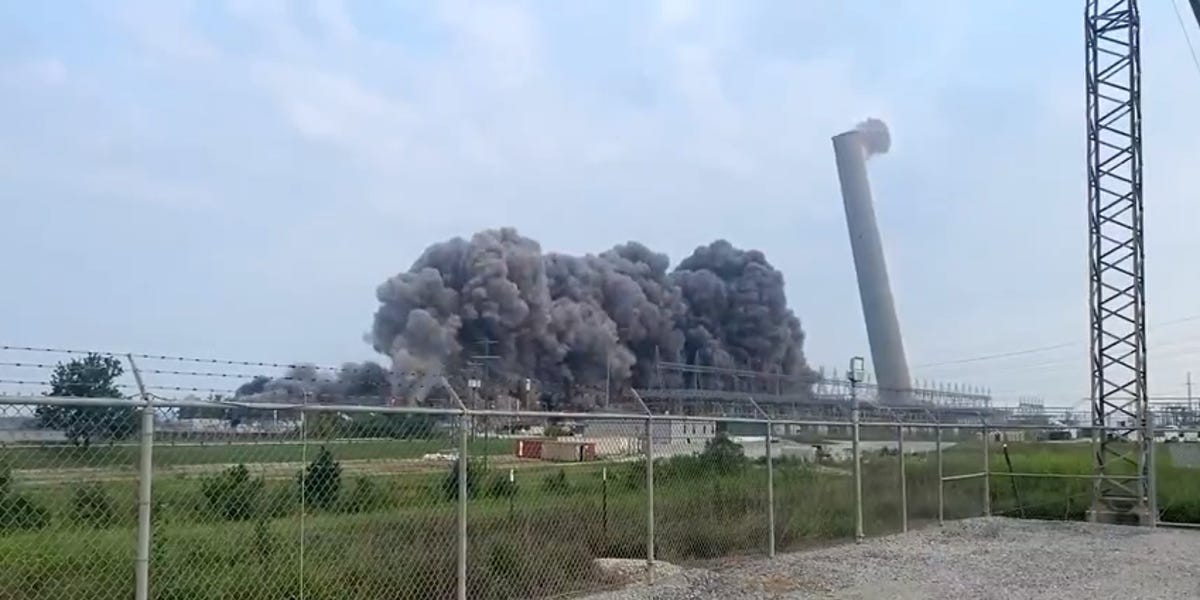
The two main utilities that own a Colorado coal plant which was ordered to reopen by fossil shill Chris Wright have pushed back on the order, stating plainly that it would raise costs and would not benefit reliability for Colorado electric ratepayers.
more…
https://electrek.co/2026/02/02/owners-of-broken-colo-coal-plant-forced-to-reopen-ask-doe-to-reconsider-order/
US jobs report delayed again amid government shutdown
(date: 2026-02-02)
January 2026 report to be rescheduled after BLS has already been faced with major delays from last year’s shutdown
The US’s closely watched jobs report will once again be delayed, the Bureau of Labor Statistics (BLS) announced on Monday, amid a government shutdown.
The January 2026 jobs report, originally scheduled to be released on Friday, will be rescheduled when federal funding resumes. Data collection for the report has been completed, but the shutdown has forced a delay to releasing the report, which will provide crucial jobs data on the US labor market following the weakest year for job growth since 2020, with the addition of only 584,000 jobs in 2025 compared with 2 million in 2024.
Continue reading...
https://www.theguardian.com/business/2026/feb/02/us-jobs-report-delayed-government-shutdown
Sunrise Wind is back, collapsing Trump’s offshore wind shutdown [update]
(date: 2026-02-02)

A federal judge allowed Sunrise Wind to resume construction, making it the fifth and final offshore wind project to beat the shutdown order.
more…
https://electrek.co/2026/02/02/us-offshore-wind-backlash-grows-as-empire-revolution-wind-sue-trump-admin/
Chinese EV leaders MG and BYD bring the price war overseas
(date: 2026-02-02)

MG launched the new MG4 EV Urban in the UK, priced at just £23,495 ($32,000), undercutting BYD’s popular Dolphin hatch as more affordable electric cars hit the market.
more…
https://electrek.co/2026/02/02/chinese-ev-leaders-mg-and-byd-bring-price-war-overseas/
California Poised to Introduce Nation’s Strongest Antimonopoly Law
(date: 2026-02-02)
With support from ILSR and other allies, California is now one step closer to enacting the strongest antimonopoly law in the country.
https://ilsr.org/article/independent-business/california-poised-to-introduce-nations-strongest-antitrust-law
Porsche Wanted To Make An Electric Boxster. Now It May Just Kill It
(date: 2026-02-02)
The next-generation Porsche 718 was supposed to be EV-only by 2025. But its plans may be changing.
https://insideevs.com/news/786169/porsche-boxster-cayman-ev-canceled/
Melania documentary: Bold or just bad?
(date: 2026-02-02)

Andrew Chang explains the critical and box office response to the documentary film of the United States First Lady Melania Trump.
Images provided by The Canadian Press, Reuters and Getty Images
https://www.cbc.ca/player/play/9.7071606?cmp=rss
China Just Banned One Of The Most Controversial Car Features Ever
(date: 2026-02-02)
And the rest of the world is about to take notice.
https://insideevs.com/news/786170/china-ev-door-handles-banned/
EcoFlow Super Bowl sale drops DELTA 3 Max Plus + Trail station bundle to $1,033, Velotric Breeze 1 e-bike bundle at new $1,649 low, more
(date: 2026-02-02)

With there only being six days until Super Bowl LX, we’ve got EcoFlow kickstarting this week’s Green Deals with its Big Game Day Sale that is seeing up to 64% discounts on units + a bonus 6% savings code. A notable inclusion there is the [EcoFlow DELTA 3 Max Plus Portable Power Station and a FREE Trail 200 DC 60,000mAh Power Station at its second-best \(1,033](https://9to5toys.com/2026/02/02/ecoflow-big-game-day-delta-3-max-plus-trail-power-station-new-1033-low-more/) rate, with several others rounded up together. We also spotted [Velotric’s Breeze 1 Cruiser e-bike](https://9to5toys.com/2026/02/02/velotric-ocean-mist-breeze-1-cruiser-e-bike-150-bundle-new-1649-low-more/) in its Ocean Mist colorway getting \)150 in FREE gear at a new $1,649 low, as well as some EcoFlow 24-hour flash sale offers, DEWALT’s 10-inch table saw at the best price since October, and more waiting for you below. And don’t forget the hangover deals from last week at the bottom of the page, rounded together within our latest Electrified Weekly edition.
Head below for other New Green Deals we’ve found today and, of course, Electrek’s best EV buying and leasing deals. Also, check out the new Electrek Tesla Shop for the best deals on Tesla accessories.
more…
https://electrek.co/2026/02/02/ecoflow-super-bowl-sale-delta-3-max-plus-bundle-velotric-breeze-1-e-bike-more/
Reality distortion field goes wild for Melania's box office bomb
(date: 2026-02-02)
As Melania bombed with a slightly smaller-than-expected blast radius, Send Help and Iron Lung topped the box office.
https://www.pastemagazine.com/movies/melania-box-office-send-help-february-2-2026
Despite progress in Congress, the final stretch of the 2026 appropriations process is far from simple
(date: 2026-02-02)
"Appropriations is the big thing, but there's lots of activity on the floors and off the floors as Congress gets down to work," Loren Duggan said.
https://federalnewsnetwork.com/congress/2026/02/despite-progress-in-congress-the-final-stretch-of-the-2026-appropriations-process-is-far-from-simple/
Body cameras being immediately issued to ICE agents in Minneapolis
(date: 2026-02-02)

Every U.S. Homeland Security officer on the ground in Minneapolis, including Immigration and Customs Enforcement (ICE) officers, will be immediately issued body-worn cameras, Secretary Kristi Noem said Monday.
https://www.cbc.ca/news/world/minneapolis-agents-ice-body-worn-cameras-9.7071372?cmp=rss
Kia launches three new electric GT vehicles in Korea, starting at $37,000
(date: 2026-02-02)

Kia introduced a series of new electric GT vehicles in Korea. The EV3 GT, EV4 GT, and EV5 GT are the latest to join Kia’s growing performance EV lineup.
more…
https://electrek.co/2026/02/02/kia-launches-three-electric-gt-vehicles-korea-starting-at-37k/
China finalizes proposed ban on Tesla-style hidden door handles for safety
(date: 2026-02-02)

China has officially moved forward with a proposed ban on flush EV door handles, with an effective date of January 1, 2027. The regulation will force a redesign of many EVs with sleek, electronically-actuated handles, a design popularized by Tesla.
more…
https://electrek.co/2026/02/02/china-finalizes-proposed-ban-on-tesla-style-hidden-door-handles-for-safety/
Epstein files: has Trump really been ‘absolved’? | The Latest
(date: 2026-02-02)
Donald Trump claims that the release of millions more files related to Jeffrey Epstein 'absolve' him of wrongdoing, even though his name appears hundreds of times. The latest documents also indicate high-profile figures , including the former prince Andrew Mountbatten-Windsor and Labour peer Peter Mandelson, continued friendships with the disgraced financier after his child sex abuse convictions. So what have we learned from the newly released files and what happens next? Lucy Hough speaks to columnist and host of Politics Weekly America Jonathan Freedland
Continue reading...
https://www.theguardian.com/news/video/2026/feb/02/epstein-files-has-trump-really-been-absolved-the-latest
U.S. judge grants asylum to Chinese whistleblower who got scooped up in ICE raid
(date: 2026-02-02)

A Chinese whistleblower fled to the U.S. with footage of detention camps and requested asylum, only to be arrested by ICE agents and face deportation to Uganda. Now, five years after his saga began, his asylum claim has been granted.
https://www.cbc.ca/radio/asithappens/china-whistleblower-asylum-9.7071354?cmp=rss
Jaguar’s Controversial New EV Has A Bizarre Battery Setup
(date: 2026-02-02)
Jaguar wanted to squeeze in a ton of range without intruding on passenger space. Here's what it came up with.
https://insideevs.com/news/786135/jaguar-electric-sedan-battery-range/
Neqotkuk focuses on healing and advocacy after RCMP shooting
(date: 2026-02-02)

Neqotkuk (Tobique First Nation) is coming together through ceremony, cultural care and community support to heal after Bronson Paul was shot and killed by the RCMP, while leaders push for systemic changes in policing.
https://www.cbc.ca/news/indigenous/tobique-first-nation-healing-rcmp-shooting-9.7071129?cmp=rss
Arizona police suspect Today show host's mother taken from home against her will
(date: 2026-02-02)

Authorities believe the 84-year-old mother of NBC's Today show host Savannah Guthrie was kidnapped, abducted or otherwise taken against her will, and the sheriff said Monday it's imperative she's found soon because she could die without her medication.
https://www.cbc.ca/news/world/nancy-guthrie-missing-arizona-9.7071293?cmp=rss
KCUR stays on air after quick move from longtime studios
(date: 2026-02-02)
The University of Missouri-Kansas City announced in December hat the station’s building would close no later than Jan. 31 due to foundation problems.
The post KCUR stays on air after quick move from longtime studios appeared first on Current.
https://current.org/2026/02/kcur-stays-on-air-after-quick-move-from-longtime-studios/?utm_source=rss&utm_medium=rss&utm_campaign=kcur-stays-on-air-after-quick-move-from-longtime-studios
Infantino apologises to British fans and defends awarding Trump peace prize
(date: 2026-02-02)
The Fifa president, Gianni Infantino, has apologised over remarks he made about British fans and defended the decision to award a peace prize to the US president, Donald Trump.
Infantino said at last month’s World Economic Forum in Davos that the World Cup in Qatar in 2022 had been special because “for the first time in history no Brit was arrested”.
Continue reading...
https://www.theguardian.com/football/2026/feb/02/infantino-apologises-to-british-fans-and-defends-awarding-trump-peace-prize
Gold and silver prices seesaw as FTSE 100 hits record high
(date: 2026-02-02)
Trump’s pick of ‘respected central banker’ Kevin Warsh as Fed chair prompts investors to sell safe haven assets
Gold and silver prices seesawed on Monday, after a “meltdown” in the metals market deepened and rattled investors around the world.
Gold [prices tumbled by as much as 8% to \(4,465 an ounce on Monday](https://www.theguardian.com/business/live/2026/feb/02/gold-silver-bitcoin-oil-commodities-slide-metals-meltdown-dollar-fed-chair-warsh-uk-house-prices-markets-business-live-news-updates), ending a run of record highs that took it to nearly \)5,600 last week. It later recovered some ground, but was still down by 3.5% at $4,700 in afternoon trading.
Continue reading...
https://www.theguardian.com/business/2026/feb/02/plunge-in-price-of-gold-and-silver-rattles-global-stock-markets
A standout year for the TSP is giving investors plenty to build on for 2026
(date: 2026-02-02)
"Know yourself, know your risk tolerance, and know your long-term goals," Art Stein said.
https://federalnewsnetwork.com/tsp/2026/02/a-standout-year-for-the-tsp-is-giving-investors-plenty-to-build-on-for-2026/
Fact check: Fake Grammys photo of Justin Trudeau and Katy Perry
(date: 2026-02-02)

No, Justin Trudeau and Katy Perry were not photographed at the Grammys on Sunday. But these fake photos were shared widely online.
https://www.cbc.ca/player/play/9.7071401?cmp=rss
NASA's moon rocket experiences fuel leak during critical test ahead of launch
(date: 2026-02-02)

NASA ran into a leak while fuelling its new moon rocket Monday in one final make-or-break test that will determine when astronauts can launch on a lunar fly-around.
https://www.cbc.ca/news/science/artemisii-wet-dress-9.7071295?cmp=rss
Toyota reveals the interior of its 3-row electric SUV ahead of its big debut
(date: 2026-02-02)

With its official debut in just a few days, Toyota unveiled the interior of the new SUV for the first time, revealing three rows of seating.
more…
https://electrek.co/2026/02/02/toyota-reveals-interior-of-3-row-electric-suv-big-debut/
TODAY 4pm ET: Mehdi Takes Your Questions on the Epstein Files, Gaza, & 'ICE Out' at the Grammys
(date: 2026-02-02)
Look out for Mehdi and Prem's live Q&A episode of 'Ask the Editor' – a little bit later than usual, at 4pm ET, 1pm PT, and 9pm GMT. See you there.
https://zeteo.com/p/today-4pm-et-mehdi-takes-your-questions
Hamilton soldier who died in Latvia to be honoured at repatriation ceremony
(date: 2026-02-02)

A Hamilton soldier who died in Latvia last week will be honoured at a repatriation ceremony on Tuesday in Quinte West in southern Ontario.
https://www.cbc.ca/news/canada/hamilton/repatriation-gunner-sebastian-halmagean-9.7071268?cmp=rss
Man City’s snakebitten second halves are destroying their title challenge | Jonathan Wilson
(date: 2026-02-02)
Pep Guardiola’s side would be on top of the league had they not consistently struggled to hold leads
The focus had been on Arsenal. They had not won in three Premier League games before this weekend and it was reasonable to ask how secure their position at the top of the table was. But the impact of their wobble was not that their lead was eaten into, but that they missed opportunities to extend it, because those in the chasing pack were also dropping points.
In their six league games since the New Year fixtures, Arsenal have dropped seven points. But City in the same period have dropped 11, as have Aston Villa and Liverpool. Fulham have dropped 10, Everton have dropped nine, Brentford and Newcastle have dropped eight, Chelsea seven and Manchester United six; hardly anyone in the top half of the table has closed the gap on Arsenal at all, which is why, after Saturday’s comfortable win at Leeds, their lead remains at six points.
Continue reading...
https://www.theguardian.com/football/2026/feb/02/manchester-city-title-challenge-arsenal-premier-league
House FEMA reform bill collects more than 50 co-sponsors
(date: 2026-02-02)
It would shift FEMA out from under the Department of Homeland Security and make major reforms to how the agency manages disaster assistance projects.
https://federalnewsnetwork.com/federal-newscast/2026/02/house-fema-reform-bill-collects-more-than-50-co-sponsors/
A commodities correction
(date: 2026-02-02)
The precious metals market has been on a tear, but experienced a severe correction last week. Part of it has to do with the nomination of Kevin Warsh as Fed chair. We'll discuss it, plus preview this week's big hiring and unemployment reports. Plus, from our partners at the BBC, one out of every five people over 65 in Japan is living with dementia or has early symptoms. How are businesses responding?
https://www.marketplace.org/episode/2026/01/05/a-commodities-correction
ILSR Statement on the California Law Revision Commission’s Vote To Recommend Single Firm Conduct Legislative Language
(date: 2026-02-02)
ILSR's statement on California Law Revision Commission’s Vote To Recommend Single Firm Conduct Legislative Language.
https://ilsr.org/article/independent-business/ilsr-statement-on-the-california-law-revision-commision-vote-single-firm-conduct
B.C. premier doubles down on calling Alberta separatist movement seeking U.S. support 'treason'
(date: 2026-02-02)

Calgary-based data analyst John Santos warns that that kind of language could push people toward separatism.
https://www.cbc.ca/news/canada/british-columbia/eby-alberta-separatist-group-treason-9.7071107?cmp=rss
Considering History: Minnesota’s Black History and America’s Defining Diversity
(date: 2026-02-02)
Minnesota’s African American history highlights how much the state has always embodied diversity and the ongoing challenge of living up to our ideals of equality and justice for all.
Considering History: Minnesota’s Black History and America’s Defining Diversity
The Saturday Evening Post
https://www.saturdayeveningpost.com/2026/02/considering-history-minnesotas-black-history-and-americas-defining-diversity/
AVQ&A: What's your favorite Catherine O'Hara performance?
(date: 2026-02-02)
Staffers single out their go-to turns from the late great.
https://www.pastemagazine.com/games/avqa/catherine-ohara-favorite-performances
Olympic appeal for U.S. skeleton racer who accused Canada of sabotage is outside jurisdiction: sports court
(date: 2026-02-02)

U.S. skeleton racer Katie Uhlaender's last chance to make the Olympic field may have been lost Monday, with the Court of Arbitration for Sport saying it lacks the jurisdiction to change the result of a race that could have earned her a berth in the Milan-Cortina Winter Games.
https://www.cbc.ca/sports/olympics/winter/skeleton/katie-uhlaender-court-of-arbitration-for-sport-appeal-olympics-9.7071179?cmp=rss
Financiers who defrauded investors in Man. and Ont. projects each sentenced to 5 years in jail, $12 million
(date: 2026-02-02)

Jawad Rathore, 49, and 50-year-old Vince Petrozza were executives for Fortress Real Developments Inc., a defunct Toronto-area syndicated mortgage company that raised funds for a failed 45-storey tower in downtown Winnipeg called SkyCity and a Barrie mixed-use development called the Collier Centre.
https://www.cbc.ca/news/canada/manitoba/fortress-developers-fraud-sentencing-9.7071147?cmp=rss
‘Gifted’ dogs can learn new words just by eavesdropping
(date: 2026-02-02)

Researchers have identified that some dogs are "gifted word learners” — pups who know the names of more than 100 toys. In fact, these dogs can learn new words just by eavesdropping. And even if your dog isn’t in this "gifted" group, there are many ways to help them improve how they learn.
https://www.cbc.ca/radio/quirks/gifted-dogs-learn-words-9.7071004?cmp=rss
Toyota Three-Row Electric SUV: Our Best Look Yet
(date: 2026-02-02)
The automaker has teased the interior of its all-new SUV ahead of its debut next week.
https://insideevs.com/news/786144/toyota-three-row-suv-interior-teaser/
Former minister Bill Blair appointed to diplomatic post, resigns as MP
(date: 2026-02-02)

Former Liberal cabinet minister Bill Blair resigned as an MP on Monday after the Prime Minister's Office announced that he will be Canada's next high commissioner to the U.K.
https://www.cbc.ca/news/politics/bill-blair-appointment-high-commissioner-mp-9.7071166?cmp=rss
Tesla's Latest Approach Isn't Working
(date: 2026-02-02)
Tesla's new cheap variants fail to lift its fortunes in Europe. Plus: Is Ford really teaming up with Xiaomi?
https://insideevs.com/news/786146/tesla-model-standard-europe-sales/
Ford denies report that it plans to build EVs in the US with China’s Xiaomi
(date: 2026-02-02)

Ford is not planning to build electric vehicles in the US with China’s Xiaomi, despite a report claiming the partnership would “pave the way for Chinese carmakers to gain a foothold in the US.”
more…
https://electrek.co/2026/02/02/ford-denies-report-plans-build-evs-in-the-us-with-xiaomi/
Speed capability to warfighters with mission integration
(date: 2026-02-02)
How to overcome innovation barriers to rapidly meet warfighter needs.
https://federalnewsnetwork.com/federal-insights/2026/02/speed-capability-to-warfighters-with-mission-integration/
Brazilian influencer who defended US immigration crackdown arrested by ICE
(date: 2026-02-02)
Trump supporter Júnior Pena falsely claimed migrants being rounded up, including Brazilians, were ‘all crooks’
A rightwing Brazilian influencer who claimed Donald Trump’s immigration crackdown targeted only “crooks” has been arrested by ICE agents in New Jersey.
Júnior Pena, whose full name is Eustáquio da Silva Pena Júnior, declared his support for the US president in a recent video message to his hundreds of thousands of social media followers.
Continue reading...
https://www.theguardian.com/us-news/2026/feb/02/rightwing-brazilian-influencer-junior-pena-arrested-by-ice
The Grammys riled Donald Trump – but the big winners were chosen for their music, not politics
(date: 2026-02-02)
The president called the ceremony ‘garbage’, but in reality it was a celebration of artists whose commercial success was matched by boundary-pushing boldness
Donald Trump, it seems, did not much enjoy the 2026 Grammys. Shortly after the conclusion of the ceremony’s live broadcast in the US, there he was on Truth Social, calling it “the worst”, “garbage”, “unwatchable” and threatening to sue host Trevor Noah.
Perhaps that was the reaction the Recording Academy wanted. You could, if you wished, divine a certain Maga-baiting intent not just in the decision to give the album of the year award to Bad Bunny – a Puerto Rican who attracted criticism from the Trump administration after he was booked to headline the SuperBowl LX half-time show – but the choice of the Buena Vista Social Club, a Broadway hit based on the 1997 album of the same name featuring veteran Cuban musicians, as the best musical theatre album: the latter two weeks after the New York Times reported that Cubans settled in Florida are being deported in record numbers.
Continue reading...
https://www.theguardian.com/music/2026/feb/02/grammys-donald-trump-politics-music
I Watched ‘Melania,’ a Film That Tries to Whitewash Trump’s Fascism
(date: 2026-02-02)
The propaganda film is eager to present the First Lady as a benevolent political force, and pretend she isn't part of her husband's racist, authoritarian project. It fails at both.
https://zeteo.com/p/melania-trump-documentary-review-fascism
The best films of Sundance 2026
(date: 2026-02-02)
Our film editor's favorites from Sundance 2026 include Once Upon A Time In Harlem, The History Of Concrete, American Doctor, and more.
https://www.pastemagazine.com/movies/sundance/best-films-sundance-2026
IN PHOTOS | Best of Westminster Kennel Club dog show
(date: 2026-02-02)

The annual Westminster Kennel Club Dog Show is underway, and over 3,000 dogs from around the world have gathered in New York City to participate in various competitions.
https://www.cbc.ca/news/world/westminster-kennel-club-dog-show-scroller-9.7070669?cmp=rss
Accused in London, Ont. bomb-making scheme face new charges of manufacturing firearms
(date: 2026-02-02)

Charges continue to mount against four people accused of allegedly stockpiling chemicals that could be used to make explosives, including new allegations that they were manufacturing a handgun.
https://www.cbc.ca/news/canada/london/western-university-hazardous-chemicals-firearms-charges-9.7070910?cmp=rss
Trump threatens to sue Trevor Noah over Epstein joke at Grammys
(date: 2026-02-02)
Awards host alluded to president’s association with late sex offender in awards ceremony remarks
Grammys host Trevor Noah has been threatened with legal action by Donald Trump for a joke during Sunday’s awards ceremony about the president’s connection to the disgraced late financier and sex offender Jeffrey Epstein.
Trump fired off an angry post on his Truth Social platform shortly after the comedian said the song of the year award was “a Grammy that every artist wants – almost as much as Trump wants Greenland, which makes sense because Epstein’s island is gone, he needs a new one to hang out with Bill Clinton”.
Continue reading...
https://www.theguardian.com/us-news/2026/feb/02/trevor-noah-trump-grammys
Water levels in Badger, Nfld., lowering, but evacuation order remains in place
(date: 2026-02-02)

The mayor of Badger says water levels are falling as the town faces a risk of major flooding, but it's still too early to know when evacuated residents can return to their homes.
https://www.cbc.ca/news/canada/newfoundland-labrador/badger-water-levels-feb-2-9.7070990?cmp=rss
Candela’s hydrofoil ferry just rewrote the limits of electric boats
(date: 2026-02-02)

Electric boats and ferries are starting to become more common, but they have typically been confined to short, fixed routes with expensive, purpose-built charging infrastructure. This week, Swedish electric boat maker Candela set out to prove that those limits are no longer necessary – and did so in record-setting fashion.
more…
https://electrek.co/2026/02/02/candelas-hydrofoil-ferry-just-rewrote-the-limits-of-electric-boats/
Trump says he'll lower tariffs on India after Modi agrees to stop buying Russian oil
(date: 2026-02-02)

U.S. President Donald Trump on Monday said he had agreed on a trade deal with India that slashes U.S. tariffs on Indian goods to 18 per cent from 50 per cent in exchange for India lowering trade barriers and stopping its purchases of Russian oil.
https://www.cbc.ca/news/world/trump-modi-russian-oil-tariffs-deal-9.7071040?cmp=rss
Tesla (TSLA) can’t find the bottom in Europe as 2026 starts with another brutal decline
(date: 2026-02-02)

The first batch of January 2026 registration data is in from Europe, and Tesla’s freefall on the continent shows no sign of slowing down. Across five major markets that have reported so far, Tesla registrations are down a staggering 44% year-over-year, extending what is now more than two years of continuous decline.
more…
https://electrek.co/2026/02/02/tesla-tsla-cant-find-bottom-europe-2026-brutal-decline/
Porsche Cayenne Electric enters production, we toured its battery factory
(date: 2026-02-02)

As Tesla CEO Elon Musk pleaded for more battery infrastructure in America, we toured Porsche’s incredibly advanced Smart Battery facility in Slovakia.
more…
https://electrek.co/2026/02/02/porsche-cayenne-electric-enters-production-we-toured-its-battery-factory/
Neqotkuk focuses on healing after RCMP shooting death
(date: 2026-02-02)

Neqotkuk First Nation community members speak about the trauma left behind and the efforts to support each other following the RCMP shooting death of Bronson Paul.
https://www.cbc.ca/player/play/9.7071045?cmp=rss
Injury forces Canada's Deanna Stellato-Dudek, figure skating partner Deschamps out of Olympic team event
(date: 2026-02-02)

World figure skating champions Deanna Stellato-Dudek and Maxime Deschamps of Canada will not compete in the Olympic team event in Italy later this month due to a training injury in Quebec sustained by Stellato-Dudek, the Canadian Olympic Committee announced Monday.
https://www.cbc.ca/sports/olympics/winter/figure-skating/stellato-dudek-injury-deschamps-withdrawal-olympic-figure-skating-team-event-9.7070999?cmp=rss
Turbines, Cadillacs, and Steaks: Route 66 Through the Texas Panhandle
(date: 2026-02-02)
The Texas Panhandle gives you a taste of the Mother Road’s quirky, fun, and welcoming small towns.
Turbines, Cadillacs, and Steaks: Route 66 Through the Texas Panhandle
The Saturday Evening Post
https://www.saturdayeveningpost.com/2026/02/turbines-cadillacs-and-steaks-route-66-through-the-texas-panhandle/
‘They killed him inside’: man who was son’s caretaker detained by ICE and denied final goodbye
(date: 2026-02-02)
Wael Tarabishi, who has a lifelong muscle disorder, died after Maher, his father and primary caretaker, was detained
Until three months ago, Wael Tarabishi and his father, Maher, were inseparable. It was a necessity; in addition to being best friends, Maher was the caretaker for 30-year-old Wael, who was diagnosed with a progressive muscle disorder called Pompe disease when he was a child.
As Wael’s mother said in November, Maher was his son’s “case manager, his equipment company, his doctor, his everything”.
Continue reading...
https://www.theguardian.com/us-news/2026/feb/02/caregiver-detained-ice-dallas-maher-tarabishi-wael
Blue Jays legend Joe Carter to be honoured with statue outside Rogers Centre
(date: 2026-02-02)

One of the greatest moments in Toronto Blue Jays history will be immortalized outside Rogers Centre. A statue of Joe Carter's historic walk-off home run to win the 1993 World Series will be erected outside Toronto's downtown ballpark.
https://www.cbc.ca/sports/baseball/mlb/blue-jays-joe-carter-statue-9.7070994?cmp=rss
Canadians sitting on $2B in uncashed federal cheques from past 4 years
(date: 2026-02-02)

Canadians have left some $2 billion in funds on the table by not cashing millions of paper cheques mailed out by federal government departments.
https://www.cbc.ca/news/politics/two-billion-uncashed-government-cheques-9.7070951?cmp=rss
Billionaire businessman Frank Stronach's sex assault trial in Toronto delayed until at least Thursday
(date: 2026-02-02)

The first sexual assault trial for Frank Stronach was scheduled to begin Tuesday in Toronto but has been delayed after the defence asked for more time to review "voluminous" amounts of new disclosure items.
https://www.cbc.ca/news/frank-stronach-sexual-assault-trial-toronto-9.7070510?cmp=rss
Todd Blanche says review of Jeffrey Epstein sex-trafficking case ‘is over’ | First Thing
(date: 2026-02-02)
Deputy US attorney general says the government cannot ‘just create evidence’ but victims’ attorney accuses government of hiding perpetrators while exposing survivors. Plus, the Mormon women who fought a Republican-led redistricting initiative in Utah – and won
Good morning.
The deputy US attorney general, Todd Blanche, told ABC News yesterday that prosecutors’ review of the Jeffrey Epstein-Ghislaine Maxwell sex-trafficking case “is over”, and in a separate interview to CNN said “victims want to be made whole”. “And we want that,” Blanche said. “But that doesn’t mean we can just create evidence or that we can just kind of come up with a case that isn’t there.”
What are the latest disclosures to emerge from the huge dump of 3.5m documents related to Epstein on Friday? Some of the documents suggest that other men were involved in his sexual abuse, prompting questions about officials’ contentions that there isn’t evidence to investigate third parties for potential involvement in the late financier’s crimes.
What did Bad Bunny say? “Before I say thanks to God, I’m gonna say ICE out,” he said. “We’re not savage, we’re not animals, we’re not aliens, we’re humans and we are Americans … The only thing more powerful than hate is love so please we need to be different.”
Continue reading...
https://www.theguardian.com/us-news/2026/feb/02/first-thing-todd-blanche-review-jeffrey-epstein-sex-trafficking-case-over
The impact of restricting SNAP benefits
(date: 2026-02-02)
In January, five states enacted laws restricting people who receive food aid from buying sugary beverages and snacks. About a dozen more will follow suit later this year. This morning, we'll learn about how that affects SNAP recipients and grocery stores. Plus, last week, gold and silver had their worst declines in decades. Then, as part of Marketplace's "AI and You" coverage, we'll look back at when the dot-com boom led to a rapid expansion of internet infrastructure — similar to what we're seeing today with AI.
https://www.marketplace.org/episode/2026/02/02/the-impact-of-restricting-snap-benefits
Toyota And Daihatsu’s Tiny New EV Vans Solve A Modern Problem The Old-School Way
(date: 2026-02-02)
Daihatsu’s first mass-produced EV has an LFP battery that can export energy to power tools and even whole houses.
https://insideevs.com/news/786124/daihatsu-toyota-electric-hijet-pixis-vans/
Jon Daly on being Fallout's talk-show-hosting human cockroach
(date: 2026-02-02)
The comedian talks nerding out with Kyle MacLachlan over Dune and asking Macaulay Culkin about his teeth.
https://www.pastemagazine.com/tv/fallout/jon-daly-interview-fallout-fake-talkshow
‘Sure enough, it’s gone’: Brooklyn venues targeted for mass phone thefts during concerts
(date: 2026-02-02)
Scores of live music fans in New York’s hip borough report having their phones stolen during live music shows
During a December visit to see family in his home state of New York, Zander Cammarata, who now lives in Berlin, purchased a new iPhone because they cost less in the United States. He then went to see one of his favorite bands, Silverstein, a post-hardcore emo group, in Brooklyn.
By the time he flew back to Germany, he was again using his old phone.
Continue reading...
https://www.theguardian.com/us-news/2026/feb/02/brooklyn-paramount-phone-theft
Inquest into police shooting of 16-year-old Eishia Hudson begins
(date: 2026-02-02)

The family of a 16-year-old First Nations girl fatally shot by Winnipeg police described the teen as someone full of energy and loved unconditionally.
https://www.cbc.ca/news/canada/manitoba/eishia-hudson-fatality-inquest-winnipeg-police-9.7070897?cmp=rss
FedRAMP putting final pieces in place for major modernization effort
(date: 2026-02-02)
Leaders of the government’s cloud security assessment program say they’re increasing their engagements with agencies and OMB to work toward FedRAMP 20x.
https://federalnewsnetwork.com/cloud-computing/2026/02/fedramp-putting-final-pieces-in-place-for-major-modernization-effort/
While some cops chase e-bikes, others are hopping on them
(date: 2026-02-02)

While some police departments in the US and around the world are busy chasing down illegal or reckless e-bike riders, others are taking a very different approach: if you can’t beat them, join them.
more…
https://electrek.co/2026/02/02/while-some-cops-chase-e-bikes-others-are-hopping-on-them/
What's behind gold's plunge?
(date: 2026-02-02)
From the BBC World Service: After a historic rally, gold has seen its biggest drop in more than a decade. Silver is also down after sharp swings in Asian trading. The rapid decline comes after President Donald Trump announced Kevin Warsh as his nomination for Federal Reserve chair, a pick many hope can continue to preserve Fed independence. Then, we head to Japan, where local tech firms are helping seniors living with dementia.
https://www.marketplace.org/episode/2026/02/02/mmr-1
The 10 best and worst moments from the 2026 Grammys
(date: 2026-02-02)
The 68th Grammy Awards featured puzzling winners, rewritten legacies, bizarre performances, anti-ICE acceptance speeches, and Cher being Cher.
https://www.pastemagazine.com/music/grammy-awards/the-10-best-and-worst-moments-from-the-2026-grammys
First Draft – Trump 'Still Wants' Greenland
(date: 2026-02-02)
Our president isn't done trying to steal land, another Dem win gives the GOP and Trump another reason to sweat, and the terrible Epstein files keep coming.
https://zeteo.com/p/scoop-trump-still-wants-greenland
Powerful men from politics, business and entertainment mentioned in latest Jeffrey Epstein files
(date: 2026-02-02)

Here is a look at some of the notable names in the latest release of files from the U.S. Justice Department pertaining to Jeffrey Epstein. The list includes politicians, entertainment figures, business leaders and Royal Family members, with some releasing statements this past weekend about their interactions with the late accused child sex trafficker.
https://www.cbc.ca/news/world/epstein-files-notable-figures-9.7070443?cmp=rss
Canada's Mikaël Kingsbury heads to 4th Games focused on fun, not pressure
(date: 2026-02-02)

Canada's Mikaël Kingsbury has spent more than a decade as the standard-bearer of moguls skiing, piling up records, medals, and milestones with almost mechanical consistency. But as the skier affectionately known as "The King" prepares for his fourth Olympic Games, the goal driving him is surprisingly simple. He just wants to enjoy it.
https://www.cbc.ca/sports/olympics/winter/freestyle-skiing/canada-kingsbury-heads-to-4th-games-focused-on-fun-not-pressure-9.7070796?cmp=rss
Public health crisis unfolding in Minneapolis as residents avoid healthcare
(date: 2026-02-02)
Providers are arranging home visits and telehealth as neighbors pick up prescriptions, groceries and diapers
A public health crisis is unfolding in Minnesota as people targeted by federal agents are afraid to seek healthcare while some healthcare staff are also fearful for their safety at work.
Community organizations and health providers are now arranging home visits, telehealth appointments and other alternate care.
Continue reading...
https://www.theguardian.com/us-news/2026/feb/02/public-health-crisis-minneapolis-ice
Inter Miami have reloaded for 2026 in a way no other MLS team could have
(date: 2026-02-02)
Lionel Messi’s presence has been crucial to the defending champions’ excellent offseason
Winning MLS Cup brings only a couple guaranteed returns: the cup itself and a cash prize ($300,000, roughly the salary of one MLS backup defender). Historically, it has also ushered in a near-mandatory squad rebuild, a consequence of MLS’s parity-driven design. With rare exceptions, great teams find it nigh-on-impossible to keep the band together, or to improve on what they already have.
Not so for Inter Miami this year. After a slew of high-powered offseason additions capped by Friday’s $15m capture of Monterrey striker Germán Berterame, a historically fortunate franchise has gotten even better; completely unlike the 29 MLS Cup champions that preceded them.
Continue reading...
https://www.theguardian.com/football/2026/feb/02/inter-miami-offseason-lionel-messi-dayne-st-clair
Making the most of AI, without the hype
(date: 2026-02-02)
With all the fanfare surrounding AI these days — the utopian dreams and dystopian nightmares — it can be hard to see the technology as simply a tool that anyone can use to improve their lives.
That's what tech columnist Christopher Mims at the Wall Street Journal focuses on his new book "How to AI: Cut Through the Hype. Master the Basics. Transform Your Work.” In it, he outlines two dozen “AI Laws” for how consumers and organizations should think about AI.
First up: AI is an assistant, not a replacement.
https://www.marketplace.org/episode/2026/02/02/making-the-most-of-ai-without-the-hype
Hamilton woman to pay a fraction of $101K bill after province rescued 55 miniature poodles from her home
(date: 2026-02-02)

The Ontario Animal Care Review Board says it balanced the “significant public resources expended” and the woman's "limited financial resources."
https://www.cbc.ca/news/canada/hamilton/stoney-creek-dogs-animal-services-9.7070703?cmp=rss
The Milano-Cortina Olympics are 3 days away. But preparation remains visibly unfinished
(date: 2026-02-02)

In Cortina d’Ampezzo, Italy, preparations for the Winter Olympics remain visibly unfinished, underlining the pressure organizers are facing as the curling tournament starts Wednesday and the first women's downhill training is scheduled for Thursday.
https://www.cbc.ca/sports/olympics/winter/olympic-venues-cortina-unfinished-frantic-work-9.7070688?cmp=rss
Spoiler Space: Sam Raimi delivers another grim punchline with Send Help
(date: 2026-02-02)
In his long-awaited return to horror, Raimi gets back to what he does best in Send Help: pulling the rug from under the audience.
https://www.pastemagazine.com/movies/spoiler-space/spoiler-space-send-help-sam-raimi-grim-punchline-ending
The guitar will never die
(date: 2026-02-02)
“The instrument gave me a way to meet the music I loved halfway, to stop being just a listener and start being a so-so but earnest participant.”
https://www.pastemagazine.com/music/guitars/the-guitar-will-never-die
US woman resolves misdemeanor case opened after accusing priest of predatory behavior
(date: 2026-02-02)
Heather Jones of Alabama says two-year probation agreement leaves her ‘free and clear’ of legal matter
An Alabama woman has resolved a misdemeanor case that authorities opened against her within days of speaking out about a Roman Catholic priest whom she accused of predatory behavior.
Heather Jones had publicly recounted that she was 17 when the priest, Robert “Bob” Sullivan, arranged to provide her financial support in exchange for companionship including sex – prompting him to resign from the clergy in November.
Continue reading...
https://www.theguardian.com/us-news/2026/feb/02/heather-jones-bob-sullivan-priest-accusations-misdemeanor-case
New Epstein files reveal he may have trafficked girls to others despite official denials
(date: 2026-02-02)
Allegations prompt questions about officials’ contentions that there isn’t evidence to investigate third parties
The disclosure of more than 3m files related to Jeffrey Epstein suggests that other men were involved in his sexual abuse, prompting questions about officials’ contentions that there isn’t evidence to investigate third parties for potential involvement in the late financier’s crimes.
Some newly released documents contain allegations that Epstein provided victims to other men. Documents released in prior disclosures, as well as court documents, also point to others’ possible criminal involvement with Epstein and his accomplice, Ghislaine Maxwell.
Continue reading...
https://www.theguardian.com/us-news/2026/feb/02/epstein-files-new-batch
Justin Rose notches first wire-to-wire Torrey Pines win in 71 years with apology to Tiger Woods
(date: 2026-02-02)
Justin Rose became the first wire-to-wire winner at Torrey Pines in 71 years, starting with a six-shot lead and never letting anyone get any closer to him Sunday as he closed with a two-under 70 to win the Farmers Insurance Open.
Rose opened with a 62 on the North course and never let up, playing even better on the South course that has hosted two US Opens. He broke the 72-hole tournament record at 23-under, 265, one better than Tiger Woods in 1999. George Burns also shot 266 in 1987. “Sorry, T-dub, if you’re watching,” Rose said.
Continue reading...
https://www.theguardian.com/sport/2026/feb/02/justin-rose-notches-first-wire-to-wire-torrey-pines-win-in-71-years-with-apology-to-tiger-woods
'Perfect storm' of medical missteps cost newborn his life, Edmonton mother says
(date: 2026-02-02)

https://www.cbc.ca/news/canada/edmonton/baby-huxley-edmonton-9.7061731?cmp=rss
Gold, silver prices continue to slide after Trump picks Warsh to lead Fed
(date: 2026-02-02)

Wild swings that swept through financial markets overnight calmed as Wall Street opened for trading on Monday. U.S. stocks are holding relatively steady following gains in Europe and sharp drops in Asia, while gold and silver prices rallied back from severe earlier losses.
https://www.cbc.ca/news/business/gold-silver-prices-slide-monday-trump-warsh-fed-9.7070589?cmp=rss
SongWriter Season 7 continues with Patrice Francis and Selah Moonie
(date: 2026-02-02)
The seventh season of SongWriter continues with Patrice Francis and Selah Moonie. Listen to the newest episode exclusively here at Paste.
https://www.pastemagazine.com/music/songwriter-podcast/songwriter-season-7-patrice-francis-selah-moonie
Every Album of the Year Grammy winner ranked from worst to best
(date: 2026-02-02)
The Recording Academy rarely gets it right, so let’s look at all 68 winners of the music industry's top prize and deduce who should have come out on top every year since 1959, including last night's ceremony.
https://www.pastemagazine.com/music/grammy-awards/every-album-of-the-year-grammy-winner-ranked-from-worst-to-best
GO train derailment near Toronto's Union Station leads to delays, modified service
(date: 2026-02-02)

Crews were working late to remove a GO train from the tracks after it partially derailed near Union Station on Monday, causing heavy delays lasting through the evening, Metrolinx says.
https://www.cbc.ca/news/canada/toronto/go-transit-delays-9.7070546?cmp=rss
By Storm leave Injury Reserve behind and land someplace unrecognizable on My Ghosts Go Ghost
(date: 2026-02-02)
RiTchie and Parker Corey’s first album after the passing of Groggs is an adventurous, compelling reformation from a one-time rap group. The duo conjure the spirits of Xiu Xiu, King Krule, Ben Frost with astonishing joy.
https://www.pastemagazine.com/music/by-storm/by-storm-my-ghosts-go-ghost-album-review
Grammy awards 2026: Bad Bunny and Kendrick Lamar win big as musicians take aim at ICE – video
(date: 2026-02-02)
Bad Bunny and Kendrick Lamar won major Grammy awards on a night charged with political defiance, as musicians pushed back against Donald Trump’s deadly ICE crackdown. Billie Eilish, who took song of the year for Wildflower, used her speech to declare: 'No one is illegal on stolen land.' The best new artist award went to Olivia Dean, presented by last year’s winner Chappell Roan. 'I am up here as the granddaughter of an immigrant,' Dean said, drawing loud applause
Continue reading...
https://www.theguardian.com/music/video/2026/feb/02/grammy-awards-2026-bad-bunny-and-kendrick-lamar-win-big-as-musicians-take-aim-at-ice-video
2026 Nissan Leaf 70 MPH Highway Range Test: Can It Beat Its EPA Rating?
(date: 2026-02-02)
The new Leaf is a huge improvement over its predecessor, and this highway range test proves it.
https://insideevs.com/news/786094/2026-nissan-leaf-70-mph-highway-range-test/
Son of Norway's crown princess arrested days before his rape trial set to begin
(date: 2026-02-02)

The eldest son of Norway’s crown princess has been arrested, just before his trial opens on charges including rape, police said on Monday.
https://www.cbc.ca/news/world/norway-princess-son-rape-9.7070424?cmp=rss
A distant star: On the trail with Bob Weir
(date: 2026-02-02)
In a new guest essay, singer-songwriter Josh Ritter looks back on the nine songs he wrote for Bob Weir's 2016 album, Blue Mountain.
https://www.pastemagazine.com/music/grateful-dead/a-distant-star-on-the-trail-with-bob-weir
Top-ranked American women's hockey team fuelled by skill, youth heading into Olympics
(date: 2026-02-02)

Future PWHL stars Abbey Murphy and Caroline Harvey are among the American players to watch at Olympics. Meanwhile, captain Hilary Knight will lead the team into her 5th and final Olympic Games.
https://www.cbc.ca/sports/olympics/winter/hockey/us-womens-hockey-olympics-2026-team-preview-9.7069112?cmp=rss
The mirrored desires that make Heated Rivalry so addictive
(date: 2026-02-02)
Everyone's favorite Canadian hockey smut has some of the meatiest character work on TV.
https://www.pastemagazine.com/tv/heated-rivalry/heated-rivalry-mirrored-desires-that-make-show-so-addictive
B.C. developer worth millions risks jail unless she reveals truth of personal finances
(date: 2026-02-02)

A Vancouver developer with an estimated net worth of at least $20 million will be jailed later this month unless she comes clean with a B.C. Supreme Court judge about her personal finances. Helen Chan Sun was given a suspended jail sentence for contempt of court in November after failing to comply with a payment order.
https://www.cbc.ca/news/canada/british-columbia/developer-jail-contempt-court-finances-9.7064165?cmp=rss
Rafah crossing between Gaza and Egypt reopens, with strict limits
(date: 2026-02-02)

Dozens of Palestinians were expected to leave or return to Gaza on Monday after Israel reopened the sole pedestrian crossing to Egypt, a major step in the ceasefire intended to end the war, though with strict limitations on access.
https://www.cbc.ca/news/world/gaza-khan-younis-death-rafah-crossing-9.7070337?cmp=rss
Monday briefing: The community solidarity driving the fightback against ICE in Minneapolis
(date: 2026-02-02)
In today’s newsletter: Public outrage has reached fever pitch following the killing of US citizens. But, amid the focus on violence, another story of mutual aid and neighbourhood organising is unfolding
Good morning. The world’s attention has been fixed on Minneapolis for weeks now. The small midwestern US city has been under siege since Donald Trump’s administration launched its latest immigration crackdown in December.
Public outrage has reached fever pitch across the US after the killing of two US citizens, Renee Good and Alex Pretti. Though the White House has softened its rhetoric in relation to the killings, there is little indication of any meaningful shift in tactics on the ground.
Epstein files | Peter Mandelson says he has resigned his membership of the Labour party to avoid causing it “further embarrassment” after more revelations about his friendship with Jeffrey Epstein.
Iran | Donald Trump has said Iran is talking to the US, hinting at a deal that would avoid the use of military strikes.
Ukraine | A Russian drone attack on a bus carrying mine workers in Ukraine’s central-eastern Dnipropetrovsk region has killed at least 12 people, officials said.
Cuba | The United States has said it will ensure there will be no more fuel shipments to the beleaguered island, “Cuba will be failing pretty soon,” Donald Trump said earlier in the week.
Grammy awards | Bad Bunny and Kendrick Lamar took home major Grammy awards during a night that saw musicians hit back at Donald Trump’s ICE occupation.
Continue reading...
https://www.theguardian.com/world/2026/feb/02/monday-briefing-the-community-solidarity-driving-the-fightback-against-ice-in-minneapolis
This man landed his dream job with the help of a billboard
(date: 2026-02-02)

Getting a job in mining sometimes depends on who you know. A man looking to switch careers turned that advice around, and gave the world a glimpse of who he is — by pasting it on a billboard.
https://www.cbc.ca/news/canada/sudbury/job-seeker-billboard-9.7065544?cmp=rss
Sask. man says he’s out $10K after having to replace broken furnace, despite warranty
(date: 2026-02-02)

A Saskatchewan father says his family was left scrambling for heat after his furnace company failed to provide all options to fix a dangerous breakdown. He says the miscommunication cost him $10,000.
https://www.cbc.ca/news/canada/saskatchewan/saskatchewan-man-loses-thousands-on-broken-furnace-with-warranty-9.7068009?cmp=rss
2SLGBTQ+ Indigenous comedians talk Vancouver comedy scene
(date: 2026-02-02)

Camp! comedy! and shows similar to it have become a safe hub for Indigenous comedians in the city.
https://www.cbc.ca/news/indigenous/indigenous-comedians-2slgbtq-vancouver-9.7066776?cmp=rss
Manitoba has only 1 legal sports betting site, but tests show it's easy to use others
(date: 2026-02-02)

Manitoba has one legal online gambling site, but the CBC found it easy to place bets with some popular online brands that the provincial Liquor & Lotteries agency says are operating illegally.
https://www.cbc.ca/news/canada/manitoba/illegal-sports-betting-9.7068647?cmp=rss
Some schools closed as another winter storm crosses N.S.
(date: 2026-02-02)

Cape Breton and parts of eastern and northern mainland Nova Scotia are under either snowfall or winter storm warnings. It is the third storm Nova Scotia has faced in a matter of weeks.
https://www.cbc.ca/news/canada/nova-scotia/winter-storm-february-2-9.7070345?cmp=rss
Schools closed, buses pulled off roads as storm hammers Newfoundland
(date: 2026-02-02)

A winter storm is bringing heavy snow and high winds to parts of Newfoundland on Monday, with schools closed in the central and eastern regions for the day.
https://www.cbc.ca/news/canada/newfoundland-labrador/winter-storm-feb-2-9.7070332?cmp=rss
Kennedy Center to close for 2 years for renovations, Trump says, after performers backlash
(date: 2026-02-02)

U.S. President Donald Trump said Sunday he will move to close Washington's Kennedy Center performing arts venue for two years starting in July for construction.
https://www.cbc.ca/news/world/kenney-center-close-two-years-trump-9.7070289?cmp=rss
Canadian military goes to U.S. for F-35 ceremony despite renewed trade tensions
(date: 2026-02-02)

The Lockheed Martin event in Texas comes as the future of the CF-18 replacement program is under review because of the ongoing trade and political disputes between Canada and the United States, and as the first F-35 is set to be delivered within months.
https://www.cbc.ca/news/politics/canada-f-35-lockheed-martin-first-delivery-ceremony-9.7068543?cmp=rss
How is Carney's government filling high-level jobs?
(date: 2026-02-02)

In 2016, former prime minister Justin Trudeau overhauled the way appointments are made to make them more open and transparent. However, recent appointments by Prime Minister Mark Carney's government raise the question of whether his government is still following the system Trudeau put in place.
https://www.cbc.ca/news/politics/carney-trudeau-government-appointments-9.7069060?cmp=rss
Wiarton Willie predicts early spring, but Punxsutawney Phil disagrees
(date: 2026-02-02)

It's Groundhog Day. That means the forecast calls for weather predictions from animal prognosticators, including Ontario's Wiarton Willie, Nova Scotia's Shubenacadie Sam, New Brunswick's Lucy the Lobster, Quebec's Fred la marmotte, B.C.'s Van Isle Violet and Punxsutawney Phil in Pennsylvania.
https://www.cbc.ca/news/canada/kitchener-waterloo/groundhog-day-predictions-2026-9.7066636?cmp=rss
Getting Canada's nuclear waste to repository eyed for Ontario's northwest a key concern as public weighs in
(date: 2026-02-02)

Hundreds of people have been sharing how they feel about a project that could see Canada’s nuclear waste buried deep underground in northwestern Ontario. A key concern brought up during the public comment period, which ends Wednesday, is how materials would be transported to the country's first deep geological repository for nuclear waste.
https://www.cbc.ca/news/canada/thunder-bay/nuclear-waste-repository-impact-assessment-9.7068604?cmp=rss
Stephen Harper to be feted in Ottawa this week as he marks 20 years since he first became PM
(date: 2026-02-02)

Former prime minister Stephen Harper is being honoured at several events in Ottawa this week ahead of the 20th anniversary of his Conservative government, which was sworn into power on Feb. 6, 2006.
https://www.cbc.ca/news/politics/stephen-harper-20-years-anniversary-9.7070076?cmp=rss
2SLGBTQ+ Indigenous comedians talk Vancouver comedy scene
(date: 2026-02-02)

Savannah Erasmus, Sasha Mark and Kendall Clark share their experiences doing standup comedy in Vancouver as 2SLGBTQ+ Indigenous comedians.
https://www.cbc.ca/player/play/9.7067517?cmp=rss
Police docked pay after red-light cameras capture them rushing to emergencies express anger, frustration
(date: 2026-02-02)

Red-light cameras in Ontario have been catching civilians for years, but some police officers who rush to emergencies say they’re unfairly being penalized by the same technology.
https://www.cbc.ca/news/canada/windsor/red-light-cameras-police-penalty-9.7066176?cmp=rss
Kennedy Center will halt entertainment operations for two years, Trump says
(date: 2026-02-02)
DC arts venue, which has seen wave of canceled events after Trump’s takeover, will start renovations in July
The John F Kennedy Center, a world-class venue for the performing arts in Washington DC, will halt entertainment events for two years starting on 4 July during renovations, Donald Trump posted on Sunday on Truth Social.
The Kennedy Center, which has seen a wave of performers cancel events in recent months as well as the lowest ticket sales in years, has been in turmoil since the president orchestrated a leadership overhaul in the beginning of his term.
Continue reading...
https://www.theguardian.com/us-news/2026/feb/01/kennedy-center-dc-closed-trump
Bad Bunny won the Album of the Year Grammy and that rules
(date: 2026-02-02)
This year, the Grammys got it right and awarded Bad Bunny its Album of the Year prize, making DeBí TiRAR MáS FOToS the first-ever Spanish-language winner.
https://www.pastemagazine.com/music/bad-bunny/bad-bunny-album-of-the-year-grammys-2026
Elon Musk Asked Jeffrey Epstein to Invite Him to the ‘Wildest Party’ on His Island
(date: 2026-02-02)
The Tesla and Twitter boss lied about his relationship with the pedophile financier, according to new emails released by the Department of Justice.
https://zeteo.com/p/elon-musk-jeffrey-epstein-files-island
Portland mayor demands ICE leave city after federal agents teargas protesters
(date: 2026-02-01)
Witnesses say protest outside ICE facility was peaceful until agents deployed teargas and rubber bullets around children
The mayor of Portland, Oregon, demanded US Immigration and Customs Enforcement leave his city after federal agents launched teargas at a crowd of demonstrators – including young children – outside an ICE facility during a weekend protest that he and others characterized as peaceful.
Witnesses said agents deployed teargas, pepper balls and rubber bullets as thousands of marchers arrived at the South Waterfront facility on Saturday. Erin Hoover Barnett, a former OregonLive reporter who joined the protest, said she was about 100 yards (91 metres) from the building when “what looked like two guys with rocket launchers” started dousing the crowd with gas.
Continue reading...
https://www.theguardian.com/us-news/2026/feb/01/portland-oregon-mayor-ice-protests
Two federal agents reportedly identified in fatal shooting of Alex Pretti
(date: 2026-02-01)
Jesus Ochoa and Raymundo Gutierrez are both officers with Customs and Border Protection, ProPublica reports
Government documents have identified the two federal officers who fatally shot Alex Pretti in Minneapolis as Jesus Ochoa, a border patrol agent, and Raymundo Gutierrez, an officer with Customs and Border Protection (CBP), according to ProPublica.
According to those records, Ochoa, 43, and Gutierrez, 35, were the agents who fired their weapons during the confrontation last weekend that resulted in Pretti’s death. The shooting sparked widespread demonstrations and renewed demands for criminal inquiries into federal immigration enforcement actions. Immediately following Pretti’s killing, the Trump administration repeatedly pushed false claims about the shooting.
Continue reading...
https://www.theguardian.com/us-news/2026/feb/01/border-patrol-agents-identified-alex-pretti-minneapolis
Bad Bunny, Billie Eilish, others call out ICE at 2026 Grammys
(date: 2026-02-01)
Musicians winning Grammy awards tonight are condemning ICE during their acceptance speeches, including Bad Bunny, Billie Eilish, and Olivia Dean, all of whom spoke out during the ceremony's live broadcast.
https://www.pastemagazine.com/music/grammys/bad-bunny-billie-eilish-call-out-ice-grammys-2026
Bomb cyclone brings freezing temperatures and snow to millions in US
(date: 2026-02-01)
About 150m faced cold weather advisories along eastern US, and two in North Carolina died in storm-related conditions
A bomb cyclone produced freezing temperatures across a large portion of the US from the Gulf coast to New England, bringing heavy snow to North Carolina where two were killed in storm-related conditions, and setting records in Florida, where officials warned of ice and falling iguanas.
About 150 million people were under cold weather advisories and extreme cold warnings in the eastern portion of the US, with wind chills near zero to single digits in the south and the coldest air mass seen in south Florida since December 1989, said Peter Mullinax, a meteorologist with the weather prediction center in College Park, Maryland.
Continue reading...
https://www.theguardian.com/us-news/2026/feb/01/bomb-cyclone-snow-cold-weather-storm-us
A Knight Of The Seven Kingdoms cracks its Egg
(date: 2026-02-01)
"The Squire" sharpens the show's moral focus and tests its main duo's bond.
https://www.pastemagazine.com/tv/a-knight-of-the-seven-kingdoms/a-knight-of-the-seven-kingdoms-recap-season-1-episode-3
3 yachts sink after marina fire on Vancouver Island: fire department
(date: 2026-02-01)

Three boats have sunk after a fire at a marina on Vancouver Island Sunday.
https://www.cbc.ca/news/canada/british-columbia/van-isle-marina-fire-yachts-sink-9.7070199?cmp=rss
Industry hits this season's halfway point with a brutal hour
(date: 2026-02-01)
"When it all gets too much, just remember: Not a single one of us gets out alive."
https://www.pastemagazine.com/tv/industry-recap-season-4-episode-4-1000-yoots-1-marilyn
Tuskegee basketball coach ‘violated’ after being handcuffed by police at end of game
(date: 2026-02-01)
Tuskegee men’s basketball coach Benjy Taylor is considering legal action after being handcuffed and led off court at the end of his team’s loss to Morehouse College on Saturday.
Tuskegee athletic director Reginald Ruffin said Taylor had attempted to make sure protocols were followed when opposing Morehouse football players joining the basketball players in the postgame handshake line.
Continue reading...
https://www.theguardian.com/sport/2026/feb/01/tuskegee-basketball-coach-violated-after-being-handcuffed-by-police-at-end-of-game
US is in talks with Cuban leadership, says Trump, after blockade threats
(date: 2026-02-01)
US president announces efforts being made to strike a deal having earlier threatened to stop island importing oil
Washington is negotiating with Havana’s leadership to strike a deal, Donald Trump has said, days after threatening Cuba’s reeling economy with a virtual oil blockade.
“Cuba is a failing nation. It has been for a long time but now it doesn’t have Venezuela to prop it up. So we’re talking to the people from Cuba, the highest people in Cuba, to see what happens,” Trump told reporters at his Mar-a-Lago estate in Palm Beach, Florida on Sunday.
Continue reading...
https://www.theguardian.com/us-news/2026/feb/01/us-is-in-talks-with-cuban-leadership-says-trump-after-blockade-threats
The Bronx will be breathing a little easier with new Volvo VNR Electric
(date: 2026-02-01)

New York City’s largest food rescue organization is helping Bronx residents breathe a little bit easier with the recent acquisition and upcoming deployment of three brand-new, zero emission Volvo VNR Electric semi trucks.
more…
https://electrek.co/2026/02/01/the-bronx-will-be-breathing-a-little-easier-with-new-volvo-vnr-electric/
Kendrick Lamar wins Best Rap Album again
(date: 2026-02-01)
Kendrick Lamar is now a 4-time winner in the Best Rap Album category as he chases that elusive, long-deserved Album of the Year prize.
https://www.pastemagazine.com/music/kendrick-lamar/kendrick-lamar-wins-best-rap-album-again
Cardinals turn to rival Rams’ OC Mike LaFleur as head coach
(date: 2026-02-01)
The Arizona Cardinals hired Mike LaFleur as head coach on Sunday, turning to a division rival’s offensive coordinator to try to pull the franchise from the bottom of the NFC West. The Cardinals’ announcement brought an end to a nearly four-week hiring process.
The 38-year-old Los Angeles Rams assistant replaces Jonathan Gannon, who was fired in January after compiling a 15-36 record over three seasons, including 3-14 last year. LaFleur – who is the younger brother of Green Bay Packers head coach Matt LaFleur – has been the Rams’ offensive coordinator for the past three seasons.
Continue reading...
https://www.theguardian.com/sport/2026/feb/01/cardinals-turn-to-rival-rams-oc-mike-lafleur-as-head-coach
Thousands rally in downtown Toronto in solidarity with Iranian protesters
(date: 2026-02-01)

A large crowd of demonstrators shut down a swath of the downtown core Sunday to show solidarity to protesters in Iran, fighting against the country’s financial collapse and the regime that led to it.
https://www.cbc.ca/news/canada/toronto/iran-protest-downtown-toronto-9.7070133?cmp=rss
Kyrsten Sinema gave $9,000 to man she’s accused of having an affair with
(date: 2026-02-01)
Funds, paid to former security guard Matthew Ammel, were from former US senator’s campaign committee in October
A man identified in court filings as having an affair with former senator Kyrsten Sinema received almost $9,000 from Sinema’s former campaign committee in October, according to newly filed documents. The filings come just weeks after the man’s estranged wife accused Sinema of wrecking their marriage.
According to a report from Notus, which cites a newly filed Federal Election Commission (FEC) document, the recipient was Matthew J Ammel, who worked as a security guard for Sinema. He was paid \(1,815.91 on 15 October and \)7,136.14 on 31 October in payments listed as “payroll”, according to a filing submitted on Saturday by Sinema for Arizona.
Continue reading...
https://www.theguardian.com/us-news/2026/feb/01/kyrsten-sinema-senator-bodyguard-payment
Melania film earns $7m in US, strongest documentary debut in over a decade
(date: 2026-02-01)
Melania, however, cost quite more than a typical documentary, at \(40m to make and \)35m to promote.
Amazon’s Melania Trump documentary has reportedly beaten box office expectations and recorded the strongest start of any documentary in over a decade, [taking \(7m](https://deadline.com/2026/02/box-office-melania-1236702845/) at the US box office during its lavishly-promoted opening weekend. But it also cost quite more than a typical documentary, at \)40m to make and $35m to promote.
And Amazon – which recently cut 16,000 corporate jobs – has been hit with criticism that making the documentary about the first lady, and paying so highly for it, was little more than a ploy to curry favor with her husband, Donald Trump, during his second presidency.
Continue reading...
https://www.theguardian.com/us-news/2026/feb/01/melania-trump-documentary
Five-year-old Liam Ramos and his father released from Texas detention center
(date: 2026-02-01)
Boy and his father back in Minneapolis after being detained by ICE and held in immigration facility for more than a week
A five-year-old boy and his father were back in Minneapolis on Sunday after being released from a Texas immigration detention center where they were held for more than a week, according to US House representative Joaquin Castro.
“Liam is now home. With his hat and his backpack. Thank you to everyone who demanded freedom for Liam,” Castro, a San Antonio Democrat, said in a post on X. “We won’t stop until all children and families are home.”
Continue reading...
https://www.theguardian.com/us-news/2026/feb/01/liam-ramos-father-released-ice-detention
Bad Bunny triumphs at politically charged Grammy Awards as artists speak out against ICE
(date: 2026-02-01)

https://www.cbc.ca/news/entertainment/grammys-2026-9.7070320?cmp=rss
Democrat slams US justice department’s release of Epstein files: ‘we are witnessing a full-blown coverup’ – as it happened
(date: 2026-02-01)
This live blog is now closed. For the latest, you can read our Epstein coverage here.
We can bring you more from the interview with housing secretary Steve Reed on Sky News’ Trevor Phillips programme this morning (see this post for what Reed said about Peter Mandelson in the same interview).
When asked if the British government would comply with an extradition request from the US if there was a charge brought against Andrew Mountbatten-Windsor, Reed said he could not answer that question as it was an “entirely hypothetical” one.
Continue reading...
https://www.theguardian.com/politics/live/2026/feb/01/labour-green-gorton-denton-byelection-andrew-epstein-latest-news-updates
Todd Blanche says review of Jeffrey Epstein sex-trafficking case ‘is over’
(date: 2026-02-01)
Deputy US attorney general says victims ‘want to be made whole’ but that doesn’t mean ‘we can just create evidence’
The deputy US attorney general, Todd Blanche, the point person on the Trump administration’s Epstein files release, told ABC News on Sunday that prosecutors’ review of the Jeffrey Epstein -Ghislaine Maxwell sex-trafficking case “is over”.
Separately, in comments to CNN about Epstein, Blanche said that “victims want to be made whole” after surviving the scheme attributed to the late convicted sex offender and which led to a 20-year prison sentence for Maxwell beginning in 2022.
Continue reading...
https://www.theguardian.com/us-news/2026/feb/01/epstein-files-todd-blanche-deputy-ag
Red carpet highlights from the 2026 Grammy Awards
(date: 2026-02-01)

All the must-see looks from music’s biggest night.
https://www.cbc.ca/life/style/grammy-awards-red-carpet-fashion-2026-9.7070086?cmp=rss
The Cure are finally Grammy winners
(date: 2026-02-01)
For the first time in the band's 40-year career, The Cure are now 2-time Grammy winners, taking home awards for Best Alternative Music Album and Best Alternative Music Performance.
https://www.pastemagazine.com/music/the-cure/the-cure-are-finally-grammy-winners
The Disastrous Rollout of the Trump-Approved TikTok Serves as a Stark Warning for Us All
(date: 2026-02-01)
Big Tech platforms wield far too much power over our information landscape to continue operating without transparency.
https://zeteo.com/p/trump-tiktok-disastrous-rollout-warning-social-media
Montrealers call for end to U.S. immigration crackdown at anti-ICE protest
(date: 2026-02-01)

Demonstrators gathered in Montreal on Sunday to protest the immigration crackdown by U.S. Immigration and Customs Enforcement, calling out the law enforcement agency's tactics as well as Canadian "complicity" in them.
https://www.cbc.ca/news/canada/montreal/montreal-ice-protest-9.7070113?cmp=rss
Demond Wilson, who played Lamont on Sanford and Son, dies aged 79
(date: 2026-02-01)
Wilson found fame in the seminal 1970s sitcom and then went on to become a minister in the 1980s
Demond Wilson, who found fame in the 1970s playing Lamont on Sanford and Son and went on to become a minister, has died. He was 79.
Mark Goldman, a publicist for Wilson, confirmed to the Associated Press that he died following complications from cancer on Friday.
Continue reading...
https://www.theguardian.com/us-news/2026/feb/01/demond-wilson-sanford-and-son-dies
Bovino portrayed as Confederate general in 2018 email exchange
(date: 2026-02-01)
Bovino allegedly denied promoting two border patrol officials because of their race, according to several reports
Recently demoted border patrol official Gregory Bovino, who served as the face of the Trump administration’s immigration crackdown in several US cities, was compared to a Confederate general in an email sent to him by a colleague in 2018, according to multiple reports.
A border patrol agent who was later promoted to a senior role in New Orleans sent the email in question as well as a number of Confederacy-related images after Bovino canceled a job listing and installed that same agent – a white officer – in the listed role by bypassing the agency’s standard career-advancement process.
Continue reading...
https://www.theguardian.com/us-news/2026/feb/01/gregory-bovino-confederate-general-email-exchange
Kerri Einarson to play for 5th Canadian women's curling title and Kaitlyn Lawes her 2nd
(date: 2026-02-01)

Canada's Kerri Einarson is returning to the championship game at the Scotties Tournament of Hearts following a 12-5 rout of Alberta's Selena Sturmay on Sunday in Mississauga, Ont.
https://www.cbc.ca/sports/olympics/winter/curling/einarson-sturmay-lawes-scotties-roundup-mississauga-9.7070087?cmp=rss
Kerri Einarson claims 5th Scotties Tournament of Hearts after defeating Kaitlyn Lawes in 11 ends
(date: 2026-02-01)

Kerri Einarson's Team Canada, based of out Camp Morton, Manitoba, has defeated Kaitlyn Lawes' of Winnipeg 4-3 in 11 ends in tonight's championship final at the Scotties Tournament of Hearts.
https://www.cbc.ca/sports/olympics/winter/curling/scotties-roundup-final-feb1-9.7070087?cmp=rss
2026 Grammy Awards: See the full list of winners
(date: 2026-02-01)
The Recording Academy has revealed the winners for the 2026 Grammy Awards. Follow along for real-time updates.
https://www.pastemagazine.com/music/grammy-awards/2026-grammy-awards-see-the-full-list-of-winners
Hamilton soldier who died in Latvia was 'immensely proud' to be part of Canadian military, says father
(date: 2026-02-01)

Sebastian Halmagean, originally from Hamilton, was a gunner based at the 5th Canadian Division Support Base Gagetown in Oromocto, N.B., on his first deployment to Latvia.
https://www.cbc.ca/news/canada/hamilton/sebastian-halmagean-canadian-armed-forces-9.7070059?cmp=rss
CATL Says Ultra Fast Charging Won’t Kill Its New Battery
(date: 2026-02-01)
The battery giant says its new 5C batteries will retain 80% capacity after being fast charged for 1.1 million miles.
https://insideevs.com/news/786047/catl-5c-batteries-fast-charging/
Rafah border crossing into Gaza opened for limited passage, Israel says
(date: 2026-02-01)

Israel reopened the Rafah border crossing on Sunday for people to travel between Gaza and Egypt, the first opening of effectively the sole route in or out of the Palestinian territory since May 2024. Israel seized the border crossing in May 2024, nine months after it launched attacks on the region.
https://www.cbc.ca/player/play/9.7070061?cmp=rss
Democrat flips reliably red Texas district in victory that stuns Republican party
(date: 2026-02-01)
Taylor Rehmet’s win adds to Democrats’ record of overperforming in special elections so far this cycle
Democrat Taylor Rehmet won a special election for the Texas state senate on Saturday, flipping a reliably Republican district that Donald Trump won by 17 points when he clinched a second presidency in 2024.
Rehmet, a labor union leader and veteran, easily defeated Republican Leigh Wambsganss, a conservative activist, in the Fort Worth-area district. With almost all votes counted, Rehmet had a comfortable lead of more than 14 percentage points.
Continue reading...
https://www.theguardian.com/us-news/2026/feb/01/democrat-wins-red-texas-district-taylor-rehmet
Quebec family forced to return to Mexico after mother says she failed French exam by 1 point
(date: 2026-02-01)

Between new language requirements put in place in 2024 and the abolition of another pathway to permanent residency, some international students in Quebec feel betrayed.
https://www.cbc.ca/news/canada/montreal/mexico-work-permit-monica-colin-silva-9.7069767?cmp=rss
Get Rid of ICE? This Ex-Trump Official Says Get Rid of Homeland Security Too
(date: 2026-02-01)
Olivia Troye says it’s time to “review” and “rebuild” the rogue Department of Homeland Security, while fascism expert Jason Stanley talks about why he had to leave Trump’s America.
https://zeteo.com/p/troye-stanley-trump-authoritarian-america
America’s contract to protect white woman has always been tenuous | Saida Grundy
(date: 2026-02-01)
ICE’s killing of Renee Good has revealed how the state will only defend those who uphold a white racial order. A 1915 film points to the origins of this social pact
In the hours after the 7 January fatal shooting of Renee Nicole Good, a 37-year-old Minneapolis mother of three, gut-wrenching footage of her killing was released, discrediting initial claims from Immigration and Customs Enforcement (ICE) agents and the Department of Justice that she was shot in self-defense. As a response to the public outcry, the Trump administration and a chorus of conservative public figures unleashed a litany of dehumanizing and defamatory remarks about Good, a beloved wife, neighbor and dental assistant, in ways that were unduly callous.
The Fox News host Jesse Watters derided Good’s queer identity, and mocked her as a “self-proclaimed poet from Colorado with pronouns in her bio”. The homeland security secretary Kristi Noem vilified Good as a domestic terrorist who “weaponized” her vehicle in an attempt to run over officers – a patently false comment. Laura Loomer, a personal adviser to the president, posted to social media, “She deserved it … I’m shocked her lesbian girlfriend wasn’t shot with her.” JD Vance lobbed the biting accusation that the victim was “a deranged leftist”, before adding that “it’s a tragedy of her own making”. Donald Trump justified the shooting, telling reporters that “at a very minimum, that woman was very, very disrespectful to law enforcement”. And on 17 January, the justice department announced a criminal investigation into claims tying her grieving widow, Becca Good, to unnamed “activist groups” (six federal prosecutors resigned in objection to the investigation).
Continue reading...
https://www.theguardian.com/us-news/ng-interactive/2026/feb/01/white-supremacy-women-renee-good-ice-killing
EVs Are Quietly Cleaning Up The Air. This New Study Proves It
(date: 2026-02-01)
California’s EV boom led to cleaner air in its neighborhoods, with satellite data linking this growth to lower NO₂ pollution.
https://insideevs.com/news/785951/ev-clean-air-study-california-data/
Medical personnel to be evacuated from Kashechewan First Nation, still under state of emergency
(date: 2026-02-01)

Indigenous Services Canada says it anticipates to evacuate all nurses and paramedics still working in Kashechewan First Nation on Monday. Approximately 300 people remain in the community, including children.
https://www.cbc.ca/news/canada/sudbury/kashechewan-medical-personnel-evacuation-cryptosporidium-9.7070044?cmp=rss
AI, health insurance stocks drove a bumpy week for markets
(date: 2026-02-01)
Tariffs, gold and the AI bubble are just some of the reasons January was a bumpy ride for markets.
https://www.npr.org/2026/02/01/nx-s1-5693032/ai-health-insurance-stocks-drove-a-bumpy-week-for-markets
US committee is reconsidering all vaccine recommendations
(date: 2026-02-01)
Move is dramatic departure for advisory group under Kirk Milhoan, who says he doesn’t like the term ‘established science’
All vaccine recommendations are being reconsidered by the US’s vaccines committee, according to its top adviser, who in recent interviews slammed vaccination requirements for attending school and said vaccines should be taken on the advice of an individual’s doctor.
The stance from Kirk Milhoan, chair of the Advisory Committee on Immunization Practices (ACIP), represents a dramatic departure for the group tasked with making US vaccine recommendations for decades, signaling an increasingly hostile approach from the Trump administration to routine vaccines.
Continue reading...
https://www.theguardian.com/us-news/2026/feb/01/vaccine-recommendations-acip
Cuba on the brink as Trump turns up the pressure: ‘There is going to be a real blockade’
(date: 2026-02-01)
Country is already suffering acute fuel shortage; experts say complete cutoff will be ‘catastrophic’ to its infrastructure
It’s just gone midday on Linea, one of the main roads through Havana’s Vedado neighbourhood, and Javier Peña and Ysil Ribas have been waiting since 6am outside a petrol station. They’re passing the time fixing a leak on Ribas’s 1955 gold and white Mercury.
A tanker has pulled up on the forecourt in front of them, and so the queue behind is growing fast. Although this station only takes US dollars, at a cost far out of reach of most Cubans, Peña says it’s their only choice. “There is no gas in the national pesos,” he says, shrugging.
Continue reading...
https://www.theguardian.com/world/2026/feb/01/cuba-fuel-shortage-trump-tariffs
Carlos Alcaraz beats Novak Djokovic: Australian Open 2026 men’s singles final – as it happened
(date: 2026-02-01)
Carlos Alcaraz came from a set down to beat Novak Djokovic in four becoming, at 22 years and eight months, the youngest man to achieve a career grand slam
Our players are ready to come out. This is going to be special.
I keep saying it, but it bears repetition: we’re at the start of a golden age in women’s tennis. Sabalenka, Rybakina, Gauff, Swiatek and Osaka at their peaks, Anisimova coming, Andreeva getting there, then Mboko, Baptiste and Jovic on the match; ooooh yeah.
Continue reading...
https://www.theguardian.com/sport/live/2026/feb/01/carlos-alcaraz-v-novak-djokovic-australian-open-2026-mens-singles-final-live-tennis
5-year-old Liam Ramos and father return to Minnesota from Texas detention facility
(date: 2026-02-01)

A five-year-old boy and his father detained by immigration officers in Minnesota and held in Texas have been released following a judge's order. They have returned to Minnesota, according to the office of U.S. Democratic Rep. Joaquin Castro.
https://www.cbc.ca/news/world/liam-ramos-and-father-return-minnesota-9.7069972?cmp=rss
‘We’re fighting for the soul of the country’: how Minnesota residents came together to face ICE
(date: 2026-02-01)
Networks created after police killed George Floyd were reactivated to challenge Trump’s mass deportation policy
Cory never expected he’d spend hours each day driving around after immigration agents, videotaping their moves. The south Minneapolis resident is “not the type of person to do this”, he said.
The dangers of what he’s doing, even after the killings of two observers, largely stay out of his mind when he’s watching Immigration and Customs Enforcement (ICE) agents – even when he’s gotten hit with pepper spray. In quieter moments, it occurs to him that agents likely know where he lives. Alex Pretti, the 37-year-old whom agents killed while he was filming them, “100% could have been me”, Cory said.
Continue reading...
https://www.theguardian.com/us-news/2026/feb/01/minnesota-twin-cities-ice-protests
Handling of Epstein files is ‘outrageous’, say attorneys of his sex trafficking survivors
(date: 2026-02-01)
Tranche of government-held files filled with ‘ham-fisted redactions’ and expose survivors’ identities, say attorneys
Survivors of Jeffrey Epstein’s sex trafficking operation have reacted to the voluminous – and possibly last – tranche of government-held investigative documents with calls for further accountability for the scheme’s alleged clients.
“It is without question that a significant piece of Epstein and [his convicted associate Ghislaine] Maxwell’s vast sex trafficking operation was to provide young women and girls to other wealthy and powerful individuals,” said Sigrid McCawley, a partner with Boies Schiller Flexner, a firm representing survivors of the scheme.
Continue reading...
https://www.theguardian.com/us-news/2026/feb/01/jeffrey-epstein-files-sex-trafficking-survivors
Shakur Stevenson: ‘I picked him apart’ after López clinic as Benn crashes ring
(date: 2026-02-01)
Shakur Stevenson described his dominant victory over Teófimo López at Madison Square Garden as the product of discipline, preparation and years of studying his opponent, after producing what many observers viewed as the finest performance of his career.
The unbeaten American outboxed López over 12 rounds to become a four-division world champion, a moment Stevenson said validated his long-held belief that he belongs among boxing’s elite.
Continue reading...
https://www.theguardian.com/sport/2026/feb/01/shakur-stevenson-teofimo-lopez-conor-benn-quotes-msg
Pakistan forces kill 145 separatist militants in 40-hour battle
(date: 2026-02-01)

Pakistani security forces killed 145 militants in a 40-hour battle launched as a series of co-ordinated gun and bomb attacks across Balochistan left nearly 50 people dead, the province's chief minister said on Sunday.
https://www.cbc.ca/news/world/pakistan-forces-militants-killed-9.7069890?cmp=rss
More than a dozen people killed in Ukraine after Russian drone strikes miners' bus
(date: 2026-02-01)

Fifteen people were killed and seven wounded after a Russian drone struck a bus carrying miners in Ukraine's southeastern Dnipropetrovsk region, energy firm DTEK and government officials said on Sunday.
https://www.cbc.ca/news/world/ukraine-talks-russian-drone-9.7069841?cmp=rss
Meet the doctors for Canada’s men’s and women’s Olympic hockey teams — who happen to be married
(date: 2026-02-01)

Laura Bennion and Ian Auld are the lead physicians for Canada's women's and men's hockey teams.
https://www.cbc.ca/news/canada/british-columbia/canada-mens-womens-hockey-team-doctors-are-married-9.7065718?cmp=rss
Power outages hit Ukraine and Moldova as Kyiv faces winter cold
(date: 2026-02-01)

Emergency power cuts swept across several Ukrainian cities as well as neighbouring Moldova on Saturday, officials said, amid a commitment from the Kremlin to U.S. President Donald Trump to pause strikes on Kyiv as Ukraine battles one of its bleakest winters in years.
https://www.cbc.ca/news/world/power-outage-ukraine-moldova-winter-9.7069838?cmp=rss
Iran's Khamenei warns any U.S. attack would spark 'regional war'
(date: 2026-02-01)

Iran's supreme leader warned Sunday that any attack by the United States would spark a "regional war" in the Middle East, further escalating tensions as U.S. President Donald Trump has threatened to militarily strike the Islamic Republic over its crackdown on recent nationwide protests.
https://www.cbc.ca/news/world/iran-supreme-leader-us-attack-regional-war-9.7069829?cmp=rss
Why Are Democrats Afraid of Power?
(date: 2026-02-01)
Marc J. Dunkelman, author of "Why Nothing Works: Who Killed Progress — and How to Bring It Back," stops by the studio to talk to Lovett about how Democrats...
https://crookedmedia.substack.com/p/why-are-democrats-afraid-of-power
What's on TV this week—The Muppet Show, the Olympics, and Fallout's season finale
(date: 2026-02-01)
Plus, Trevor Noah hosts the Grammys.
https://www.pastemagazine.com/tv/what-to-watch/what-to-watch-on-tv-this-week-february-1-to-7-2026
US, UK, EU, Australia and more to meet to discuss critical minerals alliance
(date: 2026-02-01)
About 20 countries including G7 states in talks on rare earths including calls for US to guarantee minimum price
Ministers from the US, EU, UK, Japan, Australia and New Zealand will meet in Washington this week to discuss a strategic alliance over critical minerals.
The summit is being seen as a step to repair transatlantic ties fractured by a year of conflict with Donald Trump and pave the way for other alliances to help countries de-risk from China, including one centred on steel.
Continue reading...
https://www.theguardian.com/business/2026/feb/01/us-uk-eu-australia-critical-minerals-rare-earths-g7-minimum-price
Looking to 'Buy Canadian' at the grocery store? Beware of maple-washing: CBC’s Marketplace Cheat Sheet
(date: 2026-02-01)

The CBC's Marketplace rounds up the consumer and health news you need from the week.
https://www.cbc.ca/news/marketplace/marketplace-cheat-sheet-feb-1-2025-9.7068131?cmp=rss
Alcaraz, 22, beats Djokovic to win Australian Open, becoming youngest man to complete career Grand Slam
(date: 2026-02-01)

Carlos Alcaraz is the youngest man ever to complete a career Grand Slam after securing the Australian Open title against Novak Djokovic, who had never lost in his 10 previous finals at Melbourne Park.
https://www.cbc.ca/sports/tennis/alcaraz-djokovic-australian-open-final-2026-9.7069840?cmp=rss
Adam Friedland Just Wants to Understand
(date: 2026-02-01)
Adam Friedland sits down with Jon to make sense of his unlikely rise from the self deprecating (and self defecating) cohost of Cum Town to…a public intellectual?
https://crookedmedia.substack.com/p/adam-friedland-just-wants-to-understand-bb4
Blairmore latest Alberta community to lose bank branch — a trend seen across Canada
(date: 2026-02-01)

The loss of retail banking service locations is not unique to one bank or to Alberta or to small towns. The Canadian Bankers Association says the number of bank branches is down nationwide: about six per cent from 2020 to 2024. But the closures hit harder in small communities where the options are fewer and farther apart.
https://www.cbc.ca/news/canada/calgary/blairmore-alberta-bank-branch-closure-9.7065612?cmp=rss
Shakur Stevenson beats Teófimo López for WBO junior welterweight championship – as it happened
(date: 2026-02-01)
… Teófimo López, whose name draws louder boos but louder cheers also. The Sunset Mark native makes his entrance to Punisher by late Bronx rapper Big Pun before it segues to Whoa! by Black Rob before it segues to U Don’t Know by Jay Z before it segues to Skrilla by Kodak Black. And he’s not even out of the tunnel yet! Perhaps a spot of gamesmanship as he makes Stevenson wait in the ring.
Now a half-dozen of the Jabbawockeez have taken the runway while MOP’s Ante Up goes into DMX’s Party Up. Good lord: López is making a movie. He finally makes it to the ring, dancers in trail, before climbing the apron and holding a single green glove aloft. The crowd is eating this up.
Continue reading...
https://www.theguardian.com/sport/live/2026/jan/31/teofimo-lopez-v-shakur-stevenson-fight-live
Stevenson humbles López to become four-division champion in Garden masterclass
(date: 2026-02-01)
Shakur Stevenson delivered the most complete performance of his career on Saturday night, outmaneuvering, outthinking and ultimately outclassing Teófimo López over 12 rounds to claim the WBO and lineal junior welterweight titles and become a four-division champion.
Stevenson cruised to a unanimous decision at Madison Square Garden by identical scores of 119-109, 119-109 and 119-109, numbers that reflected a fight largely contested on his terms from the opening bell. (The Guardian had it 118-110.)
Continue reading...
https://www.theguardian.com/sport/2026/feb/01/shakur-stevenson-teofimo-lopez-fight-report
Shooting at Mardi Gras parade in Louisiana wounds five people, including child
(date: 2026-02-01)
Louisiana governor says the shooting in Clinton is ‘absolutely horrific and unacceptable’
Five people, including a six-year-old child, have been wounded in a shooting during a parade in Louisiana, sending people in the crowd fleeing for cover, authorities say.
The shooting occurred shortly after the midday start of the Mardi Gras in the Country parade in Clinton, East Feliciana sheriff Jeff Travis told reporters.
Continue reading...
https://www.theguardian.com/us-news/2026/jan/31/mardi-gras-parade-shooting-louisiana
Nova Scotia's credit rating downgraded amid deficit concerns
(date: 2026-02-01)

The Nova Scotia government’s credit rating was downgraded by S&P Global this week in response to concerns including the province’s mounting deficit, which Premier Tim Houston recently said could top $1.4 billion.
https://www.cbc.ca/news/canada/nova-scotia/credit-rating-downgrade-budget-9.7068759?cmp=rss
New fund addressing intimate partner violence honours Cape Breton woman killed last year
(date: 2026-02-01)

The Elizabeth Fry Society's new fund to provide greater education on intimate partner violence is dedicated to a Cape Breton woman who was killed last November.
https://www.cbc.ca/news/canada/nova-scotia/new-fund-addressing-intimate-partner-violence-honours-cape-breton-woman-killed-last-year-9.7065140?cmp=rss
Despite the lack of groundhogs, N.L. has its own Feb. 2 traditions
(date: 2026-02-01)

Monday morning at sunrise, Punxsutawney Phil will emerge from his burrow and, if he sees his shadow, North America is supposedly in for six more weeks of winter.
https://www.cbc.ca/news/canada/newfoundland-labrador/nl-groundhog-traditions-9.7066468?cmp=rss
Former campaign manager says Conservatives should link U.S. relations to cost of living
(date: 2026-02-01)

Former Conservative campaign manager Jenni Byrne says her party's messaging on the relationship between Canada and the United States is evolving, and should continue evolving as the situation shifts.
https://www.cbc.ca/news/politics/jenni-byrne-convention-interview-9.7069795?cmp=rss
Fact-checking Trump's claims about his 1st year back in the White House
(date: 2026-02-01)

U.S. President Donald Trump likes to throw out a lot of figures during speeches to his base that he says prove how successful his first year back in office has been. But given Trump's proclivity for spreading misinformation, we wanted to see how many of these figures are accurate and backed up by real data.
https://www.cbc.ca/news/world/donald-trump-fact-check-first-year-second-term-9.7065996?cmp=rss
Her cousins were killed during deadly Iranian protests. She wants people to know who they were
(date: 2026-02-01)

Iranian-Canadian Tayebeh Poshtareh found out from an Instagram post that her cousins had died in the streets of Tehran this month during deadly protests that prompted a bloody crackdown and an internet blackout. She and other Iranians in Canada say the lack of communication is taking a toll on families, while those still in Iran are facing pressure from the regime.
https://www.cbc.ca/news/canada/toronto/iranian-canadian-speaks-out-9.7068742?cmp=rss
How a Canadian in Rome is building a Catholic AI from Vatican archives
(date: 2026-02-01)

A Canadian entrepreneur in Rome is building Magisterium AI, a Catholic platform trained on church documents and Vatican-linked collections. The project aims to make doctrine searchable at scale, while raising questions about accuracy, authority and how it will be used.
https://www.cbc.ca/news/world/canadian-rome-catholic-artificial-intelligence-9.7066782?cmp=rss
Toronto-based Mexican musician cancels U.S. tour after ICE shootings, as artists reconsider American shows
(date: 2026-02-01)

Industry reps say Canadian musicians are increasingly concerned about touring the U.S., traditionally their biggest market, amid rising political tensions and Trump's immigration crackdown.
https://www.cbc.ca/news/canada/toronto/quique-escamilla-cancels-us-tour-amid-ice-shootings-9.7066870?cmp=rss
Kashechewan teen evacuated to Niagara Falls, Ont., says she misses 'being on the land'
(date: 2026-02-01)

Kashechewan residents Kerri-Ann Koosees and Keisha Paulmartin were forced to evacuate to Niagara Falls on short notice after the First Nation declared a state of emergency. Despite concerns and challenges, they say they're grateful for city and local groups trying to meet their needs.
https://www.cbc.ca/news/canada/hamilton/kashechewan-first-nation-water-crisis-niagara-falls-9.7068741?cmp=rss
Alexander Skarsgård brings Saturday Night Live across the thousand-episode mark
(date: 2026-02-01)
Alexander Skarsgård isn't a particularly big name to help Saturday Night Live ring in their 1000th episode, but that may have been for the best.
https://www.pastemagazine.com/tv/saturday-night-live/saturday-night-live-recap-season-51-episode-12
Trump news at a glance: president orders homeland security to avoid protests in Democratic-led cities
(date: 2026-02-01)
Kristi Noem’s department told to ‘under no circumstances’ get involved with protests in cities led by Democrats unless they ask for help – key US politics stories from 31 January at a glance
Donald Trump has instructed the homeland security secretary, Kristi Noem, not to intervene in protests occurring in cities led by Democrats unless local authorities ask for federal help amid mounting criticism of his administration’s immigration crackdown.
On his social media site, Trump posted that “under no circumstances are we going to participate in various poorly run Democrat Cities with regard to their Protests and/or Riots unless, and until, they ask us for help”.
Continue reading...
https://www.theguardian.com/us-news/2026/feb/01/trump-administration-news-updates
LA Olympics chief says he ‘deeply regrets’ emails with Ghislaine Maxwell
(date: 2026-02-01)
Latest Epstein file release shows 2003 emails between Casey Wasserman and the convicted sex trafficker
Casey Wasserman, the head of the Los Angeles Olympics organizing committee, said on Saturday that he “deeply regrets” emails from 2003 between him and Ghislaine Maxwell that appeared in the latest collection of government files released Friday on Jeffrey Epstein.
Among the exchanges included one from Wasserman telling Maxwell “I think of you all the time. So, what do I have to do to see you in a tight leather outfit?”
Continue reading...
https://www.theguardian.com/us-news/2026/jan/31/casey-wasserman-los-angeles-olympics-ghislaine-maxwell
Chicago mayor orders police to investigate alleged illegal ICE activity in city
(date: 2026-01-31)
Brandon Johnson gives police ‘clear procedure’ to follow if they witness or get reports of agents involved in illegal activity
Chicago’s mayor Brandon Johnson has ordered Chicago police to investigate and document alleged illegal activity by federal immigration (ICE) agents in the city, a move that will escalate tensions over jurisdiction between local and federal authorities.
The executive order, titled ICE on Notice, gives Chicago police “clear procedure” to follow if they witness or receive reports of ICE agents involved in illegal activity and refer evidence of potential violations to city prosecutors.
Continue reading...
https://www.theguardian.com/us-news/2026/jan/31/chicago-ice-brandon-johnson
Democrats request ‘urgent’ review of unredacted Epstein files to evaluate DoJ compliance – as it happened
(date: 2026-01-31)
This blog is now closed. Find more of our coverage on Jeffery Epstein here
According to one file, Mountbatten-Windsor was said to be “very focused” on financier Harlan Peltz’s girlfriend during a dinner with Maxwell.
The apparent FBI document details a 2020 interview with Peltz in which he provided information to agents about Maxwell.
Peltz was at a dinner with Maxwell and Prince Andrew and Peltz’s then girlfriend. Prince Andrew was very focused on Peltz’s girlfriend. Maxwell would sometimes mention Prince Andrew’s name and that they were friends.
Maxwell would have outrageous parties back then. She liked to put people in uncomfortable positions for her entertainment. Peltz realised that he was a pawn to her and she would try to use him. Sometime later on he found out that he was listed in Epstein’s black book.
People in the finance world never seemed to know how Epstein got his money.
Continue reading...
https://www.theguardian.com/us-news/live/2026/jan/31/jeffrey-epstein-files-latest-news-updates-prince-andrew-elon-musk-peter-mandelson-donald-trump
Act fast: all-new, all-electric 2027 BMW iX3 is almost all gone
(date: 2026-01-31)

BMW is kicking off its Neue Klasse era of car design in high style with the all-new 2027 model year BMW iX3 – and demand for the new electric crossover is so high that BMW is reportedly sold out through to the end of 2026, already.
more…
https://electrek.co/2026/01/31/act-fast-all-electric-2027-bmw-ix3-is-almost-all-gone/
Giants co-owner Steve Tisch says he never visited Epstein’s island and regrets associating with him
(date: 2026-01-31)
-
Tisch denies visiting Epstein island after file release
-
Giants co-owner says he regrets ties with Epstein
-
US justice department files name Tisch over times
New York Giants co-owner Steve Tisch said he knew Jeffrey Epstein but denied going to his island after his name was mentioned more than 400 times in files released Friday by the US justice department.
“We had a brief association where we exchanged emails about adult women, and in addition, we discussed movies, philanthropy and investments,” Tisch said in a statement provided by the NFL team. “I did not take him up on any of his invitations and never went to his island. As we all know now, he was a terrible person and someone I deeply regret associating with.”
Continue reading...
https://www.theguardian.com/sport/2026/jan/31/steve-tisch-jeffrey-epstein-files-giants
Sales of the ultra-fast Xiaomi SU7 Ultra have ultra-plummeted to under 50 units
(date: 2026-01-31)

The ultra-fast Xiaomi SU7 Ultra made enough headlines with its astonishing 0-60 sprints and record Nürburgring lap times to drum up around 3,000 sales per month – but the good times seem to have come to an end, and Xiaomi sold just 45 units in December.
more…
https://electrek.co/2026/01/31/sales-of-the-ultra-fast-xiaomi-su7-ultra-have-ultra-plummeted-to-under-50-units/
The Conservative Party is overhauling its policy playbook. Here's what's changing
(date: 2026-01-31)

Delegates at the Conservative Party's national convention in Calgary voted overwhelmingly Saturday to enact a "stand your ground"-style law to allow someone to protect themselves with lethal force against an intruder in their home. This was one of dozens of policies debated and adopted by delegates, many of which focused on crime, immigration and social policy.
https://www.cbc.ca/news/politics/conservative-convention-policies-adopted-9.7069756?cmp=rss
Search for survivors halted after Massachusetts fishing boat lost at sea
(date: 2026-01-31)
One dead and six missing as body and life boat from Lily Jean found after its disappearance from Gloucester port
The search for survivors of a commercial fishing vessel that sank off the coast of Massachusetts with seven aboard has been suspended, the US Coast Guard said Saturday.
The coast guard had launched a search-and-rescue mission early Friday after receiving an alert from the 72ft Lily Jean about 25 miles (40km) off Cape Ann. Searchers found a debris field near where the alert had been sent along with a body in the water and an empty life raft, the coast guard said.
Continue reading...
https://www.theguardian.com/us-news/2026/jan/31/lily-jean-fishing-boat-gloucester-massachusetts
Democrats accuse DoJ of not releasing millions of Epstein files despite legal requirement
(date: 2026-01-31)
Justice department on Friday released 3m pages and lawmakers accuse it of not releasing roughly 50% of records
Survivors, lawmakers and watchdog groups accused Donald Trump’s justice department of withholding records it is legally required to release following the disclosure of millions of files from the investigation into the disgraced financier and sex offender Jeffrey Epstein.
The justice department on Friday released 3m pages of documents from its investigation into the millionaire financier’s sexual abuse of young girls and his interactions with wealthy and powerful figures, including Trump and former president Bill Clinton. The release was an effort to comply with the Epstein Files Transparency Act, and, according to US deputy attorney general, Todd Blanche, includes more than 2,000 videos and 180,000 images, all subject to “extensive redactions”.
Continue reading...
https://www.theguardian.com/us-news/2026/jan/31/democrats-justice-department-epstein-files
Trump’s Plot to Rig the Midterms Has Kicked Off in Georgia
(date: 2026-01-31)
Donald Trump’s administration raided an elections office in Fulton County, Georgia. It’s a preview of how he could try to interfere in the midterm elections.
https://zeteo.com/p/trump-georgia-elections-office-2026-midterms
Texas Chevy dealer still lists a 2023 Bolt in inventory – and wants $13K over MSRP
(date: 2026-01-31)

I reached out to a Texas Chevy dealer about a 2023 Bolt EUV LT Redline they list in their inventory, and despite talking to two different reps and probably an AI, I couldn’t get the answer to one simple question: why is their price more than $13,000 above sticker?
more…
https://electrek.co/2026/01/31/texas-chevy-dealer-still-lists-a-2023-bolt-in-inventory-and-wants-13k-over-msrp/
Epstein lawyers discussed possibility of cooperation with prosecutors days before his death, files reveal
(date: 2026-01-31)
Less than two weeks before convicted abuser was found dead, lawyers met with Manhattan federal prosecutors
Less than two weeks before Jeffrey Epstein’s death in jail, his lawyers and Manhattan federal prosecutors met and discussed his potential cooperation, several documents within a cache of newly released investigative files state.
“On July 29, 2019, FBI and [prosecutors] met with Epstein’s attorneys, who, in very general terms, discussed the possibility of a resolution of the case, and the possibility of the defendant’s cooperation,” an FBI document titled “Epstein Investigation Summary & Timeline” stated.
Continue reading...
https://www.theguardian.com/us-news/2026/jan/31/epstein-lawyers-discussed-cooperation
The Studio bows out of Apple press event as Catherine O'Hara tributes pour in
(date: 2026-01-31)
Co-stars and friends across 50 years of comedy have come out in droves to express their love of the late Catherine O'Hara.
https://www.pastemagazine.com/tv/catherine-o-hara-tributes-the-studio-cancels-press-event
Judge denies Minnesota’s request to end ICE surge in Minneapolis
(date: 2026-01-31)
Federal immigration operation has resulted in government agents killing two people, sparking weeks of protests
A federal judge has denied a request by Minnesota’s state government to end the federal immigration operation in Minneapolis that has resulted in government agents killing two people, sparking weeks of protests.
The state, along with the cities of Minneapolis and St Paul, had lodged a lawsuit after the death of Renee Good, who was shot and killed by an Immigration and Customs Enforcement ( ICE) agent this month, demanding an end to the Trump administration’s Operation Metro Surge in the city.
Continue reading...
https://www.theguardian.com/us-news/2026/jan/31/judge-denies-minnesota-request-ice-surge
Gregory Bovino reportedly mocked US Minnesota attorney’s Jewish faith
(date: 2026-01-31)
Bovino, recently demoted, used the term ‘chosen people’ in sarcastic way as attorney Daniel Rosen observed Shabbat
Recently demoted border patrol official Gregory Bovino reportedly made mocking and sarcastic remarks about the Jewish faith of Minnesota’s US attorney, Daniel Rosen, during a phone call with prosecutors in the state earlier in January.
According to the New York Times, Bovino mocked Rosen for observing Shabbat, a weekly day of rest that begins at sunset on Friday and ends at sunset on Saturday – and used the term “chosen people” in a sarcastic way during a phone call with the lawyers on 12 January.
Continue reading...
https://www.theguardian.com/us-news/2026/jan/31/gregory-bovino-mocked-jewish-faith-minnesota-attorney
Pierre Polievre wants a Churchill base, but experts debate northern Manitoba town's military capacity
(date: 2026-01-31)

Party leader Pierre Poilievre says a Conservative government would build a base in Churchill to strengthen Canada's defence systems — but experts argue the northern Manitoba town presents challenges as a military location.
https://www.cbc.ca/news/canada/manitoba/pierre-polievre-churchill-military-base-9.7069738?cmp=rss
‘She needs to fix it’: Jeffrey Epstein’s plot to win redemption via Sarah Ferguson
(date: 2026-01-31)
Newly released files reveal how the paedophile tried to leverage his relationship with the former Duchess of York
When Sarah Ferguson, the former Duchess of York, was confronted in 2011 about her closeness to the paedophile billionaire Jeffrey Epstein she could not have been more fulsome in her regret.
“I personally, on behalf of myself, deeply regret that Jeffrey Epstein became involved in any way with me,” she said. “I abhor paedophilia and any sexual abuse of children and know that this was a gigantic error of judgment on my behalf. I am just so contrite I cannot say.”
Continue reading...
https://www.theguardian.com/us-news/2026/jan/31/she-needs-to-fix-it-jeffrey-epsteins-plot-to-win-redemption-via-sarah-ferguson
Americans Are Warming Up To Robotaxis, But Only When They Show Up In Their Cities
(date: 2026-01-31)
Robotaxi companies plan to aggressively scale their operations. Here’s how Americans feel about that.
https://insideevs.com/news/786013/evir-how-america-feels-about-robotaxis/
Evacuation orders remain in Badger, N.L., water levels 'still high'
(date: 2026-01-31)

The mayor of Badger says he’s “cautiously optimistic” after seeing a drop in water levels – but river water is still high and evacuation orders remain in place.
https://www.cbc.ca/news/canada/newfoundland-labrador/badger-flooding-jan-31-9.7069705?cmp=rss
xAI is hiring the world's most overqualified "AI writing" babysitters
(date: 2026-01-31)
The Elon Musk AI company's job posting requires applicants sport things like "verified novel publishing deals" and "at least two produced feature films."
https://www.pastemagazine.com/games/xai-writing-specialist-massively-overqualified-job-posting
Sixers’ Paul George suspended 25 games by NBA for anti-drug program violation
(date: 2026-01-31)
-
NBA issues 25-game ban for anti-drug policy violation
-
Suspension to cost 76ers star about $11.7m in lost salary
-
Eligible to return in March with 10 games left in season
Paul George of the Philadelphia 76ers has been suspended 25 games for violating the terms of the NBA’s anti-drug program, the league announced on Saturday.
The NBA did not disclose the nature of the violation or the substance involved. George said in a statement to ESPN that he had taken something “improper” while seeking treatment for a personal issue.
Continue reading...
https://www.theguardian.com/sport/2026/jan/31/paul-george-25-game-suspension-nba-anti-drug-program
On home turf, Alberta Premier Danielle Smith jabs familiar foes to warm reception
(date: 2026-01-31)

Alberta Premier Danielle Smith flexed her star power amongst Conservative Party faithful on Saturday, advocating for popular conservative policies while not directly addressing the separatist issue that has made headlines this week.
https://www.cbc.ca/news/canada/calgary/danielle-smith-alberta-ucp-united-conservative-party-9.7069719?cmp=rss
Liberals announce Danielle Martin will be their candidate for University-Rosedale byelection
(date: 2026-01-31)

The Liberal Party announced Saturday afternoon that family physician Dr. Danielle Martin will be their candidate for the upcoming federal byelection in University-Rosedale, the downtown Toronto riding Chrystia Freeland held until she stepped down earlier this month.
https://www.cbc.ca/news/politics/liberal-byelection-danielle-martin-university-rosedale-9.7069730?cmp=rss
Judge orders U.S. to free 5-year-old boy, father detained by ICE in Minnesota
(date: 2026-01-31)

Images of Liam Conejo Ramos wearing a bunny hat and Spiderman backpack while surrounded by U.S. Immigration and Customs Enforcement officers sparked even more outcry about the Trump administration's immigration crackdown in Minnesota.
https://www.cbc.ca/news/world/father-son-release-minnesota-immigration-crackdown-arrest-9.7069712?cmp=rss
HBO confirms likely endpoints for House Of The Dragon and The Last Of Us
(date: 2026-01-31)
President Casey Bloys has largely confirmed that House will end after four seasons, while Last Of Us' next will likely be its last.
https://www.pastemagazine.com/tv/hbo-house-of-the-dragon-ending-season-4-last-of-us-season-3
Snow and blizzards move into US east coast as 85 dead from last week’s storm
(date: 2026-01-31)
About 190,000 are still without power in the south-east as states scramble to prepare for more winter weather
Dozens of people have died in the teeth of a severe winter storm across the US south, with further freezing temperatures, snow and blizzards set to assail the east coast on Saturday.
At least 85 people have died across multiple states, according to an Associated Press tally, with frigid conditions and icy roads causing car crashes, hypothermia and other fatal incidents.
Continue reading...
https://www.theguardian.com/us-news/2026/jan/31/winter-weather-east-coast
Israel’s Military Now Accepts 70,000 Killed in Gaza – But Why Did Our Media Let Them Get Away With Denying It for So Long?
(date: 2026-01-31)
I have spent the past two years debating the credibility of the Gaza Health Ministry’s numbers with supporters of Israel. It turns out the Israeli military agrees with me, not them.
https://zeteo.com/p/israels-military-now-accepts-70000
Pho, handwarmers, grief and loss: a week on the block where Alex Pretti was killed
(date: 2026-01-31)
Residents line up to support businesses that became refuges from teargas, and refresh the memorial daily
Nothing is quite as it used to be along Nicollet Avenue.
The spot where Alex Pretti was gunned down by federal agents has been cordoned off by orange stakes and caution tape, appearing like a giant gash along the block between 26th and 27th streets.
Continue reading...
https://www.theguardian.com/us-news/2026/jan/31/a-week-on-the-block-where-alex-pretti-was-killed
Slate 'Aspires' To Launch More Vehicles After Its Two-Door Pickup Truck, CEO Says
(date: 2026-01-31)
Slate's bare-bones pickup hits streets in 2026. Its CEO tells InsideEVs that more models may be on the way.
https://insideevs.com/news/786008/slate-truck-other-models-ceo-interview/
School bus driver fired after students abandoned in Ottawa parking lot
(date: 2026-01-31)

More than three dozen students from Collège catholique Samuel-Genest were left stranded in a parking lot Friday by their school bus driver, according to the local school bus consortium.
https://www.cbc.ca/news/canada/ottawa/school-bus-driver-abandons-students-ottawa-9.7069673?cmp=rss
R.I.P. Demond Wilson, Sanford And Son star
(date: 2026-01-31)
Wilson starred in six seasons of Sanford And Son as the show's titular hard-suffering son, Lamont Sanford.
https://www.pastemagazine.com/tv/demond-wilson/demond-wilson-obit-sanford-and-son-star
What have we learned from the newly released Epstein files?
(date: 2026-01-31)
Latest documents indicate high-profile figures continued friendships with financier after child sex abuse convictions
Millions of files related to the late child sex offender Jeffrey Epstein have been released by the US justice department, the largest disclosure by the government since a law passed last year ruled that the documents should be published.
The disgraced financier was convicted of child sex offences in 2008 but the files indicate that many high-profile figures, including the former prince, Andrew Mountbatten-Windsor, continued friendships with him after this point.
Continue reading...
https://www.theguardian.com/us-news/2026/jan/31/epstein-files-what-have-we-learned-prince-andrew-peter-mandelson-elon-musk-donald-trump
Germany rule out World Cup boycott despite calls to send Trump a message
(date: 2026-01-31)
Germany’s football federation, the DFB, has ruled out a boycott of the World Cup despite calls to send a message to Donald Trump. “We believe in the unifying power of sport and the global impact that a Fifa World Cup can have,” the DFB said. “Our goal is to strengthen this positive force – not to prevent it.”
The federation said its executive committee met and discussed the option of a boycott of this summer’s tournament in the United States, Canada and Mexico, a consideration first proposed last week by the DFB vice-president, Oke Göttlich.
Continue reading...
https://www.theguardian.com/football/2026/jan/31/germany-rule-out-world-cup-boycott-donald-trump-united-states-dfb
Helena Bonham Carter and Chris Messina are both officially headed to The White Lotus
(date: 2026-01-31)
Carter, Messina, and newcomer Marissa Long have all joined the cast of the HBO hit's France-set fourth season.
https://www.pastemagazine.com/tv/helena-bonham-carter-chris-messina-white-lotus-official
Danger for homeless New Yorkers as cold-related deaths spike in bitter storm
(date: 2026-01-31)
At least 10 people have died in freezing temperatures as support groups warn of lack of affordable housing
For years, an older man nicknamed “Uncle” came to get dinner each night from a Coalition for the Homeless van that stopped in Hudson Yards.
Volunteers could not convince him to go to a shelter because he feared getting attacked. He was often barefoot, but when the organization offered him sneakers, size 12, he only accepted them if they were scuffed because he didn’t want to get robbed.
Continue reading...
https://www.theguardian.com/us-news/2026/jan/31/new-york-homeless-danger-cold-deaths
Nurses remember Alex Pretti and vow to ‘bring the care our patients need’
(date: 2026-01-31)
Flowers and candles laid by VA building in Washington as killing reverberates through nursing community
For Nolan Lee, it felt like Minnesota in Washington DC on Wednesday night. Despite the most extreme cold in 150 years, about a thousand people gathered in front of the Department of Veterans Affairs (VA) headquarters, a block from the White House, to remember Alex Pretti and demand an end to funding for US immigration and border agencies.
The killings by federal agents of Pretti, an intensive care nurse at a veterans hospital, and Renee Good, a poet and mother of three, rocked Minneapolis and reverberated throughout the nation, with the future of US Department of Homeland Security (DHS) – including Immigration and Customs Enforcement (ICE) and Customs and Border Protection (CBP) – up for debate as a key funding bill that would increase the agency’s spending failed to pass the US Senate on Thursday.
Continue reading...
https://www.theguardian.com/us-news/2026/jan/31/nurses-memorial-alex-pretti-killing
Fascist violence reaped domestic tragedy in The Medium
(date: 2026-01-31)
Before remaking Silent Hill 2, Bloober Team revealed fascism and abuse as two sides of the same coin in The Medium, which was released five years ago this week.
https://www.pastemagazine.com/games/medium-bloober-team-silent-hill
North Atlantic right whale found dead after weeks of entanglement
(date: 2026-01-31)

A North Atlantic right whale named Division was found dead in U.S. waters this week, entangled in fishing gear. It's the first entanglement death of 2026, according to the Canadian Whale Institute.
https://www.cbc.ca/news/canada/nova-scotia/north-atlantic-right-whale-division-dies-9.7069611?cmp=rss
Is MAGA Trying To Assassinate This Anti-Trump Author?
(date: 2026-01-31)
Award-winning novelist Don Winslow speaks to Mehdi about the far-right threats that canceled part of his book tour - and also sounds off on the Democratic Party leadership’s many failures.
https://zeteo.com/p/is-maga-trying-to-assassinate-this
CBP employee in Minnesota charged after reportedly being found ‘covered in vomit’ in car
(date: 2026-01-31)
Alfredo Mancillas was reportedly slumped in vehicle and ‘covered in vomit’ when state troopers found him in St Paul
A US Customs and Border Protection (CBP) employee was recently arrested amid the Trump administration’s immigration crackdown in Minnesota after state troopers reportedly found him “covered in vomit” and unconscious in a car.
Alfredo Mancillas Jr, 31, faces charges of drunken driving after his arrest early Tuesday morning, jail records show.
Continue reading...
https://www.theguardian.com/us-news/2026/jan/31/cbp-border-agent-charged-drunk-driving
Melania Trump documentary opens to underwhelming reception: ‘It’s not a gripping film’
(date: 2026-01-31)
$75m Amazon-produced paean to the first lady saw empty seats and faint praise as it opened in New York City
At the beginning of her new documentary, Melania Trump tells the viewer that “everybody wants to know” how she spends her time.
“So here it is,” she says. “Twenty days in my life.”
Continue reading...
https://www.theguardian.com/us-news/2026/jan/31/melania-trump-documentary-new-york-release
As US influence wanes, the Chinese trade surplus strangles manufacturing across the globe
(date: 2026-01-31)
Trump’s wounding of the US economy offers Beijing an unparalleled opportunity – if it dials back its overbearing trade tactics
When the Canadian prime minister, Mark Carney, took to the podium at the World Economic Forum in Davos last week to lament how “great economic powers” were dismantling the international order, it seemed clear that he was talking about the United States. He might have been talking about China as well.
Not a week earlier, Beijing had revealed that China’s trade surplus ballooned by 20% in 2025, to $1.2tn. Despite Donald Trump’s wall of tariffs that crashed Chinese sales to the US, its overall exports expanded more than 5%. Sales to the 11 countries in Asia’s Asean bloc increased more than 13%. Exports to the European Union rose over 8%. Chinese imports, by contrast, were flat.
Continue reading...
https://www.theguardian.com/business/2026/jan/31/china-global-trade-us-economy
Elena Rybakina stuns Aryna Sabalenka to win Australian Open women’s singles final – as it happened
(date: 2026-01-31)
Rybakina won her first Australian Open title and avenged her loss to Sabalenka in the 2023 final after staging a third-set fightback to win 6-4, 4-6, 6-4
Rybakina First round def Kaja Juvan 6-4, 6-3
Second round def Varvara Gracheva 7-5, 6-2
Third round def Tereza Valentova 6-2, 6-3
Fourth round def Elise Mertens (21) 6-1, 6-3
Quarter-final def Iga Swiatek (2) 7-5, 6-1
Semi-final def Jessica Pegula (6) 6-3, 7-6
Sabalenka
First round def Tiantsoa Rakotomanga Rajaonah 6-4, 6-1
Second round def Bai Zhuoxuan 6-3, 6-1
Third round def Anastasia Potapova 7-6, 7-6
Fourth round def Victoria Mboko (17) 6-1, 7-6
Quarter-final def Iva Jovic (29) 6-3, 6-0
Semi-final def Elina Svitolina (12) 6-2, 6-3
Continue reading...
https://www.theguardian.com/sport/live/2026/jan/31/aryna-sabalenka-v-elena-rybakina-australian-open-2026-final-live
What to know about the Strait of Hormuz as Iran-U.S. tensions rise
(date: 2026-01-31)

The Strait of Hormuz, the narrow mouth of the Persian Gulf, again has become a focus of tensions as Iran prepares to launch a military drill that could see fire into a lane crucial for global shipping.
https://www.cbc.ca/news/world/strait-hormuz-iran-us-tension-9.7069586?cmp=rss
30 years later, the global anime industry is still in Dragon Ball Z’s shadow
(date: 2026-01-31)
Dragon Ball Z finished airing 30 years ago in Japan today, and the legendary series still continues to influence the anime industry.
https://www.pastemagazine.com/tv/dragon-ball-z-30-year-retrospective
Trump’s post-truth agenda beaten back as Americans refuse to accept ICE lies
(date: 2026-01-31)
Effort to manipulate killing of Alex Pretti collapsed after footage torpedoed ‘domestic terrorist’ claim – could this be a turning point?
“Our press secretary, Sean Spicer, gave alternative facts.” These were the words of the senior White House aide Kellyanne Conway on NBC television’s Meet the Press in January 2017. “Alternative facts” instantly set a template for the era of Donald Trump.
So when Alex Pretti, 37, an intensive care nurse, was shot dead by federal agents in Minneapolis last Saturday, White House officials immediately moved to brand him a “would-be assassin” and “domestic terrorist” who had been brandishing a gun. This time, however, the tried and trusted playbook did not work.
Continue reading...
https://www.theguardian.com/us-news/2026/jan/31/trump-facts-ice-lies-alex-pretti-killing
Race to export beyond U.S. picks up as tariff squeeze grips Canada
(date: 2026-01-31)

https://www.cbc.ca/news/business/armstrong-trade-trump-tariffs-diversification-9.7068922?cmp=rss
Lindsey Vonn misses final super-G before Winter Olympics after downhill crash
(date: 2026-01-31)
Lindsey Vonn sat out a World Cup super-G race on Saturday after crashing and injuring her left knee a day earlier, but remains on track for the Milano Cortina Winter Olympics, her coach said.
“No, she is not racing today but preparing for Cortina as usual,” Chris Knight, Vonn’s personal head coach, said in a text message. Vonn then posted on Instagram: “Unfortunately, I won’t be able to race today. Thank you for all of the love and support I have received. Means the world to me. Doing my best right now …”
Continue reading...
https://www.theguardian.com/sport/2026/jan/31/lindsey-vonn-misses-final-event-before-winter-olympics-after-downhill-crash
Inside the hideous, exploitative, and but still addictive world of vertical dramas
(date: 2026-01-31)
Every day, millions of Americans are paying vast sums of money to watch vertical dramas: absurd melodramatic movies, chopped into 70 pieces.
https://www.pastemagazine.com/movies/vertical-dramas/vertical-dramas-style-popularity-cost-reelshort-dramabox-exploitative-addictive
Helsinki wants Pamela Anderson to connect with her Finnish roots. So, it put a billboard up near her B.C. home
(date: 2026-01-31)

The European city of Helsinki is, in the least subtle way possible, encouraging Pamela Anderson to explore her Finnish heritage, going so far as offering to help her change her name.
https://www.cbc.ca/news/canada/british-columbia/helsinki-pamela-anderson-finnish-roots-billboard-vancouver-island-9.7067238?cmp=rss
Israeli strikes kill at least 30 Palestinians, as Gaza ceasefire inches forward
(date: 2026-01-31)

Hospitals in Gaza said Israeli strikes killed at least 30 Palestinians on Saturday, one of the highest tolls since the October ceasefire aimed at stopping the fighting.
https://www.cbc.ca/news/world/israeli-strikes-gaza-city-9.7069493?cmp=rss
Minnesota Breaks the ICE
(date: 2026-01-31)
Lovett brings the hot dish straight from Minnesota’s ICE protestors, Stephen Miller and Kristi Noem freeze in place, and the Trump administration is caught off guard by the bravery of nice people.
https://crookedmedia.substack.com/p/minnesota-breaks-the-ice
Terminally Online: Kitchencel Hopecore
(date: 2026-01-31)
Dan Pfeiffer and producers Reid Cherlin, Claire Fogarty, and Elijah Cone have been way too online this week.
https://crookedmedia.substack.com/p/terminally-online-kitchencel-hopecore
Trump has tapped a new Federal Reserve chair. Has he finally found his yes-man?
(date: 2026-01-31)
Trump nominated Kevin Warsh, an ex-Fed governor, for the role as the White House continues to attack Jerome Powell
The US Federal Reserve requires “strong, sound and steady leadership”, according to Donald Trump. The president found a man to lead the central bank who would “provide exactly that type of leadership”, he declared.“He’s strong, he’s committed and he’s smart.”
This is not how Trump described Kevin Warsh, the former Fed governor whom he unveiled as his new nominee to chair the central bank on Friday – but how he hailed Jerome Powell, the current Fed chair, when nominating him for the job about eight years ago.
Continue reading...
https://www.theguardian.com/business/2026/jan/31/trump-new-federal-reserve-chair
February games preview: Resident Evil's latest frights cap off a busy month
(date: 2026-01-31)
Find out what The A.V. Club will be playing next month in our February games preview. It might get pretty scary.
https://www.pastemagazine.com/games/february-2026-games-preview
Unrivaled sets women’s pro basketball attendance mark of 21,490 in Philly
(date: 2026-01-31)
-
Record 21,490 fans pack Unrivaled Philly twin bill
-
Cloud’s homecoming highlights women’s hoops revival
-
Touring gamble lifts buzz despite TV ratings slide
Natasha Cloud rooted for the 76ers as a kid growing up in suburban Philadelphia and – like so many hoopsters back in the day – idolized Allen Iverson.
So when the former WNBA champion and current New York Liberty standout hit the same court where Iverson once dazzled, Cloud couldn’t help but look up to his retired No 3 jersey in the rafters and let the moment truly sink in; that women’s professional basketball was back in Philadelphia for the first time in nearly 30 years – and she was a key figure in the comeback.
Continue reading...
https://www.theguardian.com/sport/2026/jan/31/unrivaled-philadelphia-natasha-cloud-record-crowd-womens-basketball-homecoming
From Sask.'s frozen lakes to Olympic stage, here's a Canadian mogul skier's road to Milano-Cortina
(date: 2026-01-31)

Saskatoon’s Maïa Schwinghammer is days away from competing at the Olympics in Milan
https://www.cbc.ca/news/canada/saskatchewan/olympics-schwinghammer-maia-9.7067179?cmp=rss
Lake Erie has more ice in late January than any winter in the past 23 years
(date: 2026-01-31)

Great Lakes scientist Mike McKay says he was caught off guard by how much ice coverage was added so quickly. He estimates roughly 20,000 square kilometres of ice was gained over a six-day stretch in January.
https://www.cbc.ca/news/canada/windsor/lake-erie-january-more-ice-23-years-9.7067884?cmp=rss
US government partly shuts down over homeland security funding
(date: 2026-01-31)
Democratic senators refuse to vote for bill authorizing continued DHS spending after killings of two US citizens
Funding lapsed for several US government departments on Saturday, the result of a standoff in Congress over new restrictions on federal agents involved in Donald Trump’s mass deportation campaign following the killings of two US citizens in Minneapolis.
The partial government shutdown is the result of Democratic senators refusing to vote for a bill authorizing continued spending by the Department of Homeland Security (DHS), after federal agents killed Alex Pretti in Minnesota’s largest city last week, and Renee Good earlier in January. The minority party’s blockade imperiled a push by Republicans for approval of larger package of legislation funding other departments, which needed to pass the Senate before the government’s spending authorization expired Friday.
Continue reading...
https://www.theguardian.com/us-news/2026/jan/31/us-government-shutdown-dhs-funding
Was Mark Carney's Davos speech a mistake if it upset Trump?
(date: 2026-01-31)

It's not unreasonable to think about how any action by a Canadian government might impact relations with Canada's largest trading partner. At the same time, allowing the American president's potential for anger to dictate the behaviour of Canadian leaders risks ceding a great amount of power.
https://www.cbc.ca/news/politics/carney-davos-speech-trump-analysis-9.7068843?cmp=rss
The subject of Lyme disease is littered with misinformation. Celebrities are part of the problem, experts say
(date: 2026-01-31)

Chronic Lyme disease isn't recognized by conventional medicine. It's a controversial term used by some alternative practitioners to describe pain, fatigue and neurological symptoms they attribute to a persistent Lyme infection. Some Lyme experts say it’s fuelling a dubious industry and say celebrity cases are part of the problem.
https://www.cbc.ca/news/investigates/celebrity-chronic-lyme-industry-9.7056234?cmp=rss
The Golden Dome is where Canada's F-35 debate and Trump's Greenland threat meet
(date: 2026-01-31)

Two of the loudest and most important defence policy issues facing Canada have a common — often unrealized — thread, say experts. Both the F-35 and the U.S. threats to annex Greenland are connected over the Trump administration's plan to build its Golden Dome missile defence system.
https://www.cbc.ca/news/politics/f35-greenland-canada-missile-defence-9.7069059?cmp=rss
Xi Jinping’s purge of China's top general spells uncertainty for world’s largest military
(date: 2026-01-31)

China's highest-ranked military general’s purge leaves President Xi Jinping almost alone at the helm of the military. Despite no one knowing for sure what led to this latest crackdown, there's a lot of speculation about what it means for the biggest army in the world.
https://www.cbc.ca/news/world/xi-jinping-china-zhang-youxia-purge-military-9.7067287?cmp=rss
What's the point of going back to the moon?
(date: 2026-01-31)

Artemis II is set to blast off to the moon in early February with four astronauts, including the Canadian Space Agency's Jeremy Hansen. But we've already been to the moon, so why are we going back? Do we get any benefits here on Earth?
https://www.cbc.ca/news/science/why-are-we-going-to-the-moon-9.7061709?cmp=rss
Once seen as a crisis, the RCMP's recruitment numbers are starting to turn around
(date: 2026-01-31)

The RCMP's ability to recruit new Mounties was, not all that long ago, seen as a crisis. But new numbers suggest the national police force is starting to turn that around.
https://www.cbc.ca/news/politics/rcmp-recruitment-grows-9.7068645?cmp=rss
A Mexican influencer is kidnapped on camera, a sign that social media is another battlefront in cartel wars
(date: 2026-01-31)

Nicole Pardo Molina’s kidnapping added to a grim tally that’s been slowly growing over the past five years across Mexico, which has seen at least 21 social media influencers kidnapped or killed.
https://www.cbc.ca/news/world/kidnapping-mexico-influencer-9.7066638?cmp=rss
Fearing ICE, some students in Minneapolis retreat to virtual learning
(date: 2026-01-31)

In some classrooms in the Twin Cities, more than half of the desks sit empty. The children of immigrants are increasingly absent from school, sports teams and even front yards, fearful that immigration and customs agents will detain them, or their parents, because of the colour of their skin.
https://www.cbc.ca/radio/thecurrent/minneapolis-schools-ice-virtual-learning-9.7068135?cmp=rss
Thousands of anti-ICE protesters take to US streets in day of action
(date: 2026-01-31)
People demonstrate in cities across country to demand end to Trump’s violent immigration crackdown
Thousands of protesters hit the streets in cities across the United States on Friday to protests to demand the withdrawal of federal immigration agents from Minnesota following the killings of Renee Good and Alex Pretti.
The demonstrations were part of a nationwide day of action, advocating “no work, no school, no shopping” in a protest against the Trump administration’s sweeping immigration crackdowns.
Continue reading...
https://www.theguardian.com/us-news/2026/jan/30/ice-protests-friday-strike
Thousands march in anti-ICE protest in New York City: ‘If it’s them today, it’s us tomorrow’
(date: 2026-01-31)
In nationwide day of action, people brave plunging cold temperatures to march in city and demonstrate against ICE
Thousands chanted and marched in New York City on Friday to protest the Trump administration’s escalating mass deportation campaign.
Among the protesters were young and old people, all braving plunging cold temperatures in thick coats, hats and gloves.
Continue reading...
https://www.theguardian.com/us-news/2026/jan/30/new-york-city-ice-trump-protest
New DEWALT autonomous drilling robot set to speed up data center construction
(date: 2026-01-31)

The construction experts at DEWALT have launched what they’re calling the world’s first downward drilling, fleet-capable robot – a machine they say will enable more efficient concrete drilling to help accelerate data center construction.
more…
https://electrek.co/2026/01/30/new-dewalt-autonomous-drilling-robot-set-to-speed-up-data-center-construction/
Senate passes Trump-backed government funding deal, sending to House
(date: 2026-01-31)
The Senate has voted to fund most of the government through the end of September while carving out a temporary extension for Homeland Security funding, giving Congress two weeks to debate new restrictions on federal immigration raids across the country. With a weekend shutdown looming, President Donald Trump struck the spending deal with Senate Democrats on Thursday in the wake of the deaths of two protesters at the hands of federal agents in Minneapolis. Democrats said they would not vote for the larger spending bill unless Congress considers legislation to unmask agents, require more warrants and allow local authorities to help investigate any incidents.
https://federalnewsnetwork.com/congress/2026/01/senate-leaders-scramble-to-save-bipartisan-deal-and-avert-partial-government-shutdown-at-midnight/
This Week in Democracy – Week 54: Trump Admin Kills US Citizen, Locks Up Journalists, and Raids Election Office
(date: 2026-01-31)
Zeteo's weekly round-up, documenting the growth of authoritarianism in Trump's second term.
https://zeteo.com/p/this-week-in-democracy-week-54-trump
Report: humanoid robots set to drive demand for solid-state batteries
(date: 2026-01-31)

Just how big is the market for humanoid robots? Big enough to soak up a whopping ~75 GWh of solid-state battery capacity between now and 2035 – nearly 1500x growth!
more…
https://electrek.co/2026/01/30/report-humanoid-robots-set-to-drive-demand-for-solid-state-batteries/
Senate approves funding deal to rally behind deal struck by Trump and Democrats
(date: 2026-01-30)
Partial shutdown of government still expected to begin after midnight Friday, lasting at least through weekend
The US Senate approved a major government funding package on Friday, after the killings of two US citizens by federal agents in Minneapolis upended spending talks and gave out-of-power rare leverage over Donald Trump’s mass deportation campaign.
In a 71-29 tally, the Senate overcame last-minute opposition from a handful of Republicans to rally behind a deal the president struck with Democrats, an unusual display of bipartisanship as tensions rise nationally over the presence of ICE in American cities.
Continue reading...
https://www.theguardian.com/us-news/2026/jan/30/senate-funding-deal-partial-shutdown-looms
Emails reportedly show Epstein scouted women for New York Giants co-owner Steve Tisch
(date: 2026-01-30)
-
Giants owner appears in newly released emails
-
Messages show Epstein arranging women for Tisch
-
DoJ releases 3.5m pages tied to Epstein case
New York Giants chairman and co-owner Steve Tisch appeared throughout a newly released trove of emails related to Jeffrey Epstein, including communications in which Epstein arranged for Tisch to meet specific women.
The emails, which were sent in 2013, were released Friday by the Department of Justice among 3.5 million documents related to Epstein’s sex trafficking case and were first reported on by the Athletic.
Continue reading...
https://www.theguardian.com/sport/2026/jan/30/steve-tisch-epstein-emails-giants-owner
Epstein files updates: survivors say new documents expose victims’ names ‘while men remain protected’
(date: 2026-01-30)
Statement from 20 survivors of Jeffrey Epstein’s abuse say victims’ ‘identifying information’ is exposed while those ‘who abused us remain hidden’
Among the files released by the US justice department today is a copy of Ghislaine Maxwell’s police booking intake form from July 2020.
It includes a picture of Maxwell in what looks like a prison orange jumpsuit, along with personal details including her full name and a redacted address in Bradford, New Hampshire.
files that contain personally identifiable information of victims or victims’ personal and medical files, and any similar files that, if disclosed, would constitute a clearly unwarranted invasion of personal privacy
any depiction of child sexual abuse material or child abuse images
anything that would jeopardize an active federal investigation
anything that depicts or contains images of death, physical abuse or injury
files covered by various privileges, including deliberative process privilege, work product privilege, and attorney client privilege
Continue reading...
https://www.theguardian.com/us-news/live/2026/jan/30/epstein-files-new-released-trump-doj-todd-blanche-latest-updates
House looks to end partial government shutdown by Tuesday
(date: 2026-01-30)
The Senate passed a spending package on Friday, based on a compromise reached between President Donald Trump and congressional Democrats.
https://federalnewsnetwork.com/congress/2026/01/agencies-prepare-for-partial-shutdown-as-lawmakers-look-to-minimize-its-impact/
MSPB: Tenured employees can’t be fired under probationary period rules
(date: 2026-01-30)
An administrative judge says CISA violated the rights of a tenured employee when they fired him using the rules for probationary employees.
https://federalnewsnetwork.com/workforce/2026/01/mspb-tenured-employees-cant-be-fired-under-probationary-period-rules/
How small businesses navigated the ICE strike
(date: 2026-01-30)
Activists called for a nationwide shutdown of economic activity Friday, Jan. 30, following another killing by immigration officials. But in this unforgiving economy, small business owners who support the cause faced a difficult decision. Today, a few told us how they navigated the moment. Plus: Sluggish big oil earnings show why Venezuela investment isn't popular, Trump announces his pick for Fed Chair, and parents pay a price for snow days.
Every story has an economic angle. Want some in your inbox? Subscribe to our daily or weekly newsletter.
Marketplace is more than a radio show. Check out our original reporting and financial literacy content at marketplace.org — and consider making an investment in our future.
https://www.marketplace.org/episode/2026/01/30/how-small-businesses-navigated-the-ice-strike
What really broke on the grid during Storm Fern – it wasn’t wind or solar
(date: 2026-01-30)

Winter Storm Fern knocked out power for millions of people across the US and reignited a familiar political and media fight over what really causes large-scale outages during extreme weather. To separate the rhetoric from the operational reality, Electrek spoke with Leah Qusba, CEO of GoodPower, a research, strategic communications, and campaigning organization focused on advancing the global renewable energy transition.
In this Q&A, Qusba walks through what tends to fail first during major winter storms, what outage data shows about the role of wind, solar, and fossil generation during Fern, why fuel supply and winterization still matter more than the generation mix, and how coordinated disinformation campaigns exploit moments of uncertainty after grid emergencies and what works to counter them.
more…
https://electrek.co/2026/01/30/what-really-broke-on-the-grid-during-storm-fern-it-wasnt-wind-or-solar/
Make Me Smart about Olympic figure skating
(date: 2026-01-30)
The Winter Olympics kick off next week in Milan, Italy. On today’s show, Kimberly is joined by Jackie Wong, self-described skate nerd and host of “The Rocker Skating Podcast” to break down the basics of Olympic figure skating and who to watch at the Milan Cortina Games. Despite the sport’s popularity, figure skaters frequently struggle financially off the ice. We’ll get into it. Plus, you pick: real hockey or “Heated Rivalry”?
Here’s everything we talked about today:
We love hearing from you. Leave us a voicemail at 508-U-B-SMART or email makemesmart@marketplace.org.
https://www.marketplace.org/episode/2026/01/30/make-me-smart-about-olympic-figure-skating
Ex-CNN anchor Don Lemon arrested over Minnesota church protest
(date: 2026-01-30)
Lemon and three others charged with civil rights crimes, says DoJ, as White House celebrates arrest on social media
Don Lemon, the former CNN anchor, was arrested late on Thursday on charges that he violated federal law during a protest at a church in Minnesota earlier this month.
The justice department charged Lemon and three others with civil rights crimes, saying they interfered with the exercise of religious freedom at a place of worship and conspired to do so.
Continue reading...
https://www.theguardian.com/us-news/2026/jan/30/don-lemon-minnesota-protest-charges
Tesla CEO Elon Musk lied about “refusing” Epstein island invite, newly released DOJ emails show
(date: 2026-01-30)

Elon Musk claimed he “refused” invitations to visit Jeffrey Epstein’s private island after the financier was already convicted of soliciting prostitution from a minor, but newly released Department of Justice documents prove that was a lie.
The emails show Musk actively trying to plan a visit and asking Epstein about “the wildest party” on his island.
more…
https://electrek.co/2026/01/30/tesla-ceo-elon-musk-lied-about-refusing-epstein-island-invite-newly-released-doj-emails-show/
Atlanta FBI boss reportedly ousted after questioning DoJ’s renewed interest in 2020 election
(date: 2026-01-30)
Paul W Brown reportedly voiced concerns about the FBI’s unsubstantiated claims of voter fraud in Fulton county
The special agent in charge of the FBI’s Atlanta field office was reportedlyremoved from his post after questioning the Trump administration’s renewed interest in investigating the role of Fulton county, Georgia, in the 2020 election.
The agent, Paul W Brown, had expressed concerns around the unsubstantiated allegations of voter fraud in Fulton county, which have been perpetuated by Donald Trump since he was defeated by Joe Biden in the 2020 election, according to an MS NOW report on Friday. Citing sources, MS NOW also reported that Brown refused to carry out searches and seizures of records connected to the election that Trump lost four years before winning a second presidency in 2024.
Continue reading...
https://www.theguardian.com/us-news/2026/jan/30/atlanta-fbi-boss-reportedly-ousted-fulton-county
US DoJ announces federal civil rights investigation into killing of Alex Pretti – video
(date: 2026-01-30)
The US deputy attorney general, Todd Blanche, announced on Friday that the justice department has opened a federal civil rights investigation into the fatal shooting of Minneapolis nurse Alex Pretti last Saturday by immigration officers. He said that the shooting of Alex Pretti 'is something that we're investigating' and that the justice department's civil rights division has 'the best experts in the world' in talking to witnesses, looking at documentary evidence, and conducting this type of investigation
Continue reading...
https://www.theguardian.com/us-news/video/2026/jan/30/us-doj-announces-federal-civil-rights-investigation-into-killing-of-alex-pretti-video
Trump commerce secretary Howard Lutnick arranged to visit Epstein island, files show
(date: 2026-01-30)
Newly released documents reveal Lutnick sent email to ‘Jeff’ and floated plan for ‘Sunday evening for dinner’
Howard Lutnick, currently serving as Trump’s US secretary of commerce, arranged to visit Jeffrey Epstein’s island in 2012, according to Epstein-related files released by the Department of Justice on Friday.
According to the newly released documents, on 20 November 2012, Epstein’s longtime assistant emailed Lutnick saying that “Jeffrey Epstein understands you will be down in St Thomas some over the holidays” and that “Jeffrey requested I please pass along some phone numbers to you so the two of you can possibly get together.”
Continue reading...
https://www.theguardian.com/us-news/2026/jan/30/new-epstein-files-howard-lutnick-island
ICE detains two more students from Liam Ramos’s school, officials say
(date: 2026-01-30)
The brothers’ mother was taken by ICE and Minnesota educators were forced to bring the children to her
US Immigration and Customs Enforcement (ICE) has taken custody of two children who attend the same Minnesota elementary school as Liam Ramos, the detained five-year-old, according to school officials.
The superintendent of the school district in Columbia Heights, a Minneapolis suburb, told the Guardian that two brothers, in second and fifth grades, were detained with their mother on Thursday. The mother has a pending asylum case and the family has since been transported to a Texas detention facility, the school official said.
Continue reading...
https://www.theguardian.com/us-news/2026/jan/30/ice-detains-kids-minnesota-liam-ramos-school
What A Day: Slime and Punishment
(date: 2026-01-30)
Trump targets journalists as his Minneapolis crackdown continues.
https://crookedmedia.substack.com/p/what-a-day-slime-and-punishment
Trump takes credit as Russia pauses attacks on Ukraine's power grid
(date: 2026-01-30)

U.S. President Donald Trump says he convinced Russian President Vladimir Putin to pause attacks on Ukraine’s power grid during one of the coldest winters in years. Ukrainian President Volodymyr Zelenskyy suggested Russia has merely shifted to other targets.
https://www.cbc.ca/player/play/9.7069350?cmp=rss
Hundreds in Vancouver protest Hootsuite's contract with U.S. Homeland Security
(date: 2026-01-30)

Around 250 people turned out in the pouring rain on Friday evening at the headquarters of Vancouver tech company Hootsuite, protesting a recently-publicized contract with the U.S. Department of Homeland Security.
https://www.cbc.ca/news/canada/british-columbia/hootsuite-protest-vancouver-us-department-homeland-security-ice-9.7069265?cmp=rss
Man accused of falsely confessing to killing Charlie Kirk faces up to 15-year sentence
(date: 2026-01-30)
George Zinn, 71, further admitted to possessing child sexual abuse material and pleaded no contest to allegations
A man accused of trying to thwart authorities investigating Charlie Kirk’s killing by falsely confessing to the deadly shooting faces up to 15 years in prison after pleading no contest to the allegation – and separately admitting to possessing child sexual abuse material.
The case centering on George Zinn, 71, all but concluded at a court hearing on Thursday in Provo, Utah, about 5 miles away from the college campus where the Turning Point USA executive director was fatally shot on 10 September 2025.
Continue reading...
https://www.theguardian.com/us-news/2026/jan/30/man-sentenced-false-confession-charlie-kirk-killing
Resilience is essential as demands on government networks multiply
(date: 2026-01-30)
Agencies can’t predict the next attack, new mandates or the next cloud outage. But they can control the strength of their network foundation.
https://federalnewsnetwork.com/commentary/2026/01/resilience-is-essential-as-demands-on-government-networks-multiply/
Two Former CNN Correspondents Blast the Don Lemon Arrest and the 'Criminalizing' of Journalism
(date: 2026-01-30)
Ex-CNN correspondent Jim Acosta joins John Harwood to discuss the Trump administration's arrest of their former CNN colleague and the growing assault on our free press.
https://zeteo.com/p/trump-don-lemon-jim-acosta
Hyundai’s biggest EV caught in action for the first time [Video]
(date: 2026-01-30)

Hyundai’s electric MPV is bigger than the Volkswagen ID.Buzz and Kia Carnival. The Staria EV is Hyundai’s largest EV to date, and it looks even bigger in real life.
more…
https://electrek.co/2026/01/30/hyundais-biggest-ev-caught-in-action-first-time-video/
Nascar’s Greg Biffle wasn’t flying his plane before crash that killed him and six others
(date: 2026-01-30)
-
NTSB says no qualified copilot was on board jet
-
Instrument failures reported before fatal crash
-
Flight data shows erratic climb and descent
Retired Nascar driver Greg Biffle was not flying his own jet when it crashed last month, killing him and six others, according to a Friday report from federal safety officials who also concluded that while an experienced pilot was at the controls, no one else on board was qualified to be the required copilot.
The preliminary report from the National Transportation Safety Board said that Biffle and the retired airline pilot at the controls, Dennis Dutton, and his son Jack, who were all licensed pilots, noticed problems with gauges malfunctioning on the Cessna C550 before it crashed while trying to return to the Statesville Regional Airport in North Carolina.
Continue reading...
https://www.theguardian.com/sport/2026/jan/30/greg-biffle-plane-crash-ntsb-report-copilot
GSA ends U.S. participation in ‘open government’ initiative
(date: 2026-01-30)
GSA argued the initiative was ineffective. Civil society experts say it’s another example of the Trump admin turning its back on openness and transparency.
https://federalnewsnetwork.com/open-datatransparency/2026/01/gsa-ends-u-s-participation-in-open-government-initiative/
Great Job, Internet!: A Melania-based erotic horror parody book is cleaning up on the Amazon charts
(date: 2026-01-30)
The free novel Melania: Devourer Of Men has taken over several Amazon charts, spurred on by protesters gaming the algorithm to mock Brett Ratner's new doc.
https://www.pastemagazine.com/games/melania/gji-melania-devourer-of-men
Virginia senators call for investigation into DHS use of personal data
(date: 2026-01-30)
The senators pointed to reports that DHS and ICE are tapping into tools ranging from facial recognition and license plate readers to social media monitoring.
https://federalnewsnetwork.com/federal-newscast/2026/01/virginia-senators-call-for-investigation-into-dhs-use-of-personal-data/
AI, data centre companies will have to compete for electricity in B.C.
(date: 2026-01-30)

Prospective data centres and artificial intelligence (AI) companies in B.C. will have to compete for electricity from B.C. Hydro under new provincial legislation.
https://www.cbc.ca/news/canada/british-columbia/ai-data-centres-competitive-bid-process-bc-9.7069103?cmp=rss
Andrew went to intimate dinner with Epstein after his prison release, files suggest
(date: 2026-01-30)
Famous figures including Woody Allen were invited to party with disgraced financier and Mountbatten-Windsor, documents indicate
Andrew Mountbatten-Windsor attended an intimate party with the convicted sex offender Jeffrey Epstein months after he was released from prison, files suggest.
The US justice department released another cache of documents relating to the disgraced financier on Friday.
In the UK and Ireland, Samaritans can be contacted on freephone 116 123, or email jo@samaritans.org or jo@samaritans.ie. In the US, you can call or text the National Suicide Prevention Lifeline on 988, chat on 988lifeline.org, or text HOME to 741741 to connect with a crisis counselor. In Australia, the crisis support service Lifeline is 13 11 14. Other international helplines can be found at befrienders.org
Continue reading...
https://www.theguardian.com/us-news/2026/jan/30/andrew-intimate-dinner-with-jeffrey-epstein-after-prison-release-files-suggest
US justice department releases more than 3 million new pages of Epstein files
(date: 2026-01-30)
Batch includes more than 2,000 videos and 180,000 images related to disgraced financier, Todd Blanche says
The US deputy attorney general, Todd Blanche, said on Friday that the justice department had released more than 3m pages of documents related to its investigation into the disgraced financier and sex offender Jeffrey Epstein, in a long-awaited announcement that appears to represent the bulk of the so-called Epstein files that have dogged Donald Trump politically.
In a testynews conference, Blanche said that the release would include more than 2,000 videos and 180,000 images, which will have “extensive redactions”. He added that the Trump administration had produced roughly 3.5m pages in an effort to comply with the Epstein Files Transparency Act. He said that they include large quantities of commercial pornography and images “that were seized from Epstein’s devices”.
Continue reading...
https://www.theguardian.com/us-news/2026/jan/30/epstein-files-3-million-new-pages
What to know about Kevin Warsh, President Trump's proposed Fed chair
(date: 2026-01-30)
President Trump announced he plans to nominate Kevin Warsh to succeed Jerome Powell as chair of the Federal Reserve. Gene Sperling, former director of the National Economic Council, weighs in.
https://www.npr.org/2026/01/30/nx-s1-5693833/what-to-know-about-kevin-warsh-president-trumps-proposed-fed-chair
Fresh with funding, Aptera shares solar EV production update ahead of deliveries this year [Video]
(date: 2026-01-30)

Days after completing a $9 million equity raise, solar EV startup Aptera Motors posted its latest progress update video, detailing how it intends to use the fresh funds. While it still has a way to go, Aptera is continuing production of its solar EV validation builds with hopes of delivering SEVs to customers before the end of the year.
more…
https://electrek.co/2026/01/30/funding-aptera-solar-ev-production-update-deliveries-this-year-video/
Podcast: Tesla’s auto suicide, Model S/X dead, Cybercab fiasco, and more
(date: 2026-01-30)

In the Electrek Podcast, we discuss the most popular news in the world of sustainable transport and energy. In this week’s episode, we discuss Tesla’s automotive suicide, Model S/X getting axed in the process, the Cybercab fiasco, and more
more…
https://electrek.co/2026/01/30/podcast-teslas-auto-suicide-model-s-x-dead-cybercab-fiasco-and-more/
Federal CIO outlines ‘one government’ blueprint for overhauling digital services
(date: 2026-01-30)
Federal Chief Information Officer Greg Barbaccia said his top priority is to get the federal government to “obsess over delivering tangible outcomes."
https://federalnewsnetwork.com/it-modernization/2026/01/federal-cio-outlines-one-government-blueprint-for-overhauling-digital-services/
Canadian Armed Forces member dies in Latvia
(date: 2026-01-30)

A Canadian Armed Forces member has died while on deployment in Latvia, the Department of National Defence said Friday.
https://www.cbc.ca/news/politics/caf-member-latvia-death-9.7069298?cmp=rss
In farewell remarks, Pat Harrison looks beyond CPB’s end to public media’s future
(date: 2026-01-30)
“You've got to muster up the courage to fight for what you believe in and to ensure that our democracy really prevails," Harrison said at CPB's final public board meeting.
The post In farewell remarks, Pat Harrison looks beyond CPB’s end to public media’s future appeared first on Current.
https://current.org/2026/01/in-farewell-remarks-pat-harrison-looks-beyond-cpbs-end-to-public-medias-future/?utm_source=rss&utm_medium=rss&utm_campaign=in-farewell-remarks-pat-harrison-looks-beyond-cpbs-end-to-public-medias-future
Trump announces plans for IndyCar race through Washington DC streets
(date: 2026-01-30)
-
Executive order establishes road race for 23 August
-
Indycar says route will include National Mall
-
America 250 plans also include UFC fight at White House
The streets of Washington DC will host an Indycar race this summer as part of celebrations marking America’s 250th birthday, Donald Trump announced Friday, relishing the prospect of vehicles roaring past the White House at speeds approaching 200mph.
Trump signed an executive order establishing the race on 23 August alongside Roger Penske, owner of Indianapolis Motor Speedway, Indycar and teams in multiple racing series including Nascar.
Continue reading...
https://www.theguardian.com/sport/2026/jan/30/trump-indycar-grand-prix-washington-dc
Trump nominates Federal Reserve critic Kevin Warsh as its next chair
(date: 2026-01-30)
Pick of former Fed governor to replace Jerome Powell comes as White House seeks to tighten grip on central bank
Donald Trump has announced Kevin Warsh as his nomination for the next chair of the Federal Reserve, selecting a candidate who has been an outspoken critic of the US central bank.
The move ends months of speculation about who the president would pick to replace Jerome Powell, as he waged an extraordinary campaign to influence policymaking at the Fed by repeatedly calling for interest rate cuts. Powell’s second term as chair is due to end in May.
Continue reading...
https://www.theguardian.com/business/2026/jan/30/donald-trump-nominates-kevin-warsh-us-federal-reserve-chair
Toyota partner breaks ground on solid electrolyes plant for all-solid-state EV batteries
(date: 2026-01-30)

Japanese oil giant Idemitsu Kosan broke ground on a large-scale solid electrolyte pilot plant in collaboration with Toyota on Thursday. The electrolytes made at the facility will be used in all-solid-state batteries for EVs developed by Toyota.
more…
https://electrek.co/2026/01/30/toyota-partner-breaks-ground-on-all-solid-state-ev-battery-plant/
US DoJ opens federal civil rights investigation into killing of Alex Pretti
(date: 2026-01-30)
Deputy attorney general makes announcement over fatal shooting in Minneapolis as fierce protests there continue
The US deputy attorney general announced on Friday that the justice department has opened a federal civil rights investigation into the fatal shooting of the Minneapolis nurse Alex Pretti last Saturday by immigration officers, as fierce protests continued on the streets there.
“We’re looking at everything that would shed light on that day,” Todd Blanche, deputy to the attorney general, Pam Bondi, said at a press conference on Friday morning in Washington DC.
Continue reading...
https://www.theguardian.com/us-news/2026/jan/30/alex-pretti-doj-civil-rights-investigation
Sinaloa cartel faction linked to kidnapping of Canadian mining firm's workers: top official
(date: 2026-01-30)

The Sinaloa cartel faction known as “Los Chapitos” may have been involved in kidnapping 10 employees of Canadian mining company Vizsla Silver Corp., with operations in the northwestern Mexican state of Sinaloa, according to a senior Mexican security official.
https://www.cbc.ca/news/world/chapitos-canadian-mining-9.7069152?cmp=rss
Eve finally got her 27-years late Grammy for "You Got Me"
(date: 2026-01-30)
Better late than never: Eve received a long-overdue Grammy for an uncredited verse on the Roots' 1999 song "You Got Me."
https://www.pastemagazine.com/music/eve-receives-grammy-roots-you-got-me
Can automation in government coexist with transparency and public trust?
(date: 2026-01-30)
"I think we really have to think politically and really think about our values and what we need to protect there," Michael Livermore said.
https://federalnewsnetwork.com/artificial-intelligence/2026/01/can-automation-in-government-coexist-with-transparency-and-public-trust/
'We did not protect President Trump': US justice department releases 3m more Epstein files – video
(date: 2026-01-30)
Todd Blanche, the deputy attorney general, said at a press conference that to protect victims the department 'redacted every woman depicted in any image or video, with the exception of [Ghislaine] Maxwell'. Blanche expressed sympathy for Epstein's victims, saying that they 'have gone through unspeakable pain ... I hope that the work that the men and women within this department have done over the past two months is able to bring closure.' He also added that 'with a production of this magnitude, mistakes are inevitable' and invited 'victims to reach us directly to correct redactions and any concerns when appropriate'
Continue reading...
https://www.theguardian.com/us-news/video/2026/jan/30/us-justice-department-releases-more-epstein-files-video
Sturmay, Black advance as Page playoff brackets set for Scotties Tournament of Hearts
(date: 2026-01-30)

Christina Black loves her native Nova Scotia but she didn't want to go home just yet. Black and Alberta's Selena Sturmay advanced to the 3/4 Page playoff of the Scotties Tournament of Hearts with wins Friday evening in qualifying games. Black downed Taylour Stevens 11-6 in an all-Nova Scotia matchup and Sturmay rolled past Manitoba's Beth Peterson 10-4.
https://www.cbc.ca/sports/olympics/winter/curling/scotties-roundup-jan30-mississauga-9.7069207?cmp=rss
Navee XT5 Pro e-scooter at new $1,100 low, Aventon Level 2 e-bike hits new $999 low, Heybike Valentine’s Day sale lows, Anker, more
(date: 2026-01-30)

Our end-of-the-week Green Deals is being led by the Navee XT5 Pro Electric Scooter that has fallen to a new \(1,100 low](https://9to5toys.com/2026/01/29/navee-xt5-pro-electric-scooter-new-1100-low/), while we also have [Aventon’s Level 2 Commuter e-bike falling to a new \)999 low in a weekend flash sale, as well as Heybike’s Valentine’s Day e-bike Sale taking up to \(700 off its lineup and returning several models to their all-time lowest rates, like the [Mars 2.0 Folding Fat Tire e-bike at \)899](https://9to5toys.com/2026/01/30/heybike-valentines-day-sale-mars-2-0-e-bikes-899-999-lows/). There’s also a 72-hour Anker SOLIX flash sale with options like the [C2000 Gen 2 Power Station and alternator charger bundle at \(1,148](https://9to5toys.com/2026/01/30/anker-solix-c2000-gen-2-power-station-alternator-charger-1148-low-more/), among others – plus, we have some of the best prices of the last six months on EGO Power+ and Worx lawn care tools/equipment. All these and more are waiting for you below, and don’t forget the hangover deals at the bottom of the page, like yesterday’s [EcoFlow January Monthly Madness EcoCredit event](https://9to5toys.com/2026/01/29/ecoflow-january-monthly-madness-power-station-sale-from-79/), as well as [Lectric’s Valentine’s Day e-bike Sale](https://9to5toys.com/2026/01/29/lectrics-valentines-day-e-bike-sale-from-999/) with up to \)753 savings, and more.
Head below for other New Green Deals we’ve found today and, of course, Electrek’s best EV buying and leasing deals. Also, check out the new Electrek Tesla Shop for the best deals on Tesla accessories.
more…
https://electrek.co/2026/01/30/navee-xt5-pro-electric-scooter-new-1100-low-heybike-anker-solix-ego-more/
Trump blindsided Mexico with Cuba oil export tariff threat, says Mexican president
(date: 2026-01-30)

U.S. President Donald Trump blindsided Mexico with an executive order threatening tariffs on any country that supplied Cuba with oil, Mexican President Claudia Sheinbaum revealed on Friday.
https://www.cbc.ca/news/world/mexico-cuba-trump-oil-tariff-9.7069046?cmp=rss
Ottawa is giving greenhouses a tax break. Will it help lower food prices?
(date: 2026-01-30)

A new federal tax program aims to boost greenhouse investment and increase domestic vegetable production to tackle high food prices. Industry officials welcome the support, but say food prices are hard to contain.
https://www.cbc.ca/news/canada/calgary/greenhouse-expansion-food-prices-9.7068882?cmp=rss
Grey's Anatomy pauses production in solidarity with national shutdown
(date: 2026-01-30)
The long-running medical drama stopped production on Friday as crew members took part in the national ICE protests.
https://www.pastemagazine.com/tv/greys-anatomy/greys-anatomy-production-pause-national-shutdown
Former CapRadio GM Jun Reina charged with embezzling $1.3M from station
(date: 2026-01-30)
Reina was charged with felony counts of embezzlement, grand theft and forgery.
The post Former CapRadio GM Jun Reina charged with embezzling $1.3M from station appeared first on Current.
https://current.org/2026/01/former-capradio-gm-jun-reina-charged-with-embezzling-1-3m-from-station/?utm_source=rss&utm_medium=rss&utm_campaign=former-capradio-gm-jun-reina-charged-with-embezzling-1-3m-from-station
Mexico president says Trump tariffs on Cuba’s oil suppliers could trigger humanitarian crisis
(date: 2026-01-30)
Island country only has oil enough to last 15-20 days, and 12-hour blackouts have become commonplace
Mexico’s president, Claudia Sheinbaum, has warned that Donald Trump’s move to slap new tariffs on countries sending oil to Cuba could trigger a humanitarian crisis on the island, which is already suffering from chronic fuel shortages and regular blackouts.
The US president signed an executive order on Thursday declaring a national emergency and laying the groundwork for such tariffs, ratcheting up the pressure to topple the communist government in Havana.
Continue reading...
https://www.theguardian.com/world/2026/jan/30/mexico-sheinbaum-trump-tariffs-cuba-oil-crisis
Founding Fathers with extra bounce: New bobblehead set marks America’s 250th
(date: 2026-01-30)
"There's a lot of people who are really interested in the nation's history and bobbleheads are a perfect way for that," Phil Sklar said.
https://federalnewsnetwork.com/people/2026/01/founding-fathers-with-a-little-extra-bounce-a-new-bobblehead-set-marks-americas-250th/
Kia launched this EV pickup based on the PV5 for $30,000
(date: 2026-01-30)

The PV5 is much more than just an electric van. Kia opened orders for an EV pickup truck variant in South Korea this week, starting at 43.45 million won (\(30,000). With subsidies, Kia said the actual purchase price can drop to just 29.95 million won (\)20,800).
more…
https://electrek.co/2026/01/30/kia-launches-ev-pickup-pv5-for-30000/
Kevin Warsh Announced as Trump Nominee for Fed Chair
(date: 2026-01-30)
This article contains references to products from our advertisers and/or partners, and we may receive compensation when you click on links to products and services President Donald J. Trump has nominated Kevin Warsh as his…
https://federalnewsnetwork.com/prediction-markets/2026/01/kevin-warsh-announced-trump-nominee-fed-chair/
Alberta separatism casts shadow over Conservative convention
(date: 2026-01-30)

There’s an acute awareness and sensitivity at the Conservative Party convention to the political issue of separatism. It's now at the centre of Alberta politics, particularly within conservative circles.
https://www.cbc.ca/news/canada/calgary/alberta-separatism-conservative-party-pierre-poilievre-9.7068928?cmp=rss
The ‘lobster lady’ of Maine — who worked the seas for nearly a century — has died at 105
(date: 2026-01-30)

Virginia “Ginny” Oliver, who trapped lobsters off the coast of Maine for almost a century, has died at the age of 105.
https://www.cbc.ca/radio/asithappens/lobster-lady-obituary-9.7068855?cmp=rss
Lindsey Vonn airlifted from course after crash in final downhill before Olympics
(date: 2026-01-30)
-
Vonn crashes into nets and clutches left knee
-
Race in Crans-Montana abandoned after early falls
-
‘My Olympic dream is not over,’ insists US star
Lindsey Vonn crashed out of the final World Cup downhill before the Milano Cortina Winter Olympics on Friday, leaving the American skiing great limping and clutching her left knee as organizers abandoned the race amid worsening conditions.
The 41-year-old lost control after landing a jump on the upper section of the course in Crans-Montana, Switzerland, skidding sideways into the safety netting as snow fell steadily and visibility deteriorated. Vonn’s airbag deployed on impact and she remained down for several moments while medical staff attended to her on the piste.
Continue reading...
https://www.theguardian.com/sport/2026/jan/30/lindsey-vonn-crash-final-downhill-milan-cortina-olympics
Volvo's CEO Thinks The U.S. Market Is 'Perfect' For EVs. He Has A Point
(date: 2026-01-30)
One key reason why it’s going to be a lot easier to electrify the U.S. compared to Europe.
https://insideevs.com/news/785878/volvo-ceo-us-ev-strategy/
With Don Lemon’s Shocking Arrest, Trump Expands His Total War on Free Speech
(date: 2026-01-30)
The rabidly anti-First Amendment administration plans to keep escalating its fascist assault on journalists, activists, and ordinary Americans too.
https://zeteo.com/p/don-lemon-arrest-trump-minnesota-ice-church
Flooding prompts state of local emergency in Comox Valley, B.C.
(date: 2026-01-30)

The Comox Valley Regional District, a community of about 72,000 people on mid-Vancouver Island, has issued a state of local emergency in response to current flood conditions. An evacuation order was issued for the Maple Pool Campground and 12 properties on Friday afternoon amid the state of local emergency.
https://www.cbc.ca/news/canada/british-columbia/comox-bc-valley-flooding-state-of-local-emergency-9.7045733?cmp=rss
Newsom fights back after Dr Oz accuses LA’s Armenians of healthcare fraud
(date: 2026-01-30)
California governor files complaint against Medicare head’s ‘baseless and racist allegations’
Gavin Newsom accused the Trump administration official Dr Mehmet Oz of discrimination in a civil rights complaint filed with the US Department of Health and Human Services (HHS).
Oz, the Centers for Medicare and Medicaid Services (CMS) administrator, recently visited Los Angeles and filmed a video alleging that members of the city’s Armenian community orchestrated large-scale healthcare fraud. The post set off a days-long public quarrel that culminated in the California governor’s announcement.
Continue reading...
https://www.theguardian.com/us-news/2026/jan/30/mehmet-oz-fraud-claims-gavin-newsom
Department of Defense acquisition reform
(date: 2026-01-30)
Everybody knows what needs to be done to "fix" defense acquisition. We have all talked about what needs to be done; few have been willing or able to do it.
https://federalnewsnetwork.com/commentary/2026/01/department-of-defense-acquisition-reform/
New York nurses hold candlelight vigil for Alex Pretti amid strike – in pictures
(date: 2026-01-30)
Nurses gathered outside a Veterans Affairs hospital in Manhattan to mourn Alex Pretti, an ICU nurse who was killed by federal agents in Minneapolis
Continue reading...
https://www.theguardian.com/us-news/gallery/2026/jan/30/new-york-nurses-alex-pretti-vigil
Millbrook First Nation adds waterfront reserve land at Tufts Cove in Dartmouth
(date: 2026-01-30)

Chief Bob Gloade announced Friday that more than seven hectares of coastal land and water lot space at Tufts Cove in Dartmouth, N.S., has been added to the Millbrook First Nation reserve.
https://www.cbc.ca/news/canada/nova-scotia/millbrook-first-nation-tufts-cove-land-9.7068830?cmp=rss
Ontario man who pleaded guilty to terrorism charges seeking lighter sentence
(date: 2026-01-30)

An Ontario man who was a member of a neo-Nazi group and has pleaded guilty to terrorism-related charges told a Toronto judge today that he was a "complete monster at times," but has turned over a new leaf since his arrest in 2023.
https://www.cbc.ca/news/canada/toronto/ontario-man-pleaded-guilty-terrorism-charges-seeks-lighter-sentence-9.7068863?cmp=rss
Military men facing terrorism charges prepared for zombie apocalypse, informant alleges
(date: 2026-01-30)

New information from an informant in the case involving three men accused of facilitating terrorism in Quebec City revealed they were planning for a supposed zombie apocalypse. The information comes from a former member of the group Hide & Stalk — an alleged anti-government Instagram group of current and former military members.
https://www.cbc.ca/news/canada/montreal/former-members-of-military-facing-terrorism-charges-informant-9.7068700?cmp=rss
Top House Democrat Hakeem Jeffries condemns arrest of Don Lemon over Minnesota church protest – US politics live
(date: 2026-01-30)
Jeffries says justice department ‘extremists’ will be ‘held accountable for their crimes against the constitution’ after former CNN anchor taken into custody in LA
Among those arrested by federal agents for a protest earlier this month at a Minnesota church is Georgia Fort, an independent journalist who was covering the demonstration.
“Agents are at my door right now. They’re saying that they were able to go before a grand jury sometime, I guess, in the last 24 hours, and that they have a warrant for my arrest,” Fort said in a video posted to Facebook, apparently shortly before she was taken into custody.
This is all stemming from the fact that I filmed a protest. As a member of the media, we are supposed to have our constitutional right of the freedom to film, to be a member of the press. I don’t feel like I have my first amendment right as a member of the press, because now federal agents are at my door, arresting me for filming the church protest a few weeks ago.
Don Lemon is an accomplished journalist whose urgent work is protected by the First Amendment.
There is zero basis to arrest him and he should be freed immediately.
Continue reading...
https://www.theguardian.com/us-news/live/2026/jan/30/donald-trump-immigration-ice-iran-kevin-warsh-us-politics-live-news-updates
Who is Trump's Fed chair pick?
(date: 2026-01-30)
This morning, President Donald Trump revealed his choice to lead the Federal Reserve: It's Kevin Warsh, a former Fed governor and more recent Fed critic. If confirmed by the Senate, Warsh would replace Jerome Powell, whose term expires in May. Warsh had called for "regime change" at the Fed. On today's show, we'll dig into Warsh's background and perspective. Plus, from "Marketplace Tech," we'll hear how a Nevada startup is taking used electric vehicle batteries to help power a data center.
https://www.marketplace.org/episode/2026/01/30/who-is-trumps-fed-chair-pick
PBS Guam GM Ina Carillo to leave station
(date: 2026-01-30)
Carillo has led the station since 2019.
The post PBS Guam GM Ina Carillo to leave station appeared first on Current.
https://current.org/2026/01/pbs-guam-gm-ina-carillo-to-leave-station/?utm_source=rss&utm_medium=rss&utm_campaign=pbs-guam-gm-ina-carillo-to-leave-station
CATL and BYD are betting on a new type of EV battery to overcome rising lithium prices
(date: 2026-01-30)

CATL and BYD are already dominating the EV battery market, accounting for over 50% of global sales last year. With new tech rolling out in 2026, China’s battery leaders look to stay one step ahead of the competition.
more…
https://electrek.co/2026/01/30/catl-byd-betting-on-new-type-of-ev-battery/
Tesla announces launch in Morocco
(date: 2026-01-30)

Tesla is officially expanding into Morocco, marking another step in the automaker’s push into African markets. The company will host a launch event on February 6 in Casablanca, introducing the Model 3 and Model Y to the North African nation.
more…
https://electrek.co/2026/01/30/tesla-announces-launch-in-morocco/
Frieren finds time to soak up some memories in a laid-back outing
(date: 2026-01-30)
Plus, prepare to meet the comfiest-looking elf you've ever seen.
https://www.pastemagazine.com/tv/frieren-beyond-journeys-end/frieren-beyond-journeys-end-recap-season-2-episode-3
Lindsey Vonn airlifted from course after crash in final downhill before Olympics – video
(date: 2026-01-30)
Lindsey Vonn crashed out of the final World Cup downhill before the Milano Cortina Winter Olympics on Friday, leaving the American skiing great limping and clutching her left knee as organisers abandoned the race amid worsening conditions.
The 41-year-old lost control after landing a jump on the upper section of the course in Crans-Montana, Switzerland, skidding sideways into the safety netting as snow fell steadily and visibility deteriorated.
She was later airlifted from the finish area by helicopter, suspended by a rope as she was transported away across the Swiss Alps.
Continue reading...
https://www.theguardian.com/sport/video/2026/jan/30/lindsey-vonn-airlifted-from-course-after-crash-in-final-downhill-before-olympics-video
Antifa used to unmask neo-Nazis, now it’s exposing ICE: ‘Predators don’t get anonymity’
(date: 2026-01-30)
Following in a long American tradition of identifying fascists, a network of leftists has set out to name and shame Trump’s immigration agents
Last week a photographer for the Minneapolis Star Tribune filmed a border patrol agent approach a protester, lying prone in the street, and aim a canister of pepper spray at his eyes. The protester was already detained, three other agents pressing his body into the pavement, but the agent can nevertheless be seen spraying the orange chemical irritant, which causes excruciating pain, at point-blank range.
The agent probably thought he would enjoy anonymity for this bit of brutality. The federal police terrorizing Minneapolis remain largely nameless as they dole out horrifying – and in two cases, fatal – violence against anyone opposing Operation Metro Surge. But within two hours of the Star Tribune posting the footage to social media, a group called Pacific Antifascist Research Collective claimed to have identified him.
Continue reading...
https://www.theguardian.com/us-news/2026/jan/30/antifa-unmasking-ice
Ontario Provincial Police not taking part in federal gun buyback program
(date: 2026-01-30)

Ontario Provincial Police say the service will not be participating in the federal government's buyback program for banned assault-style firearms.
https://www.cbc.ca/news/canada/windsor/opp-federal-gun-buyback-9.7068471?cmp=rss
Pitch Points: Which Arsenal narrative will prevail, and how has Carrick reset Man United?
(date: 2026-01-30)
The world of soccer throws up no shortage of questions. In today’s column, we endeavor to answer three of them
One narrative has been set: Arsenal are bottling it. Last weekend’s home loss to Manchester United confirmed what the Gunners’ biggest doubters always suspected: that Mikel Arteta and his players don’t have it in them to win the Premier League title. Arsenal’s haters already started their victory lap.
Continue reading...
https://www.theguardian.com/football/2026/jan/30/arsenal-manchester-united-trinity-rodman-nwsl
Who will investigate the circumstances around Winter Acorn’s death? So far, no one
(date: 2026-01-30)

Nearly a year after a three-month-old P.E.I. baby died at the hands of her mother - a single parent with a cognitive disability who was struggling with her mental health - no investigatory body has announced an intention to look into the circumstances leading up to the baby’s death.
https://www.cbc.ca/news/canada/prince-edward-island/pei-winter-acorn-death-investigation-9.7068415?cmp=rss
Arctic Gateway Group 'honoured' to welcome Ovide Mercredi to its board
(date: 2026-01-30)

A former national chief of the Assembly of First Nations has joined the board of Arctic Gateway Group, the organization that runs The Hudson Bay Railway and Port of Churchill in northern Manitoba.
https://www.cbc.ca/news/canada/manitoba/arctic-gateway-group-board-ovide-mercredi-9.7068513?cmp=rss
Will They Denaturalize Us? - Former ‘Daily Show’ Comedian Aasif Mandvi on Trump, ICE, Gaza, and Being an Immigrant
(date: 2026-01-30)
The comedian speaks with Mehdi about being the show’s first non-white correspondent, the recent ICE killing in Minneapolis, and why Trump loves Mamdani.
https://zeteo.com/p/aasif-mandvi-daily-show-gaza-trump-mamdani
This week's best new albums to stream
(date: 2026-01-30)
The new albums from Lande Hekt, By Storm, and Joyce Manor should be at the top of your queue today. Tap in and find a new obsession.
https://www.pastemagazine.com/music/best-new-albums/this-weeks-best-new-albums-to-stream-january-30-2026
News of the Week: Snowstorms, Smart Cows, and Something Hot for Breakfast
(date: 2026-01-30)
In the news of the week ending January 30, 2026, are naming storms, reading audiobooks, and beware the cows.
News of the Week: Snowstorms, Smart Cows, and Something Hot for Breakfast
The Saturday Evening Post
https://www.saturdayeveningpost.com/2026/01/news-of-the-week-snowstorms-smart-cows-and-something-hot-for-breakfast/
Cheap Chinese EVs Are Hitting Canada. For The U.S., 'A Matter Of When'
(date: 2026-01-30)
Plus, a Waymo struck a child in Santa Monica and the Mercedes-Benz S-Class will soon be a robotaxi.
https://insideevs.com/news/785906/chinese-evs-mexico-canada-usa/
Tributes pour in for legendary Canadian actress Catherine O'Hara following her death at age 71
(date: 2026-01-30)

https://www.cbc.ca/news/entertainment/livestory/catherine-ohara-dead-9.7068523?cmp=rss
Canadian comedy legend Catherine O'Hara, who lit up SCTV and stole scenes on Schitt's Creek, dead at 71
(date: 2026-01-30)

https://www.cbc.ca/news/entertainment/catherine-ohara-obituary-9.7069157?cmp=rss
Catherine O'Hara died of a blood clot in lung, says L.A. Medical Examiner's Office
(date: 2026-01-30)

https://www.cbc.ca/news/entertainment/catherine-o-hara-cause-of-death-pulimnary-embolism-9.7081525?cmp=rss
Wheel-E Podcast: Rad got bought, NJ hates e-bikes, fake UL lawsuit, more
(date: 2026-01-30)

This week on Electrek’s Wheel-E podcast, we discuss the most popular news stories from the world of electric bikes and other nontraditional electric vehicles. This time, that includes a range of stories from new e-bike laws in New Jersey and Amsterdam, Rad Power Bikes getting bought out of bankruptcy, the clever way that e-bike batteries can be used for extra power during storms or even power a food truck, Honda’s new 50 MPH electric scooter, and more.
more…
https://electrek.co/2026/01/30/wheel-e-podcast-rad-got-bought-nj-hates-e-bikes-fake-ul-lawsuit-more/
Hyundai interested in Canada's hydrogen energy as it bets on decarbonized cars
(date: 2026-01-30)

Hyundai is exploring a "potential collaboration" with the Canadian hydrogen energy sector, it told CBC News on Thursday, as the South Korean automaker bets on decarbonized cars to be the future of the automotive industry.
https://www.cbc.ca/news/business/hyundai-hydrogen-energy-canada-9.7068353?cmp=rss
Jim Pattison won't sell U.S. warehouse proposed as new ICE facility
(date: 2026-01-30)

Jim Pattison Developments has announced it will not sell an industrial building in Ashland, Va., that was set to be turned into an Immigration and Customs Enforcement (ICE) processing facility.
https://www.cbc.ca/news/canada/british-columbia/jim-pattison-industrial-building-won-t-sell-ice-9.7068494?cmp=rss
As GM Oshawa layoffs begin, workers leave the plant and enter an uncertain job market
(date: 2026-01-30)

Friday marks the last day of work for up to 1,200 autoworkers, as GM cuts one of three shifts at its Oshawa plant. Some workers say they are looking out of province to find employment in the face of Oshawa's 8.6 per cent unemployment rate.
https://www.cbc.ca/news/canada/toronto/gm-oshawa-lay-offs-friday-9.7068425?cmp=rss
Democrats agree deal to avoid shutdown but demand DHS bill include reforms to ‘rein in ICE’ | First Thing
(date: 2026-01-30)
Agreement spins off Department of Homeland Security spending bill as Democrats demand changes to immigration enforcement. Plus, US leads global surge in gas-fired power
Good morning.
Senators have reached a deal to advance a major package of spending bills to avert a partial government shutdown that was to begin on Saturday.
What is Schumer’s strategy? The intention is to buy time for further talks over Democrats’ demands for changes to immigration enforcement after the deaths of Alex Pretti and Renee Good in Minneapolis, which include an end to mask-wearing by federal agents, the imposition of a code of conduct and independent investigations of its violations. On Wednesday, he announced that Democrats had united on a “set of commonsense and necessary policy goals that we need to rein in ICE and end the violence”.
What has the president said? Donald Trump wrote on Truth Social: “Hopefully, both Republicans and Democrats will give a very much needed Bipartisan ‘YES’ Vote.”
How does this fit into a pattern of behavior from Trump? Trump has filed many lawsuits in his personal capacity since winning a second White House term in 2024, including against the New York Times and book publisher Penguin Random House, the Wall Street Journal and the BBC.
That’s a lot of money, right? Well, yes, but it’s worth noting that plaintiffs are free to name almost any dollar amount to describe the damages they claim to have suffered. Some plaintiffs choose staggeringly high numbers because they know they’ll generate headlines.
Continue reading...
https://www.theguardian.com/us-news/2026/jan/30/first-thing-senate-democrats-white-house-reach-deal-dhs-funding-shutdown
Dad’s Three Laws
(date: 2026-01-30)
Fourth runner-up in the 2026 Great American Fiction Contest.
Dad’s Three Laws
The Saturday Evening Post
https://www.saturdayeveningpost.com/2026/01/dads-three-laws/
Queen won't, Queen won't, rock here because "America is a dangerous place"
(date: 2026-01-30)
Queen guitarist Brian May says the group is putting plans to tour America on hold amid ongoing state terror, civilian murders, and hostility towards immigrants.
https://www.pastemagazine.com/music/queen-guitarist-brian-may-america-is-dangerous
How Trump’s EPA rollbacks could harm our air and water – and worsen global heating
(date: 2026-01-30)
Experts say administration has launched ‘war on all fronts’ to undo environmental rules – here are the key areas at risk
In his first year back in office, Donald Trump has fundamentally reshaped the Environmental Protection Agency, initiating nearly 70 actions to undo rules protecting ecosystems and the climate.
The agency’s wide-ranging assault on the environment will put people at risk, threatening air and water quality, increasing harmful chemical exposure, and worsening global warming, experts told the Guardian. The changes amount to “a war on all fronts that this administration has launched against our health and the safety of our communities and the quality of our environment,” said Matthew Tejada, the former director of the EPA’s environmental justice program.
Continue reading...
https://www.theguardian.com/environment/2026/jan/30/trump-epa-rollbacks-air-water-climate
The Monkees' psychedelic Head trip revolutionized the pop-star ego death
(date: 2026-01-30)
The myth of the band explodes in Head, a channel-flipping satire that's one of the 1960s' strangest and most revolutionary movies.
https://www.pastemagazine.com/movies/the-monkees-head-revolutionized-pop-star-ego-death
How schools teach about capitalism is changing
(date: 2026-01-30)
An increasing number of states in the U.S. not only require high schools to teach financial literacy but also require them to incorporate the fundamentals of free-market capitalism into their lesson plans. We head back to the classroom to hear how these lessons are changing as a growing number of students voice skepticism about capitalism. (Need to head back to Econ 101? Take our quiz to find out.) Plus, following last week's economic blackout in Minneapolis, we examine the history of general strikes in the U.S.
https://www.marketplace.org/episode/2026/01/30/financial-literacy-education-is-changing
Appeal court rules in favour of Ottawa's toxic plastic listing
(date: 2026-01-30)

https://www.cbc.ca/news/politics/appeal-court-single-use-plastics-9.7066678?cmp=rss
The fight over the Panama Canal rages on
(date: 2026-01-30)
From the BBC World Service: Panama’s Supreme Court has annulled a contract allowing for a Hong Kong company to operate two ports on the major shipping route. The canal handles 5% of all shipping traffic between the Atlantic and Pacific, and the news comes as the Trump administration seeks to curb Chinese influence in the region. Then, Madagascar recently opened its first-ever stretch of highway. Can it speed up trade and spur economic development in the country?
https://www.marketplace.org/episode/2026/01/30/the-fight-over-the-panama-canal-rages-on
'We were within the rules,’ Canadian skeleton coach denies sabotaging U.S. slider
(date: 2026-01-30)

In an exclusive interview with CBC Sports, Canadian skeleton coach Joe Cecchini denies that he manipulated a race on the developmental circuit to ensure Canada’s spots at the Olympics, ultimately preventing American Katie Uhlaender from competing in a record sixth Games.
https://www.cbc.ca/sports/olympics/winter/skeleton/canadian-skeleton-coach-speaks-out-on-alleged-manipulation-9.7068244?cmp=rss
First Draft: Blowing Smoke and Mirrors
(date: 2026-01-30)
A floundering Donald Trump gaslights on overdrive, Chuck Schumer pirouettes on thin ICE, and Amy Klobuchar threw WHAT!?
https://zeteo.com/p/blowing-smoke-and-mirrors
Trump taps Kevin Warsh to lead the Federal Reserve
(date: 2026-01-30)
Trump plans to nominate Kevin Warsh to be the next chair of the Federal Reserve, when Jerome Powell's term expires in May. The president has been pushing the central bank to slash interest rates.
https://www.npr.org/2026/01/30/nx-s1-5645091/trump-kevin-warsh-federal-reserve-chair
A resignation and call to conscience at company owned by Maga billionaires
(date: 2026-01-30)
Uline employee says she can no longer work for people who helped ‘America descend into fascism’
When Laura Wittmann decided this week to submit her resignation from Uline, the giant office supply company owned by two of the biggest donors to Donald Trump’s 2024 election and other Maga Republicans, she did not hold back.
“As America descends rapidly into fascism,” Wittmann wrote in a two-page company-wide email sent on Wednesday, “I can no longer work to grow the personal fortunes of people who helped make it so.”
Continue reading...
https://www.theguardian.com/us-news/2026/jan/30/uline-worker-resigns
A ‘wellness bro’, a cosmologist and an RFK Jr crony: meet Bari Weiss’s new CBS News contributors
(date: 2026-01-30)
The network’s editor-in-chief unveiled a curious list of 19 people to be paid contributors across different platforms
A focus on wellness, nutrition, longevity and cosmology, mixed with more than a sprinkling of conservative ideology, appears to represent Bari Weiss’s vision to revitalize CBS News, and regain the trust of the network’s lost viewers and employees.
Editor-in-chief Weiss on Tuesday unveiled a curious list of 19 individuals – including podcasters, influencers, restaurateurs, climate deniers and a number of other opinionated writers – who will be paid contributors offering their wealth of wisdom and insight that will help CBS become, in her words, “fit for purpose in the 21st century”.
Continue reading...
https://www.theguardian.com/us-news/2026/jan/30/bari-weiss-new-cbs-news-contributors
FBI raid in Georgia has little legal basis – but serves Trump’s goal to weaken trust in election results
(date: 2026-01-30)
Raid on Fulton county election office is part of the Trump administration’s wider US push to fuel false claims of fraud
The FBI raid on the Fulton county election office Wednesday was an aggressive new front in Donald Trump’s effort to use his 2020 election loss to continue to sow doubt about American elections ahead of the 2026 midterms.
As Trump sought to overturn the 2020 election, false claims of malfeasance during ballot-counting in Atlanta became a key part of the big lie about a stolen election. Misleading surveillance video showing ballots being retrieved from suitcases became the basis for a myth that fraudulent ballots were included in the tally. Rudy Giuliani, the president’s lawyer and a close ally at the time, was ordered to pay $148.1m to the election workers as part of a libel suit for spreading lies about them. He later settled.
Continue reading...
https://www.theguardian.com/us-news/2026/jan/30/trump-fulton-county-raid-election
Regina fire chief says fatal carbon monoxide leak caused by ‘critical failure’ in apartment’s boiler
(date: 2026-01-30)

On Friday, Regina's fire chief offered an update on the investigation into a fatal carbon monoxide incident in Regina, Sask., on Dec. 19, 2025. An 11-year-old boy died and his dad was taken to hospital in critical condition after they were poisoned in their apartment building.
https://www.cbc.ca/news/canada/saskatchewan/regina-fire-update-investigation-carbon-monoxide-leak-9.7068130?cmp=rss
Latest Epstein files include emails with 'The Duke,' photos of man who appears to be ex-Prince Andrew
(date: 2026-01-30)

https://www.cbc.ca/news/world/livestory/epstein-files-drop-9.7068259?cmp=rss
Cooper Flagg’s 49-point eruption sets teenage NBA record in Dallas defeat
(date: 2026-01-30)
-
Flagg scores 49, most ever by an NBA teenager
-
Knueppel drops 34 as Hornets steal road win
-
Aguirre honored at halftime as rookie mark falls
As Dallas rookie Cooper Flagg set the NBA record for points by a teenager with 49 on Thursday night in a 123-121 loss to Charlotte, he broke the franchise rookie scoring record he shared with Mark Aguirre – whose jersey was retired at halftime.
“Mark Aguirre is special. Such a special night for him and the whole organization,” said Flagg, who turned 19 in December. “I just feel blessed. It’s a pretty cool thing.”
Continue reading...
https://www.theguardian.com/sport/2026/jan/30/cooper-flagg-nba-teen-record-49-mavericks-hornets-knueppel
Digested week: ICE’s performance is intimidating and deadly, but also farcical | Emma Brockes
(date: 2026-01-30)
Seeing large men dressed in goggles and trenchcoats echoes the camp fascism of musical comedies
An aspect of ICE’s deadly performance in Minneapolis that goes hand-in-hand with its mission to intimidate is the absolutely farcical tone of the ICE aesthetic. Broadway numbers like Springtime for Hitler in The Producers and, more recently, Das Übermensch in Operation Mincemeat, a showstopper performed with a German techno beat and Nazi boyband – “Third Reich on the mic” – vocals, present fascism as an essentially camp enterprise and we’re reminded this week that ICE fits the mould entirely.
Continue reading...
https://www.theguardian.com/uk-news/2026/jan/30/digested-week-ices-performance-is-intimidating-and-deadly-but-also-farcical
Joyce Manor are as solid as ever on I Used To Go To This Bar
(date: 2026-01-30)
With occasional pop detours, the Barry Johnson-led band from Torrance continues its everlasting journey to punk maturity.
https://www.pastemagazine.com/music/joyce-manor/joyce-manor-i-used-to-go-to-this-bar-album-review
Prosecutors can't seek death penalty against Luigi Mangione, judge rules
(date: 2026-01-30)

Federal prosecutors can’t seek the death penalty against Luigi Mangione in the killing of UnitedHealthcare CEO Brian Thompson, a judge ruled Friday, foiling the Trump administration’s bid to see him executed for what it called a “premeditated, cold-blooded assassination that shocked America.”
https://www.cbc.ca/news/world/luigi-mangione-death-penalty-9.7068139?cmp=rss
Former CNN anchor Don Lemon arrested after protest inside Minneapolis church
(date: 2026-01-30)

Journalist Don Lemon was released from custody Friday after he was arrested and hit with federal civil rights charges over his coverage of an anti-immigration enforcement protest that disrupted a service at a Minnesota church.
https://www.cbc.ca/news/world/minnesota-arrest-don-lemon-9.7067848?cmp=rss
British American Tobacco accused of helping North Korea fund terrorism in lawsuit
(date: 2026-01-30)
Victims of terrorist attacks say BAT’s operations in North Korea helped fund weapons used in the Middle East
Hundreds of US military service members, civilians and their families have filed a lawsuit for unspecified damages against British American Tobacco (BAT), one of the world’s largest tobacco companies, and a subsidiary, claiming the company spent years illicitly helping North Korea fund terrorism weapons that were used against Americans.
BAT formed a joint venture in 2001 with a North Korean company to manufacture cigarettes in the country. The venture quietly continued, a 2005 Guardian investigation revealed, even as the US government publicly warned North Korea was funding terrorism and imposed sanctions on the country. Amid mounting international pressure in 2007, the company claimed it was ending business in North Korea, but secretly continued its operation through a subsidiary, the US justice department said in 2023. BAT’s venture in North Korea provided about $418m in banking transactions, “generating revenue used to advance North Korea’s weapons program”, Matthew Olsen, then the justice department official in charge of its national security division, said during a 2023 Senate hearing.
Continue reading...
https://www.theguardian.com/business/2026/jan/30/british-american-tobacco-lawsuit-north-korea-terrorism
The 150 greatest guitarists of all time
(date: 2026-01-30)
A ranking of the biggest icons, forgotten heroes, and the best and brightest pickers throughout history.
https://www.pastemagazine.com/music/greatest-of-all-time/the-150-greatest-guitarists-of-all-time
Cozy board game Knitting Circle sets a smart pattern
(date: 2026-01-30)
Modern classic board game Calico's new sequel Knitting Circle isn't as well-designed as that game, but it's still a good fit. Our review:
https://www.pastemagazine.com/games/board-games/knitting-circle-board-game-review
Bytes: Week in Review – Are we in an AI bubble?
(date: 2026-01-30)
Is AI a bubble? It's the trillion-dollar question in the economy. So Marketplace’s Meghan McCarty Carino decided to look to history for some answers in this week’s special episode of “Tech Bytes: Week in Review.” McCarty Carino spoke with David A. Kirsch, a historian and management professor at the University of Maryland. He’s also co-author of the book "Bubbles and Crashes: The Boom and Bust of Technological Innovation." He and Brent Goldfarb looked at patterns over 150 years of technological breakthroughs, from broadcast radio to rayon and came up with a model of the conditions that most often lead to bubbles.
https://www.marketplace.org/episode/2026/01/30/are-we-in-an-ai-bubble
Trump tells Iran: end nuclear ambitions and stop killing protesters or face US military
(date: 2026-01-30)
President issues warning as warships deployed to Middle East but says ‘it would be great if we didn’t have to use them’
Donald Trump has warned Iran it must end its nuclear programme and stop killing protesters if the large US armada of warships deployed in the Middle East are not to be used.
The US president said protesters were being killed in their thousands, but that he had stopped Iran from carrying out executions.
Continue reading...
https://www.theguardian.com/us-news/2026/jan/30/donald-trump-iran-end-nuclear-programme-killing-protesters-face-us-military
Former Mountie found guilty of perjury related to fellow officer's trial
(date: 2026-01-30)

A provincial court judge has found a former police officer guilty of perjury and says the man lied to protect his own interests during the trial for a colleague.
https://www.cbc.ca/news/canada/newfoundland-labrador/paul-durdle-perjury-nl-9.7067916?cmp=rss
Donald Trump expected to nominate Kevin Warsh as US Federal Reserve chair
(date: 2026-01-30)
Choice of former Fed governor to succeed Jerome Powell comes amid attack on central bank’s independence
Donald Trump is expected to nominate the former Federal Reserve governor Kevin Warsh as its next chair amid an extraordinary attempt by the president to tighten his grip on the US central bank and flout its longstanding independence.
Trump told reporters on Thursday that he planned to announce his choice for chair of the Federal Reserve on Friday morning, hinting that “a lot of people think that this is somebody that could have been there a few years ago”.
Continue reading...
https://www.theguardian.com/business/2026/jan/30/donald-trump-nominate-new-us-federal-reserve-chair
Used EVs Are The Cheapest Cars To Own: Study
(date: 2026-01-30)
Researchers say that used electric vehicles now have the lowest total cost of ownership, far outperforming both new and used gas cars.
https://insideevs.com/news/785921/used-evs-cheapest-cost-ownership-study/
Canada's economy stalled in November, may have contracted in 4th quarter of 2025
(date: 2026-01-30)

Canada's economic growth stalled in November as growth in services was offset by weakness in goods-producing industries, data showed on Friday, offering fresh clues on the state of the economy after almost a year of tariffs and uncertainty.
https://www.cbc.ca/news/business/canada-gdp-november-2025-9.7067867?cmp=rss
There’s pleasure, and merit, in returning to a game you’ve panned
(date: 2026-01-30)
It's good to revisit an imperfect game that you've already dismissed--like we did with Elden Ring: Nightreign and its recent DLC.
https://www.pastemagazine.com/games/nightreign-dlc-forsaken-hollows
Trump's latest tariff threat has targeted Canada's aviation industry. Here's how reaction unfolded
(date: 2026-01-30)

https://www.cbc.ca/news/world/livestory/trump-bombardier-tariffs-9.7067835?cmp=rss
Minneapolis is a Turning Point
(date: 2026-01-30)
Outrage over the killing of Alex Pretti spreads to nonpolitical and Trump-friendly spaces...
https://crookedmedia.substack.com/p/minneapolis-is-a-turning-point
‘Targets on their back’: Trading card shops, collectors face rising thefts
(date: 2026-01-30)

Trading card shops like ShoeBox Games & Cafe in Calgary are being targeted for thefts, as Pokemon trading cards have skyrocketed in value over recent years.
https://www.cbc.ca/news/canada/calgary/trading-card-shop-thefts-9.7067435?cmp=rss
Israel says Gaza's Rafah crossing with Egypt will reopen on Sunday
(date: 2026-01-30)

Israel will reopen the Rafah border crossing on Sunday for people to travel between Gaza and Egypt, a government agency said, the first opening of effectively the sole route in or out of the Palestinian territory since May 2024.
https://www.cbc.ca/news/world/israel-gaza-egypt-crossing-rafah-9.7067818?cmp=rss
Dozens of houses evacuated in Badger, N.L., as river levels rise
(date: 2026-01-30)

"We're at the mercy of Mother Nature," Mayor Dennis Butt told CBC News on Friday. The state of emergency remains in place for the town.
https://www.cbc.ca/news/canada/newfoundland-labrador/badger-flood-friday-update-9.7067764?cmp=rss
Lindsey Vonn says 'Olympic dream is not over' after crashing in last downhill before Winter Games
(date: 2026-01-30)

Lindsey Vonn crashed in her final downhill race before the Winter Olympics on Friday and was airlifted from the course for medical checks, a troubling turn for the 41-year-old U.S. ski star just a week before the Milano-Cortina Games.
https://www.cbc.ca/sports/olympics/winter/alpine-skiing/lindsey-vonn-injured-alpine-skiing-crans-montana-9.7067806?cmp=rss
Alberta heart, cancer patients waiting too long for critical surgery, health experts warn
(date: 2026-01-30)

While a record number of surgeries is being performed in the province, the number of people on Alberta's waitlist is longer than it was two years ago. And the latest provincial data shows less than two-thirds of patients had their surgeries completed within the recommended time period.
https://www.cbc.ca/news/canada/calgary/surgical-wait-times-alberta-january-2026-9.7067296?cmp=rss
How a B.C. court case could change medical assistance in dying across Canada
(date: 2026-01-30)

The policy that allows faith-based health-care providers to ban medical assistance in dying in their facilities is being tested now in B.C. Supreme Court. But transfers of MAID patients because the facility won't allow the practice are more common outside B.C., according to Health Canada data.
https://www.cbc.ca/news/canada/british-columbia/how-a-b-c-court-case-could-change-medical-assistance-in-dying-across-canada-9.7067052?cmp=rss
Trump names former Fed official turned critic Kevin Warsh as his pick for next chair
(date: 2026-01-30)

U.S. President Donald Trump said Friday that he will nominate former Federal Reserve official Kevin Warsh to be the next chair of the Fed, a decision likely to result in sharp changes to the powerful agency that could bring it closer to the White House.
https://www.cbc.ca/news/world/trump-federal-reserve-announcement-9.7067718?cmp=rss
Netflix fell backwards into KPop Demon Hunters' success
(date: 2026-01-30)
The streamer's approach to KPop Demon Hunters means that its next big thing will likely once again come about thanks to external factors.
https://www.pastemagazine.com/movies/netflix/kpop-demon-hunters-success-netflix-release-strategy-accidental
Real-life Heated Rivalry: Sask. man recounts coming out to college hockey teammates
(date: 2026-01-30)

While playing college hockey in 2019, Brock Weston called a locker room meeting and came out to his teammates. He expected some backlash, but found overwhelming support.
https://www.cbc.ca/news/canada/saskatchewan/real-life-heated-rivalry-sask-man-recounts-coming-out-to-college-hockey-teammates-9.7063876?cmp=rss
Kanien'kehá:ka ice carver remembered at this year’s Winterlude
(date: 2026-01-30)

The Ryan Hill Ice-Carving Public Challenge is one of this year’s featured events at Winterlude in the capital region. Hill's friends and family hope the challenge inspires others to remember his work and learn the craft themselves.
https://www.cbc.ca/news/indigenous/winterlude-ryan-hill-ice-carving-9.7066825?cmp=rss
Law to prevent domestic violence on the books for 3 years, but still not in effect
(date: 2026-01-30)

The law is meant to give police legal authority to share information that advocates say could prevent cases of intimate partner violence.
https://www.cbc.ca/news/canada/new-brunswick/law-prevent-domestic-violence-9.7061316?cmp=rss
Accessible cabs in Toronto are dwindling. One company says the city is failing to support drivers
(date: 2026-01-30)

One of the largest taxi companies in Toronto will be down to three wheelchair-accessible cabs by the end of March, leaving a gap in options for accessible road transportation. Some advocates and providers say the city is failing to support accessible taxi drivers.
https://www.cbc.ca/news/canada/toronto/accessible-cabs-dwindling-toronto-9.7065512?cmp=rss
'Mixed' results on N.B.’s targets, premier admits in state of province speech after 1st year in office
(date: 2026-01-30)

The government has hit 10 of its 15 short-term performance targets laid out by Premier Susan Holt, but has fallen back on one of the most top-of-mind objectives for New Brunswickers.
https://www.cbc.ca/news/canada/new-brunswick/susan-holt-state-of-the-province-2026-9.7067613?cmp=rss
Think you're buying Canadian at the grocery store? That product may actually be from the U.S.
(date: 2026-01-30)

https://www.cbc.ca/news/marketplace/canadian-grocery-usa-9.7066424?cmp=rss
So long, frozen juice from concentrate. The once-popular canned drink leaves shelves this year
(date: 2026-01-30)

Attention, lemonade stand vendors: You'll have to squeeze the fresh stuff this summer. Minute Maid is discontinuing its line of frozen juices as consumers turn to healthier beverages, and it was potentially the last company selling the concentrated cans in the Canadian market.
https://www.cbc.ca/news/business/minute-maid-discontinuing-frozen-juice-9.7065520?cmp=rss
He was a high school math whiz. Now he’s a Canadian crypto fugitive trying to hide from the world
(date: 2026-01-30)

Documents from extradition proceedings at the Belgrade Higher Court obtained by the fifth estate and the Balkan Investigative Reporting Network provide an extraordinary glimpse into the lifestyle and whereabouts of a young Canadian man with an alleged $65 million US in cryptocurrency burning a hole in his pocket and multiple countries seeking his arrest.
https://www.cbc.ca/news/world/canadian-alleged-cryptocurrency-hack-9.7066147?cmp=rss
Poilievre to pitch members on keeping his job as Conservative leader in convention speech
(date: 2026-01-30)

Conservative Leader Pierre Poilievre will take to the stage Friday for what could be one of the most important speeches of his political career as he tries to convince delegates at the party's Calgary convention to keep him in the job.
https://www.cbc.ca/news/politics/poilievre-leadership-review-convention-9.7067570?cmp=rss
Why members of ICE will be in Italy for the Winter Olympics
(date: 2026-01-30)

A unit of ICE will be in Italy to work during the upcoming Winter Games. Yes, that ICE. Who exactly will be there and what will they be doing?
https://www.cbc.ca/news/world/ice-italy-olympics-hsi-9.7067299?cmp=rss
Damage, disruption and 2 deaths under investigation following Montreal power outage
(date: 2026-01-30)

After days without power in sub-zero temperatures, residents in Montreal’s west end are dealing with widespread property damage, as two deaths possibly linked to the outage are now under investigation.
https://www.cbc.ca/news/canada/montreal/hydro-quebec-class-action-investigation-9.7067422?cmp=rss
Ontario PCs gather this weekend, as some conservatives push for change in government’s direction
(date: 2026-01-30)

Ontario’s Progressive Conservatives will huddle behind closed doors at a policy convention this weekend as some Tories question the party’s direction after nearly eight years in power.
https://www.cbc.ca/news/canada/toronto/ontario-pc-convention-project-ontario-9.7067023?cmp=rss
Trio of European teams to watch at the Olympic women's hockey tournament
(date: 2026-01-30)

Canada or the U.S. have won every world championship and Olympic title. But these European teams are looking to shake up the podium at Milano Cortina 2026.
https://www.cbc.ca/sports/olympics/winter/hockey/olympic-womens-hockey-2026-europe-preview-9.7067286?cmp=rss
Kaley Cuoco gets trapped in the hollow thriller Vanished
(date: 2026-01-30)
MGM+'s slight limited series co-stars Sam Claflin.
https://www.pastemagazine.com/tv/vanished/vanished-review-mgm-plus-tv
Trump sues IRS and US treasury for $10bn over leak of tax returns
(date: 2026-01-30)
Agencies accused of failing to take precautions to stop former contractor leaking returns to ‘leftist media outlets’
Donald Trump on Thursday sued the US treasury department and Internal Revenue Service for $10bn over the disclosure of his tax returns to the media in 2019 and 2020.
In a complaint filed in Miami federal court, Trump, his adult sons and his namesake company said the agencies failed to take “mandatory precautions” to prevent the former IRS contractor Charles Littlejohn from leaking their tax returns to “leftist media outlets”, including the New York Times and ProPublica.
Continue reading...
https://www.theguardian.com/us-news/2026/jan/29/trump-sues-tax-return-leak
Trump’s pick to lead the NSA vows to follow the law if confirmed
(date: 2026-01-30)
WASHINGTON (AP) — The Army general tapped to lead the U.S. National Security Agency assured lawmakers Thursday that he will follow the Constitution and the law when it comes to using the NSA’s powerful surveillance…
https://federalnewsnetwork.com/intelligence-community/2026/01/trumps-pick-to-lead-the-nsa-vows-to-follow-the-law-if-confirmed/
Senate Democrats reach deal to avert partial government shutdown
(date: 2026-01-30)
Deal calls for splitting a funding bill for DHS from a package of other funding bills
Senators have reached a deal to advance a major package of spending bills to avert a partial government shutdown that was set to begin on Saturday.
The office of Chuck Schumer, the Senate’s top Democrat, confirmed the deal calls for splitting a funding bill for the US Department of Homeland Security (DHS) from a package of other funding bills, and that the deal would fund DHS for two weeks at its current levels.
Continue reading...
https://www.theguardian.com/us-news/2026/jan/29/senate-democrats-deal-dhs-funding-bill
Air Force ends hearings for SAP appeals, raising due process questions
(date: 2026-01-30)
“Folks now have to spend a lot more time thinking about all the things that they're doing that could cost them a security clearance," Dan Meyer said.
https://federalnewsnetwork.com/air-force/2026/01/air-force-ends-hearings-for-sap-appeals-raising-due-process-questions/
Everything You Need to Know About Iran’s Protests, Trump’s Threats, and What Israel Stands to Gain
(date: 2026-01-30)
Renowned Iranian-American scholar Vali Nasr tells Mehdi why these protests are a turning point for Iran.
https://zeteo.com/p/vali-nasr-iran-protests
Elon Musk is rumored to be floating merger between Tesla, xAI, and SpaceX
(date: 2026-01-30)

SpaceX is reportedly considering a merger with either Tesla or xAI, according to Bloomberg. If you’re a Tesla shareholder, you should be very concerned about what this means.
more…
https://electrek.co/2026/01/29/elon-musk-rumored-floating-merger-between-tesla-xai-spacex/
An astounding number of DC fast chargers came online in 2025
(date: 2026-01-29)

The US DC fast charging industry slowdown never showed up in 2025. In fact, according to Paren’s new “ US EV Fast Charging” state of the industry report, fast charging networks set records last year, with infrastructure buildout and charging demand both jumping about 30% year-over-year.
more…
https://electrek.co/2026/01/29/us-dc-fast-charger-deployment-saw-astounding-growth-in-2025/
Scout Didn't Expect This: Nearly All Of Its 'Electric' Truck Buyers Want A Gas Engine
(date: 2026-01-29)
Scout Motors now has over 150,000 reservations. Nearly all want the range-extending gas engine.
https://insideevs.com/news/785904/scout-erev-harvester-reservations-ceo-expectations/
Senate reaches deal to advance package of spending bills to avert US government shutdown, say reports – live
(date: 2026-01-29)
Agreement splits Department of Homeland Security spending bill from package as Democrats call for changes to immigration enforcement
“I do not want to hear that “everything that’s been done here has been perfect”, Homan said, without referring specifically to the fatal shooting of Renee Good and Alex Pretti.
Homan noted that while no “agency is perfect” he did not come to Minneapolis to create “headlines”. The federal immigration enforcement surge is “going to improve because of changes we’re making”, he said.
Continue reading...
https://www.theguardian.com/us-news/live/2026/jan/29/alex-pretti-minneapolis-ice-tom-homan-democrats-republicans-donald-trump-us-politics-latest-news
At 5 GW per year, solar recycling goes industrial in Georgia
(date: 2026-01-29)

SOLARCYCLE has started recycling solar panels at a massive new facility in Cedartown, Georgia, signaling that solar recycling in the US is finally moving from pilot projects to industrial scale.
more…
https://electrek.co/2026/01/29/solar-recycling-goes-industrial-georgia-solarcycle/
Energy bill burdens grow
(date: 2026-01-29)
Electricity prices have increased by approximately 40% since 2021, far outpacing inflation. Despite AI data centers making headlines as energy-suckers, that price growth comes from a multitude of factors — including upticks in demand and aging infrastructure. In this episode, you aren’t alone in energy bill price hikes. Plus: Caterpillar benefits from all that AI infrastructure investment, private equity eyes a new form of health care, and salary “lowballing” in a tough job market may be tempting.
Every story has an economic angle. Want some in your inbox? Subscribe to our daily or weekly newsletter.
Marketplace is more than a radio show. Check out our original reporting and financial literacy content at marketplace.org — and consider making an investment in our future.
https://www.marketplace.org/episode/2026/01/29/energy-bill-burdens-grow
Georgia lawmakers express alarm to see Tulsi Gabbard at FBI elections office raid
(date: 2026-01-29)
Democratic senators question national intelligence head’s fitness for office after overt, unexplained appearance
Democratic lawmakers are raising questions about why Tulsi Gabbard, the president’s director of national intelligence, was “lurking” in Fulton county on Wednesday while FBI agents carted off boxes of 2020 election documents.
Gabbard visited an elections hub in Fulton county, home to Atlanta, on Wednesday as the FBI executed a search warrant for records related to the 2020 election. The warrant sought all ballots from the 2020 election in the county, tabulator tapes, ballot images and voter rolls, according to a warrant obtained by the Guardian.
Continue reading...
https://www.theguardian.com/us-news/2026/jan/29/tulsi-gabbard-georgia-fbi-elections-raid
LA fire department paid celebrity PR firm $65,000 to shape messaging after Palisades fire
(date: 2026-01-29)
LAFD’s non-profit, which raised large sums after 2025 fires, hired firm amid growing criticism over handling of disaster
The official non-profit for the Los Angeles fire department has acknowledged that it had paid $65,000 to hire a leading communications agency to represent the agency last year.
The move came as the department was facing growing criticism over its handling of the Palisades fire.
Continue reading...
https://www.theguardian.com/us-news/2026/jan/29/la-fire-department-wildfires-pr
Tesla’s own Robotaxi data confirms crash rate 3x worse than humans even with monitor
(date: 2026-01-29)

Tesla’s nascent robotaxi program is off to a rough start. New NHTSA crash data, combined with Tesla’s new disclosure of robotaxi mileage, reveals Tesla’s autonomous vehicles are crashing at a rate much higher tha human drivers, and that’s with a safety monitor in every car.
more…
https://electrek.co/2026/01/29/teslas-own-robotaxi-data-confirms-crash-rate-3x-worse-than-humans-even-with-monitor/
What A Day: To Err is Homan
(date: 2026-01-29)
Trump wants to fix his dire PR problem in Minneapolis. But so far, there’s little change on the ground.
https://crookedmedia.substack.com/p/what-a-day-to-err-is-homan
Minneapolis mayor warns others to ‘speak up’ against Trump or ‘your city is next’
(date: 2026-01-29)
Jacob Frey accused the Trump administration of pursuing a ‘might is right’ policy and staging an ‘invasion’ of his city
Jacob Frey, the embattled mayor of Minneapolis, has warned fellow mayors that their city will be next in line to be targeted by federal immigration agents unless they speak out against Donald Trump’s aggressive deployments.
Addressing the US conference of mayors in Washington DC, Frey won loud applause as he accused the Trump administration of staging an “invasion” of his city and pursuing a “might makes right” philosophy, which he said was championed by Stephen Miller, Trump’s most powerful aide.
Continue reading...
https://www.theguardian.com/us-news/2026/jan/29/ice-mayor-jacob-frey-minneapolis
#TheMoment a snowplow inspired a winter protest song
(date: 2026-01-29)

Danny MacNeil tells The National about the moment he wrote a song about his hatred for shoveling snow in Sydney, N.S.
https://www.cbc.ca/player/play/9.7067671?cmp=rss
Data breach at Canada Computers & Electronics leaks personal customer information
(date: 2026-01-29)

Canada Computers & Electronics says a data breach has leaked information about some of its customers, though several say they are unhappy with the scant details the retailer has provided — including how many of them were affected, and when the breach occurred.
https://www.cbc.ca/news/business/canada-computers-data-breach-website-9.7067138?cmp=rss
We've been hearing about the EU's economic 'bazooka.' Here's what it is
(date: 2026-01-29)
As tensions simmer between the European Union and the U.S. over the Trump administration's trade policies and its play for Greenland, we've been hearing about the EU's economic "bazooka." What is it?
https://www.npr.org/2026/01/29/nx-s1-5691863/weve-been-hearing-about-the-eus-economic-bazooka-heres-what-it-is
What does the end of TPS mean for Haitian workers in the U.S.?
(date: 2026-01-29)
In line with President Trump’s broader crackdown on immigration, the administration has moved to end the Temporary Protected Status program for certain countries including Venezuela and Haiti. TPS has allowed immigrants from countries with unsafe environments to temporarily live and work legally in the United States for decades. On today’s show, Marketplace’s Elizabeth Trovall joins Kimberly to share her recent reporting on Haitian care workers in Florida who will soon lose their legal status and the wider impact it could have on the U.S. economy.
https://www.marketplace.org/episode/2026/01/29/what-does-the-end-of-tps-mean-for-haitian-workers-in-the-us
SolarEdge is now exporting US-made solar hardware to Europe
(date: 2026-01-29)

SolarEdge has started shipping US-made residential solar inverters to Europe – a milestone as US solar manufacturers look for export upside amid shifting trade rules, tariffs, and fading domestic manufacturing incentives.
more…
https://electrek.co/2026/01/29/solaredge-is-now-exporting-us-made-solar-hardware-to-europe/
The Hyundai Kona is in for a big overhaul inspired by this cool EV concept [Video]
(date: 2026-01-29)
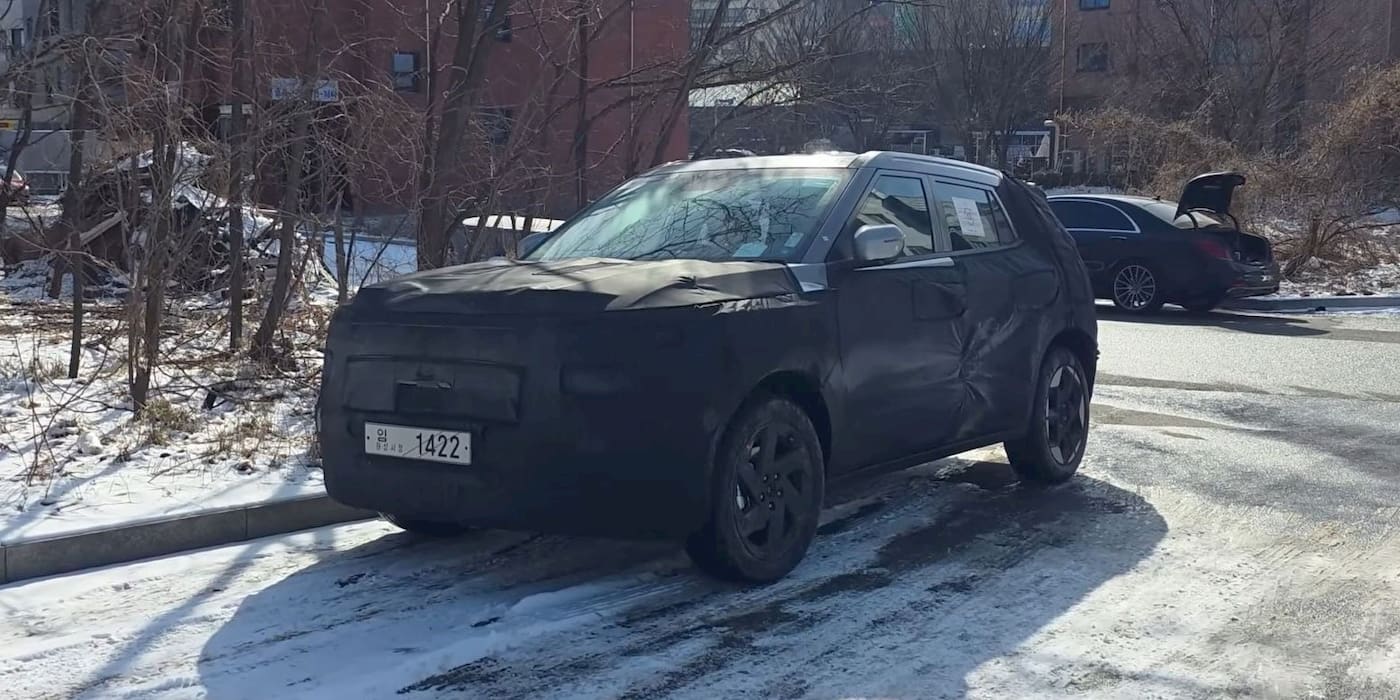
The Hyundai Kona is about to look a lot different. Hyundai is scrapping plans for a mid-cycle facelift and will instead introduce an entirely new Kona.
more…
https://electrek.co/2026/01/29/hyundai-kona-overhaul-based-on-ev-concept/
The Pitt slows back down for some competency porn
(date: 2026-01-29)
Three generations of doctors demonstrate the long arc of a medical career.
https://www.pastemagazine.com/tv/the-pitt/the-pitt-recap-season-2-episode-4-1000-a-m
Tonight's The Traitors lives up to the hype
(date: 2026-01-29)
"Hold my hand, bitch."
https://www.pastemagazine.com/tv/the-traitors-recap-season-4-episode-7-the-black-banquet
Matt Mahan, mayor of San Jose, announces run for governor of California
(date: 2026-01-29)
The former tech entrepreneur joins a sprawling but stagnant field to succeed Gavin Newsom
Matt Mahan, the centrist Democrat and mayor of San Jose, announced on Thursday that he would run for governor of California, joining a sprawling but stagnant field to succeed Gavin Newsom.
Mahan, 43, is a former tech entrepreneur who was first elected mayor of Silicon Valley’s largest city in 2022.
Continue reading...
https://www.theguardian.com/us-news/2026/jan/29/matt-mahan-san-jose-governor-california
The government’s winter of discontent
(date: 2026-01-29)
A big backlash over ICE shootings in Minneapolis may have provoked a change in policy. Will it maybe make the nation feel less like a place at war with itself?
The post The government’s winter of discontent first appeared on Federal News Network.
https://federalnewsnetwork.com/commentary/2026/01/the-governments-winter-of-discontent/
The government’s winter of discontent
(date: 2026-01-29)
A big backlash over ICE shootings in Minneapolis may have provoked a change in policy. Will it maybe make the nation feel less like a place at war with itself?
https://federalnewsnetwork.com/tom-temin-commentary/2026/01/the-governments-winter-of-discontent/
Did You Hear About Our Newest Contributors? Zeteo Is Expanding!
(date: 2026-01-29)
Dr. Feroze Sidhwa, who volunteered in Gaza and veteran media reporter Justin Baragona are bringing their truth to our team.
https://zeteo.com/p/contributors-feroze-sidhwa-justin-baragonaona
When government stops looking ahead, risks multiply: New survey shows foresight fading fast
(date: 2026-01-29)
"I think this is really an essential next step as we look to continuing the transformation that's going on in the government right now," Cunzeman said.
https://federalnewsnetwork.com/management/2026/01/when-government-stops-looking-ahead-the-risks-multiply-a-new-survey-shows-foresight-is-fading-fast/
Toyota’s new C-HR EV isn’t as affordable as expected
(date: 2026-01-29)

The 2026 C-HR is smaller than the bZ and was expected to be the most affordable EV in Toyota’s lineup, starting at under $35,000, but prices are slightly higher than anticipated.
more…
https://electrek.co/2026/01/29/toyotas-new-c-hr-ev-not-as-affordable-as-expected/
MLS to cut a quarter of Spanish-language broadcast talent on Apple TV, according to sources
(date: 2026-01-29)
Major League Soccer will make significant changes to its broadcasts on Apple TV this season, including a significant scaling back of its Spanish-language broadcast talent during the regular season, five sources familiar with the league’s plans said this week. The sources spoke to the Guardian under condition of anonymity because they were not authorized to publicly discuss the league’s plans, which also include downscaling English-language offerings and sending some behind-the-scenes production to the UK.
Executives at MLS and Apple alike placed special emphasis on their Spanish-language broadcast plans when Season Pass debuted in 2023, suggesting the league would put those broadcasts on even footing with their English-language counterparts. Initially that held true, with the league sending a Spanish-language broadcast team to every match. In 2026, with MLS matches now out from behind the Season Pass paywall on Apple TV+, that will no longer be the case.
Continue reading...
https://www.theguardian.com/football/2026/jan/29/mls-apple-tv-broadcast-cuts
At Issue | Separatist cracks at first ministers meeting
(date: 2026-01-29)

At Issue this week: The prime minister and premiers grapple with growing separatist sentiment while trying to pull together for U.S. trade talks. Poilievre makes his case to keep his job after a string of defeats. And Carney swings back at U.S. criticism of his Davos speech.
https://www.cbc.ca/player/play/9.7067546?cmp=rss
ICE ends surge in Maine as border czar pledges to keep operation in Minnesota
(date: 2026-01-29)
Tom Homan acknowledges immigration enforcement needs ‘certain improvements’, without offering any details
Federal authorities have ended their immigration enforcement surge in Maine, a state senator said on Thursday, even as Donald Trump’s “border czar”, Tom Homan, insisted that the much bigger operation in Minnesota would continue.
Susan Collins, a Republican, cited a conversation with homeland security secretary, Kristi Noem, saying that the “enhanced operation” in her state of Maine had been wrapped up.
Continue reading...
https://www.theguardian.com/us-news/2026/jan/29/ice-ends-surge-maine-minnesota-continues
The need to re-think government’s digital approach
(date: 2026-01-29)
Mark Forman, the former administrator for e-government and IT at OMB, explains why it’s time for a mobile-first approach to digital transformation.
https://federalnewsnetwork.com/commentary/2026/01/the-need-to-re-think-governments-digital-approach/
Preparing for looming national cyber security threats in 2026 and beyond
(date: 2026-01-29)
Cyber attacks are becoming focused on targets tied to national security and economic stability.
https://federalnewsnetwork.com/commentary/2026/01/preparing-for-looming-national-cyber-security-threats-in-2026-and-beyond/
How we verify videos from Iran
(date: 2026-01-29)

Despite an internet blackout, some Iranians have managed to use VPNs and Starlink satellite internet to share photos and videos. But how do we know these visuals really show what they claim? CBC's fact-check team breaks down our verification process.
https://www.cbc.ca/player/play/9.7067550?cmp=rss
Justice department charges man accused of attacking Ilhan Omar at town hall
(date: 2026-01-29)
Anthony Kazmierczak faces federal assault charges after he appeared to spray the congresswoman with liquid from a syringe
The Department of Justice has filed federal charges against the man accused of attacking Democratic congresswoman Ilhan Omar at a town hall in Minneapolis on Tuesday. In newly filed court documents, a “close associate” told investigators that the alleged attacker previously said that someone “should kill” the Minnesota lawmaker.
Local police arrested and booked Anthony James Kazmierczak, 55, for third-degree assault after he appeared to spray Omar with an acidic-smelling liquid from a syringe as she addressed constituents from a lectern.
Continue reading...
https://www.theguardian.com/us-news/2026/jan/29/ilhan-omar-attacker-anthony-kazmierczak
Facing mounting energy threats, the Pentagon is betting on industry partnerships to build resilience fast
(date: 2026-01-29)
"Even as a kid I thought to myself, if the enemy were to attack this area, the first thing that they probably would aim at is that power plant," Tom Holm said.
https://federalnewsnetwork.com/contracting/2026/01/facing-mounting-energy-threats-the-pentagon-is-betting-on-industry-partnerships-to-build-resilience-fast/
Critics aghast as White House displays framed photo of Trump with Putin
(date: 2026-01-29)
Lawmaker from Estonia says photo celebrates ‘the greatest war criminal of the 21st century’
Donald Trump has apparently added a framed photo of himself standing with Vladimir Putin to the White House decor, prompting criticism from a senator, members of the media and beyond.
Newly surfaced photos from the Palm Room, which connects the West Wing to the executive residence, show a framed image of the US president and the Russian president at their summit in Alaska last August. Notably, that event marked the first in-person meeting between US and Russian leaders since Russia invaded Ukraine in early 2022. The meeting drew complaints from Democrats who accused him of “cozying up” to Putin, and rolling out “the red carpet” for the Russian leader “instead of “standing with Ukraine and our allies”.
Continue reading...
https://www.theguardian.com/us-news/2026/jan/29/trump-putin-white-house-photo
Trump says deal reached on stopgap spending bill for DHS, but weekend shutdown still possible
(date: 2026-01-29)
The last-minute deal was struck the same day that the Senate failed to advance a spending package that included funding for the Department of Homeland Security.
https://federalnewsnetwork.com/congress/2026/01/trump-says-negotiations-to-avoid-shutdown-are-close-after-senate-blocks-early-vote-on-spending-package-with-dhs-funding/
Mistaken identity leads to police drawing weapons, handcuffing Prince George, B.C., school trustee
(date: 2026-01-29)

A Prince George, B.C., school trustee says she's shaken and scared after being surrounded by police with their guns drawn and then put in handcuffs, in what RCMP say was a case of mistaken identity.
https://www.cbc.ca/news/canada/british-columbia/erica-mclean-rcmp-prince-george-school-trustee-9.7067369?cmp=rss
Save the date: The 2026 Electrek FSGP and American Solar Challenge are heading north
(date: 2026-01-29)

With a new year comes a new season of solar car racing! The official dates for the 2026 Electrek Formula Sun Grand Prix (FSGP) and the 2026 Electrek American Solar Challenge (ASC) have been released.
In addition, I’m excited to share that not only will this year’s FSGP track event be hosted at an entirely new racing complex, but event officials tell me a record 46 teams have registered to compete! This includes colleges from the US, Canada, Belgium, and the Netherlands.
more…
https://electrek.co/2026/01/29/save-the-date-the-2026-electrek-fsgp-and-american-solar-challenge-are-heading-north/
BYD claims 70% of EV and PHEV sales in Mexico as Canada opens the floodgates
(date: 2026-01-29)

BYD already has a strong foothold in Mexico, accounting for around 70% of electric and plug-in hybrid sales. Now, the Chinese EV giant could be looking north, as Canada opens its doors.
more…
https://electrek.co/2026/01/29/byd-claims-70-ev-sales-mexico-as-canada-opens-the-door/
EcoFlow Monthly Madness power station sale with up to 68% savings + flash offers, Lectric Valentine’s Day e-bike sale, more
(date: 2026-01-29)

Today’s Green Deals are focusing on EcoFlow power stations and Lectric e-bikes, as both brands have just launched major sales events. First up is EcoFlow’s January Monthly Madness Sale with up to 68% discounts, bonus savings codes, 3x EcoCredit rewards, and more – not to mention the increased savings on units like the [DELTA Pro 3 Portable Power Station at a new \(1,879 low](https://9to5toys.com/2026/01/29/ecoflow-january-monthly-madness-power-station-sale-from-79/) \+ a parallel flash sale. We also have [Lectric’s Valentine’s Day e-bike sale](https://9to5toys.com/2026/01/29/lectrics-valentines-day-e-bike-sale-from-999/) with up to \)753 savings across its lineup that starts from $999, as well as a parallel Valentine’s Day accessory sale, too. All these and more are waiting for you below, and don’t forget the hangover deals at the bottom of the page, like yesterday’s Heybike Villain Electric Dirt Bike launch deal, the Anker eufy security + SOLIX F3000 bundle lows, and more.
Head below for other New Green Deals we’ve found today and, of course, Electrek’s best EV buying and leasing deals. Also, check out the new Electrek Tesla Shop for the best deals on Tesla accessories.
more…
https://electrek.co/2026/01/29/ecoflow-monthly-madness-sale-lectric-valentines-day-sale-more/
ICE, CBP, USCIS leaders to testify before House Homeland Security Committee
(date: 2026-01-29)
Homeland Security Committee Chairman Andrew Garbarino (R-N.Y.) said transparency and communication are needed to “turn the temperature down.”
https://federalnewsnetwork.com/federal-newscast/2026/01/ice-cbp-uscis-leaders-to-testify-before-house-homeland-security-committee/
Slate Auto shares progress update on truck manufacturing plant set to open this year [Video]
(date: 2026-01-29)

EV newcomer Slate Auto may not have launched its flagship truck to market yet, but it has done an excellent job of keeping the public up to date on the progress of reconfiguring a manufacturing plant in Indiana, as detailed in its latest video, seen below.
more…
https://electrek.co/2026/01/29/slate-auto-progress-update-truck-manufacturing-plant-video/
Venezuela's acting president signs law to open oil sector to privatization
(date: 2026-01-29)

Venezuela's acting president Delcy Rodríguez on Thursday signed a law that will open the nation's oil sector to privatization, reversing a tenet of the self-proclaimed socialist movement that has ruled the country for more than two decades.
https://www.cbc.ca/news/world/venezuela-oil-sector-privatization-9.7067421?cmp=rss
Prime minister meets Heated Rivalry stars, pays tribute to hit show 'that could only be made in Canada'
(date: 2026-01-29)

https://www.cbc.ca/news/canada/livestory/heated-rivalry-hudson-williams-prime-minister-mark-carney-ottawa-9.7067322?cmp=rss
FEMA could still support winter storm response in a shutdown, despite administration warnings
(date: 2026-01-29)
FEMA would have \(7-to-\)8 billion in its Disaster Relief Fund, which should be enough to limit impacts on winter storm response, at least in the short term.
https://federalnewsnetwork.com/government-shutdown/2026/01/fema-could-still-support-winter-storm-response-in-a-shutdown-despite-administration-warnings/
A World Cup boycott would be a big statement but unlikely to accomplish much | Leander Schaerlaeckens
(date: 2026-01-29)
International sporting events don’t often see teams refuse to participate for a cause – but when it’s happened, it hasn’t been effective
It was probably fitting that the first call from someone with genuine power should emanate from Germany, long one of soccer’s moral centers. “The time has definitely come,” German soccer federation vice-president Oke Göttlich told the Hamburger Morgenpost, “to seriously consider and discuss” a boycott of the 2026 World Cup.
“What were the justifications for the boycotts of the Olympic Games in the 1980s?” added Göttlich, who is also the president of FC St. Pauli, Hamburg’s earnestly countercultural club. “By my reckoning, the potential threat is greater now than it was then. We need to have this discussion.”
Continue reading...
https://www.theguardian.com/football/2026/jan/29/world-cup-boycott
Canada separatists accused of ‘treason’ after secret talks with US state department
(date: 2026-01-29)
Alberta activists’ covert meetings with US officials revealed, outlining group’s increasingly emboldened efforts
Covert meetings between separatist activists in the Canadian province of Alberta and members of Donald Trump’s administration amount to “treason”, the premier of British Columbia said on Thursday.
“To go to a foreign country and to ask for assistance in breaking up Canada, there’s an old-fashioned word for that – and that word is treason,” David Eby told reporters.
Continue reading...
https://www.theguardian.com/world/2026/jan/29/david-eby-alberta-separatism-treason
Darren Aronofsky, Google DeepMind, and Salesforce proudly present an AI-Mercian Revolution
(date: 2026-01-29)
Armed with repetitive camera movements, waxen characters, and a human voice cast to satisfy union contracts, the trailer for Time magazine's On This Day… 1776 conjures an ugly look at American history.
https://www.pastemagazine.com/games/darren-aronofsky/american-revolution-1776-on-this-day-darren-aronofsky-trailer
Alaska’s KUAC restores programming through partnership with KTOO
(date: 2026-01-29)
The partnership has restored select programming from World and Create, and KUAC has also reintroduced overnight broadcasts.
The post Alaska’s KUAC restores programming through partnership with KTOO appeared first on Current.
https://current.org/2026/01/alaskas-kuac-restores-programming-through-partnership-with-ktoo/?utm_source=rss&utm_medium=rss&utm_campaign=alaskas-kuac-restores-programming-through-partnership-with-ktoo
Pastor Arrested in ICE Protest Speaks to Zeteo
(date: 2026-01-29)
Pastor Quinlan Koch sits down with Mehdi to discuss ICE’s violent campaign in Minnesota and how he ended up being one of roughly 100 faith leaders arrested during a peaceful protest.
https://zeteo.com/p/pastor-arrested-in-ice-protest-speaks
See Betting Odds for a Government Shutdown on Saturday
(date: 2026-01-29)
This article contains references to products from our advertisers and/or partners, and we may receive compensation when you click on links to products and services A potential U.S. government shutdown is looming again with the…
https://federalnewsnetwork.com/prediction-markets/2026/01/odds-for-government-shutdown-saturday/
Is Trump about to attack Iran? - The Latest
(date: 2026-01-29)
Donald Trump says ‘time is running out’ for Iran as the threat of war appears to loom closer. A huge US armada is being moved towards the country and is seen as the starkest indication yet that Trump intends to strike. The US president had called on the Iranian regime to negotiate a deal on the future of its nuclear programme, only weeks after he promised Iranian protesters ‘help was on the way’ before backtracking days later. Nosheen Iqbal talks to the Guardian’s deputy head of international news, Devika Bhat, about what Trump could do next
Continue reading...
https://www.theguardian.com/news/video/2026/jan/29/is-trump-about-to-attack-iran-the-latest
The 2026 Toyota bZ Woodland costs over $10,000 more than its first EV
(date: 2026-01-29)

The bZ Woodland is longer than Toyota’s first electric SUV, and it comes with all-wheel drive as standard. Is it worth the added price?
more…
https://electrek.co/2026/01/29/2026-toyota-bz-woodland-costs-10000-more-than-first-ev/
Waymo begins autonomous taxi service to SFO airport
(date: 2026-01-29)

Waymo has started providing rides with its autonomous taxi service to San Francisco International airport, starting today for select riders.
more…
https://electrek.co/2026/01/29/waymo-begins-autonomous-taxi-service-to-sfo-airport/
What is behind the extraordinary rise in investment into silver and gold?
(date: 2026-01-29)
Experts say factors including Trump’s aggressive policies and pressure on the dollar are pushing investors toward ‘safe haven’ of precious metals
Last year’s extraordinary run in precious metals has only intensified in 2026, as Donald Trump has continued to rip up the rules of the global economy.
Gold has been on a tear since last summer, repeatedly breaking records. It has risen by more than a quarter this month and hit a new high of just under $5,595 (£4,060) an ounce on Thursday.
Continue reading...
https://www.theguardian.com/business/2026/jan/29/what-is-behind-extraordinary-rise-investment-into-silver-gold
RCMP was told of Ryan Wedding's imminent arrest days in advance, commissioner says
(date: 2026-01-29)

U.S. authorities alerted the RCMP about Ryan Wedding's imminent arrest days before he was taken into U.S. custody in Mexico last week, Commissioner Mike Duheme has told CBC News. The revelation marks the clearest indication yet that investigators knew of the longtime fugitive's whereabouts before Jan. 22, when the Mexican government said Wedding "voluntarily surrendered."
https://www.cbc.ca/news/world/ryan-wedding-rcmp-told-in-advance-9.7067203?cmp=rss
2026 could bring more than budget battles for federal employees
(date: 2026-01-29)
"We're tracking how this goes. I expect it probably to get a little bit worse and then hopefully it starts to get better, but we will see," John Hatton said.
https://federalnewsnetwork.com/congress/2026/01/2026-could-bring-more-than-budget-battles-for-federal-employees/
B.C. Parks camping fees to increase in 2026
(date: 2026-01-29)

The province says B.C. parks have seen record-setting levels of use in recent years — so fees are going up to support park care.
https://www.cbc.ca/news/canada/british-columbia/bc-provincial-park-camping-fees-increasing-2026-9.7067310?cmp=rss
Budapest mayor says he’s proud to face charges for leading Pride parade
(date: 2026-01-29)

Budapest Mayor Gergely Karacsony remains defiant after being criminally charged for his role in organizing his city’s Pride parade last summer in defiance of Hungary’s anti-2SLBGTQ+ laws.
https://www.cbc.ca/radio/asithappens/budapest-mayor-pride-charges-9.7066808?cmp=rss
NDP MP calls on government to sanction Canadian companies doing business with ICE
(date: 2026-01-29)

An NDP MP is calling on the government to take action to stop Canadian businesses from having any dealings with the U.S. Immigration and Customs Enforcement, or ICE.
https://www.cbc.ca/news/politics/ndp-mp-says-block-canadian-business-dealings-with-ice-9.7067230?cmp=rss
Tesla is committing automotive suicide
(date: 2026-01-29)
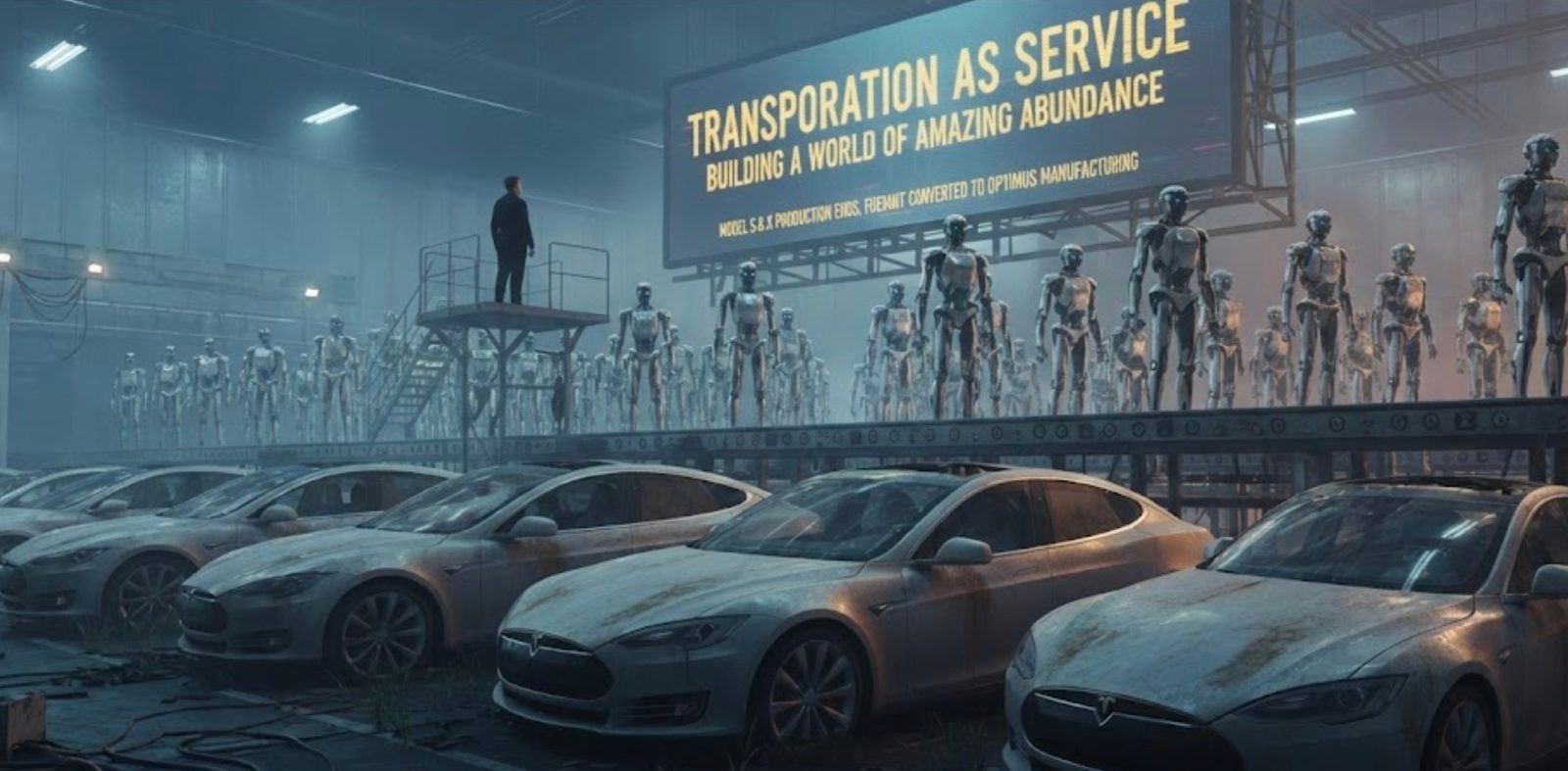
Tesla’s Q4 2025 earnings call made one thing painfully clear: the company is no longer interested in being an automaker.
In a single call, Tesla announced it’s killing the Model S and Model X, has no plans for new mass-market models, and is pivoting entirely to “transportation as a service.” The company that revolutionized the auto industry is walking away from it, not because it failed, but because Elon Musk got bored and found new toys.
more…
https://electrek.co/2026/01/29/tesla-committing-automotive-suicide/
USWNT great Crystal Dunn announces retirement after decorated career
(date: 2026-01-29)
-
Versatile talent helped US to World Cup, Olympic gold
-
Dunn starred in striker, midfield and left back roles
-
2015 NWSL MVP also won three league titles
Crystal Dunn, an Olympic champion and World Cup winner who made 160 appearances for the US women’s national team, announced her retirement from professional soccer on Thursday.
A key figure in the United States’ 2019 World Cup win and their 2024 Olympic triumph, Dunn hoisted the NWSL championship trophy three times, with the North Carolina Courage in 2018 and 2019 and with the Portland Thorns in 2022.
Continue reading...
https://www.theguardian.com/football/2026/jan/29/crystal-dunn-uswnt-retirement
PBS promotes Scott Nourse to CTO
(date: 2026-01-29)
“I look forward to partnering across PBS to build and sustain the platforms and services our stations rely on to serve audiences wherever they watch,” Nourse said.
The post PBS promotes Scott Nourse to CTO appeared first on Current.
https://current.org/2026/01/pbs-promotes-scott-nourse-to-cto/?utm_source=rss&utm_medium=rss&utm_campaign=pbs-promotes-scott-nourse-to-cto
In a Word: A Pair of Parasites
(date: 2026-01-29)
Bloodsucking freeloaders come in all sizes.
In a Word: A Pair of Parasites
The Saturday Evening Post
https://www.saturdayeveningpost.com/2026/01/in-a-word-a-pair-of-parasites/
Hyundai and Kia reveal ‘world first’ advanced sensing tech
(date: 2026-01-29)

Hyundai Motor Company and Kia unveiled a new advanced sensing technology, “Vision Pulse,” which they say can dramatically improve driving safety.
more…
https://electrek.co/2026/01/29/hyundai-kia-reveal-world-first-advanced-sensing-tech/
Jujutsu Kaisen's most incisive episode cuts the patriarchy to bits
(date: 2026-01-29)
Jujutsu Kaisen's latest episode was arguably the series' best, a sharply directed action scene that gave us a reason to care.
https://www.pastemagazine.com/tv/jujutsu-kaisen-zenin-massacre-season-3-episode-4-explained
Gauff’s racket rage fallout: are players right to feel like they’re on Big Brother? | Tumaini Carayol
(date: 2026-01-29)
After the American’s venting went viral, players’ privacy has become a serious issue and deserves to be respected regardless of their income
The court access corridor at Melbourne Park is buried inconspicuously underneath the tournament grounds. A long, spacious walkway, it connects the east and west points of the vast Australian Open venue, allowing competitors to move unaccosted between the courts, player areas and media facilities. Right in the middle of the corridor, a large pair of automatic doors open up to the various private player areas.
Those same doors also lead straight to the entrance of Rod Laver Arena. On Tuesday, in the immediate aftermath of her excruciating 6-1, 6-2 loss to Elina Svitolina, Coco Gauff removed a racket from her bag, exited the double doors into the vacant corridor and up a ramp that she believed was hidden by a wall. She then proceeded to obliterate her racket on the concrete floor. Two days later, the force of that racket smash continues to reverberate around the tour.
Continue reading...
https://www.theguardian.com/sport/2026/jan/29/gauffs-racket-rage-fallout-are-players-right-to-feel-like-theyre-on-big-brother
Mandy Patinkin to complete ascent to godhood as Odin in Amazon’s God of War series
(date: 2026-01-29)
Mandy Patinkin is playing bad guy Odin in Ronald D. Moore's God of War TV series.
https://www.pastemagazine.com/tv/god-of-war/mandy-patinkin-god-of-war-tv
Alberta government workers plan brown bag protest as they return to office: union
(date: 2026-01-29)

Alberta's 9,000 unionized provincial employees are going back to the office full time starting this weekend, but not without a brown bag protest.
https://www.cbc.ca/news/canada/edmonton/alberta-government-workers-aupe-protest-9.7067137?cmp=rss
German, South Korean firms scramble to outbid each other on benefits of submarine deal
(date: 2026-01-29)

This week has seen a flurry of promises, partnerships and proposed deals surrounding Canada’s multi-billion dollar submarine program. Both rival shipyards are lining up potential Canadian partners and business opportunities as the clock ticks down toward the proposal deadline in March
https://www.cbc.ca/news/politics/canada-submarines-germany-korea-automotive-economy-jobs-9.7066957?cmp=rss
What you need to know about those 'Trump Accounts'
(date: 2026-01-29)
The Trump administration held a summit yesterday, all about Trump Accounts — those are investment accounts for babies born during his term. The government has promised to contribute $1,000 to every American child, no matter what their family’s income is. We’ll help you understand the details. Plus, we'll learn how vital Latino-owned businesses are to the economy and unpack the Federal Reserve's decision to leave interest rates unchanged.
https://www.marketplace.org/episode/2026/01/29/what-you-need-to-know-about-those-trump-accounts
Heated Rivalry creators defend Canadian streaming law targeted by White House
(date: 2026-01-29)

The people behind the hit Canadian TV show "Heated Rivalry" defended the Online Streaming Act — which the U.S. has identified as a trade irritant — at a Canadian media production industry conference in Ottawa on Thursday.
https://www.cbc.ca/news/politics/heated-rivalry-online-streaming-act-9.7067108?cmp=rss
Open Tabs: Homan Takes the Reins
(date: 2026-01-29)
The new face of Trump’s Minnesota invasion lays out his intentions as the White House moves to compromise with Democrats on DHS funding.
https://crookedmedia.substack.com/p/open-tabs-homan-takes-the-reins
‘Nothing has changed’: Minneapolis on edge despite Trump’s de-escalation vow
(date: 2026-01-29)
The departure of Greg Bovino has not quelled ICE’s raids – and hope that tensions are easing feels distant
When the belligerent border patrol official Gregory Bovino finally left the Twin Cities this week, there was hope that the tension in the region would dissipate. But in the wake of the deaths of Renee Nicole Good and Alex Pretti, residents say they are still dealing with immigration raids and threats to their safety – and fear the shock waves will be felt for a very long time.
In Saint Paul, city council member Molly Coleman is still taking shifts to watch for federal immigration agents at her son’s daycare. “People are really guarding against false optimism,” she said. “I don’t think anybody in Minnesota is under any illusions that we are suddenly safer than we were this time last week – that constitutional observers are safer, that immigrants are safer, that anybody who looks brown or Black on the streets is safer.”
Continue reading...
https://www.theguardian.com/us-news/2026/jan/29/minneapolis-ice-raids-trump-dispatch
Review: H Is for Hawk — Movies for the Rest of Us with Bill Newcott
(date: 2026-01-29)
H Is for Hawk, ultimately a story of hard-earned triumph over adversities external and within, challenges the viewer in ways few films of its type would dare to.
Review: H Is for Hawk — Movies for the Rest of Us with Bill Newcott
The Saturday Evening Post
https://www.saturdayeveningpost.com/2026/01/review-h-is-for-hawk-movies-for-the-rest-of-us-with-bill-newcott/
Calgary dentist guilty of decade-long insurance fraud handed 3-year sentence
(date: 2026-01-29)

Despite an eleventh hour attempt to secure at least a few more weeks of freedom, Calgary dentist Alena Smadych was handed a three-year prison sentence for a decade-long insurance billing fraud.
https://www.cbc.ca/news/canada/calgary/alena-smadych-guilty-fraud-sentence-dentist-insurance-9.7067084?cmp=rss
‘I’m battling Father Time’: LeBron James reflective and tearful in possible Cleveland farewell
(date: 2026-01-29)
The future Hall of Famer was given a warm welcome against the team where he began his career. But Wednesday’s game felt particularly poignant
A 60-second tribute video honoring LeBron James has become routine over the past eight years whenever he returns to Cleveland, the city where his NBA journey began.
But Wednesday night at Rocket Arena was different – and it felt that way long before James’s Los Angeles Lakers fell 129-99 to the Cavaliers in a nationally televised game.
Continue reading...
https://www.theguardian.com/sport/2026/jan/29/im-battling-father-time-lebron-james-reflective-and-tearful-in-possible-cleveland-farewell
Officers reassigned after alleged assault of Oshawa, Ont., lawyer. Police watchdog not investigating
(date: 2026-01-29)

Ontario’s police watchdog says it is not investigating the case of a lawyer who is alleging that multiple Durham Regional Police Service officers slammed her head on a desk without provocation and dragged her to the basement cells of the Oshawa courthouse last week.
https://www.cbc.ca/news/canada/toronto/sui-oshawa-courthouse-investigation-9.7067100?cmp=rss
Outlander pulls on heartstrings, teases major deaths in final season trailer
(date: 2026-01-29)
The eighth and final season of Outlander hits Starz on March 6.
https://www.pastemagazine.com/tv/outlander/outlander-season-eight-trailer
Missing baby presumed dead after father charged with killing mother in St. Albert, Alta., police say
(date: 2026-01-29)

Police identified a suspect on Jan. 27 and have charged 33-year-old Christopher Beasley with one count of second-degree murder for the death of Ayla Egotik-Learn.
https://www.cbc.ca/news/canada/edmonton/st-albert-alta-homicide-rcmp-9.7066798?cmp=rss
The Lucid Air proves it’s the ‘king of range’ again, crushing Norway’s EV Winter Test
(date: 2026-01-29)

The Lucid Air Grand Touring outlasted the competition during Norway’s NAF Winter Test, driving more than 320 miles (519 km) in the frigid cold.
more…
https://electrek.co/2026/01/29/lucid-air-king-of-range-again-crushing-norways-ev-winter-test/
LIV and let die: Reed’s return to PGA fold shows why Saudi golf experiment is doomed | Ewan Murray
(date: 2026-01-29)
Despite an estimated outlay of $6bn since 2022, LIV appears to be far away from establishing itself in the the manner of PIF projects in other sports
tIn one sense, it is difficult to detect anything warm and cuddly in all of this. Elite golfers, who were already obscenely rich, take the bounty on offer from a Saudi Arabian-backed disruption model before shuffling back whence they came – essentially for a trivial penalty – when the novelty wears off. This is hardly sport at its purest. Instead, an admission by Brooks Koepka and Patrick Reed that they blundered in believing the fairways were greener on the LIV side. The PGA Tour, desperate to portray itself as the big boy in the playground, welcomes one-time pariahs back with open arms. Other golfers who spurned LIV’s fluttering eyelashes scratch their heads, wondering why they bothered.
There is, however, an underlying and endearing point. All the petroleum pounds in the world are no substitute for legacy. Trying to match the achievements of Arnold Palmer, Tiger Woods and Rory McIlroy carries significance. LIV golf has no relevance beyond its own domain. Saudi Arabia has made inroads into various sports but, in golf, the kingdom is unquestionably doomed. LIV is on the road towards oblivion, far earlier than most had anticipated. Only those who will gain financially from its continuation can try to spin an alternative story.
Continue reading...
https://www.theguardian.com/sport/2026/jan/29/reed-return-to-pga-saudi-golf-experiment-doomed
Rip director Joe Carnahan accused of sexual battery in messy lawsuit
(date: 2026-01-29)
Two weeks after The Rip tore through Netflix, Joe Carnahan stands accused of sexual battery, stalking, and assault by a former lover. Carnahan denies the allegations.
https://www.pastemagazine.com/movies/joe-carnahan-sexual-battery-suit
Can Minnesota Murders Break Trump’s Grip on the GOP?
(date: 2026-01-29)
Probably not, but it is loosening.
https://zeteo.com/p/trump-minnesota-murders-break-grip
Unpacking the shared survival kit of the desert island movie
(date: 2026-01-29)
Inspired by Sam Raimi's latest, we analyze what makes being marooned on a desert island so cinematic in the first place.
https://www.pastemagazine.com/movies/disasters/desert-island-movie-survival-guide
Minneapolis ICE observers keep showing up despite risk of arrest and violence
(date: 2026-01-29)
Bystanders say they are determined to keep recording federal agents’ actions: ‘There will be absolutely no accountability unless people are documenting’
Brandon Sigüenza saw his first federal immigration agent just one minute before he was arrested by one.
He and his friend, Patty O’Keefe, were following ICE officers in their vehicle after receiving an alert that agents were nearby. Soon after arriving to observe the scene, an agent approached their car and sprayed chemicals into the front vents, then began shouting.
Continue reading...
https://www.theguardian.com/us-news/2026/jan/29/minneapolis-ice-observers
Public Media Bridge Fund announces new emergency and disaster programs
(date: 2026-01-29)
The Public Media Bridge Fund has raised \(66.5 million of its \)110 million goal so far, according to Program Officer Allie Vanyur.
The post Public Media Bridge Fund announces new emergency and disaster programs appeared first on Current.
https://current.org/2026/01/public-media-bridge-fund-announces-new-emergency-and-disaster-programs/?utm_source=rss&utm_medium=rss&utm_campaign=public-media-bridge-fund-announces-new-emergency-and-disaster-programs
Kennedy Center official resigns less than two weeks after hiring
(date: 2026-01-29)
Kevin Couch says he ‘resigned yesterday’, amid recent turmoil following a leadership overhaul initiated by Trump
The newly appointed senior vice-president of artistic programming at Washington DC’s John F Kennedy Center for the Performing Arts, Kevin Couch, has resigned less than two weeks after his hiring was announced.
Couch confirmed he “resigned yesterday” in a statement to the Guardian on Thursday.
Continue reading...
https://www.theguardian.com/us-news/2026/jan/29/trump-kennedy-center-kevin-couch-resigns
Champions League review: discontent for Real Madrid in a chaotic conclusion to group play
(date: 2026-01-29)
Álvaro Arbeloa’s team have concerns as they look ahead to the knockout stages, while Jamie Carragher has concerns about the draw
It was billed by broadcasters as “Matchday Mayhem”. Finally, after 17 of the 18 final day matches had finished, came a chaotic denouement. Not even José Mourinho’s long Champions League heritage had included a moment like this, though his wild celebration was familiar. Benfica were beating Real Madrid 3-2, and Mourinho’s former club were already dropping out of the top eight. “I was told [the scoreline] is enough, so let’s close the door,” said Mourinho.
Continue reading...
https://www.theguardian.com/football/2026/jan/29/champions-league-review-discontent-for-real-madrid-in-a-chaotic-conclusion-to-group-play
They couldn’t locate 3 guns for 7 months. Now Halifax RCMP have made changes
(date: 2026-01-29)

RCMP in Halifax have changed how they keep track of guns after they were unable to account for three carbines for seven months.
https://www.cbc.ca/news/canada/nova-scotia/rcmp-missing-guns-carbines-9.7066747?cmp=rss
Tesla panic-files ‘Cybercar’ and ‘Cybervehicle’ trademarks moments after Musk says them
(date: 2026-01-29)

Tesla filed two new trademark applications within 37 seconds of each other last night, moments after Elon Musk used the terms on the company’s Q4 2025 earnings call. It follows Tesla having issues securing the ‘Cybercab’ trademark because of its own tardiness again.
Welcome to Tesla’s new trademark strategy: panic-filing in real time.
more…
https://electrek.co/2026/01/29/tesla-panic-files-cybercar-cybervehicle-trademarks-moments-after-musk-says-them/
Nurse who gave patient drugs that stopped his heart stripped of licence for 'egregious' misconduct: college
(date: 2026-01-29)

A "grossly incompetent or grossly negligent" Manitoba nurse has been stripped of her licence and fined $10,000 after admitting to wrongly administering fentanyl and another drug that caused a patient's heart to stop last fall, a licensing body says.
https://www.cbc.ca/news/canada/manitoba/nurse-stripped-licence-international-nurse-certification-9.7066333?cmp=rss
Why are ICE agents going to the Winter Olympics in Italy? – video explainer
(date: 2026-01-29)
A unit of Immigration and Customs Enforcement (ICE) agents will join a US delegation to the Winter Olympics in Italy, sparking confusion and uproar in the country.
Guardian reporter Jakub Krupa looks at what role the agency, which is embroiled in a violent US immigration crackdown, might have at the Milan-Cortina Games.
ICE said agents would 'vet and mitigate risks from transnational criminal organisations' but not run enforcement operations.
Milan’s mayor, Giuseppe Sala, said the the agents would be unwelcome in the city. 'This is a militia that kills,' he said
Continue reading...
https://www.theguardian.com/us-news/video/2026/jan/29/why-ice-agents-winter-olympics-italy-video
5-Minute Fitness: Knee Strengthener
(date: 2026-01-29)
Keep your knees healthy by incorporating these knee-strengthening exercises into your workout regimen.
5-Minute Fitness: Knee Strengthener
The Saturday Evening Post
https://www.saturdayeveningpost.com/2026/01/5-minute-fitness-knee-strengthener/
Tesla's Profits Are Plummetting As It Steers Toward AI
(date: 2026-01-29)
Plus, Tesla puts a major stake in xAI and there's a real autonomous trucking service in the U.S. now.
https://insideevs.com/news/785757/tesla-auto-profit-fell-46/
Hikers spot hundreds of flowers blooming on Jan. 1 in U.K.
(date: 2026-01-29)

In this issue of our environmental newsletter, we see the blooming changes that hikers have noticed in the U.K., get a look at EV models with built-in solar panels and check out an award-winning forest grown from memorial trees.
https://www.cbc.ca/news/climate/what-on-earth-plant-hunt-9.7066302?cmp=rss
Stepfather of missing N.S. children facing charges involving adult
(date: 2026-01-29)

Daniel Martell, the stepfather of two children who disappeared from their Pictou County home nearly nine months ago, is facing three charges.
https://www.cbc.ca/news/canada/nova-scotia/daniel-martell-charged-assault-9.7066651?cmp=rss
This Small Skoda Might Become One Of Europe’s Most Popular EVs
(date: 2026-01-29)
The Epiq will become the cheapest electric Skoda, but it won’t skimp on range or space.
https://insideevs.com/news/785840/skoda-epiq-prototype-photos-teaser/
Kansas City PBS CEO Kliff Kuehl to retire
(date: 2026-01-29)
Kuehl joined Kansas City PBS in 2009.
The post Kansas City PBS CEO Kliff Kuehl to retire appeared first on Current.
https://current.org/2026/01/kansas-city-pbs-ceo-kliff-kuehl-to-retire/?utm_source=rss&utm_medium=rss&utm_campaign=kansas-city-pbs-ceo-kliff-kuehl-to-retire
Klobuchar declares Minnesota governor run as Walz vows not to seek office again
(date: 2026-01-29)
Senator says she is running ‘for every Minnesotan who wants ICE and its abusive tactics out of the state we love’
Amy Klobuchar, the Democratic US senator and one-time presidential candidate, announced she will run for governor of Minnesota, an expected move after the incumbent governor, Tim Walz, dropped out of the race in early January.
Klobuchar’s announcement comes less than 24 hours after Walz said that he would never run for public office again.
Continue reading...
https://www.theguardian.com/us-news/2026/jan/29/amy-klobuchar-minnesota-governor-campaign
Serena Williams open-minded about return to tennis: ‘I’m gonna see what happens’
(date: 2026-01-29)
Serena Williams has refused to rule out making a shock return to tennis. The 44-year-old has not played professional tennis since losing to Ajla Tomljanovic at the 2022 US Open, although she branded her departure as “evolving away” from the sport rather than a retirement.
Williams brushed off speculation in December she was considering a comeback despite re-entering the sport’s drug testing pool. But the 23-time grand slam singles champion was not as dismissive about a return in an interview on NBC’s The Today Show.
Continue reading...
https://www.theguardian.com/sport/2026/jan/29/serena-williams-open-minded-about-return-to-tennis-im-gonna-see-what-happens
Israel releases bodies of 15 Palestinians in final exchange of truce deal's 1st phase
(date: 2026-01-29)

The bodies of 15 more unidentified Palestinians were handed over by Israel Thursday, in the final exchange of prisoners and detainees between Israel and Hamas.
https://www.cbc.ca/news/world/bodies-palestinians-israel-handover-gaza-9.7066579?cmp=rss
William Greaves died a decade ago, and he just released one of the best movies at Sundance
(date: 2026-01-29)
William Greaves' stunning Once Upon A Time In Harlem lets us attend one of the greatest parties ever thrown, more than 50 years later.
https://www.pastemagazine.com/movies/sundance/once-upon-a-time-in-harlem-william-greaves-david-greaves-sundance-2026
The National Film Registry Announces Its Latest Inductees
(date: 2026-01-29)
White Christmas, Before Sunrise, and The Incredibles are among the newest inductees to the National Film Registry.
The National Film Registry Announces Its Latest Inductees
The Saturday Evening Post
https://www.saturdayeveningpost.com/2026/01/the-national-film-registry-announces-its-latest-inductees/
Bari Weiss’s new CBS hires include ‘germ theory denialist’ doctor
(date: 2026-01-29)
Dr Mark Hyman, who claimed he reduced his biological age by 20 years, brought on as a contributor
Among the new hires at CBS announced by Bari Weiss is a doctor who has claimed that he has reduced his biological age by 20 years with therapies including cold plunges; that cod liver oil can treat autism and that conditions like Alzheimer’s and dementia can be reversed with the kind of nutritional supplements he also sells on his online store.
Dr Mark Hyman, who has been called a “ germ theory denialist” by medical author Harriet Hall, and has been brought on as a contributor in Weiss’s revamping of CBS’s news division. He is perhaps the most prominent exponent of so-called “functional medicine” (FM), an alternative medicine that oncological surgeon David Gorski has described as “ pure quackery”.
Continue reading...
https://www.theguardian.com/us-news/2026/jan/29/bari-weiss-cbs-mark-hyman
5 songs you need to hear this week (January 29, 2026)
(date: 2026-01-29)
This week's best new songs roundup features Jessie Ware’s piled-on disco-soul harmonies, Sam Goku’s Diana Ross sample flip, and Brown Horse’s lubed-up rock and roll.
https://www.pastemagazine.com/music/best-new-songs/best-new-songs-january-29-2026
The costs of banning gender-affirming care
(date: 2026-01-29)
Last year, President Donald Trump issued an executive order aimed at ending gender-affirming care for transgender children and teenagers under 19. Since then, the Department of Health and Human Services proposed a new rule that would ban hospitals offering that care from receiving Medicaid and Medicare funding. The attacks on transition-related care are having a profound effect on transgender kids and their families, but they’re also having an impact on health care providers. Today, we'll hear more. But first: progress on a deal to avoid a partial government shutdown.
https://www.marketplace.org/episode/2026/01/29/the-costs-of-banning-genderaffirming-care
Trade talks underway between the U.K. and China
(date: 2026-01-29)
From the BBC World Service: U.K. Prime Minister Keir Starmer is the latest political leader to visit China for trade talks. Chinese President Xi Jinping told Starmer that Beijing is ready to develop a long-term strategic partnership. Since President Donald Trump imposed tariffs on most imports, countries around the world have been scrambling to sign new trade deals. Plus, as South Africa has been grappling with 30% U.S. tariffs, farmers there are also looking to China.
https://www.marketplace.org/episode/2026/01/29/trade-talks-underway-between-the-uk-and-china
Footage shows altercation between Alex Pretti and federal officers 11 days before he was killed | First Thing
(date: 2026-01-29)
New video shows the Minneapolis ICU nurse being tackled by federal agents in a previous confrontation. Plus, is this the end of gentle parenting?
Good morning.
Footage emerged on Wednesday of a previous altercation between Alex Pretti and federal agents, 11 days before federal officers fatally shot the ICU nurse in Minneapolis.
Trump administration officials initially claimed Pretti was “brandishing” a gun when he was killed – is that true? No, video evidence directly contradicts this claim. Footage from his killing on 24 January shows Pretti holding a phone, not a gun. Pretti, who state officials have confirmed had a license to carry his firearm, had been disarmed before the first shots were fired.
Did he have a gun on 13 January? There appears to be a gun in his waistband, but Pretti does not touch it during or after the altercation.
How many have been killed in the crackdown? Estimates vary significantly. The US-based Human Rights Activists news agency, whose figures have been reliable during previous crackdowns, says it has verified more than 6,000 dead and is investigating more than 17,000 further recorded deaths.
Continue reading...
https://www.theguardian.com/us-news/2026/jan/29/first-thing-footage-alex-pretti-federal-officers-11-days-before-killed
'Grandma' gold: Canadian snowboard legend Mark McMorris knows Olympic victory carries special meaning
(date: 2026-01-29)

Veteran snowboarder Mark McMorris has won a bronze medal in slopestyle in each of the past three Olympic Games. In Milano Cortina, he's determined to change the colour to gold.
https://www.cbc.ca/sports/olympics/winter/snowboard/olympics-snowboard-mark-mcmorris-milano-cortina-jan29-9.7066481?cmp=rss
First Draft: Imagine If There Were No Video!
(date: 2026-01-29)
The White House fails to warp reality around Alex Pretti’s murder, Marco Rubio gets spanked on Capitol Hill, and MAGA’s new power couple is... Donald Trump and Nicki Minaj. 🤢
https://zeteo.com/p/imagine-if-there-were-no-video
Snow-shovelling Mamdani was hard to miss as New York tackled winter storm
(date: 2026-01-29)
Mayor was a highly visible presence during icy blizzard and, unlike some of his predecessors, seemed to get things right
Winter storms have historically been a landmine for New York City’s mayors, with every inch of snow bringing the potential for public criticism over unglamorous issues such as plow deployment and salt distribution.
There’s a long history of experienced mayors getting it wrong. But Zohran Mamdani, the newly elected New York City leader, appears to have passed his first test with flying colors.
Continue reading...
https://www.theguardian.com/us-news/2026/jan/29/zohran-mamdani-new-york-mayor-storm
Musk says Tesla could have 2 million robotaxis in a year, more than it can build
(date: 2026-01-29)

On Tesla’s Q4/FY2025 earnings call yesterday, Musk mused about the growth rate of its paid robotaxi service, which it launched in Austin this year.
But there’s little evidence that the network is working at the level he claims it is today, and it seems extremely unlikely that it will scale at the rate he claimed either.
more…
https://electrek.co/2026/01/29/musk-says-tesla-could-have-2-million-robotaxis-in-a-year-more-than-it-can-build/
25 EVs Were Range-Tested In Extreme Cold. It Didn’t Go Well
(date: 2026-01-29)
Driving at the speed limit while the thermometer shows -24 degrees can take a toll on any car, not just EVs.
https://insideevs.com/news/785827/winter-extreme-cold-range-test-el-prix-2026/
Cryptosporidium confirmed in Kashechewan First Nation water treatment plant, 63 test positive for parasite
(date: 2026-01-29)

Water from Kashechewan First Nation's treatment plant has tested positive for cryptosporidium, a parasite that causes gastrointestinal issues, and 63 people have also tested positive as the crisis has led to the evacuation of most of the 2,300 residents. An official and a resident say it's bringing back bad memories of an E. coli outbreak in 2005.
https://www.cbc.ca/news/canada/sudbury/kashechewan-water-treatment-cryptosporidium-9.7066488?cmp=rss
India reports 2 Nipah virus cases. What the infection is and how it spreads
(date: 2026-01-29)

India has confirmed two cases of the deadly Nipah virus. Here are answers on what the infection is and what happened in previous outbreaks in Asian countries.
https://www.cbc.ca/news/health/nipah-virus-india-9.7066315?cmp=rss
Students in charge: Yukon University launches bridging program
(date: 2026-01-29)

Tr'ondëk Hwëch'in First Nation has partnered with Yukon University and third-party funder EleV to create the school’s first bridging program. The program is meant to support students in achieving their post-secondary learning goals by giving flexible class schedules, grading options, and offering a variety of programs.
https://www.cbc.ca/news/canada/north/yukon-university-launches-bridging-program-9.7065885?cmp=rss
Nirvanna the Band loads up time-traveling RV in exclusive new look at Nirvanna The Band The Show The Movie
(date: 2026-01-29)
Party like it's 2008 again with an exclusive first-look at Nirvanna The Band The Show The Movie.
https://www.pastemagazine.com/movies/nirvanna-the-band-the-show-the-movie/nirvanna-the-band-the-tv-show-the-movie-first-look
Charli xcx performs an ambivalent brat send-off in The Moment
(date: 2026-01-29)
Charli xcx couldn't let the brat era end without a tour movie. But she couldn't leave the tour movie alone, either, in The Moment.
https://www.pastemagazine.com/movies/the-moment-review
A recycling startup joins the AI boom
(date: 2026-01-29)
Marketplace’s Meghan McCarty Carino takes a tour of Redwood Material’s new R&D Lab with CTO Colin Campbell. Redwood, an EV battery recycling startup, is now offering off-grid, renewable energy grids to AI data centers and it’s looking to scale up its operations in this AI boom.
https://www.marketplace.org/episode/2026/01/29/a-recycling-startup-joins-the-ai-boom
No sea ice, no problem for these Barents Sea bears — for now
(date: 2026-01-29)

Studying close to 800 bears over nearly 25 years shows that polar bear populations in the rapidly warming Barents Sea, off the northern coasts of Norway and Russia, are doing better than polar bears in other parts of the Arctic.
https://www.cbc.ca/news/climate/polar-bears-barents-sea-svalbard-climate-9.7066053?cmp=rss
B.C. premier says Alberta separatists seeking assistance from U.S. is 'treason'
(date: 2026-01-29)

British Columbia Premier David Eby says Alberta separatists meeting with the U.S. administration and seeking financial backing is an act of "treason," as the issue of national sovereignty loomed over a meeting between the premiers and Prime Minister Mark Carney on Thursday.
https://www.cbc.ca/news/politics/eby-alberta-separatism-9.7066320?cmp=rss
Kennedy Center's Head Of Programming quits after 12 days
(date: 2026-01-29)
Kevin Couch's tenure ends after Philip Glass and Renée Fleming cancelled planned performances at the center.
https://www.pastemagazine.com/media/kennedy-center/kennedy-center-head-of-programming-quits
Joni Mitchell and the guitar that traveled
(date: 2026-01-29)
Joni’s music is one of stylistic turns, but her acoustic guitar playing reveals an affection for jazz even in her earliest works.
https://www.pastemagazine.com/music/joni-mitchell/joni-mitchell-and-the-guitar-that-traveled
Democrats strike a spending deal with White House that would avert full government shutdown
(date: 2026-01-29)

Democrats and the White House struck a deal Thursday to avert a partial government shutdown and temporarily fund the U.S. Department of Homeland Security as they consider new restrictions for Donald Trump's surge of immigration enforcement.
https://www.cbc.ca/news/world/trump-ice-immigration-shutdown-9.7066157?cmp=rss
Canadian mining firm says 10 employees abducted in Sinaloa, Mexico
(date: 2026-01-29)

A Vancouver-based mining company says 10 of its employees were abducted from one of its project sites in the city of Concordia in the western Mexican state of Sinaloa, which has been gripped by a cartel civil war since 2024.
https://www.cbc.ca/news/world/mining-sinaloa-abduction-mexico-9.7066206?cmp=rss
Trump border czar Tom Homan promises more targeted immigration enforcement in Minnesota
(date: 2026-01-29)

U.S. border czar Tom Homan, newly installed as commander of President Donald Trump's immigration enforcement surge in Minneapolis, promised targeted and strategic enforcements focusing on unauthorized residents with a criminal history.
https://www.cbc.ca/news/world/minnesota-us-govt-homan-latest-9.7066152?cmp=rss
The nightlife is not for everybody in this exclusive clip from A Poet
(date: 2026-01-29)
The new movie from Simón Mesa Soto sees a failed writer muster enough hope to help a young poet achieve greatness.
https://www.pastemagazine.com/movies/simon-mesa-soto/a-poet-exclusive-clip-simon-mesa-soto-movies
Archaeology field school planned this spring for ancient cave near Fort St. John, B.C.
(date: 2026-01-29)

One of over 57,000 known archaeological sites in the province, Tse'k'wa is a record of 12,500 years of human settlement and environmental change dating back to the last ice age. It's a sacred space to Doig River, Prophet River, and West Moberly First Nations, whose Dane-zaa ancestors inhabited the site for generations.
https://www.cbc.ca/news/canada/british-columbia/field-school-planned-spring-2026-tsekwa-9.7060303?cmp=rss
Federal Reserve votes to hold rates steady despite pressure from Trump
(date: 2026-01-29)
President Trump has been pressing the Federal Reserve to cut interest rates more aggressively, but the central bank voted to hold rates steady for now, as it tries to bring down inflation.
https://www.npr.org/2026/01/29/nx-s1-5691573/federal-reserve-votes-to-hold-rates-steady-despite-pressure-from-trump
Federal officers clash with Alex Pretti 11 days before his killing – video
(date: 2026-01-29)
A video filmed by a bystander shows a confrontation between Alex Pretti and federal agents on 13 January. The event happened 11 days before the ICU nurse at the local military veterans’ hospital was fatally shot by federal officers in Minneapolis.
Officers appeared to grab Pretti and bring him to the ground during intense community protests against the federal crackdown in Minneapolis. About two minutes of an exclusive video, published on Wednesday by the News Movement, a digital news outlet, shows Pretti yelling at agents in an unmarked vehicle and kicking the tail light of the car as it moves away.
Soon after, a heavily armed agent in tactical gear is seen leaving the car . It is unclear what preceded the events caught on camera. A family representative confirmed to the Guardian that it was Pretti in the footage published on Wednesday. A representative also said they had been aware of the incident and that Pretti sustained injuries, but did not get medical care.
Steve Schleicher, an attorney representing Pretti’s family, said in a statement: 'A week before Alex was gunned down in the street – despite posing no threat to anyone – he was violently assaulted by a group of ICE agents. Nothing that happened a full week before could possibly have justified Alex’s killing.'
Continue reading...
https://www.theguardian.com/us-news/video/2026/jan/29/federal-officers-clash-alex-pretti-days-before-his-killing-video
Odessa A'zion drops out of A24 movie Deep Cuts after casting backlash
(date: 2026-01-29)
The actor faced backlash online after it was reported she'd portray a character of Mexican heritage.
https://www.pastemagazine.com/movies/deep-cuts/odessa-azion-drops-out-deep-cuts
How fake UL-certifications lead to Amazon’s major Chinese e-bike lawsuit
(date: 2026-01-29)

Years ago, UL certification was a niche detail in the e-bike industry, often buried deep in spec sheets if it was there at all. But today, it’s one of the most important labels in the entire e-bike industry – and now, it’s at the center of a major lawsuit involving counterfeit safety marks, Chinese manufacturers, and the world’s largest online retailer.
more…
https://electrek.co/2026/01/29/how-fake-ul-certifications-lead-to-amazons-major-chinese-e-bike-lawsuit/
The Soft Pink Truth stops by the conservatory on Can Such Delightful Times Go on Forever?
(date: 2026-01-29)
Drew Daniel’s latest album takes its cues from the concert hall, incorporating strings, horns, and symphonic percussion, and travels down non-linear, temporal paths.
https://www.pastemagazine.com/music/the-soft-pink-truth/the-soft-pink-truth-can-such-delightful-times-go-on-forever-album-review
British PM Starmer says 'really good progress' made in China talks on trade, travel issues
(date: 2026-01-29)

The leaders of Britain and China called Thursday for a "strategic partnership" to deepen ties between their nations at a time of growing global turbulence as they sought to thaw relations after years of chill.
https://www.cbc.ca/news/world/beijing-china-uk-starmer-jinping-9.7066150?cmp=rss
Here's How Much Range EVs Really Lose After 150,000 Miles
(date: 2026-01-29)
The data is clear: battery anxiety doesn’t match battery reality.
https://insideevs.com/news/785794/ev-range-loss-high-mileage-data/
Pod Save America: OnlyFriends (Trump's Worst Hire and Andrew Tate Retreats)
(date: 2026-01-29)
More Pod Save America, just for subscribers.
https://crookedmedia.substack.com/p/pod-save-america-onlyfriends-trumps
Home to the world’s largest lamp, this small Alberta village is deciding its next chapter
(date: 2026-01-29)

A central Alberta community is divided on a crucial vote to determine its future — whether it should continue existing as a village or be dissolved into the neighbouring county.
https://www.cbc.ca/news/canada/edmonton/donalda-village-status-alberta-9.7065941?cmp=rss
FBI carries out search warrant for 2020 election ballots at Atlanta-area site
(date: 2026-01-29)

The FBI on Wednesday searched the election office of a Georgia county that has been central to right-wing conspiracy theories over U.S. President Donald Trump's 2020 election loss, acting just one week after the Republican leader predicted prosecutions over a contest he has baselessly insisted was tainted by widespread fraud.
https://www.cbc.ca/news/world/fbi-atlanta-fulton-raid-2020-election-9.7066096?cmp=rss
Lockdown lifted in Cree Nation of Mistissini after fatal shootings
(date: 2026-01-29)

The Cree Nation of Mistissini has lifted a lockdown put in place early Thursday after two men in their 30s were killed in a shooting.
https://www.cbc.ca/news/canada/montreal/cree-nation-of-mistissini-lockdown-fatal-shooting-9.7066128?cmp=rss
Canada's Dabrowski, new partner eliminated in Australian Open women's doubles semifinal
(date: 2026-01-29)

Canada's Gabriela Dabrowski and Brazil's Luisa Stefani fell 7-6 (2), 3-6, 6-4 to Kazakhstan's Anna Danilina and Serbia's Aleksandra Krunic in the women's doubles semifinals at the Australian Open on Thursday in Melbourne.
https://www.cbc.ca/sports/tennis/sabalenka-australian-open-roundup-9.7066124?cmp=rss
B.C. woman urges dog owners to watch their pets on walks after husky overdoses on cocaine
(date: 2026-01-29)

A British Columbia woman is warning dog owners to watch what their pets touch on walks, after her two-year-old husky overdosed on cocaine. The Canadian Veterinary Medical Association says this is a problem across Canada. While it doesn't collect data on dog overdoses, it says, anecdotally, vets are seeing more of them.
https://www.cbc.ca/news/canada/british-columbia/bc-dog-overdose-cocaine-owner-vets-warn-of-dangers-9.7065870?cmp=rss
Faced with surging demand, Alberta broke housing construction records. Is there a lesson there?
(date: 2026-01-29)

Alberta broke housing construction records in 2025 and led the country in housing starts per capita. The massive upswing in homebuilding comes after a period of similarly massive population growth, and some experts say there are lessons other cities in Canada could learn about how to ramp up housing supply to meet demand.
https://www.cbc.ca/news/canada/calgary/alberta-housing-population-boom-9.7065431?cmp=rss
General Motors to lay off up to 1,200 workers in Oshawa, Ont., on Friday
(date: 2026-01-29)

Decoding a spate of posts made by U.S. government accounts that resemble or borrow from the fascist and extreme far-right traditions.
https://www.cbc.ca/radio/frontburner/trump-2-0s-nazi-coded-social-feeds-9.7065646?cmp=rss
Indigenous leaders urge citizens to carry status cards or tribal IDs in U.S.
(date: 2026-01-29)

Indigenous leaders on both sides of the border are advising their citizens on how to deal with U.S. Immigration and Customs Enforcement (ICE) agents if approached.
https://www.cbc.ca/news/indigenous/status-cards-ice-narf-afn-9.7061793?cmp=rss
Sask. to launch Indigenous court pilot, aiming to reduce overrepresentation in custody
(date: 2026-01-29)

The provincial government intends to launch an Indigenous provincial court in Saskatoon this summer.
https://www.cbc.ca/news/canada/saskatchewan/sask-indigenous-overrepresentation-2026-provincial-court-9.7063739?cmp=rss
Misleading videos on social media are targeting travellers to Canada for FIFA World Cup
(date: 2026-01-29)

Videos making false claims about Canada's immigration policies are popping up on TikTok and Instagram in an attempt to scam travellers coming to FIFA World Cup matches this summer, according to immigration and anti-fraud experts.
https://www.cbc.ca/news/canada/misleading-immigration-fifa-world-cup-9.7065818?cmp=rss
Poilievre courts delegates as he faces a must-win leadership review vote
(date: 2026-01-29)

Conservative Leader Pierre Poilievre's fate will be put to delegates at the party's convention in Calgary on Friday. While those around him are confident he can avoid being turfed, the leader's loyalists are doing all they can to ensure he easily clears this must-win vote.
https://www.cbc.ca/news/politics/poilievre-leadership-review-vote-9.7065628?cmp=rss
Optimism is 'kind of a lie,' says Natalie Portman. And that's what makes Arco hopeful
(date: 2026-01-29)

Star and co-producer Natalie Portman and writer-director Ugo Bienvenu speak to CBC News about their Oscar-nominated film Arco and how it rejects fatalistic ideas of optimism or pessimism.
https://www.cbc.ca/news/entertainment/arco-natalie-portman-ugo-bienvenu-9.7065799?cmp=rss
Alleged drug lord Ryan Wedding sought injunction to prevent arrest a year ago, legal documents show
(date: 2026-01-29)

Longtime fugitive Ryan Wedding sought a court order to prevent his arrest in Mexico’s Sinaloa state nearly a year before he was finally taken into U.S. custody last week, according to Mexican legal records obtained by CBC News. The documents suggest the Canadian, who is accused of leading a cocaine-smuggling network linked to the Sinaloa cartel, believed Mexican authorities were closing in on him in early 2025.
https://www.cbc.ca/news/world/ryan-wedding-2025-court-injunction-9.7065388?cmp=rss
Should the Canadian Coast Guard be armed? The jury is still out, but the navy says no
(date: 2026-01-29)

Canada is the only Arctic nation that doesn't arm its coast guard fleet. The United States, Sweden, Norway, Finland, Denmark, Iceland and Russia all operate coast guard fleets that have the capability to defend themselves. The commander of Canada's navy says arming the civilian fleet isn't necessary unless there's a war.
https://www.cbc.ca/news/politics/coast-guard-navy-weapons-arctic-9.7065023?cmp=rss
9 years after mosque attack, paralyzed survivor says Quebec secularism laws hinder progress
(date: 2026-01-29)

Nine years after a deadly mosque attack in Quebec City claimed the lives of six men, survivors and advocates say they’re focused on promoting understanding — particularly in the wake of several pieces of legislation reinforcing secularism in Quebec.
https://www.cbc.ca/news/canada/montreal/quebec-city-mosque-shooting-survivors-ninth-anniversary-secularism-9.7065665?cmp=rss
Advocates criticize decision to keep aging Thunder Bay, Ont., correctional facilities open
(date: 2026-01-29)

When Sol Mamakwa visited the Thunder Bay District Jail last month, he said he witnessed beds pressed up against toilets in overcrowded cells. After learning that the facility, which turns 100 this year, is being kept open, Kiiwetinoong's MPP said “I was appalled.” Here are some reactions to the news that the Thunder Bay Correctional Complex under construction will not replace the city's existing correctional facilities.
https://www.cbc.ca/news/canada/thunder-bay/thunder-bay-jails-reaction-9.7065569?cmp=rss
Bridgerton gets its mojo back in season 4
(date: 2026-01-29)
Luke Thompson and Yerin Ha develop a swoony, sexy chemistry in Netflix's period drama.
https://www.pastemagazine.com/tv/bridgerton-season-4-volume-1-review-netflix
Judge blocks Trump officials from detaining refugees in Minnesota
(date: 2026-01-29)
Ruling follows arrests under DHS ‘re-vetting’ operation of more than 100 refugees who had been lawfully resettled
A federal judge has blocked the Trump administration from detaining refugees in Minnesota, following a spate of arrests in the state.
More than 100 refugees who had lawfully resettled in the state had been arrested in recent weeks, according to attorneys and advocacy groups. Some were flown to detention centers in Texas, according to attorneys representing the cases, and then were abruptly released – and left to find and pay their own way back home.
Continue reading...
https://www.theguardian.com/us-news/2026/jan/28/judge-trump-minnesota-refugees
This House Democrat Plans To Investigate Musk and Miller
(date: 2026-01-29)
Mehdi speaks to oversight committee ranking member Robert Garcia about abolishing ICE, prosecuting Trump officials, and the president’s responsibility for the attack on Rep. Ilhan Omar.
https://zeteo.com/p/democrat-ice-dhs-trump-noem-miller-garcia-ilhan-schumer-jeffries-senate-politics
FBI executes search warrant at election office in Fulton county, Georgia
(date: 2026-01-29)
County spokesperson says warrant seeks number of 2020 election records while FBI declines to give further details
The FBI executed a search warrant at the election office in Fulton county, Georgia, on Wednesday for records related to the 2020 election, according to a spokesperson for the county and the FBI.
The warrant sought all ballots from the 2020 election in Fulton county, tabulator tapes, ballot images and voter rolls, according to a warrant obtained by the Guardian.
Continue reading...
https://www.theguardian.com/us-news/2026/jan/28/fbi-search-warrant-fulton-county-georgia
A sweeping vision for the Navy is colliding with harsh shipbuilding realities
(date: 2026-01-29)
"Think of U.S. shipbuilding as an enterprise, facing enterprise-wide challenges," Seamus Daniels said. "This is a systemic problem with many interwoven issues."
https://federalnewsnetwork.com/defense-industry/2026/01/a-sweeping-vision-for-the-navy-is-colliding-with-harsh-shipbuilding-realities/
Your local library may be a polling place, an emergency hub — and a building in crisis
(date: 2026-01-29)
"More than 40% of the nation's 16,000 libraries had building systems in poor repair. Those buildings won't be able to fulfill the missions," David Marroni said.
https://federalnewsnetwork.com/facilities-construction/2026/01/your-local-library-may-be-a-polling-place-an-emergency-hub-and-a-building-in-crisis/
Musk admits no Optimus robots are doing ‘useful work’ at Tesla — after claiming otherwise
(date: 2026-01-29)

Elon Musk admitted on Tesla’s Q4 2025 earnings call today that the company doesn’t have any Optimus robots doing useful work in its factories right now.
This is a striking admission, given that Musk has spent the past two years claiming the opposite.
more…
https://electrek.co/2026/01/28/musk-admits-no-optimus-robots-are-doing-useful-work-at-tesla-after-claiming-otherwise/
Musk says unsold Cybertrucks could be used for cargo delivery: why it won’t work
(date: 2026-01-29)

On today’s Tesla Q4 earnings call, Tesla CEO Elon Musk responded to a question about Cybertruck’s failed design by stating that Cybertrucks could be used for intra-city autonomous deliveries.
But that betrays a simple misunderstanding of how shapes work – and why the Cybertruck has not become accepted as the hyper-utility vehicle that it was originally marketed as.
more…
https://electrek.co/2026/01/28/musk-says-unsold-cybertrucks-could-be-used-for-cargo-heres-why-it-wont-work/
Partial shutdown seems increasingly likely as Democrats demand ICE changes
(date: 2026-01-29)
A partial government shutdown is looming at week’s end. And now Senate Democratic leader Chuck Schumer has laid out a list of demands for the Department of Homeland Security as the Senate heads toward a crucial Thursday vote on whether to move forward with the spending legislation that funds DHS and a swath of other government agencies. Schumer says Democrats are asking the White House for an enforceable code of conduct for federal agents conducting immigration arrests and a requirement that they identify themselves to the public. Republicans will need Democratic votes to keep the government open when funding runs out Saturday.
https://federalnewsnetwork.com/congress/2026/01/partial-federal-shutdown-seems-increasingly-likely-as-democrats-demand-major-changes-to-ice/
US DC fast charger deployment saw astounding growth in 2025
(date: 2026-01-29)

The US DC fast charging industry slowdown never showed up in 2025. In fact, according to Paren’s new “ US EV Fast Charging” state of the industry report, fast charging networks set records last year, with infrastructure buildout and charging demand both jumping about 30% year-over-year.
more…
https://electrek.co/2026/01/28/us-dc-fast-charger-deployment-saw-astounding-growth-in-2025/
Nearly $7M of taxpayer funds spent on ostrich cull in Edgewood, B.C., data reveals
(date: 2026-01-28)

Federal officials have revealed that the total expenditures incurred during a controversial cull at a B.C. ostrich farm last year amounted to nearly $7 million.
https://www.cbc.ca/news/canada/british-columbia/universal-ostrich-cull-edgewood-bc-9.7066003?cmp=rss
US congressman meets five-year-old Liam Ramos and his father at ICE detention center – live
(date: 2026-01-28)
Joaquin Castro, a Democrat from Texas, shares photo of boy who was detained by federal agents on his way home from preschool
Two federal officers fired their guns during the fatal shooting of Alex Pretti, according to an initial review by the Department of Homeland Security that was obtained by NBC News.
Three sources told NBC News that the preliminary report, from a Customs and Border Protectioninternal investigation led by the agency’s Office of Professional Responsibility, was sent to congressional committees yesterday, including the House homeland security and judiciary committees.
Continue reading...
https://www.theguardian.com/us-news/live/2026/jan/28/ilhan-omar-attack-trump-minneapolis-ecuador-embassy-rubio-venezuela-machado-iran-iraq-latest-news-updates
VA reorganization to shift health care workforce to hubs with growing veteran population
(date: 2026-01-28)
Congress directed the VA to make similar changes under the first Trump administration, but blocked it from implementing them under the Biden administration.
The post VA reorganization to shift health care workforce to hubs with growing veteran population first appeared on Federal News Network.
https://federalnewsnetwork.com/veterans-affairs/2026/01/va-reorganization-aims-to-shift-health-care-workforce-to-hubs-with-growing-veteran-population/
Vendors see GSA reseller RFI as a positive sign
(date: 2026-01-28)
Industry experts say GSA’s request for information about value-added resellers is a move to diffuse an increasingly controversial issue.
The post Vendors see GSA reseller RFI as a positive sign first appeared on Federal News Network.
https://federalnewsnetwork.com/acquisition-policy/2026/01/vendors-see-gsa-reseller-rfi-as-a-positive-sign/
Does the EU even want a strong euro?
(date: 2026-01-28)
We keep hearing how the U.S. dollar has been “weakening.” Put another way, the euro is getting stronger: It hit $1.20 earlier this week. But the language is a bit misleading — a stronger euro isn’t necesarily good news for people living in the European Union. In this episode, how currency fluctuation can mess with delicately balanced trade. Plus: Consumer confidence fell sharply among older Americans, the Federal Reserve held rates steady, and we checked in with a few businesses ahead of the Supreme Court decision on Trump’s tariffs.
Every story has an economic angle. Want some in your inbox? Subscribe to our daily or weekly newsletter.
Marketplace is more than a radio show. Check out our original reporting and financial literacy content at marketplace.org — and consider making an investment in our future.
https://www.marketplace.org/episode/2026/01/28/does-the-eu-even-want-a-strong-euro
Tesla Says It Has 1.1 Million Full Self-Driving Subscribers, Amid Controveries
(date: 2026-01-28)
Tesla says Full Self-Driving subscriptions surged in 2025. It's key to Tesla's future thesis—even amid numerous safety investigations.
https://insideevs.com/news/785765/tesla-fsd-subs-2025-finances/
County in Virginia opposes sale, conversion of Pattison-owned warehouse to ICE facility
(date: 2026-01-28)

A gigantic warehouse across the street from an outdoor equipment store has become a flashpoint in Virginia as the U.S. grapples with the Trump administration's immigration crackdown — and a British Columbia company has been pulled into the fray.
https://www.cbc.ca/news/world/hanover-county-warehouse-dhs-ice-pattison-9.7066036?cmp=rss
Homeland Security Secretary Kristi Noem faces rising calls for her firing or impeachment
(date: 2026-01-28)
Democratic Party leaders, top advocacy organizations and even centrist lawmakers in Congress are calling for the Homeland Security secretary to step aside.
The post Homeland Security Secretary Kristi Noem faces rising calls for her firing or impeachment first appeared on Federal News Network.
https://federalnewsnetwork.com/congress/2026/01/homeland-security-secretary-kristi-noem-faces-rising-calls-for-her-firing-or-impeachment/
Trump and His Party Have Put Ilhan Omar in Danger for Years
(date: 2026-01-28)
The Minnesota congresswoman has weathered years of racist smears from Trump and his right-wing lackeys, in the lead-up to Tuesday’s attack on her.
https://zeteo.com/p/trump-ilhan-omar-attack-smears-lies-racism
Senate Democrats demand DHS funding bill include reforms to ‘rein in ICE’
(date: 2026-01-28)
Move sets up clash with Republicans that could see government partially shut down in coming days
Chuck Schumer, the Senate’s top Democrat, on Wednesday demanded that legislation funding the Department of Homeland Security (DHS) include a ban on wearing masks and other reforms aimed at federal agents involved in immigration enforcement, setting up a clash with Republicans that could see the government partially shut down in the coming days.
Congress is racing to head off a lapse in federal funding from beginning after Friday, and the Senate’s Republican leaders plan to hold a key procedural vote on Thursday on the DHS funding measure and five bills that authorize spending by several other government departments.
Continue reading...
https://www.theguardian.com/us-news/2026/jan/28/democrats-dhs-funding-bill-reform-ice
DHA’s fiscal 2026 mission plan focuses on combat support
(date: 2026-01-28)
The Defense Health Agency's new directive centers on "preparing for war daily" and "reattracting" patients back to its facilities.
The post DHA’s fiscal 2026 mission plan focuses on combat support first appeared on Federal News Network.
https://federalnewsnetwork.com/defense-main/2026/01/dhas-fiscal-2026-mission-plan-focuses-on-combat-support/
5-year-old detained in Minneapolis last week still in Texas detention facility with his father
(date: 2026-01-28)

Two U.S. Democratic Representatives visited a five-year-old Ecuadorian boy and his father at a Texas federal detention centre Wednesday, in a case that has stirred anger over the Trump administration's immigration crackdown and given fuel to Democrats and others pushing back against the actions of ICE.
https://www.cbc.ca/news/world/texas-detention-boy-father-ice-9.7066020?cmp=rss
BYD’s new flagship EV spotted in public for the first time
(date: 2026-01-28)

BYD is preparing to launch several new flagship EVs in early 2026, including a pair of electric SUVs and a sedan. With their official debut coming up, we are getting a better look at the upcoming models.
more…
https://electrek.co/2026/01/28/byds-new-flagship-ev-spotted-in-public-first-time/
Elon Musk kills Tesla Model S and Model X because of ‘autonomy’
(date: 2026-01-28)

Tesla will discontinue the Model S and Model X by the end of Q2 2026, CEO Elon Musk announced during the company’s Q4 2025 earnings call today.
The decision marks the end of an era for Tesla’s flagship vehicles, the Model S launched in 2012 and the Model X in 2015.
Musk’s reason: “Autonomy.”
more…
https://electrek.co/2026/01/28/elon-musk-kills-tesla-model-s-x-autonomy/
Tesla's Fastest-Growing Business Isn't Cars Anymore—Or Even Robots
(date: 2026-01-28)
The company's car business may be struggling, but its energy storage division shows no signs of slowing down.
https://insideevs.com/news/785759/tesla-energy-storage-record-deployments/
What A Day: Miller Low Life
(date: 2026-01-28)
Will Stephen Miller or Kristi Noem face consequences for their lies?
https://crookedmedia.substack.com/p/what-a-day-miller-low-life
Tesla is (still) trying to deceive investors into thinking it has SF robotaxis
(date: 2026-01-28)

Tesla has once again suggested that it has Robotaxis operating in the San Francisco Bay Area, despite the company cannot legally operate autonomous vehicles in the state of California.
more…
https://electrek.co/2026/01/28/tesla-is-still-trying-to-deceive-investors-into-thinking-it-has-sf-robotaxis/
The Tesla Model S And X Are Dying Next Quarter To Make Room For Robots
(date: 2026-01-28)
It's the end of the road for Tesla's long-running electric sedan and SUV.
https://insideevs.com/news/785761/tesla-model-s-x-discontinued-2026-earnings/
Apple goes all in on Brandon Sanderson's Cosmere books with planned TV and film adaptations
(date: 2026-01-28)
Apple has not only landed the Mistborn and Stormlight Archive author, but given him a deal that gives him producing and approval power over adaptations.
https://www.pastemagazine.com/tv/brandon-sanderson/brandon-sanderson-apple-mistborn-stormlight-archive-adaptations
Powerful winter storm kills dozens in US as forecasters warn of new system
(date: 2026-01-28)
Tennessee officials report eight deaths as forecasters say another potentially major winter storm could hit east coast
Dozens of weather-related fatalities have been confirmed since the start of the powerful winter storm that swept across much of the US in recent days, with current estimates being as high as 60 so far.
Tennessee officials have reported eight deaths as forecasters are now monitoring another potentially significant winter storm that could hit parts of the east coast this weekend.
Continue reading...
https://www.theguardian.com/us-news/2026/jan/28/winter-storm-tennessee-deaths-forecast
CUSMA: It’s gonna be forever or it’s gonna go down in flames
(date: 2026-01-28)

An upcoming review of the Canada-United States-Mexico Agreement (CUSMA) could lead to major changes to North American trade. For The National, CBC’s Lyndsay Duncombe breaks down how it could play out and how businesses are preparing for the potential shift.
https://www.cbc.ca/player/play/9.7066030?cmp=rss
Tesla puts 4680 battery cells back in Model Y; Here’s why
(date: 2026-01-28)

Tesla has started building Model Y battery packs with its in-house 4680 cells again, more than two years after pulling the plug on the original 4680-equipped Model Y to prioritize Cybertruck production.
But this time, the motivation isn’t revolutionary battery tech. It’s tariffs. And also, Cybertruck’s poor sales mean the program doesn’t consume many batteries.
more…
https://electrek.co/2026/01/28/tesla-puts-4680-battery-cells-back-in-model-y/
The new Kia Niro popped up in public and there’s a look inside [Images]
(date: 2026-01-28)

Kia revealed the first images of the new Niro last week, but now we are getting a closer look at the updates in person.
more…
https://electrek.co/2026/01/28/new-kia-niro-spotted-in-public-and-a-look-inside-images/
Two agents who shot Alex Pretti put on leave as Trump tries to quell backlash
(date: 2026-01-28)
Fallout from second fatal shooting amid immigration operation in city dogs White House, though raids continue
The two agents who fatally shot a man in Minneapolis over the weekend have been on administrative leave since Saturday, the Department of Homeland Security (DHS) said on Wednesday, as Donald Trump tried to quell the backlash even while immigration raids in the city continued.
The move, which the DHS emphasized is standard protocol when agents are involved in fatal shootings, comes as the president suggested he would “de-escalate” his immigration enforcement crackdown in the state, but without offering details or whether tactics would change.
Continue reading...
https://www.theguardian.com/us-news/2026/jan/28/trump-minnesota-immigration-enforcement-raids
Unions, nonprofits challenge FEMA staffing cuts in court
(date: 2026-01-28)
The new suit alleges the staffing cuts violate laws that restrict DHS's authority to make sweeping overhauls and staff reductions at FEMA.
The post Unions, nonprofits challenge FEMA staffing cuts in court first appeared on Federal News Network.
https://federalnewsnetwork.com/litigation/2026/01/unions-nonprofits-challenge-fema-staffing-cuts-in-court/
Tesla discloses ‘FSD subscriber’ count for the first time: 1.1 million
(date: 2026-01-28)

For the first time ever, Tesla has revealed how many people are actually paying for Full Self-Driving. The answer: 1.1 million, roughly 12% of its cumulative vehicle sales.
The disclosure came in Tesla’s Q4 2025 earnings report, where the company revealed “Active FSD Subscriptions” as a new metric. The number includes both upfront purchases and monthly subscribers, but excludes free trials.
Update: Tesla has since added a critical piece of information: 1.1 million “subscribers” actually includes people who bought the FSD package outright, which accounts for 70% of that number.
more…
https://electrek.co/2026/01/28/tesla-discloses-fsd-subscriber-count-first-time-1-million/
EIA: 99%+ of new US capacity in 2026 will be solar, wind + storage
(date: 2026-01-28)
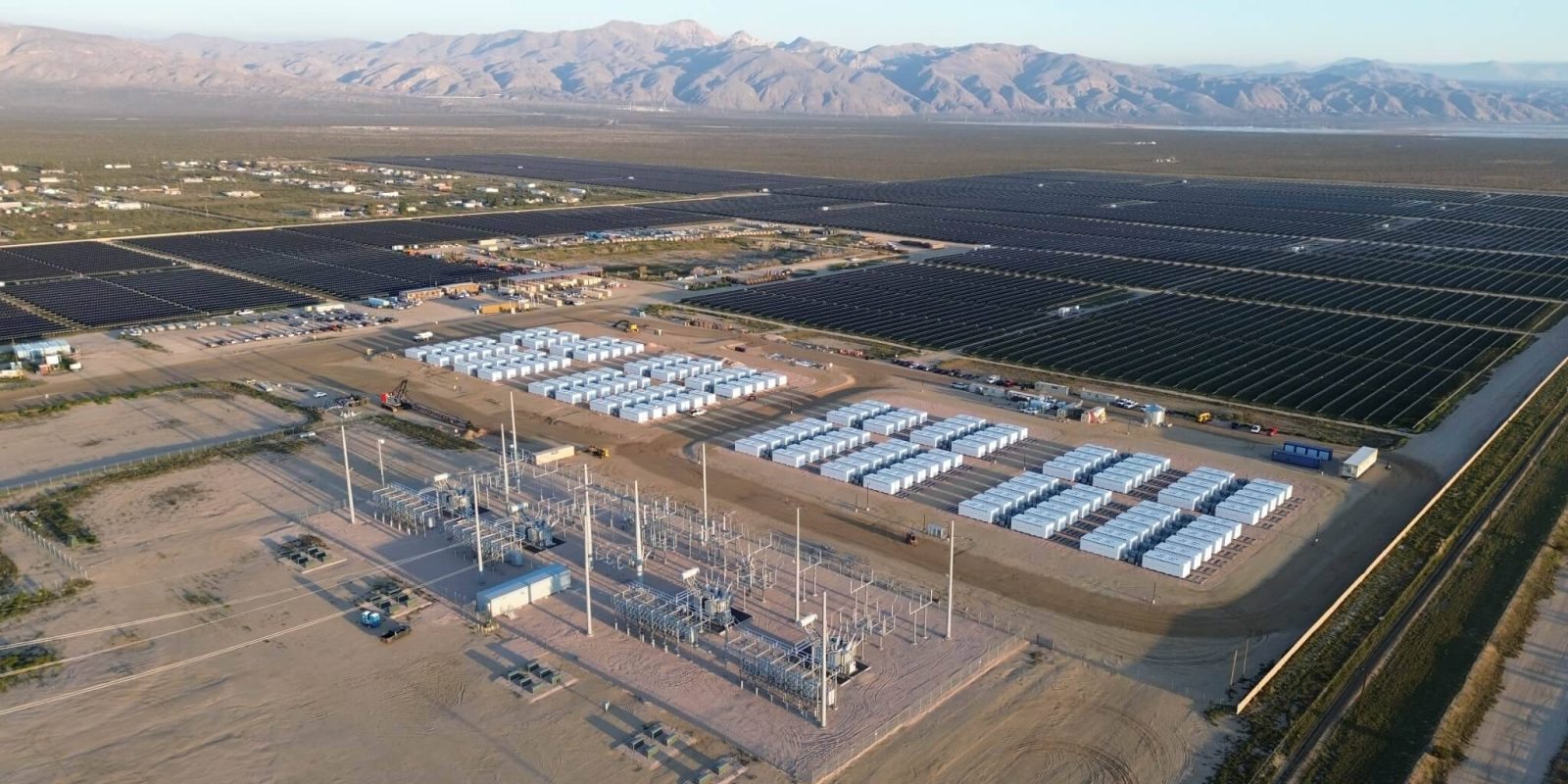
Solar, wind, and batteries are set to supply virtually all net new US generating capacity in 2026, according to EIA data reviewed by the SUN DAY Campaign, continuing their strong 2025 growth.
more…
https://electrek.co/2026/01/28/eia-99-of-new-us-capacity-in-2026-will-be-solar-wind-storage/
Tesla invests $2 billion in Elon Musk’s xAI cash furnace
(date: 2026-01-28)

Tesla disclosed in its Q4 2025 earnings report that it has invested $2 billion in xAI, Elon Musk’s private AI company. The investment comes while Tesla shareholders are actively suing Musk for breach of fiduciary duty over his founding of xAI in the first place.
You can’t make this up.
more…
https://electrek.co/2026/01/28/tesla-invests-2-billion-in-elon-musk-xai-cash-furnace/
What to know about the third No Kings protests happening in March
(date: 2026-01-28)
Demonstrations will be held across the US against ICE’s reign of terror with flagship event in Twin Cities
A third No Kings protest will be held on 28 March, organizers announced on Wednesday. Ezra Levin, co-founder of Indivisible, one of the groups coordinating No Kings, said that he expected it to be “the biggest protest in American history”.
Protests will be held nationwide, with a flagship event in Minnesota’s Twin Cities – Minneapolis and Saint Paul – where this month federal immigration agents killed two residents, Alex Pretti and Renee Nicole Good, amid their escalated operations in the region.
Continue reading...
https://www.theguardian.com/us-news/2026/jan/28/third-no-kings-protest-march-minnesota-ice
Tesla (TSLA) releases Q4 2025 financial results: slight beat on earnings
(date: 2026-01-28)

Tesla (TSLA) released its financial results and shareholders’ letter for the fourth quarter (Q4) 2025 and full-year 2025 after market close today.
We are updating this post with all the details from the financial results, shareholders’ letter, and the conference call later tonight. Refresh for the latest information.
more…
https://electrek.co/2026/01/28/tesla-tsla-releases-q4-2025-financial-results-slight-beat-on-earnings/
ICE thwarted from entering Ecuador’s consulate in Minneapolis by employee
(date: 2026-01-28)
Action comes amid federal agencies’ campaign in the city, prompting an official complaint to US embassy in Quito
An Immigration and Customs Enforcement (ICE) agent attempted to enter Ecuador’s consulate in Minneapolis, but was turned back by an employee, prompting an official complaint to the US embassy in Quito, the country’s foreign ministry said.
The Tuesday incident came as ICE and other federal agencies continue their aggressive campaign of arresting people in Minnesota’s largest city suspected of being in the United States illegally, despite outrage over the deaths of two US citizens in the operation dubbed “Metro Surge”.
Continue reading...
https://www.theguardian.com/us-news/2026/jan/28/ice-ecuador-consulate-minneapolis
Bari Weiss offers CBS Evening News staff "extraordinary chance" to not work there anymore
(date: 2026-01-28)
Having informed her veteran employees that they're now working for a fast-moving "media startup," the CBS News boss sent out buyout offers to staff on Wednesday.
https://www.pastemagazine.com/tv/cbs-news/bari-weiss-cbs-news-extraordinary-chance-buyouts
Vancouver tech company Hootsuite facing backlash for contract with U.S. Homeland Security, which oversees ICE
(date: 2026-01-28)

CEO Irina Novoselsky said Hootsuite has worked with government organizations across countries and administrations for more than 15 years, including the U.S. government.
https://www.cbc.ca/news/canada/british-columbia/vancouver-tech-hootsuite-ceo-homeland-security-ice-9.7065911?cmp=rss
Federal Reserve holds interest rates as Trump piles on pressure
(date: 2026-01-28)
Fed voted to pause cuts to interest rate, which currently sits between 3.5% and 3.75%, after slashing it three times in fall
The US Federal Reserve left interest rates unchanged after its first rate-setting meeting of the year on Wednesday, resisting enormous pressure from the White House to lower rates.
A majority of members in the Fed’s federal open market committee (FOMC) voted to pause interest rate cuts after slashing rates three times in the fall. Rates currently sit at a range of 3.5% to 3.75%.
Continue reading...
https://www.theguardian.com/business/2026/jan/28/federal-reserve-holds-rates-powell-trump
Missing in History: Letters of a Woman Homesteader
(date: 2026-01-28)
Elinore Pruitt Stewart detailed her homesteading life in entertaining letters to a friend. Her stories of life out West appeared in two books that made her nationally famous.
Missing in History: Letters of a Woman Homesteader
The Saturday Evening Post
https://www.saturdayeveningpost.com/2026/01/missing-in-history-letters-of-a-woman-homesteader/
How Much Will Slate's EV Truck Cost? Slate Is Still Figuring That Out.
(date: 2026-01-28)
The Slate truck's price will be key to its success. But the company is still working on a final number, its CEO told InsideEVs.
https://insideevs.com/news/785737/slate-truck-price-discussion-ceo/
Amy Klobuchar Talks Trump, ICE, Alex Pretti, Renee Good and Kristi Noem
(date: 2026-01-28)
Jon Favreau sits down with Minnesota Senator Amy Klobuchar to talk about the killing of Alex Pretti and how Minnesotans are fighting back.
https://crookedmedia.substack.com/p/amy-klobuchar-talks-trump-ice-alex
What we know about plans to open the Rafah border crossing this week
(date: 2026-01-28)

For Palestinians in Gaza, the Rafah border crossing to Egypt is their gateway to the world. But since Israel seized it in May 2024, it has been largely shut. Now Israel's Prime Minister Benjamin Netanyahu says the crossing will reopen soon, as the U.S.-brokered Israel-Hamas ceasefire plan moves into its second phase.
https://www.cbc.ca/news/world/rafah-crossing-what-we-know-9.7065871?cmp=rss
Small plane crash in Colombia kills 15, including congressman
(date: 2026-01-28)

A small plane crashed Wednesday in a rural area of Norte de Santander province in northeast Colombia, killing all 15 people on board including a member of congress, authorities said.
https://www.cbc.ca/news/world/colombia-small-plane-scrash-congressman-9.7065898?cmp=rss
Three reasons that should drive your endpoint management strategy in 2026
(date: 2026-01-28)
2026 will be the year many government IT teams either implement their first unified endpoint management (UEM) strategy or replace outdated ones entirely.
The post Three reasons that should drive your endpoint management strategy in 2026 first appeared on Federal News Network.
https://federalnewsnetwork.com/commentary/2026/01/three-reasons-that-should-drive-your-endpoint-management-strategy-in-2026/
ICE agents expected to be deployed for Super Bowl in California, officials say
(date: 2026-01-28)
Local officials confirmed that ICE will conduct immigration operations during 8 February game in Santa Clara
US Customs and Immigration Enforcement (ICE) agents are expected to conduct immigration enforcement operations during next month’s Super Bowl game in Santa Clara, California.
Local officials confirmed to media that ICE is expected to deploy for the game between the Seattle Seahawks and the New England Patriots. ICE’s Homeland Security Investigations team has long worked the Super Bowl and other major sporting events, largely focused on preventing human trafficking and stopping the sale of counterfeit goods, but immigration operations would be unusual.
Continue reading...
https://www.theguardian.com/sport/2026/jan/28/ice-super-bowl-lx-operations
Elon Musk is about to be on the hook for more than $150 million in SEC case
(date: 2026-01-28)

The SEC is not letting up on Elon Musk. In a new legal reply filed today, the regulator is asking a federal judge to grant summary judgment and find the Tesla CEO liable for violating securities laws during his 2022 acquisition of Twitter (now X).
more…
https://electrek.co/2026/01/28/elon-musk-hook-for-more-than-150-million-sec-case/
Giancarlo Esposito pulls no punches at Sundance: "It's time for a revolution"
(date: 2026-01-28)
"We have to stand up to it," the Breaking Bad actor declared. "They can’t take us all down."
https://www.pastemagazine.com/movies/giancarlo-esposito-sundance-time-for-revolution
Footage appears to show ICE agent trying to enter Ecuador's consulate in Minneapolis – video
(date: 2026-01-28)
Video filmed from inside Ecuador's consulate in Minneapolis shows an ICE agent trying to enter the building but being prevented by consulate staffers, according to the country's foreign ministry. Reuters confirmed the location as the Ecuadorian consulate in Minneapolis, from the doors, windows, walls, ceiling fixtures and building across the street that are seen in the video which matched file imagery of the consulate and the area. The date was verified by Ecuador's ministry of foreign affairs that said an ICE agent attempted to enter the consulate’s facilities in Minneapolis on Tuesday 27 January.
Continue reading...
https://www.theguardian.com/us-news/video/2026/jan/28/footage-appears-to-show-ice-agent-trying-to-enter-ecuadors-consulate-in-minneapolis-video
Threat of US-Iran war escalates as Trump warns time running out for deal
(date: 2026-01-28)
US president says armada heading towards Iran is ‘prepared to fulfil its missions with violence if necessary’
The threat of war between the US and Iran appeared to loom closer after Donald Trump told Tehran time was running out and that a huge US armada was moving quickly towards the country “with great power, enthusiasm and purpose”.
Writing on social media, the US president said on Wednesday that the fleet headed by the aircraft carrier USS Abraham Lincoln was larger than the one sent to Venezuela before the removal of Nicolás Maduro earlier this month and was “prepared to rapidly fulfil its missions with speed and violence if necessary”.
Continue reading...
https://www.theguardian.com/world/2026/jan/28/trump-threat-us-iran-war-armada-nuclear-programme
B.C.'s Eby says no significant pipeline updates in meeting with Carney, Alberta's Smith
(date: 2026-01-28)

B.C. Premier David Eby says there was no"'significant update" on a proposed oil pipeline to the West Coast during what he described as a "cordial" meeting with Prime Minister Mark Carney and Alberta Premier Danielle Smith on Wednesday.
https://www.cbc.ca/news/politics/bc-position-alberta-oil-pipeline-9.7065827?cmp=rss
Fed holds interest rates steady, taking a pause from rate cuts to assess the economy
(date: 2026-01-28)
The central bank cut rates at its three previous meetings in an effort to support the job market. But with inflation still elevated, the Fed is cautious about additional rate cuts.
https://www.npr.org/2026/01/28/nx-s1-5690136/federal-reserve-interest-rates-jobs-labor-inflation
Portable classrooms, supplies needed to get hundreds of Berens River students back to school after fire
(date: 2026-01-28)

Officials are scrambling to find classroom spaces and supplies for hundreds of students from a Manitoba First Nation who lost their school in a fire this week.
https://www.cbc.ca/news/canada/manitoba/berens-river-school-fire-9.7065790?cmp=rss
Seniors advocate seeks increased nursing-home security amid Saint John sex-offences investigation
(date: 2026-01-28)

A seniors advocate is calling for improved security measures at nursing homes across New Brunswick, as Saint John police investigate "offences of a sexual nature" at Loch Lomond Villa’s The Village involving at least 12 victims, some into their 90s.
https://www.cbc.ca/news/canada/new-brunswick/sexual-offences-seniors-loch-lomond-village-saint-john-police-security-9.7063233?cmp=rss
Trump signs order to speed up rebuilds of homes affected by 2025 LA wildfires
(date: 2026-01-28)
LA mayor calls order, which seeks to let people rebuild without permitting requirements, a ‘political stunt’
Donald Trump announced that he has signed an executive order to “cut through bureaucratic red tape” and speed up reconstruction of tens of thousands of homes destroyed by the January 2025 Los Angeles-area wildfires.
The US president’s order, which he announced on Tuesday but signed on Friday, seeks to allow homeowners to rebuild without contending with “unnecessary, duplicative or obstructive” permitting requirements, the White House said in a statement.
Continue reading...
https://www.theguardian.com/us-news/2026/jan/28/trump-los-angeles-wildfires-reconstruction-executive-order
Lucid’s (LCID) first $50,000 midsize EV is coming together at just the right time
(date: 2026-01-28)

With production set to begin later this year, Lucid Motors (LCID) has built the first prototypes for its midsize EV. The new models will start at around $50,000 as Lucid expands into new segments.
more…
https://electrek.co/2026/01/28/lucids-first-50000-midsize-ev-coming-together-at-right-time/
Comings and goings: CPB VP lands at Maine Public, Rocky Mountain Public Media hires SVP …
(date: 2026-01-28)
Katherine Arno, a former executive at CPB, was hired by Maine Public.
The post Comings and goings: CPB VP lands at Maine Public, Rocky Mountain Public Media hires SVP … appeared first on Current.
https://current.org/2026/01/comings-and-goings-cpb-vp-lands-at-maine-public-rocky-mountain-public-media-hires-svp/?utm_source=rss&utm_medium=rss&utm_campaign=comings-and-goings-cpb-vp-lands-at-maine-public-rocky-mountain-public-media-hires-svp
Heybike Villain electric dirt bike launches with $250 savings, Anker solar camera lows + SOLIX F3000 power station bundle low, more
(date: 2026-01-28)

Our mid-week Green Deals are being [headlined by the official launch of Heybike’s new Villain Electric Dirt Bike at \(1,399](https://9to5toys.com/2026/01/28/heybike-villian-electric-dirt-bike-1399-250-savings/), and also coming with a \)150 gift box of FREE gear for the first 80 orders. We also have a number of Anker eufy security devices at up to 50% off, led by the popular SoloCam S220 Solar Security Camera (and multi-packs) at their lowest prices starting from \(50](https://9to5toys.com/2026/01/27/anker-eufy-solocam-s220-solar-security-camera-from-50-more/), as well as [Anker’s F3000 Portable Power Station coming with 120V generator and EV adapter cables at a \)1,199 low. There’s also some new Greenworks and Worx off-season tool lows to jump on, and much more waiting for you below – including EcoFlow’s Disaster Winter Storm Sale + flash sale lineup that all end tonight. And don’t forget the hangover deals at the bottom of the page, like yesterday’s Segway Xyber and Xafari e-bikes down at \(3,000 and a \)1,800 low, and more.
Head below for other New Green Deals we’ve found today and, of course, Electrek’s best EV buying and leasing deals. Also, check out the new Electrek Tesla Shop for the best deals on Tesla accessories.
more…
https://electrek.co/2026/01/28/heybike-villain-electric-dirt-bike-anker-solar-camera-solix-f3000-power-station-more/
Head-Smashed-In Buffalo Jump heritage site enjoys boost after shout out on The Pitt
(date: 2026-01-28)

A UNESCO World Heritage Site in Alberta is enjoying a recent uptick in interest spurred by a shout out on a popular American television show. Its head of marketing hopes that curiosity translates into a bustling summer season.
https://www.cbc.ca/news/canada/calgary/head-smashed-in-buffalo-jump-the-pitt-9.7065811?cmp=rss
Tesla’s ‘unsupervised’ Robotaxis vanish a week after pre-earnings announcement
(date: 2026-01-28)

A week ago, Elon Musk announced that Tesla had started Robotaxi rides in Austin “with no safety monitor in the car.” The stock jumped 4%. Headlines celebrated the milestone. But since then, not a single rider has reported actually getting one of these unsupervised rides.
The announcement came on January 22, just days before a major ice storm hit Austin and, conveniently, less than a week before Tesla’s Q4 2025 earnings report today.
The service has started back since then, but no one is getting the “unsupervised” rides.
more…
https://electrek.co/2026/01/28/teslas-unsupervised-robotaxis-vanish/
As gold prices soar, are prediction markets a new way to “own” precious metals?
(date: 2026-01-28)
This article contains references to products from our advertisers and/or partners, and we may receive compensation when you click on links to products and services Precious metal investing has always been an interesting ride. For…
The post As gold prices soar, are prediction markets a new way to “own” precious metals? first appeared on Federal News Network.
https://federalnewsnetwork.com/prediction-markets/2026/01/prediction-markets-a-new-way-to-own-precious-metals/
2 First Nations men killed by RCMP in Atlantic Canada
(date: 2026-01-28)

After two First Nations men were shot and killed by RCMP within five days, family members and chiefs are questioning the systems in place for policing when it comes to First Nations people.
https://www.cbc.ca/player/play/9.7065802?cmp=rss
🚨*NEW ZETEO MERCH* Warm up with our latest winter drop!
(date: 2026-01-28)
Wear your support for Zeteo with our stylish new beanies and sweatpants - plus check out the rest of our online merchandise store.
https://zeteo.com/p/merch-winter-beanies-sweatpants-quater-zips-hoodies
These Trinidadian fishermen were killed in a U.S. boat strike. Now their families are suing
(date: 2026-01-28)

The U.S. government has said, without providing evidence, that the men killed on the boats were “narco-terrorists.” But Chad Joseph’s and Rishi Samroo’s families say they were just regular workers catching a ride home to the fishing village of Las Cuevas.
https://www.cbc.ca/radio/asithappens/us-boat-strikes-lawsuit-9.7065587?cmp=rss
Browns to appoint Todd Monken as head coach after slew of candidate withdrawals
(date: 2026-01-28)
The Cleveland Browns are naming Todd Monken as their head coach, according to multiple reports.
Monken had been Baltimore’s offensive coordinator for the past three seasons, and his appointment comes after several high-profile candidates rejected the Browns. He has also interviewed for Tampa Bay’s offensive coordinator opening and was tied to the New York Giants offensive coordinator spot after John Harbaugh was named coach.
Continue reading...
https://www.theguardian.com/sport/2026/jan/28/browns-to-appoint-todd-monken-as-head-coach-after-slew-of-candidate-withdrawals
Live TV report on cougar capture in San Francisco neighborhood interrupted by coyote
(date: 2026-01-28)
‘Your eyes do not deceive you,’ ABC7 told viewers about unexpected turn during report from Pacific Heights
Live television reporting about an incident where a young mountain lion was safely tranquilized and captured in San Francisco’s Pacific Heights neighborhood took an unexpected turn on Tuesday when a coyote wandered into the background during the broadcast.
During live coverage of the feline’s capture, the ABC7 News reporter Frances Wang was on camera when an unexpected urban resident passed behind her. A coyote calmly walked through the shot, unnoticed as she continued reporting. Video of the moment quickly gained attention for the visual irony of one wild predator being removed as another freely roamed the city streets.
Continue reading...
https://www.theguardian.com/us-news/2026/jan/28/san-francisco-mountain-lion-coyote
Middle East worries about possible U.S. strike on Iran as Trump makes threats
(date: 2026-01-28)

Iranian officials reached out to the wider Middle East on Wednesday over the threat of a possible U.S. military strike on the country, while the value of Iran's currency reached a new low a month since the start of protests that soon spread nationwide and sparked a bloody crackdown.
https://www.cbc.ca/news/world/possible-us-strike-on-iran-trump-9.7065315?cmp=rss
An accidental crying horse that captures the vibe is galloping to online fame
(date: 2026-01-28)

The toy has gone viral on Chinese social media ahead of the Spring Festival holiday, which this year marks the Year of the Horse in the Chinese zodiac.
https://www.cbc.ca/news/world/crying-horse-plush-chinese-new-year-9.7064465?cmp=rss
Patrick Reed quits rebel LIV Golf tour in latest blow to Saudi-backed breakaway
(date: 2026-01-28)
Patrick Reed has delivered the latest high-profile blow to LIV Golf by announcing he will leave the circuit before the start of its 2026 season.
The 35-year-old American former Masters champion joins Brooks Koepka by instead focusing on the PGA Tour. Reed will spend his immediate time on the DP World Tour, where he won the Dubai Desert Classic on Sunday. Reed tees up in Bahrain from Thursday.
Continue reading...
https://www.theguardian.com/sport/2026/jan/28/patrick-reed-quits-liv-tour-blow-saudi-backed-breakaway-golf
Our Bruised Federal EV Charger Program Just Had A Comeback Year
(date: 2026-01-28)
The National Electric Vehicle Infrastructure program is finally picking up steam after a messy start.
https://insideevs.com/news/785726/nevi-charger-deployment-in-2025/
Q&A Why threats from the U.S are strengthening Inuit calls for independence
(date: 2026-01-28)

Calls for a free and independent Greenland aren’t new, but mounting threats from the U.S. are a reminder of what Inuit are fighting for.
https://www.cbc.ca/radio/unreserved/q-a-why-threats-from-the-u-s-are-strengthening-inuit-calls-for-independence-9.7064274?cmp=rss
Atlantic chiefs call for 'meaningful action' after 2 First Nations men killed by RCMP
(date: 2026-01-28)

Atlantic chiefs and grieving families are calling for federal action and Indigenous oversight in investigations into police shootings after RCMP shot and killed two First Nations men in Atlantic Canada within five days.
https://www.cbc.ca/news/indigenous/atlantic-chiefs-call-for-meaningful-action-after-2-first-nations-men-killed-by-rcmp-9.7065040?cmp=rss
Congresswoman Ilhan Omar sprayed with unknown substance at Minneapolis town hall
(date: 2026-01-28)
Man arrested and booked with assault after spraying strong-smelling liquid at Minnesota Democrat from syringe
Congresswoman Ilhan Omar was sprayed with an unidentified substance by a man with a syringe on Tuesday as she gave her first in-person town hall of the year in Minneapolis, during which she called for Immigration and Customs Enforcement (ICE) to be abolished “for good” and the Department of Homeland Security (DHS) secretary, Kristi Noem, to resign.
Omar had only been speaking for a few minutes when a man in the audience got up and began to shout while spraying her with the liquid. People at the meeting said the liquid had an acidic smell.
Continue reading...
https://www.theguardian.com/us-news/2026/jan/28/ilhan-omar-sprayed-unknown-substance-minneapolis
Zanotti fires Corinthians to shock semi-final win over Gotham in Women’s Champions Cup
(date: 2026-01-28)
Corinthians earned a stunning victory against Gotham FC in the first semi-final of the inaugural Fifa Women’s Champions Cup, a goal from the 40-year-old Corinthians captain Gabi Zanotti in the 83rd minute the difference.
“Everyone was talking about maybe Gotham and Arsenal in the final but Corinthians are here and we played a very good game to beat the NWSL champions,” their manager, Lucas Piccinato, said. “We know what we can do.”
Continue reading...
https://www.theguardian.com/football/2026/jan/28/gotham-corinthians-fifa-womens-champions-cup-semi-final-match-report
Sarah Mullally confirmed as first female archbishop of Canterbury – video
(date: 2026-01-28)
Sarah Mullally was officially confirmed as archbishop of Canterbury on Wednesday, becoming the first woman to lead the Church of England and the 106th person to assume the role. The worldwide Anglican Communion, which includes the Episcopal Church in the US, has no formal head, but the archbishop has traditionally been seen as its spiritual leader. The C of E ordained its first female priests in 1994 and its first female bishop in 2015
Continue reading...
https://www.theguardian.com/world/video/2026/jan/28/sarah-mullally-confirmed-as-first-female-archbishop-of-canterbury-video
Bot space race: humanoid robots connect to satellite, prep for space launch
(date: 2026-01-28)

It’s been a big week for humanoid robots with a first-ever humanoid to directly connect to a low-Earth orbit satellite from one firm and plans announced to launch a robot into space by another. It seems like the robot space race is on – and China is winning.
more…
https://electrek.co/2026/01/28/bot-space-race-humanoid-robots-connect-to-satellite-prep-for-space-launch/
Ford Explorer and Capri EVs updated with longer range, added power, and more
(date: 2026-01-28)

Ford updated the Explorer and Capri Standard Range EVs with a new LFP battery and electric motor. The changes unlock longer driving ranges, more power, and what’s expected to be a lower price tag.
more…
https://electrek.co/2026/01/28/ford-explorer-and-capri-evs-updated-longer-range/
SaskPower and province to research large-scale nuclear reactors
(date: 2026-01-28)

The Saskatchewan government and SaskPower will research the possibility of implementing a large nuclear reactor in the province, alongside ongoing work towards a small modular reactor.
https://www.cbc.ca/news/canada/saskatchewan/saskpower-and-province-to-research-large-scale-nuclear-reactors-9.7065578?cmp=rss
Montreal’s intense winter has knocked out a quarter of the city’s snow-removal fleet
(date: 2026-01-28)

With the city already on its fifth snow-removal operation of the winter, the new administration found out that the vehicles it inherited may be in worse shape than expected.
https://www.cbc.ca/player/play/9.7065595?cmp=rss
42 Million People Can Use this Toolkit to Lower Electric Bills — Episode 263 of Local Energy Rules
(date: 2026-01-28)
Rural electric co-op members should use this new toolkit to swap coal debt for clean, affordable energy.
https://ilsr.org/article/energy-democracy/rural-electric-coop-toolkit-ler263
Bruce Springsteen criticizes ICE, Trump in protest song Streets of Minneapolis
(date: 2026-01-28)

Bruce Springsteen is dedicating his new song to the people of Minneapolis, criticizing U.S. President Donald Trump's ongoing immigration enforcement operations in the city.
https://www.cbc.ca/news/entertainment/springsteen-streets-of-minneapolis-9.7065555?cmp=rss
ICE agents at the Winter Olympics in Italy | About That
(date: 2026-01-28)

Andrew Chang explains why the U.S. is sending Immigration and Customs Enforcement agents to Italy for the Milano-Cortina Olympics amid outrage over ICE operations in Minnesota.
Images provided by The Canadian Press, Reuters and Getty Images
https://www.cbc.ca/player/play/9.7065567?cmp=rss
Nissan Put Solar Panels On An Ariya EV. Here's How Much Range They Add
(date: 2026-01-28)
It's a reasonable amount, but I wouldn't be planning any solar-powered road trips.
https://insideevs.com/news/785708/nissan-ariya-solar-roof-charging/
The messy, tricky, hairy task of economic forecasting
(date: 2026-01-28)
We’ve been deluged with the annual economic and market forecasts that traditionally mark the turn of a new year. Is it worth paying attention to these forecasts, or are they a waste of time? Maybe a little bit of both? Today, we're joined by Marketplace senior economics contributor Chris Farrell to assess their worth. But first, we'll discuss some of the forecasts and market conditions the Federal Reserve has in mind at this week's meeting. And, Boeing’s revenue is up, as are its airplane delivery numbers.
https://www.marketplace.org/episode/2026/01/28/the-messy-tricky-hairy-task-of-economic-forecasting
Ontario premier says election of a separatist party in Quebec would be a 'disaster'
(date: 2026-01-28)

Ontario Premier Doug Ford stepped into Quebec politics Wednesday, suggesting that the election of a separatist party in the upcoming Quebec election would be a "disaster."
https://www.cbc.ca/news/canada/montreal/part-quebecois-party-disaster-doug-ford-9.7065370?cmp=rss
SpaceX mulls $1.5tn IPO timed to ‘align with Musk’s birthday and the planets’
(date: 2026-01-28)
World’s richest person targeting symbolic date in June for flotation of rocket company
Elon Musk’s SpaceX is considering a flotation valuing the rocket company at $1.5tn (£1.1tn) that will reportedly be timed for early summer to coincide with a planetary alignment and the multibillionaire’s birthday.
The world’s richest person is targeting a symbolic date of mid-June for the initial public offering, according to the Financial Times. This would be around the same time as Jupiter and Venus appear in close proximity to each other and shortly before Musk turns 55 on 28 June.
Continue reading...
https://www.theguardian.com/business/2026/jan/28/spacex-15bn-ipo-elon-musk-birthday-planets-flotation
Rodman’s sideline dance with Hayes caps USWNT’s sixth straight win
(date: 2026-01-28)
-
Rodman strikes again as USA rout Chile 5-0
-
Bethune, Joseph and Sams score first goals
-
SheBelieves Cup in March is next up for US
Croix Bethune, Jameese Joseph and Emily Sams scored their first international goals and the United States went on to beat Chile 5-0 on Tuesday night in Santa Barbara, California.
Emma Sears and Trinity Rodman also scored for the US, who haven’t conceded a goal in five matches and haven’t lost in six.
Continue reading...
https://www.theguardian.com/football/2026/jan/28/trinity-rodmans-sideline-dance-with-hayes-caps-uswnts-sixth-straight-win
Tesla (TSLA) brand value crashed 36% in 2025 — now worth less than half its 2023 peak
(date: 2026-01-28)

Tesla’s brand value collapsed by $15.4 billion in 2025, marking the third consecutive year of decline, according to new research from Brand Finance. The company’s recommendation score in the U.S. has plummeted to just 4.0 out of 10, down from 8.2 just over two years ago.
more…
https://electrek.co/2026/01/28/tesla-tsla-brand-value-crashed/
Mehdi, Joy Reid, and Jim Acosta Slam Our ‘Lackey,’ ‘State-Compromised,’ ‘North Korea’ Media
(date: 2026-01-28)
Does the US still have a free press? At Zeteo’s live event in DC, Mehdi and two former fellow cable news hosts examine the state of the media under Trump 2.0 and pull back the curtain on the ‘MSM.’
https://zeteo.com/p/mehdi-joy-reid-and-jim-acosta-slam
The womanosphere urges dubious followers to back ICE: ‘Don’t let compassion cloud you’
(date: 2026-01-28)
Conservative figures such as Riley Gaines and Allie Beth Stuckey are urging their followers to ward off empathy for victims of ICE’s crackdown
Riley Gaines, the former collegiate swimmer turned anti-transgender activist, makes motherhood and femininity a core part of her brand. Her husband, Louis Barker, is a naturalized US citizen who moved to this country from the UK. The couple welcomed their first child, a daughter named Margot, in September; Gaines said there was “nothing” she would not do to protect her baby. But do not think that Gaines is at all sympathetic to families targeted by ICE.
This weekend, Gaines spoke on her podcast about Liam Ramos, the five-year-old boy taken by ICE agents from his driveway in Minneapolis. Images of Liam, clad in snowpants and wearing a blue hat with bunny ears, being held by a federal agent prompted widespread disgust in the US. How could a preschooler be considered one of the “dangerous” criminals Trump’s administration rails against?
Continue reading...
https://www.theguardian.com/us-news/2026/jan/28/womanosphere-influencers-ice-minnesota
GM's CEO Issues Warning Over Cheap Chinese EVs In North America
(date: 2026-01-28)
Plus, AI data centers are expected to fuel the next auto chip shortage, and BYD is going on an all-out international assault.
https://insideevs.com/news/785653/gm-cheap-chinese-evs-slippery/
Kia has a slate of new EVs and hybrid SUVs coming in 2026
(date: 2026-01-28)

Kia is betting big on new electric and hybrid vehicles to drive growth in 2026. Here’s what’s coming.
more…
https://electrek.co/2026/01/28/kia-new-evs-hybrid-suvs-2026/
Lawmakers condemn ‘disgusting’ attack on Ilhan Omar at Minneapolis town hall
(date: 2026-01-28)
Hakeem Jeffries rebukes Donald Trump for suggesting the Minnesota congresswoman staged what happened
Lawmakers from both parties have come out to condemn the attack on Ilhan Omar after the Minnesota congresswoman was sprayed with an unknown substance during her town hall on Tuesday night in Minneapolis.
In an interview with CNN on Wednesday, the House minority leader, Hakeem Jeffries, responded to comments from Donald Trump who quipped that “she probably had herself sprayed, knowing her.”
Continue reading...
https://www.theguardian.com/us-news/2026/jan/28/ilhan-omar-attack-condemned
Three young brothers drown after falling through ice on pond in Texas
(date: 2026-01-28)
Mother of the boys – aged six, eight and nine – said she frantically tried to save her sons from the freezing water
Three brothers ages six, eight and nine have died after falling through ice on a private pond near Bonham, Texas.
The boys’ mother said she ran into the freezing lake and frantically tried to pull her sons from the water, but the ice kept breaking beneath them. The accident happened on Monday.
“They were just screaming, telling me to help them,” Cheyenne Hangaman told the Associated Press. “And I watched all of them struggle, struggle to stay above the water. I watched all of them fight.”
Continue reading...
https://www.theguardian.com/us-news/2026/jan/28/three-boys-dead-pond-texas
2 federal agents involved in shooting of Alex Pretti in Minneapolis have been placed on leave
(date: 2026-01-28)

Two federal agents who were involved in Saturday's fatal shooting of a U.S. citizen in Minneapolis have been placed on administrative leave, according to a U.S. Customs and Border Protection spokesperson.
https://www.cbc.ca/news/world/agents-pretti-shooting-leave-9.7065333?cmp=rss
Could a shutdown over ICE be in the cards?
(date: 2026-01-28)
There's a chance that the federal government will shut down late this week over reform and funding for the Department of Homeland Security, which also includes ICE. We'll break down the likelihood of a shutdown, demands of Senate Democrats, and potential impacts to ICE. Plus, the Fed likely won't cut interest rates today. And the 2026 World Cup is expected to draw millions of foreign visitors. Will U.S. authorities let them in?
https://www.marketplace.org/episode/2026/01/28/could-a-shutdown-over-ice-be-in-the-cards
Governor asks New Mexico lawmakers to fund tribal media
(date: 2026-01-28)
Tribal media stations in New Mexico could receive about $430,000 as soon as this summer if the legislature embraces Gov. Michelle Lujan Grisham’s recommendation.
The post Governor asks New Mexico lawmakers to fund tribal media appeared first on Current.
https://current.org/2026/01/governor-asks-new-mexico-lawmakers-to-fund-tribal-media/?utm_source=rss&utm_medium=rss&utm_campaign=governor-asks-new-mexico-lawmakers-to-fund-tribal-media
Ontario government to fast-track new transmission line to Ring of Fire region
(date: 2026-01-28)

Ontario has designated the Greenstone Transmission Line as a priority project as the province proceeds with plans to develop the lucrative Ring of Fire region. The line will run from Nipigon Bay to near Aroland First Nation and what the province calls the “gateway to the Ring of Fire.”
https://www.cbc.ca/news/canada/thunder-bay/greenstone-transmission-line-9.7065069?cmp=rss
Senate leaders want answers from Social Security about DOGE sharing its data
(date: 2026-01-28)
The Justice Department recently told a federal court that DOGE staffers at the agency discussed sharing agency data with an advocacy group.
The post Senate leaders want answers from Social Security about DOGE sharing its data first appeared on Federal News Network.
https://federalnewsnetwork.com/federal-newscast/2026/01/senate-leaders-want-answers-from-social-security-about-doge-sharing-its-data/
Cartoons: Hoop Humor
(date: 2026-01-28)
Have a ball with our courtside cartoons!
Cartoons: Hoop Humor
The Saturday Evening Post
https://www.saturdayeveningpost.com/2026/01/cartoons-hoop-humor-2/
Families in Maine scramble to halt ICE’s transfer of detainees out of state
(date: 2026-01-28)
Officials are quickly moving people they’ve apprehended out of state, making it difficult for loved ones to reach them
Family members have been scrambling to learn the whereabouts of more than 200 people arrested during a federal immigration crackdown that has swept across Maine this week, immigration attorneys said, as federal authorities quickly ferried detainees out of the state.
“We were buried in phone calls,” said Jenny Beverly, an immigration attorney with Haven Immigration Law.She said her team worked long hours to locate detainees and stop their transfer out of Maine.
Continue reading...
https://www.theguardian.com/us-news/2026/jan/28/maine-ice-detainees-transfer
Venezuela 'untenable situation' that had to be addressed, Rubio says about Maduro capture
(date: 2026-01-28)

Secretary of State Marco Rubio told the U.S. Senate on Wednesday that Venezuela's new leaders were moving toward closer ties with Washington without the immediate need for further U.S. military action, as he publicly faced questions from many of his former colleagues for the first time.
https://www.cbc.ca/news/world/us-senate-committe-hearing-rubio-9.7064947?cmp=rss
Montreal police to adopt more 'humane approach' toward autistic people during interventions
(date: 2026-01-28)

Montreal police launched a pilot project Wednesday aimed at adapting the way officers interact with autistic Montrealers during interventions.
https://www.cbc.ca/news/canada/montreal/spvm-people-with-autism-pilot-project-9.7064899?cmp=rss
New Interactive Map and Brief Reveal Root Cause of America’s Grocery Crisis
(date: 2026-01-28)
Analysis shows how the failure to enforce the Robinson-Patman Act fueled grocery-sector consolidation, leading to food deserts and rising prices.
https://ilsr.org/article/independent-business/interactive-map-and-brief-reveal-root-cause-of-americas-grocery-crisis
More criminals are using AI for ransomware attacks, cybersecurity centre warns
(date: 2026-01-28)

The federal cybersecurity centre warns in a new report that criminals who hold data for ransom are using artificial intelligence tools that make it easier to target their victims.
https://www.cbc.ca/news/politics/ai-ransomeware-attacks-9.7065169?cmp=rss
Mapping Food Deserts and Grocery Consolidation
(date: 2026-01-28)
To demonstrate how corporate concentration has reshaped food access in the U.S., ILSR's interactive map shows food deserts alongside the location of grocery stores.
https://ilsr.org/article/independent-business/grocerygaps
How Corporate Consolidation Broke America’s Grocery System
(date: 2026-01-28)
ILSR's brief explains how corporate consolidation fueled high food prices, and the critical role independent grocers play in building resilient local food systems.
https://ilsr.org/article/independent-business/how-corporate-consolidation-broke-americas-grocery-system
Texas man scheduled to be executed for killing ex-girlfriend and her new boyfriend
(date: 2026-01-28)
Charles Victor Thompson would be the first person executed in the US this year for the 1998 shooting deaths
A Texas man who at one time escaped from custody and was on the run for three days after being sentenced to death for fatally shooting his ex-girlfriend and her new boyfriend nearly 27 years ago was scheduled on Wednesday to be the first person executed in the US this year.
Charles Victor Thompson was condemned for the April 1998 shooting deaths of his ex-girlfriend, Glenda Dennise Hayslip, 39; and her new boyfriend, Darren Keith Cain, 30, at her apartment in the Houston suburb of Tomball.
Continue reading...
https://www.theguardian.com/us-news/2026/jan/28/texas-man-faces-execution
5 technologies drive the next era of federal systems integration
(date: 2026-01-28)
What AI operationalization, data readiness, cloud scale and procurement reality mean for integrators in 2026.
The post 5 technologies drive the next era of federal systems integration first appeared on Federal News Network.
https://federalnewsnetwork.com/federal-insights/2026/01/5-technologies-drive-the-next-era-of-federal-systems-integration/
How long do solar panels last? New study shows it’s longer than you think!
(date: 2026-01-28)

Like EVs, solar panels are sold with warranties – but what happens when the warranty runs out? A Swiss university study of solar installations from the 1980s and ’90s found many still generating most of their original power.
more…
https://electrek.co/2026/01/28/how-long-do-solar-panels-last-new-study-shows-its-longer-than-you-think/
Chicago’s United Center to offer cannabis drinks – could other arenas follow?
(date: 2026-01-28)
Drinks to be sold at concerts under federal legislation but attenders may have to wait to imbibe at sporting events
THC-infused beverages will now be available at special events in the United Center, the home of the Chicago Bulls and the Chicago Blackhawks, which some experts suggest may pave the way for other arenas to do the same.
These drinks can be sold outside of state-legal recreational dispensaries because they are part of the hemp-derived cannabis market that is currently legal on the federal level.
Continue reading...
https://www.theguardian.com/us-news/2026/jan/28/chicago-united-center-cannabis-drinks
Bruce Springsteen shares anti-ICE protest song "Streets Of Minneapolis"
(date: 2026-01-28)
The Boss dedicates the song to the memories of Alex Pretti and Renee Good.
https://www.pastemagazine.com/music/bruce-springsteen/bruce-springsteen-streets-of-minneapolis
World Cup Trophy set to tour Canada in April and May ahead of summer tournament
(date: 2026-01-28)

The World Cup Trophy is coming to Canada, ahead of this summer's soccer showcase.
https://www.cbc.ca/sports/soccer/fifa-world-cup-trophy-spring-tour-canada-9.7065130?cmp=rss
I dream of Cindy Lee
(date: 2026-01-28)
As Cindy Lee, Patrick Flegel guts his music and yanks out its gooey, timeless innards, singing about love and loneliness and getting “lost in the stars, I’m only flesh and blood” like the gum-chewing dandy he is, twirling gear cables like a lasso.
https://www.pastemagazine.com/music/cindy-lee/i-dream-of-cindy-lee
Eight people have died in dealings with ICE so far in 2026. These are their stories
(date: 2026-01-28)
The high-profile killings of Minneapolis residents Alex Pretti and Renee Nicole Good are only two among many
The killings of the 37-year-old Minneapolis residents Alex Pretti and Renee Nicole Good by federal agents have sparked protests and outrage throughout the nation. Pretti and Good are just two people out of at least eight who have either been killed by federal agents or who have died while in Immigration and Customs Enforcement (ICE) custody in 2026 so far.
The high-profile fatal shootings follow the deaths of at least 32 people in ICE custody in 2025 – the highest number since 2004. One of the people killed was Keith Porter Jr, a 43-year-old Black man who was fatally shot by an off-duty ICE agent outside of his Los Angeles apartment complex on the evening of 31 December 2025. The father of two was firing a gun into the air, a Los Angeles police department spokesperson said, before the off-duty ICE agent, Brian Palacios, went to investigate. Porter was pronounced dead at the scene when police officers responded.
Continue reading...
https://www.theguardian.com/us-news/2026/jan/28/deaths-ice-2026-
Old school horror and new school survivalism clash in I Hate This Place
(date: 2026-01-28)
I Hate This Place has quite a few pluses, like its unnerving sound design, but its parts don't come together in a cohesive whole.
https://www.pastemagazine.com/games/i-hate-this-place/i-hate-this-place-review
EV Sales Are Falling. America’s EV Charging Network Just Had Its Biggest Year Of Growth Ever.
(date: 2026-01-28)
Led by private companies, America’s EV fast-charging network grew 30% in its strongest year ever.
https://insideevs.com/news/785615/america-ev-fast-charging-record-2025/
Juno nomination a dream realized for Cree singer-songwriter Siibii
(date: 2026-01-28)

On Tuesday, Siibii was woken by a call from their manager to say they were nominated for a Juno award in the Contemporary Indigenous Artist or Group of the Year category, something they've dreamed of for a few years now.
https://www.cbc.ca/news/indigenous/siibii-aysanabee-juno-nominations-9.7064962?cmp=rss
Ontario PCs bar reporters from policy convention
(date: 2026-01-28)

Ontario’s Progressive Conservatives will not allow reporters to attend their annual gathering in Toronto this weekend, a move critics say breaks from democratic norms.
https://www.cbc.ca/news/canada/toronto/ontario-pcs-weekend-convention-9.7065053?cmp=rss
Manitoba Institute of Trades and Technology closing after international student enrolment drops
(date: 2026-01-28)

The Manitoba Institute of Trades and Technology is winding down operations over the course of the next year as a result of declining enrolment.
https://www.cbc.ca/news/canada/manitoba/manitoba-institute-trades-technology-closing-9.7065099?cmp=rss
Beware the AI boom, says Cisco boss
(date: 2026-01-28)
From the BBC World Service: One of the world’s leading technology bosses has warned there could be “carnage" if a bubble in AI share prices bursts. The chief executive of Cisco, Chuck Robbins, has told the BBC that while some companies won’t survive, artificial intelligence will be “bigger than the internet.” Plus, we take you to Saudi Arabia, where the construction of a huge skyscraper — 20 times the size of the Empire State Building — has been suspended.
https://www.marketplace.org/episode/2026/01/28/beware-the-ai-boom-says-cisco-boss
Netherlands must cut CO2 to protect Caribbean island of Bonaire, court rules
(date: 2026-01-28)

A court has ordered the Dutch government to draw up a plan to protect residents on the tiny Caribbean island of Bonaire from the devastating effects of climate change — a sweeping victory for the islanders.
https://www.cbc.ca/news/science/bonaire-climate-change-hague-9.7064791?cmp=rss
Shane's Heated Rivalry Team Canada fleece is finally being released
(date: 2026-01-28)

Almost as soon as Crave's breakout hockey romance Heated Rivalry hit the screens, so did the frenzy over Shane Hollander's Team Canada zip-up fleece.
https://www.cbc.ca/news/canada/heated-rivalry-team-canada-fleece-9.7064421?cmp=rss
First Draft: Noem Knifes Miller
(date: 2026-01-28)
The Oval Office becomes a circular firing squad, Trump goes after the 2nd Amendment, and a man attacks Ilhan Omar.
https://zeteo.com/p/noem-knifes-miller
Jason Statham gives his bargain-bin Bourne some heart in Shelter
(date: 2026-01-28)
The schlocky Shelter sees Jason Statham play a supersoldier thrust back into a life he left behind with an unexpected ward to protect.
https://www.pastemagazine.com/movies/shelter-review
‘Shameful’: Trump’s EPA accused of prioritizing big business over public health
(date: 2026-01-28)
A year into Trump’s second term, critics say the EPA is rolling back dozens of protections and giving a leg up to polluters
After a tumultuous year under the Trump administration, the Environmental Protection Agency (EPA) has adopted a new, almost unrecognizable guise – one that tears up environmental rules and cheerleads for coal, gas-guzzling cars and artificial intelligence.
When Donald Trump took power, it was widely anticipated the EPA would loosen pollution rules from sources such as cars, trucks and power plants, as part of a longstanding back and forth between administrations over how strict such standards should be.
Continue reading...
https://www.theguardian.com/us-news/2026/jan/28/trump-epa-environmental-rollbacks
Pressure grows on Stephen Miller after Alex Pretti killing but Trump unlikely to cut ties
(date: 2026-01-28)
Outrage followed ‘would-be assassin’ lie but experts say architect of ICE drive too dominant a figure to be shunned
Pressure is growing on the key White House senior adviser Stephen Miller over the killing of the intensive care nurse Alex Pretti by border patrol agents in Minneapolis and its politically divisive aftermath.
Miller, the architect of Donald Trump’s hardline immigration policy, finds himself in the rare position of being contradicted and excluded from crucial decisions by the US president.
Continue reading...
https://www.theguardian.com/us-news/2026/jan/28/stephen-miller-ice-minneapolis-trump
Paradise heads out of the bunker in the season 2 trailer
(date: 2026-01-28)
Sterling K. Brown will collide with Shailene Woodley when Hulu's Emmy-nominated drama returns in February.
https://www.pastemagazine.com/tv/paradise/hulus-paradise-heads-out-of-the-bunker-in-the-season-2-trailer
Canada in talks with Meta on return of news to Facebook as CUSMA review nears
(date: 2026-01-28)

The federal government says its willingness to speak with Meta about the possibility of seeing online news return to Facebook is part of an ongoing conversation Canada is having with the digital giant as the review of CUSMA nears.
https://www.cbc.ca/news/politics/meta-miller-cusma-facebook-news-return-9.7064933?cmp=rss
Toronto cyclists defend bike lane challenge before Ontario's top court
(date: 2026-01-28)

A group of Toronto cyclists were in Ontario's highest court on Wednesday to defend their successful challenge of the province's plan to rip up three stretches of the city's bike lanes.
https://www.cbc.ca/news/canada/toronto/toronto-cyclists-to-defend-bike-lane-challenge-in-court-9.7064937?cmp=rss
‘Fascism is here now’: the US athletes pushing back on Trump’s America
(date: 2026-01-28)
World Series winner Sean Doolittle, Super Bowl champion Doug Baldwin and college star McKenzie Forbes have strong opinions on a troubled era
At 6.38pm CST on Saturday January 24, Indiana Pacer star Tyrese Haliburton posted on X: “Alex Pretti was murdered.”
The NBA star was one of the first athletes to respond to what can only be described as the public execution by Department of Homeland Security (DHS) officials of 37-year-old nurse Alex Pretti in Minneapolis. Pretti’s death was the culmination of a weeks-long campaign of terror conducted against residents of the city, including Renee Good, who was herself killed by DHS forces just two weeks earlier. Indeed, “Operation Metro Surge” in Minneapolis has accounted for two-thirds of homicides in the city in 2026.
Continue reading...
https://www.theguardian.com/sport/2026/jan/28/fascism-is-here-now-the-us-athletes-pushing-back-on-trumps-america
Minnesota, other states reject Trump administration requests for private voter information
(date: 2026-01-28)

The fatal shootings of two Minnesota residents by federal government agents have put the focus on the immigration blitz on the streets of Minneapolis, but on Monday a judge raised a skeptical eye toward the Trump administration's overall pressure campaign on the state.
https://www.cbc.ca/news/world/us-trump-administration-voter-rolls-9.7062540?cmp=rss
Infrastructure lessons from the dot-com bubble
(date: 2026-01-28)
Marketplace’s Meghan McCarty Carino speaks with Paul Vixie, vice president at AWS Security and an early internet innovator, about the rapid buildout of fiber optic networks during the dot-com boom, and what happened when the bubble burst.
https://www.marketplace.org/episode/2026/01/28/infrastructure-lessons-from-the-dotcom-bubble
US dollar sinks to its lowest level in four years
(date: 2026-01-28)
Dollar drops against basket of currencies after Donald Trump brushed off concerns over slide
The US dollar has fallen to its lowest level in four years after Donald Trump brushed off concerns over the currency’s fall, sending investors fleeing to traditional havens including gold and the Swiss franc.
The dollar dropped by 1.3% against a basket of currencies after the president’s comments on Tuesday, marking its fourth day of declines, then slipped by a further 0.2% on Wednesday morning.
Continue reading...
https://www.theguardian.com/business/2026/jan/28/us-dollar-sinks-lowest-level-four-years
Hudson River turns to ice after heavy snow in New York City – video
(date: 2026-01-28)
Video shows the Hudson river partially frozen near the George Washington Bridge in New York City after a heavy winter snowstorm. Eight people were found dead outside over the frigid weekend in the city, officials said, as New York experienced its snowiest day in years, recording 20-38cm (8-15in) of snow. At least 30 deaths were linked to a winter storm that hit North America's north-east. Some regions may not see temperatures rise above freezing until early February with the midwest, in particular, forecast to shiver in exceptionally frosty conditions
Continue reading...
https://www.theguardian.com/us-news/video/2026/jan/28/hudson-river-ice-heavy-snow-new-york-city-video
Rihanna’s ANTI is an elusive, beautiful farewell
(date: 2026-01-28)
The Barbadian superstar turned her back on the maximalist EDM dance-pop she’d spent her career perfecting, offering instead an eclectic pop deconstruction that voyaged through alt-R&B, trap, and psychedelic soul. As far as farewell notes go, it’s still elusive and beautiful.
https://www.pastemagazine.com/music/rihanna/rihanna-anti-turns-10
Former French senator found guilty of drugging lawmaker with intent to assault her
(date: 2026-01-28)

A former French senator was found guilty by a Paris court late on Tuesday of having spiked a lawmaker's drink with ecstasy with the intention of sexually assaulting her.
https://www.cbc.ca/news/world/former-french-senator-guilty-drugging-9.7064550?cmp=rss
Bank of Canada holds interest rate at 2.25%, with CUSMA review an 'important risk'
(date: 2026-01-28)

The Bank of Canada is holding its key interest rate at 2.25 per cent for a second consecutive meeting, a move that was widely expected by analysts.
https://www.cbc.ca/news/business/bank-of-canada-january-28-meeting-9.7064560?cmp=rss
Russia denies think-tank assessment that 1.2 million of its troops have been killed or injured in Ukraine war
(date: 2026-01-28)

The Kremlin is denying a report that Russia suffered the largest number of casualties recorded for any major power in any conflict since the Second World War.
https://www.cbc.ca/news/world/russia-ukraine-war-dead-estimates-9.7064462?cmp=rss
A24 wins days-long Sundance bidding war for next Olivia Wilde film
(date: 2026-01-28)
A half-dozen studios were reportedly fighting for the distribution rights to The Invite.
https://www.pastemagazine.com/media/sundance/olivia-wilde-the-invite-sundance-a24-2-2-2-2-2-2
One of America’s Biggest EV Charging Networks Is Betting Big On NACS
(date: 2026-01-28)
EVgo is ramping up installations of Tesla-style NACS charging ports. Others are doing the same.
https://insideevs.com/news/785679/evgo-ev-fast-charging-nacs-ports/
The 21 greatest guitar scenes in film and TV history
(date: 2026-01-28)
We’re taking stock of our favorite guitar-featuring scenes in film and TV history, including segments from School of Rock, Coco, Stranger Things, and more.
https://www.pastemagazine.com/music/best-of-lists/the-21-greatest-guitar-scenes-in-film-and-tv-history
Don’t Stop, Girlypop gives the retro FPS an imperfect but stylish makeover
(date: 2026-01-28)
Don't Stop, Girlypop is a very fast, very pink arena shooter that nails its core feel but misses on enemy design.
https://www.pastemagazine.com/games/dont-stop-girlypop/dont-stop-girlypop-review-pc
Why stopping destructive flooding isn’t easy on either side of the Canada-U.S. border
(date: 2026-01-28)

Different measures to mitigate flooding between Abbotsford, B.C., and Sumas, Wash., have been floated for years, but the answers to preventing future disasters remain unsettled.
https://www.cbc.ca/news/canada/british-columbia/local/canada-us-border-destructive-flooding-mitigation-9.7063859?cmp=rss
'We were supposed to grow old together': Fiancée mourns man found day after Ottawa crash
(date: 2026-01-28)

The fiancée of a man who was found dead in the snow after a crash last week in Ottawa is remembering him as a devoted father who worked long hours and came so near to seeing his family again.
https://www.cbc.ca/news/canada/ottawa/cole-misner-ottawa-crash-victim-police-siu-9.7063822?cmp=rss
Amazon lays off 16,000 corporate workers in latest round of job losses
(date: 2026-01-28)

Amazon is slashing about 16,000 corporate jobs in the second round of mass layoffs for the e-commerce company in three months.
https://www.cbc.ca/news/business/amazon-prematurely-alerts-layoffs-canada-us-9.7064378?cmp=rss
Volkswagen Recalls ID.4 EVs Over Battery Fire Risk, Tells Owners To Park Outside
(date: 2026-01-28)
The car company has issued three different recalls affecting over 45,000 ID.4 electric crossovers sold in the United States.
https://insideevs.com/news/785676/vw-id4-battery-fire-recall-us/
Has the World Finally Decided To Stand up to Trump?
(date: 2026-01-28)
Tommy and Ben explain why Trump backed off his threat to take Greenland by force...
https://crookedmedia.substack.com/p/has-the-world-finally-decided-to
Zuffa Boxing says it will save the sport – but the fine print shows that fighters may pay the price
(date: 2026-01-28)
Dana White has promised boxers a new deal. But the deal he’s offering looks worse than the old one. Will Congress give Zuffa the power to dominate boxing?
Even Turki al-Sheikh’s most severe critics acknowledge that, under his guidance, the Saudi interests that have dominated professional boxing in recent years have paid generous purses to fighters. Now the Saudis have turned to TKO Group Holdings and Dana White to oversee Zuffa Boxing – a newly created vehicle designed to expand the footprint of its equity partners in the United States.
Zuffa Boxing is taking a far less generous approach toward fighters than Sheikh did. That’s evidenced by the contract that many of the fighters being recruited by Zuffa are being asked to sign.
Continue reading...
https://www.theguardian.com/sport/2026/jan/28/zuffa-boxing-contract-dana-white-reform
B.C. government struck compromise with assisted dying policy, court hears
(date: 2026-01-28)

The B.C. government's policy on medical assistance in dying involved striking a compromise between faith-based health-care providers who didn't want to allow the procedure in their buildings and complying with Canada's assisted dying laws, B.C. Supreme Court heard this week.
https://www.cbc.ca/news/canada/british-columbia/bc-government-maid-compromise-policy-court-hears-9.7064004?cmp=rss
Alberta greenlights $900M borrowing authority for provincial oil and gas agency
(date: 2026-01-28)

Alberta has authorized the province’s commercial oil and gas agency to borrow nearly $1 billion for market investments, a move which could attract a private proponent to invest in a pipeline to the B.C. coast, according to one expert.
https://www.cbc.ca/news/canada/calgary/alberta-apmc-borrowing-authority-bc-pipeline-9.7063374?cmp=rss
Mexican president says her country has paused oil shipments to Cuba
(date: 2026-01-28)
Mexican President Claudia Sheinbaum said the pause was part of general fluctuations in oil supplies and that it was a "sovereign decision" not made under pressure from the United States.
https://www.npr.org/2026/01/28/nx-s1-5691086/mexico-oil-shipments-cuba
Woman who threw scalding water on Longueuil, Que., child gets 27-month sentence
(date: 2026-01-28)

A 47-year-old woman who threw scalding water on a young child in Longueuil, Que. and pleaded guilty to aggravated assault back in September was sentenced to 27 months in prison on Wednesday.
https://www.cbc.ca/news/canada/montreal/boiling-water-child-sentencing-9.7064357?cmp=rss
Wife of former South Korean president sentenced to 20 months for bribery
(date: 2026-01-28)

A South Korean court sentenced former first lady Kim Keon Hee on Wednesday to one year and eight months in jail after finding her guilty of accepting Chanel bags and a diamond pendant from Unification Church officials in return for political favours.
https://www.cbc.ca/news/world/south-korean-wife-former-president-sentenced-bribery-9.7064329?cmp=rss
Now another US state wants to force registrations for e-bikes
(date: 2026-01-28)

Just as the dust is settling from New Jersey’s widely criticized move to treat many electric bicycles more like motor vehicles, another state is floating a proposal that has riders and advocates shaking their heads.
more…
https://electrek.co/2026/01/27/now-another-us-state-wants-to-force-registrations-for-e-bikes/
Sanctions are not a humane alternative to bombs. They are economic warfare with civilians as collateral damage | Kenneth Mohammed
(date: 2026-01-28)
In the Caribbean and Latin America, the lived reality of these measures – presented in the language of diplomacy – is stark
Across borders, cultures and faiths, most ordinary people want the same things: the ability to earn a living, put a roof over their heads, feed their families and watch their children grow up with a future. These are not radical ideas, but they are today routinely sacrificed on the altar of geopolitics.
When power and profit take precedence, governments abandon the everyday realities of those they claim to protect and serve, especially when domination of another country’s resources, markets or political direction is at stake.
Continue reading...
https://www.theguardian.com/global-development/2026/jan/28/sanctions-economic-warfare-civilians-collateral-damage-us-embargo-cuba-haiti-venezuela
Alberta’s population could surpass British Columbia’s as early as 2038: StatsCan
(date: 2026-01-28)

Alberta could overtake British Columbia as Canada's third most populated province in just over a decade, according to new projections released by Statistics Canada.
https://www.cbc.ca/news/canada/calgary/alberta-population-bc-9.7064091?cmp=rss
NDP criticizes government hiring of former Sask. Party executive director
(date: 2026-01-28)

The Saskatchewan NDP is criticizing the hiring of Patrick Bundrock, the Saskatchewan Party's former executive director, for a new $198,000 a year job with the province's executive council.
https://www.cbc.ca/news/canada/saskatchewan/ndp-atrick-bundrock-hiring-9.7064099?cmp=rss
Manitoba bakers rediscover great-grandmother's Eastern European bread-making methods
(date: 2026-01-28)

A Manitoba couple is reviving the use of wild yeast in bread-making after rediscovering techniques used by a great-grandmother in eastern Europe.
https://www.cbc.ca/news/canada/manitoba/niverville-bakery-rediscovers-bread-making-methods-9.7057953?cmp=rss
Magnitude 3.7 earthquake rattles southern and central Ontario
(date: 2026-01-28)

Thousands of southern and central Ontario residents are reporting that they were shaken by an earthquake late Tuesday night, according to Natural Resources Canada.
https://www.cbc.ca/news/canada/toronto/earthquake-ontario-3-7-magnitude-9.7064318?cmp=rss
Federal report examines gaps in RCMP response to N.S. mass shooting
(date: 2026-01-28)

A workplace incident report investigated the 2020 mass shooting in Nova Scotia which left RCMP Const. Heidi Stevenson and 21 others dead.
https://www.cbc.ca/news/canada/nova-scotia/portapique-mass-shooting-rcmp-response-9.7062626?cmp=rss
Independent, Indigenous policing could be considered in N.B., minister says
(date: 2026-01-28)

New Brunswick’s Indigenous Affairs minister says the province would be open to the idea of community-led policing in First Nation communities.
https://www.cbc.ca/news/canada/new-brunswick/indigenous-community-policing-9.7063838?cmp=rss
Police investigating students at a Labrador high school alleged to have used AI to create intimate image
(date: 2026-01-28)

The Department of Education and Early Childhood Development has confirmed a police investigation into students alleged to have used generative AI to create and share intimate images.
https://www.cbc.ca/news/canada/newfoundland-labrador/police-investigating-menihek-high-school-students-alleged-to-have-used-ai-to-create-intimate-image-9.7063085?cmp=rss
Millions of Canadian homes have high levels of cancer-causing radon. Is yours one of them?
(date: 2026-01-28)

https://www.cbc.ca/news/health/radon-home-mitigation-9.7063662?cmp=rss
Why do 3 major diseases disproportionately impact Black Canadians? New genome project aims to find out
(date: 2026-01-28)

Researchers in Ontario, Quebec and Nova Scotia are launching a project to map more than 10,000 genomes from Black Canadians with Type 2 diabetes, high blood pressure and an aggressive form of breast cancer. Project leaders hope their findings eventually help target treatment and preventive care and contribute to better health outcomes for racialized patients.
https://www.cbc.ca/news/health/gen-care-black-genome-9.7063779?cmp=rss
These Ontario snowbirds are ditching the U.S. and wintering in Mexico
(date: 2026-01-28)

Some Ontario residents who typically spend their winters in the U.S. say they’ve recently opted to buy property in Mexico instead.
The shift comes as some snowbirds grow uneasy about the political climate under U.S. President Donald Trump.
https://www.cbc.ca/news/canada/toronto/ontario-snowbirds-choose-mexico-9.7063503?cmp=rss
How are the NDP leadership hopefuls different? Contrasts emerge as they hit membership deadline
(date: 2026-01-28)

In a leadership race where candidates have largely been in agreement, candidates are beginning to show New Democrats what sets them apart.
https://www.cbc.ca/news/politics/ndp-leadership-race-membership-deadline-9.7063896?cmp=rss
This Albertan signed up to fight in Ukraine. He was nearly killed by friendly fire
(date: 2026-01-28)

David Rauser spoke to CBC News from western Ukraine after being accidentally shot in the head by a member of his team in Donetsk.
https://www.cbc.ca/news/world/ukraine-david-rauser-donetsk-9.7063338?cmp=rss
5 CAF members quit Women Veterans Council, citing lack of 'real outcomes'
(date: 2026-01-28)

Five Canadian Armed Forces members of the Women Veterans Council have quit over what they say is a failure of “institutional conditions needed to enable meaningful, impactful work.”
https://www.cbc.ca/news/canada/nova-scotia/5-caf-members-quit-women-veterans-council-9.7063953?cmp=rss
Why solving cold case killings just got much harder for police
(date: 2026-01-28)

Police cold-case units face a new challenge in solving decades-old killings. With the world's largest storehouse of genealogy information, Ancestry.com, now banning law enforcement from using its data without obtaining a court order, it is much harder for police to build family trees based on crime-scene DNA and zone in on suspects via their distant relatives.
https://www.cbc.ca/news/investigates/genetic-genealogy-police-ban-9.7061393?cmp=rss
Brantford, Ont., police won’t collect assault weapons for federal gun buyback program
(date: 2026-01-28)

The Brantford Police Service says it won’t participate in collecting assault weapons from the public as part of the federal government’s gun buyback program.
https://www.cbc.ca/news/canada/hamilton/brantford-assault-weapon-buyback-9.7063274?cmp=rss
'I know I didn't redeem those': Windsor, Ont. man wonders about missing Petro-Points
(date: 2026-01-28)

Harvey Lemire of Windsor says $140 worth of his Petro-Points were redeemed at locations he doesn't recognize. He's advising people to check the point balances of any loyalty cards they use — something also advised by the Better Business Bureau of Western Ontario.
https://www.cbc.ca/news/canada/windsor/petro-points-cybersecurity-windsor-9.7063866?cmp=rss
I used to focus on my patients' health. Now with ICE, I worry about their safety
(date: 2026-01-28)

Justin Ho is a Canadian studying dentistry in Minneapolis. He was taught to treat a patient regardless of who they are. After recent events in the U.S., he's realized that health care cannot be disentangled from the politics of the day.
https://www.cbc.ca/news/world/first-person-health-care-worker-in-minneapolis-9.7063627?cmp=rss
Shrinking returns with a sweet, sappy, supersized season 3 premiere
(date: 2026-01-28)
Harrison Ford continues to give one of his strongest, funniest performances in the Apple TV comedy.
https://www.pastemagazine.com/tv/shrinking/shrinking-season-3-premiere-recap-my-bad
Why isn't Hijack building up speed yet?
(date: 2026-01-28)
The show continues to stall in "Baggage."
https://www.pastemagazine.com/tv/hijack/hijack-recap-season-2-episode-3-baggage
Man in hospital after shooting by border agent in Arizona
(date: 2026-01-28)
Authorities say suspect, who escaped from facility in 2024, ran from traffic stop and fired shots at helicopter
A shooting involving a border patrol agent near the US-Mexico border in Arizona has left an accused smuggler in critical condition, local authorities said on Tuesday.
Border patrol agents attempted to stop a car at about 7am, the Pima county sheriff, Chris Nanos, said at a press conference. Several people exited the car and ran off, and the vehicle drove away, Nanos said. About half an hour later, agents relocated the car and attempted to stop it again. The driver fled on foot, and a border agent chased after him.
Continue reading...
https://www.theguardian.com/us-news/2026/jan/27/us-mexico-border-agent-shooting-arizona
‘Insane’: LeBron and Mahomes lead backlash after Belichick’s reported Hall of Fame snub
(date: 2026-01-28)
Six-time Super Bowl champion head coach Bill Belichick has been snubbed by the Pro Football Hall of Fame in his first year of eligibility, according to a report from ESPN.
Citing four unidentified sources, ESPN reported on Tuesday that Belichick didn’t receive the necessary 40 votes from the 50-person panel of media members and other Hall of Famers. ESPN said Belichick received a call from the Hall of Fame last Friday with the news. According to the report, Belichick said “Six Super Bowls isn’t enough?” when he was told the news.
The Hall of Fame declined to comment before its class of 2026 is announced at NFL Honors in San Francisco on 5 February.
Continue reading...
https://www.theguardian.com/sport/2026/jan/27/insane-mahomes-leads-backlash-after-bill-belichicks-reported-hall-of-fame-snub
Conservatives Are Mad About… Zohran Mamdani’s Bidets
(date: 2026-01-28)
Welcome to Bidetgate. A fake scandal to try to smear the new Muslim mayor of New York.
https://zeteo.com/p/conservatives-are-mad-about-zohran
OPM to delay DC federal offices opening by 1 hour for Wednesday
(date: 2026-01-28)
The Office of Personnel Management determined federal offices would open with employees having the option to take unscheduled leave or unscheduled telework.
The post OPM to delay DC federal offices opening by 1 hour for Wednesday first appeared on Federal News Network.
https://federalnewsnetwork.com/workforce/2026/01/opm-to-delay-dc-federal-offices-opening-by-1-hour-for-wednesday/
Ted Lasso will return this summer
(date: 2026-01-28)
Ted Lasso returns for season four on Apple TV this summer, and he's bringing Hannah Waddingham, Juno Temple, and Brett Goldstein.
https://www.pastemagazine.com/tv/ted-lasso/ted-lasso-season-four-returns-summer-2026
Indiana brought a 150 MW solar farm online, and it’s just the beginning
(date: 2026-01-28)
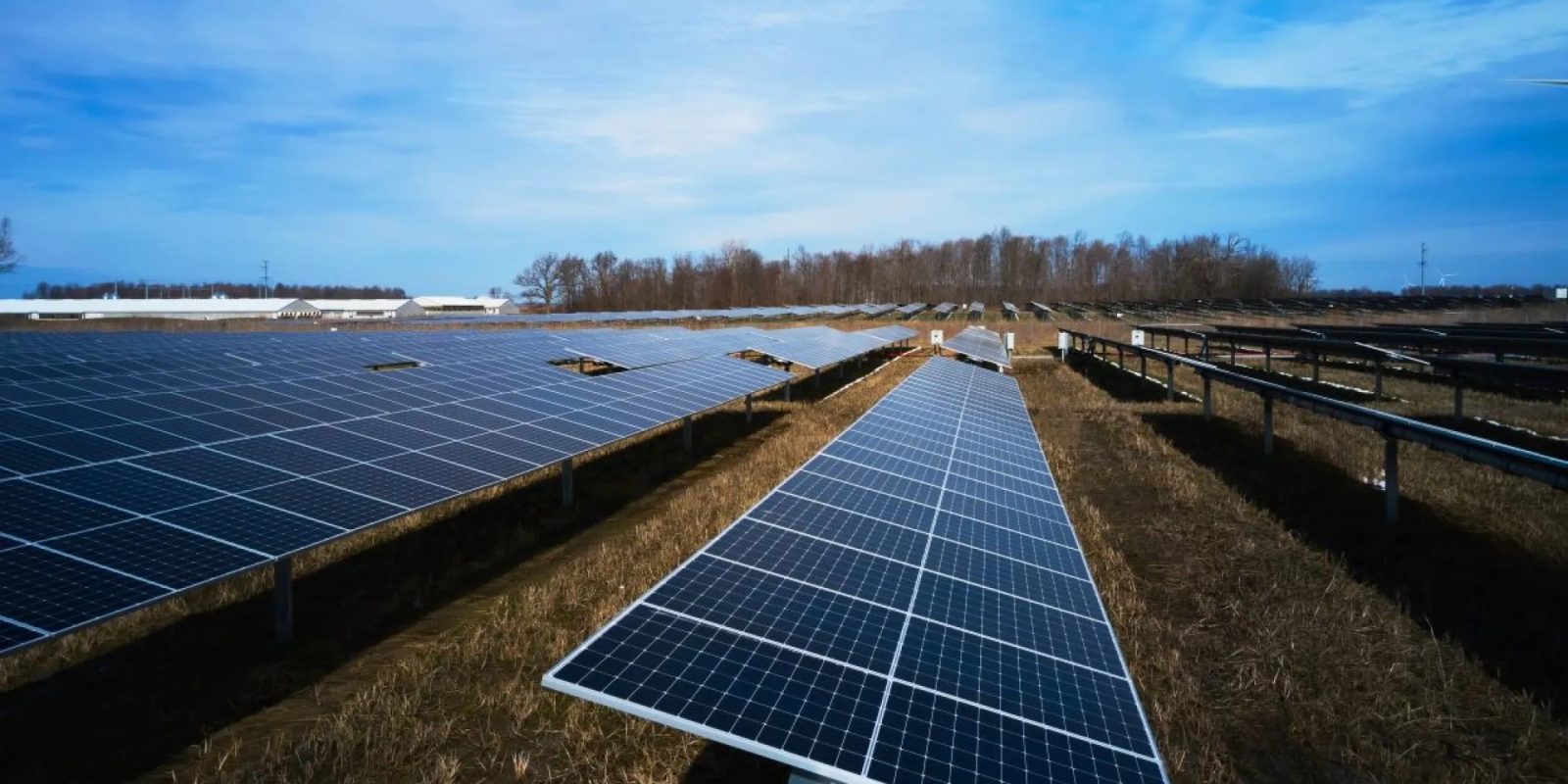
EDP Renewables’ new 150-megawatt solar project is now feeding power into Indiana’s grid, as utilities look for more reliable, in-state generation.
more…
https://electrek.co/2026/01/27/indiana-brought-a-150-mw-solar-farm-online-and-its-just-the-beginning/
Can Congress hold private military housing companies financially accountable for unsafe living conditions?
(date: 2026-01-28)
A group of lawmakers want private military housing companies to pay for mold remediation, relocation expenses for affected families and property loss.
The post Can Congress hold private military housing companies financially accountable for unsafe living conditions? first appeared on Federal News Network.
https://federalnewsnetwork.com/federal-report/2026/01/can-congress-hold-private-military-housing-companies-financially-accountable-for-unsafe-living-conditions/
Trump’s use of AI images pushes new boundaries, further eroding public trust, experts say
(date: 2026-01-28)
Misinformation experts worry government-endorsed AI image-sharing will sow public distrust amid the White House's latest push of harmful content altered by AI.
The post Trump’s use of AI images pushes new boundaries, further eroding public trust, experts say first appeared on Federal News Network.
https://federalnewsnetwork.com/artificial-intelligence/2026/01/trumps-use-of-ai-images-pushes-new-boundaries-further-eroding-public-trust-experts-say/
Two federal officers fired shots during encounter that killed Alex Pretti, homeland security department tells Congress – live
(date: 2026-01-27)
The killing of a 37-year-old US citizen has sparked outrage and widespread protests; videos have contradicted the Trump administration’s characterization of the shooting
Melania Trump has called for “unity” in the wake of the fatal federal law enforcement shootings of US citizens Renee Good and Alex Pretti in Minneapolis and widespread peaceful protests this month.
Asked about the tensions in Minneapolis on Fox News this morning, the first lady said:
We need to unify. I’m calling for unity. I know my husband, the president, had a great call yesterday with the governor and the mayor, and they’re working together to make it peaceful and without riots.
Continue reading...
https://www.theguardian.com/us-news/live/2026/jan/27/gregory-bovino-tim-walz-donald-trump-minnesota-minneapolis-ice-alex-pretti-us-politics-live-news
Fed expected to keep rates unchanged as Chair Powell pivots back to economics
(date: 2026-01-27)
After two weeks of intense political and legal scrutiny, the Federal Reserve will seek to make this week’s meeting about interest rates uneventful.
The post Fed expected to keep rates unchanged as Chair Powell pivots back to economics first appeared on Federal News Network.
https://federalnewsnetwork.com/management/2026/01/fed-expected-to-keep-rates-unchanged-as-chair-powell-pivots-back-to-economics/
Trump’s offshore wind pause just lost again – Vineyard Wind is back to work [update]
(date: 2026-01-27)
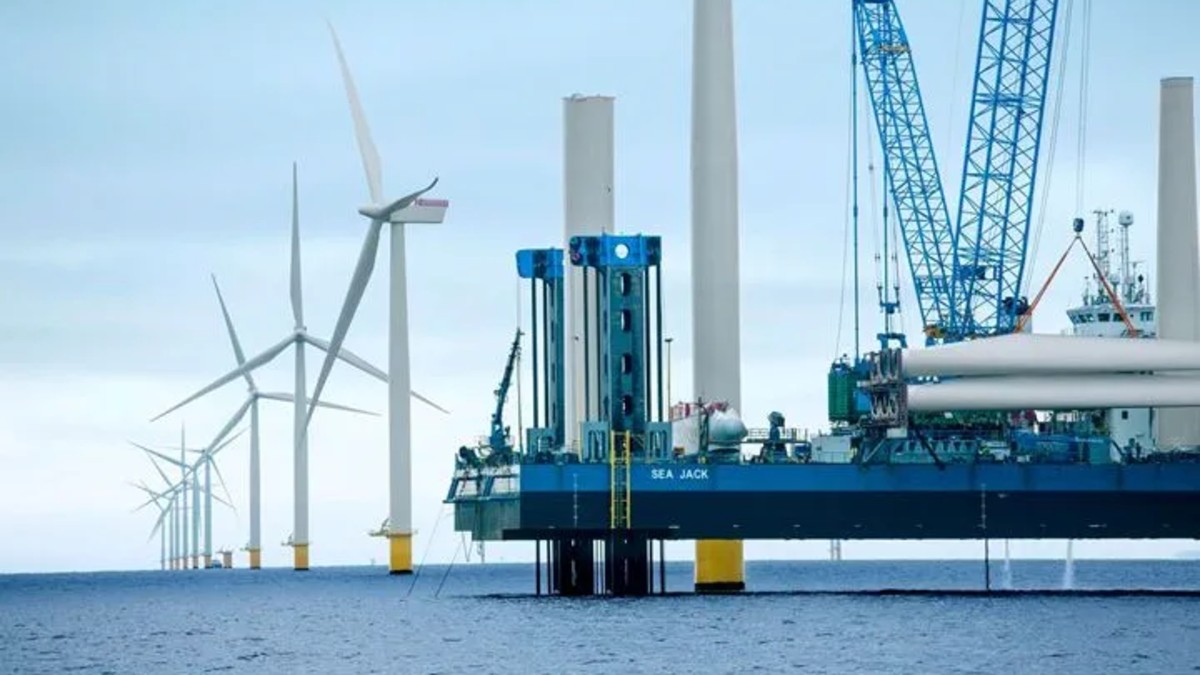
A federal judge cleared Vineyard Wind to restart construction, adding to a growing list of offshore wind projects beating Trump’s stop-work orders.
more…
https://electrek.co/2026/01/27/us-offshore-wind-backlash-grows-as-empire-revolution-wind-sue-trump-admin/
Minnesota raids continue as DHS report indicates two agents fired guns at Pretti
(date: 2026-01-27)
Report emerges as Trump signals he may reduce the surge of ICE and other federal agents in the state
As federal immigration crackdowns in Minnesota have continued on Tuesday, an initial report to Congress from the Department of Homeland Security (DHS) obtained by various news outlets indicates that two officers fired their guns at Alex Pretti during his fatal shooting.
The report emerged as Donald Trump signals he may begin reducing the surge of Immigration and Customs Enforcement (ICE) and other federal agents in the state.
Continue reading...
https://www.theguardian.com/us-news/2026/jan/27/minnesota-ice-raids-alex-pretti-killing-dhs-report
The MAPS merger: Army’s new acquisition strategy signals major incumbent displacement
(date: 2026-01-27)
Brittany Winkler, a senior go-to-market enablement manager for GovDash, explains the questions potential bidders should be asking.
The post The MAPS merger: Army’s new acquisition strategy signals major incumbent displacement first appeared on Federal News Network.
https://federalnewsnetwork.com/commentary/2026/01/the-maps-merger-armys-new-acquisition-strategy-signals-major-incumbent-displacement/
Let's tour the growing AI economy
(date: 2026-01-27)
Artificial intelligence companies raised enormous amounts of money in 2025, and made major investments in development and infrastructure. What’s next? To understand more about the role AI could play in our futures, “Marketplace” host Kai Ryssdal and “Marketplace Tech” host Meghan McCarty Carino visited an AI company and an AI data center in Silicon Valley. In this episode, the next phase of AI innovation won’t come without obstacles.
Every story has an economic angle. Want some in your inbox? Subscribe to our daily or weekly newsletter.
Marketplace is more than a radio show. Check out our original reporting and financial literacy content at marketplace.org — and consider making an investment in our future.
https://www.marketplace.org/episode/2026/01/27/lets-tour-the-growing-ai-economy
Judge strikes down Virginia Democrats’ plan to redraw congressional districts
(date: 2026-01-27)
Ruling is a setback for Democrats looking to increase number of seats in midterm House elections in November
A Virginia judge ruled on Tuesday that a proposed constitutional amendment letting Democrats redraw the state’s congressional maps was illegal, setting back the party’s efforts to pick up seats in the US House in November.
Tazewell circuit court judge Jack Hurley Jr struck down the legislature’s actions on three grounds, including finding that lawmakers failed to follow their own rules for adding the redistricting amendment to a special session.
Continue reading...
https://www.theguardian.com/us-news/2026/jan/27/judge-strikes-virginia-democrats-congressional-redistricting
Minnesota Is Kicking Trump’s Ass – and He Knows It
(date: 2026-01-27)
Team Trump’s violent siege on Minneapolis is failing and rightfully sickening everyone, from the US public to the manosphere.
https://zeteo.com/p/minnesota-trump-siege-americans
US federal judge blocks deportation of five-year-old boy and his father
(date: 2026-01-27)
Texas judge says Liam Ramos and his father cannot be removed as litigation challenging their detention proceeds
A federal judge ruled on Tuesday that a five-year-old Minnesota boy and his father cannot be immediately deported, one week after their arrest sparked international outrage.
A Texas-based judge issued an order saying Liam Ramos, the preschooler, and his father, Adrian Conejo Arias, cannot be removed or transferred out of the judicial district where they are being held while the litigation challenging their detention proceeds.
Continue reading...
https://www.theguardian.com/us-news/2026/jan/27/liam-ramos-child-father-deportation-blocked
To fix federal HR, Washington must stop rewarding failure
(date: 2026-01-27)
This is the "maintenance trap" in action: Agencies spend so much time and money keeping broken systems running that they can't afford to replace them.
The post To fix federal HR, Washington must stop rewarding failure first appeared on Federal News Network.
https://federalnewsnetwork.com/commentary/2026/01/to-fix-federal-hr-washington-must-stop-rewarding-failure/
DHS spending bill would formalize Trump cuts to oversight offices
(date: 2026-01-27)
The spending bill would zero out funding for the DHS Office of Immigration Detention Ombudsman, while making deep cuts to other oversight offices.
The post DHS spending bill would formalize Trump cuts to oversight offices first appeared on Federal News Network.
https://federalnewsnetwork.com/congress/2026/01/dhs-spending-bill-would-formalize-trump-cuts-to-oversight-offices/
Lucid Just Made The First Prototypes Of Its Upcoming Mid-Size SUV
(date: 2026-01-27)
The upcoming SUV—which could be dubbed "Earth"—will be a make-or-break moment for Lucid.
https://insideevs.com/news/785613/lucid-mid-size-suv-prototypes/
Trump’s rift with Europe
(date: 2026-01-27)
The European Union is still reeling after President Trump’s Davos appearance, even after he walked back some of his Greenland threats. A big question remains: How should the EU deal with Trump going forward? Financial Times correspondent Paola Tamma joins Kimberly from Brussels to explain Europe’s shifting approach to Trump and why officials haven’t yet taken more drastic measures to respond to his economic threats. Could a push to seek alternative trade allies be an antidote?
https://www.marketplace.org/episode/2026/01/27/trumps-rift-with-europe
What A Day: ‘ICE Can Go F*** Itself’
(date: 2026-01-27)
Even feds and contractors are pissed.
https://crookedmedia.substack.com/p/what-a-day-ice-can-go-f-itself
This new Chinese EV pickup looks like the Toyota Hilux, but it’s only $18,000
(date: 2026-01-27)

It looks almost identical to a Toyota Hilux, but it’s about half the price. Chery Automotive launched its first electric pickup, starting at just 127,800 yuan ($18,300).
more…
https://electrek.co/2026/01/27/18000-chinese-ev-pickup-looks-like-toyota-hilux/
EVgo bets on NACS as Tesla’s charging port takes over US EVs
(date: 2026-01-27)
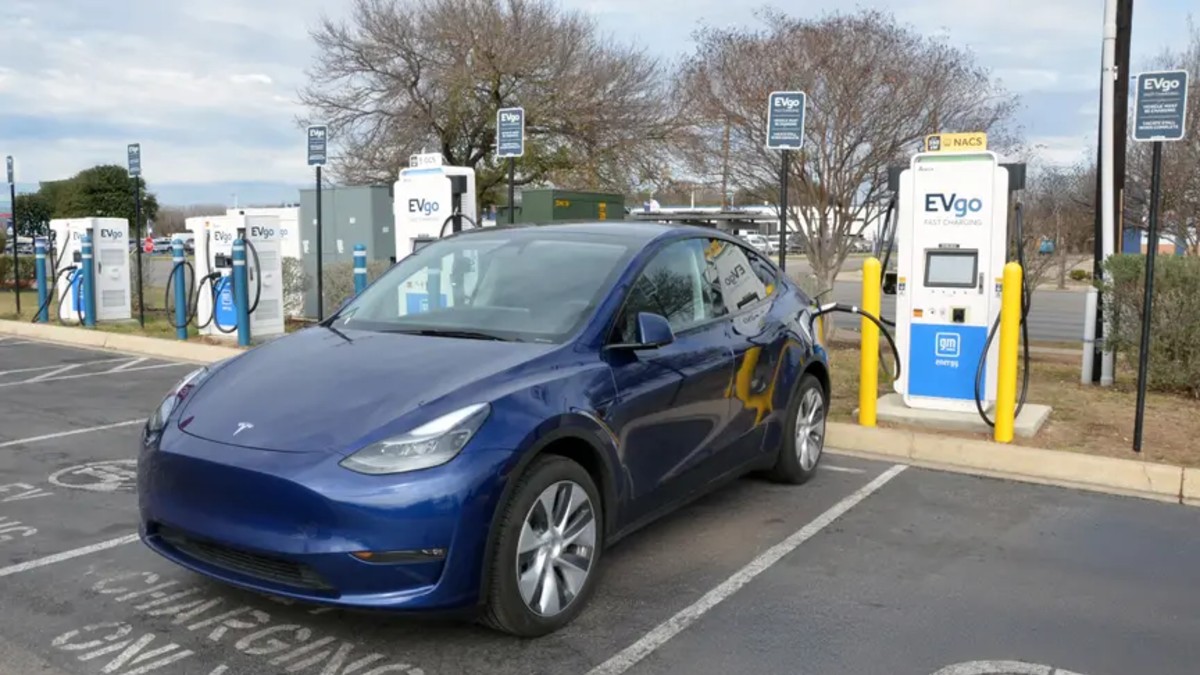
EVgo is betting big on Tesla’s charging standard. After a 2025 pilot that put nearly 100 NACS connectors online across 22 major metro areas, the public fast-charging provider says it plans to scale quickly, with more than 500 NACS connectors expected to be installed by the end of this year at both existing sites and new locations.
more…
https://electrek.co/2026/01/27/evgo-bets-on-nacs-as-teslas-charging-port-takes-over-us-evs/
Fallout finally pushes all its disconnected plots toward the finish line
(date: 2026-01-27)
The season's penultimate episode has daddy-daughter drama, offensive “hoser” use, and yet another prominent character actor's severed head.
https://www.pastemagazine.com/tv/fallout/fallout-recap-season-2-episode-7
The Hyundai Kona is getting a sleek new look, and it looks a lot like this EV concept [Video]
(date: 2026-01-27)

The Hyundai Kona is about to look a lot different. Hyundai is scrapping plans for a mid-cycle facelift and will instead introduce an entirely new Kona.
more…
https://electrek.co/2026/01/27/hyundai-kona-getting-new-look-video/
Dene Nation to restart work on updating its constitution
(date: 2026-01-27)

Dene Nation is working to revise its constitution, picking up on work started before the COVID-19 pandemic. The goal is to update the document so it reflects the realities Dene First Nations are currently facing, including different governance structures.
https://www.cbc.ca/news/canada/north/dene-nation-to-restart-work-on-updating-its-constitution-9.7064157?cmp=rss
IRS lowers phone service targets after falling short on filing season hiring goals
(date: 2026-01-27)
IRS fell short of its hiring goals because of the government shutdown and a new requirement for IRS and Treasury Department leaders to approve hiring plans.
The post IRS lowers phone service targets after falling short on filing season hiring goals first appeared on Federal News Network.
https://federalnewsnetwork.com/management/2026/01/irs-lowers-phone-service-targets-after-falling-short-on-filing-season-hiring-goals/
Colbert sets the date for the very last Late Show
(date: 2026-01-27)
Canceled over to alleged financial concerns by the same company that overpaid for Bari Weiss, The Late Show has been a staple of CBS since the early '90s.
https://www.pastemagazine.com/tv/the-late-show-with-stephen-colbert/stephen-colbert-announces-final-late-show
Top Democrats tell Trump: either fire Kristi Noem or we will impeach her
(date: 2026-01-27)
Trump defends homeland security secretary but Hakeem Jeffries says: ‘We can do this the easy way or the hard way’
Top House Democrats on Tuesday told Donald Trump to fire Kristi Noem or they would launch impeachment proceedings against the homeland security secretary, in response to the weekend killing of Alex Pretti in Minneapolis.
The ultimatum came after a majority of the House Democratic caucus signed on to articles of impeachment introduced earlier in the month in response to the shooting death of Renee Good, who, like Pretti, was a US citizen killed by federal agents during the increasingly violent immigration enforcement operation in Minnesota’s largest city.
Continue reading...
https://www.theguardian.com/us-news/2026/jan/27/democrats-call-to-fire-kristi-noem
Man sprays U.S. lawmaker Ilhan Omar with unknown substance at town hall
(date: 2026-01-27)

A man sprayed an unknown substance on Democratic U.S. Rep. Ilhan Omar and was tackled to the ground Tuesday during a town hall in Minneapolis, where tensions over federal immigration enforcement have come to a head after agents fatally shot an intensive care nurse and a mother of three this month.
https://www.cbc.ca/news/world/ilhan-omar-minneapolis-sprayed-town-hall-9.7064218?cmp=rss
Mountain lion roaming San Francisco’s streets captured by wildlife officials
(date: 2026-01-27)
Before wild feline was caught, authorities had advised residents to slowly back away if they encountered it
Wildlife officials in San Francisco captured a young mountain lion that was spotted roaming the streets of the city.
Authorities issued a warning to residents late on Monday, saying a mountain lion had been seen walking the streets in the Pacific Heights neighborhood and advised people to slowly back away from the animal if they encountered it.
Continue reading...
https://www.theguardian.com/us-news/2026/jan/27/mountain-lion-san-francisco
Scout Motors EREVs Will 'Most Likely' Arrive Before Pure EVs, CEO Says
(date: 2026-01-27)
The "Harvester" model uses a four-cylinder gas engine as a range extender. It's been far more popular than the pure EV version.
https://insideevs.com/news/785636/scout-motors-range-extender/
2 federal agents fired shots when Alex Pretti was killed in Minneapolis: U.S. official
(date: 2026-01-27)

Two federal officers fired shots during the encounter that killed ICU nurse Alex Pretti in Minneapolis, a U.S. Customs and Border Protection official told Congress in a notice sent Tuesday.
https://www.cbc.ca/news/world/alex-pretti-shooting-two-federal-agents-shot-9.7064190?cmp=rss
What Minnesotans are saying about Trump's immigration crackdown
(date: 2026-01-27)

For days, the people of Minneapolis have been expressing outrage over the shooting death of Alex Pretti at the hands of federal agents. Here's how some of them are reacting to the shooting, as well as what they say about U.S. President Donald Trump's move to send more than 2,000 Immigration Customs and Enforcement officers to Minnesota.
https://www.cbc.ca/news/world/minneapolis-ice-minnesota-immigration-trump-9.7064077?cmp=rss
US announces multi-day aerial military drills in the Middle East amid Iran tensions
(date: 2026-01-27)
Exercises described by President Trump as an ‘armada’ to be led by the USS Abraham Lincoln amid standoff
The US has announced plans to hold multi-day military exercises in the Middle East as it deploys what Donald Trump has called an “armada” led by the USS Abraham Lincoln to the region as part of a tense standoff with Iran.
The display of US air power was announced as the White House has suggested it could launch new strikes on Iran after the government’s crackdown on pro-democracy protesters that has left thousands dead and many more in detention with their fates uncertain.
Continue reading...
https://www.theguardian.com/us-news/2026/jan/27/us-announces-multi-day-aerial-military-drills-in-the-middle-east-amid-iran-tensions
Biden condemns ‘our own government targeting’ US citizens in Minneapolis
(date: 2026-01-27)
Ex-president avoids naming Trump but says ‘Minnesotans have suffered enough at the hands of this administration’
Joe Biden has joined other former Democratic presidents in condemning the fatal shooting of the 37-year-old ICU nurse Alex Pretti by federal agents in Minneapolis, saying that it “betrays our most basic values as Americans”.
In a statement that alluded to the constitutional right to due process, Biden said: “We are not a nation that guns down our citizens in the street. We are not a nation that allows our citizens to be brutalized for exercising their constitutional rights. We are not a nation that tramples the fourth amendment and tolerates our neighbors being terrorized.”
Continue reading...
https://www.theguardian.com/us-news/2026/jan/27/biden-minnesota-minneapolis-ice-shooting-reaction
B.C. man gets 5 months in jail over videos, images posted to Pornhub without consent
(date: 2026-01-27)

Judge sentenced the man to five months in custody and 18 months probation, finding the "pre-meditated and revenge motivated nature of the acts" he committed placed it in a more "egregious category" than other cases.
https://www.cbc.ca/news/canada/british-columbia/bc-man-pornhub-without-consent-jail-time-9.7064065?cmp=rss
On the eve of major public‑service award, why integrity, courage and principled leadership still define government excellence
(date: 2026-01-27)
"What Elliot Richardson did was to preserve our institution of government, but to also signal where people need to be paying attention," NAPA's Blockwood said.
The post On the eve of major public‑service award, why integrity, courage and principled leadership still define government excellence first appeared on Federal News Network.
https://federalnewsnetwork.com/people/2026/01/on-the-eve-of-major-public%e2%80%91service-award-why-integrity-courage-and-principled-leadership-still-define-government-excellence/
Dirty Dancing legacy sequel is leaving the corner and getting on its feet
(date: 2026-01-27)
The long-awaited follow-up to Dirty Dancing: Havana Nights is finally making some progress.
https://www.pastemagazine.com/movies/dirty-dancing-sequel-2026-update-jennifer-grey
Alex Vindman, Trump Impeachment Witness, to Run for Senate: Odds for FL Senate Democratic Nominee
(date: 2026-01-27)
This article contains references to products from our advertisers and/or partners, and we may receive compensation when you click on links to products and services Alex Vindman, the former member of the National Security Council…
The post Alex Vindman, Trump Impeachment Witness, to Run for Senate: Odds for FL Senate Democratic Nominee first appeared on Federal News Network.
https://federalnewsnetwork.com/prediction-markets/2026/01/alex-vindman-trump-impeachment-witness-senate-odds-fl-democratic-nominee/
A crackdown on immigration is leading to a sharp drop in U.S. population growth
(date: 2026-01-27)
A sharp drop in net immigration has led to a slowdown in U.S. population growth. The Census Bureau says the population grew only about half as fast in the year ending last June as it did the previous year.
https://www.npr.org/2026/01/27/nx-s1-5689943/population-growth-census-immigration-crackdown
Myrna Johnson to retire from Iowa Public Radio
(date: 2026-01-27)
Johnson took the helm in 2014.
The post Myrna Johnson to retire from Iowa Public Radio appeared first on Current.
https://current.org/2026/01/myrna-johnson-to-retire-from-iowa-public-radio/?utm_source=rss&utm_medium=rss&utm_campaign=myrna-johnson-to-retire-from-iowa-public-radio
Bills promote OC Joe Brady to head coach as team aims to end Super Bowl drought
(date: 2026-01-27)
The Buffalo Bills stayed in-house by promoting offensive coordinator Joe Brady as their new head coach on Tuesday on a five-year deal.
The 36-year-old just completed his fourth season in Buffalo and his second full season as coordinator. He previously served as quarterbacks coach before taking over the offense after Ken Dorsey was fired midway through the 2023 season.
Continue reading...
https://www.theguardian.com/sport/2026/jan/27/bills-promote-oc-joe-brady-to-head-coach-as-team-aims-to-end-super-bowl-drought
The Volvo EX90 Was A Disaster. Here's Why The EX60 Should Be Different
(date: 2026-01-27)
Volvo's flagship EV arrived with serious bugs and missing features. Here's what Volvo learned from that process, according to its CEO.
https://insideevs.com/news/785621/volvo-ex60-launch-issues/
Want to Understand the 'Donroe Doctrine'? Look to Trump’s Gaza Plan
(date: 2026-01-27)
Trump has laid the groundwork for 'taking over' and 'owning' Gaza in a deal that will enrich his family and associates. Undoubtedly, similar plans are in the works now for Venezuela and beyond.
https://zeteo.com/p/trump-donroe-doctrine-venezuela-gaza
First Nations leaders call on universities to ban residential school denialist demonstrations
(date: 2026-01-27)

The British Columbia Assembly of First Nations said in a statement Friday it is calling on all universities to stand with residential school survivors and prohibit denialist demonstrations to ensure campuses are safe spaces for Indigenous students.
https://www.cbc.ca/news/indigenous/ubc-residential-school-denialism-protest-9.7057120?cmp=rss
A closer look at what Congress protected in the FY 2026 Commerce, Justice, and Science bill—and how lawmakers plan to hold agencies accountable
(date: 2026-01-27)
"What we're trying to do here is make sure that the Congress's powers under the Constitution are upheld and can be enforced," Sen. Van Hollen (D-Md.) said.
The post A closer look at what Congress protected in the FY 2026 Commerce, Justice, and Science bill—and how lawmakers plan to hold agencies accountable first appeared on Federal News Network.
https://federalnewsnetwork.com/congress/2026/01/a-closer-look-at-what-congress-protected-in-the-fy-2026-commerce-justice-and-science-bill-and-how-lawmakers-plan-to-hold-agencies-accountable/
Segway Xyber and Xafari e-bikes from $1,800 low + power station sale, EcoFlow expanded DELTA 2 Max flash bundle $1,399, more
(date: 2026-01-27)

Leading our Tuesday Green Deals is Segway’s Xyber Electric Bike dropping to \(3,000](https://9to5toys.com/2026/01/27/segway-xyber-electric-bike-3000-xafari-e-bike-1800-low/) to join the ongoing [Xafari Electric Bike being at its \)1,800 low – plus, we also have the brand’s Lumina and Cube Power Stations (and accessories) at up to 50% off starting from \(130](https://9to5toys.com/2026/01/26/segway-lumina-and-cube-power-stations-accessories-from-130/). Right behind is EcoFlow’s latest 48-hour flash sale that is closing out the brand’s current Disaster Winter Storm Sale, and offering the [DELTA 2 Max Power Station with an expansion battery at \)1,399. There’s also Hiboy’s S2 series of e-scooters getting discounts, a new 2-in-1 Worx combo kit low, a rechargeable AAA + AA battery charger steal, and much more waiting for you below. And don’t forget the hangover deals at the bottom of the page, like yesterday’s $3,389 exclusive savings to a new low price on the EcoFlow DELTA Pro Ultra Power Station and Smart Home Panel 2 bundle, and more.
Head below for other New Green Deals we’ve found today and, of course, Electrek’s best EV buying and leasing deals. Also, check out the new Electrek Tesla Shop for the best deals on Tesla accessories.
more…
https://electrek.co/2026/01/27/segway-electric-bikes-from-1800-low-ecoflow-delta-2-max-bundle-more/
Brothers were predators masquerading as party boys, New York court hears
(date: 2026-01-27)
Defense in sexual abuse trial of property magnates Tal, Oren and Alon Alexander urges jurors to reject ‘monstrous story’
Three brothers, two of them real estate agents who catered to the jet-set crowd, used a playbook over a 12-year stretch that sometimes involved drugging women and girls before raping them, a prosecutor told a New York jury on Tuesday in an opening statement.
Assistant US attorney Madison Smyser said the brothers used “whatever means necessary” including luxury accommodations, flights, drugs, alcohol and sometimes brute force to lure women into situations where they could be raped.
Continue reading...
https://www.theguardian.com/us-news/2026/jan/27/alexander-brothers-trial-sexual-abuse
How do Greenlanders feel about Trump? An impersonator went undercover to find out
(date: 2026-01-27)

Mark Critch from This Hour Has 22 Minutes dressed up as Donald Trump and visited Greenland to learn more about how residents feel about the U.S. president. He shares his findings with Power & Politics.
https://www.cbc.ca/player/play/9.7064060?cmp=rss
Mexican president blames Meta labelling failure for her use of fake Ryan Wedding image
(date: 2026-01-27)

Mexican President Claudia Sheinbaum on Tuesday blamed Meta, the parent company of Instagram, for failing to add an AI label to a fake image of Canadian Ryan Wedding that she used during a news conference about the alleged drug kingpin. Sheinbaum is under increasing pressure at home to explain the details of Wedding's arrest after conflicting statements from her government and U.S. authorities.
https://www.cbc.ca/news/world/wedding-mexico-fake-photo-9.7063524?cmp=rss
Tesla lands major Semi charging deal with nation’s largest truck stop operator
(date: 2026-01-27)

Pilot, the nation’s largest operator of travel centers, has announced a partnership with Tesla to install Semi chargers at select locations along major highway corridors. The first sites are expected to open in Summer 2026.
more…
https://electrek.co/2026/01/27/tesla-lands-major-semi-charging-deal-largest-truck-stop-operator/
‘A militia that kills’: uproar in Italy over ICE security role at Winter Olympics
(date: 2026-01-27)
Milan mayor says agents ‘not welcome’ in co-host city and Italy can take care of security itself
A unit of US Immigration and Customs Enforcement (ICE) agents will have a security role in the Winter Olympic Games in Italy, sparking uproar and petitions against the deployment.
Sources at the US embassy in Rome confirmed a statement from ICE, the agency embroiled in a brutal immigration crackdown in the US, saying that federal agents would support diplomatic security details during the Milan-Cortina Games but would not run any enforcement operations.
Continue reading...
https://www.theguardian.com/us-news/2026/jan/27/italy-ice-security-role-winter-olympics
Philip Glass withdraws world premiere of his Lincoln symphony from Kennedy Center
(date: 2026-01-27)
Composer says values of Trump-dominated Kennedy Center ‘are in direct conflict’ with symphony’s message
Philip Glass, the celebrated US composer, has withdrawn the world premiere of his latest symphony at Washington DC’s John F Kennedy Center in protest of Donald Trump’s presidency.
In a statement on Tuesday, the 88-year-old composer said: “After thoughtful consideration, I have decided to withdraw my Symphony No 15 ‘Lincoln’ from the John F Kennedy Center for the Performing Arts. Symphony No 15 is a portrait of Abraham Lincoln, and the values of the Kennedy Center today are in direct conflict with the message of the symphony.
Continue reading...
https://www.theguardian.com/music/2026/jan/27/philip-glass-withdraws-lincoln-symphony-kennedy-center
IRS announces opening of 2026 filing season
(date: 2026-01-27)
Taxpayers have until April 15 to file their tax returns or request an extension.
The post IRS announces opening of 2026 filing season first appeared on Federal News Network.
https://federalnewsnetwork.com/federal-newscast/2026/01/irs-announces-opening-of-2026-filing-season/
HBO unpacks trailer for Neighbors, Josh Safdie and A24's latest voyage into American weirdness
(date: 2026-01-27)
Armed with real stories of real neighbors in ongoing disputes, Josh Safdie's A24 and HBO's Neighbors is a far cry from the Seth Rogen-Zach Efron comedy that shares its name.
https://www.pastemagazine.com/tv/hbo-neighbors-trailer-josh-safdie-a24
After decades of calls from First Nations, Yukon gov’t says it’s close to finalizing a cancer strategy
(date: 2026-01-27)

Nearly two decades after the Council of Yukon First Nations first released a report calling for a cancer strategy, the Yukon government says it’s close to finalizing one. The strategy would support Yukon First Nations in collecting and analyzing cancer data – a longstanding gap that means First Nations don’t know how prevalent cancer is in their communities.
https://www.cbc.ca/news/canada/north/cancer-strategy-yukon-first-nations-9.7063521?cmp=rss
Fact check: Is the U.S. now controlling what’s posted on TikTok?
(date: 2026-01-27)

After a deal was reached to keep TikTok operating in the U.S., some users accused the app of censoring their posts. CBC’s fact-check team breaks down the facts about the deal.
https://www.cbc.ca/player/play/9.7063979?cmp=rss
Calgary gold retailers see 'huge increase' in business as precious metal prices soar
(date: 2026-01-27)

Soaring gold and silver prices have brought people to Calgary precious metal retailers in droves as they look to cash in or buy more. One expert says the future value of precious metals remains uncertain, largely due to geopolitical instability.
https://www.cbc.ca/news/canada/calgary/precious-metal-prices-calgary-canada-9.7063833?cmp=rss
Border patrol commander to leave Minneapolis after Alex Pretti shooting
(date: 2026-01-27)
Gregory Bovino said to have been stripped of ‘commander at large’ title and sent back to post at US-Mexico border
Gregory Bovino, the border patrol commander who has become the public face of the immigration crackdow n in Minneapolis, is being swapped out for the border czar, Tom Homan, as the Trump administration reshuffles the leadership of its immigration enforcement operation in the city and scales back its federal presence there after a second fatal shooting by officers.
Trump’s decision to replace Bovino comes as the president himself walked back inflammatory claims made by his deputy chief of staff, Stephen Miller, who had characterized nurse Alex Pretti as “an assassin” in the immediate aftermath of his killing by federal agents – a narrative the administration is now attempting to unwind as scrutiny of the killing ramps up.
Continue reading...
https://www.theguardian.com/us-news/2026/jan/27/gregory-bovino-minneapolis-minnesota-alex-pretti-shooting
Suspended Edmonton detective should be dismissed for leaking files to CBC: tribunal
(date: 2026-01-27)

A suspended detective should be formally dismissed from the Edmonton Police Service for leaking confidential investigative police files to CBC News, says a police disciplinary tribunal.
https://www.cbc.ca/news/canada/edmonton/behiels-eps-dismissed-9.7063895?cmp=rss
The Defense Department is taking a closer look at 8(a) contracts, and reshaping how innovation is managed
(date: 2026-01-27)
"I spoke to a very senior person at the white house on this issue. They assured me they're not trying to get rid of 8(a)," said Jim Carroll.
The post The Defense Department is taking a closer look at 8(a) contracts, and reshaping how innovation is managed first appeared on Federal News Network.
https://federalnewsnetwork.com/congress/2026/01/the-defense-department-is-taking-a-closer-look-at-8a-contracts-and-reshaping-how-innovation-is-managed/
Native Public Media partners with Arizona Community Foundation to support tribal stations
(date: 2026-01-27)
The partnership aims to provide stations with both immediate relief and long-term financial stability.
The post Native Public Media partners with Arizona Community Foundation to support tribal stations appeared first on Current.
https://current.org/2026/01/native-public-media-partners-with-arizona-community-foundation-to-support-tribal-stations/?utm_source=rss&utm_medium=rss&utm_campaign=native-public-media-partners-with-arizona-community-foundation-to-support-tribal-stations
Several victims identified in Maine plane crash that killed six
(date: 2026-01-27)
Among victims were attorney Tara Arnold; event planner Shawna Collins; and the plane’s pilot, Jacob Hosmer
Several victims killed in a private jet crash in Maine during a snowstorm on Sunday have been identified.
The France-bound Bombardier Challenger 600 crashed shortly after takeoff at Bangor international airport, killing all six people on board. Among the victims was Houston-based attorney Tara Arnold, who was married to Kurt Arnold, a co-founder of the Arnold & Itkin Law Firm, which owns the private jet, according to the Texas news outlet ABC13.
Continue reading...
https://www.theguardian.com/us-news/2026/jan/27/maine-plane-crash-victims
Judge temporarily bars removal of boy, 5, and father detained by immigration agents in Minnesota
(date: 2026-01-27)

A federal judge has issued a temporary order prohibiting removal of a five-year-old Ecuadorian boy and his father whose arrest last week in Minnesota quickly become another lightning rod for America's divisions on immigration under the Trump administration.
https://www.cbc.ca/news/world/minnesota-5-year-old-boy-detained-9.7063885?cmp=rss
Longtime DC House delegate Eleanor Holmes Norton announces retirement
(date: 2026-01-27)
The 88-year-old Democrat and advocate for Washington DC statehood says she will not seek another term in Congress
Eleanor Holmes Norton, a non-voting House delegate representing Washington DC, announced on Tuesday that she would not seek another term in Congress.
“With fire in my soul and the facts on my side, I’ve raised hell about the injustice of denying 700K taxpaying Americans in DC – the same rights given to residents of the states for 33 years,” Norton, 88, said in a post on X that included her full statement. “Now, with pride in our accomplishments, gratitude to DC, and confidence in the next generation, I announced I’ll retire at the end of this term.”
Continue reading...
https://www.theguardian.com/us-news/2026/jan/27/eleanor-holmes-norton-house-delegate-retires
Canadian doctors say they’re losing 20 million hours a year to unnecessary paperwork
(date: 2026-01-27)

Doctors in Canada each spend, on average, nine hours per week on administrative tasks, totaling 42.7 million hours annually across the country, according to a new report from the Canadian Medical Association and the Canadian Federation of Independent Business.
https://www.cbc.ca/radio/asithappens/cma-doctor-paperwork-report-9.7063539?cmp=rss
FBI to investigate Minneapolis activists after far-right claim about Signal chats
(date: 2026-01-27)
The FBI director, Kash Patel, said the inquiry followed a far-right influencer’s post about anti-ICE Signal chats
The FBI director, Kash Patel, announced on Monday he was launching a criminal investigation into group chats used by Minneapolis protesters on the Signal messaging app, based on a social media post by the far-right personality Cam Higby.
Patel used the podcast of another rightwing personality, Benny Johnson, to break the news.
Continue reading...
https://www.theguardian.com/us-news/2026/jan/27/minneapolis-fbi-signal-investigation-kash-patel
GM expects ‘significantly’ lower EV volume in 2026 as adjustments drag on earnings
(date: 2026-01-27)

General Motors’ (GM) recent plans to scale back EV production in the US cost the company over $7 billion in 2025. Despite selling nearly 100,000 electric vehicles last year, GM is calling for “significantly” lower EV volume this year.
more…
https://electrek.co/2026/01/27/gm-expects-significantly-lower-ev-volume-2026/
B.C.'s attorney general urges Canadian businesses to 'think about their role' in supporting ICE operations
(date: 2026-01-27)

B.C. billionaire Jim Pattison and Vancouver-based Hootsuite are among the Canadian companies facing backlash for business ties to United States Immigration and Customs Enforcement (ICE).
https://www.cbc.ca/news/canada/british-columbia/british-columbia-niki-sharma-jimmy-pattison-canadian-businesses-ice-9.7063692?cmp=rss
Footage shows the extent of Storm Fern's impact across the US – video
(date: 2026-01-27)
The powerful winter storm has been linked to at least 30 deaths, with more than 200 million people under cold alerts as of Monday morning. More than 670,000 power outages were reported across the country on Monday evening. Major institutions in New York City and Washington DC closed on Monday, including the New York Public Library and the National Zoo. New York City public schools had also shifted to remote learning on Monday.
Continue reading...
https://www.theguardian.com/us-news/video/2026/jan/27/footage-winter-storm-fern-us-video
Will Trump's proposals improve housing affordability?
(date: 2026-01-27)
President Donald Trump is rolling out plans to make housing more affordable. He's ordered Fannie Mae and Freddie Mac to purchase $200 billion in mortgage bonds, proposed a ban on private equity purchasing single-family homes, and floated the idea of 50-year mortgages — all while continuing his pressure campaign on the Federal Reserve to lower interest rates. Will they work? Also, tech earnings this week will offer investors a window into the AI boom, and what we’re watching as the Fed meets.
https://www.marketplace.org/episode/2026/01/27/will-trumps-proposals-improve-housing-affordability
UPS says it would cut up to 30,000 jobs this year as it aims to boost turnaround
(date: 2026-01-27)
United Parcel Service adds to 2025 job reductions as delivery giant slashes low-profit Amazon deliveries
United Parcel Service on Tuesday said it would cut up to 30,000 operational roles in 2026, adding to last year’s job reductions as the delivery giant looks to accelerate a turnaround fueled by a pivot to higher-margin shipments.
The company also beat Wall Street estimates for quarterly results in the all-important holiday period and forecast a surprise rise in annual revenue.
Continue reading...
https://www.theguardian.com/business/2026/jan/27/ups-job-cuts-layoffs
Vintage Ads: Mid-Century Winter Travel
(date: 2026-01-27)
As the Great Depression ended, roads improved, and air travel become more accessible, opportunities for travel – especially during the chilly winter months – were richer than ever.
Vintage Ads: Mid-Century Winter Travel
The Saturday Evening Post
https://www.saturdayeveningpost.com/2026/01/vintage-ads-mid-century-winter-travel/
Why do video game skeletons put themselves back together?
(date: 2026-01-27)
When you defeat a skeleton in a video game, there's a very good chance it will quickly reassemble itself. How did this trope start?
https://www.pastemagazine.com/games/skeletons/regenerating-skeletons-games
Apple TV expands Shrinking with early season 4 renewal
(date: 2026-01-27)
And the good news comes just a day before the show debuts season 3.
https://www.pastemagazine.com/tv/shrinking/apple-tv-renews-shrinking-for-season-4
Neil Young gifts Greenland free access to music catalogue
(date: 2026-01-27)

Neil Young announced Tuesday on his blog that he is providing free access to his entire music catalogue to residents of Denmark's semiautonomous territory, whose futures have lately become a point of tension between the U.S. and NATO.
https://www.cbc.ca/news/entertainment/neil-young-catalogue-greenland-9.7063641?cmp=rss
GM’s EV Cost-Cutting Plan Goes Beyond Batteries, CEO Says
(date: 2026-01-27)
GM wants to introduce low-cost LMR and LFP batteries. But that's not the only way it's making EVs cheaper.
https://insideevs.com/news/785604/gm-ev-cost-cutting-may-barra/
USMNT’s Alex Freeman reportedly sold to Villarreal by Orlando City
(date: 2026-01-27)
US national team defender Alex Freeman is set to move from Orlando City to Villarreal in Spain’s La Liga, The Athletic and ESPN reported on Monday.
The transfer fee reportedly starts at more than \(4m but could top \)7m with add-ons included. Per ESPN, Orlando City would get 15% of the proceeds if Villarreal sells Freeman in the future.
Continue reading...
https://www.theguardian.com/football/2026/jan/27/alex-freeman-orlando-city-villarreal-transfer
Why Minneapolis has become such a flashpoint amid ICE deployments
(date: 2026-01-27)

The Trump administration has deployed federal troops to several U.S. cities in the past year — mostly Democrat-led, mostly under the guise of unsubstantiated claims that illegal immigrants are terrorizing those cities with crime. But Minneapolis has seen the largest troop deployment and the worst violence.
https://www.cbc.ca/news/world/minnesota-minneapolis-ice-how-we-get-here-9.7062336?cmp=rss
Minnesota judge summons acting ICE director, warns of contempt over court defiance
(date: 2026-01-27)
Chief judge orders Todd Lyons to appear, saying patience is exhausted as migrants remain jailed despite rulings
Minnesota’s top federal judge has summoned the acting head of Immigration and Customs Enforcement (ICE) to appear before him on Friday, warning he may be held in contempt for allegedly defying court orders.
Chief US district judge Patrick Schiltz demanded ICE lead Todd Lyons explain himself personally in a three-page order issued Monday evening, declaring that “the court’s patience is at an end”.
Continue reading...
https://www.theguardian.com/us-news/2026/jan/27/ice-director-judge-minnesota
Court strikes down challenge of Sask.'s decision to extend life of 3 coal-fired power plants
(date: 2026-01-27)

A group of environmentalists has lost their legal challenge to the Saskatchewan government’s decision to extend the life of three coal-fired power plants to 2050.
https://www.cbc.ca/news/canada/saskatchewan/coal-fired-plants-paris-accord-saskpower-9.7063554?cmp=rss
Ont. lawyer alleges Durham Region police violently assaulted her, dragged her to courthouse cells
(date: 2026-01-27)

A lawyer says she was left bloody and swollen after multiple Durham regional police officers allegedly slammed her head on a desk without provocation, ripped off her head scarf and dragged her to the basement cells of the Oshawa courthouse last week.
https://www.cbc.ca/news/canada/toronto/lawyer-claims-drps-assaulted-her-in-oshawa-courthouse-9.7063334?cmp=rss
Toyota’s biggest electric SUV is almost here
(date: 2026-01-27)

Toyota promised to launch a three-row electric SUV, and it might finally be making good on that promise. In a cryptic teaser image, Toyota hinted at “something new on the horizon,” with what appears to be a larger SUV, possibly the Highlander EV.
more…
https://electrek.co/2026/01/27/toyotas-biggest-electric-suv-almost-here/
Tesla adds clever trick to release frozen charge cables with new software update
(date: 2026-01-27)

Tesla is pushing a new software update that adds a handy workaround for when your charge cable gets stuck in the charge port, a common problem in cold weather when the port can freeze shut.
more…
https://electrek.co/2026/01/27/tesla-adds-trick-release-stuck-charge-cables-new-software-update/
Families of two men killed in Trump’s military boat strikes sue US government
(date: 2026-01-27)
First-of-its kind suit filed by civil rights attorneys on behalf of families centers on 14 October strike in Caribbean Sea that killed six
Civil rights attorneys filed a federal lawsuit against the United States government on Tuesday on behalf of the families of two men from a small fishing village in Trinidad who were killed in a US military airstrike on a small boat in the Caribbean Sea on 14 October.
The lawsuit, shared in advance with the Guardian, says that Chad Joseph, 26, and Rishi Samaroo, 41, both of Las Cuevas, Trinidad, were returning to Trinidad from Venezuela when they and four other people were killed in the strike. It was the fifth attack announced by the White House under Donald Trump’s campaign against the small go-fast boats the administration claims are connected to cartels and gangs.
Continue reading...
https://www.theguardian.com/us-news/2026/jan/27/trump-military-boat-strikes-lawsuit
SCOOP: ICE Has Failed to Disclose Info About 8 Immigrants’ Deaths, Defying Congress
(date: 2026-01-27)
Trump has ICE detaining more people than ever. The agency keeps failing to report information about immigrants’ deaths in its custody.
https://zeteo.com/p/ice-immigrant-deaths-detention-fail-report
‘Delays, lowballs, outright denials’: how the LA wildfires have exposed the US’s broken insurance industry
(date: 2026-01-27)
Insurance practices in an age of climate volatility raise troubling questions about home ownership and housing affordability – the bedrock of the American middle class
For a few frenetic days last January, after losing their midcentury ranch home to the wildfires that ravaged Los Angeles, Jessica and Matt Conkle thought they could see a glimmer of hope.
Their insurance company, State Farm, had sent emergency response teams to Altadena, where they lived, and they filed a claim right away. It wasn’t long before they received a check that covered four months of living expenses.
Continue reading...
https://www.theguardian.com/us-news/2026/jan/27/la-wildfires-insurance-industry
US tech workers call on CEOs to demand Trump remove ICE from cities
(date: 2026-01-27)
More than 800 employees sign petition calling for withdrawal of ICE agents and cancellation of contracts
More than 800 US tech workers have signed a petition calling for tech CEOs to demand the Trump administration remove US Immigration and Customs Enforcement agents from US cities and cancel contracts with the agency.
“We know our industry leaders have leverage: in October, they persuaded Trump to call off a planned ICE surge in San Francisco,” the petition reads. “Now they need to go further, and join us in demanding ICE out of all of our cities.”
Continue reading...
https://www.theguardian.com/us-news/2026/jan/27/us-tech-workers-ice-petition-cancel-contracts-ceo
France moves to ban social media apps for users under 15 years old
(date: 2026-01-27)

French lawmakers approved a bill to ban social media for children under the age of 15. France is the first European country to undergo such a move.
https://www.cbc.ca/player/play/9.7063497?cmp=rss
Girl, 5, deported to Honduras despite being US citizen, becomes latest victim of Trump crackdown
(date: 2026-01-27)
Mother whose visa application was pending says she will send girl back to US soon accompanied by another relative
Five-year-old Génesis Ester Gutiérrez Castellanos misses her cousins, classmates and kindergarten teachers in Austin, Texas. Despite being a US citizen, she was deported on 11 January alongside her mother, Karen Guadalupe Gutiérrez Castellanos, to Honduras, a country Génesis had never known.
Immigration and Customs Enforcement (ICE) agents were acting on an administrative deportation order against Gutiérrez, 26, issued in 2019, before Génesis was born.
Continue reading...
https://www.theguardian.com/us-news/2026/jan/27/five-year-old-girl-us-citizen-and-mother-deported-honduras
Elina Svitolina humbles Coco Gauff to set up Sabalenka semi in Australian Open
(date: 2026-01-27)
-
Ukrainian sweeps to 6-1, 6-2 victory in straight sets
-
Sabalenka defeats American teenager Jovic 6-3, 6-0
Coco Gauff is known across her sport for her mental toughness and problem-solving abilities, her tendency to grind out wins from unenviable positions. However, down 1-6, 0-3, 0-30 on Tuesday night and sinking quickly, the 21‑year‑old has rarely looked as helpless on a tennis court as when she expressed her despair to her support team. “She’s outdoing me in everything,” she said.
This time, there was no way back for the third seed as Elina Svitolina ended a courageous, focused performance by securing the most significant result of the Australian Open so far, dismantling Gauff 6-1, 6-2 to reach her first semi-final in Melbourne.
Continue reading...
https://www.theguardian.com/sport/2026/jan/27/sabalenka-australian-open-semi-finals-jovic-gauff-svitolina-melbourne-heat
Tesla (TSLA) Q4 2025 earnings preview: another year of decline in the books
(date: 2026-01-27)

Tesla (TSLA) will release its Q4 2025 and full-year 2025 financial results on Wednesday, Jan. 28, after the markets close. As usual, a conference call and Q&A with Tesla’s management are scheduled after the results.
Here, we’ll look at what the street and retail investors expect for the quarterly results.
more…
https://electrek.co/2026/01/27/tesla-tsla-q4-2025-earnings-preview-another-year-decline/
The Blind Side actor Quinton Aaron on life support after blood infection
(date: 2026-01-27)
Aaron’s wife, Margarita, told outlets he was intubated on Friday and put on life support after losing feeling in legs
The actor Quinton Aaron, best known for his starring role in the Oscar-nominated film The Blind Side, has reportedly been placed on life support while grappling with a severe blood infection, according to multiple outlets citing interviews with his wife.
Margarita Aaron reportedly confirmed to Fox News and TMZ that her 41-year-old husband was intubated on Friday and placed on life support after he lost feeling in his legs while walking up their home’s stairs and collapsed, prompting her to call 911.
Continue reading...
https://www.theguardian.com/us-news/2026/jan/27/quinton-aaron-the-blind-side-actor-hospital
Trump Slaps New 25% Tariffs On South Korean Cars
(date: 2026-01-27)
Plus, Jaguar is sticking to its electric-only strategy and EV charging companies notch a big win.
https://insideevs.com/news/785520/trump-tariffs-south-korea-jaguar/
Battle Royale's manga adaptation remains a gutting trip to the classroom
(date: 2026-01-27)
The Battle Royale manga adaptation just received a long-awaited English-language re-release and this brutal death game hasn't lost its edge.
https://www.pastemagazine.com/tv/battle-royale/battle-royale-manga-review-deluxe-edition-vol-1
Stepping Into History at Colonial Williamsburg
(date: 2026-01-27)
As the world’s largest living museum, Colonial Williamsburg brings Revolutionary-era America to life.
Stepping Into History at Colonial Williamsburg
The Saturday Evening Post
https://www.saturdayeveningpost.com/2026/01/stepping-into-history-at-colonial-williamsburg/
US still faces freezing temperatures and power outages amid deadly winter storm
(date: 2026-01-27)
More than 30 have died across a dozen states as deep snow and ice halted traffic, canceled flights and closed schools
Many in the US faced another night of below-freezing temperatures and no electricity after a deadly, colossal winter storm heaped more snow on the north-east on Monday and kept parts of the south coated in ice.
More than 30 deaths were registered in more than a dozen states afflicted with severe cold, according to reports. There were still about 550,000 power outages in the nation on Tuesday morning, according to poweroutage.us. Most of the outages were in the south, where weekend blasts of freezing rain caused tree limbs and power lines to snap, inflicting crippling outages on northern Mississippi and parts of Tennessee. Officials warned that it could take days for power to be restored.
Continue reading...
https://www.theguardian.com/us-news/2026/jan/27/winter-storm-weather-snow-power-outages
Hellebuycket, Winnie the Plow and Greg among winners of Winnipeg's 1st snowplow naming contest
(date: 2026-01-27)

Winnipeg's snowplows have been given new names chosen by thousands of voters in the city's first-ever naming contest for the equipment.
https://www.cbc.ca/news/canada/manitoba/winnipeg-snowplow-naming-contest-2026-9.7063143?cmp=rss
'I'm afraid to go out and film': Journalists in Gaza fear they are being targeted by Israel
(date: 2026-01-27)

Three freelance photojournalists in Gaza were killed in an Israeli airstrike last week, the latest in a long list of Palestinian reporters who have died in the war in Gaza. Some fear it's a sign that Israel views them as a legitimate target despite the recent ceasefire it reached with Hamas.
https://www.cbc.ca/news/world/gaza-israeli-journalists-9.7062255?cmp=rss
At least 35 dead after winter storm hits U.S., with more Arctic air expected for southern states
(date: 2026-01-27)

At least 35 deaths have been reported in states afflicted with severe cold across the U.S., according to local officials.
https://www.cbc.ca/news/world/southern-states-icy-power-outages-9.7063283?cmp=rss
Neil Young gives Greenland his life’s work and Amazon the finger
(date: 2026-01-27)
In response to Trump’s Greenland land‑grab threats, Shakey is opening his archives to every Greenlander—and slamming the door on Jeff Bezos’ streaming empire.
https://www.pastemagazine.com/music/neil-young/neil-young-gives-greenland-his-lifes-work-and-amazon-the-finger
Protests at Minneapolis hotel where Gregory Bovino believed to be staying – video
(date: 2026-01-27)
Protesters gathered at a hotel in Minneapolis where they believed the border patrol commander Gregory Bovino was staying. Bovino has become the public face of the Trump administration’s crackdown in Minnesota, and calls for him to be kicked out of the city have grown after federal agents killed the nurse Alex Pretti at the weekend. Bovino has been condemned for claiming without evidence that Pretti had been planning to massacre law enforcement officers
Continue reading...
https://www.theguardian.com/us-news/video/2026/jan/27/protesters-minneapolis-hotel-gregory-bovino-video
Heated Rivalry body double is Ontario university student who says skating for Hudson Williams was 'surreal'
(date: 2026-01-27)

Jonah De Simone, a former University of Guelph Gryphon right winger and onetime Ontario Hockey League player, now has a film credit for his work as a body double in the hit hockey drama Heated Rivalry.
https://www.cbc.ca/news/canada/kitchener-waterloo/heated-rivalry-guelph-hockey-player-gryphon-hudson-williams-body-double-9.7063189?cmp=rss
TikTok settles landmark lawsuit over youth addiction claims
(date: 2026-01-27)

TikTok agreed to settle a landmark social media addiction lawsuit just before the trial kicked off, the plaintiff's attorneys confirmed.
https://www.cbc.ca/news/business/tiktok-settles-landmark-social-media-trial-youth-addiction-9.7063272?cmp=rss
Coco Gauff unhappy after racket smashing video at Australian Open goes viral
(date: 2026-01-27)
Coco Gauff has expressed her disappointment after video of her smashing her racket at the Australian Open was picked up on camera.
The American was well below her usual high standards during her 6-1, 6-2 defeat by Elina Svitolina on Tuesday. Gauff had trouble with her forehand and serve throughout the match - she double-faulted five times in the first set alone – and hit 26 unforced errors to just three winners, losing in just 59 minutes. She also appeared to believe there was something wrong with her equipment as she struggled with her control, and had three of her rackets restrung in the opening set.
Continue reading...
https://www.theguardian.com/sport/2026/jan/27/coco-gauff-unhappy-after-racket-smashing-video-at-australian-open-goes-viral
A year after young man's disappearance, police set up command post at Quebec ski resort
(date: 2026-01-27)

The Sûreté du Québec will set up a command post at the ski resort this Saturday, stationed beside the hotel where Liam Toman was last seen in the early hours of Feb. 2, 2025.
https://www.cbc.ca/news/canada/montreal/liam-toman-tremblant-missing-one-year-9.7063309?cmp=rss
How General Motors Is Turning Software And Subscriptions Into A Money Machine
(date: 2026-01-27)
Here's how much money GM is projecting from its Super Cruise hands-free highway driving system.
https://insideevs.com/news/785581/gm-subscription-software-super-cruise/
The Olympics are a shared viewing experience; what 'viewing' looks like continues to evolve
(date: 2026-01-27)

Advances in technology and a shift in sports consumption offers challenges and opportunities for rights-holders.
https://www.cbc.ca/sports/olympics/olympics-broadcast-evolution-cbc-richard-deitsch-9.7061351?cmp=rss
The Olympics are a shared viewing experience; what 'viewing' looks like continues to evolve
(date: 2026-01-27)

Advances in technology and a shift in sports consumption offers challenges and opportunities for rights-holders.
https://www.cbc.ca/sports/olympics/winter/olympics-broadcast-evolution-cbc-richard-deitsch-9.7061351?cmp=rss
Alex Vindman, Trump impeachment witness, to run as Democrat for Senate
(date: 2026-01-27)
Vindman, who served on national security council, will challenge Republican incumbent in Florida if nominated
Alex Vindman, who became a key player along with his twin brother in Donald Trump’s first impeachment, announced on Tuesday that he is running for the US Senate as a Democrat in Florida.
Vindman, an army veteran, was serving on the national security council in 2019 during Trump’s first presidency. That year, Trump pressured the Ukrainian president, Volodymyr Zelenskyy, to investigate Joe Biden.
Continue reading...
https://www.theguardian.com/us-news/2026/jan/27/alex-vindman-running-florida-senate-trump
Charges laid after potential bomb-making chemicals found at London, Ont., home
(date: 2026-01-27)

Four people face multiple charges after police say a trespassing call on Western University's campus last weekend led to the discovery of chemicals allegedly capable of making explosives in a nearby London, Ont., home.
https://www.cbc.ca/news/canada/london/4-charged-after-potential-bomb-making-chemicals-found-at-northwest-london-ont-home-9.7063268?cmp=rss
What the Game Of Thrones universe really needed was a smaller story
(date: 2026-01-27)
HBO's fantasy franchise regains its spark with the warmer, funnier A Knight Of The Seven Kingdoms.
https://www.pastemagazine.com/tv/a-knight-of-the-seven-kingdoms/game-of-thrones-universe-needed-smaller-story-a-knight-of-the-seven-kingdoms
Fight over US healthcare subsidies stuck on familiar snag: abortion
(date: 2026-01-27)
Republicans refuse to advance without more restrictions on abortion coverage – Democrats say that’s a nonstarter
When subsidies for US healthcare plans expired at the end of last year, millions of Americans saw their monthly premiums suddenly hit eye-watering, unaffordable levels. But the congressional fight over reviving Affordable Care Act (ACA) subsidies has gotten stuck on a familiar snag in US politics: abortion.
Congressional leaders said on Thursday they had reached a bipartisan deal to use a spending bill to overhaul elements of the US healthcare system, with a focus on corporate middlemen who have been accused of raising prescription drug prices, but the deal does not address the subsidies. The deal could also fall apart, as Democrats and Republicans are now splintering over whether and how to back government spending measures in the wake of federal officers’ fatal shooting of Alex Pretti in Minneapolis.
Continue reading...
https://www.theguardian.com/us-news/2026/jan/27/us-healthcare-subsidies-abortion
Inquest for nephew of Ontario MPP Sol Mamakwa postponed after late First Nation man's partner dies
(date: 2026-01-27)

The inquest for a 27-year-old who died while in custody at the Thunder Bay Jail in northwestern Ontario has been postponed due to the sudden death of his partner. Kevin Mamakwa was the nephew of Sol Mamakwa, an NDP member of provincial parliament who previously called for the jail to be shut down due to safety concerns.
https://www.cbc.ca/news/canada/thunder-bay/kevin-mamakwa-inquest-postponed-9.7062899?cmp=rss
Farmers feel the big freeze
(date: 2026-01-27)
Freezing temperatures and ice over the past weekend have impacted agricultural industries across the U.S. This morning, we'll learn about its effects on timber, sugar cane, crawfish, cattle, and more. But first, major U.S. insurance companies are down in premarket trading after a small projected rate increase for privatized Medicare Advantage plans. And, from Marketplace’s "Make Me Smart," federal student loan borrowers in default won't experience wage or tax garnishment — yet.
https://www.marketplace.org/episode/2026/01/27/farmers-feel-the-big-freeze
Australian Open 2026 quarter-finals: Alcaraz hammers De Minaur, Svitolina destroys Gauff – as it happened
(date: 2026-01-27)
Elina Svitolina annihilated Coco Gauff to set up a semi-final meeting with Aryna Sabalenka, while Carlos Alcaraz battered Alex de Minaur and will face Alexander Zverev next
Looking at the head-to-head, Svitolina has beaten Gauff before at the Australian Open, but that was in 2021, when Gauff was only 16 and hadn’t yet graduated to the status of double grand slam champion. Gauff has defeated Svitolina in the two matches they have played since, but they did both go to three sets. And I wouldn’t be surprised if this match goes the distance too. Svitolina is in supreme form, having won all nine of her matches in 2026.
Gauff and Svitolina have made their entrance, with the Rod Laver Arena roof closed. That’s always the case for the night session walk-outs, but we’re not sure yet if the the heat rule is in place which would mean the roof stays on for the match. It’s still 42C (!!!) at 7pm in the evening. Zverev played his match under the roof earlier, the doubles matches are taking place under the roof on Margaret Court and the start of the wheelchair events have been postponed until tomorrow.
Continue reading...
https://www.theguardian.com/sport/live/2026/jan/27/australian-open-2026-gauff-svitolina-alcaraz-de-minaur-live
‘Abdication’: Trump formally takes US out of Paris climate agreement for a second time
(date: 2026-01-27)
Experts are watching for how other countries will react as the ‘real economy’ shifts to cheaper, cleaner energy
The United States has officially exited the Paris climate agreement for the second time, cementing Donald Trump’s renewed break with the primary global venue to address global heating.
The move leaves the US as the only country to have withdrawn from the pact, placing it alongside Iran, Libya and Yemen as the only countries not party to the agreement. While it will not halt global climate efforts, experts say it could significantly complicate them.
Continue reading...
https://www.theguardian.com/us-news/2026/jan/27/trump-withdraws-paris-climate-agreement
Unpacking the "mother of all deals"
(date: 2026-01-27)
From the BBC World Service: India and the European Union have agreed to a major trade deal after nearly two decades of on-and-off negotiations. The wide-ranging agreement will see a number of huge tariff cuts and a joint security partnership. And later, President Donald Trump says that he's jacking up tariffs on South Korea. Plus, French lawmakers have passed a bill that will ban children under 15 from accessing social media.
https://www.marketplace.org/episode/2026/01/05/unpacking-the-mother-of-all-deals
First Draft: Did Trump’s Top Jackbooted ICE Goon Just Get the Boot?
(date: 2026-01-27)
Greg Bovino learns the meaning of 'scapegoat,' the White House devolves into civil war, and Rupert Murdoch’s media empire wakes up to the horror of Alex Pretti’s murder.
https://zeteo.com/p/did-trumps-top-jackbooted-ice-goon
U.S. ICE agents to support security at Milano-Cortina Olympics, stirring anger in Italy
(date: 2026-01-27)

U.S. Immigration and Customs Enforcement agents will have a security role during the upcoming Milan Cortina Winter Games , according to information shared with local media by sources at the U.S. Embassy in Rome.
https://www.cbc.ca/sports/olympics/winter/ice-agents-us-embassy-olympics-milano-cortina-9.7062556?cmp=rss
Mercedes-Benz Is Putting This Hydrogen Electric Semi Truck Into Production
(date: 2026-01-27)
The NextGenH2 Truck is like an EREV with a hydrogen fuel cell that acts as a generator–minus the charging port.
https://insideevs.com/news/785575/mercedes-hydrogen-electric-actros-truck-production/
'The mother of all deals': EU and India strike landmark agreement amid U.S. tariffs
(date: 2026-01-27)

Leaders of the European Union and India announced a wide-ranging trade agreement on Tuesday, which came after nearly two decades of on-and-off negotiations that became increasingly urgent in the last six months after stiff tariffs were imposed by U.S. President Donald Trump.
https://www.cbc.ca/news/world/eu-india-trade-deal-9.7062783?cmp=rss
Jessica Jones is back to save Daredevil's ass in season 2 trailer
(date: 2026-01-27)
Daredevil: Born Again officially sets its return to Disney+.
https://www.pastemagazine.com/tv/daredevil-born-again-season-2-trailer-jessica-jones
Russian drone strike on passenger train in Ukraine's Kharkiv region kills 3: prosecutors
(date: 2026-01-27)

A Russian drone strike killed three people and wounded two more aboard a passenger train in Ukraine's northeastern Kharkiv region, prosecutors said on Tuesday. Earlier Tuesday, drones hammered the southern Ukrainian city of Odesa, also killing three.
https://www.cbc.ca/news/world/ukraine-odesa-russian-drone-9.7062769?cmp=rss
Secretary of State for Sport says he binge-watched Heated Rivalry over the holidays
(date: 2026-01-27)

Adam van Koeverden, Canada's secretary of state for sport, told reporters the hit show Heated Rivalry 'speaks volumes to the power and influence of Canadian storytelling.' The Olympic gold medallist sported a sweater from the show on his way out of the federal cabinet meeting on Tuesday.
https://www.cbc.ca/player/play/9.7062821?cmp=rss
Senate Democrats urged to demand ‘real reforms’ over ICE funding bill
(date: 2026-01-27)
Progressive caucus leader Greg Casar calls for five ‘non-negotiable’ items to be included before Democrats vote yes
The leader of Congress’s progressive caucus on Monday called for Democratic senators to demand “real reforms” to Immigration and Customs Enforcement before voting for a key spending bill, and warned that Republicans would take the blame if the standoff sparks another government shutdown.
The call from Greg Casar, the Texas congressman who chairs the Congressional Progressive Caucus, comes after the Saturday killing of US citizen Alex Pretti by federal agents in Minneapolis upset delicate negotiations in Congress intended to keep the government running beyond Friday, when the current spending authorization expires.
Continue reading...
https://www.theguardian.com/us-news/2026/jan/27/senate-democrats-ice-dhs-funding-bill
Horror's in the blood in Blumhouse Games' Crisol: Theater of Idols
(date: 2026-01-27)
Nothing's scarier than religion in Crisol: Theater of Idols, an upcoming survival horror game from Blumhouse and Vermila Studios.
https://www.pastemagazine.com/games/crisol-theater-of-idols/crisol-theater-of-idols-preview
The 75 greatest guitarists of the 21st century
(date: 2026-01-27)
Good guitar playing doesn’t always mean virtuostic technique or culturally relevant riffs. It’s about telling a story with your instrument.
https://www.pastemagazine.com/music/greatest-guitarists/the-75-greatest-guitarists-of-the-21st-century
Tate McRae, Justin Bieber lead 2026 Juno Award nominations
(date: 2026-01-27)

The Weeknd, Daniel Caesar, the Beaches and Jessie Reyez also nabbed nominations, and there was an increase in first-time nominees.
https://www.cbc.ca/music/junos/juno-awards-2026-nominations-breakdown-tate-mcrae-justin-bieber-9.7060742?cmp=rss
A historic home tour of the virtual world
(date: 2026-01-27)
529 Bryant St. in Palo Alto, California, is home to a key landmark in tech history. Now owned and operated as a data center by Equinix, the building has been a networking hub to a variety of firms, including the earliest telephone switch board operators and early internet firms like Alta Vista. Marketplace’s Meghan McCarty Carino visited the data center to learn more.
https://www.marketplace.org/episode/2026/01/27/a-historic-home-tour-of-the-virtual-world
Fire destroys Berens River First Nation school early Tuesday morning
(date: 2026-01-27)

A blaze destroyed a First Nation's school and prompted the closure of Berens River's public offices, with leaders urging residents to remain indoors as smoke filled the sky Tuesday morning.
https://www.cbc.ca/news/canada/manitoba/berens-river-school-fire-9.7062755?cmp=rss
Jimmy Kimmel calls out "one atrocity after another" committed by ICE in Minneapolis
(date: 2026-01-27)
The late night host dubbed ICE "goons committing vile, heartless and even criminal acts."
https://www.pastemagazine.com/media/jimmy-kimmel/jimmy-kimmel-monologue-ice-minneapolis
Removing US as World Cup host would be eminently sad – and entirely justified | Alexander Abnos
(date: 2026-01-27)
A country where safety is under threat from federal violence on the streets is not fit to stage soccer’s showpiece event
Removing the United States as co-host of the 2026 World Cup would hurt for pretty much everyone. Fans would miss out on seeing the sport’s pinnacle in their home towns (or somewhere nearby). Cities and businesses small and large would lose the financial benefits they had banked on. It would be a logistical and political nightmare on an international scale, the likes of which have never been seen before in sports. It would be eminently sad. And it would be entirely justified.
It brings me no pleasure to say this. The United States has been eager to host a men’s World Cup for more than a decade and a half. The desire survived and even grew after 2010’s failure to out-bid Russia and Qatar (in public and behind closed doors) for the 2018 and 2022 World Cups. With hosting rights for 2026 later secured alongside Canada and Mexico, the US soccer scene prepared to show off that the sport is now part of the nation’s fabric, 32 years after hosting the tournament for the first time in 1994. Soccer’s growing popularity in America has helped inspire other US sports to try new formats, encouraged us to engage more fully with the world in a sporting context, and has been at the center of conversations about our society and culture. The 2026 World Cup was seen as the best chance for the world to fully experience not just how much the US has improved at soccer, but how much soccer has improved the US.
Continue reading...
https://www.theguardian.com/football/2026/jan/27/us-world-cup-hosting-duties-taken-away
Trump to hold de facto midterm kickoff in Iowa focused on the economy, energy prices
(date: 2026-01-27)
President Trump's rally in Iowa on Tuesday brings his message to a state disproportionately affected by his economic policies and whose voters could help determine control of Congress.
https://www.npr.org/2026/01/27/nx-s1-5688705/trump-iowa-2026-midterm-elections
Canada could gain nearly 7% in real GDP by removing internal trade barriers, says IMF
(date: 2026-01-27)

Canada’s economy could gain nearly seven per cent, or $210 billion, in real GDP by fully removing internal trade barriers between the country’s 13 provinces and territories, according to a report published Tuesday by the International Monetary Fund.
https://www.cbc.ca/news/business/canadian-economy-report-imf-interprovincial-trade-9.7062567?cmp=rss
Vancouver city council calls on feds to address headlight brightness
(date: 2026-01-27)

Advocates say car headlights are not only too bright, but also too high up on larger vehicles, sometimes aiming at eye level. They say the lights blind other drivers, cyclists and pedestrians.
https://www.cbc.ca/news/canada/british-columbia/vancouver-vehicle-headlight-brightness-safety-concerns-9.7061810?cmp=rss
Carney says he told Trump 'I meant what I said in Davos,' contradicting U.S. account
(date: 2026-01-27)

Prime Minister Mark Carney is dismissing a claim that he walked back the remarks he made in Davos, Switzerland, last week during a conversation with U.S. President Donald Trump on Monday.
https://www.cbc.ca/news/politics/carney-denies-walking-back-davos-speech-9.7062599?cmp=rss
Coutts protester Anthony Olienick granted bail pending results of his appeal
(date: 2026-01-27)

After four years behind bars, one of the men convicted of mischief and firearms violations in connection with the 2022 Coutts, Alta., border blockade is being released from prison.
https://www.cbc.ca/news/canada/calgary/coutts-protester-anthony-olienick-granted-bail-pending-results-of-his-appeal-9.7062427?cmp=rss
All the nominees at the 2026 BAFTA Film Awards
(date: 2026-01-27)
One Battle After Another and Sinners once again lead the pack.
https://www.pastemagazine.com/movies/baftas/bafta-film-award-nominees-2026
Tesla fared worse than any automaker in EU in 2025, even as EVs outsold petrol
(date: 2026-01-27)

Sales of electric cars outnumbered petrol-powered ones in Europe in December for the first time, even as Europe loosened rules to allow automakers lenience to pollute more.
But the huge increase in EV sales, led by BYD, was not accompanied by a similar boost in Tesla sales, with the company still seeing huge year-over-year declines in its global sales performance.
more…
https://electrek.co/2026/01/27/tesla-fared-worse-than-any-automaker-in-eu-in-2025-even-as-evs-outsold-petrol/
Hlynur Pálmason winningly channels Bergman in family drama The Love That Remains
(date: 2026-01-27)
Godland's Hlynur Pálmason brings an unconventional yet comforting perspective to Iceland's Oscar entry, family drama The Love That Remains.
https://www.pastemagazine.com/movies/hlynur-palmason/the-love-that-remains-review
EVs Just Outsold Gas Cars In Europe For The First Time
(date: 2026-01-27)
Europe hit a historic milestone as EV sales surpassed gas cars for the first time, despite geopolitical headwinds.
https://insideevs.com/news/785541/ev-sales-surpass-gas-cars-europe-first-time/
Trump Retreats After Alex Pretti's Killing
(date: 2026-01-27)
Donald Trump caves to the national outrage over Alex Pretti's killing, telling Governor Tim Walz that he'll agree to allow for an impartial investigation and...
https://crookedmedia.substack.com/p/trump-retreats-after-alex-prettis
New details show vigorous, pricey process to identify explicit books in Edmonton schools
(date: 2026-01-27)

The 329 pages of records, obtained by CBC News, reveal that 11 teachers were hired by Edmonton Public Schools for a four-week summer project to review books for sexually explicit content, at a cost of $43,000.
https://www.cbc.ca/news/canada/edmonton/alberta-edmonton-books-banned-9.7059069?cmp=rss
Sly Dunbar, Jamaican drummer who played with reggae and rock greats, dead at 73
(date: 2026-01-27)

Two-time Grammy Award-winning reggae drummer Sly Dunbar, who fuelled countless tracks from Bob Marley to Bob Dylan and was one-half of the influential reggae rhythm section Sly & Robbie, has died. He was 73.
https://www.cbc.ca/news/entertainment/obit-drummer-sly-dunbar-9.7062470?cmp=rss
Snow squalls batter eastern Ontario, closing section of Canada’s busiest highway due to multiple crashes
(date: 2026-01-27)

The latest round of snowy weather is hitting the east end of Lake Ontario Tuesday. There have been multiple Highway 401 closures in the area, including a full closure between Belleville and Trenton.
https://www.cbc.ca/news/canada/ottawa/snow-squall-weather-forecast-kingston-belleville-ontario-9.7062505?cmp=rss
Rad Power Bikes may be saved? A mysterious buyer steps forward
(date: 2026-01-27)

Rad Power Bikes has officially found a buyer. Just over a month after entering the bankruptcy process, the once-dominant direct-to-consumer electric bike brand has reached an agreement to sell its assets.
more…
https://electrek.co/2026/01/26/rad-power-bikes-may-be-saved-a-mysterious-buyer-steps-forward/
February film preview: A bloody Valentine's courtesy of Sam Rockwell, Margot Robbie, and a baller goat
(date: 2026-01-27)
In our February film preview classic holiday fare Wuthering Heights faces off with a series of violent horror-comedies.
https://www.pastemagazine.com/movies/new-movies-in-theaters-february-2026
Indigenous roller derby film hits Canadian theatres
(date: 2026-01-27)

Rising Through the Fray follows an Indigenous roller derby team as its players navigate sport, trauma, and cultural reconnection while building community across nations.
https://www.cbc.ca/news/indigenous/indigenous-roller-derby-film-hits-canadian-theatres-9.7061563?cmp=rss
'Please don't let me die': Calgary patients recount long waits in emergency rooms
(date: 2026-01-27)

Two stories from Calgary women who say they endured lengthy ER waits while facing life-threatening emergencies are "the tip of the iceberg," according to one physician.
https://www.cbc.ca/news/canada/calgary/calgary-emergency-room-wait-times-9.7060368?cmp=rss
At least 6,159 people killed in Iran's crackdown on nationwide protests, activists say
(date: 2026-01-27)

Iran's bloody crackdown on nationwide protests has killed at least 6,159 people while many others still are feared dead, activists said Tuesday, as a U.S. aircraft carrier group arrived in the Middle East to lead any American military response to the crisis.
https://www.cbc.ca/news/world/iran-protests-death-toll-human-rights-9.7062450?cmp=rss
Judge in Minnesota orders acting ICE director to appear in court as Trump reshuffles leadership of crackdown
(date: 2026-01-27)

The chief federal judge in Minnesota says the Trump administration has failed to comply with orders to hold hearings for detained immigrants and ordered the head of Immigration and Customs Enforcement to appear before him Friday to explain why he shouldn't be held in contempt.
https://www.cbc.ca/news/world/bovino-ice-minneapolis-removed-trump-9.7062365?cmp=rss
P.E.I. couple says their kids' RESP is in limbo because the bank altered their last name
(date: 2026-01-27)

Max Deller-Lestage and Marie Pascal wanted to transfer the registered education savings plan they set up for their children to a new bank — but the transfer wouldn't go through. That's because their kids' last names didn't match what was on the original investment account.
https://www.cbc.ca/news/canada/prince-edward-island/pei-couple-kids-resp-investment-last-name-9.7062054?cmp=rss
How Trump’s immigration crackdown is starting to hurt him politically
(date: 2026-01-27)

There’s growing evidence that U.S. President Donald Trump’s administration is losing public support for its heavy-handed tactics in both detaining undocumented immigrants and cracking down on protests against the immigration sweep.
https://www.cbc.ca/news/world/trump-ice-immigration-politics-minneapolis-minnesota-9.7062211?cmp=rss
Can NATO survive Trump?
(date: 2026-01-27)

Last week, U.S. President Donald Trump set off a firestorm with comments dismissing the military contributions of fellow NATO members during the war in Afghanistan.
This follows the president’s aggressive bid for Greenland, a self-governing territory of NATO-ally Denmark, which brought into question whether NATO, the North Atlantic Treaty Organization, could survive without America, its strongest and richest member.
And while some kind of agreement on Greenland now seems to be on the table, and Trump appears to be backing down, today we’re asking what damage has already been done to NATO. How does this latest challenge to its existence compare to conflicts the military alliance has faced before? Aaron Ettinger, a professor of political science at Carleton University, joins us for a conversation about how NATO’s past and present could inform its future.
For transcripts of Front Burner, please visit: https://www.cbc.ca/radio/frontburner/transcripts [https://www.cbc.ca/radio/frontburner/transcripts]
https://www.cbc.ca/player/play/9.7062157?cmp=rss
An aging substation caused Montreal’s latest blackout. Its replacement is still years away
(date: 2026-01-27)

The equipment failure that left thousands of Montrealers without power during this weekend’s bitter cold originated at a substation that Hydro-Québec has been aiming to replace since at least 2018.
https://www.cbc.ca/news/canada/montreal/cote-st-luc-montreal-hydro-outage-9.7061706?cmp=rss
Trump wants to cap credit card interest at 10%. Is that good for consumers and the economy?
(date: 2026-01-27)

U.S. President Donald Trump has called for credit card interest rates to be capped at 10 per cent — a move that could bring short-term relief to some consumers but is likely to cause a broader credit crisis in the long run, according to experts.
https://www.cbc.ca/news/business/trump-credit-card-cap-interest-rates-9.7061434?cmp=rss
Is Canada equipped to handle Chinese EVs?
(date: 2026-01-27)

The cost of importing Chinese cars to Canada is set to drop steeply with a recent cut in tariffs. How will that impact EV sales? Are our EV charging infrastructure and our grid ready for those extra cars? Here's a closer look at the potential impact.
https://www.cbc.ca/news/science/chinese-evs-charging-grid-infrastructure-9.7061631?cmp=rss
Canada's icebreaker pact looked great until Trump started threatening the Arctic
(date: 2026-01-27)

Canada is a party to an agreement to work with U.S. and Finnish counterparts to produce icebreakers for the U.S. Coast Guard. Those ships will give the U.S. greater ability to operate in the Arctic. Will they also be used to threaten Canada's sovereignty in the North?
https://www.cbc.ca/news/politics/icebreaker-pact-canada-finland-united-states-9.7061953?cmp=rss
What happens now that Ryan Wedding has pleaded not guilty?
(date: 2026-01-27)

Canadian Ryan Wedding, the former Olympic snowboarder turned alleged drug kingpin, pleaded not guilty in Santa Ana, Calif., court Monday to multiple charges related to murder and drug trafficking. Here is what we know about the next steps in the criminal case.
https://www.cbc.ca/news/world/ryan-wedding-plea-next-steps-9.7062285?cmp=rss
7 Times Conservatives Praised Gun-Toting Protesters
(date: 2026-01-27)
They're attacking Alex Pretti for having a gun. But here are some famous moments when Trump and the right treated armed protesters like heroes.
https://zeteo.com/p/conservatives-ice-guns-trump-minneapolis-list-second-ammendment
Toyota's Next EVs Are Coming Soon. Here's What They Cost
(date: 2026-01-27)
The 2026 Toyota C-HR and bZ Woodland EVs are coming soon. Here's how much they cost—and why to consider their Subaru cousins instead.
https://insideevs.com/news/785516/toyota-chr-bz-woodland-pricing/
Electric take on winter weather while Tesla’s sales slide continues
(date: 2026-01-27)

On today’s icy cold episode of Quick Charge, the only thing colder than the air outside most Americans’ homes is the demand for Tesla Cybertrucks – so we’ve got some EV-focused tips on making it through the cold while Elon begins shipping CTs overseas.
more…
https://electrek.co/2026/01/26/electric-take-on-winter-weather-while-teslas-sales-slide-continues/
OPM closes DC federal offices for second day in a row
(date: 2026-01-27)
Federal employees in the D.C. region are under maximum telework as the area continues to dig out from Sunday's winter storm.
The post OPM closes DC federal offices for second day in a row first appeared on Federal News Network.
https://federalnewsnetwork.com/workforce/2026/01/opm-closes-dc-federal-offices-for-second-day-in-a-row/
EVs promised cleaner air. Satellites say it’s finally happening.
(date: 2026-01-27)

EVs are supposed to clean up the air, but finding real-world proof has been surprisingly hard. A new study from the University of Southern California (USC) says the satellite evidence is finally strong enough to measure.
more…
https://electrek.co/2026/01/26/evs-promised-cleaner-air-satellites-say-its-finally-happening/
Minneapolis mayor says some federal agents will begin to leave on Tuesday amid growing anger over Alex Pretti death – live
(date: 2026-01-26)
Jacob Frey adds that he will meet border czar Tom Homan; Donald Trump described their call as ‘very good’, claiming ‘lots of progress’ was made
As more and more Republicans call for an investigation of Alex Pretti’s killing, it’s worth remembering that Donald Trump’s call for heavy-handed immigration enforcement appeared to have already rankled a portion of his base.
A Politico poll that surveyed some 2000 adults between 16 and 19 January found that 49% of Americans believed Trump’s campaign was “too aggressive”.
Continue reading...
https://www.theguardian.com/us-news/live/2026/jan/26/minnesota-minneapolis-ice-protests-alex-pretti-donald-trump-us-politics-live-news-updates
As AI expands, Americans have doubts
(date: 2026-01-26)
Artificial intelligence is one of a handful of industries propelling this economy forward. But as the sector explodes, not everyone is on board. Americans are much more concerned about the downsides of AI than excited about its potential utility, according to a new Pew Research survey. In this episode, everyday Americans grapple with — and in some cases, fight back against — the proliferation of AI technology. Plus: Durable goods orders were up in November, gold prices continue to break records, and “Marketplace” host Kai Ryssdal tours a data center in Los Angeles.
Every story has an economic angle. Want some in your inbox? Subscribe to our daily or weekly newsletter.
Marketplace is more than a radio show. Check out our original reporting and financial literacy content at marketplace.org — and consider making an investment in our future.
https://www.marketplace.org/episode/2026/01/26/as-ai-expands-americans-have-doubts
Paraglider dies in Alberta after crashing into mountain near Canmore
(date: 2026-01-26)

Mounties in Alberta say a paraglider died after crashing into the side of a mountain just over a week ago.
https://www.cbc.ca/news/canada/calgary/paragliding-crash-canmore-9.7062388?cmp=rss
Senators seek pause on DHS spending bill, following fatal shooting of VA nurse by Border Patrol
(date: 2026-01-26)
VA employees expressed outrage over the death of Alex Pretti. Coworkers remembered him as someone who cared deeply for his patients.
The post Senators seek pause on DHS spending bill, following fatal shooting of VA nurse by Border Patrol first appeared on Federal News Network.
https://federalnewsnetwork.com/congress/2026/01/senators-seek-pause-on-dhs-spending-bill-following-fatal-shooting-of-va-nurse-by-border-patrol/
Treasury cuts ties with Booz Allen over tax records breach
(date: 2026-01-26)
Treasury’s decision to cancel all contracts with Booz Allen Hamilton adds to growing concerns for consulting contractors working in the federal market.
The post Treasury cuts ties with Booz Allen over tax records breach first appeared on Federal News Network.
https://federalnewsnetwork.com/contracting/2026/01/treasury-cuts-ties-with-booz-allen-over-tax-records-breach/
Canadian ex-Olympian pleads not guilty to 17 felonies including drug trafficking
(date: 2026-01-26)
Authorities allege Ryan Wedding, 44, ‘turned to a life of crime’ after his snowboarding career ended
Ryan Wedding, the Canadian former Olympic snowboarder accused of cocaine distribution and orchestrating several murders, appeared on Monday in a southern California courtroom for arraignment.
The 44-year-old has been charged with drug trafficking, conspiracy to murder, witness tampering and money laundering, among other charges. Authorities allege that after his snowboarding career, Wedding “turned to a life of crime” as a narcotics trafficker and led an organization that moved cocaine from South America to the US and Canada.
Continue reading...
https://www.theguardian.com/us-news/2026/jan/26/canadian-ryan-wedding-ex-olympian-drug-trafficking
US winter storm: at least 29 people dead and nearly 200m under cold alerts
(date: 2026-01-26)
Thousands of flights also canceled as states from Texas to Maine grapple with heavy snow, ice and cold temperatures
The powerful winter storm sweeping across much of the US over the weekend has been linked to at least 29 deaths.
The deaths have been reported from Texas to New England as many parts of the country grappled with heavy snow, ice and dangerous cold.
Continue reading...
https://www.theguardian.com/us-news/2026/jan/26/winter-storm-snow-deaths-power-outages-travel
Minneapolis court considers whether Trump’s deployment of ICE agents violates constitution
(date: 2026-01-26)
Lawyers argue that surge ordered by Trump administration amounts to an illegal occupation of the state
A federal court in Minneapolis heard arguments on Monday on whether the Trump administration’s deployment of 3,000 immigration agents to Minnesota has crossed the line from law enforcement into unconstitutional occupation.
Hours later, Kate Menendez, the Biden-appointed US district judge overseeing the case, ordered the federal government to respond to the assertion that the Trump administration’s so-called “Operation Metro Surge” enforcement campaign was intended to “punish plaintiffs for adopting sanctuary laws and policies”.
Continue reading...
https://www.theguardian.com/us-news/2026/jan/26/minneapolis-trump-ice-immigration-court
Longtime DC Delegate Eleanor Holmes Norton is ending her reelection campaign for Congress
(date: 2026-01-26)
The 88-year-old veteran of the Civil Rights Movement is the oldest member of Congress and has been an advocate for her city's interests in Congress since 1991.
The post Longtime DC Delegate Eleanor Holmes Norton is ending her reelection campaign for Congress first appeared on Federal News Network.
https://federalnewsnetwork.com/congress/2026/01/longtime-dc-delegate-eleanor-holmes-norton-is-ending-her-reelection-campaign-for-congress/
Oversight community wrestles with challenges to independence and more
(date: 2026-01-26)
The size and complexity of government, rapid changes in technology, and finding the best way to communicate are all big challenges for the oversight community.
The post Oversight community wrestles with challenges to independence and more first appeared on Federal News Network.
https://federalnewsnetwork.com/federal-report/2026/01/oversight-community-wrestles-with-challenges-to-independence-and-more/
What A Day: The Battle of Minneapolis
(date: 2026-01-26)
Democrats brace for a shutdown over ICE.
https://crookedmedia.substack.com/p/what-a-day-the-battle-of-minneapolis
Second federal killing in Minneapolis: how the shooting of Alex Pretti unfolded – video analysis
(date: 2026-01-26)
Warning: this video contains footage that may be distressing to some viewers
At about 9am on Saturday, US federal agents shot and killed Alex Pretti, a Minneapolis nurse who was observing immigration officers in the city. The Guardian’s video team has pieced together footage showing the attack from different angles
Continue reading...
https://www.theguardian.com/us-news/video/2026/jan/26/second-federal-killing-in-minneapolis-how-the-shooting-of-alex-pretti-unfolded-video-report
Gold price soars past $5,000 US an ounce for 1st time ever
(date: 2026-01-26)

Gold prices soared to $5,000 US an ounce for the first time largely driven by investors turning to precious metals — often seen as a more steady investment — during a period of global economic uncertainty.
https://www.cbc.ca/player/play/9.7062335?cmp=rss
Offline EV chargers are a mess – Emobi and HeyCharge have a fix
(date: 2026-01-26)

EV chargers that don’t work because they’re stuck offline are still a daily frustration for drivers and a costly headache for operators. Emobi and HeyCharge say they have a practical fix for that.
more…
https://electrek.co/2026/01/26/offline-ev-chargers-are-a-mess-emobi-and-heycharge-have-a-fix/
Trump’s ICE crackdown faces reckoning as outrage mounts over Alex Pretti shooting
(date: 2026-01-26)
President says his administration is reviewing fatal shooting as Republicans and Democrats criticize ICE surge
Donald Trump’s efforts to deploy militarized immigration agents in US cities may finally be reaching a reckoning as he faces widespread opposition across the US, dissenting lawmakers in his own party, and impending court rulings after the fatal shooting of Alex Pretti by federal officers in Minneapolis.
While there is no sign the aggressive tactics used by immigration enforcement are coming to an end, the mayor of Minneapolis said the administration will begin to scale back the number of federal agents in Minneapolis starting on Tuesday, as the president and his team soften their harsh rhetoric about the incident.
Continue reading...
https://www.theguardian.com/us-news/2026/jan/26/donald-trump-administration-reviewing-alex-pretti-shooting
Why Is the Press Treating Republicans Like Toddlers After Their Agents Killed an American Nurse?
(date: 2026-01-26)
Swin and Prem slam the GOP for their tepid response to the shooting of Alex Pretti – and the press corps for their soft-headed coverage of it.
https://zeteo.com/p/why-is-the-press-treating-republicans
A sweeping audit could reshape the 8(a) program and federal contractors are bracing for what comes next
(date: 2026-01-26)
"The only companies getting $20M sole source awards.. are Alaska Native corporations, Native Hawaiian organizations, tribally-owned organizations," Murphy said.
The post A sweeping audit could reshape the 8(a) program and federal contractors are bracing for what comes next first appeared on Federal News Network.
https://federalnewsnetwork.com/contracting/2026/01/a-sweeping-audit-could-reshape-the-8a-program-and-federal-contractors-are-bracing-for-what-comes-next/
The 2026 Toyota bZ Woodland is a bigger and more powerful EV: Is it worth the higher price?
(date: 2026-01-26)

The bZ Woodland is longer than Toyota’s first electric SUV, and it comes with all-wheel drive as standard. Is it worth the added price?
more…
https://electrek.co/2026/01/26/toyota-2026-bz-woodland-ev-prices/
The federal government ignored a cybersecurity warning for 13 years. Now hackers are exploiting the gap.
(date: 2026-01-26)
With malicious AI tools at their fingertips, adversaries (and their tactics) are becoming increasingly sophisticated — and more challenging to detect.
The post The federal government ignored a cybersecurity warning for 13 years. Now hackers are exploiting the gap. first appeared on Federal News Network.
https://federalnewsnetwork.com/commentary/2026/01/the-federal-government-ignored-a-cybersecurity-warning-for-13-years-now-hackers-are-exploiting-the-gap/
White House avoids Minneapolis tirade as signs suggest Trump backing down
(date: 2026-01-26)
Karoline Leavitt seemed unusually defensive in discussing Alex Pretti’s killing – and refused to endorse Stephen Miller
What Karoline Leavitt, the White House press secretary, did not say on Monday was more important than what she did.
When Leavitt stepped up to the briefing room podium to address the deadly shooting of Alex Pretti by federal agents in Minneapolis, she avoided the kind of victim-blaming tirade that has become de rigueur for Donald Trump’s administration.
Continue reading...
https://www.theguardian.com/us-news/2026/jan/26/trump-analysis-white-house-alex-pretti-minnesota
Public hearing into potential police misconduct 'in jeopardy' after lawyer resigns following hot-mic obscenity
(date: 2026-01-26)

The public hearing into the alleged misconduct of seven Vancouver Police Department officers in the 2015 death of Myles Gray is “in jeopardy” after an obscenity was uttered and caught on a microphone last Wednesday.
https://www.cbc.ca/news/canada/british-columbia/opcc-public-hearing-vpd-myles-gray-in-jeopardy-hot-mic-obscenity-9.7061833?cmp=rss
This storm just froze half of North America
(date: 2026-01-26)

A massive winter storm has buried millions under a historic blanket of snow and ice, locking much of North America in a dangerous Arctic air mass. CBC’s Johanna Wagstaffe breaks down the rare atmospheric collision of a polar vortex and an atmospheric river — two extreme weather phenomena that combined to create this record-breaking, high-impact event.
https://www.cbc.ca/player/play/9.7062274?cmp=rss
House committee chairman calls for USCIS, CBP and ICE leaders to testify
(date: 2026-01-26)
His letter comes in the aftermath of another deadly shooting by a federal agent in Minnesota as part of the Trump administration's immigration crackdown.
The post House committee chairman calls for USCIS, CBP and ICE leaders to testify first appeared on Federal News Network.
https://federalnewsnetwork.com/federal-newscast/2026/01/house-homeland-security-cmte-chairman-calls-for-uscis-cbp-and-ice-leaders-to-testify/
Justice Department is Investigating Ilhan Omar: See Odds for Congresswoman to be Charged with Federal Crime
(date: 2026-01-26)
This article contains references to products from our advertisers and/or partners, and we may receive compensation when you click on links to products and services Minnesota Democratic Rep. Ilhan Omar is currently under federal investigation…
The post Justice Department is Investigating Ilhan Omar: See Odds for Congresswoman to be Charged with Federal Crime first appeared on Federal News Network.
https://federalnewsnetwork.com/prediction-markets/2026/01/justice-department-investigating-ilhan-omar-see-odds-charged-with-federal-crime/
The drone economy is about to take off fast: A $355B market and new rule could make drones-as-a-service the next big thing
(date: 2026-01-26)
"It allows drones to be operated beyond the pilot's visual line of sight, and it allows multiple drones to operate by one operator or pilot," McDanolds said.
The post The drone economy is about to take off fast: A $355B market and new rule could make drones-as-a-service the next big thing first appeared on Federal News Network.
https://federalnewsnetwork.com/technology-main/2026/01/the-drone-economy-is-about-to-take-off-fast-a-355b-market-and-a-new-rule-could-make-drones-as-a-service-the-next-big-thing/
Xiaomi SU7 outsells Tesla Model 3 in China for the first time
(date: 2026-01-26)

For the first time since Tesla launched the Model 3 in China in 2019, another automaker has outsold it in the premium electric sedan segment. And it’s a smartphone company.
Xiaomi delivered 258,164 units of its SU7 sedan in 2025, nearly 30% more than Tesla Model 3’s 200,361 deliveries, according to data from the China Passenger Car Association (CPCA).
This comes just weeks after we reported that Tesla confirmed its first year of domestic sales decline in China. The writing was on the wall, and now we’re seeing the direct consequences.
more…
https://electrek.co/2026/01/26/xiaomi-su7-outsells-tesla-model-3-china/
Shedeur Sanders set to better father Deion by reportedly making Pro Bowl as rookie
(date: 2026-01-26)
Shedeur Sanders will reportedly become a Pro Bowler in his rookie season as a replacement for Drake Maye.
ESPN reported on Monday that the Cleveland Browns rookie has bettered his Hall of Fame father, Deion Sanders, who was drafted in 1989 but had to wait until 1991 to receive the first of his eight trips to the Pro Bowl.
Continue reading...
https://www.theguardian.com/sport/2026/jan/26/shedeur-sanders-pro-bowl-quarterback-nfl
B.C. billionaire Jim Pattison's Virginia warehouse could become ICE facility
(date: 2026-01-26)

The U.S. Department of Homeland Security is in talks to buy a Virginia warehouse owned by British Columbia billionaire Jim Pattison and plans to turn it into an Immigration and Customs Enforcement (ICE) processing facility. One business ethics expert says companies need to be clear about where they draw the line on who they do business with.
https://www.cbc.ca/news/business/ice-warehouse-jim-pattison-9.7061994?cmp=rss
Melissa Gilbert releases statement on husband Timothy Busfield's child sex abuse charges
(date: 2026-01-26)
In a post befitting her Modern Prairie lifestyle brand, Melissa Gilbert shared her thoughts on her husband's child sex abuse scandal and a picture of herself with a big mug of tea.
https://www.pastemagazine.com/tv/timothy-busfield/melissa-gilbert-comments-timothy-busfield-arrest
Senate Dems Finally Realized They Shouldn’t Fund ICE. It Only Took a Second Murder
(date: 2026-01-26)
Trump’s agents murdered Alex Pretti in Minneapolis on Saturday. Now, Republicans have lost the votes they need to expand ICE’s budget.
https://zeteo.com/p/senate-democrats-trump-dhs-funding-alex-pretti
The Kia Niro EV lives on for a 2026 model, but it’s starting to look a little pricey
(date: 2026-01-26)

Kia announced prices for the 2026 Niro EV. Although it’s about the same price as the outgoing model, the Niro is starting to look a little overpriced compared to some of the new EVs arriving.
more…
https://electrek.co/2026/01/26/kia-niro-ev-lives-2026-looks-pricey/
One of the best teams ever iced: How Canada won Olympic women’s hockey gold 20 years ago in Italy
(date: 2026-01-26)

As the Olympics return to Italy in February, CBC Sports looks back on a dominant 2006 victory by the Canadian women's Olympic hockey team in Turin in 2006.
https://www.cbc.ca/sports/olympics/winter/hockey/2006-olympic-womens-hockey-gold-canada-retrospective-9.7062014?cmp=rss
ICT teams up with Marquette University to expand Indigenous journalism in Great Lakes region
(date: 2026-01-26)
The Diederich College of Communication will house ICT’s new regional bureau, making its facilities available and integrating reporter expertise into the journalism program.
The post ICT teams up with Marquette University to expand Indigenous journalism in Great Lakes region appeared first on Current.
https://current.org/2026/01/ict-teams-up-with-marquette-university-to-expand-indigenous-journalism-in-great-lakes-region/?utm_source=rss&utm_medium=rss&utm_campaign=ict-teams-up-with-marquette-university-to-expand-indigenous-journalism-in-great-lakes-region
Exclusive new low on EcoFlow DELTA Pro Ultra bundle w/ Smart Home Panel 2 ($3,389 off), Segway ZT3 e-scooter at new $773 low, more
(date: 2026-01-26)

This week’s Green Deals are starting off strong, as we have exclusive \(3,389 savings on the EcoFlow Delta Pro Ultra Whole-Home Power Station bundled](https://9to5toys.com/2026/01/26/ecoflow-delta-pro-ultra-station-smart-home-panel-2-free-trolley-exclusive-4409/) with a Smart Home Panel 2 and a FREE trolley at a [new \)4,409 low. Right behind it we spotted Segway’s ZT3 Pro Electric Scooter cruising down to a new \(773 low](https://9to5toys.com/2026/01/26/all-terrain-segway-zt3-pro-e-scooter-new-773-low/), as well as [Bluetti’s Elite 10 Mini Portable Power Station at its \)113 Amazon low, Worx’s unique and far safer 20V JawSaw Cordless Electric PowerShare Chainsaw, our latest review of the Anker SOLIX C2000 Gen 2 Power Station, and more waiting for you below – including the final day of Lectric’s extremely rare price cut flash sale across all its e-bikes. And don’t forget about the hangover deals from last week that are at the bottom of the page, rounded up within our latest edition of Electrified Weekly.
Head below for other New Green Deals we’ve found today and, of course, Electrek’s best EV buying and leasing deals. Also, check out the new Electrek Tesla Shop for the best deals on Tesla accessories.
more…
https://electrek.co/2026/01/26/exclusive-ecoflow-delta-pro-ultra-bundle-smart-home-panel-2-segway-zt3-e-scooter-more/
Minnesota shooting: protests erupt over Alex Pretti killing | The Latest
(date: 2026-01-26)
Federal agents shot and killed 37-year-old Alex Pretti in Minneapolis, the second such killing in the city within less than three weeks. Pretti was an intensive care nurse with no criminal record, yet federal agents raced to portray him as a violent ‘gunman’ who threatened to ‘massacre’ law enforcement. Video evidence directly contradicts this account. Since then, protests have erupted in the US. The Trump administration said it was ‘reviewing’ the incident. Lucy Hough speaks to the Guardian columnist Moira Donegan
Continue reading...
https://www.theguardian.com/us-news/video/2026/jan/26/minnesota-shooting-protests-erupt-over-alex-pretti-killing-the-latest
Back to school: Toronto school boards reopening Tuesday after snow closures
(date: 2026-01-26)

The Toronto District School Board and Toronto Catholic District School Boards say schools will be open Tuesday after record-breaking snowfall on the weekend forced schools to close Monday. The York Region District also says its schools will be open Tuesday.
https://www.cbc.ca/news/canada/toronto/tdsb-schools-open-tuesday-9.6932095?cmp=rss
With House spending bills done, focus turns to the Senate where work is expected to wrap up this week, ahead of the Jan. 30 deadline
(date: 2026-01-26)
"There are a few items in the overall omnibus that could give pause to some members of the Senate, both Republicans and Democrats," said WTOP's Mitchell Miller.
The post With House spending bills done, focus turns to the Senate where work is expected to wrap up this week, ahead of the Jan. 30 deadline first appeared on Federal News Network.
https://federalnewsnetwork.com/congress/2026/01/with-house-spending-bills-done-focus-turns-to-the-senate-where-work-is-expected-to-wrap-up-this-week-ahead-of-the-jan-30-deadline/
Critics slam Pam Bondi’s demand for Minnesota voter rolls amid ICE surge
(date: 2026-01-26)
Outrage mounts after US attorney general’s request as state reels from the weekend killing of Alex Pretti in Minneapolis
There was widespread outrage after the attorney general, Pam Bondi, pushed for access to Minnesota’s voter rolls as the state reeled from the killing of Alex Pretti over the weekend.
Bondi included the demand for voter rolls in a letter she sent to the Minnesota governor, Tim Walz, on Saturday urging him to “change course” in the state. In addition to turning over the voter rolls, Bondi also said the state should turn over data on those receiving public assistance and repeal sanctuary city policies in the state.
Continue reading...
https://www.theguardian.com/us-news/2026/jan/26/pam-bondi-minnesota-voter-rolls-ice-surge
Ye takes out ad in Wall Street Journal to, once again, apologize for antisemitism
(date: 2026-01-26)

Ye, the musician formerly known as Kanye West, on Monday took out a full page ad in the Wall Street Journal to again apologize for his past antisemitic statements.
https://www.cbc.ca/news/entertainment/ye-antisemitism-wall-street-journal-9.7061839?cmp=rss
Tesla brings Cybertruck to Middle East amid US demand collapse
(date: 2026-01-26)
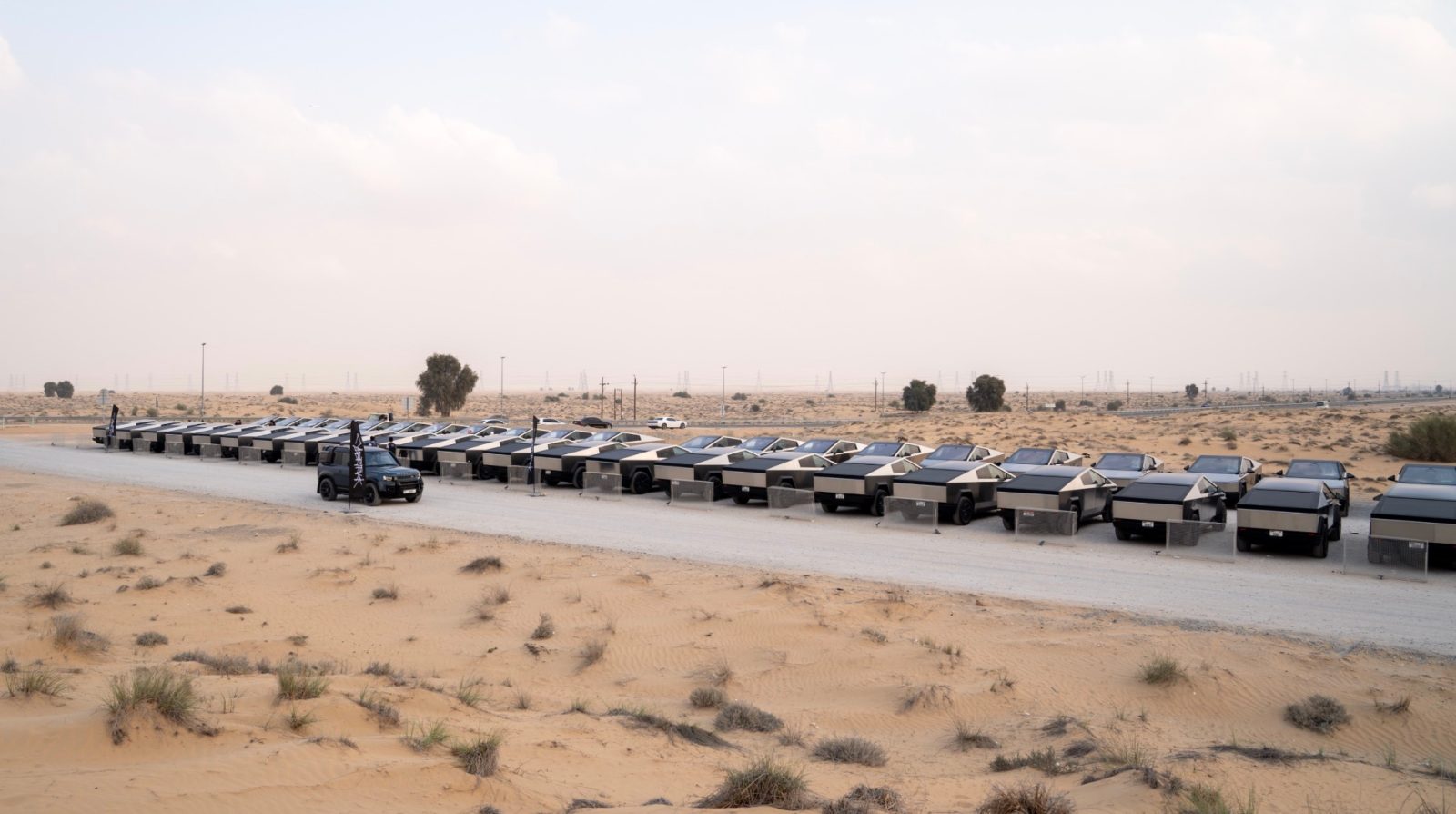
Tesla has officially begun Cybertruck deliveries in the United Arab Emirates, marking the electric pickup’s first sales in the Middle East and its second international market after South Korea.
more…
https://electrek.co/2026/01/26/tesla-brings-cybertruck-to-middle-east-amid-us-demand-collapse/
11 children hospitalized following incident at Canmore, Alta., hotel pool
(date: 2026-01-26)

Eleven children were hospitalized following an incident at a local hotel's pool. One child was transferred to Alberta Children's Hospital in Calgary in serious but stable condition.
https://www.cbc.ca/news/canada/calgary/canmore-hotel-pool-illness-9.7061996?cmp=rss
Like many Avatar movies before it, James Cameron's Billie Eilish movie has been delayed
(date: 2026-01-26)
The Billie Eilish concert film, Hit Me Hard And Soft: The Tour, co-directed by James Cameron, will be "dialing in cool, new 3D tech," but won't be available until May.
https://www.pastemagazine.com/movies/billie-eilish/billie-eilish-james-cameron-hit-me-hard-and-soft-delay
Seven killed and one injured in private jet crash in Maine during snowstorm
(date: 2026-01-26)
Aircraft crashed at airport in Bangor, which has received about 10in of snow as deadly storm pummels US
Seven people were killed and a crew member survived with serious injuries when a private business jet crashed in a snowstorm at Maine’s Bangor international airport, the US Federal Aviation Administration (FAA) says.
The Bombardier Challenger 600 carrying eight people crashed on takeoff at about 7.45pm on Sunday night as Bangor, the rest of the New England region, and much of the country grappled with a deadly, massive winter storm. The airport, about 200 miles (320km) north of Boston, shut down after the crash.
Continue reading...
https://www.theguardian.com/us-news/2026/jan/26/private-aircraft-crashes-maine-winter-storm
GM plugs in with Electrify America to make EV charging a breeze
(date: 2026-01-26)

GM just made it even easier for Chevy, GMC, and Cadillac EV drivers to find and use Electrify America charging stations.
more…
https://electrek.co/2026/01/26/gm-plugs-in-electrify-america-to-make-ev-charging-a-breeze/
Republican ends bid for Minnesota governor, citing ‘unconstitutional’ ICE surge
(date: 2026-01-26)
Chris Madel drops out of race and in video criticizes the ‘federal retribution on the citizens’ of Minnesota
A top Republican candidate for Minnesota governor has dropped out of the race, sharply criticizing what he called a “federal retribution on the citizens of our state” amid the Trump administration’s intensified immigration enforcement operations – which sparked public outrage after US agents’ killings of Alex Pretti and Renee Good in Minneapolis.
On Monday, the Minneapolis-based attorney Chris Madel made his announcement, saying in a video online: “I cannot support the … stated retribution on the citizens of our state, nor can I count myself a member of a party that would do so.”
Continue reading...
https://www.theguardian.com/us-news/2026/jan/26/republican-chris-madel-minnesota-governor-race-ice
Former Liberal cabinet minister Kirsty Duncan dead at 59
(date: 2026-01-26)
![Former federal minister of sport Kirsty Duncan speaks to CBC News. 'I will continue to push [for a national inquiry into abuse in sport] because I will not be complicit.](https://i.cbc.ca/ais/1.6728978,1674853269000/full/max/0/default.jpg?im=Crop%2Crect%3D%280%2C375%2C4032%2C2268%29%3BResize%3D%28620%29)
Former Liberal cabinet minister Kirsty Duncan has died at the age of 59 following a years-long battle with cancer.
https://www.cbc.ca/news/canada/toronto/obit-kirsty-duncan-newsalert-urgent-9.7061931?cmp=rss
Mexican president shares AI-generated image of Ryan Wedding
(date: 2026-01-26)

Mexican President Claudia Shienbaum on Monday presented reporters with a picture that purported to show Ryan Wedding, a longtime Canadian fugitive and accused drug kingpin, at the U.S. Embassy in Mexico City, suggesting it amounted to evidence that he had voluntarily turned himself in. CBC News has determined the image was, in fact, generated using AI and posted to a debunked Instagram account.
https://www.cbc.ca/news/world/ryan-wedding-claudia-sheinbaum-ai-image-9.7061723?cmp=rss
The federal workforce changed drastically in 2025. Here’s how.
(date: 2026-01-26)
Federal News Network's analysis of federal workforce data reveals the agencies that had the steepest employee separations, whether voluntary or involuntary.
The post The federal workforce changed drastically in 2025. Here’s how. first appeared on Federal News Network.
https://federalnewsnetwork.com/workforce/2026/01/the-federal-workforce-changed-drastically-in-2025-heres-how/
Tesla quietly starts shipping Model Y with new AI4.5 computer
(date: 2026-01-26)

Tesla appears to be quietly rolling out a new version of its Full Self-Driving computer, with new Model Y owners discovering their vehicles are equipped with “Hardware 4.5”, or AI4.5 as it’s being labeled internally.
The discovery comes from owners taking delivery of Fremont-built Model Y vehicles in late December and January, who found a computer labeled “AP4.5” or “AP45” in their cars. The sightings match a part number (2261336-02-A) that was previously spotted in Tesla’s Electronic Parts Catalog for a new FSD computer.
As usual, Tesla made no announcement about the change.
more…
https://electrek.co/2026/01/26/tesla-quietly-starts-shipping-model-y-with-new-ai4-5-computer/
The Case For Plug-In Hybrids Is Changing. Here’s What Happened
(date: 2026-01-26)
Plus: More details on the long-awaited arrival of the Rivian R2, and what Tesla's investors want to hear on this week's earnings call.
https://insideevs.com/news/785494/phev-toyota-volvo-tesla-cm/
Gold price jumps above $5,000 an ounce for first time amid Trump turmoil
(date: 2026-01-26)
Investors seek safe haven in precious metal, while Japan’s government spooks money markets with tax-cuts pledge
The price of gold has jumped above $5,000 an ounce for the first time as Donald Trump’s chaotic policies and proclamations drive more investors to seek safe harbour in the precious metal.
Gold reached a record high of \(5,100 (£3,723) on Monday morning, before easing back to settle up 2.2% at \)5,091.
Continue reading...
https://www.theguardian.com/business/2026/jan/26/gold-prices-record-5000-ounce-trump-turmoil
Algoma Steel receives $345M commitment from South Korean shipbuilder
(date: 2026-01-26)

An agreement between Algoma Steel and Hanwha Ocean would allow for the creation of a new structural steel beam mill in Sault Ste. Marie, which the federal government says could create hundreds of new jobs.
https://www.cbc.ca/news/canada/sudbury/algoma-steel-hanwha-ocean-shipbuilder-deal-9.7061784?cmp=rss
Digging in to defense spending
(date: 2026-01-26)
The second deadly shooting in Minnesota by immigration agents has some Democrats in Washington renewing calls for reform to the Department of Homeland Security. This could hold up a spending bill, increasing the chances the federal government partially shuts down again late this week. Also in play is money for defense. We'll hear more. Then, we'll discuss the value of the yen and hear why more optimism about the economy isn't translating into hiring.
https://www.marketplace.org/episode/2026/01/26/digging-in-to-defense-spending
After years of running (duck) amuck, WBD finally finds a place for Looney Tunes
(date: 2026-01-26)
Four years after Warner Bros. Discovery first began dropping Looney Tunes from its offerings, the media conglomerate has found a home for its beloved cartoons.
https://www.pastemagazine.com/tv/looney-tunes/tcm-wbd-looney-tunes-announcement
GM Just Fixed One Of The Biggest Headaches Of EV Charging
(date: 2026-01-26)
One less smartphone app to worry about is a win.
https://insideevs.com/news/785483/gm-car-app-electrify-america-charging/
The Kia Seltos goes hybrid for the first time: Will we see an EV version next?
(date: 2026-01-26)

Kia opened orders for the Seltos hybrid in South Korea, saying it lays the groundwork for the electric vehicle era. Does that mean the Seltos will get an EV version, too?
more…
https://electrek.co/2026/01/26/kia-seltos-goes-hybrid-first-time-is-an-ev-version-next/
Canadian ex-Olympian Ryan Wedding pleads not guilty to murder, drug trafficking charges
(date: 2026-01-26)

https://www.cbc.ca/news/world/livestory/ryan-wedding-court-appearance-jan26-9.7061646?cmp=rss
Cruz reportedly says Trump yelled and cursed over warning of midterm election ‘bloodbath’
(date: 2026-01-26)
US senator warned that Republicans would lose elections if prices continue to rise, prompting president to respond ‘fuck you, Ted’
Ted Cruz warned Donald Trump, his fellow Republican, that he would face a “bloodbath” in the November midterm elections if prices continued to rise, prompting the president to respond, “fuck you, Ted,” the US senator told donors, according to a secret recording of the private conversation obtained by Axios.
Cruz reportedly delivered the reality check to the president in a phone conversation after Trump presented sweeping tariffs a few months after returning to the Oval Office in early 2025. The president was unhappy, Cruz said – and yelled and cursed in a conversation with Republican senators.
Continue reading...
https://www.theguardian.com/us-news/2026/jan/26/ted-cruz-trump-midterm-elections
TODAY, 12PM ET: Prem and Swin Take Your Questions on ICE, Their Reporting, and More
(date: 2026-01-26)
Join us TODAY at 12pm ET, 9am PT, 5pm GMT for ‘Ask the Editor’: our weekly, livestreamed Q&A series.
https://zeteo.com/p/today-12pm-et-prem-and-swin-take
Canadian Olympic Committee launches 10-year strategic plan before Milano-Cortina Olympics
(date: 2026-01-26)

The Canadian Olympic Committee on Monday announced a 10-year strategic plan to strengthen its mission to transform Canada through the power of sport.
https://www.cbc.ca/sports/olympics/canadian-olympic-committee-ten-year-strategic-plan-9.7061654?cmp=rss
'It's about freedom of the press': photographer tackled by ICE throws camera to save it – video
(date: 2026-01-26)
Last week, the independent photographer John Abernathy was tackled to the ground by ICE agents during a protest in Minneapolis. He said he tossed his camera in the hope of saving his photographs because the images of the protests 'deserve to be seen'. The Department of Homeland Security told CNN Abernathy had been arrested for obstructing pedestrian and vehicle traffic on federal property
Continue reading...
https://www.theguardian.com/us-news/video/2026/jan/26/freedom-press-photographer-tackled-ice-throws-camera-save-it-video
'Mr. Trump, stop killing American citizens,' Kinew says after 2nd fatal shooting in Minnesota
(date: 2026-01-26)

Manitoba's premier says he's reached out to his counterpart in Minnesota again following the killing of another American citizen by federal immigration officials, calling on U.S. President Donald Trump to stop the violence.
https://www.cbc.ca/news/canada/manitoba/manitoba-trade-deal-american-citizens-9.7061668?cmp=rss
Tell us: have you been affected by the US storm?
(date: 2026-01-26)
Has extreme weather left you without power, or your child’s school closed due to heavy snow? We would like to hear from you
At least seven people have died as a fierce winter storm sweeps across the US, leaving hundreds of thousands of people without power, schools and roads closed, and flights cancelled.
Twenty-six states, from Texas to Massachusetts, were under storm warnings issued by the National Weather Service over the weekend, with many alerts remaining in place this week.
Continue reading...
https://www.theguardian.com/us-news/2026/jan/26/us-storm-winter-extreme-weather-snow-tell-us
Former Philippine president Duterte's defence of ill health rejected by International Criminal Court
(date: 2026-01-26)

Judges at the International Criminal Court ruled on Monday that former Philippine president Rodrigo Duterte is fit to stand trial, after postponing an earlier hearing over concerns about the octogenarian's health.
https://www.cbc.ca/news/world/philippines-duterte-icc-world-court-9.7061517?cmp=rss
Ruud makes timely exit from Australian Open as Shelton storms into last eight
(date: 2026-01-26)
Casper Ruud endured a frustrating 3-6, 6-4, 6-3, 6-4 defeat against Ben Shelton in the fourth round of the Australian Open on Monday night, but the silver lining of the three-time grand slam finalist’s loss is that he will finally be able to return home.
Ruud, the 12th seed, has had one eye on events back home during his time in Melbourne owing to the fact that his wife, Maria, is pregnant with their first child and is due to give birth this weekend. Ruud had stated repeatedly that he would withdraw and immediately begin the long journey home to Norway if she went into labour during the tournament.
Continue reading...
https://www.theguardian.com/sport/2026/jan/26/casper-ruud-wife-pregnant-ben-shelton-australian-open-jannik-sinner
This major city just banned fat tire electric bikes
(date: 2026-01-26)

Amsterdam is often held up as the gold standard for bicycle-friendly cities, but even in one of the most bike-centric places on Earth, not all e-bikes are being treated equally. The Dutch capital has announced plans to ban electric fat tire bikes from its most famous park, and city officials are openly discussing whether wider restrictions could follow.
more…
https://electrek.co/2026/01/26/this-major-city-just-banned-fat-tire-electric-bikes/
Tesla loses another manufacturing director as exodus continues
(date: 2026-01-26)

Benjamin Bate, Tesla’s Director of Vehicle Operations and Engineering at Fremont, has left the automaker after over 8 years to become a plant manager at Chemelex.
Bate’s departure, which we spotted on his LinkedIn profile, adds to the now-constant stream of experienced talent leaving Tesla.
more…
https://electrek.co/2026/01/26/tesla-loses-another-manufacturing-director-as-exodus-continues/
Jail time necessary in rare P.E.I. infanticide case, judge rules
(date: 2026-01-26)

A Charlottetown woman who pleaded guilty to inflicting life-ending injuries on her three-month old daughter last year has been sentenced to one year in jail, a move the judge says is needed to uphold public confidence in the justice system and condemn the woman’s actions.
https://www.cbc.ca/news/canada/prince-edward-island/pei-court-cassie-acorn-sentencing-infanticide-9.7061484?cmp=rss
Arkansas public television viewers, parents disillusioned with network’s plan to cut ties with PBS
(date: 2026-01-26)
Many Arkansans told the network they will no longer donate, internal emails show.
The post Arkansas public television viewers, parents disillusioned with network’s plan to cut ties with PBS appeared first on Current.
https://current.org/2026/01/arkansas-public-television-viewers-parents-disillusioned-with-networks-plan-to-cut-ties-with-pbs/?utm_source=rss&utm_medium=rss&utm_campaign=arkansas-public-television-viewers-parents-disillusioned-with-networks-plan-to-cut-ties-with-pbs
14 Family EVs Faced This Freezing Highway Simulation. One Was A Clear Winner
(date: 2026-01-26)
The EVs had to travel 361 miles under identical but simulated conditions, and a 300 kW fast charger was available at all times.
https://insideevs.com/news/785463/adac-winter-stress-test-evs-range-charging/
Trump moved to cut funding for ICE body cameras and reduced oversight
(date: 2026-01-26)
Administration opposed efforts last year to expand use of cameras by immigration agents and cut oversight staffing
Donald Trump’s administration opposed efforts to expand the use of body cameras by immigration officers and sharply cut oversight staffing as it surged officers into US cities, including Minneapolis, where agents have fatally shot two American citizen protesters in January.
Footage from bystanders of the two fatal shootings, including one by the border patrol that killed the ICU nurse Alex Pretti on Saturday, has underscored the power of video in checking official statements that have portrayed people who have been shot as provoking violent encounters with immigration officers.
Continue reading...
https://www.theguardian.com/us-news/2026/jan/26/ice-body-cameras-immigration-trump
Trump and U.S. government have declared war on Minneapolis, says former mayor
(date: 2026-01-26)

Former mayor of Minneapolis R. T. Rybak says people in his city are coming together against what he sees as an attack from the U.S. federal government.
https://www.cbc.ca/radio/thecurrent/minneapolis-mayor-ice-shooting-9.7061500?cmp=rss
TikTok now specifically tracks immigration status and gender identity
(date: 2026-01-26)
Whatever you post on TikTok now goes directly to Trump's billionaire buds, whom he hand-selected to purchase the world's most addictive social media app.
https://www.pastemagazine.com/tv/tiktok/tiktok-data-gender-identity-immigration-status
Most NDP MPs unable to get to Ottawa for return of Parliament due to weather delays
(date: 2026-01-26)

Most NDP MPs were unable to get to Ottawa today for the return of Parliament after weather-related travel issues stranded several of them in Rankin Inlet, Nunavut.
https://www.cbc.ca/news/politics/ndp-weather-delays-9.7061602?cmp=rss
Maui Is Open, But Should I Go? What Travelers Need to Know Post-Wildfires
(date: 2026-01-26)
More than two years after the deadly Lāhainā fires, Maui is not unchanged, but it is resilient, vibrant, and ready to welcome visitors.
Maui Is Open, But Should I Go? What Travelers Need to Know Post-Wildfires
The Saturday Evening Post
https://www.saturdayeveningpost.com/2026/01/maui-is-open-but-should-i-go-what-travelers-need-to-know-post-wildfires/
Con Watch: How Fake Debt Collectors Scam Consumers and How to Fight Back
(date: 2026-01-26)
It can be difficult to know when someone calls attempting to collect a debt if they are legitimate or not. Steve Weisman offers advice on how to identify phantom debt collectors.
Con Watch: How Fake Debt Collectors Scam Consumers and How to Fight Back
The Saturday Evening Post
https://www.saturdayeveningpost.com/2026/01/con-watch-how-fake-debt-collectors-scam-consumers-and-how-to-fight-back/
As LA maternity wards close, patients are giving birth in ERs: ‘There’s no system to care for these women’
(date: 2026-01-26)
From 2016 to 2023, more than 26,500 people, mostly Latino, have gone to an ER in LA county to seek birthing care
This story was produced in partnership with the non-profit newsroom Type Investigations and the investigative reporting program at the University of Southern California’s Annenberg School for Communication and Journalism
Sigita Cahoon’s 16 September 2024 stretched through the night.
Continue reading...
https://www.theguardian.com/us-news/2026/jan/26/los-angeles-maternity-wards-closing
Federal agents use teargas on protesters outside ICE agents’ alleged Minneapolis hotel
(date: 2026-01-26)
Protesters reportedly had gathered at the hotel after the killing of Alex Pretti, with some vandalizing the building
A demonstration at a Minneapolis hotel where protesters believed federal agents were staying turned heated on Sunday evening, with law enforcement reportedly using chemical irritants to clear the scene after some demonstrators vandalized the building.
Protesters gathered at the Home2 Suites by Hilton near the University of Minnesota, according to the Minnesota Daily, where they believed federal immigration agents were staying after the killing of Alex Pretti. Video from the scene shows protesters making loud noises outside and graffiti on the windows with messages saying things such as “ICE out,” alluding to US Immigration and Customs Enforcement, the federal government agency that has been at the forefront of the Trump administration’s ongoing mass deportation campaign.
Continue reading...
https://www.theguardian.com/us-news/2026/jan/26/minnesota-minneapolis-ice-hotel-protests
Nigella Lawson is Mary Berry's latest Great British Bake Off replacement
(date: 2026-01-26)
Cookbook author and TV personality Nigella Lawson has been named the new judge of The Great British Bake Off.
https://www.pastemagazine.com/tv/great-british-bake-off/nigella-lawson-judge-great-british-bake-off-announcement
Protests against ICE violence in Minneapolis – in pictures
(date: 2026-01-26)
Thousands join the anti-ICE rallies across the US calling for an end to federal crackdowns and the abolition of the US Immigration and Customs Enforcement (ICE) and US Customs and Border Protection (CBP). The demonstration came after the recent fatal shooting of Alex Pretti, a 37-year-old nurse, by federal agents in Minneapolis
Continue reading...
https://www.theguardian.com/us-news/gallery/2026/jan/26/protests-against-ice-violence-in-minneapolis-in-pictures
Australian Open 2026: Shelton beats Ruud, Swiatek swats aside Inglis, Sinner defeats Darderi – as it happened
(date: 2026-01-26)
Ben Shelton came from a set down to book his place in the last eight, after Iga Swiatek and Jannik Sinner had eased through too
Down break point at 0-2 1-2, Darderi locates an ace, but he must soon handle another, Sinner dashing in to put away a volley having cracked a forehand to the corner. But a netted return restores deuce and from there he closes out the game before celebrating by petulantly throwing down a towel next to his coach. Meantime, Swiatek is doing all she can to prevent Inglis getting on the board, an overhead dispatched with prejudice saving game point at 3-0.
Swiatek breaks Inglis immediately for 2-0 and though, as she seeks to consolidate, she’s taken to deuce, she eventually prevails. She can play a lot better than this – and if she wins, against Rybakina, she’ll have to.
Continue reading...
https://www.theguardian.com/sport/live/2026/jan/26/australian-open-2026-darderi-sinner-inglis-swiatek-shelton-ruud-live
ICE's presence hits small businesses in Minnesota
(date: 2026-01-26)
Following yet another deadly shooting by ICE agents in Minnesota, more than 60 CEOs there have now signed a letter calling on federal, state, and local officials to de-escalate. Some smaller businesses across the state have temporarily closed or reduced hours as employees and customers worry about being stopped or profiled by ICE. Also: Surging precious metal prices hint at investor anxieties, and we look at the economic impact of the 2026 Winter Olympics.
https://www.marketplace.org/episode/2026/01/26/ice-presence-has-chilling-effect-on-minnesota-businesses
Highguard raids the crowded world of online shooters
(date: 2026-01-26)
Highguard, a new squad shooter from designers behind Titanfall and Apex Legends, carves out its own unique niche in a crowded space. Read our preview.
https://www.pastemagazine.com/games/highguard/highguard-game-hands-on-preview
It’s Guitar Week at Paste
(date: 2026-01-26)
The Paste writing cohort will spend the next seven days writing about the albums, on-screen moments, solos, and players it loves most.
https://www.pastemagazine.com/music/editors/its-guitar-week-at-paste
Canada's ski cross, alpine ski racers unveiled for Milano-Cortina Olympics
(date: 2026-01-26)

World champions Jack Crawford, Laurence St-Germain and Marielle Thompson lead Canada's alpine ski team into the Milan-Cortina Winter Olympic Games.
https://www.cbc.ca/sports/olympics/winter/alpine-skiing/canada-alpine-ski-cross-racers-olympics-milan-cortina-9.7061410?cmp=rss
What Habs captain Nick Suzuki thinks of the hit series Heated Rivalry
(date: 2026-01-26)

The Montreal Canadiens centre and three of his teammates, Juraj Slafkovský, Oliver Kapanen and Alexandre Texier, were guests on Radio-Canada’s Tout le monde en parle on Jan. 25. They’re preparing to represent their respective countries in the upcoming Milano-Cortina Olympics.
https://www.cbc.ca/player/play/9.7061397?cmp=rss
Europe bets big on wind
(date: 2026-01-26)
From the BBC World Service: A group of European countries has signed a clean energy pact, committing to build an offshore wind power grid in the North Sea. The agreement is in contrast to the U.S. and President Donald Trump's strong opposition to wind power. Then, gold hit another high. Plus, Peru’s Chinese-funded “mega port” has ambitious plans to become a local and regional hub for Latin America, but is it delivering?
https://www.marketplace.org/episode/2026/01/26/europe-bets-big-on-wind
First Draft: Murder Inc.
(date: 2026-01-26)
Trump's DHS escalates its reign of terror and killings, pro-gun groups are pissed at Republicans, and the 'Middle East's only democracy' cracks down on the free press... again.
https://zeteo.com/p/murder-inc
US families face ‘impossible choices’ as White House pushes to freeze childcare funding
(date: 2026-01-26)
Childcare workers push back on Trump administration’s ‘ridiculous’ narrative that programs are riddled with fraud
US families are facing “impossible choices” as the Trump administration pushes to freeze federal funds for childcare and family assistance in five states over claims of potential fraud and misuse of taxpayer funds.
Billions of dollars of funding are at risk in Minnesota, New York, California, Illinois, and Colorado, each with state governments run by Democrats.
Continue reading...
https://www.theguardian.com/us-news/2026/jan/26/trump-administration-childcare-funding-freeze
Rachel McAdams and Sam Raimi make a loopy desert-island mess of Send Help
(date: 2026-01-26)
The strange gender politics of Sam Raimi's wildly fun Send Help are assisted by terrific performances from Rachel McAdams and Dylan O'Brien.
https://www.pastemagazine.com/movies/sam-raimi/send-help-review
Recall of Pizza Pops expands due to possible links to E. coli outbreak
(date: 2026-01-26)

The Canadian Food Inspection Agency says a recall of select Pizza Pops products announced before Christmas has been expanded.
https://www.cbc.ca/news/health/pizza-pops-e-coli-outbreak-9.7061329?cmp=rss
Indigenous leaders call on Thunder Bay mayor to declare homelessness emergency as cold snap continues
(date: 2026-01-26)

Indigenous leaders in Thunder Bay have shared an open letter to the city’s mayor, calling for a state of emergency on homelessness to be declared. The letter, signed by Fort William First Nation Chief Michele Solomon and Nishnawbe Aski Nation Grand Chief Alvin Fiddler, comes amid a days-long cold snap in northwestern Ontario. Extreme cold warnings have been in effect for much of the region since last week, and remain in place as of Monday afternoon.
https://www.cbc.ca/news/canada/thunder-bay/cold-snap-thunder-bay-homelessness-9.7060927?cmp=rss
Kanye West shares letter describing bipolar disorder, regret over anti-semitism
(date: 2026-01-26)
In a full-page ad in The Wall Street Journal, the artist now known as Ye writes, "I’m not asking for sympathy, or a free pass, though I aspire to earn your forgiveness."
https://www.pastemagazine.com/music/kanye-west/kanye-west-antisemitism-apology-wall-street-journal
Minneapolis mayor says some federal troops will start leaving the city Tuesday
(date: 2026-01-26)

Minneapolis Mayor Jacob Frey said he spoke to U.S. President Donald Trump about the immigration crackdown in his city and some federal officers will begin leaving.
https://www.cbc.ca/news/world/minnesota-court-hearing-ice-trump-homan-9.7060976?cmp=rss
Sinner extends winning streak to 18 at Australian Open, advances to men's quarterfinals
(date: 2026-01-26)

Jannik Sinner wasn't shaky or lucky to survive this time and the only thing hot on Monday was his streak, which now stands at 18 straight wins at the Australian Open.
https://www.cbc.ca/sports/tennis/sinner-quarterfinal-berth-australian-open-roundup-9.7061179?cmp=rss
Canadian swim star Ilya Kharun says he'll now compete for U.S.
(date: 2026-01-26)

Swimmer Ilya Kharun, one of Canada’s most promising athletes in the pool, has decided to compete for the United States.
https://www.cbc.ca/sports/olympics/summer/aquatics/ilya-kharun-canada-olympic-swim-switch-us-jan-26-9.7060844?cmp=rss
Turning the tide on the hidden toll of cross-border trafficking
(date: 2026-01-26)
How advanced tactical intelligence helps protect the most vulnerable.
The post Turning the tide on the hidden toll of cross-border trafficking first appeared on Federal News Network.
https://federalnewsnetwork.com/federal-insights/2026/01/turning-the-tide-on-the-hidden-toll-of-cross-border-trafficking/
A Saturday and a state killing: soccer as Minnesota is torn apart | Jeff Rueter
(date: 2026-01-26)
On the whims of Fifa’s Peace Prize winner, a life usually so focused on sports has found anything but peace
It’s Saturday morning, and news breaks shortly after the Premier League kickoff window; another member of your community has been brutally killed in the streets by ICE. There are already a few videos on social media, depicting multiple angles of the grotesque scene. This killing, like the one before, has felt inevitable – because of the actions of the federal government, and in spite of the diligence and peaceful pushback by you and your neighbors.
For more than a decade, watching soccer has been a staple of your Saturday routine, as it is for millions of others. Given that, it was hard not to think about a prize awarded by the sport’s most powerful organization just eight weeks prior, to the president overseeing and encouraging all of this. You know, the medal meant to reward “exceptional and extraordinary actions for peace.” Plenty of people have been joking about this “honor” online since the day it was announced. You were among them in December. Today, you find it hard to laugh.
Continue reading...
https://www.theguardian.com/football/2026/jan/26/minnesota-killing-soccer
Raising the “speed limit” on AI’s “information highway”
(date: 2026-01-26)
Billions of dollars has been poured into the AI economy in recent years. As part of a new series about what the AI economy means for you, Marketplace Tech is looking at the infrastructure build-out behind the AI boom, starting with a visit to an Amazon Web Service lab in Cupertino, California, where AWS developers are squeezing as much networking efficiency out of their servers as possible for their AI ambitions.
https://www.marketplace.org/episode/2026/01/26/raising-the-speed-limit-on-ais-information-highway
Toronto-area clean-up will take days as Pearson airport smashes snowfall record
(date: 2026-01-26)

https://www.cbc.ca/news/canada/toronto/livestory/toronto-snow-day-live-9.7060685?cmp=rss
Remember when Toronto called in the military to clear snow? Here's how this storm compares
(date: 2026-01-26)

https://www.cbc.ca/news/canada/toronto-snow-military-help-9.7061297?cmp=rss
Everyone who hated Geese’s SNL performance needs to chill out
(date: 2026-01-26)
The buzziest band of 2025 played “Trinidad” and “Au Pays du Cocaine” on Saturday night and now the internet’s loudest cranks are comparing their performance to Fear’s in 1981.
https://www.pastemagazine.com/music/geese/geese-snl-performance-discourse-2026
Marvel's Wonder Man is a mostly pleasant binge with some unexpectedly moving moments
(date: 2026-01-26)
Yahya Abdul-Mateen II and Ben Kingsley develop a nice chemistry in this Disney+ miniseries.
https://www.pastemagazine.com/tv/wonder-man-review-tv-disney-plus-marvel
Gold hits record $5,000 US an ounce as months-long rally continues amid global turmoil
(date: 2026-01-26)

Gold charged past \(5,000 US an ounce for the first time on Monday — while silver jumped to \)110 an ounce — as an array of geopolitical tensions pounded the U.S. dollar.
https://www.cbc.ca/news/business/gold-record-global-upheaval-markets-9.7060965?cmp=rss
Yasmin Williams rewires our understanding of the guitar
(date: 2026-01-26)
Watching the fingerstyle guitarist perform in a small Iowa City theater reaffirmed my belief in music’s ability to conjure new possibilities from ubiquitous sources.
https://www.pastemagazine.com/music/yasmin-williams/yasmin-williams-rewires-our-understanding-of-the-guitar
‘Our spirit can’t be broken’: Minneapolis city council member on resisting Trump’s immigration crackdown
(date: 2026-01-26)
Aisha Chughtai, who represents the district where Alex Pretti was fatally shot, vows to fight through ‘despair’ caused by federal immigration enforcement
After weeks of federal raids and aggression, Minneapolis city council member Aisha Chughtai said what her community needs most now “is for ICE to leave Minnesota”.
Chughtai represents the district where 37-year-old nurse Alex Pretti was shot and killed by federal agents on Saturday, the second killing of a Minneapolis resident by a federal agent on the city’s southside this year.
Continue reading...
https://www.theguardian.com/us-news/2026/jan/26/minneapolis-trump-ice-immigration-aisha-chughtai
Louis Tomlinson tries to find his groove on How Did I Get Here?
(date: 2026-01-26)
The songs on the former One Direction member’s uneven, over-referential third album don’t shrink down for anyone, and he sells his disappointment and anxiety with nuance, refusing to bemoan his own celebrity.
https://www.pastemagazine.com/music/louis-tomlinson/louis-tomlinson-how-did-i-get-here-album-review
Ryanair says it could use Starlink in future despite Elon Musk feud
(date: 2026-01-26)
Airline raises forecasts for profits and passenger numbers, after boss said spat with Tesla CEO boosted bookings
Ryanair would be open to using Elon Musk’s Starlink wifi on its planes in the future, its finance chief has suggested, amid a feud between the boss of the Irish airline and the world’s richest person.
The airline would look at “whoever is the best, when the tech and price is right” for in-flight wifi, the Ryanair chief financial officer, Neil Sorahan, said.
Continue reading...
https://www.theguardian.com/business/2026/jan/26/ryanair-starlink-elon-musk-profits-tesla-bookings
Israel recovers remains of final hostage in Gaza, opening way for next phase
(date: 2026-01-26)

Israel has recovered the remains of the last remaining hostage held in Gaza, the military said on Monday, fulfilling a key condition of the initial phase of U.S. President Donald Trump's plan to end the war in the Palestinian territory.
https://www.cbc.ca/news/world/gaza-israel-remains-found-9.7060941?cmp=rss
Yorgos Lanthimos, advertiser, is heading to the Super Bowl
(date: 2026-01-26)
GrubHub has begun teasing a spot from the director of Bugonia.
https://www.pastemagazine.com/tv/super-bowl-lx/yorgos-lanthimos-grubhub-super-bowl
The surprising way your e-bike could be a lifeline after a big storm
(date: 2026-01-26)

When storms roll through and the power goes out, most people think about flashlights, candles, or portable power stations. But there’s a backup power source sitting in a lot of garages that often gets overlooked: your e-bike battery.
more…
https://electrek.co/2026/01/26/heres-how-your-e-bike-could-be-lifeline-after-a-big-storm/
Jason Momoa and Dave Bautista are bad at being Bad Boys in The Wrecking Crew
(date: 2026-01-26)
Somehow, Jason Momoa and Dave Bautista's laborious and forgettable action-comedy The Wrecking Crew isn't dumb enough.
https://www.pastemagazine.com/movies/the-wrecking-crew-review
The Volkswagen ID.4 Is Getting A New Name—And It’s One You Already Know
(date: 2026-01-26)
Volkswagen’s best-selling car in the U.S. will lend its name to the ID.4 later this year, when the EV gets a comprehensive facelift.
https://insideevs.com/news/785418/volkswagen-id4-ev-rename-tiguan/
Sam Darnold: after five teams and plenty of mockery, ‘Ginger Cuz’ reaches the Super Bowl
(date: 2026-01-26)
The Seattle Seahawks quarterback has endured a rocky NFL career. But in the biggest game of his career, he delivered the performance of a lifetime
Moments after clinching a Super Bowl berth, Sam Darnold strolled over for his obligatory television interview. He was thrilled; the Seattle Seahawks had just toppled the Los Angeles Rams in a 31-27 thriller. But he was also measured. Unlike receiver Jaxon Smith-Njigba, who would follow and was teeming with emotion, Darnold simply spoke about his love for his teammates. And when asked about his improbable journey, he replied, “I haven’t really thought about it that much.”
He may not have, but the rest of us have. And whether Darnold likes it or not, his comeback story will be the prevailing storyline of Super Bowl 60. How can it not, especially after the quarterback saved what may have been the best performance of his life for Seattle’s third, and most important, tilt with the Rams this season.
Continue reading...
https://www.theguardian.com/sport/2026/jan/26/sam-darnold-seahawks-quarterback-super-bowl
Woman found dead in Montreal West home during power outage
(date: 2026-01-26)

A 66-year-old woman was found dead inside her home on Hudson Avenue in Montreal West on Sunday. Montreal firefighters were performing wellness checks in the area due to power outages, and discovered the woman unconscious at around 6 p.m.
https://www.cbc.ca/news/canada/montreal/montreal-woman-wellness-check-power-outage-9.7060795?cmp=rss
Military helicopters to be seen over B.C., Alberta, Yukon as part of Canada-U.S. training exercise
(date: 2026-01-26)

Exercise STRIKING BAT also sees Canadian forces working alongside Norway, Italy and Mongolia.
https://www.cbc.ca/news/canada/british-columbia/canada-us-military-helicopters-bc-alberta-yukon-9.7058995?cmp=rss
At least 18 dead, hundreds rescued after ferry sinks in Philippines
(date: 2026-01-26)

A ferry with more than 350 people on board sank early Monday near an island in the southern Philippines, killing at least 18 people, officials said. Rescuers saved hundreds more, while a fleet of coast guard and naval ships searched for those still missing.
https://www.cbc.ca/news/world/philippines-ferry-sinks-9.7060761?cmp=rss
Plane involved in fatal crash in Maine had history of problems
(date: 2026-01-26)

The business jet that crashed Sunday evening while trying to take off in a snowstorm in Maine and killed at least a half dozen people is a plane model that has a history of problems with crashes caused by ice buildup on the wings.
https://www.cbc.ca/news/world/crash-private-jet-bangor-maine-9.7060736?cmp=rss
February 2026 TV preview: The 'Burbs, Paradise, and Scrubs' return
(date: 2026-01-26)
Plus, Monarch: Legacy Of Monsters and Dark Winds are back, Netflix debuts a comedy from Derry Girls' creator, and more.
https://www.pastemagazine.com/tv/tv-preview/february-2026-tv-preview-scrubs-paradise-the-burbs
Stephen Miller: ICE’s ideologue-in-chief
(date: 2026-01-26)

Top White House advisor Stephen Miller has been called the driving force behind Donald Trump’s domestic agenda – including the aggressive ICE escalation in Minneapolis. We’ve got a deep look at his life and beliefs.
https://www.cbc.ca/radio/frontburner/stephen-miller-ices-ideologue-in-chief-9.7060483?cmp=rss
N.W.T. government won't administer federal gun buyback program
(date: 2026-01-26)

For some N.W.T. residents, participating in the federal gun buyback program might not be so straightforward. The Government of the Northwest Territories says it’s not going to administer it.
https://www.cbc.ca/news/canada/north/n-w-t-government-won-t-administer-federal-gun-buyback-program-9.7058932?cmp=rss
'He deserves to be heard': Mother fights for non-verbal son to use preferred communication method at school
(date: 2026-01-26)

Jude Valant, a 19-year-old non-verbal student with severe autism, relies on a communication method called Rapid Prompting Method to express his thoughts. His school won’t allow its use because it is not a recognized form of communication.
https://www.cbc.ca/news/canada/kitchener-waterloo/mother-fights-for-son-communication-method-kitchener-9.7057952?cmp=rss
Funding ending soon for Indigenous-led crisis response team in Elsipogtog
(date: 2026-01-26)

Indige-Watch, the crisis response team for Elsipogtog First Nation, is calling for help with its funding set to expire.
https://www.cbc.ca/news/canada/new-brunswick/elsipogtog-indige-watch-9.7059099?cmp=rss
Radon gas may be giving more Canadians lung cancer. Scientists are racing to save lives
(date: 2026-01-26)

Radon gas, an invisible health threat that can build up in your home, is putting more Canadians at risk of deadly lung cancer. A national research team is using throwaway toenail clippings to find markers of high radon exposure, in the hope of expanding cancer screenings to save lives.
https://www.cbc.ca/news/health/radon-gas-cancer-screenings-9.7058488?cmp=rss
Family of Quebec couple found dead in Dominican Republic disputes cause of death findings
(date: 2026-01-26)

The family of a Gatineau, Que., couple found dead while staying in the Dominican Republic earlier this winter is disputing the official cause of death given by local authorities.
https://www.cbc.ca/news/canada/ottawa/family-of-gatineau-couple-found-dead-abroad-disputes-cause-of-death-findings-9.7060353?cmp=rss
History, war museums to slash dozens of positions
(date: 2026-01-26)

The Canadian Museum of History and the Canadian War Museum will be cutting permanent staff levels by 18 per cent over the next three years due to cuts announced in the federal budget.
https://www.cbc.ca/news/canada/ottawa/war-history-museum-ottawa-gatineau-cuts-9.7059733?cmp=rss
Disabled man feels shut out of accessible seating as venues — including Rogers Arena — fail to stop abuse
(date: 2026-01-26)

With no requirement to prove eligibility, accessible seats at major sports and entertainment venues across the country are sold on the honour system — sometimes leaving people who rely on wheelchairs and other mobility aids unable to get tickets.
https://www.cbc.ca/news/gopublic/accessible-seating-abuse-9.7057214?cmp=rss
Activist warns of ‘propaganda’ as CSIS officials tout agency’s new approach to Indigenous people
(date: 2026-01-26)

Officials at the Canadian Security Intelligence Service say the organization is mending its ways and acknowledging past investigating of Indigenous people has left a legacy of mistrust that persists today. One activist, however, is dismissing the overtures as propaganda.
https://www.cbc.ca/news/indigenous/csis-new-indigenous-approach-9.7051602?cmp=rss
Spotless Pegula ends Keys’ Australian Open reign with serve of apple pie and cheese
(date: 2026-01-26)
Sixth seed marches into quarter-finals with 6-3, 6-4 victory while the defending champion must pay forfeit agreed on with her podcast co-host
O n a podcast before her big match against Madison Keys, Jessica Pegula was discussing their battle last January in the Adelaide final. Keys’s performance, she said, had prompted her to accurately predict to their mutual friends that Keys would win the Australian Open two weeks later.
It is normal for players to discuss future opponents, but they do not usually do so in conversation together. With a chuckle, Keys said: “Jess is like, ‘I hope I don’t see that level [tomorrow].’”
Continue reading...
https://www.theguardian.com/sport/2026/jan/26/jessica-pegula-madison-keys-australian-open-tennis-womens-singles
Dig it: Volvo is offering 0% interest financing on EC230 Electric excavator
(date: 2026-01-26)

The groundbreaking EC230 Electric excavator has spent the last few years proving its worth on job sites around the world – now, Volvo is making it easier than ever to help it prove itself on your job site with an aggressive 0% financing deal.
more…
https://electrek.co/2026/01/25/dig-it-volvo-is-offering-0-interest-financing-on-ec230-electric-excavator/
Tim Walz urges Trump to remove agents from Minnesota: ‘You can end this’
(date: 2026-01-26)
Minnesota governor pressures president to end surge of immigration officers in his state before it costs another life
Minnesota governor Tim Walz appealed to Donald Trump to withdraw federal agents from Minnesota on Sunday, a day after US border patrol officers shot and killed Alex Pretti, a 37-year-old ICU nurse who was monitoring the immigration crackdown.
“What’s the plan, Donald Trump?” Walz asked at a news conference. “What do we need to do to get these federal agents out of our state?”
Continue reading...
https://www.theguardian.com/us-news/2026/jan/25/tim-walz-trump-minnesota-agents-ice-immigration
NFC championship game: Los Angeles Rams v Seattle Seahawks – live
(date: 2026-01-25)
Super Bowl LX? Wasn’t Super Bowl L just a few years ago?
Cute ad in which a young girl mimics figure skater Ilia Malinin. I’m duty-bound to inform you that I will indeed be in the commentary position for some Winter Olympics action in a couple of weeks, and that Malinin is from my town.
Continue reading...
https://www.theguardian.com/sport/live/2026/jan/25/nfc-championship-game-los-angeles-rams-v-seattle-seahawks-live
Minneapolis shooting: More Republican lawmakers join calls for full investigation into Alex Pretti’s killing – live
(date: 2026-01-25)
Some elected officials condemn Trump’s federal surge in Minnesota and say DHS agents should leave state
Alex Pretti, a Veterans Affairs Hospital ICU nurse, was said to be deeply upset about the Trump administration’s sometimes brutal immigration crackdown. The 37-year-old has been described as kindhearted by his friends and family (see opening post to read what his parents said about him in a statement issued after he was killed).
Dimitri Drekonja, chief of the Infectious Diseases Section at the Minneapolis Veterans Affairs hospital and a colleague of Pretti, called him “a good kind person who lived to help.” Pretti was a nurse working “to support critically ill veterans,” he added.
Continue reading...
https://www.theguardian.com/us-news/live/2026/jan/25/minneapolis-shooting-parents-of-alex-pretti-say-trump-officials-are-telling-sickening-lies
Patriots overcome Broncos and brutal, snowy conditions to book place in Super Bowl
(date: 2026-01-25)
They’re back.
The New England Patriots conquered an over-achieving understudy in a Denver snowstorm to return to the Super Bowl for the first time in seven years and are one win away from a worst-to-first triumph masterminded by a new head coach and a stellar sophomore quarterback.
Continue reading...
https://www.theguardian.com/sport/2026/jan/25/new-england-patriots-denver-broncos-afc-championship-game-nfl-football
AFC Championship game in the NFL: New England Patriots 10-7 Denver Broncos – as it happened
(date: 2026-01-25)
Patriots 0-0 Broncos 12:00, 1st quarter
Denver’s defense come up big and force a three and out of their own. Two failed runs put the ball in Drake Maye’s hands and he almost throws a pick to Talanoa Hufanga. The punt puts the Broncos on their own 40-yard line. Decent position.
Continue reading...
https://www.theguardian.com/sport/live/2026/jan/25/afc-championship-game-new-england-patriots-v-denver-broncos-live
More than 1 million power outages as deadly Winter Storm Fern pummels eastern US – as it happened
(date: 2026-01-25)
This live blog is now closed.
Winter storm Fern is officially operating in full force in the northeastern US. New Yorkers may not be strangers to snow, but these conditions have already proven to be especially severe and dangerous.
Yesterday, outreach teams worked to connect with the city’s homeless and provide shelter ahead of the snowstorm. The city has activated a Code Blue, which means anyone who is homeless cannot be denied shelter.
Continue reading...
https://www.theguardian.com/us-news/live/2026/jan/25/winter-snow-storm-weather-latest-updates
A Knight Of The Seven Kingdoms gets bawdier, and better, in "Hard Salt Beef"
(date: 2026-01-25)
The HBO series deepens its class commentary as Ser Dunk questions the worth of a true knight.
https://www.pastemagazine.com/tv/a-knight-of-the-seven-kingdoms/a-knight-of-the-seven-kingdoms-recap-season-1-episode-2
Industry builds tension as Yas and Harper head down parallel paths
(date: 2026-01-25)
"Sounds like you're a little triggered."
https://www.pastemagazine.com/tv/industry-recap-season-4-episode-3-habseligkeiten
Obama says Alex Pretti killing a ‘tragedy’ as calls mount for full investigation
(date: 2026-01-25)
Former president says killing should be ‘wake-up call’ and that federal agents are not operating in a lawful way
Pressure mounted on Donald Trump’s administration on Sunday to fully investigate the previous day’s killing by federal immigration officers of 37-year-old nurse Alex Pretti in Minneapolis.
Calls for an investigation have come from all sides of the political divide after video analysis showed officers had removed from Pretti a handgun he was reportedly permitted to carry – and which he was not handling – before fatally shooting him.
Continue reading...
https://www.theguardian.com/us-news/2026/jan/25/alex-pretti-killing-calls-for-investigation
Can Minnesota Deliver Justice For Renee Good? Former Westchester DA Weighs In
(date: 2026-01-25)
John Harwood also asks attorney Mimi Rocah about JD Vance’s claims on ICE’s “absolute” immunity.
https://zeteo.com/p/ice-immunity-renee-good-rocah
Kelowna, B.C., sentencing halted after court learns accused overdosed during lunch break
(date: 2026-01-25)

The sentencing hearing for a Kelowna woman who killed her boyfriend with a vehicle in 2022 came to an abrupt halt on Friday, after the court heard the accused had been hospitalized.
https://www.cbc.ca/news/canada/british-columbia/kelowna-favelle-sentencing-overdose-hospital-manslaughter-brained-lawrence-9.7059329?cmp=rss
Fundraiser for Alex Pretti family raises nearly $700,000 day after fatal shooting
(date: 2026-01-25)
GoFundMe campaign quickly surpasses goal of $20,000 a day after federal agents killed US citizen in Minneapolis
An online fundraiser benefiting the family of Alex Pretti had raised nearly $700,000 by Sunday afternoon, a day after federal agents killed the US citizen and nurse in Minneapolis in a shooting that ignited another round of street protests against Donald Trump’s administration and its immigration crackdown in the city.
In a substantial indication of public sentiment, the “Alex Pretti is an American Hero” campaign on the GoFundMe platform surpassed its goal of $20,000 quickly after organizer Keith Edwards launched it on Saturday.
Continue reading...
https://www.theguardian.com/us-news/2026/jan/25/alex-pretti-fundraiser
Volvo parent Geely set to produce its first solid-state battery this year
(date: 2026-01-25)

Volvo parent company Geely is set to complete production of its first in-house solid-state battery pack in 2026, becoming the latest Chinese electric automaker to announce progress with this next-generation battery tech.
more…
https://electrek.co/2026/01/25/volvo-parent-geely-set-to-produce-its-first-solid-state-battery-this-year/
US winter storm leaves seven people dead as more than 1 million lose power
(date: 2026-01-25)
Snow, sleet and perilously cold temperatures sweep eastern two-thirds of country as thousands of flights grounded
At least seven people are dead as the result of a monster winter storm in the US that has brought heavy snowfall and ice from the Gulf coast to the north-east, leaving more than one million in the south without power and cancelling more than 10,000 flights.
The Louisiana department of health confirmed two deaths related to the winter storm in Caddo parish. According to the agency, two men of unknown ages died of hypothermia.
Continue reading...
https://www.theguardian.com/us-news/2026/jan/25/us-storm-cuts-power-cancels-thousands-flights
N.L. Hydro lifts power warning, power watch in place
(date: 2026-01-25)

The power warning for residents across the island of Newfoundland is now lifted, according to a press release by Newfoundland and Labrador Hydro.
https://www.cbc.ca/news/canada/newfoundland-labrador/nl-hydro-lift-power-warning-9.7060614?cmp=rss
Electric school buses arrive in Long Island with latest Zenobē launch
(date: 2026-01-25)

Zenobē is teaming up with the Trans Group and Educational Bus Transportation (EBT) to electrify the Copiague Public Schools bus fleet in Long Island, NY, helping the district’s 4,500 students to cleaner, healthier transportation.
more…
https://electrek.co/2026/01/25/electric-school-buses-arrive-in-long-island-with-latest-zenobe-launch/
Some Winnipeggers relying on bus shelters, constant movement to stay warm amid extreme cold weather
(date: 2026-01-25)

Some Winnipeggers who don't have the option to stay inside during an extreme cold snap say they're worried about their safety as they rely on warming spaces, bus shelters and just keeping their bodies moving to stay warm.
https://www.cbc.ca/news/canada/manitoba/winnipeg-extreme-cold-weather-unhoused-support-9.7060522?cmp=rss
Minneapolis residents, angry and anxious, resolve to fight on as they mourn Alex Pretti
(date: 2026-01-25)
Scene of a growing vigil is all too common in city as killing comes less than three weeks after Renee Good’s death
The temperature hovered around zero degrees as news crews and mourners stopped by the site where another Minneapolis resident was shot and killed by federal agents flooding the city to carry out the Trump administration’s immigration crackdown.
People put up makeshift barriers in the street immediately after the shooting on Saturday, blocking off traffic with wooden pallets, trash cans and furniture. Later, the city had put up a perimeter around the area in the aftermath of the shooting and protests against immigration agents that saw agents shooting chemical irritants and flash-bangs at people. Some of the debris from those weapons was still evident in the streets.
Continue reading...
https://www.theguardian.com/us-news/2026/jan/25/minneapolis-mourns-alex-pretti
NRA and pro-gun groups call for ‘full investigation’ into killing of Alex Pretti
(date: 2026-01-25)
Groups typically aligned with Trump call for investigation as NRA wades into the national dialogue
The National Rifle Association ( NRA) has joined other gun lobbying and advocacy groups that are typically aligned with Donald Trump in calling for the Republican president’s administration to conduct a “full investigation” into the killing of Alex Pretti, the 37-year-old nurse who was shot dead by federal immigration officials in Minneapolis on Saturday.
Pretti was reportedly legally permitted to carry a gun and is a citizen of the US, where it is a constitutional right to bear arms. Widely circulated video of his shooting death does not depict him ever holding a gun. It does show an officer reaching to Pretti’s lower back and stepping away with what appeared to be a pistol – and Pretti being subsequently shot to death.
Continue reading...
https://www.theguardian.com/us-news/2026/jan/25/alex-pretti-killing-nra-pro-gun-groups
NBA players association voices support for Minnesota protesters
(date: 2026-01-25)

The National Basketball Players Association voiced support on Sunday for protesters in Minneapolis, rallying against the deadly presence of U.S. federal immigration authorities.
https://www.cbc.ca/news/world/minnesota-protest-nba-players-association-alex-pretti-9.7060513?cmp=rss
B.C. tourism agencies face off for a piece of Heated Rivalry star Hudson Williams
(date: 2026-01-25)

Hudson Williams, who stars as Shane Hollander in the Crave series, has connections to Vancouver, Kelowna, Kamloops and New Westminster. The cities' tourism bureaus are now leaning in to the success of the series with in a tongue-in-cheek competition on social media to claim the actor as their own.
https://www.cbc.ca/news/canada/british-columbia/heated-rivalry-hudson-williams-9.7060323?cmp=rss
Appeals court rejects DoJ push to charge more people over Minnesota church protest
(date: 2026-01-25)
Setback for justice department as it pursues demonstrators, including Don Lemon who recorded protest as a journalist
A US appeals court rejected federal justice department’s bid to charge five more people accused of disrupting a Minnesota church service on 18 January, according to court documents made public on Saturday, revealing the lengths the Trump administration has gone to prosecute those involved in the demonstration.
The ruling by the eighth US circuit court of appeals is the latest legal setback for Donald Trump’s justice department as it pursues demonstrators who interrupted a service in protest of a pastor’s apparent connection to Immigration and Customs Enforcement ( ICE). One judge involved in the case said the department’s request appeared to be unprecedented.
Continue reading...
https://www.theguardian.com/us-news/2026/jan/25/minnesota-church-protest-doj-appeals-court
FBI supervisor resigns after trying to investigate agent who shot Renee Good
(date: 2026-01-25)
News of Tracee Mergen’s decision came before agents fatally shot Alex Pretti, another US citizen in Minneapolis
A supervisor in the FBI’s Minneapolis field office who unsuccessfully attempted to investigate the Immigration and Customs Enforcement (ICE) agent who fatally shot Renee Nicole Good in the city on 7 January has resigned, according to multiple reports.
News of agent Tracee Mergen’s resignation surfaced shortly before federal agents fatally shot Alex Pretti in Minneapolis on Saturday. Pretti and Good were both 37-year-old US citizens.
Continue reading...
https://www.theguardian.com/us-news/2026/jan/25/fbi-tracee-mergen-resigns-ice-renee-good-investigation
Patrick Reed wins LIV duel with David Puig to secure Dubai Desert Classic title
(date: 2026-01-25)
A penny for the thoughts of the PGA Tour hierarchy, who awoke in Ponte Vedra Beach to news of a LIV duel in Dubai. A penny for the thoughts of LIV’s office bearers, who had information they would presumably rather remain private put into the public domain by the new Desert Classic champion.
Patrick Reed emerged from the joust, thereby delivering a reminder that he remains among the finest golfers in the world. David Puig did not even receive the consolation of second place, his slow finish and a strong one from Andy Sullivan elbowing the Spaniard into third.
Continue reading...
https://www.theguardian.com/sport/2026/jan/25/patrick-reed-david-puig-dubai-desert-classic-liv-pga-tour-golf
‘You don’t want to live inside his head’: diplomats’ dilemma in the age of Trump
(date: 2026-01-25)
Flood of boasts, broadsides and conspiracy theories leaves envoys sifting for the signal within the Trumpian noise
How does one keep tabs on, and then interpret, a president who in a single year sent out more than 6,000 social media posts, conducted more than 433 open press events and held free-associating press conferences lasting close to two hours? The White House Stenographer’s Office calculates it has transcribed 2.4 million of Trump’s words, four times the length of Tolstoy’s epic War and Peace.
Tracking Trump is not just a problem for exhausted reporters – but also exhausted diplomats, who are tasked with searching for the signal in the ceaseless Trumpian noise.
Continue reading...
https://www.theguardian.com/us-news/2026/jan/25/you-dont-want-to-live-inside-his-head-diplomats-dilemma-in-the-age-of-trump
Snowstorms strike the US: in pictures
(date: 2026-01-25)
A massive winter storm on 24 January dumped snow and freezing rain from New Mexico to North Carolina as it swept across the US towards the north-east, threatening tens of millions of Americans with blackouts, transportation chaos and bone-chilling cold. After battering the country’s south-west and central areas, the storm system began to hit the heavily populated mid-Atlantic and north-eastern states as a frigid air mass settled in across the nation
Continue reading...
https://www.theguardian.com/us-news/gallery/2026/jan/25/snowstorms-strike-the-us-in-pictures
How Minnesota's history of protest informs this moment
(date: 2026-01-25)

Minnesota has a robust history of protest going back to the 1890s, and the pivotal moments the twin cities played in labour and civil rights movements.
https://www.cbc.ca/news/world/minnesota-protest-history-good-pretti-floyd-9.7060428?cmp=rss
Mikaela Shiffrin clinches record ninth world slalom title as Olympics loom
(date: 2026-01-25)
Mikaela Shiffrin has locked up the slalom season title with the Olympics looming to become the first skier in the six-decade history of the World Cup with nine season titles in one discipline.
The American star might have to share her record soon, though, as US teammate Lindsey Vonn has eight downhill titles and holds a commanding lead in those standings.
Continue reading...
https://www.theguardian.com/sport/2026/jan/25/mikaela-shiffrin-clinches-record-ninth-world-slalom-title-as-olympics-loom
Michigan Is Suing Oil Companies For 'Suppressing' EVs
(date: 2026-01-25)
The state alleges that BP, Chevron, Exxon and others have acted as a "cartel" that's "suppressed innovation" around EVs.
https://insideevs.com/news/785388/michigan-shell-exxon-ev-lawsuit/
ICYMI: Imran Khan’s Sisters Stage Sit-in Outside Adiala Jail, Will His Sons Join Soon?
(date: 2026-01-25)
Did you catch our wide-ranging interview with the sons of Pakistan’s most popular - but imprisoned - leader, which came out over Christmas? Listen to Sulaiman and Kasim Khan talk about their dad.
https://zeteo.com/p/imran-khan-sons-kasim-sulaiman-speak-to-mehdi-torture-pakistan-adiala-jail
US small businesses are doing fine. Don’t believe me? Look at the numbers
(date: 2026-01-25)
Multiple small-business indexes show an uptick in optimism as well as an easing of cost pressures and uncertainty
Regardless of all the challenges they face, small businesses have been doing pretty well in this country across the board. Don’t believe me? Take a look at some of the latest numbers.
For more than 50 years, the National Federation of Independent Businesses (NFIB) has published a monthly report of small-business economic trends, based on a random sample of the organization’s approximately 300,000 member firms. This survey is one of the longest and most consistent of any I follow, using the same questionnaire since 1973. So where do things stand?
Continue reading...
https://www.theguardian.com/business/2026/jan/25/us-small-business-2026-outlook
Trump’s not the first US president to fall in love with war. History shows where this is going | Peter Beinhart
(date: 2026-01-25)
In his fresh intoxication with global conquest, Trump is following an established pattern – one that promises disaster
To many observers, Donald Trump’s open bellicosity – his threats to attack Greenland and Iran, and his recent kidnapping of Venezuela’s president, Nicolás Maduro – looks like an ideological reversal. “Donald Trump betrayed his MAGA base today [by] launching a war of choice to bring regime change in Venezuela,” tweeted Democratic congressman Ro Khanna on 3 January. The day before, former Republican representative Marjorie Taylor Greene wrote: “President Trump threatening war and sending in troops to Iran is everything we voted against in ‘24.” On 20 January, National Public Radio reported that “Trump supporters share confusion and anger over the president’s focus on Greenland”.
The sense of whiplash is understandable. As a candidate, Trump often denounced war. Now he is infatuated with it. But while Trump seems uniquely set on dismantling the postwar order in the service of his quest for global domination, there is precedent for his transformation.
Continue reading...
https://www.theguardian.com/us-news/ng-interactive/2026/jan/25/trump-venezuela-greenland-war-history
‘Alex Pretti was murdered’: NBA’s Haliburton among sports stars to condemn Minnesota killing
(date: 2026-01-25)
-
37-year-old shot dead by federal agents on Saturday
-
Angel Reese and Ryan Clark also post about shooting
-
Hall of famer Alan Page seen at anti-ICE protests
A number of prominent US sports stars have condemned the killing of a registered nurse, Alex Pretti, by federal agents in Minneapolis on Saturday.
Pretti, 37, is the second person shot and killed by federal agents in Minneapolis in less than three weeks as protests over Donald Trump’s immigration crackdown sweep the city. Senior Trump administration officials have claimed Pretti intended to “massacre” federal officers with a handgun but video of the killing appears to contradict those claims.
Continue reading...
https://www.theguardian.com/sport/2026/jan/25/alex-pretti-shooting-tyrese-haliburton-angel-reese
The Federal Reserve board meets Tuesday amid political pressure to cut interest rates
(date: 2026-01-25)
NPR's Ayesha Rascoe talks to economist Claudia Sahm about the upcoming Federal Reserve board meeting and what it can tell us about the current state of the U.S. economy.
https://www.npr.org/2026/01/25/nx-s1-5684286/the-federal-reserve-board-meets-tuesday-amid-political-pressure-to-cut-interest-rates
Screen time limits for children are no longer enough, new US report finds
(date: 2026-01-25)
Experts say guidance is ‘refreshing’ as it puts more emphasis on responsibility of companies and society
The American Academy of Pediatrics has released new guidance on how to protect children’s mental health in the digital age – emphasizing the need for systemic changes as well as parental engagement that goes beyond limiting screen time.
Jessica Schleider, an adolescent psychologist and professor at Northwestern University whose lab develops digital mental health interventions, said the new policy statement was “really refreshing to see”, because it contrasts with conventional wisdom that places too much of the safety burden on individual parents. Common advice like “limiting individual youth access to screens”, or asking parents to keep tabs on their children’s every digital movement is “not only impossible, but for adolescents in particular, potentially invasive”, Schleider said.
Continue reading...
https://www.theguardian.com/us-news/2026/jan/25/screen-time-report
Canada names Olympic roster for luge, with 5 first-time Olympians
(date: 2026-01-25)

Canada has named its six athletes for the Olympic luge team, with five first-time Olympians set to hit the big stage.
https://www.cbc.ca/sports/olympics/winter/luge/canada-luge-roster-olympics-milan-cortina-9.7060274?cmp=rss
New angle shows moment federal agents shoot Alex Pretti in Minneapolis – video
(date: 2026-01-25)
A video filmed by a bystander shows the moment federal agents shoot and kill a man in Minneapolis.
The US Department of Homeland Security said that Alex Pretti was pronounced dead at the scene. The federal agency said an agent fired 'defensive shots' during the altercation.
Continue reading...
https://www.theguardian.com/us-news/video/2026/jan/25/new-angle-shows-moment-ice-agents-shoot-alex-pretti-in-minneapolis-video
‘Emotionally devastating’: Iranians in US on regime’s deadly protest crackdown
(date: 2026-01-25)
US readers said they were feeling anxious and helpless as authorities’ brutal crackdown has left thousands dead
Recent protests in Iran have created the most serious and deadliest unrest in the country since the 1979 revolution, prompting eyes from all around the globe to shift to the Middle East.
The Guardian asked Iranians living outside the country to share their views on the current situation in the country and about the possibility of US intervention.
Continue reading...
https://www.theguardian.com/world/2026/jan/25/iran-us-protests-crackdown
GTA residents urged to 'stay home' during storm, as snow accumulation could reach 60 cm
(date: 2026-01-25)

As heavy snow falls throughout the Greater Toronto Area, here's what you need to know about the latest impacts to transit, flights and municipal services.
https://www.cbc.ca/news/canada/toronto/municipal-impacts-gta-snowstorm-9.7060244?cmp=rss
Obamas say Trump administration seems 'eager to escalate' situation in Minneapolis
(date: 2026-01-25)

Former U.S. president and first lady Barack and Michelle Obama released a searing statement on Sunday, in response to the second shooting death by immigration law enforcement officers in Minneapolis, saying federal officers appear to be using tactics "designed to intimidate, harass, provoke and endanger" Minnesota residents.
https://www.cbc.ca/news/world/protesters-demand-immigration-agents-leave-minneapolis-9.7060134?cmp=rss
Trump’s Greenland brinkmanship leaves leading Republicans rattled
(date: 2026-01-25)
With midterms looming some in Congress have dissented from the president – but it still falls well short of a rebellion
Donald Trump pulled back from the brink on Greenland but not before causing untold damage to the Nato alliance. The US president’s sabre-rattling may also have shaken the faith of his own Republican party.
Trump’s fleeting threat to conquer the Danish territory prompted the most strident Republican opposition to anything he has done since taking office a year ago. It came on the heels of challenges to his authority over military powers, healthcare legislation and the Jeffrey Epstein files.
Continue reading...
https://www.theguardian.com/us-news/2026/jan/25/republicans-donald-trump-greenland
Minnesota workers pressure employers to take action against ICE operations
(date: 2026-01-25)
Target, Delta and Hilton targeted with actions leading up to economic blackout of no work, shopping or school
Some of the US’s biggest companies are coming under increasing pressure to speak out about the Trump administration’s Immigration and Customs Enforcement ( ICE)’s operations in Minnesota.
Workers throughout Minnesota have been pressuring their employers to act following the death of Renee Good, an unarmed woman killed by a federal immigration officer in Minneapolis earlier this month.
Continue reading...
https://www.theguardian.com/business/2026/jan/25/target-delta-hilton-minnesota-ice-trump
Canadian figure skater Fournier Beaudry discusses Sørensen sex assault allegation in Netflix doc
(date: 2026-01-25)

Figure skater Laurence Fournier Beaudry broke down in tears in a new Netflix documentary as she described being caught up in the fallout after Nikolaj Sørensen, her boyfriend and former ice dance partner, was accused of sexual assault.
https://www.cbc.ca/sports/olympics/winter/figure-skating/fournier-beaudry-discussion-sorensen-sex-assault-allegation-netflix-docuseries-9.7060139?cmp=rss
Every song from Popstar: Never Stop Never Stopping, ranked
(date: 2026-01-25)
In honor of the sudden, baffling wave of 2016 nostalgia, we’re taking the greatest movie ever made to task. Doink-de-doink!
https://www.pastemagazine.com/music/popstar-never-stop-never-stopping/popstar-never-stop-never-stopping-songs-ranked
‘This is what fascism looks like’: terror in Minneapolis reminiscent of civil war
(date: 2026-01-25)
Alex Pretti’s death could be a moment of reckoning for Democrats to call time on Trump waging war on his people
Wearing helmets, gas masks and camouflage fatigues, the federal agents took aim and prepared to open fire. “It’s like Call of Duty,” one could be heard saying via a TV mic, referring to a first-person shooter military video game. “So cool, huh?”
This was the scene on the streets of Minneapolis on Saturday after armed agents, wearing masks and tactical vests, wrestled 37-year-old Alex Pretti to the ground and shot him dead. The killing took place just over a mile from where Renee Good was fatally shot on 7 January, a scene that itself was less than a mile from where police murdered George Floyd in May 2020.
Continue reading...
https://www.theguardian.com/us-news/2026/jan/25/minneapolis-shooting-ice-trump-analysis
Royal B.C. Museum interim CEO acknowledges there’s more to do on diversity, reconciliation
(date: 2026-01-25)

Ry Moran is the museum’s fourth CEO since 2021, when then-CEO Jack Lohman stepped down after allegations of racism from Indigenous staff.
https://www.cbc.ca/news/canada/british-columbia/ry-moran-royal-bc-museum-interim-ceo-9.7057421?cmp=rss
Massive winter storm across U.S. brings snow, frigid temperatures, widespread power outages
(date: 2026-01-25)

Forecasters said snow, sleet, freezing rain and dangerously frigid temperatures would sweep the eastern two-thirds of the United States on Sunday and into the week.
https://www.cbc.ca/news/world/us-storm-thousands-without-power-9.7060090?cmp=rss
Kyiv residents stranded in tower blocks as Russia targets power system
(date: 2026-01-25)

Kyiv, a city of about three million people, is dominated by tower blocks, many from the Soviet era, now left without power for most of the day. In this fourth winter of war, electricity is a rationed commodity.
https://www.cbc.ca/news/world/kyiv-residents-stranded-9.7060009?cmp=rss
How Dems Can Defeat MAGA Once and For All
(date: 2026-01-25)
What will it take for Democrats to win not just in 2026, but in 2028 and beyond?
https://crookedmedia.substack.com/p/how-dems-can-defeat-maga-once-and
The clever way food trucks are now using e-bike batteries
(date: 2026-01-25)

New York City’s food carts are part of the city’s soul. They’re loud, fast, fragrant, and everywhere – serving up everything from tacos to kebabs on street corners that somehow never sleep. But for all their charm, there’s one thing almost everyone agrees could disappear tomorrow without being missed: the rattling, smoky gas generators that keep those carts powered.
Now, in a twist that feels peak New York, some of those carts are starting to run on the same batteries that power the city’s e-bike delivery fleet.
more…
https://electrek.co/2026/01/25/the-clever-way-food-trucks-are-now-using-e-bike-batteries/
What's on TV this week—Shrinking, Wonder Man, and Bridgerton
(date: 2026-01-25)
Plus, catch Rose Byrne in If I Had Legs I'd Kick You.
https://www.pastemagazine.com/tv/what-to-watch/what-to-watch-on-tv-this-week-january-25-to-31-2026
How grocery giants control who can sell food in your neighbourhood: CBC's Marketplace cheat sheet
(date: 2026-01-25)

The CBC's Marketplace rounds up the consumer and health news you need from the week.
https://www.cbc.ca/news/marketplace/marketplace-cheat-sheet-jan-25-2025-9.7056656?cmp=rss
‘Not out of the woods,’ N.L. Hydro says as station slowly restarts after being choked with ice
(date: 2026-01-25)

While a power warning is still in effect for the island of Newfoundland, Newfoundland and Labrador Hydro says power at the Bay d’Espoir hydroelectric generating plant is slowly being brought back online.
https://www.cbc.ca/news/canada/newfoundland-labrador/progress-made-on-downed-hydro-station-9.7060010?cmp=rss
As U.S. ships move toward Mideast, Iranian general warns his force has ‘finger on the trigger’
(date: 2026-01-25)

Nournews, a news outlet close to Iran’s Supreme National Security Council, reported on its Telegram channel that the commander, Gen. Mohammad Pakpour, warned the United States and Israel "to avoid any miscalculation."
https://www.cbc.ca/news/world/iran-revolutionary-guard-warning-9.7060004?cmp=rss
New Netflix series about a hockey team's bus crash hits a nerve in Sask.
(date: 2026-01-25)

A new Netflix hockey series is in production, set in a working-class town where hockey is everything until a bus crash kills players and their coach. The similarity to the Humboldt Broncos' tragedy is raising eyebrows in their home province.
https://www.cbc.ca/news/canada/saskatchewan/broncos-crash-humboldt-netflix-series-9.7058071?cmp=rss
Democratic congressman punched in racist attack at Sundance film festival
(date: 2026-01-25)
Maxwell Alejandro Frost says attacker ‘told me Trump was going to deport me’ as police say suspect arrested
The Florida congressman Maxwell Alejandro Frost said he was assaulted by a man who said Donald Trump would deport him at a party during the Sundance film festival in Utah.
“Last night, I was assaulted by a man at Sundance Festival who told me that Trump was going to deport me before he punched me in the face,” Frost said in a Saturday post on X. “He was heard screaming racist remarks as he drunkenly ran off. The individual was arrested and I am okay.”
Continue reading...
https://www.theguardian.com/us-news/2026/jan/25/congressman-maxwell-alejandro-frost-attack-police
Dingoes that circled Piper James's body on Australian beach to be culled
(date: 2026-01-25)

In an online statement, a spokesperson from the government's Ministry of Environment and Tourism said it was aware of initial autopsy findings suggesting dingo bites were likely not James's immediate cause of death.
https://www.cbc.ca/news/world/piper-james-dingoes-culled-9.7059986?cmp=rss
Parks Canada shuttering Historic Places website, sparking heritage concerns
(date: 2026-01-25)

Parks Canada says it will deactivate the Canadian Register of Historic Places website this spring, leaving no alternative database to look up Nova Scotia heritage sites in one location.
https://www.cbc.ca/news/canada/nova-scotia/parks-canada-historic-places-shutting-down-9.7058161?cmp=rss
Minneapolis shooting latest: Alex Pretti’s parents say ‘please get the truth out’ after son fatally shot by federal agents
(date: 2026-01-25)
Minnesota governor decries ‘federal occupation’ after another deadly shooting less than three weeks after ICE officer killed Renee Good in city
In a statement sent to the Guardian, assistant secretary of homeland security Tricia McLaughlin said that at 9.05am local time, “as DHS law enforcement officers were conducting a targeted operation in Minneapolis” against a person they said was in the country illegally, who she said was “wanted for violent assault”, “an individual approached US Border Patrol officers with a 9 mm semi-automatic handgun.”
McLaughlin said that “the officers attempted to disarm the suspect but the armed suspect violently resisted” and that “more details on the armed struggle are forthcoming.”
Continue reading...
https://www.theguardian.com/us-news/live/2026/jan/24/minneapolis-shooting-live
Schumer: Democrats will block funding package if it includes homeland security money
(date: 2026-01-25)
Announcement comes as anger toward DHS – which oversees ICE – intensifies after Alex Pretti fatally shot
In the wake of another fatal shooting of a US citizen in Minnesota by a federal officer, the Senate Democratic leader, Chuck Schumer, said his party would block a funding package next week if it includes money for the Department of Homeland Security (DHS).
The announcement, which dramatically escalates the potential for another partial government shutdown, comes as anger towards homeland security, which oversees ICE, intensifies among the party after a group of federal agents violently restrained and then fatally shot 37-year-old ICU nurse Alex Pretti in Minneapolis.
Continue reading...
https://www.theguardian.com/us-news/2026/jan/24/schumer-democrats-dhs-funding-package
Alex Pretti did not brandish gun, witnesses say in sworn testimony
(date: 2026-01-25)
Pair testify that Pretti did not hold weapon and was trying to help woman federal agents had shoved to the ground
Two witnesses to the killing of Alex Pretti have said in sworn testimony that the 37-year-old intensive care nurse was not brandishing a weapon when he approached federal agents in Minneapolis on Saturday, contradicting a claim made by Trump administration officials as they sought to cast the shooting of a prone man as an act of self-defense.
Their accounts came in sworn affidavits that were filed in federal court in Minnesota late Saturday, just hours after Pretti’s killing, as part of a lawsuit brought by the ACLU on behalf of Minneapolis protesters against Kristi Noem and other homeland security officials directing the immigration crackdown in the city.
Continue reading...
https://www.theguardian.com/us-news/2026/jan/24/alex-pretti-killing-witness-testimony
Trump news at a glance: groundswell of anger at second fatal shooting by federal agents in weeks
(date: 2026-01-25)
Protests erupt across US after American citizen Alex Pretti shot dead, as video shows he had been holding a phone and not a gun, contradicting federal claims – key US politics stories from 24 January
US federal law enforcement officers fatally shot an American citizen in Minneapolis in the second such killing in less than three weeks, sparking major protests in cities across the country.
Alex Pretti, a 37-year-old registered nurse living in Minneapolis, was shot dead after being sprayed with a chemical agent and wrestled to the ground by federal agents when he appeared to come to the aid of a person being shoved to the ground by an officer.
Continue reading...
https://www.theguardian.com/us-news/2026/jan/25/trump-administration-news-updates-today
ICE nodding to far-right extremists in recruitment posts, experts say
(date: 2026-01-25)

In its efforts to rapidly boost its ranks, U.S. Immigration and Customs Enforcement has been making appeals on social media in language familiar to right-wing extremists.
https://www.cbc.ca/news/ice-recruiting-9.7058294?cmp=rss
A Canada-run alternative to Nexus? Senator calls for new airport security fast-pass
(date: 2026-01-25)

With Canadian travel to the United States in decline, one Alberta senator says it's time for Ottawa to consider a Canadian-specific program that would allow travellers to quickly pass through airport security lines.
https://www.cbc.ca/news/politics/canada-trusted-traveller-program-airport-security-9.7058664?cmp=rss
Princess Charlotte showing more confidence in public appearances
(date: 2026-01-25)

As Princess Charlotte steps out in public with her family, the 10-year-old daughter of the Prince and Princess of Wales is starting to show increasing signs of independence and confidence.
https://www.cbc.ca/news/world/princess-charlotte-prince-harry-media-trial-king-charles-donald-trump-state-visit-9.7058325?cmp=rss
Canada's wildfire paradox: fewer fires, greater destruction highlighted in new analysis
(date: 2026-01-25)

A new national analysis finds Canada is seeing fewer wildfires overall, but a growing share of damage is being driven by a smaller number of increasingly large, hard-to-control fires.
https://www.cbc.ca/news/canada/canada-wildfires-fewer-fires-more-damage-study-9.7051171?cmp=rss
When my son cried, I listened. My father never had that when he was in residential school
(date: 2026-01-25)

What started as a school drop-off turned into a deeply emotional moment for Alexander Redhead that connected to his late father’s experience in residential school — and to what it means to be an Indigenous parent trying to break cycles through love and compassion.
https://www.cbc.ca/news/canada/first-person-why-i-took-my-son-home-9.7056883?cmp=rss
Teyana Taylor and Saturday Night Live don't quite sync up
(date: 2026-01-25)
Teyana Taylor brought plenty of energy to Saturday Night Live, and the show seemed happy to hide behind it.
https://www.pastemagazine.com/tv/saturday-night-live/saturday-night-live-recap-season-51-episode-11
Large protests spread across US after Alex Pretti fatally shot by federal agents
(date: 2026-01-25)
Wave of demonstrations comes a day after thousands marched through Minneapolis streets to protest ICE
Large protests spread across US cities on Saturday – including Minneapolis, New York City, SanFrancisco, Boston and Providence, Rhode Island – after 37-year-old Alex Pretti, a registered nurse living in Minneapolis, was shot dead by federal agents.
The wave of demonstrations come just one day after thousands marched through the streets of Minneapolis to protest against US Immigration and Customs Enforcement (ICE). Protesters again braved the extreme cold to speak out against the agency and show support for Pretti and others who have been harmed by the surge of immigration agents who have flooded the city in recent week.
Continue reading...
https://www.theguardian.com/us-news/2026/jan/24/protests-alex-pretti-killing-federal-agents-ice
Video contradicts Trump’s claim man killed in Minneapolis was a ‘gunman’
(date: 2026-01-25)
Video evidence reviewed by Guardian shows Alex Pretti, killed by agents in Minneapolis, held a phone, not a gun
Video recorded by witnesses to the fatal shooting of Alex Pretti by federal agents in Minneapolis on Saturday shows that the 37-year-old registered nurse was holding a phone, not a gun, when he was tackled and shot, directly contradicting the claims of senior Trump administration officials that he threatened to “massacre” officers.
In the aftermath of the killing, which was recorded by multiple witnesses, the Department of Homeland Security released an image of a handgun, which Donald Trump referred to as “the gunman’s gun” in a social media post. Kristi Noem, the DHS secretary, said at a briefing that Pretti had “approached US border patrol officers with a 9mm semi-automatic handgun”, though she later declined to say whether or not Pretti pulled the gun out.
Continue reading...
https://www.theguardian.com/us-news/2026/jan/24/minneapolis-shooting-ice
Minneapolis: 37-year-old US citizen shot and killed by federal agents
(date: 2026-01-25)
Nurse Alex Pretti, 37, shot dead as ‘heartbroken’ parents condemn administration’s ‘sickening lies’ about killing
US federal law enforcement officers on Saturday fatally shot an American citizen in Minneapolis, the second such killing in less than three weeks.
The killing of US citizen Alex Pretti, 37, comes after Renee Good, also a 37-year-old American citizen, was shot dead on 7 January by a federal immigration officer in Minneapolis, with video showing her trying to drive away from a confrontation, sparking protests nationwide.
Continue reading...
https://www.theguardian.com/us-news/2026/jan/24/minneapolis-shooting-federal-agents
Man killed in Minneapolis by federal agents identified as VA nurse Alex Pretti: ‘He wanted to help people’
(date: 2026-01-25)
Pretti, 37, worked in the ICU at the Minneapolis VA Health Care System and had assisted on scientific research
The Minnesota man who was killed by federal agents on Saturday has been identified as Alex Pretti, 37, a registered nurse working in the intensive care unit at the Minneapolis VA Health Care System, which serves veterans.
It’s the second fatal shooting this month in Minneapolis, in addition to another non-fatal shooting, amid a major crackdown in Minnesota by federal agents.
Continue reading...
https://www.theguardian.com/us-news/2026/jan/24/alex-pretti-minneapolis-minnesota-shooting
Ally Sentnor at the double as USWNT crush Paraguay on Rodman’s return
(date: 2026-01-25)
-
Sentnor scores twice as USA trounce Paraguay 6-0
-
Rodman captains US, scores in return after injuries
-
Turner debuts with goal; US face Chile on Tuesday
Trinity Rodman, fresh off signing a contract with the Washington Spirit, scored and the United States had five second-half goals in a 6-0 rout Paraguay on Saturday.
Ally Sentnor added a pair of goals and Reilyn Turner scored in her debut match for the United States. Croix Bethune and Emma Sears also scored.
Continue reading...
https://www.theguardian.com/football/2026/jan/24/uswnt-paraguay-sentnor-rodman-return
Alex Pretti killing in Minneapolis by federal agents: what we know so far
(date: 2026-01-24)
A 37-year-old nurse was shot and killed on Saturday. Much remains unknown, unclear or unconfirmed
Continue reading...
https://www.theguardian.com/us-news/2026/jan/24/alex-pretti-minneapolis-what-we-know-so-far
Home solar in rural America: how much battery do you need in a winter storm?
(date: 2026-01-24)

There’s no shortage of advice on how to size a home solar and battery system, but most of it assumes a suburban home with city services and outages measured in hours, not days. Rural homes play by different rules, especially during major winter storms. When ice and snow take down lines and your utility prioritizes restoring power to urban neighborhoods, having a home battery isn’t about convenience — it’s about damage control.
more…
https://electrek.co/2026/01/24/home-solar-in-rural-america-how-much-battery-do-you-need-in-a-winter-storm/
Snow, sleet and power outages: 140m Americans under warnings for major winter storm
(date: 2026-01-24)
Dangerous weather engulfing large area of country as 16 states plus DC declare states of emergency
A powerful winter storm with more than 140 million Americans in its crosshairs started sweeping across much of the US on Saturday, packing heavy snow and sleet as well as freezing rain and causing widespread power outages.
Snowfall was already being reported on Saturday morning across parts of the plains, the south and the midwest, including in areas of Oklahoma, Iowa, Tennessee, Kansas, Texas and Missouri.
Continue reading...
https://www.theguardian.com/us-news/2026/jan/24/winter-storm-moves-across-us
Climber Alex Honnold completes rope-free ascent of Taipei 101 skyscraper
(date: 2026-01-24)

The climb drew both excitement and concern over the ethical implications of attempting such a high-risk endeavor on live broadcast.
https://www.cbc.ca/news/world/alex-honnold-taipei-101-climb-9.7059965?cmp=rss
DHS Shooting Victim in Minneapolis Was a ‘Sweet’ and ‘Principled Person’
(date: 2026-01-24)
Zeteo spoke with two doctors who worked with Alex Pretti, a nurse who is the latest victim of Trump’s violent invasion of Minnesota.
https://zeteo.com/p/dhs-shooting-victim-in-minneapolis
BREAKING: Federal Agents Shoot and Kill Alex Pretti, 37 Year Old American in Minneapolis
(date: 2026-01-24)
Jon Favreau and Tommy Vietor react to federal agents shooting and killing Alex Pretti, a 37 year old American citizen in Minneapolis.
https://crookedmedia.substack.com/p/breaking-federal-agents-shoot-and
‘Heartbroken, horrified’: Democrats outraged over Minneapolis shooting
(date: 2026-01-24)
Ilhan Omar said: ‘It is beyond shameful these federal agents are targeting our residents’ after Alex Pretti fatally shot
A wave of Democratic politicians reacted with outrage and horror to the fatal shooting of another civilian by federal law enforcement in Minneapolis.
Ilhan Omar, the Democrat congresswoman whose district includes parts of Minneapolis, said on X that the killing of the 37-year-old man – identified as nurse Alex Pretti - “appears to be an execution by immigration enforcement”.
Continue reading...
https://www.theguardian.com/us-news/2026/jan/24/democrats-minneapolis-shooting-reaction
Hybrid and electric semi truck sales topped 231,000 units 2025 – in China alone
(date: 2026-01-24)

While some companies are making promises, other companies are building hybrid and electric semi trucks. In fact, more than 231,000 electrified work trucks rolled off assembly lines 2025 – and that’s just in China!
more…
https://electrek.co/2026/01/24/hybrid-and-electric-semi-truck-sales-topped-231000-units-2025-in-china-alone/
NBA game in Minneapolis between Warriors and Timberwolves postponed after shooting
(date: 2026-01-24)
-
NBA postpones Wolves-Warriors game after shooting
-
Alex Pretti, 37, killed by border control near arena
-
Game rescheduled for Sunday amid safety concerns
The NBA game between the Minnesota Timberwolves and Golden State Warriors was postponed on Saturday afternoon following another fatal shooting by a federal officer in Minneapolis.
The game was rescheduled for Sunday afternoon. The Timberwolves and Warriors are also scheduled to play on Monday night.
Continue reading...
https://www.theguardian.com/sport/2026/jan/24/timberwolves-warriors-game-postponed-minneapolis-shooting
‘You ask us for peace, we get shot in the face’: Minneapolis in turmoil after federal agents kill second US citizen
(date: 2026-01-24)
Federal agents released chemicals into the air and arrested people after they had shot and killed a 37-year-old man
“I’m 70 years old and I’m fucking angry,” the man yelled as clouds of chemicals hung in the subzero air in Minneapolis, capturing the sentiment of a city that’s now seen two people killed by federal agents in less than three weeks.
Agents shot and killed a 37-year-old US citizen at about 9am on Saturday, with other observers watching and videotaping their actions, in an area called Eat Street, a corridor of largely immigrant-owned restaurants and businesses.
Continue reading...
https://www.theguardian.com/us-news/2026/jan/24/protesters-minneapolis-federal-agents-kill-second-us-citizen
Video shows confrontation before fatal shooting in Minneapolis – video
(date: 2026-01-24)
Video provided to the Guardian appears to show the moments before the fatal shooting of a man by federal agents in Minneapolis on Saturday. The Minnesota man who was killed by federal agents has been identified as Alex Pretti, 37, a registered nurse working in the intensive care unit at the Minneapolis VA Health Care System, which serves veterans
Continue reading...
https://www.theguardian.com/global/video/2026/jan/24/video-shows-confrontation-before-fatal-shooting-in-minneapolis-video
Footage appears to show moment Alex Pretti is shot dead by federal agents in Minneapolis – video
(date: 2026-01-24)
Eyewitness video appears to show the moment when federal agents fatally shot Alex Pretti, 37, in Minneapolis. Pretti was a US citizen and a registered nurse working in the intensive care unit at the Minneapolis VA Health Care System, which serves veterans. In a statement, the assistant homeland security secretary, Tricia McLaughlin, said the shooting occurred 'as … officers were conducting a targeted operation in Minneapolis'. The shooting comes less than three weeks after a federal immigration officer shot and killed Renee Nicole Good, also a 37-year-old American citizen.
Continue reading...
https://www.theguardian.com/us-news/video/2026/jan/24/footage-appears-to-show-moment-man-is-shot-dead-by-federal-agent-in-minneapolis-video
Pittsburgh Steelers line up Mike McCarthy as next head coach
(date: 2026-01-24)
-
Steelers to turn to McCarthy after Tomlin exits role
-
McCarthy won Super Bowl with Packers in 2010
-
Hire rekindles link with former QB Aaron Rodgers
Mike McCarthy’s next job is set to bring him back to where it all began.
The Pittsburgh Steelers intend to hire the Super Bowl-winning coach as their next head coach, according to multiple reports, with ESPN first breaking the news. A person familiar with the discussions told the Associated Press the sides are moving toward an agreement, though a deal has not yet been finalized.
Continue reading...
https://www.theguardian.com/sport/2026/jan/24/pittsburgh-steelers-line-up-mike-mccarthy-as-next-head-coach
Massive winter storm Fern moves through US – video
(date: 2026-01-24)
A massive winter storm system brings emergency declarations and nearly 10,000 flight cancellations throughout large parts of the country
Continue reading...
https://www.theguardian.com/us-news/video/2026/jan/24/massive-winter-storm-fern-moves-through-us-video
‘How many more Americans need to die?’: Minneapolis mayor condemns Trump
(date: 2026-01-24)
Jacob Frey’s full response after federal agents shot and killed 37-year-old US citizen Alex Pretti on 24 January
The following text is a statement given by Jacob Frey, the Minneapolis mayor, at a press conference in the wake of the fatal shooting of Alex Pretti, a US citizen and local resident, by federal law enforcement on Saturday.
I just saw a video of more than six masked agents pummeling one of our constituents and shooting him to death.
Continue reading...
https://www.theguardian.com/us-news/2026/jan/24/jacob-frey-full-statement
WATCH: Trump’s Federal Agents Killed Someone in Minneapolis. Again
(date: 2026-01-24)
It is the third shooting by Trump’s immigration agents in the Minneapolis area in recent weeks, and comes after an ICE agent shot and killed Renee Nicole Good.
https://zeteo.com/p/trump-agents-kill-individual-minneapolis-third-shooting
Donald Trump walks back comments about UK soldiers in Afghanistan
(date: 2026-01-24)
After criticism of claim that Nato troops ‘stayed off front lines’, US president says UK forces were ‘great and very brave’
Donald Trump has said UK soldiers who fought in Afghanistan were “among the greatest of all warriors” after previously drawing criticism for his claims that Nato troops stayed away from the frontlines during the conflict.
In a post on social media on Saturday, the US president said: “The great and very brave soldiers of the United Kingdom will always be with the United States of America.
Continue reading...
https://www.theguardian.com/us-news/2026/jan/24/donald-trump-walks-back-comments-about-uk-soldiers-in-afghanistan
FSD is for chumps: SC01 is an EV that BEGS to be driven – and it’s coming to Europe
(date: 2026-01-24)

Weighing in at just 1,356 kg and packing a 320 kW (~430 hp) electric motor, the Xiaomi-backed JMEV SC01 ditches the extras and keeps the essentials – so if you’re the kind of person that dreams of a self-driving future that lets you pay more attention to your Twitter X feed than the road ahead, this one’s not for you.
But if it is for you, I have fantastic news: this electric roadster is being sold in Europe (and it won’t stop there).
more…
https://electrek.co/2026/01/24/fsd-is-for-chumps-sc01-is-an-ev-that-begs-to-be-driven-and-its-coming-to-europe/
Vicha Ratanapakdee’s killing sent fear through San Francisco. Five years on, the case sparks controversy again
(date: 2026-01-24)
A jury in San Francisco found Antoine Watson guilty of manslaughter and assault – rather than murder and elder abuse
The 2021 killing of 84-year-old Vicha Ratanapakdee sent shockwaves through San Francisco and brought national attention to violence against Asian Americans during the pandemic.
This month, five years on, the case has returned to the headlines, sparking renewed controversy. Last week, a jury declined to convict the perpetrator in the attack on charges of murder and elder abuse. Instead, Antoine Watson, 24, was found guilty of manslaughter and assault.
Continue reading...
https://www.theguardian.com/us-news/2026/jan/24/vicha-ratanapakdee-san-francisco
‘St Paul has been under siege’: mayor confronts ICE as federal raids roil Twin Cities
(date: 2026-01-24)
Minneapolis protests have transfixed the US, but Kaohly Her’s city, home to a large immigrant population, has been targeted by ICE for half a year
Kaohly Her has one of the most striking background stories in US politics – a Hmong refugee born in a bamboo hut in the mountains of Laos who came to the US at age three as part of a Vietnam-war era resettlement program.
Now, as the newly installed mayor of Saint Paul, the city twinned with Minneapolis, she has emerged as an important figure in Minnesota, the solidly Democratic state targeted by the Trump administration’s exercise of controversial immigration policies.
Continue reading...
https://www.theguardian.com/us-news/ng-interactive/2026/jan/24/saint-paul-mayor-kaohly-her-ice-raids
‘What the hell happened’ to Tucker Carlson? A new book tries to find out
(date: 2026-01-24)
Hated by All the Right People is the first book to reckon critically with arguably the most dangerous media personality of the Trump age
Tucker Carlson, the podcaster and former Fox News host, once told a hostile conservative crowd that rightwing media needed to be more responsible. In a 2009 speech at the Conservative Political Action Conference, he argued that publications on the right should hold themselves to a higher standard.
“This is the hard truth,” Carlson said. “If you create a news organization whose primary objective is not to deliver accurate news, you will fail.” Conservatives loved to complain about the New York Times, he added, when what they really needed was their own New York Times. The crowd jeered and booed at him.
Continue reading...
https://www.theguardian.com/us-news/2026/jan/24/tucker-carlson-book-review
Harbinger launches standalone battery business with new Airstream deal
(date: 2026-01-24)

Commercial truck brand Harbinger is spinning its battery technology into a standalone business, supplying other manufacturers with dependable, US-made energy storage at tariff-free prices – and iconic RV brand Airstream is their first customer.
more…
https://electrek.co/2026/01/24/harbinger-launches-standalone-battery-business-with-new-airstream-deal/
The Traitors forced to issue "please be normal and don't cyberbully anybody" message to fans
(date: 2026-01-24)
Without specifying which ongoing controversy provoked the post, the Peacock show issued a stern reminder that its cast members are "real people."
https://www.pastemagazine.com/tv/the-traitors-issues-cyberbullying-warning-to-fans
BMW Is Building A Long-Wheelbase iX3 In China
(date: 2026-01-24)
Offering stretched versions of standard models is a common practice in China, and the BMW iX3 is getting one too.
https://insideevs.com/news/785357/bmw-ix3-long-wheelbase-china/
The new $29k 2027 Chevy Bolt is on sale now, get it before it’s gone again (Upd.)
(date: 2026-01-24)

Chevy is delivering 2027 Bolts to dealerships as we speak, bringing back the much-beloved electric hatchback which had been retired in 2023, with some nice updates but a very familiar form.
But it may not last for too long – GM says this refresh is only available for a “limited time,” so get it while you can. ( Update: We now have an indication that “limited time” could be about 18 months)
more…
https://electrek.co/2026/01/24/the-refreshed-2027-chevy-bolt-is-hitting-dealerships-get-it-before-its-gone-again/
Here’s how Europe can file for divorce from Donald Trump | Phillip Inman
(date: 2026-01-24)
Amid the tumult of the WEF in Davos this week, some investors are leading the way by ditching US government bonds
There is a way to file for divorce from Donald Trump and Europe needs to grab the opportunity.
To the public it will look as if nothing has changed. But behind the scenes the EU and the UK could close the joint bank account and cut up the credit cards, or at least set in motion a form of financial separation that limits the power of a controlling former partner.
Continue reading...
https://www.theguardian.com/business/2026/jan/24/europe-divorce-donald-trump-wef-davos-us-government-bonds
Pharrell is getting sued by former Neptunes and N.E.R.D. partner Chad Hugo
(date: 2026-01-24)
Hugo is claiming he's owed as much as $1 million in unpaid royalties on N.E.R.D.'s 2017 album No One Ever Really Dies.
https://www.pastemagazine.com/music/pharrell-williams/pharrell-williams-sued-by-chad-hugo-the-neptunes-n-e-r-d
OPM makes the call early: Fed offices in DC closed on Monday
(date: 2026-01-24)
Most federal employees in the DC metro area will be granted weather and safety leave, with emergency employees, remote and telework employees expected to work.
The post OPM makes the call early: Fed offices in DC closed on Monday first appeared on Federal News Network.
https://federalnewsnetwork.com/workforce/2026/01/opm-makes-the-call-early-fed-offices-in-dc-closed-on-monday/
Trump threatens Canada with 100% tariff over possible deal with China
(date: 2026-01-24)
President also claimed US refineries will process seized Venezuelan oil, saying ‘we take the oil’
Donald Trump on Saturday said he would impose a 100% tariff on all Canadian imports if the North American country makes a trade deal with China.
Beside that tariff threat, another Trump foreign policy maneuver to make news on Saturday involved the president announcing the US had taken the oil that was on recently seized Venezuelan tankers.
Continue reading...
https://www.theguardian.com/us-news/2026/jan/24/trump-canada-tariff-threat-venezuela-oil
ICE raids turn life into a daily terror for Minneapolis schoolkids: ‘This is a generational trauma’
(date: 2026-01-24)
As Trump-deployed agents pervade the region, students struggle to carry on with lessons while carrying grief and fear that they or their loved ones will be taken
In south Minneapolis, a special education student logged on for their online class from the basement. They were hiding because immigration agents were banging at the door.
A second grader started having a panic attack in the middle of art class because agents had arrested his dad. His teacher had to ask a colleague to watch the other students, bring him outside, and hold him for half an hour to help calm him.
Continue reading...
https://www.theguardian.com/us-news/2026/jan/24/minnesota-ice-raids-children-trauma
Shiffrin returns to giant slalom podium as US stack top eight in Czechia
(date: 2026-01-24)
-
Shiffrin returns to GS podium weeks before Cortina
-
Hector wins first giant slalom since January 2025
-
Moltzan second, O’Brien fifth and Hurt eighth for US
Mikaela Shiffrin earned a place on the podium of a World Cup giant slalom for the first time in two years Saturday, finishing third in the last GS before the Milan Cortina Olympics.
The race was won by defending Olympic champion Sara Hector, who held on to her opening run lead for her first victory since January 2025.
Continue reading...
https://www.theguardian.com/sport/2026/jan/24/mikaela-shiffrin-giant-slalom-podium-hector-czechia-cortina-olympics
Gas explosion and fire in New York City apartment building kills 1, injures 14
(date: 2026-01-24)
Fire department was responding to report of gas odor in Bronx building when explosion occurred during frigid night
A gas explosion sent fire racing through the top floors of a high-rise apartment building in New York City early on Saturday, killing one person and injuring 14 others as temperatures plunged into the single digits overnight, authorities said.
Firefighters responded shortly before 12.30am to the 17-story New York City housing authority (Nycha) building in the Bronx, where people were seen leaning out of windows calling for help as flames engulfed parts of the top floors, officials said.
Continue reading...
https://www.theguardian.com/us-news/2026/jan/24/gas-explosion-fire-new-york-city-apartment-building
Six people injured after car crashes inside Detroit airport
(date: 2026-01-24)
Driver was taken into custody after car crashed through airport entrance and struck Delta ticket counter
A car crashed through the entrance of Detroit’s metropolitan Wayne county airport on Friday evening, striking a ticket counter and injuring six people, airport officials said.
The driver was taken into custody, the Wayne county airport authority (WCAA) said in a statement. The cause of the crash was not yet known, and airport police were investigating.
Continue reading...
https://www.theguardian.com/us-news/2026/jan/24/car-crash-detroit-airport
Netflix swears it won't screw up HBO too badly
(date: 2026-01-24)
Netflix co-CEO Greg Peters has said that HBO's management team—including president Casey Bloys—will be kept on after it buys it.
https://www.pastemagazine.com/tv/hbo/netflix-swears-it-wont-screw-up-hbo-too-badly
Olympic snowboarder Ryan Wedding arrives in US on drug charges – video
(date: 2026-01-24)
Ryan Wedding, a Canadian Olympic snowboarder accused of becoming a cocaine smuggling kingpin, arrived handcuffed at Ontario international airport in California on Friday. Escorted by FBI agents, he was flown to the US from Mexico to face charges of drug trafficking, conspiracy to murder, witness tampering and money laundering. The FBI director, Kash Patel, claimed Wedding was the 'largest narco-trafficker in modern times', akin to the drug lords Joaquín 'El Chapo' Guzman and Pablo Escobar
Continue reading...
https://www.theguardian.com/global/video/2026/jan/24/olympic-snowboarder-ryan-wedding-arrives-in-us-on-drug-charges-video
Australian Open 2026: Ruud sinks Cilic, Djokovic ‘stressed’ despite win, Osaka withdraws – as it happened
(date: 2026-01-24)
Novak Djokovic and Iga Swiatek were among the winners while Naomi Osaka withdrew on a heat-disrupted day
Van de Zandschulp has only been broken once in the tournament himself, so Djokovic is unlikely to get anything for free there.
*Van de Zandschulp 0-1 Djokovic (*denotes next server)
Continue reading...
https://www.theguardian.com/sport/live/2026/jan/24/australian-open-2026-van-de-zandschulp-djokovic-kalinskaya-swiatek-osaka-inglis-cilic-ruud-live
Newly-Released State Department Documents Pour Water on Kidnappings of Mahmoud Khalil, Rümeysa Öztürk
(date: 2026-01-24)
The revelations come as DHS insists it will deport Khalil, and as one Columbia student still remains in detention.
https://zeteo.com/p/newly-released-state-department-documents
Health groups sue EPA over insecticide that causes testicular damage in rats
(date: 2026-01-24)
Groups say EPA did not adequately consider adverse health effects to children when it approved the pesticide
Public health groups are suing the Environmental Protection Agency (EPA) over its approval of a Pfas “forever chemical” insecticide that industry research found likely reduces testicle size, lowers sperm count and harms the liver in rats.
The pesticide, isocycloseram, is used on food crops and could especially threaten children and developing fetuses, but the EPA did not factor those risks into its safety assessment, said Nathan Donley, environmental health science director with the Center for Biological Diversity, a plaintiff in the suit.
Continue reading...
https://www.theguardian.com/environment/2026/jan/24/lawsuit-epa-pesticide-isocycloseram
What else can be done to force Trump’s DoJ to release all the Epstein files? Legal experts weigh in
(date: 2026-01-24)
The deadline for Trump’s justice department to release the files came and went, but experts say there are still options
For months, the 2025 news cycle was dominated by the disgraced financier and sex trafficker Jeffrey Epstein.
Public outrage over the continued secrecy surrounding Epstein investigative files – which Donald Trump failed to release fully early in his second term, despite campaign promises – was growing.
Continue reading...
https://www.theguardian.com/us-news/2026/jan/24/legal-experts-epstein-files-release-congress
‘The invisible man’: Joe Biden has disappeared in almost every way – except in Trump’s daily commentary
(date: 2026-01-24)
The 46th president largely exists as Trump’s foil, with his successor blaming him for the country’s woes
In bitter cold beneath the US Capitol dome, he walked to a marine helicopter and shared parting words with Donald Trump. Then, arriving at Joint Base Andrews, Joe Biden offered farewell remarks to his loyal staff. “We’re leaving office,” he said, “We’re not leaving the fight.”
But, one year later, Washington, and the world, have mostly moved on from the 46th president. Biden, 83, has been writing a lucrative memoir, planning a presidential library and fighting prostate cancer. He was once the most powerful man on the planet, but now Biden’s public appearances have been scarce and his influence has palpably diminished.
Continue reading...
https://www.theguardian.com/us-news/2026/jan/24/joe-biden-legacy-donald-trump
The Latest Challenge Facing EV Companies: What To Name The Cars
(date: 2026-01-24)
The days of guesswork in car showrooms are numbered as automakers drop their confusing, Wi-Fi password-like EV names.
https://insideevs.com/news/785350/latest-challenge-automaker-ev-names/
Conservationists warn DFO facility closures could risk future of endangered salmon
(date: 2026-01-24)

Two salmon conservation organizations and an Indigenous water protector say the decision to close federal biodiversity facilities in the Maritimes could be the final nail in the coffin for an endangered salmon population.
https://www.cbc.ca/news/canada/nova-scotia/dfo-live-gene-banks-closing-9.7059655?cmp=rss
Jon Favreau on Why Silence Is No Longer an Option
(date: 2026-01-24)
If you don’t like what’s been happening in America over the last year, but haven’t spoken up for whatever reason, I would say that now is a good time to reconsider.
https://crookedmedia.substack.com/p/jon-favreau-on-why-silence-is-no
How Americans feel about the economy and their spending habits
(date: 2026-01-24)
Americans are still spending money, which is helping drive solid economic growth, but a large share of that spending is being done by a relatively small group of well-off shoppers.
https://www.npr.org/2026/01/24/nx-s1-5685049/how-americans-feel-about-the-economy-and-their-spending-habits
'The Second Generation Plug In-Hybrid': Why Volvo's Future PHEVs Will Feel A Lot More Like EVs
(date: 2026-01-24)
But will they be EREVs? Well, it’s complicated.
https://insideevs.com/news/785349/second-generation-volvo-plug-in-hybrids-erevs/
Is the supreme court ready to stand up to Trump over Federal Reserve attack?
(date: 2026-01-24)
Conservative majority appears eager to hand president greater power – with one exception: the US central bank
Donald Trump has tried his usual tactics when it comes to getting the US Federal Reserve to lower interest rates: bully when persuasion doesn’t work, and then fire when bullying doesn’t work.
In an unprecedented assault on the central bank, the president has called the Fed chair, Jerome Powell, “stupid” and threatened to fire him for not cutting interest rates as quickly as Trump would like. Most recently, the justice department instigated a criminal investigation against Powell for testimony he gave about renovations at the Fed’s headquarters. Even so, the Fed has not budged.
Continue reading...
https://www.theguardian.com/business/2026/jan/24/trump-supreme-court-federal-reserve
‘Disheartening’: US justice department slashes funding to programs combating child sex trafficking
(date: 2026-01-24)
Prosecutors say cuts to funding and training limits their ability to bring child predators to justice
The US Department of Justice has slashed funding and training resources for law enforcement working on investigations and prosecutions of sex crimes against children under the Trump administration, which limits their ability to carry out this work.
Major cuts include the cancelation of 2025 National Law Enforcement Training on Child Exploitation, due to be held in Washington DC in June. The conference is an annual event that provides technical training to prosecutors, state and federal law enforcement officers on investigating online crimes against children.
Continue reading...
https://www.theguardian.com/us-news/2026/jan/24/justice-department-cuts-child-sex-trafficking
Videos appear to show fatal Minnesota shooting that has widened divide between state, federal officials
(date: 2026-01-24)

https://www.cbc.ca/news/world/livestory/ice-minnesota-shooting-jan-24-updates-9.7059653?cmp=rss
Arrested Louisiana priest was accused of ‘inappropriately touching a child’, report says
(date: 2026-01-24)
Korey LaVergne was jailed on three counts of indecent behavior with a juvenile and was released after posting bail
The arrest of a Roman Catholic priest in south-west Louisiana occurred after local authorities were told that the clergyman had “inappropriately touched a child” over the course of a year, according to investigators’ initial report on the case.
The Guardian obtained the report Friday through a public records request, a week after the sheriff’s office of Acadia parish, Louisiana, booked Korey LaVergne with three counts of indecent behavior with a juvenile.
Continue reading...
https://www.theguardian.com/us-news/2026/jan/24/arrested-louisiana-priest-indecent-behavior-juvenile-report
Canadian ski cross star Reece Howden golden at World Cup event in Switzerland
(date: 2026-01-24)

A day after having a gold medal slip through his fingers, Canada's Reece Howden held on to win a World Cup ski cross big final on Saturday in Veysonnaz, Switzerland.
https://www.cbc.ca/sports/olympics/winter/freestyle-skiing/world-cup-ski-cross-veysonnaz-january-24-9.7059564?cmp=rss
Wolf Parade’s Apologies to the Queen Mary keeps finding new people to haunt
(date: 2026-01-24)
Time Capsule: From blog‑rock touchstone to the soundtrack of my sophomore year to hockey romance fancam fodder, Wolf Parade’s 2005 debut proves old ghosts never belong to just one moment.
https://www.pastemagazine.com/music/wolf-parade/time-capsule-wolf-parade-apologies-to-the-queen-mary
Brenden Aaronson enters peak form at the right time for Leeds and the US
(date: 2026-01-24)
The Philadelphia Union product has added end product to his trademark hustle – can he keep the good form going?
Timing is everything in a World Cup year, and Brenden Aaronson’s has been pretty much perfect.
Scoring a goal and putting in a top performance against your team’s biggest rival is something all players dream of. To do so when your family is watching in the stands and a reporter from your home town newspaper, the Philadelphia Inquirer, is in the press box makes it all the better. Aaronson did all of the above at Elland Road for Leeds United against Manchester United earlier this month.
Continue reading...
https://www.theguardian.com/football/2026/jan/24/brenden-aaronson-usmnt-leeds-united-form
'Prepare for rotating outages’: N.L. Hydro warns of possible power emergency
(date: 2026-01-24)

The "tightest pinch" on the system will start Saturday evening, after a power warning was issued because of issues with ice at the generating plant in Bay d'Espoir.
https://www.cbc.ca/news/canada/newfoundland-labrador/hydro-power-jan-24-9.7059559?cmp=rss
Hibernating from the Canadian cold? Here's how to watch this year's Oscar-nominated films
(date: 2026-01-24)

Here's a guide to the films up for an Academy Award for best picture this year, and how you can watch them in Canada.
https://www.cbc.ca/news/entertainment/oscar-best-picture-nominees-how-to-watch-canada-9.7059357?cmp=rss
Mulan, mythical beings dazzle at annual Chinese lantern festival
(date: 2026-01-24)

Visitors take in the dazzling lanterns at night, with more than 200 handmade lanterns featuring animals, mythological beings and scenes from Chinese culture, at the 32nd Zigong International Lantern Festival on Friday.
https://www.cbc.ca/news/world/lantern-festival-scroller-9.7058595?cmp=rss
At least 8 dead, dozens missing in Indonesian landslide
(date: 2026-01-24)

Rescuers were searching for 82 residents feared buried under heaps of mud and debris, while 24 people managed to escape the disaster.
https://www.cbc.ca/news/world/indonesia-landslide-9.7059461?cmp=rss
Authorities working to identify victims of landslide that hit New Zealand campground
(date: 2026-01-24)

Rescue efforts have ceased and a recovery operation is under way, police said, adding that it was unlikely any of those missing are still alive.
https://www.cbc.ca/news/world/new-zealand-campground-landslide-victims-9.7059472?cmp=rss
Latest Russian attacks on Ukraine kill 1 and wound 31 people amid U.S.-led peace talks
(date: 2026-01-24)

Russian attacks on Ukraine killed at least one person and wounded 31 overnight into Saturday as negotiators from Ukraine, Russia and the United States were to meet in the United Arab Emirates for a second day of talks to end Russia's nearly four-year full-scale invasion.
https://www.cbc.ca/news/world/russia-ukraine-attacks-peace-talks-9.7059485?cmp=rss
12-year-old boy dies after shark attack in Australia
(date: 2026-01-24)

Australia averages 20 shark attacks a year, fewer than three of them fatal, according to data from conservation groups.
https://www.cbc.ca/news/world/australian-boy-dies-shark-attack-9.7059465?cmp=rss
The Fight to Liberate Minnesota (and America)
(date: 2026-01-24)
Minneapolis isn’t just protesting ICE—it’s fully organizing against it. Lydia Polgreen, journalist, opinion columnist, and former foreign correspondent at The New York Times, joins Offline to explain.
https://crookedmedia.substack.com/p/the-fight-to-liberate-minnesota-and
Thousands of flights cancelled as major winter storm moves across the U.S.
(date: 2026-01-24)

Thousands of flights across the U.S. set to take off over the weekend were cancelled as a monster storm started to wreak havoc Saturday across much of the country and threatened to knock out power for days and snarl major roadways with dangerous ice.
https://www.cbc.ca/news/world/us-winter-storm-flights-cancelled-9.7059474?cmp=rss
Greenland New Deal
(date: 2026-01-24)
This week, Trump plays chicken with Europe and lays a big ol’ goose egg, Minnesotans dish it out hot while ICE agents freeze, and JD Vance brings his trademark mid to the Midwest.
https://crookedmedia.substack.com/p/greenland-new-deal
Terminally Online: That Sh*t Won’t Fly at The Hague
(date: 2026-01-24)
Tommy Vietor, Kat Abughazaleh, and producers Elijah Cone and Caroline Reston have been way too online this week.
https://crookedmedia.substack.com/p/terminally-online-that-sht-wont-fly
‘Repatriate the gold’: German economists advise withdrawal from US vaults
(date: 2026-01-24)
Shift in relations and unpredictability of Donald Trump make it ‘risky to store so much gold in the US’, say experts
Germany is facing calls to withdraw its billions of euros’ worth of gold from US vaults, spurred on by the shift in transatlantic relations and the unpredictability of Donald Trump.
Germany holds the world’s second biggest national gold reserves after the US, of which approximately €164bn (£122bn) worth – 1,236 tonnes – is stored in New York.
Continue reading...
https://www.theguardian.com/world/2026/jan/24/repatriate-the-gold-german-economists-advise-withdrawal-from-us-vaults
‘A long time coming’: table tennis world hails Marty Supreme-fueled boom
(date: 2026-01-24)
Once dismissed as a basement game, table tennis is enjoying an unlikely US revival as the Oscar-tipped biopic Marty Supreme collides with a wave of new players
For decades in the US, table tennis has lived a double life: one of the most widely played sports in the country, yet still dismissed by many as a basement pursuit. Now, unexpectedly, it is having a cultural moment.
The release of Marty Supreme, a film steeped in obsession and myth, and loosely based on postwar American table tennis champion Marty Reisman, has pushed ping-pong into the pop-culture mainstream – just as US Major League Table Tennis sells out matches, clubs report growing interest, and younger players pick up paddles for the first time.
Continue reading...
https://www.theguardian.com/sport/2026/jan/24/ping-pong-american-revival-marty-supreme-table-tennis
5 To Watch: Episodes with made-up holidays
(date: 2026-01-24)
"Hos before bros, uteruses before duderuses, ovaries before brovaries."
https://www.pastemagazine.com/tv/5-to-watch/5-to-watch-tv-episodes-with-made-up-holidays
More than water: Calgary infrastructure woes putting pressure on city hall
(date: 2026-01-24)

As two catastrophic Bearspaw water main breaks put more pressure on updating Calgary's water system, some city hall watchers are raising alarm over other municipal responsibilities that are aging and in need of more money.
https://www.cbc.ca/news/canada/calgary/infrastructure-underwater-woes-city-hall-9.7052884?cmp=rss
‘Unfathomable’: Australian veterans disgusted by Trump’s claim allied troops ‘stayed a little back’ from frontline
(date: 2026-01-24)
In casting doubt on Nato’s reliability, US president references Afghanistan campaign – which involved 40,000 Australian troops and left 47 dead
The head of Australia’s largest veteran organisation has categorically rejected Donald Trump’s claim that allied soldiers “stayed a little back” from the frontlines when they supported the US campaign in Afghanistan, calling the comments “unfathomable”.
The US president made the comments on Fox News on Thursday, saying he was “not sure” Nato would meet the “ultimate test” of defending the US if it were under threat.
Continue reading...
https://www.theguardian.com/us-news/2026/jan/24/unfathomable-australian-veterans-disgusted-by-trumps-claim-allied-troops-stayed-a-little-back-from-frontline
The more Trump allies covet Alberta, the less popular separatism may get
(date: 2026-01-24)

Independence movement leaders cheer on U.S. cabinet member's praise, but resist talk of Alberta becoming part of States.
https://www.cbc.ca/news/canada/calgary/analysis-alberta-separatism-scott-bessent-9.7059168?cmp=rss
Waskaganish, Que., opens new, larger community health centre
(date: 2026-01-24)

As Waskaganish’s population grows, so does the demand for accessible health care. The Cree Board of Health and Social Services of James Bay has opened an expanded Community Miiyuupmatisiwin Centre to help fill the gaps in health care in the northern Quebec Cree community.
https://www.cbc.ca/news/canada/north/waskaganish-new-clinic-cmc-cree-health-9.7056047?cmp=rss
Once at risk of demolition, this Ontario WW II site will now be restored
(date: 2026-01-24)

A historic Second World War site in Bowmanville, Ont., is now safe from demolition, but the cost and responsibility of restoring it is now on the shoulders of the non-profit organization that’s fought to save it for months.
https://www.cbc.ca/news/canada/toronto/ontario-ww-ii-site-will-be-restored-9.7058232?cmp=rss
Are librarians the key for teaching AI literacy?
(date: 2026-01-24)

Librarians teach students about research, media literacy, copyright and technology. This makes them perfect for teaching about the power and pitfalls of AI. Yet students — from kindergarteners to post-secondary — lose out on this valuable expertise if librarians get overlooked as schools tackle AI.
https://www.cbc.ca/news/canada/librarians-teach-ai-9.7055661?cmp=rss
For Canada and Carney, the end of the old order is just the start
(date: 2026-01-24)

Acknowledging you have a problem — and naming it — is an important and necessary step. It's also obviously just a start.
https://www.cbc.ca/news/politics/carney-davos-speech-analysis-9.7058547?cmp=rss
Most of the Epstein documents still haven't been released. What's going on?
(date: 2026-01-24)

More than a month after a deadline passed for the U.S. Justice Department to release all files related to the late convicted sex offender Jeffrey Epstein, most are still not available. It's not clear when they will be released as required by law.
https://www.cbc.ca/news/world/epstein-documents-release-delay-9.7058700?cmp=rss
Carney Liberals return to House of Commons still short of a majority
(date: 2026-01-24)

Depending on who you ask, the Carney Liberals could be on the cusp of securing a majority — or triggering a general election.
https://www.cbc.ca/news/politics/carney-minority-parliament-9.7059108?cmp=rss
Comedian Vic Michaelis on their internet talk show, working with Emilia Clarke — and launching an MLM
(date: 2026-01-24)

Canadian-raised comedian Vic Michaelis first found viral fame with their internet series Very Important People. Now, they're working on the Emilia Clarke-led series Ponies — and still yearning to star in a disaster movie.
https://www.cbc.ca/news/entertainment/vic-michaelis-vip-ponies-9.7059181?cmp=rss
Does creatine work for menopausal symptoms? Doctors weigh in
(date: 2026-01-24)

What the medical literature suggests on who and what might benefit from creatine supplementation and what's less clear.
https://www.cbc.ca/news/health/creatine-menopause-second-opinion-9.7058231?cmp=rss
Hip-hop icon Michie Mee is 'overjoyed' about getting her own Canadian stamp
(date: 2026-01-24)

Rap legend Michie Mee will be featured in a Canada Post stamp collection honouring Canadian hip-hop trailblazers, alongside Maestro Fresh Wes and Muzion.
https://www.cbc.ca/radio/asithappens/michiemee-maestrofreshwes-munzio-stamps-9.7058795?cmp=rss
This Week in Democracy – Week 53: Threats to the Media, Jack Smith, and Even FBI Agents
(date: 2026-01-24)
Zeteo's weekly round-up, documenting the growth of authoritarianism in Trump's second term.
https://zeteo.com/p/this-week-in-democracy-week-53-threats
This Week in Democracy – Week 53: Threats to the Media, Jack Smith, and Even FBI Agents
(date: 2026-01-24)
Zeteo's weekly round-up, documenting the growth of authoritarianism in Trump's second term.
https://zeteo.com/p/this-week-in-democracy-week-53-attacks
Federal prosecutors reportedly blocked from investigating Renee Good’s killing – as it happened
(date: 2026-01-24)
This live blog is now closed.
Talks between Russia, Ukraine and the United States have begun in Abu Dhabi, according to the United Arab Emirates’ ministry of foreign affairs.
The UAE is hosting a rare set of trilateral talks, bringing together negotiators from Russia, Ukraine, and the US. The talks have started today, and are scheduled to continue over the next two days.
Continue reading...
https://www.theguardian.com/us-news/live/2026/jan/23/ice-immigration-protests-trump-minnesota-economic-blackout-latest-news
US immigration agents detain two-year-old Minnesota girl: ‘depravity beyond words’
(date: 2026-01-24)
DHS detain a toddler and her father on Thursday and fly them to Texas before returning child on judge’s order
Federal immigration agents detained a two-year-old girl and her father in Minneapolis on Thursday and transported them to Texas, according to court records and the family’s lawyers.
The father, identified in court filings as Elvis Joel TE, and his daughter were stopped and detained by officers around 1pm when they were returning home from the store. By the evening, a federal judge had ordered the girl be released by 9.30pm. But federal officials instead put both of them on a plane heading to a Texas detention center.
Continue reading...
https://www.theguardian.com/us-news/2026/jan/23/us-immigration-two-year-old-minnesota-girl
Court rules feds cannot interfere with disbursement of EV charger funds (Upd.)
(date: 2026-01-24)

A federal district judge in Washington ordered that $5 billion in National Electric Vehicle Infrastructure (NEVI) funds must be made available to states, after having been illegally frozen in February.
Update, Jan 23, 2026: This story was originally posted June 25, 2025, with a preliminary judgment releasing funds for 14 states. Now, A federal court has entered final judgment permanently protecting the NEVI program across all 50 states and ruling against the Dept. of Transportation. This story has been updated in accordance.
more…
https://electrek.co/2026/01/23/court-says-us-must-free-up-billions-in-illegally-frozen-electric-car-charger-funds/
Ford joins the electric semi truck fray with new 2026 F-Line E
(date: 2026-01-24)

Ford is getting into the MD- and HDEV game with the new Ford F-Line E electric semi truck that will be rolling onto Westerm European roads in either 4×2 or 6×2 configurations this summer, with 26-ton ratings and up to 1,820 lb-ft of Earth-moving torque!
more…
https://electrek.co/2026/01/23/ford-joins-the-electric-semi-truck-fray-with-new-2026-f-line-e/
VA readies massive contract for veterans’ private sector health care
(date: 2026-01-24)
VA says the contract will increase oversight and competition in the private sector care it pays for, which now makes up more than 40% of all veterans' care.
The post VA readies massive contract for veterans’ private sector health care first appeared on Federal News Network.
https://federalnewsnetwork.com/veterans-affairs/2026/01/va-readies-massive-contract-for-veterans-private-sector-health-care/
ChargePoint turns rental car lots into public EV charging stations
(date: 2026-01-24)

ChargePoint is adding public EV chargers at rental car locations in Wisconsin, a small but notable expansion of charging access at airports and neighborhood branches in Appleton and Madison – and not just for people renting EVs.
more…
https://electrek.co/2026/01/23/chargepoint-turns-rental-car-lots-into-public-ev-charging-stations/














































































































































































































































































































































































































































































































































































































































































































































































































































































































































































































































































































![Former federal minister of sport Kirsty Duncan speaks to CBC News. 'I will continue to push [for a national inquiry into abuse in sport] because I will not be complicit.](https://i.cbc.ca/ais/1.6728978,1674853269000/full/max/0/default.jpg?im=Crop%2Crect%3D%280%2C375%2C4032%2C2268%29%3BResize%3D%28620%29)
































































































